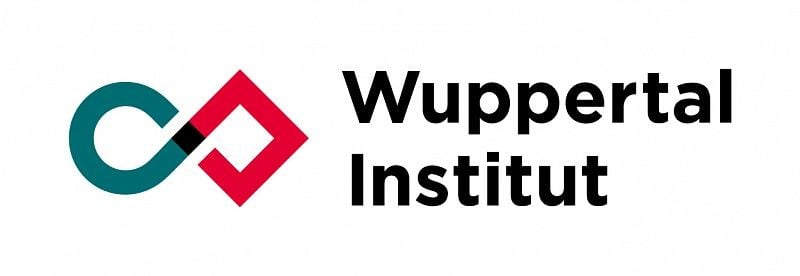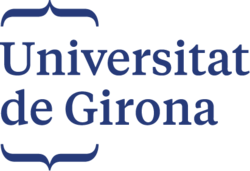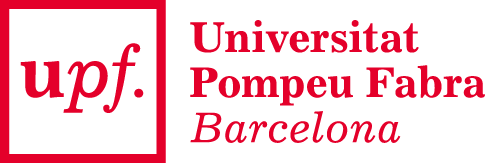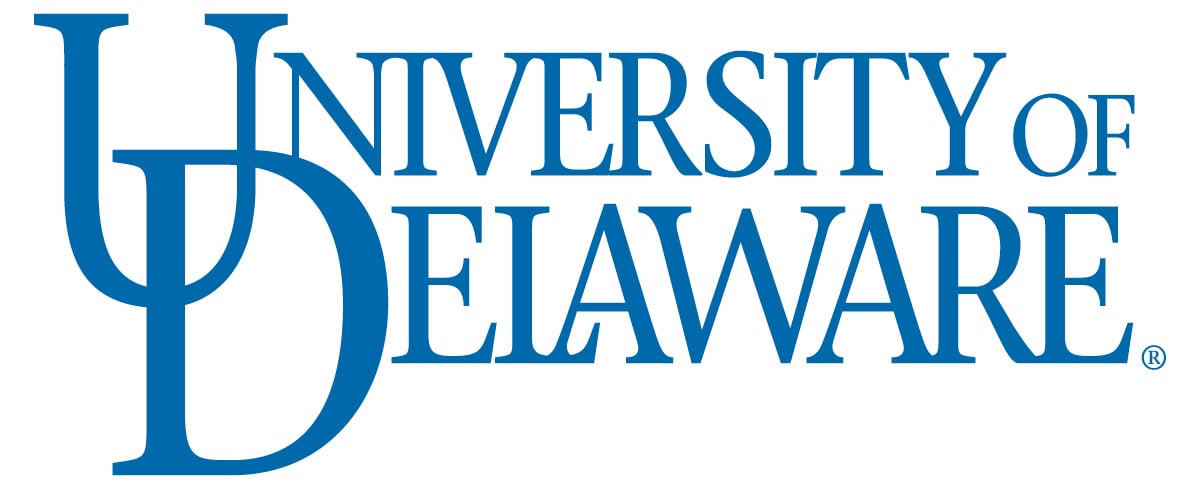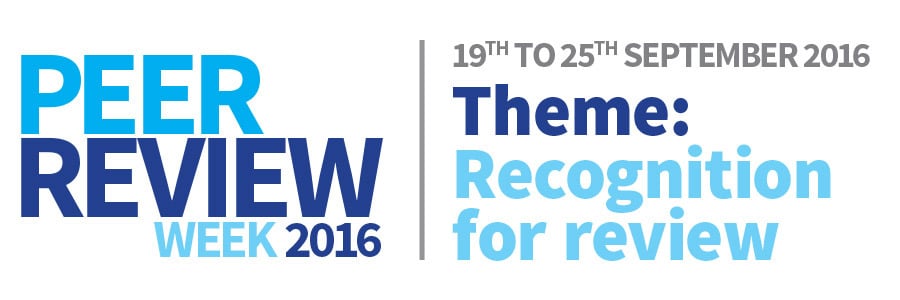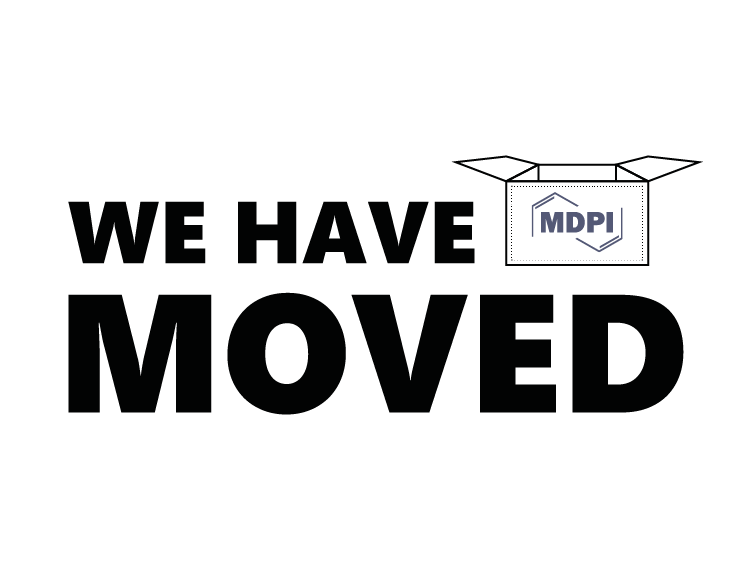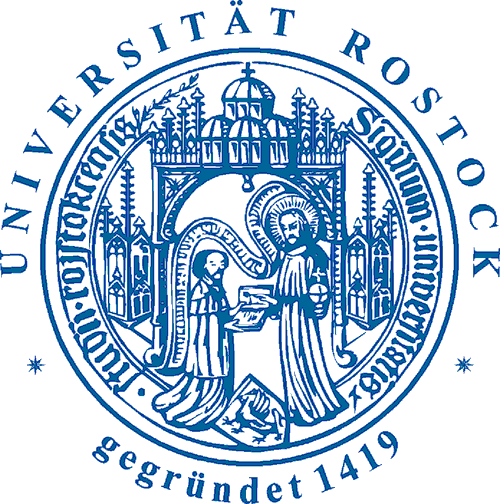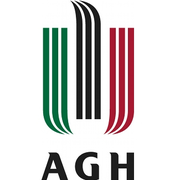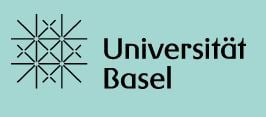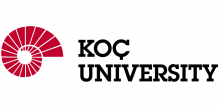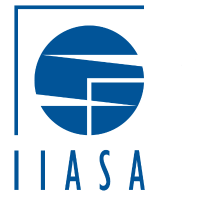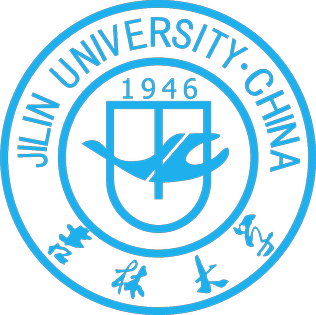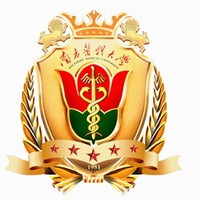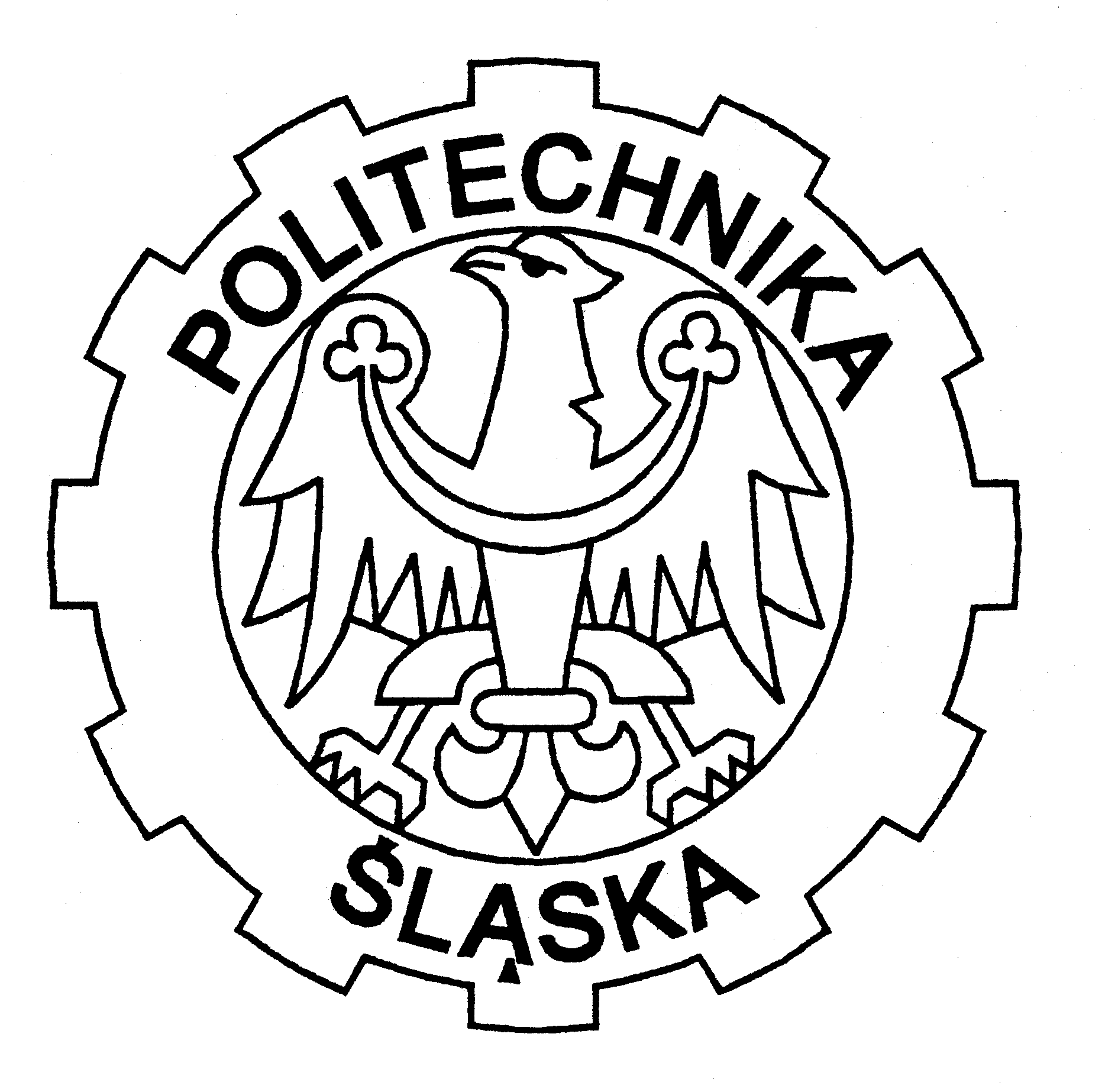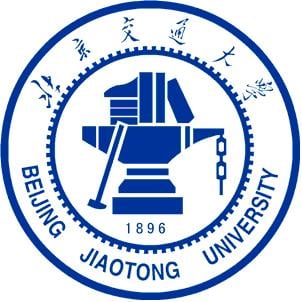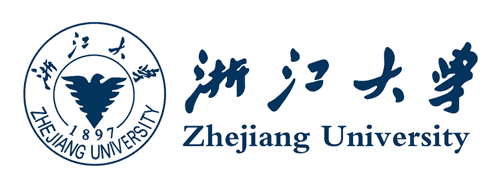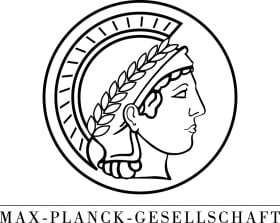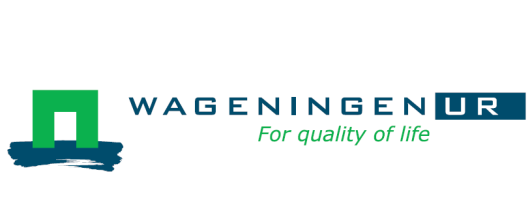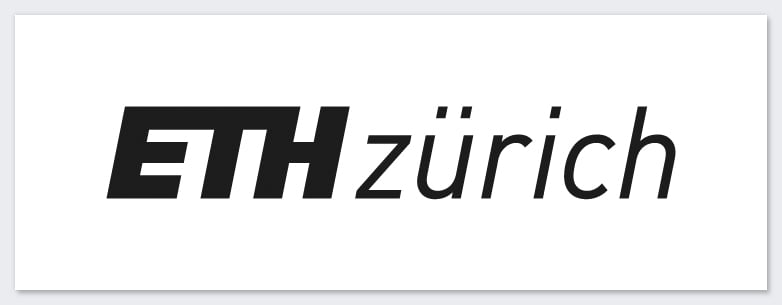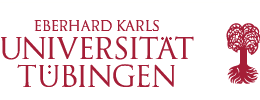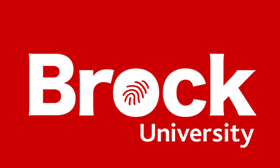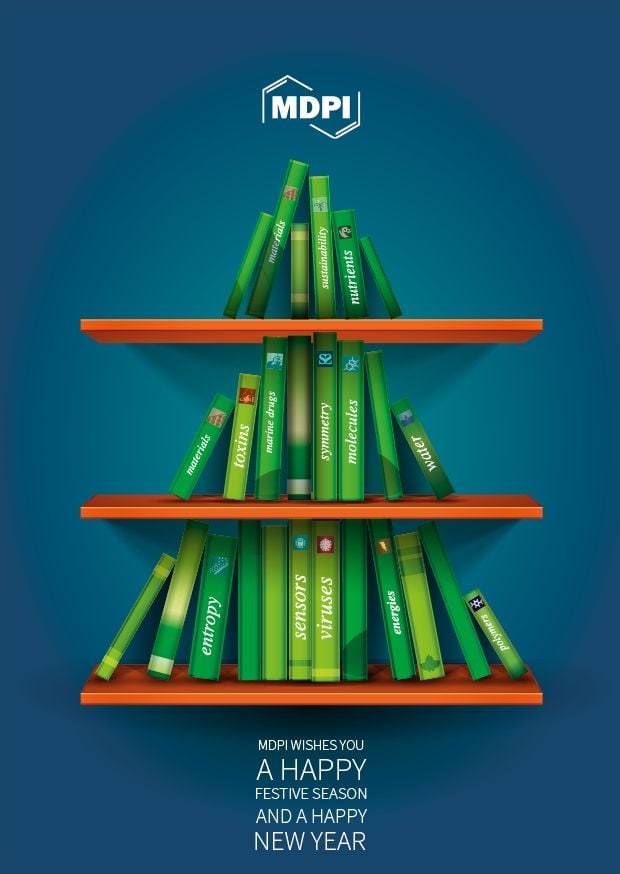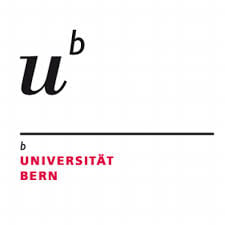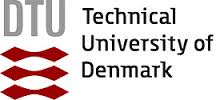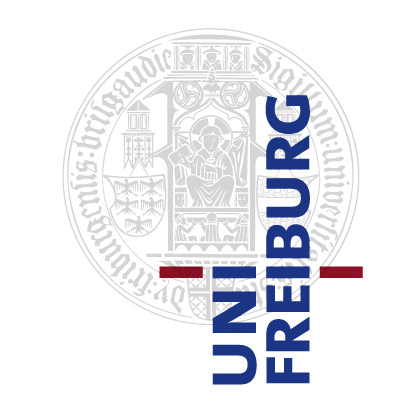
Journal Menu
► ▼ Journal Menu-
- Batteries Home
- Aims & Scope
- Editorial Board
- Reviewer Board
- Topical Advisory Panel
- Instructions for Authors
- Special Issues
- Topics
- Sections & Collections
- Article Processing Charge
- Indexing & Archiving
- Editor’s Choice Articles
- Most Cited & Viewed
- Journal Statistics
- Journal History
- Journal Awards
- Society Collaborations
- Editorial Office
Journal Browser
► ▼ Journal BrowserNeed Help?
Announcements
22 November 2024
Batteries | Invitation to Explore the Editor’s Choice Articles (Issues 4–6, 2024)

Editor’s Choice Articles are selected based on suggestions from the Academic Editors of Batteries (ISSN: 2313-0105). The editors select a small number of recently published articles that they consider particularly interesting to our readers or important in their respective fields of research. You are therefore kindly invited to read the Editor’s Choice Articles, a curated list of high-quality articles published in Batteries. The full list of Editor’s Choice Articles can be viewed at the following link: https://www.mdpi.com/journal/batteries/editors_choice.
1. “Useful Quantities and Diagram Types for Diagnosis and Monitoring of Electrochemical Energy Converters Using Impedance Spectroscopy: State of the Art, Review and Outlook”
by Peter Kurzweil, Wolfgang Scheuerpflug, Christian Schell and Josef Schottenbauer
Batteries 2024, 10(6), 177; https://doi.org/10.3390/batteries10060177
Available online: https://www.mdpi.com/2313-0105/10/6/177

2. “Quantitative Analysis of Lithium-Ion Battery Eruption Behavior in Thermal Runaway”
by Yu Xing, Ningning Wei and Minghai Li
Batteries 2024, 10(6), 182; https://doi.org/10.3390/batteries10060182
Available online: https://www.mdpi.com/2313-0105/10/6/182

3. “A Novel Reaction Rate Parametrization Method for Lithium-Ion Battery Electrochemical Modelling”
by Alain Goussian, Loïc Assaud, Issam Baghdadi, Cédric Nouillant and Sylvain Franger
Batteries 2024, 10(6), 205; https://doi.org/10.3390/batteries10060205
Available online: https://www.mdpi.com/2313-0105/10/6/205
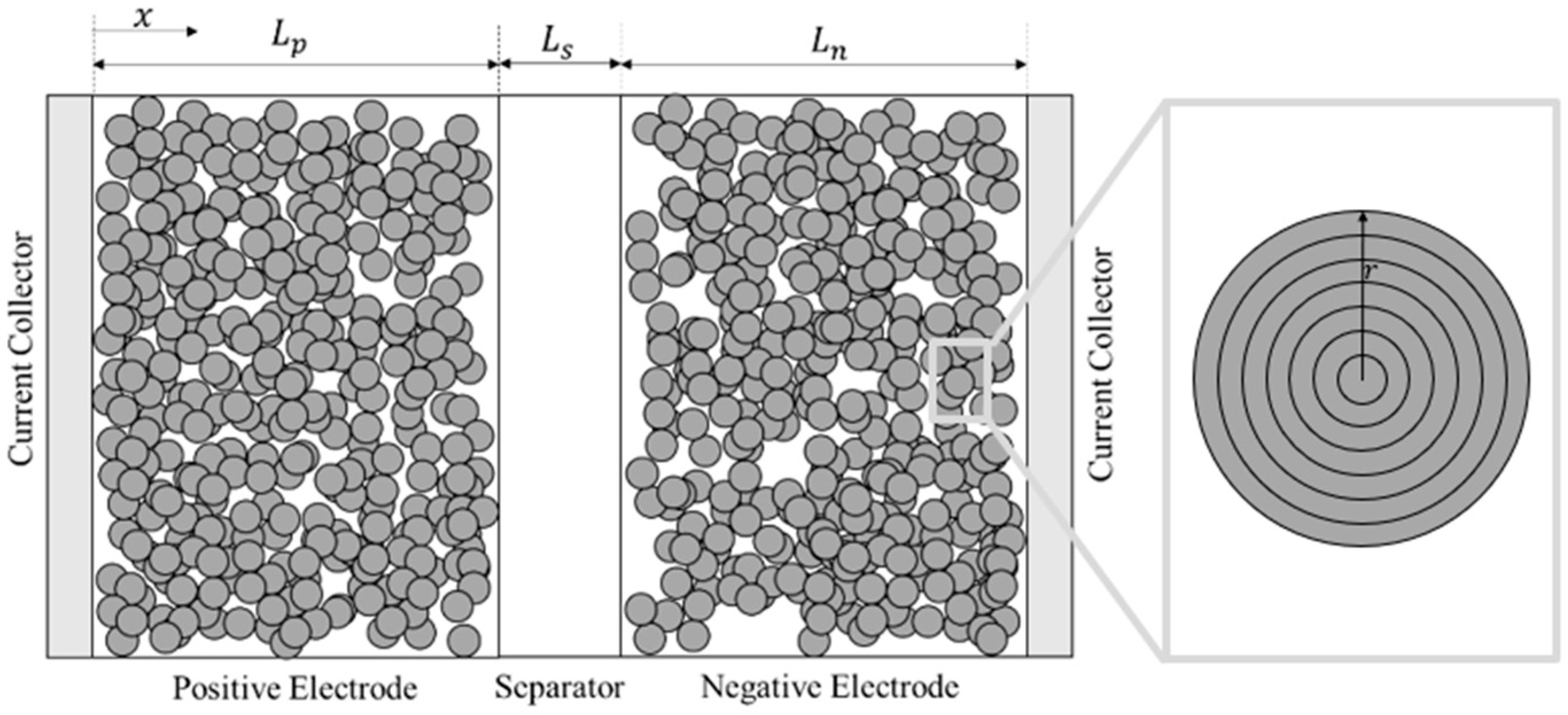
4. “Postmortem Analysis of 18650 Graphite/LFP Cells in a Long-Term Aging Study for Second-Life Applications”
by William Wheeler, Yann Bultel, Pascal Venet, Ali Sari and Elie Riviere
Batteries 2024, 10(4), 119; https://doi.org/10.3390/batteries10040119
Available online: https://www.mdpi.com/2313-0105/10/4/119

5. “Mechanical Measurement Approach to Characterize Venting Behavior during Thermal Runaway of 18650 Format Lithium-Ion Batteries”
by Elisabeth Irene Gillich, Marco Steinhardt, Yaroslava Fedoryshyna and Andreas Jossen
Batteries 2024, 10(4), 142; https://doi.org/10.3390/batteries10040142
Available online: https://www.mdpi.com/2313-0105/10/4/142

6. “A Comparative Review of Models for All-Solid-State Li-Ion Batteries”
by Erkin Yildiz, Mattia Serpelloni, Alberto Salvadori and Luigi Cabras
Batteries 2024, 10(5), 150; https://doi.org/10.3390/batteries10050150
Available online: https://www.mdpi.com/2313-0105/10/5/150

7. “Empowering Electric Vehicles Batteries: A Comprehensive Look at the Application and Challenges of Second-Life Batteries”
by Seyedreza Azizighalehsari, Prasanth Venugopal, Deepak Pratap Singh, Thiago Batista Soeiro and Gert Rietveld
Batteries 2024, 10(5), 161; https://doi.org/10.3390/batteries10050161
Available online: https://www.mdpi.com/2313-0105/10/5/161
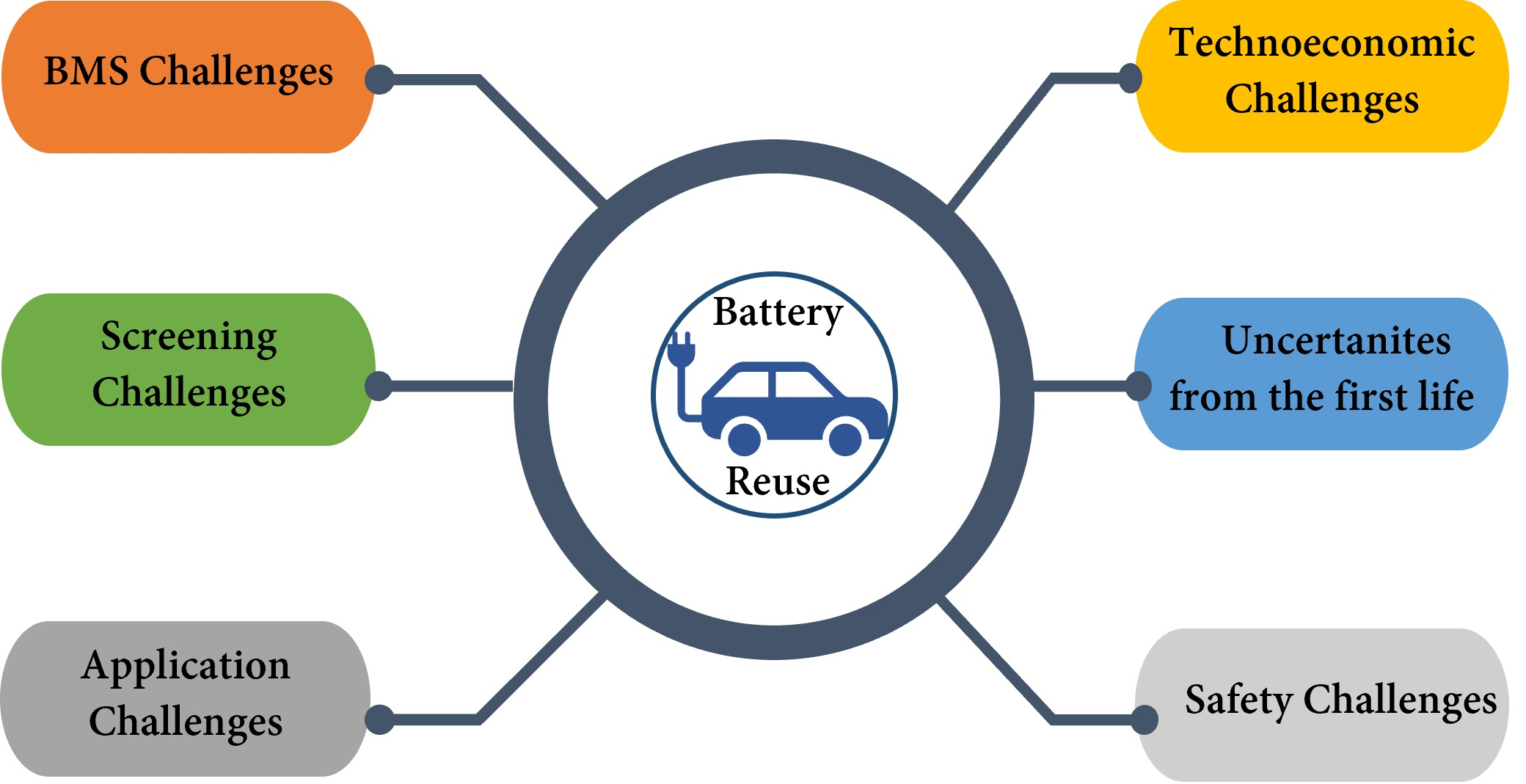
8.“Biomass-Derived Carbon Materials for Advanced Metal-Ion Hybrid Supercapacitors: A Step Towards More Sustainable Energy”
by Syed Shaheen Shah
Batteries 2024, 10(5), 168; https://doi.org/10.3390/batteries10050168
Available online: https://www.mdpi.com/2313-0105/10/5/168
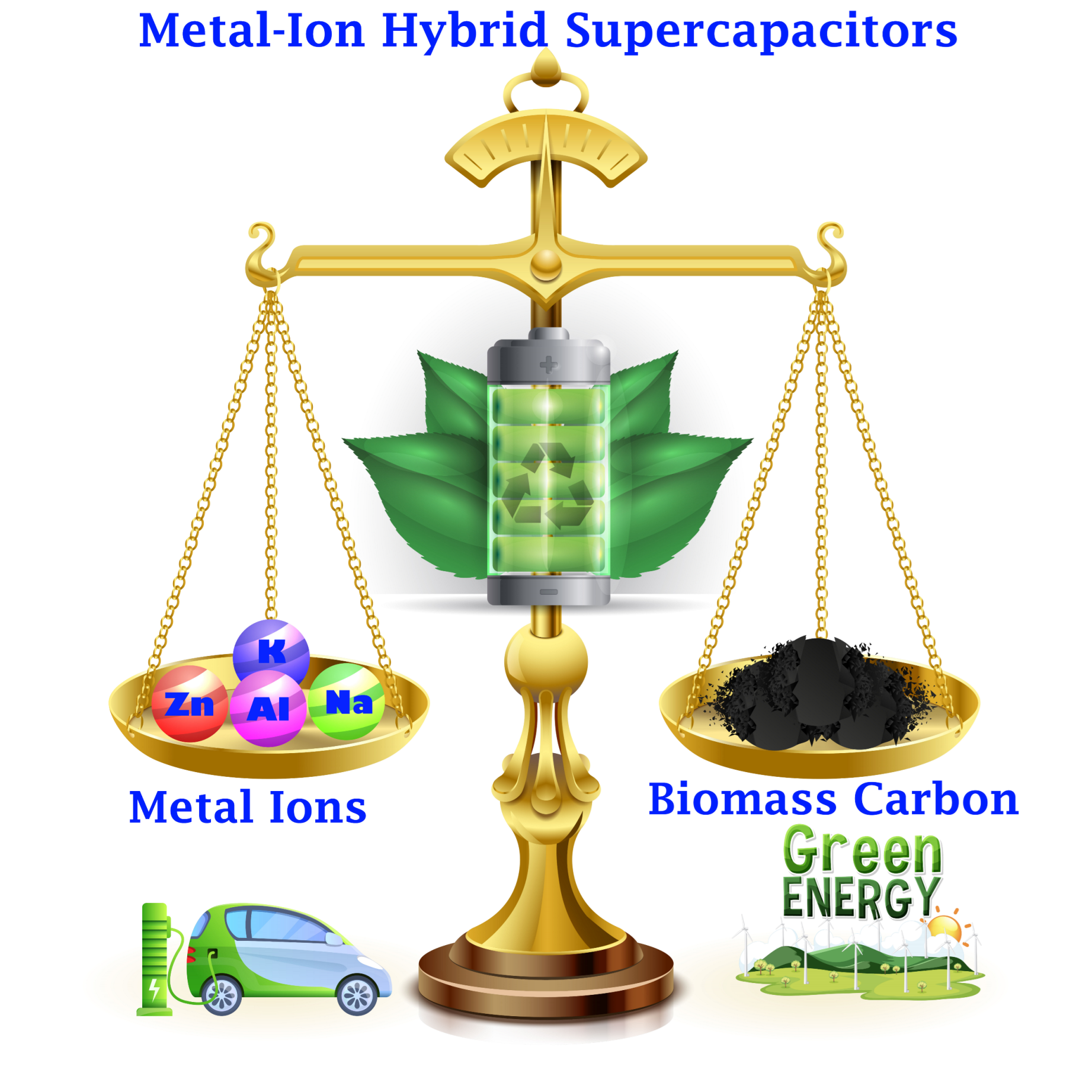
22 November 2024
Batteries | Invitation to Explore the Editor’s Choice Articles (Issues 1–3, 2024)

Editor’s Choice Articles are selected based on suggestions from the Academic Editors of Batteries (ISSN: 2313-0105). The editors select a small number of recently published articles that they consider particularly interesting to our readers or important in their respective fields of research. You are therefore kindly invited to read the Editor’s Choice Articles, a curated list of high-quality articles published in Batteries. The full list of Editor’s Choice Articles can be viewed at the following link: https://www.mdpi.com/journal/batteries/editors_choice.
1. “Fast Impedance Spectrum Construction for Lithium-Ion Batteries Using a Multi-Density Clustering Algorithm”
by Ling Zhu, Jichang Peng, Jinhao Meng, Chenghao Sun, Lei Cai and Zhizhu Qu
Batteries 2024, 10(3), 112; https://doi.org/10.3390/batteries10030112
Available online: https://www.mdpi.com/2313-0105/10/3/112
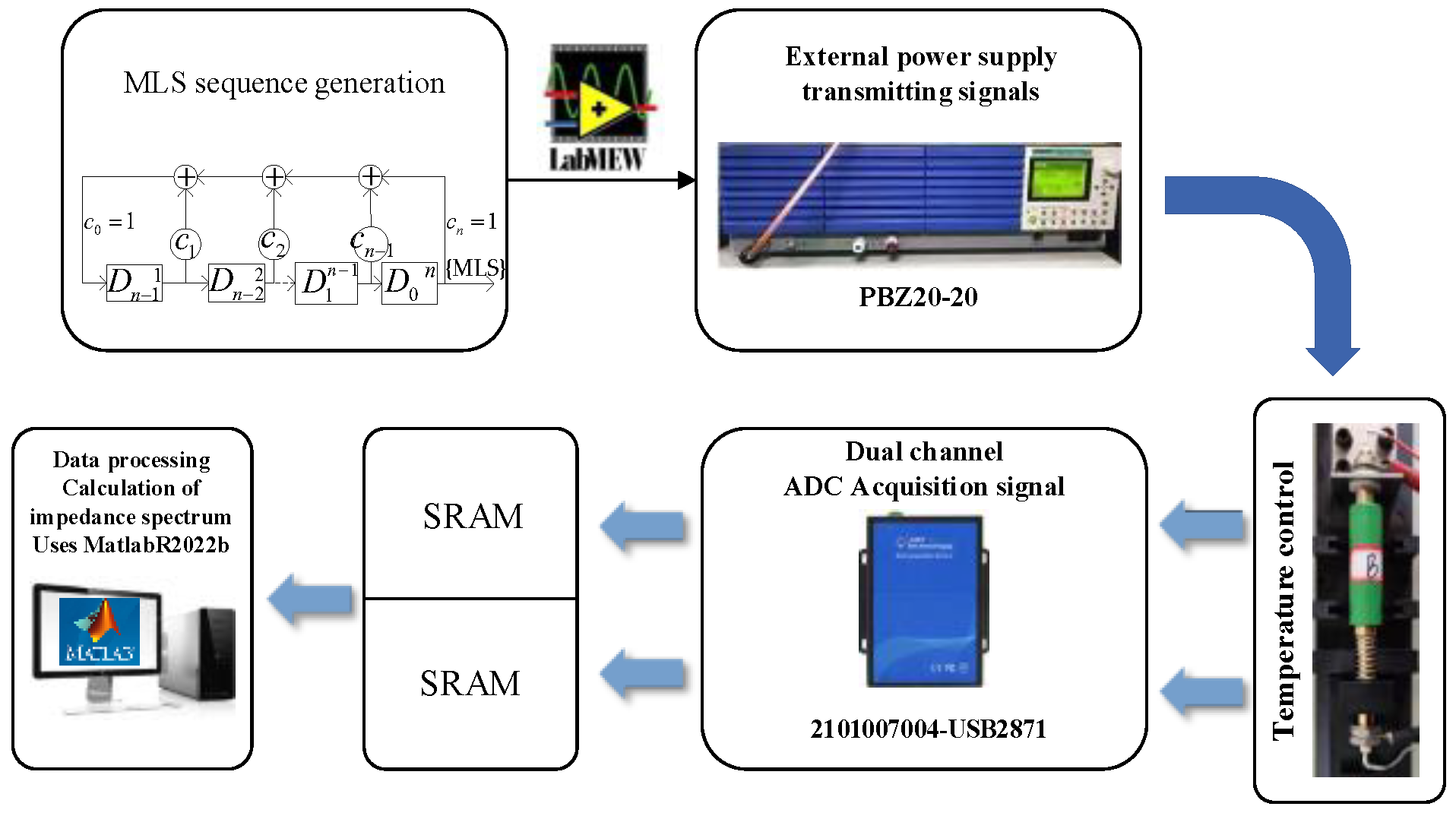
2. “Design and Control of a Modular Integrated On-Board Battery Charger for EV Applications with Cell Balancing”
by Fatemeh Nasr Esfahani, Ahmed Darwish and Xiandong Ma
Batteries 2024, 10(1), 17; https://doi.org/10.3390/batteries10010017
Available online: https://www.mdpi.com/2313-0105/10/1/17
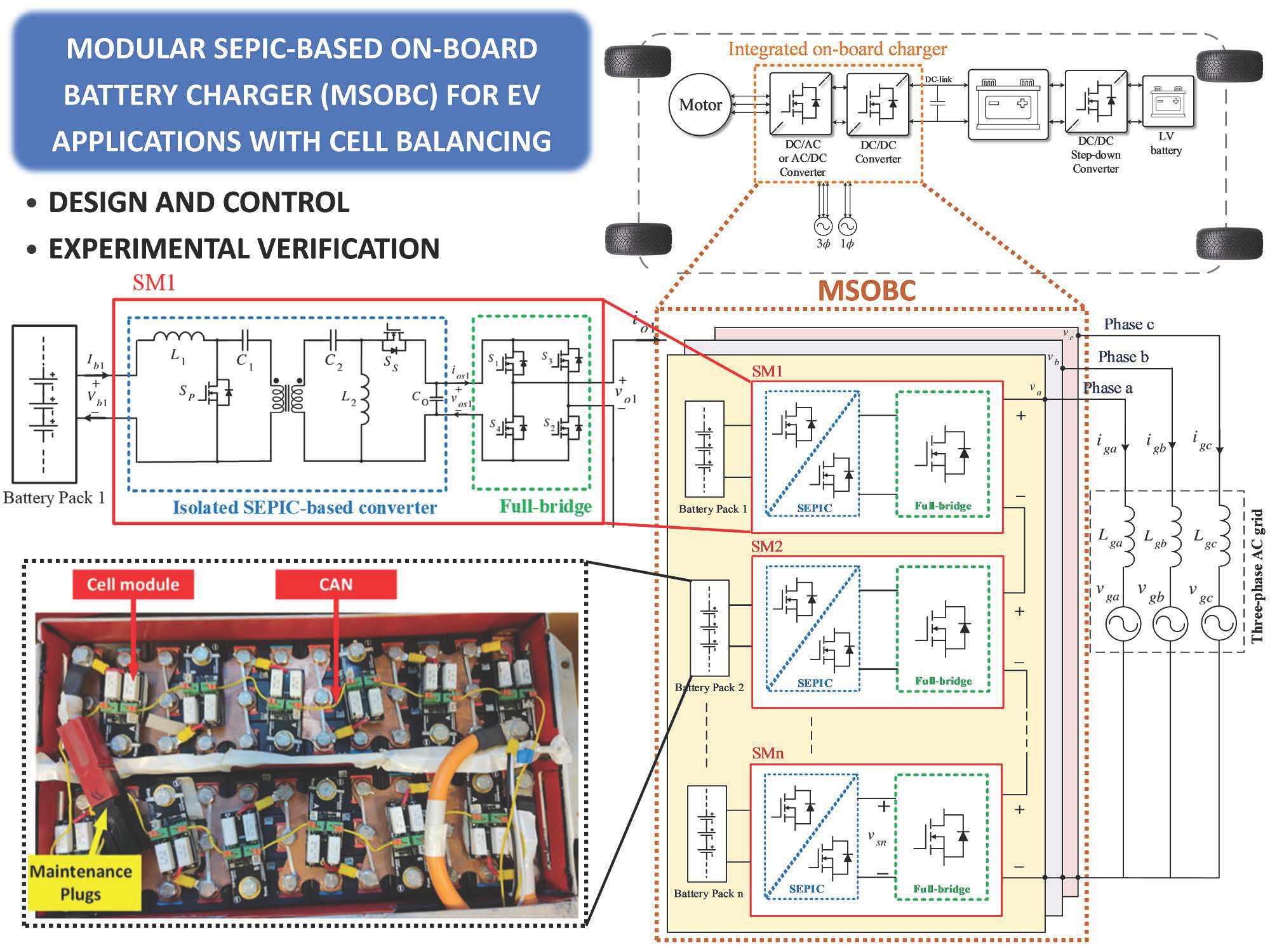
3. “Advancements and Challenges in Solid-State Battery Technology: An In-Depth Review of Solid Electrolytes and Anode Innovations”
by Abniel Machín, Carmen Morant and Francisco Márquez
Batteries 2024, 10(1), 29; https://doi.org/10.3390/batteries10010029
Available online: https://www.mdpi.com/2313-0105/10/1/29
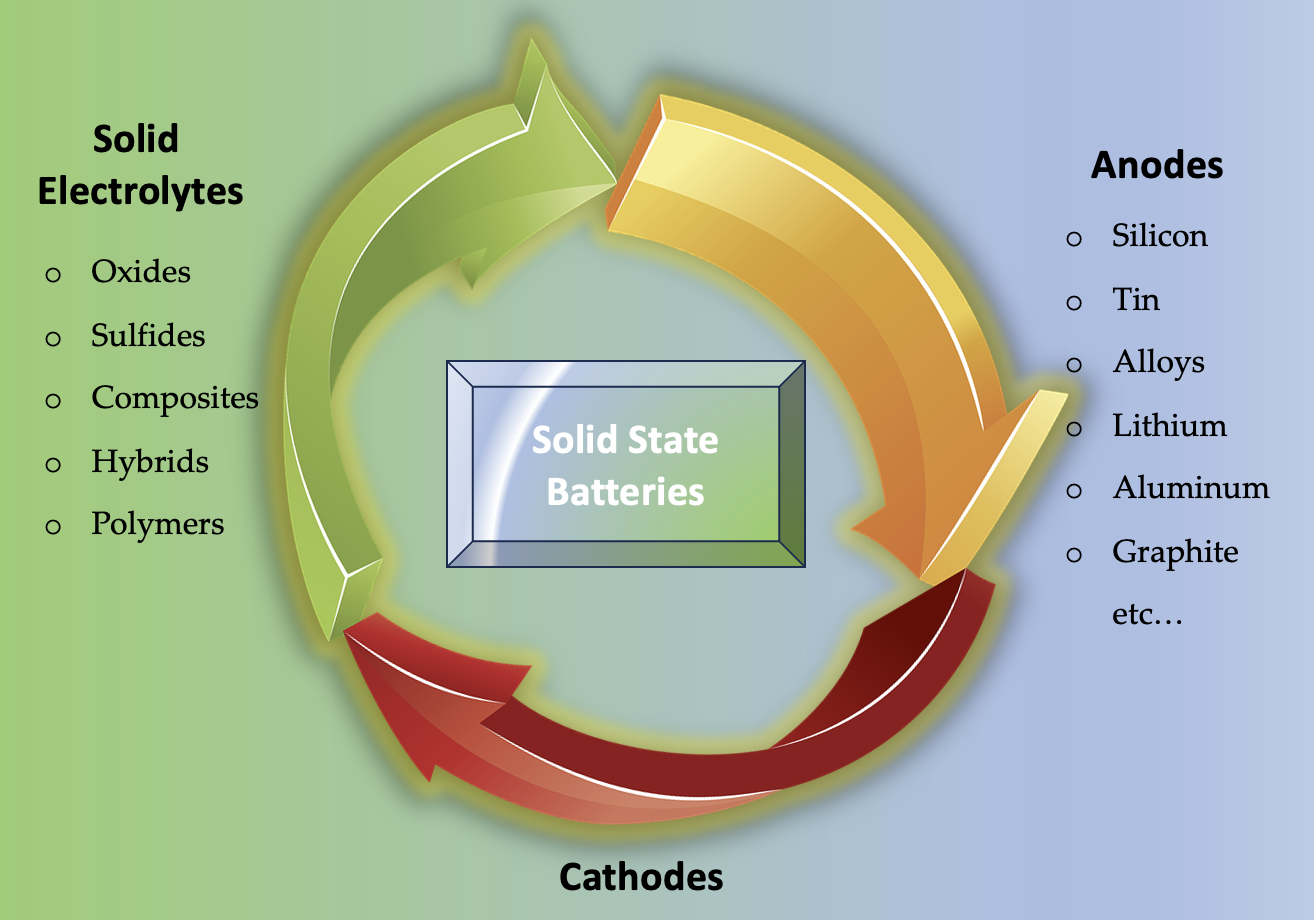
4. “Review on Modeling and SOC/SOH Estimation of Batteries for Automotive Applications”
by Pierpaolo Dini, Antonio Colicelli and Sergio Saponara
Batteries 2024, 10(1), 34; https://doi.org/10.3390/batteries10010034
Available online: https://www.mdpi.com/2313-0105/10/1/34
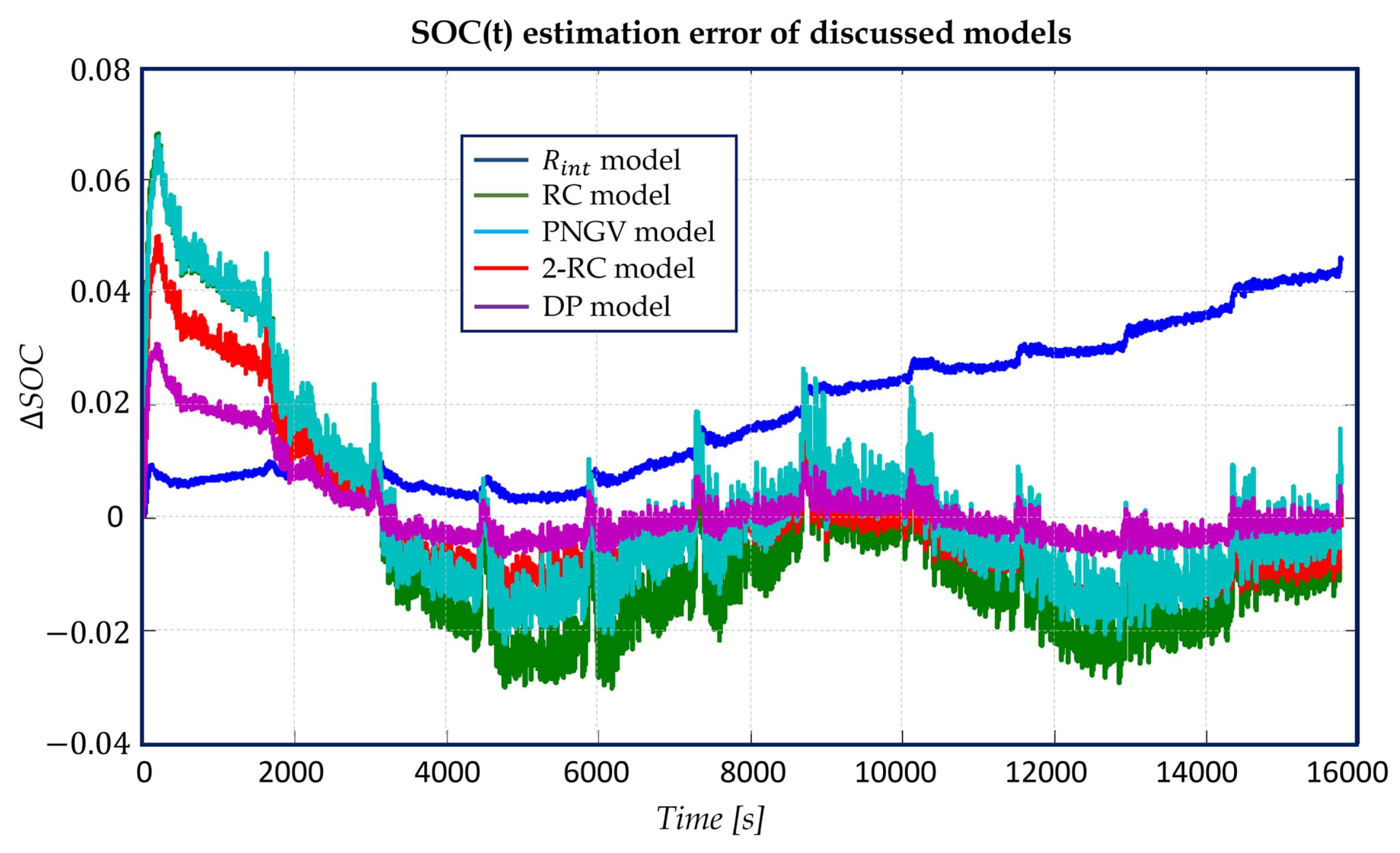
5. “A Review of Lithium-Ion Battery Recycling: Technologies, Sustainability, and Open Issues”
by Alessandra Zanoletti, Eleonora Carena, Chiara Ferrara and Elza Bontempi
Batteries 2024, 10(1), 38; https://doi.org/10.3390/batteries10010038
Available online: https://www.mdpi.com/2313-0105/10/1/38
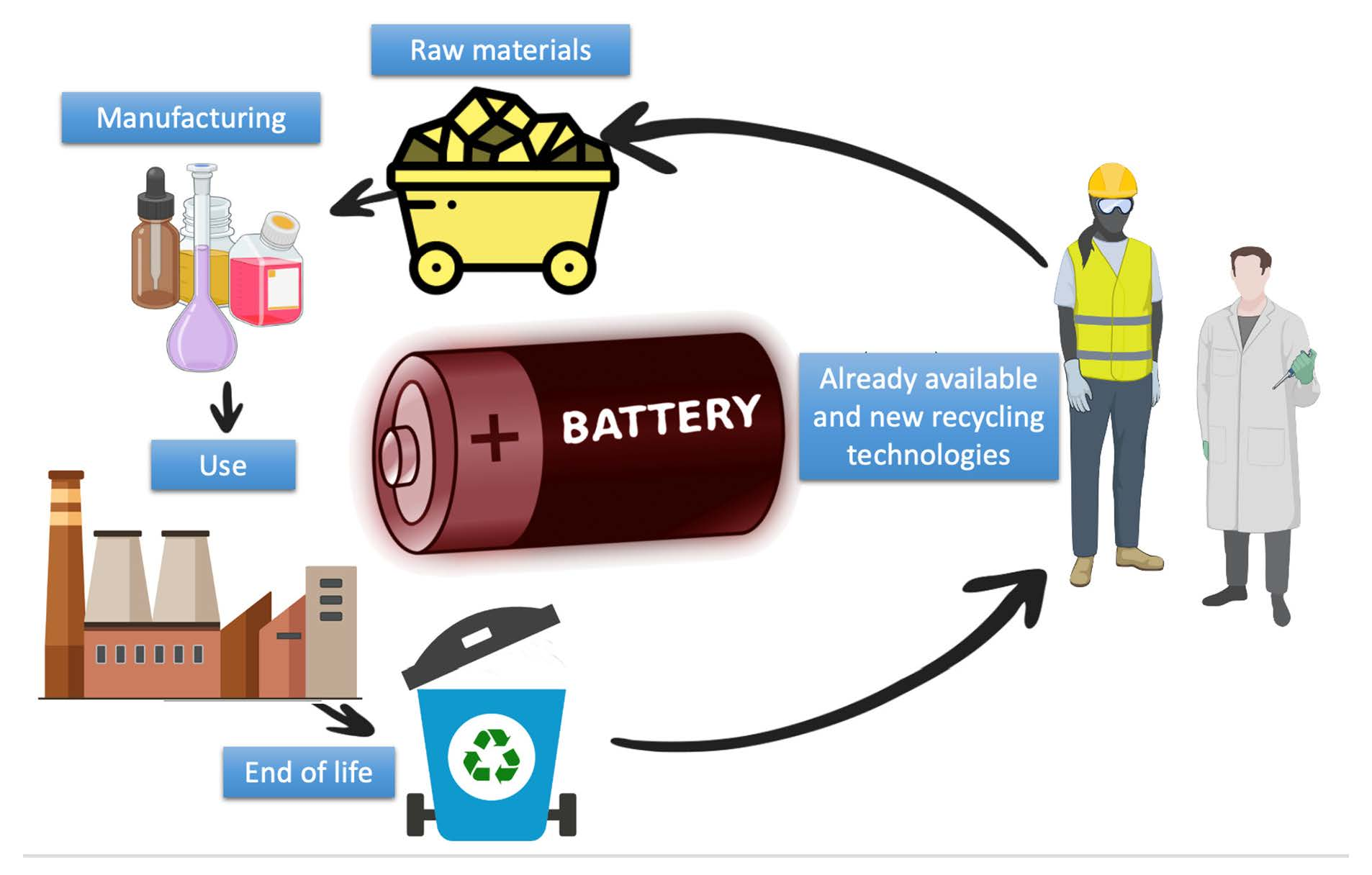
6. “Engineering Dry Electrode Manufacturing for Sustainable Lithium-Ion Batteries”
by Mohamed Djihad Bouguern, Anil Kumar Madikere Raghunatha Reddy, Xia Li, Sixu Deng, Harriet Laryea and Karim Zaghib
Batteries 2024, 10(1), 39; https://doi.org/10.3390/batteries10010039
Available online: https://www.mdpi.com/2313-0105/10/1/39
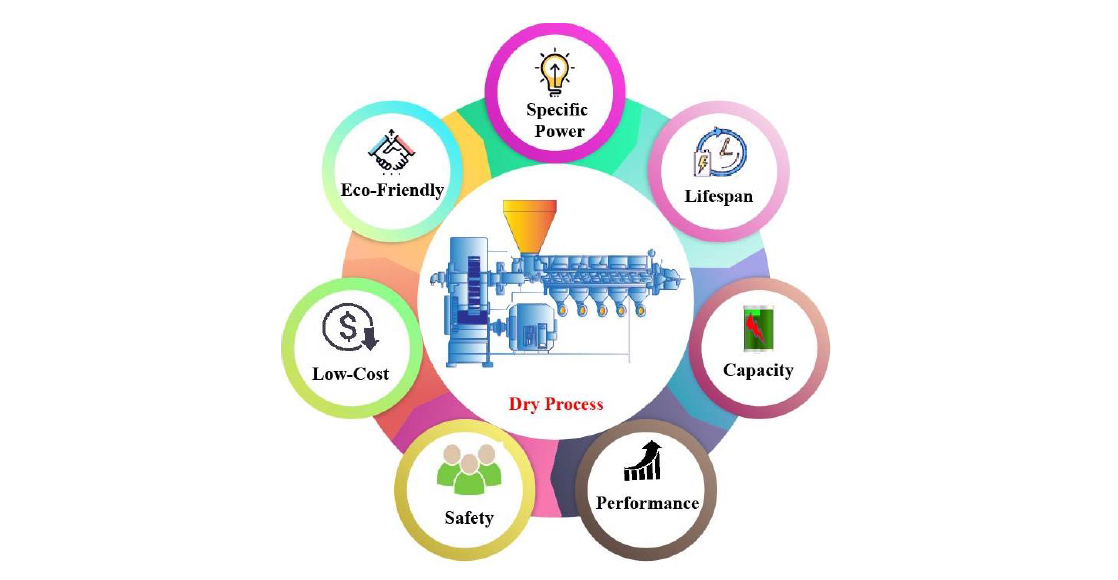
7. “Spherical Graphite Anodes: Influence of Particle Size Distribution and Multilayer Structuring in Lithium-Ion Battery Cells”
by Laura Gottschalk, Jannes Müller, Alexander Schoo, Ernesto Baasch and Arno Kwade
Batteries 2024, 10(2), 40; https://doi.org/10.3390/batteries10020040
Available online: https://www.mdpi.com/2313-0105/10/2/40
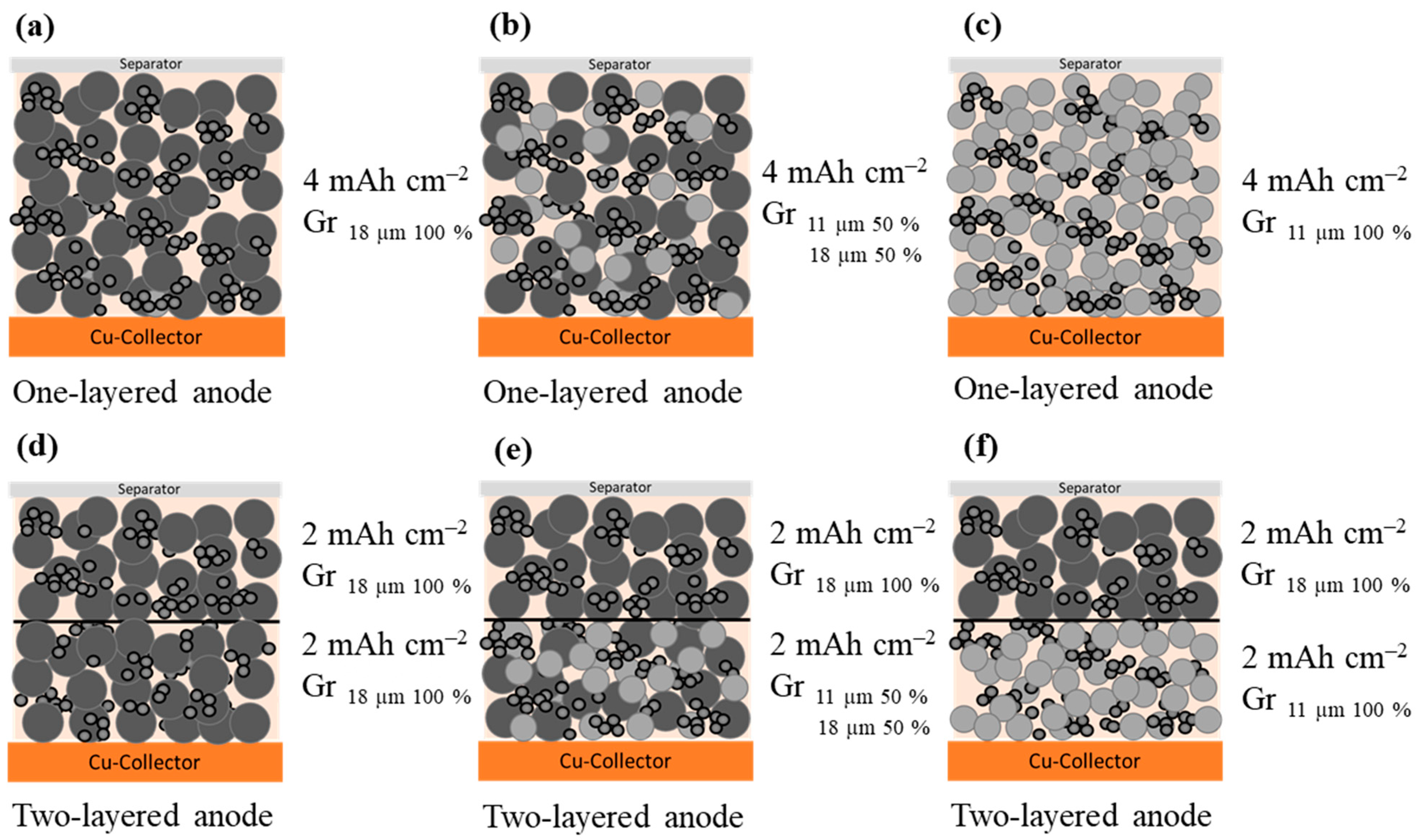
8. “Lithium-Ion Supercapacitors and Batteries for Off-Grid PV Applications: Lifetime and Sizing”
by Tarek Ibrahim, Tamas Kerekes, Dezso Sera, Abderezak Lashab and Daniel-Ioan Stroe
Batteries 2024, 10(2), 42; https://doi.org/10.3390/batteries10020042
Available online: https://www.mdpi.com/2313-0105/10/2/42
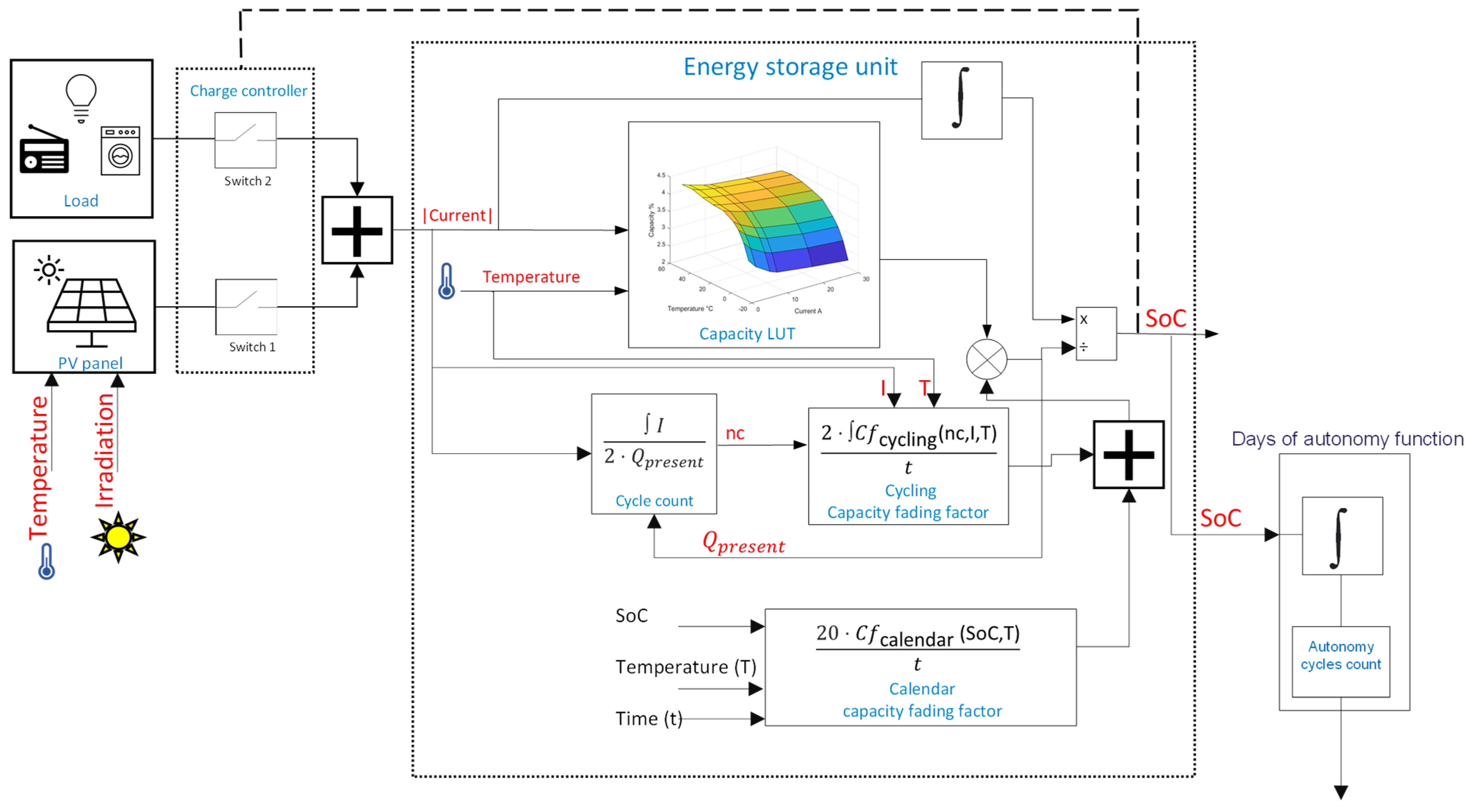
9. “Bubble Wrap-like Carbon-Coated Rattle-Type silica@silicon Nanoparticles as Hybrid Anode Materials for Lithium-Ion Batteries via Surface-Protected Etching”
by Angelica Martino, Jiyun Jeon, Hyun-Ho Park, Hochun Lee and Chang-Seop Lee
Batteries 2024, 10(2), 53; https://doi.org/10.3390/batteries10020053
Available online: https://www.mdpi.com/2313-0105/10/2/53
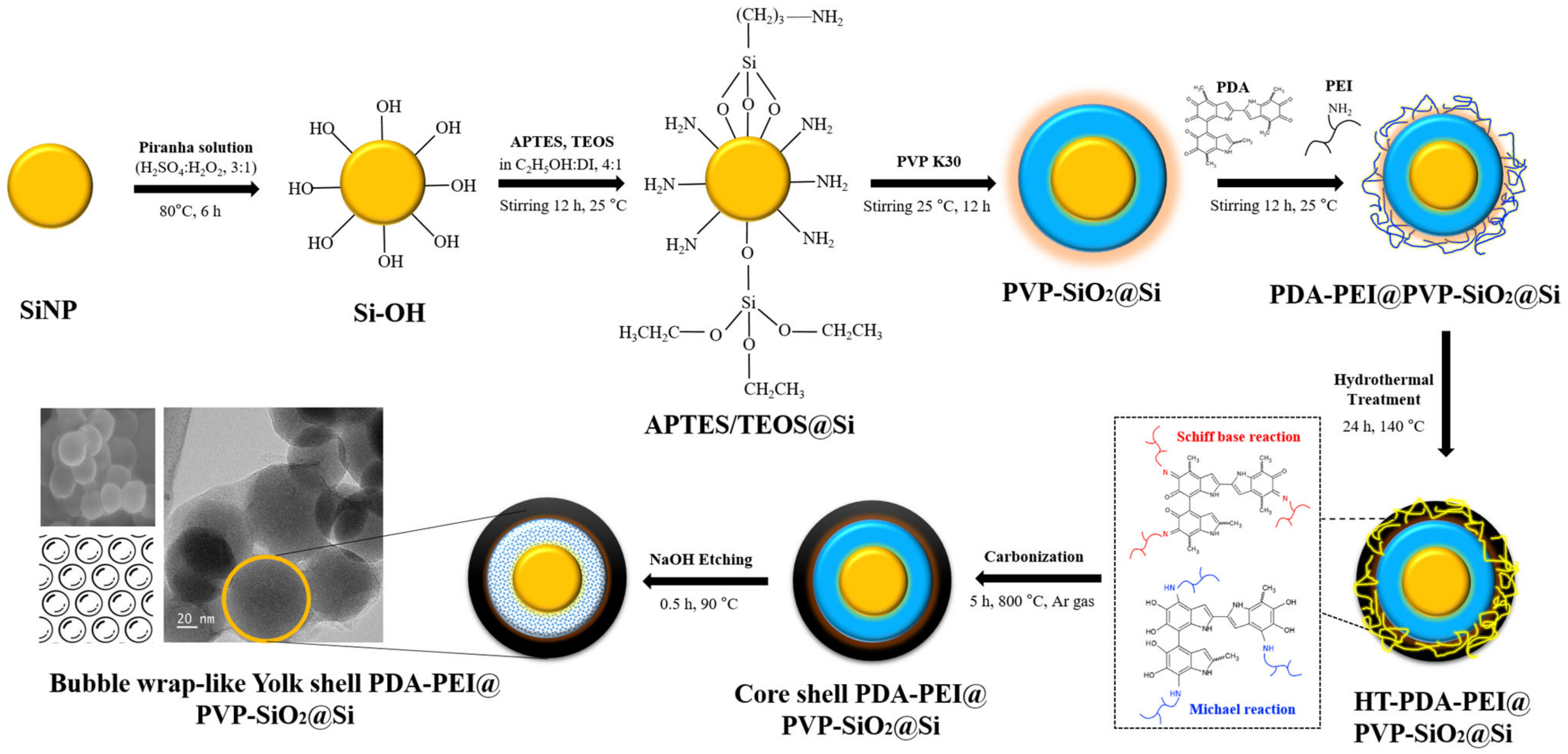
10. “Heterogeneity of Lithium Distribution in the Graphite Anode of 21700-Type Cylindrical Li-Ion Cells during Degradation”
by Dominik Petz, Volodymyr Baran, Juyeon Park, Alexander Schökel, Armin Kriele, Joana Rebelo Kornmeier, Carsten Paulman, Max Koch, Tom Nilges, Peter Müller-Buschbaum et al.
Batteries 2024, 10(3), 68; https://doi.org/10.3390/batteries10030068
Available online: https://www.mdpi.com/2313-0105/10/3/68
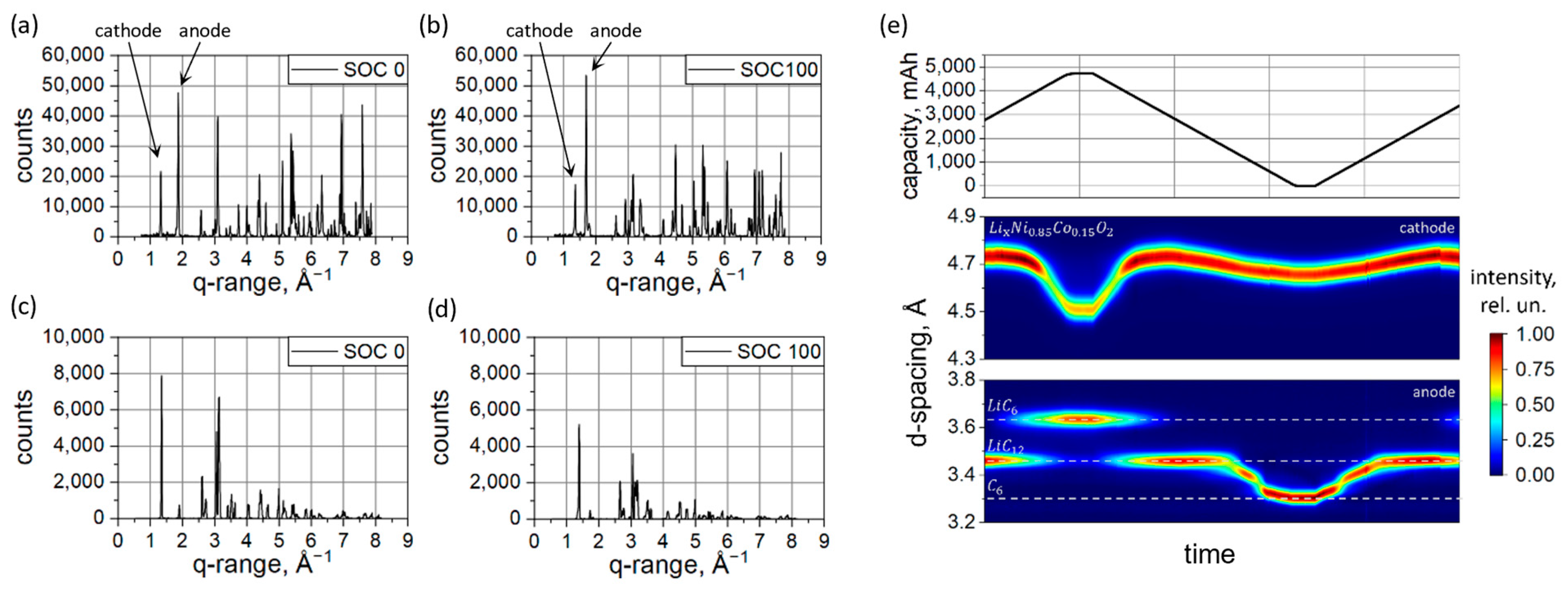
11. “Influence of Pressure, Temperature and Discharge Rate on the Electrical Performances of a Commercial Pouch Li-Ion Battery”
by Luigi Aiello, Peter Ruchti, Simon Vitzthum and Federico Coren
Batteries 2024, 10(3), 72; https://doi.org/10.3390/batteries10030072
Available online: https://www.mdpi.com/2313-0105/10/3/72
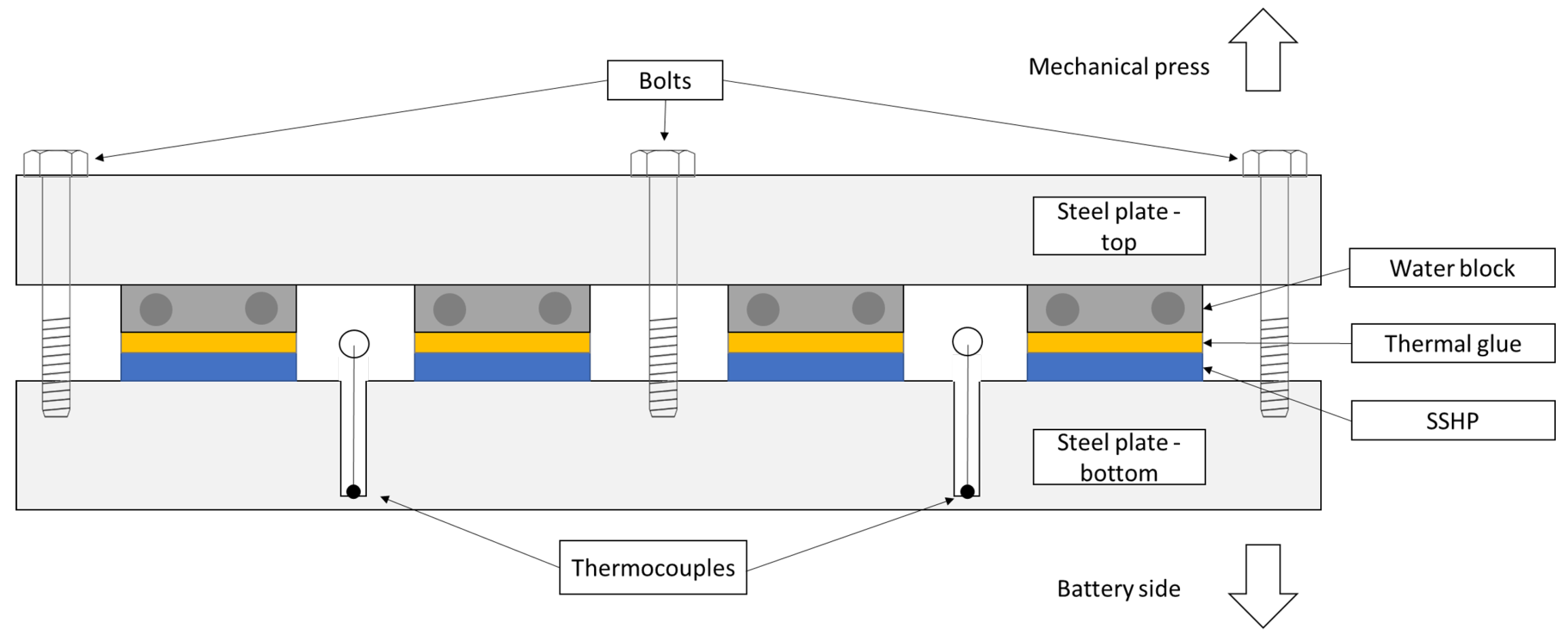
12. “Safety Analysis of Lithium-Ion Cylindrical Batteries Using Design and Process Failure Mode and Effect Analysis”
by Sahithi Maddipatla, Lingxi Kong and Michael Pecht
Batteries 2024, 10(3), 76; https://doi.org/10.3390/batteries10030076
Available online: https://www.mdpi.com/2313-0105/10/3/76
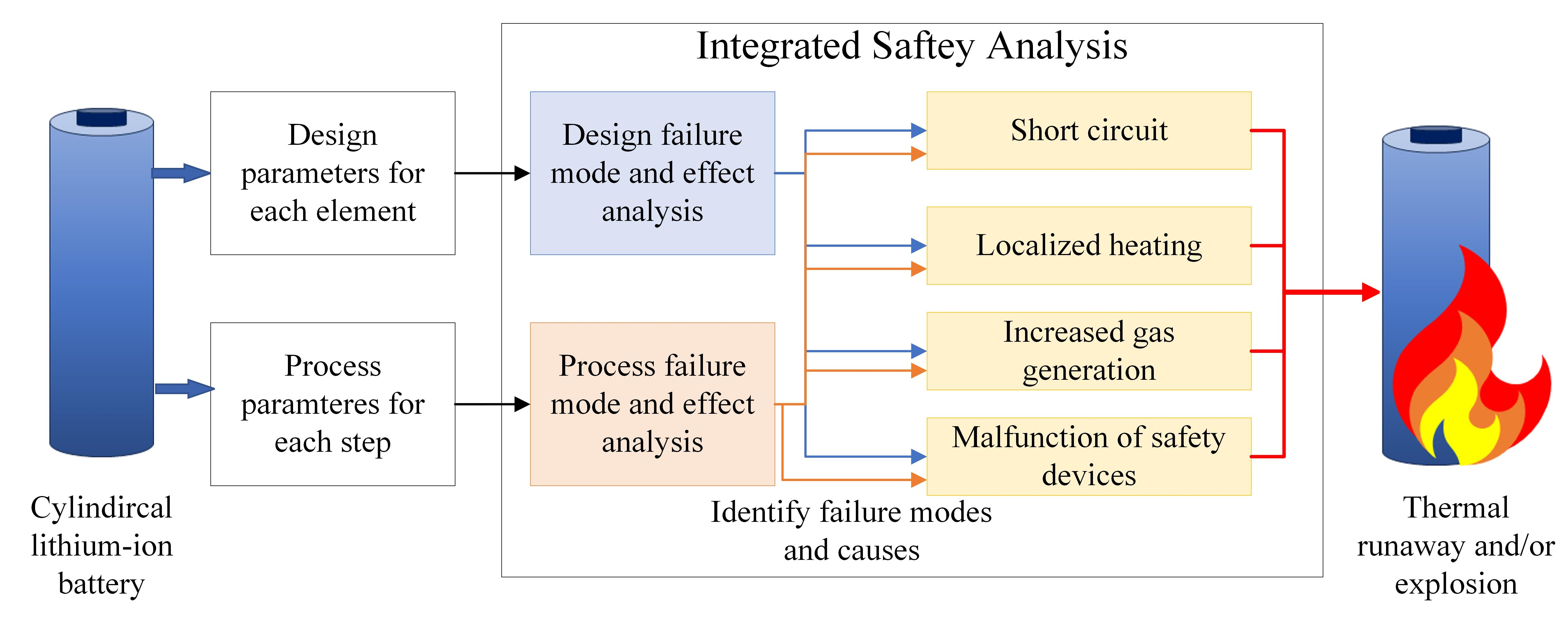
13. “Diphenylphosphoryl Azide as a Multifunctional Flame Retardant Electrolyte Additive for Lithium-Ion Batteries”
by Zhirui Li, Longfei Han, Yongchun Kan, Can Liao and Yuan Hu
Batteries 2024, 10(4), 117; https://doi.org/10.3390/batteries10040117
Available online: https://www.mdpi.com/2313-0105/10/4/117
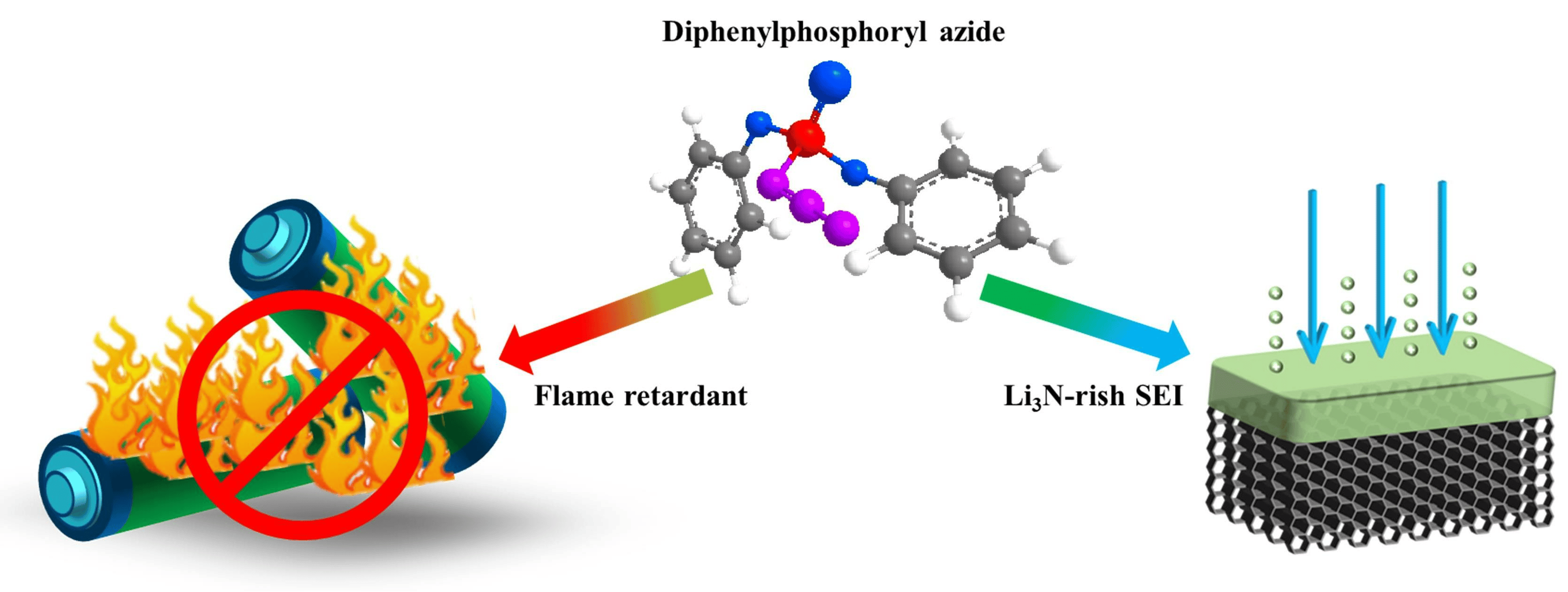
11 November 2024
Meet Us at the 34th Annual Meeting of MRS-J, 16–18 December 2024, Yokohama, Japan

The 34th Annual Meeting of MRS-J will be held from 16 to 18 December 2024 in Yokohama, Japan. The conference will be hosted by the Materials Research Society of Japan.
The areas of focus for the conference include the following:
- Fundamentals for materials and data science;
- Nanomaterial science and technology;
- Soft materials and bioscience;
- Advanced functional materials;
- Society and the environment;
- Material innovation for the circular economy.
The following MDPI journals will be represented at the conference:
- Materials;
- Batteries;
- Inorganics;
- Coatings.
If you are planning to attend the above conference, please feel free to start an online conversation with us. Our delegates also look forward to meeting you in person and answering any questions that you may have. For more information about the conference, please visit the following link: https://www.mrs-j.org/meeting2024/en/.
5 November 2024
MDPI INSIGHTS: The CEO's Letter #17 - OA Week, Basel Open Day, Beijing Graphene Forum

Welcome to the MDPI Insights: The CEO's Letter.
In these monthly letters, I will showcase two key aspects of our work at MDPI: our commitment to empowering researchers and our determination to facilitating open scientific exchange.
Opening Thoughts

Open Access Week: Forging the Future of Open Access through Global Reach and Collaboration
From 21 to 27 October, we celebrated International Open Access Week (OAW), highlighting the importance of making research accessible to everyone. This campaign reinforced our commitment to advancing open access (OA) and showcased how we are helping research communities worldwide adopt OA as their standard.
“OA publishing is now a cornerstone of global research”
Throughout the week, we featured MDPI’s efforts to support quality open research through blog posts on topics such as how Research Integrity Promotes OA Practices, our Preprints.org platform, and supporting societies with different OA models. These initiatives capture our commitment to making research more inclusive and accessible to all.
OA publishing is now a cornerstone of global research, with more researchers choosing OA over traditional paywalled models, and embracing new, community-driven models.
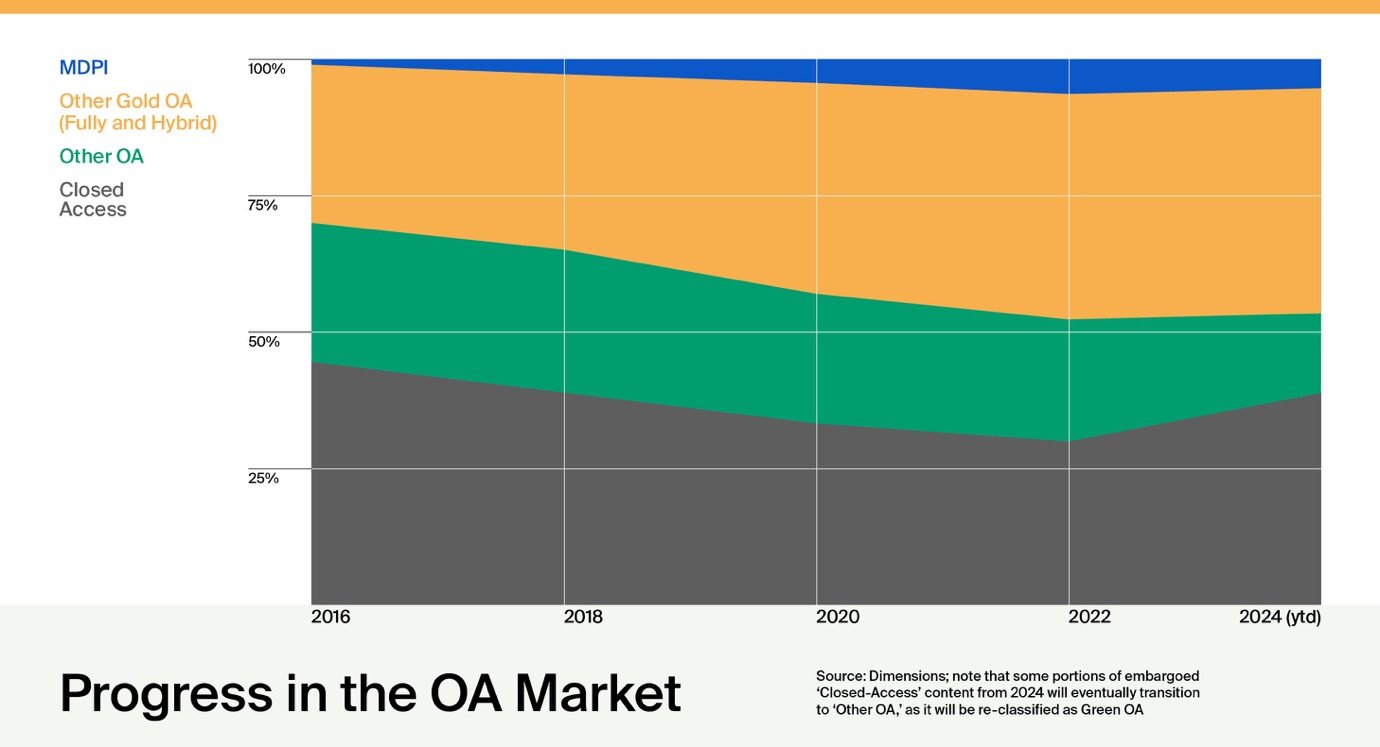
Benefits of Open Access and Open Research
- Accelerated Discoveries: OA speeds up scientific progress by allowing immediate access to findings, enabling researchers to build on each other’s work faster.
- Community-Led Innovation: Open research empowers communities to manage their own platforms, creating collaboration and shared knowledge.
- Increased Visibility: OA broadens the reach of your research, leading to greater recognition, collaboration, and impact.
- Cross-Disciplinary Connections: By removing financial and geographical barriers, OA unites diverse fields, sparking innovation across disciplines.

MDPI Singapore Celebrates Open Access Week
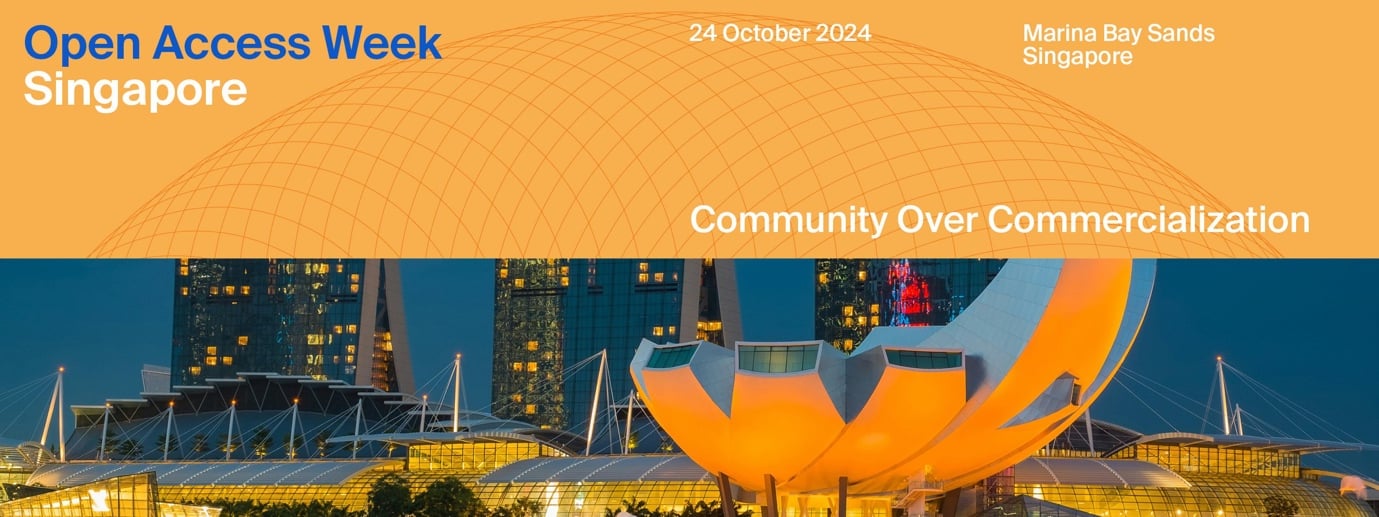
MDPI Singapore also hosted its first-ever OAW event at the Marina Bay Sands Convention Centre, bringing together academics, researchers, and students to discuss the future of open scholarship. Conversations focused on the potential of new publishing models, alternative funding strategies, and the importance of communicating research to wider audiences.
As OA evolves, MDPI remains a committed partner in advancing open science and creating a transparent, inclusive research environment. For a full recap of the week’s highlights and resources, visit our campaign page.

Impactful Research
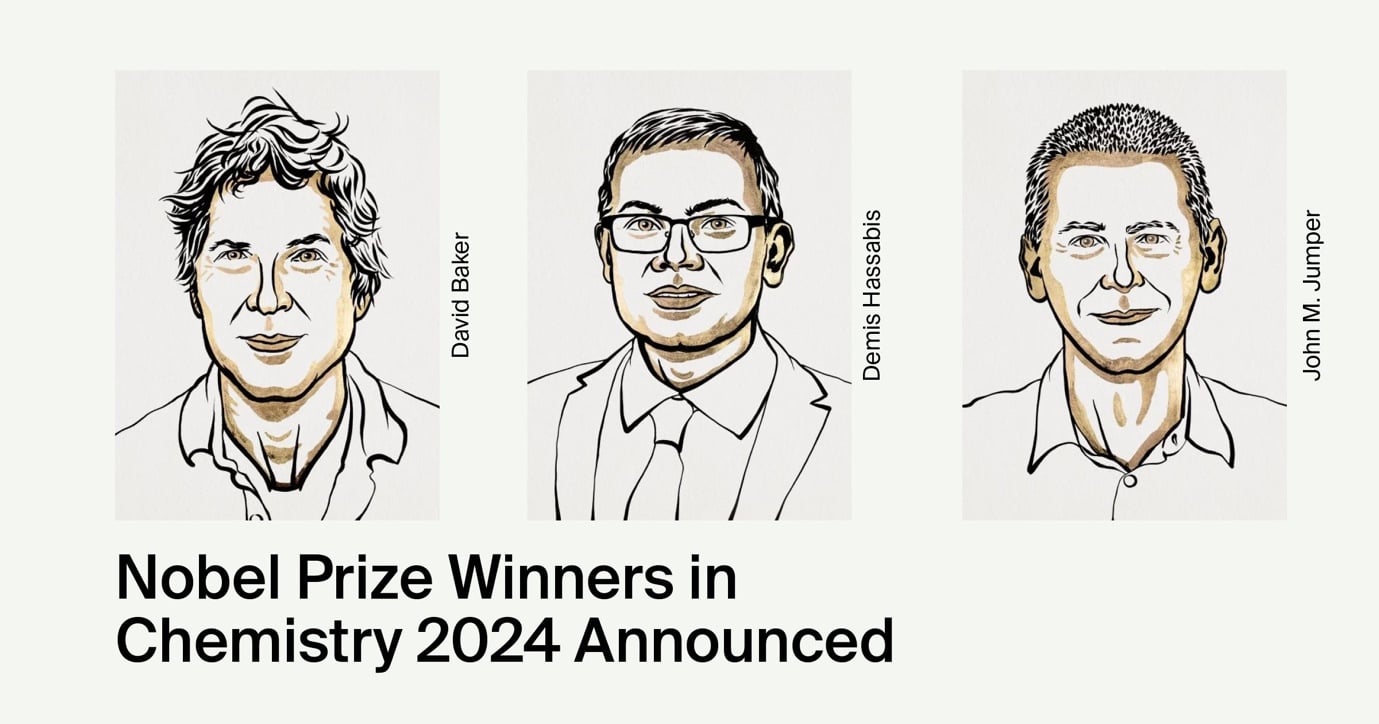
MDPI Connection to Nobel-Winning Protein Research
David Baker, an American biochemist, and Demis Hassabis and John M. Jumper, two scientists from Google DeepMind, have been awarded the 2024 Nobel Prize in Chemistry for their groundbreaking advancements in better understanding the structure of proteins, the molecular engines of life’s processes.
One half of the prize was awarded to Professor David Baker from the University of Washington for his development of revolutionary protein design software enabling the creation of novel proteins for vaccines, nanomaterials, and sensors. Prof. Baker co-authored a 2016 paper in MDPI’s Toxins journal on protein-based therapeutics.
Meanwhile, DeepMind’s Demis Hassabis and John M. Jumper received recognition for AlphaFold, the AI model that predicts protein structures from amino acid sequences, fulfilling a long-held scientific dream.
“We congratulate this year’s Nobel laureates for their groundbreaking contributions to the study of life”
Nobel Prize Laureates Entrust MDPI with Their Research
As at October 2024, 45 Nobel laureates had contributed to more than 115 articles across
35 MDPI journals. The privilege of hosting the research of such contributors, who significantly influence the open access movement, resonates deeply with our editorial teams.
We are proud to list the names of Pierre Agostini, Hiroshi Amano, Werner Arber, Aaron Ciechanover, Robert H. Grubbs, Oliver Hart, Gerard ‘t Hooft, Michael Houghton, Harald zur Hausen, Katalin Karikó, Jean-Marie Lehn, Gérard Mourou, Ferid Murad, Shuji Nakamura, William Nordhaus, Kostya S. Novoselov, Giorgio Parisi, Charles M. Rice, Alvin E. Roth, Donna Strickland, K. Barry Sharpless, George F. Smoot, Anne L’Huillier, Drew Weissman, Kurt Wüthrich, Ada Yonath, Tomas Lindahl, Thomas C. Südhof, Stanley B. Prusiner, Roger Kornberg, Robert F. Engle, Richard J. Roberts, Ōmura Satoshi, Kenneth J. Arrow, John B. Goodenough, Jennifer Doudna, Hamilton Othanel Smith, Eric R. Kandel, Carlo Rubbia, Bernard Feringa, Barry J. Marshall, Anthony J. Leggett, Andrew Victor Schally, and David Baker.
Notable MRNA Published in Cells
On 7 October 2024, the 2024 Nobel Prize in Physiology or Medicine was jointly awarded to Victor Ambros and Gary Ruvkun for the discovery of microRNA and its role in post-transcriptional gene regulation.
MicroRNAs are proving to be fundamentally important for how organisms develop and function. Some interesting papers about microRNA research are published in the MDPI journal Cells. I invite you browse through the notable papers related to microRNA research in Cells.
Inside MDPI
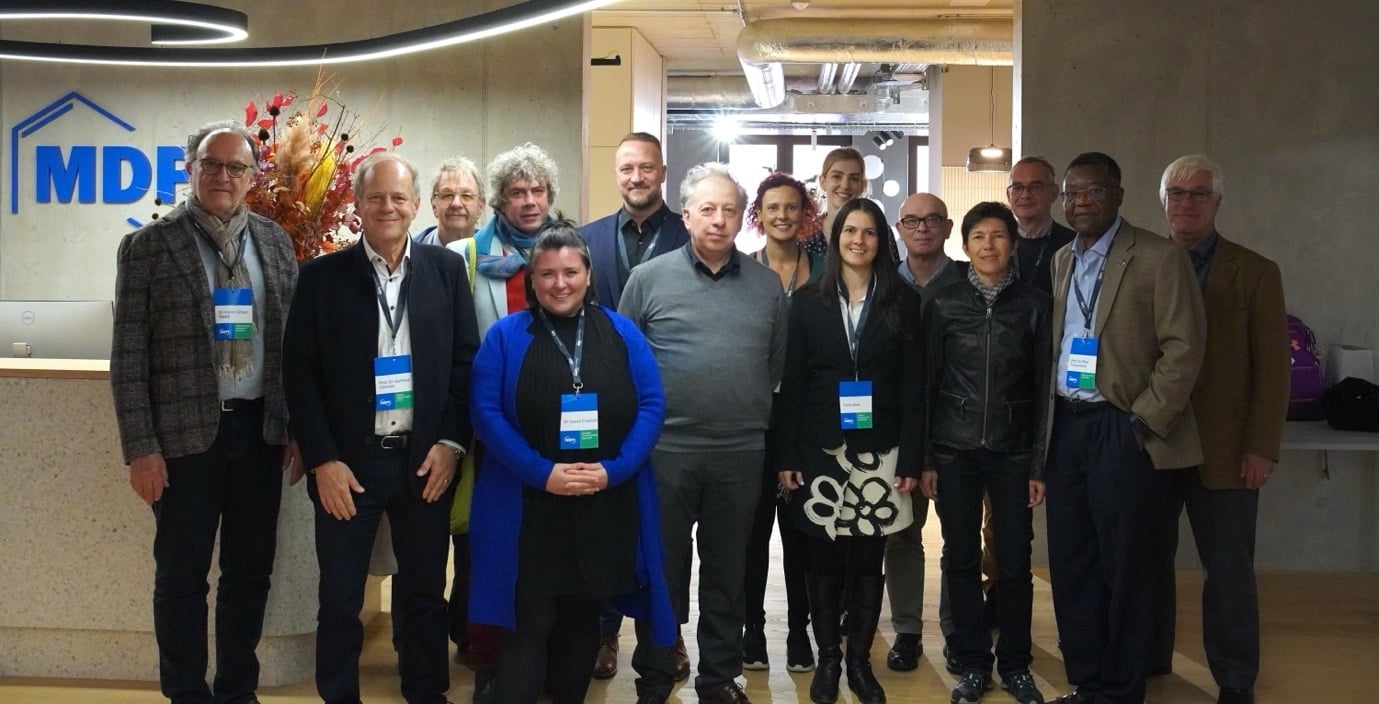
Basel Open Day
On 21 October, we held the Basel Open Day at our headquarters, welcoming a group of journal Editors-in-Chief (EiC) and Editorial Board Members (EBMs) for a full-day workshop. The event featured presentations and discussions on MDPI’s latest editorial updates, data integrity policies, society collaborations, and local market insights.
The following MDPI journals were represented during the visit: Physics, Journal of Personalized Medicine (JPM), Sci, Remote Sensing, Animals, Cells, Buildings, Histories, Sensors, and International Journal of Environmental Research and Public Health (IJERPH).
This was a great opportunity to showcase our new office space while gathering feedback from leading journal stakeholders. To get everyone on the same page, we took 60 minutes for round-table introductions, which helped set a collaborative tone and ground us in MDPI’s mission of disseminating open science.
“This was a great opportunity to gather feedback from leading journal stakeholders”
The general feedback from the day highlighted positive developments around our editorial and ethics policies, as well as areas for improvement, including flexibility regarding reviewer deadlines. There was a genuine appreciation and push for our ongoing efforts to share more about MDPI, including company updates and promoting high-quality research through our blog, announcements, and social media channels, which we have been growing and expanding.
Our Basel Open Day was a positive experience, bringing together key journal stakeholders and gathering insights to guide MDPI’s continued engagement with the academic community. We look forward to hosting future events of this kind and welcoming more scholars to our headquarters in Basel, Switzerland.
Coming Together for Science

ncRNA 2024 Conference in Basel
I am pleased to share that we held Non-coding RNA World 2024: Exploring Mechanisms, Designing Medicines (ICM 2024) in Basel, Switzerland this past 7–9 October.
The three-day event attracted just over 100 attendees, including two Chairs, 10 invited speakers and two keynotes from Prof. Mauro Giacca and Prof. Ling-Ling Chen. Of the presentations on site, there were 35 posters and 44 oral presentations.
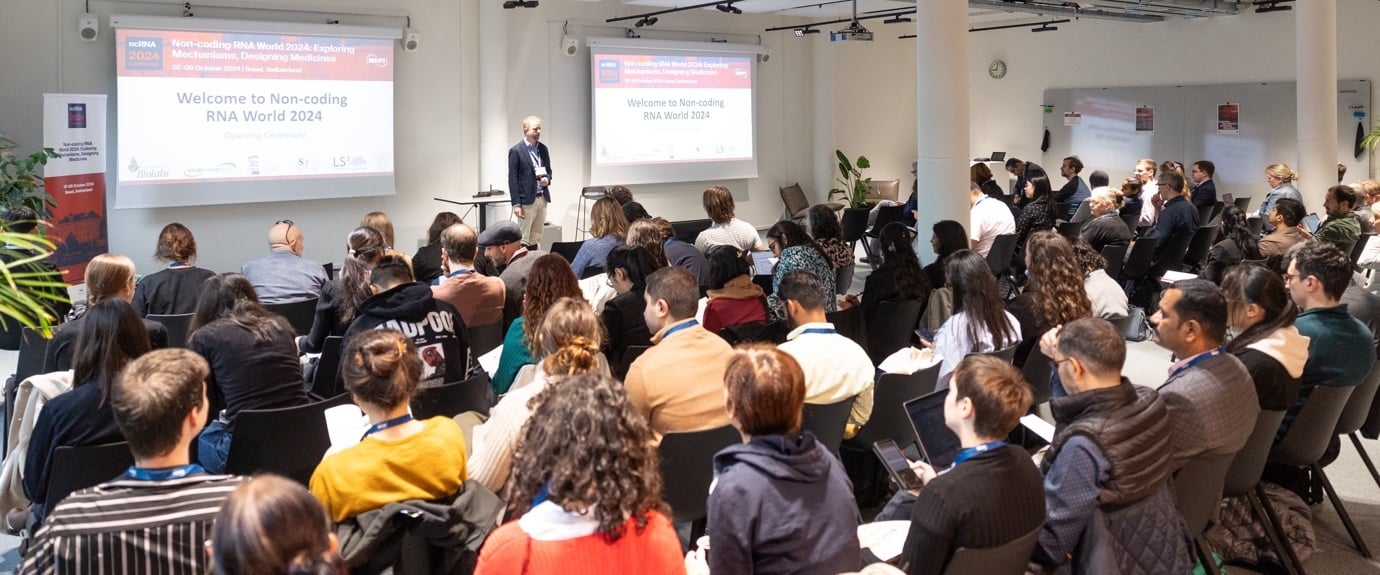
The overall feedback was positive, with people enjoying the intimate event and the unique activities offered, including a guided tour around Basel’s Old Town (a must-see for anyone visiting the city) and a memorable conference dinner.

It was cool to see the winners of the 2024 Nobel Prize in Physiology or Medicine announced during the conference days. This was exciting for attendees, as the winners discovered a new class of RNA molecules (miRNAs). As one invited speaker put it, “It's exciting to be among fellows when something that important for the field is announced.”
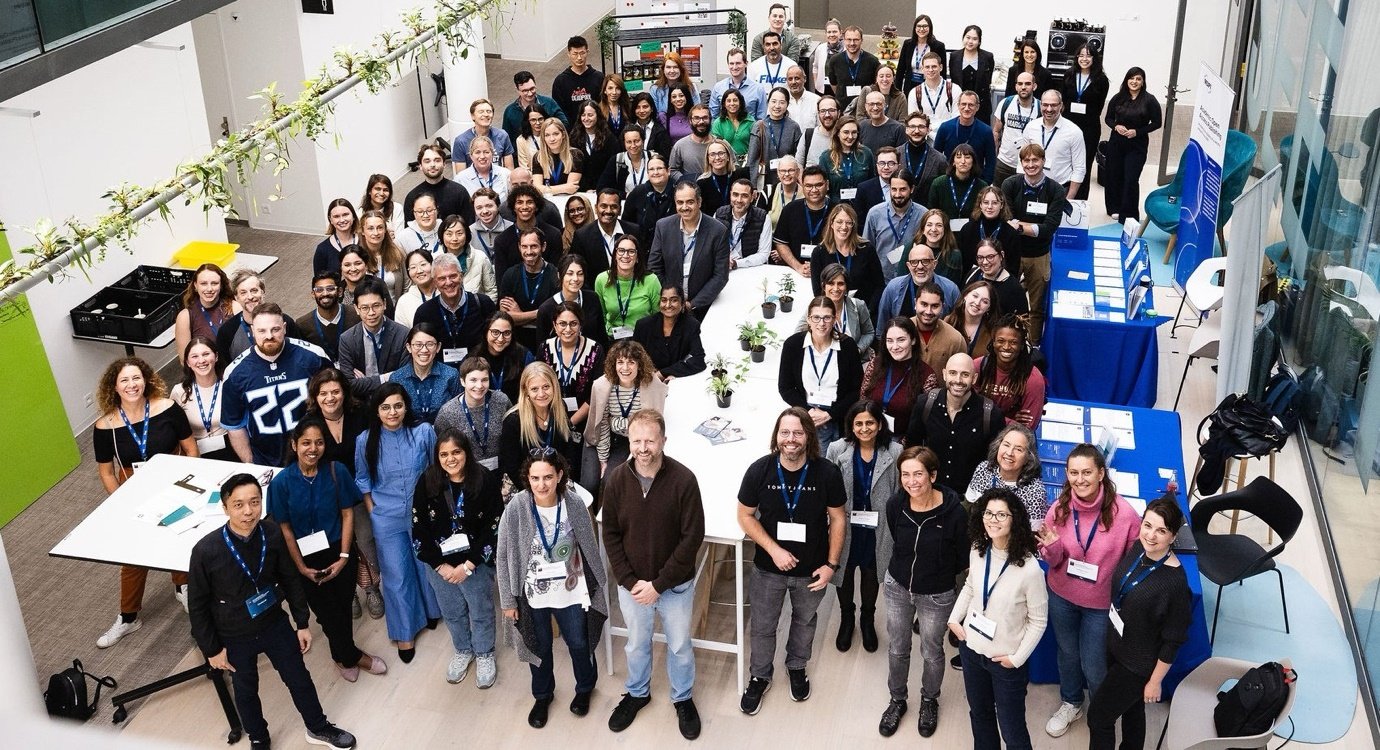
“It's exciting to be among fellows when something that important for the field is announced”
Every attendee receives a conference survey, and I’m always pleased to see a high percentage of ‘Very Satisfied’ responses when asked about ‘treatment from conference personnel’. Kudos to our conference team for meeting our attendees’ needs. These events are a great opportunity for us to reach new audiences, as 92% of the respondents had never been to an MDPI conference, so I am thrilled to see us connecting with a new demographic of your researchers in the RNA field.
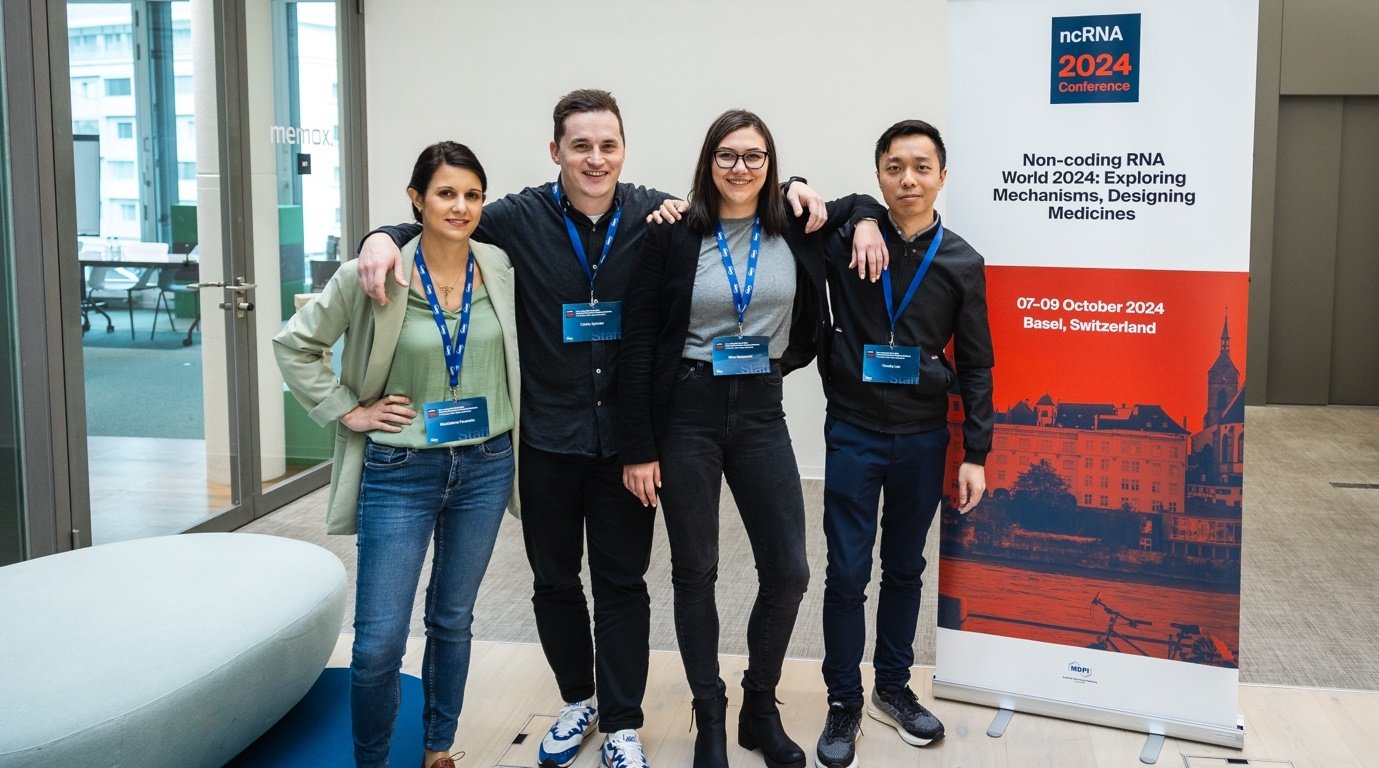
A special thank-you to our partnering societies The Epigenetics Society, The French Society of Genetics, LS2 / USGEB (Union of Swiss Societies for Experimental Biology), and The RNA Biology Group, as well as to our sponsors New England Biolabs and Arraystar for their support of the ncRNA 2024 conference. I am also pleased to report that we presented two awards, including the Best Presentation Award and two Best Poster Award, recognizing the contributions of our participants.
Upcoming In-Person Event
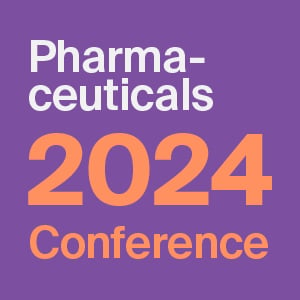
27–29 November 2024
Pharmaceuticals 2024 – Recent Advances in Pharmaceutical Sciences Towards a Healthy Life
Location: Barcelona, Spain
The discovery of new molecules, their properties, and actions to enhance human health and quality of life.
Find more upcoming MDPI events here.
Closing Thoughts
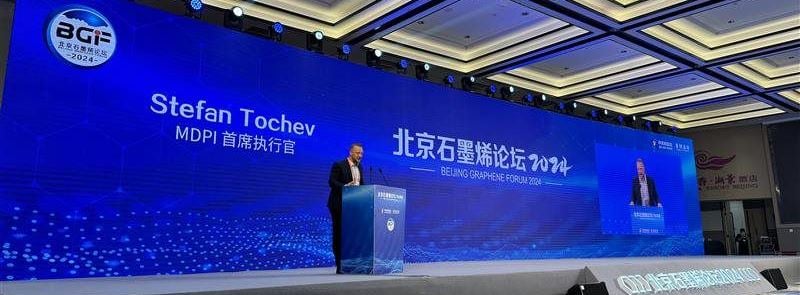
Beijing Graphene Forum 2024
I am pleased to share that we had a successful time at the Beijing Graphene Forum 2024, which drew around 1,000 attendees, including Konstantin Novoselov (2015 Nobel Prize in Physics) and other high-profile scholars in materials science and chemistry. It was a great opportunity to present MDPI on the big stage, with university presidents from institutions such as Peking University also in attendance.
I had the honour of awarding Prof. Zhongfan Liu, Chairman of the Chemical Science Committee, with a medal and presenting certificates to the members of the Chemical Science Committee; this is an important initiative to help expand MDPI’s journals and influence in China. These are highly respected scholars, and we enjoyed connecting with them over lunch as well.
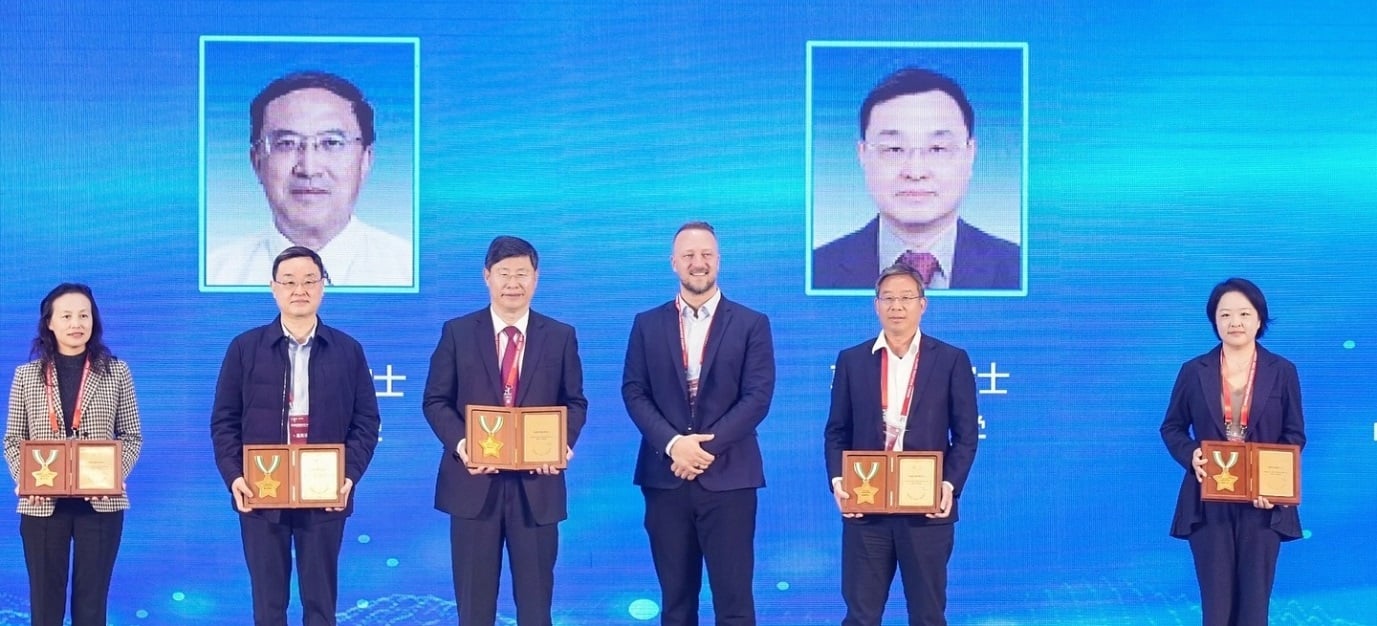
“This is an important initiative to help expand MDPI’s journals and influence in China”
I also had the chance to speak about MDPI and open access, giving a five-minute speech during the opening ceremony and a 20-minute presentation at the close. MDPI hosted a sub-forum where both academic scholars and MDPI members shared insights, and we engaged with attendees at our MDPI booth.
This was a great opportunity to spotlight MDPI as the main publishing partner for the event, and I was proud to represent us on stage. We also met with scholars to discuss topics such as their publishing needs and institutional policies, open access, impact journals, and IOAP.
Chief Executive Officer
MDPI AG
16 October 2024
MDPI's Newly Launched Journals in September 2024
Five new journals covering a diverse range of subjects launched their inaugural issue in September 2024. Like other journals in MDPI’s portfolio, these journals are dedicated to sharing the latest research through open access, reflecting our commitment to making knowledge accessible to all.
We extend our sincere gratitude to the Editorial Board Members for their dedication to the launch and development of our new journals. Each journal will ensure its high-quality output via excellent editorial and rigorous peer-review processes so that the published articles achieve significant impact and broad visibility.
We invite you to explore and learn more about these new journals below.
| Journal | Founding Editor-in-Chief | Journal Topics (Selected) |
| Prof. Dr. Nejat Düzgüneş, University of the Pacific, USA | Editorial | view inaugural issue | biological therapy and stem-cell therapy; drug therapy; chemotherapy; radiation and other nonsurgical therapeutic strategies | view journal scope | submit an article | |
| Prof. Dr. Magda Tsolaki, Greek Federation of Alzheimer’s Disease, Greece; Aristotle University of Thessaloniki, Greece | Editorial | view inaugural issue | surgical/procedural complications; complications; perioperative adverse events; postoperative adverse events | view journal scope | submit an article | |
| Prof. Dr. Steven R. Fassnacht, Colorado State University, USA; Cooperative Institute for Research in the Atmosphere, USA | Editorial | view inaugural issue | ice as a mineral; atmospheric ice; sea ice; freshwater ice; ice sheets; ice caps and ice shelves | view journal scope | submit an article | |
| Dr. Francisco Epelde, Hospital Universitari Parc Tauli, Spain; University Autonoma of Barcelona, Spain | Editorial | view inaugural issue | hospital management; hospital facilities; hospital services; hospital risk management; health law | view journal scope | submit an article | |
| Prof. Dr. Nicola Ferri, University of Padova, Italy | Editorial | view inaugural issue | lipids in cells and whole organisms; lipid structure and function; lipid products and processes; dietary lipids and nutrition | view journal scope | submit an article |
We wish to thank everyone who has supported the development of open access publishing. You are welcome to send an application here or contact the New Journal Committee ([email protected]) if you would like to create more new journals.
4 October 2024
MDPI Webinar | The Science Behind the Prize: 2024 Nobel Physics Roundtable, 8 October 2024

MDPI warmly invites you to participate in our upcoming forum The Science Behind the Prize: 2024 Nobel Physics Roundtable, a celebration of the groundbreaking research shaping the future of physics.
Title: The Science Behind the Prize: 2024 Nobel Physics Roundtable
Date: 8 October 2024
Time: 11:00 a.m.–12:10 p.m. (CEST)
More information available here: https://sciforum.net/event/NPR2024
Coinciding with the announcement of the 2024 Nobel Prize in Physics, this forum underscores the importance of recognizing outstanding achievements that push the boundaries of human knowledge and understanding. It is a valuable opportunity to exchange ideas on the advancements driving scientific progress and to inspire the next generation of gifted physicists.
General topics of discussion for this event will include the following:
- Breakthrough research shaping the future of physics;
- Reflecting on past Nobel-Prize-winning work and its legacy;
- The key trends driving innovation in physics today;
- Exploring the societal and scientific contributions of physics research.
This is a free webinar. After registration, you will receive a confirmation email containing information on how to join the webinar. Registrations with academic institutional email addresses will be prioritized.
Unable to attend? Register anyway and we will let you know when the recording is available for viewing.
Register for free:
Program:
| Agenda | Speaker | Time in CEST |
| Opening Remarks by Host | Host | 11:00–11:05 a.m. |
| Expert Commentary: Breakthroughs and Future Impacts in Physics |
Invited Speakers | 11:05–11:45 a.m. |
| Announcement of Prize Winners | Host | 11:45–11:50 a.m. |
| Reflective Discussion: What the Nobel Prize Means for Science and Society |
Invited Speakers | 11:50 a.m.–12:10 p.m. |
| Closing Remarks | Host | 12:10–12:15 p.m. |
4 October 2024
MDPI INSIGHTS: The CEO's Letter #16 - UNGA79 Science Summit, OASPA, Peer Review Week

Welcome to the MDPI Insights: The CEO's Letter.
In these monthly letters, I will showcase two key aspects of our work at MDPI: our commitment to empowering researchers and our determination to facilitating open scientific exchange.
Opening Thoughts

MDPI Joins the Science Summit at UNGA79 (23–27 September 2024, New York)
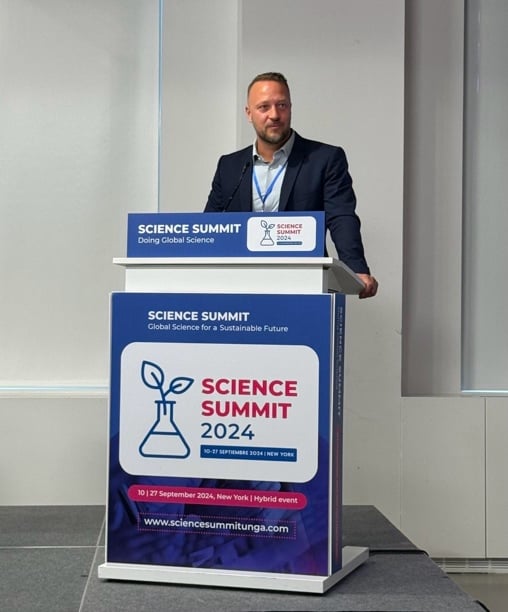
On Friday 27 September, I had the privilege of giving the opening talk at the “Youth at the Science Summit” panel during the Science Summit conference, held in New York at the 79th session of the United Nations General Assembly (UNGA). Together, we discussed the future of science, publishing, innovation, and sustainable development.
It was a great opportunity to learn from our young leaders, whose voices must be included in the conversation as science shapes the future of artificial intelligence, climate mitigation, healthcare, technology, and more. This was also a powerful reminder of how essential global collaboration is in solving the major challenges we face. I left inspired by the dedication of these young researchers to making the world a better place!
Today’s youth are not just the leaders of tomorrow – they are already leading the change today.
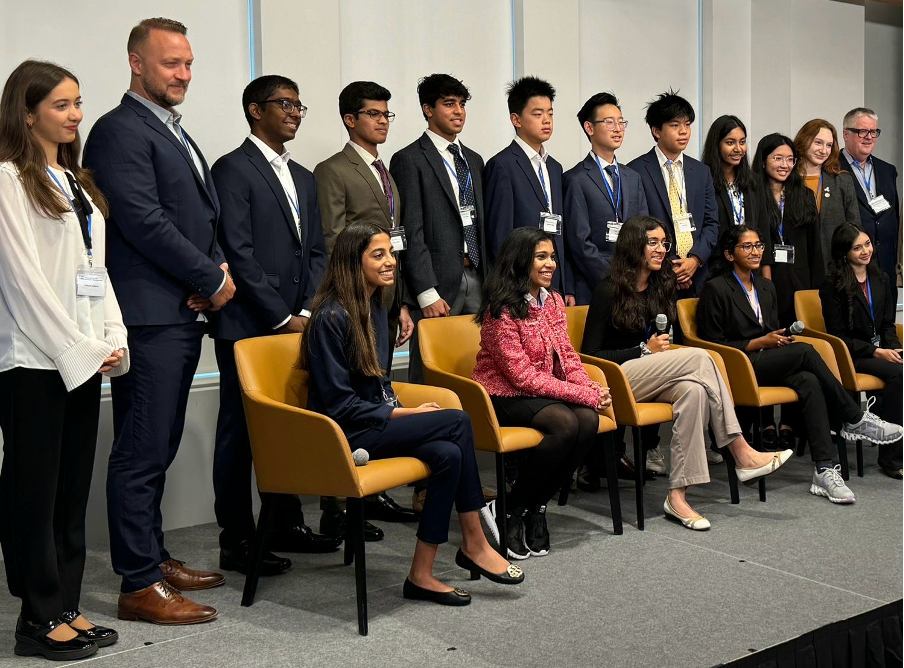
Stefan Tochev (second from left) at the UNGA Science Summit 2024: “A great opportunity to learn from our young leaders.”
MDPI Supports the Future Generation of Scientists
This aligns with MDPI’s mission to support the next generation of scientists and early-career researchers by recognizing their achievements through our various MDPI awards, including the Young Investigator Awards, Best PhD Thesis Awards, Travel Awards, and more.
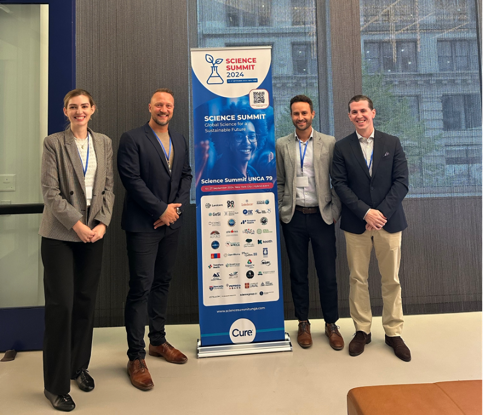
Our presence at this global event showed our commitment to advancing Open Science as a key driver for sustainable development. As a leading Open Access (OA) publisher, MDPI’s role at the summit was to emphasize the critical importance of democratizing scientific knowledge, making it accessible to all, and promoting global collaboration.
Through OA publishing, we aim to address pressing global challenges such as climate change, public health, and inequality, in line with the United Nations Sustainable Development Goals (SDGs).
“We aim to address pressing global challenges”
MDPI and the SDGs
In 2020, the SDG Publishers Compact was launched to accelerate implementation of the SDGs by promoting content that informs, develops, and inspires action. MDPI joined this initiative in 2021 and subsequently launched the MDPI SDG Hub in 2022, offering free access to recent research within the scope of each of the 17 SDGs.
During the summit, we highlighted the connection between Open Science and the SDG Publishers Compact, supporting the core objective to “Leave No One Behind” (LNOB). The transformative promise of the SDGs relies heavily on the Open Access model, which serves as a fundamental enabler of Open Science. We advocate for the wider adoption of Open Science practices in order to achieve the SDGs by 2030.
Impactful Research
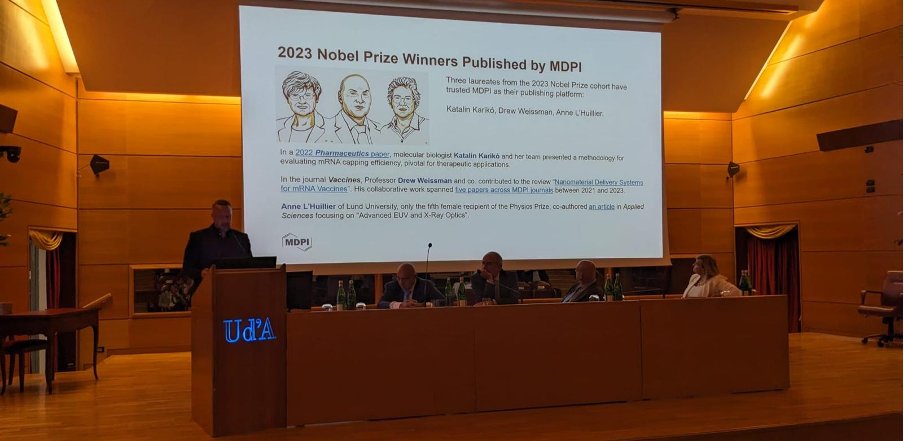
Presenting at the 1st International Conference of Environmental Medicine
In September, MDPI and our journals IJERPH and Diseases sponsored and participated in the 1st International Conference of Environmental Medicine: Environmental Threats to Human Health: From Genetics to Epigenetics, held in Chieti, Italy.
The conference was organized in collaboration with various societies, including the Italian Society of Environmental Medicine (SIMA), one of more than 160 societies partnering MDPI journals.
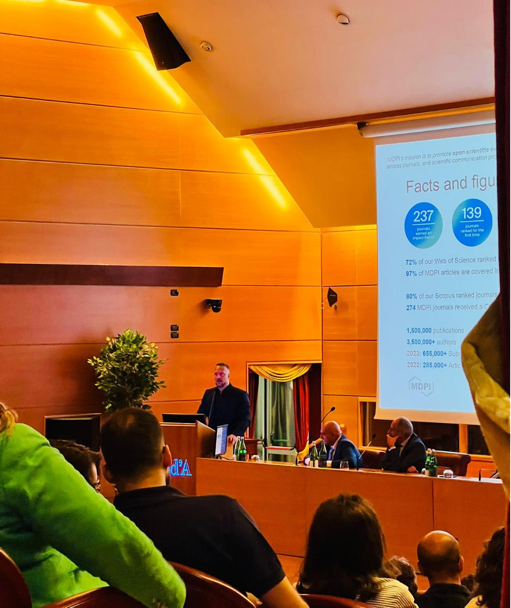
The conference brought together influential figures from the Italian scholarly community, such as Antonio Felice Uricchio (President of the National Agency for University Research Assessment [ANVUR]), Alessandro Miani (President of SIMA), and Liborio Stuppia (Director of ‘Gabriele d’Annunzio’ University of Chieti-Pescara), among others.
MDPI was the sole publishing sponsor of the conference, at which I had the opportunity to present on behalf of the company. I provided an overview of MDPI, covering key facts and figures, the peer-review process, our strong collaboration with the Italian market, and insights into Nobel Prize winners who have published with MDPI, ahead of Sir Richard Roberts’ Nobel lecture.
“As at September 2024, 44 Nobel laureates have contributed to over 115 articles across 35 MDPI journals”

The keynote speaker at the event was Sir Richard Roberts, Nobel Laureate and 1993 Nobel Prize winner in Medicine, recognized for his discovery of split genes.
Nobel Laureates’ Contributions to MDPI
As at September 2024, 44 Nobel laureates have contributed to over 115 articles across 35 MDPI journals. I’ll share more details on this in the October newsletter.
Hosting such prominent figures in their respective fields, who play a significant role in advancing the OA movement, of which we are leaders in, resonates deeply with our editorial teams.
Sponsoring and supporting academic conferences is something we do on a large scale, and it continues to grow. Attending and speaking about MDPI shows our commitment by taking the time to connect with the scholarly community in person.
MDPI’s Presence in Italy
Italy ranks third globally in total MDPI publications, with nearly 130,000 contributions. We collaborate with about 12,000 Editorial Board Members in Italy, over 6,100 of whom have an H-index of more than 25.
We have 83 Editors-in-Chief and 209 Section Editors-in-Chief from Italy. We also support 20 Italian universities through our Institutional Open Access Program (IOAP) agreements with major institutions such as Sapienza University of Rome, the University of Milan, and the University of Pisa, among others.
Inside MDPI

Celebrating Peer Review Week, 23–27 September 2024
As we conclude another productive month at MDPI, I am pleased to highlight our participation in this year’s Peer Review Week (PRW), which took place from 23–27 September 2024. This global, community-driven celebration underscores the vital importance of peer review in maintaining the integrity and reliability of academic work. PRW provide a platform for institutions, publishers, and scholars to come together and reflect on the processes that uphold the quality of scholarly communication.
“We remain committed to enhancing the peer review process”
The theme for PRW 2024 was ‘Innovation and Technology in Peer Review.’ At MDPI, we were proud to contribute through various online and in-person events, including webinars from Europe, Asia-Pacific, and a roundtable discussion on innovation and technology in peer review. These events offer an opportunity to explore new tools and technologies that are shaping the future of peer review, particularly the integration of AI. As a company, we remain committed to enhancing the peer review process with innovative solutions while preserving the essential human expertise that makes it effective.
Peer Review Innovation and Technology at MDPI
Our efforts to improve peer review extend beyond the activities of this week. We also released a blog article discussing New Tools for Advancing Research Integrity and Peer Review, where we highlight two tools that MDPI has developed to support research integrity: Eureka – Reviewer Recommender and Online Proofreader. We are continually refining SuSy, our in-house submission system, to provide a seamless experience for authors and reviewers alike.
Listening to MDPI’s Authors and Reviewers
We highly value the time of our reviewers, and so do the authors who contribute to our journals. Our editorial process is bolstered by a network of dedicated reviewers, a team of over 6,000 diligent, well-trained staff members, and an in-house article submission platform designed to ensure efficient processes.
We make it a point to continually improve the experiences of both our authors and our reviewers throughout the entire editorial process, from submission to publication. This is why we regularly ask for feedback by conducting surveys. Here is what some of our respondents recently had to say about working with MDPI:
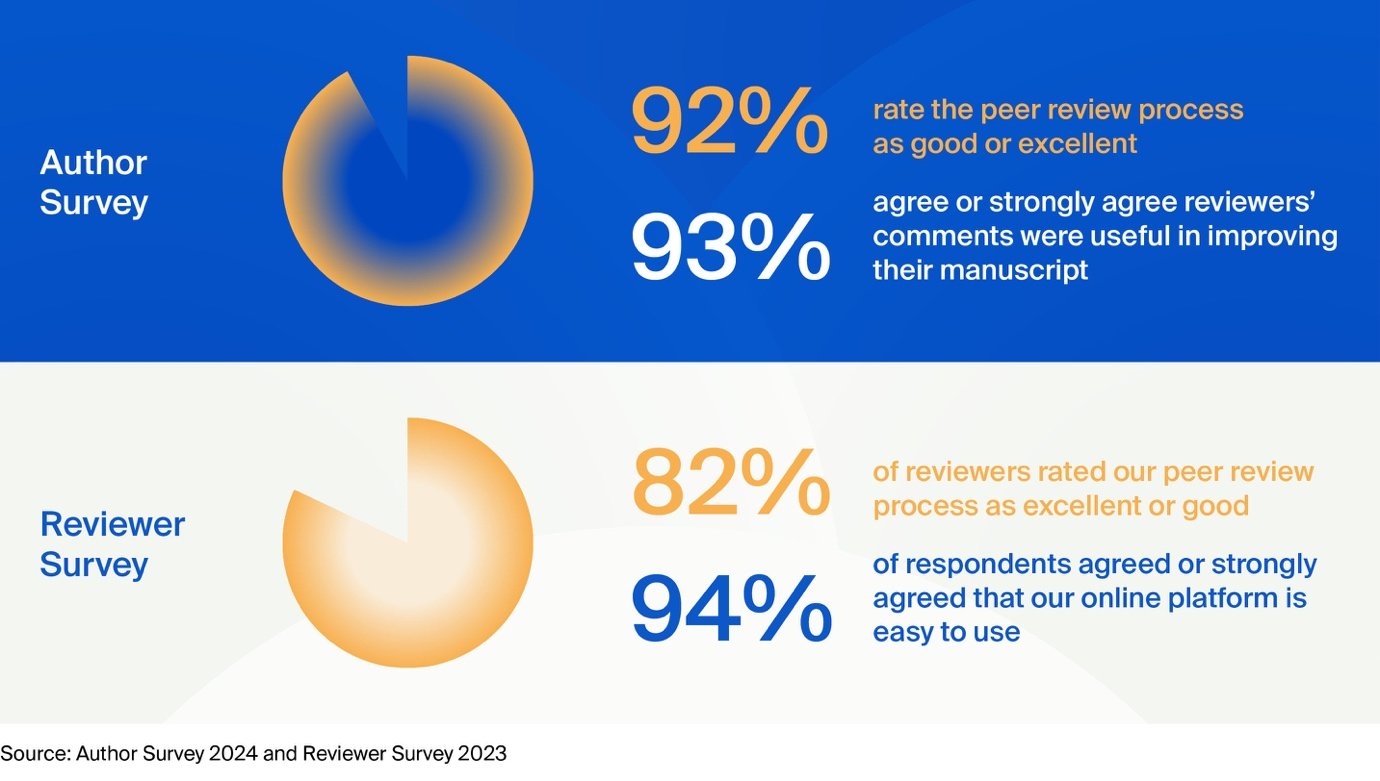
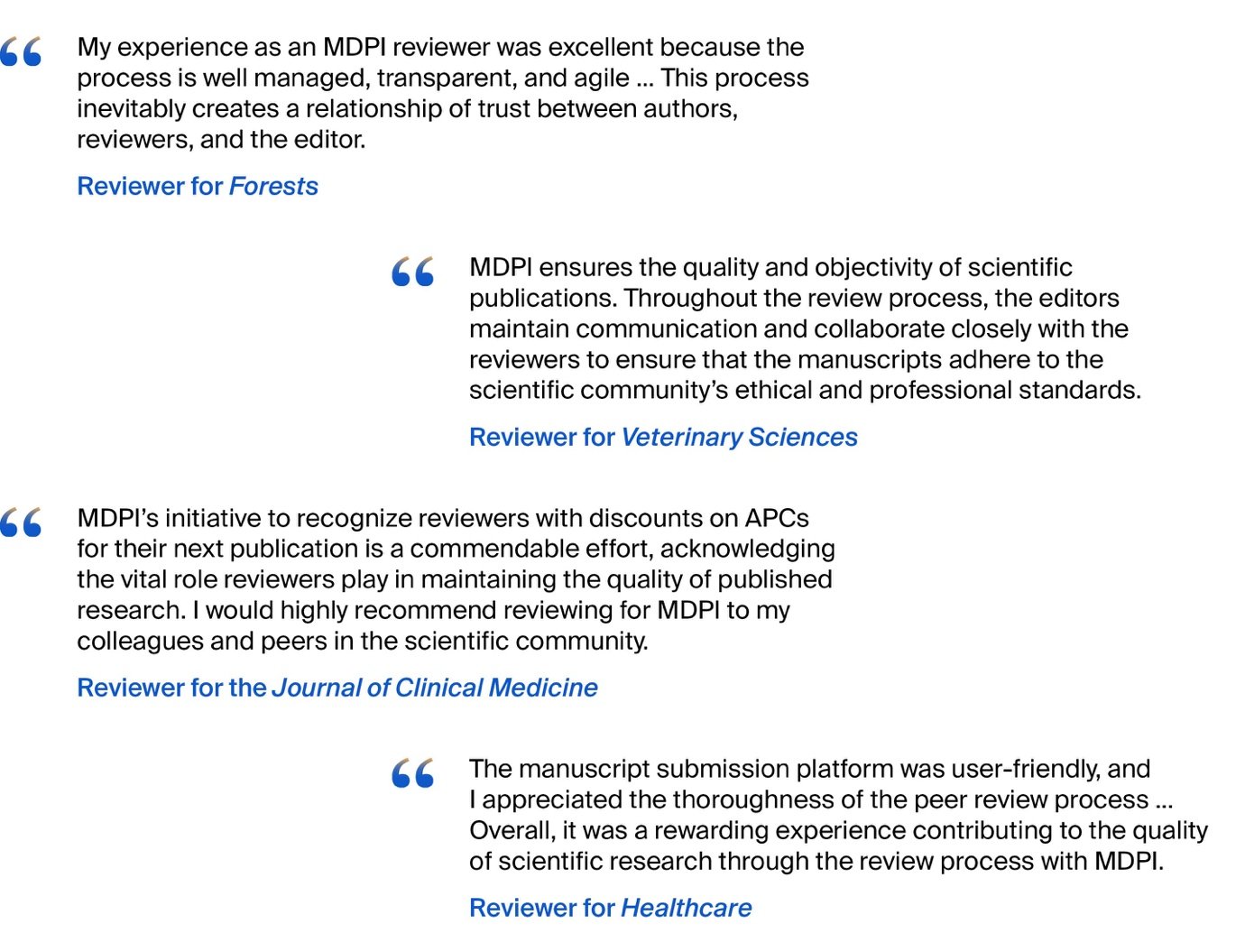
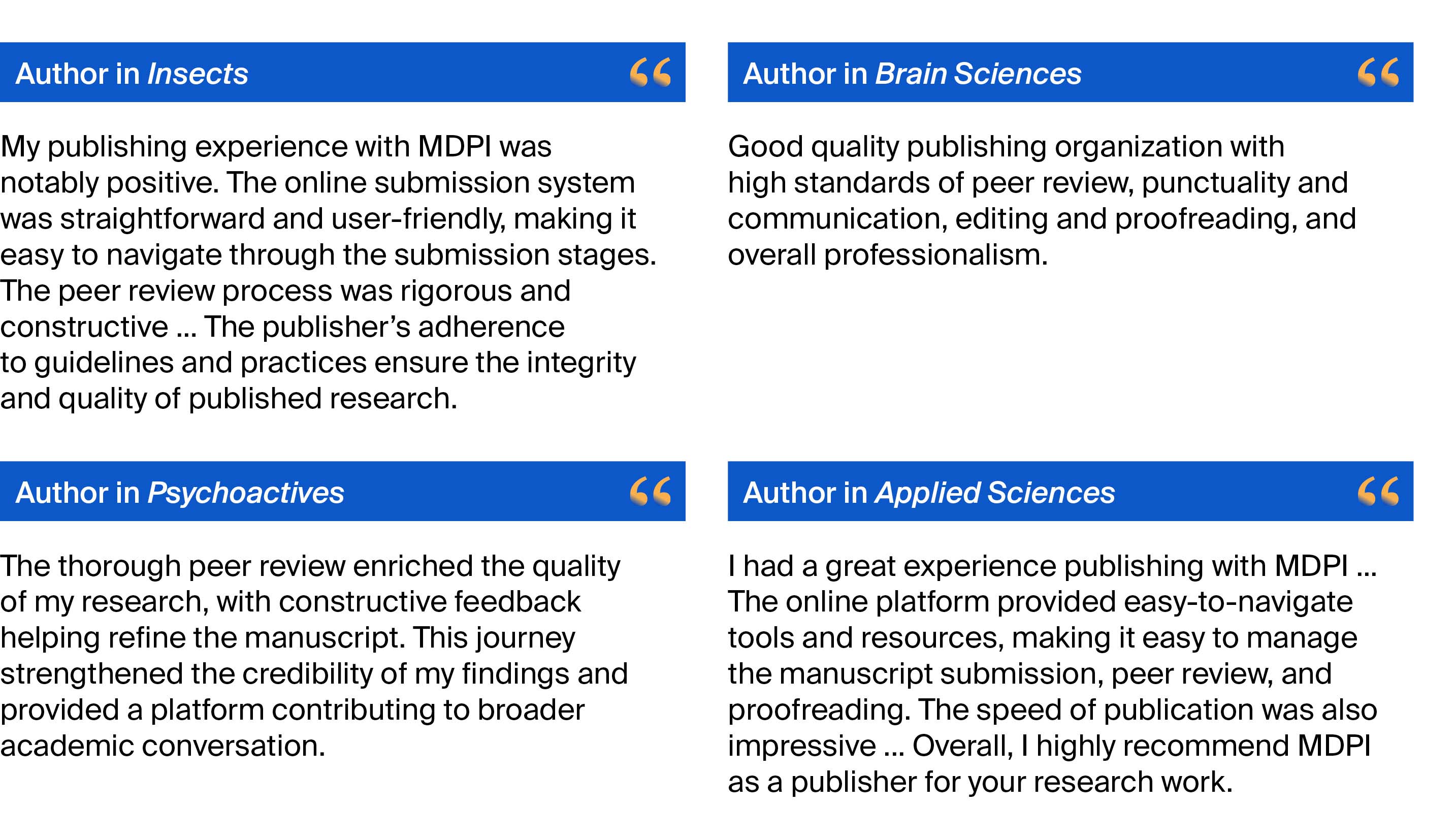
Coming Together for Science

ICM 2024 – Advances in Material Innovation
I am pleased to share that we held The 5th International Conference on Materials: Advances in Material Innovation (ICM 2024) in Basel, Switzerland this past 25–27 September.
This intimate event brought together leading scientists, researchers, and industry experts to exchange insights on recent advancements in materials characterization, processing, and manufacturing. Key focus areas included nanotechnology in material sciences and engineering, optical, electrical, and magnetic materials, soft, biological, and biomaterials, fibres, membranes, thin films, sensing materials, as well as materials and devices for energy and solar fuels. In addition, discussions featured the integration of AI and machine learning in materials research.
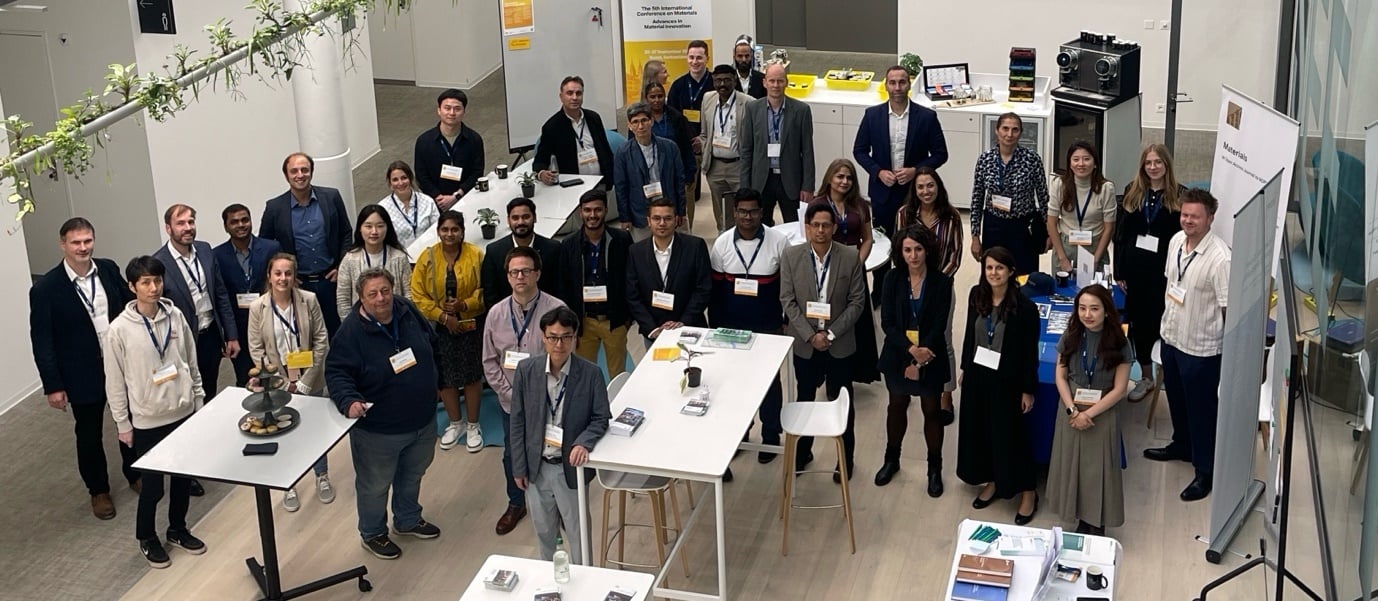
We received 90 abstract submissions. Over the course of the three-day event, 18 posters were displayed, and 34 talks were delivered, including three plenary speeches, seven invited talks, and 24 selected oral presentations.
A special thank-you to our partnering societies The Polish Membrane Society and The North American Thermal Analysis Society, as well as our sponsor, Nanomegas, for their support of the ICM conference. I am also pleased to share that we presented three awards, including the Best Presentation Award and two Best Poster Awards, recognizing the outstanding contributions of our participants.
Upcoming In-Person Event
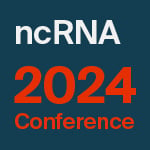
7–9 October 2024
Non-coding RNA World 2024: Exploring Mechanisms, Designing Medicines
Location: Basel, Switzerland
ncRNA 2024 will explore the latest advances in the field, covering topics from basic biology to medical and technological applications.
Find more upcoming MDPI events here.
Closing Thoughts
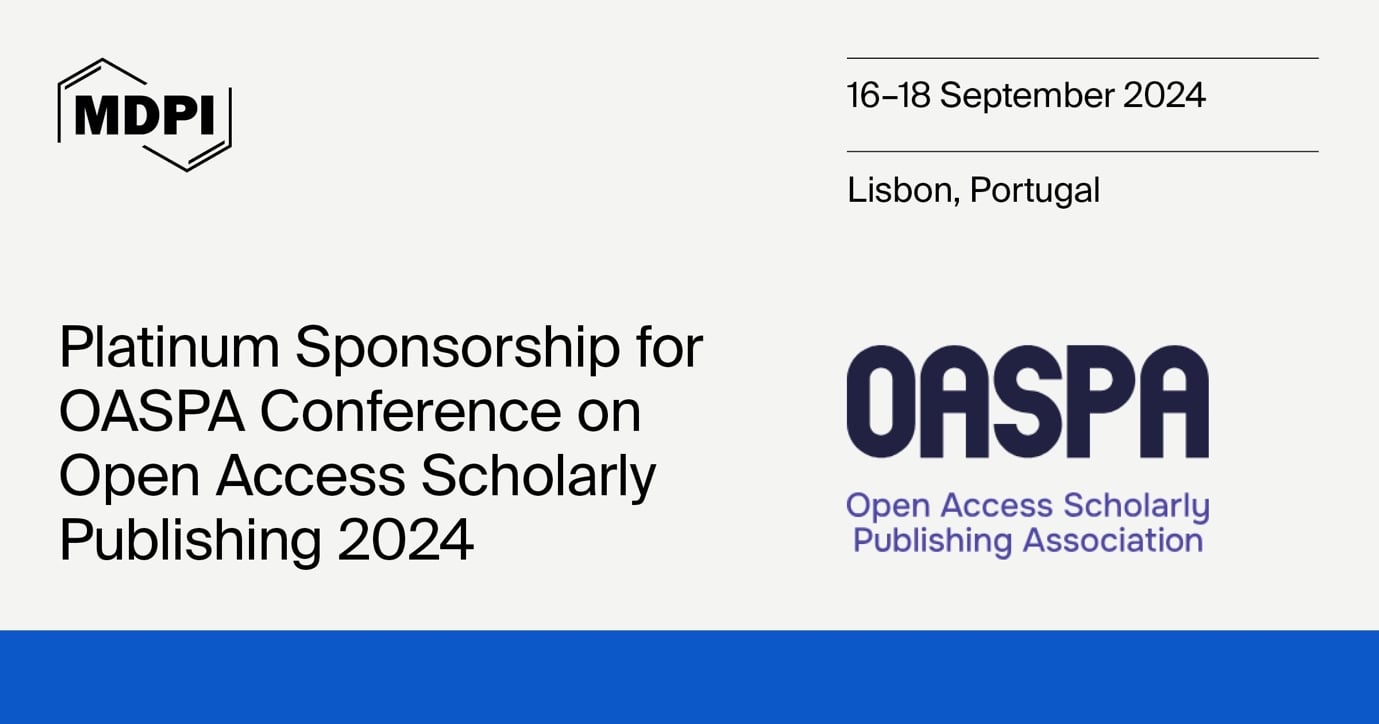
Reflections from OASPA 2024 Conference in Lisbon (16–18 September)
Amidst my September travels, I also had pleasure of attending the OASPA 2024 Conference in Lisbon from 16–18 September. It’s the first in-person Open Access Scholarly Publishing Association (OASPA) event in five years, and being in the sunny city of Lisbon made it even better! MDPI has long been a member of OASPA, and attending this conference gave us an opportunity to connect with other key members of the organization to see the latest developments in the OA movement.
“I believe that publishers have a lot to offer in terms of data and insights”
Main Themes from OASPA 2024
The main themes covered were equity and inclusivity, diamond OA, AI and openness, OA books, research integrity, and how OA can address broader societal challenges such as climate change. While it was great to see the latest developments in these areas, it was also clear that certain voices were missing, particularly those of major publishers. Although it’s not easy to incorporate every perspective, I believe that publishers, including MDPI, have a lot to offer in terms of data and insights. During the membership meeting, a few of us raised the point that large-scale publisher input could add value to these discussions.
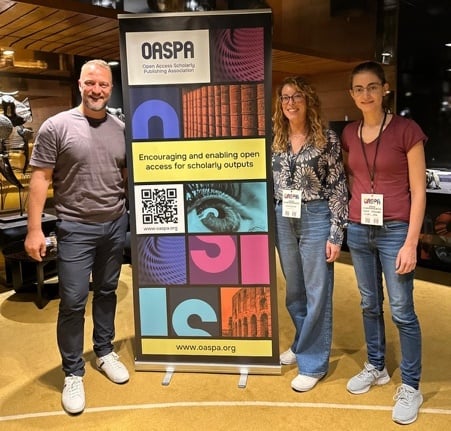
It’s important to participate in industry conferences such as OASPA in order to be part of the discussions and remain at the forefront of the OA movement.
It’s an opportunity to build meaningful relationships with organizations that share our commitment to OA.
While sponsorship is one way to show our support, it’s clear that being part of the conversation through participating in the OASPA groups and committee is what really makes a difference.
It took the last 20 years for more than 50% of the world's research to be published via open access. This provides a sobering reminder that flipping the remaining 50% will be a big challenge.
An important takeaway for me was that there is no "one-size-fits-all" solution for OA challenges: different regions and different stakeholders need different forms of support, whether it is infrastructure, funding, education, or policy, for example. I also enjoyed Rebecca Ross' presentation on how OA can drive action on climate. A few panellists shared the need for transparency in the peer-review process, advocating for open review reports, which is something we have been offering since 2014.
Speaking of openness, we are excited to celebrate Open Access Week 2024 with the scholarly community from 21–27 October. I look forward to sharing a recap of our activities in the next newsletter.
Chief Executive Officer
MDPI AG
1 October 2024
Meet Us at the 2024 MRS Fall Meeting & Exhibit, 1–6 December 2024, Boston, USA

In the vibrant landscape of global materials science research, our company stands proud to announce our participation in the esteemed 2024 MRS Fall Meeting & Exhibit. This pinnacle international gathering, held annually, returns to the culturally vibrant city of Boston, Massachusetts, from 1 to 6 December 2024, at the iconic Hynes Convention Center and its adjacent Sheraton Boston Hotel.
Marking the fifth collaboration between MDPI and the MRS Society, we bring forth a formidable team led by Dr. Andy Tran and Ms. Rebekah Paget. Together, they will be at Booth #200, showcasing the pinnacle of the latest publications in the field and the insights of open access publishing.
Beyond the exhibition, we are eager to engage in collaborative dialogues with fellow researchers, industry leaders, and policymakers. Through panel discussions, workshops, and networking sessions, we aim to foster cross-disciplinary partnerships that can accelerate the pace of scientific discovery and technological innovation.
As we prepare to embark on this exciting journey, we are humbled by the opportunity to contribute to the global discourse on materials science and its impact on society. We believe that by sharing our knowledge, expertise, and passion, we can inspire others to join us in shaping a brighter, more sustainable future.
Join us in Boston as we embark on this journey of discovery and innovation together.
29 September 2024
MDPI New Journal Proposal—Invitation to Shape the Future of Open Science Together

As a leader in open access publishing, MDPI is eager to explore new collaboration opportunities, including the launch of new journals and the transfer of existing ones. At present, MDPI publishes over 400 journals, more than 160 of which have established partnerships with academic organizations. Additionally, we publish 19 association journals.
In order to enhance exchange and cooperation with scientific researchers and share the results of open science, MDPI invites experts and scholars from various fields to submit proposals for new journal collaboration opportunities. If your proposal is approved, you could take on the role of Editor-in-Chief, Deputy Editor-in-Chief, or Editorial Board Member of the journal. This position allows you to manage the manuscript review process alongside our editorial department, participate in calls for papers, strengthen your network with scholars in the field, expand scientific research cooperation, enhance your personal and academic influence internationally, and play a leading role in academia.
Once the new journal is online, MDPI will provide a variety of promotional channels to market the journal internationally.
MDPI will offer various promotional channels to enhance its visibility and promote it internationally.
How can you determine the theme of a new journal?
- Assess research hotspots/academic frontiers;
- Assess pioneers in the field/key research directions of universities;
- Determine whether MDPI has already established a journal in the field.
You can browse MDPI’s existing journals at the following link: https://www.mdpi.com/about/journals.
Advantages of collaborating with MDPI:
- MDPI is a global leader in open-access publishing with extensive academic resources.
- MDPI offers a professional publishing team that provides comprehensive support throughout the publishing process.
- MDPI’s diverse promotional platforms and channels help journals quickly increase their international visibility and influence.
We invite you to submit new journal proposal here, and contribute to academic development! In addition, if your institution (university, institute, college, national key laboratory, society, etc.) intends to establish a journal, you can also submit a draft to MDPI on its behalf.
27 September 2024
MDPI’s 2023 Travel Awards—Winners Announced

MDPI journals frequently grant travel awards to empower junior researchers to showcase their latest research at academic conferences, thereby amplifying their impact within their research fields.
We extend our heartfelt congratulations to the 103 recipients of MDPI's 2023 Travel Awards from different countries and territories for their exceptional presentations. These outstanding individuals were selected by the journal editors based on the strength of their research proposals and the anticipated impact of their presentations at academic conferences. We commend their exceptional contributions and wish them continued success in their academic endeavors.
MDPI will continue to provide support and recognition to the academic community. To learn more about the list of awardees, please visit the following pages:
- Biology and Life Sciences;
- Chemistry and Materials Sciences;
- Engineering;
- Environmental and Earth Sciences;
- Medicine and Pharmacology;
- Public Health and Healthcare;
- Others.
About MDPI Awards:
To reward the academic community, especially young researchers, and enhance communication among scientists, MDPI journals regularly offer various awards to researchers in specific fields. These awards, serving as a source of inspiration and recognition, help raise the influence of talented individuals who have been credited with outstanding achievements and are making a significant contribution to the advancement of their fields.
To explore more MDPI awards, please click here.
11 September 2024
MDPI’s 2023 Best PhD Thesis Awards—Winners Announced

MDPI’s Best PhD Thesis Awards are granted to promising young scholars whose PhD theses are deemed exceptional within their respective research fields. These awards aim to encourage young scholars to continue their outstanding accomplishments and further contribute to their field.
We extend our heartfelt congratulations to the 54 winners of the 2023 Best PhD Thesis Awards and wish them success with their future research endeavors.
MDPI will continue to provide support and recognition to the academic community. To learn more about all the awardees and their research projects in your field of study, please visit the following pages:
About MDPI Awards:
To reward the academic community, especially young researchers, and enhance communication among scientists, MDPI journals regularly offer various awards to researchers in specific fields. These awards, serving as a source of inspiration and recognition, help raise the influence of talented individuals who have been credited with outstanding achievements and are making a significant contribution to the advancement of their fields.
To explore more MDPI awards, please click here.
3 September 2024
MDPI INSIGHTS: The CEO's Letter #15 - CHORUS, Best Paper Award, August Events

Welcome to the MDPI Insights: The CEO's Letter.
In these monthly letters, I will showcase two key aspects of our work at MDPI: our commitment to empowering researchers and our determination to facilitating open scientific exchange.
Opening Thoughts
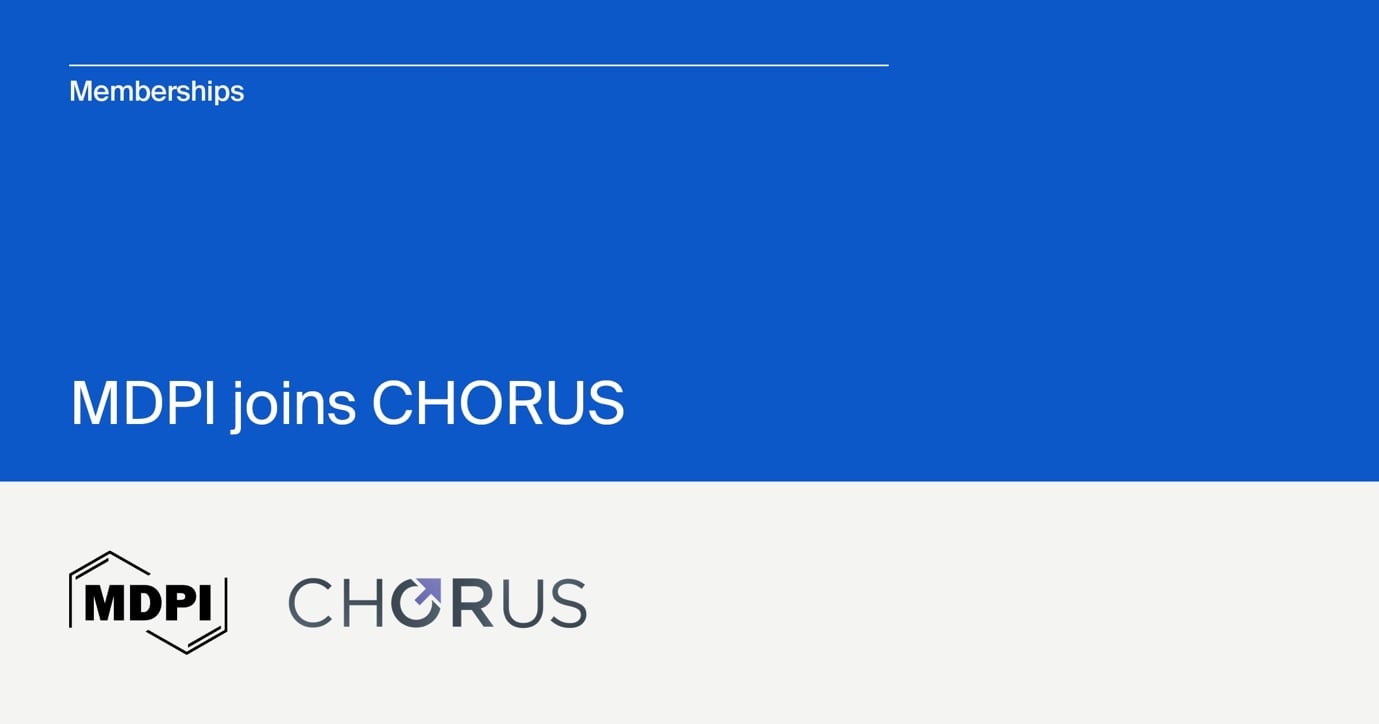
I am pleased to share that MDPI is now an Affiliate Member of CHORUS, a not-for-profit organization dedicated to ensuring public access to articles reporting on U.S. government-funded research. This partnership highlights our long-standing commitment to advancing Open Access (OA) publishing and meeting funders’ open research requirements.
Read the full announcement here.
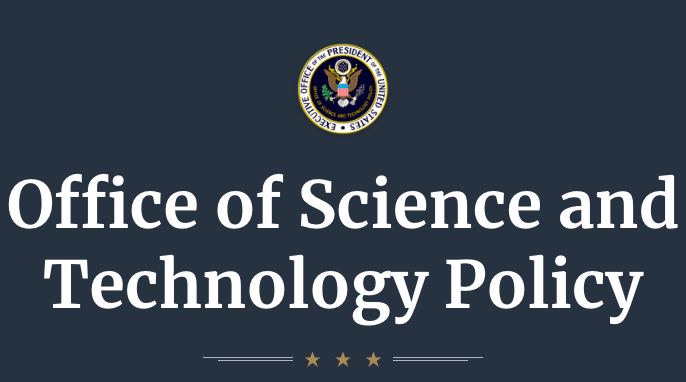
With the White House Office of Science and Technology Policy (OSTP) 2022 memorandum calling for immediate public access to all federally funded research by 2026, this partnership positions MDPI to further support academic institutions in adhering to national mandates while providing authors with fully compliant (CC-BY) OA journals.
The CHORUS platform went live in July 2014 and includes NASA, the U.S. Department of Energy, the U.S. Department of Defense, the U.S. Geological Survey, and the National Science Foundation.
“This partnership positions MDPI to further support academic institutions in adhering to national mandates”
Joining CHORUS perfectly aligns our mission as the leading OA publisher, which is to drive transparency and innovation in scholarly publishing, with that of CHORUS itself, which is to advance Open Access research. It will also support MDPI publications from organizations such as NASA, with 1,200 research papers published by NASA-affiliated authors as at 31 August 2024.
Impactful Research
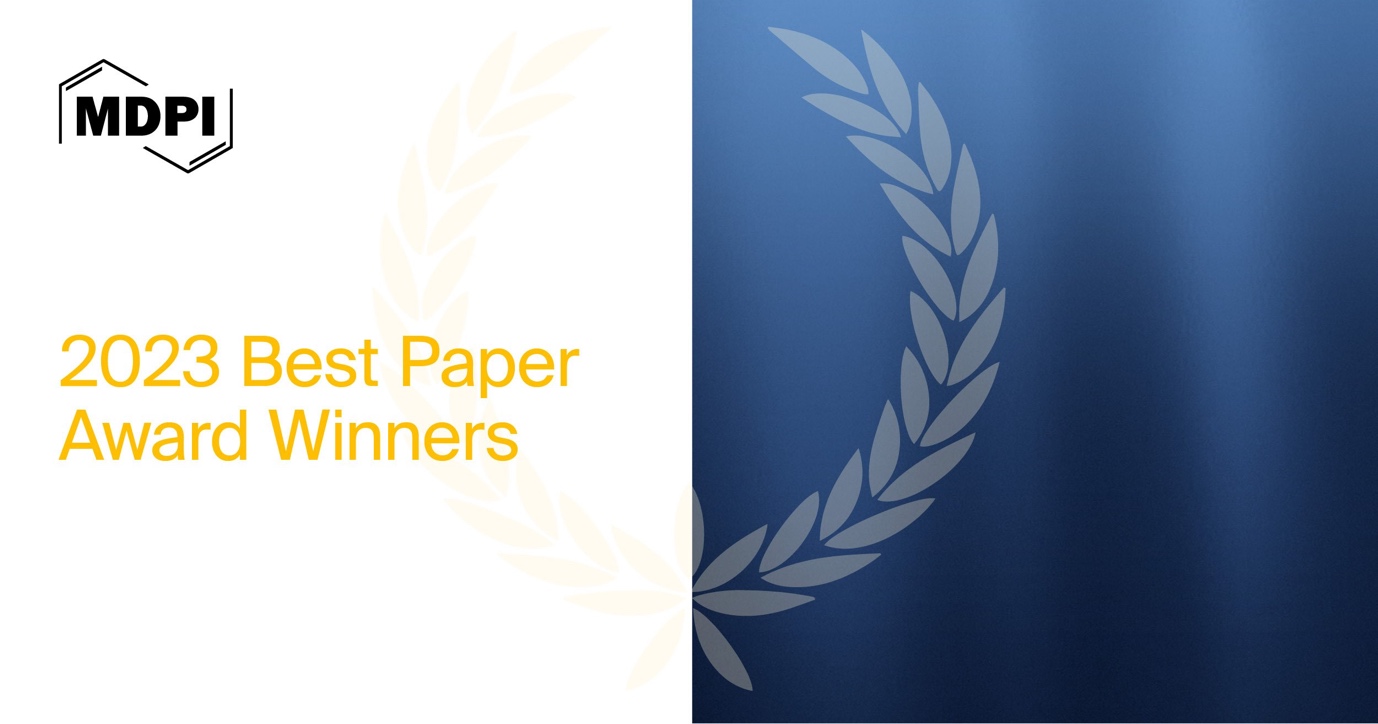
MDPI’s Best Paper Awards—Award-Winning Papers in 2023 Announced
MDPI is committed to supporting and recognizing the academic community and is proud to announce the recipients of the 2023 Best Paper Awards, which recognize high-quality papers of significant scientific merit and impact. Each year, the editors of our journals carefully select papers that showcase outstanding scientific achievement.
This year, 115 Best Paper Awards were presented, chosen from 346 exceptional papers in a highly competitive selection process. Congratulations to the authors for their remarkable contributions!
To learn more about all the awardees and their research projects, visit the following pages:
- Biology and Life Sciences
- Business and Economics
- Chemistry and Materials Sciences
- Computer Sciences and Mathematics
- Engineering
- Environmental and Earth Sciences
- Medicine and Pharmacology
- Public Health and Healthcare
- Social Sciences, Arts and Humanities
- Physical Sciences
About MDPI Awards
MDPI regularly offers various awards to recognize researchers, particularly young scientists, and to promote communication within the scientific community. These awards exist to inspire and acknowledge talented scientists who have made significant contributions to advancing their fields.
To find out more MDPI awards, please click here.
“Our awards exist to inspire and acknowledge talented scientists”
Inside MDPI
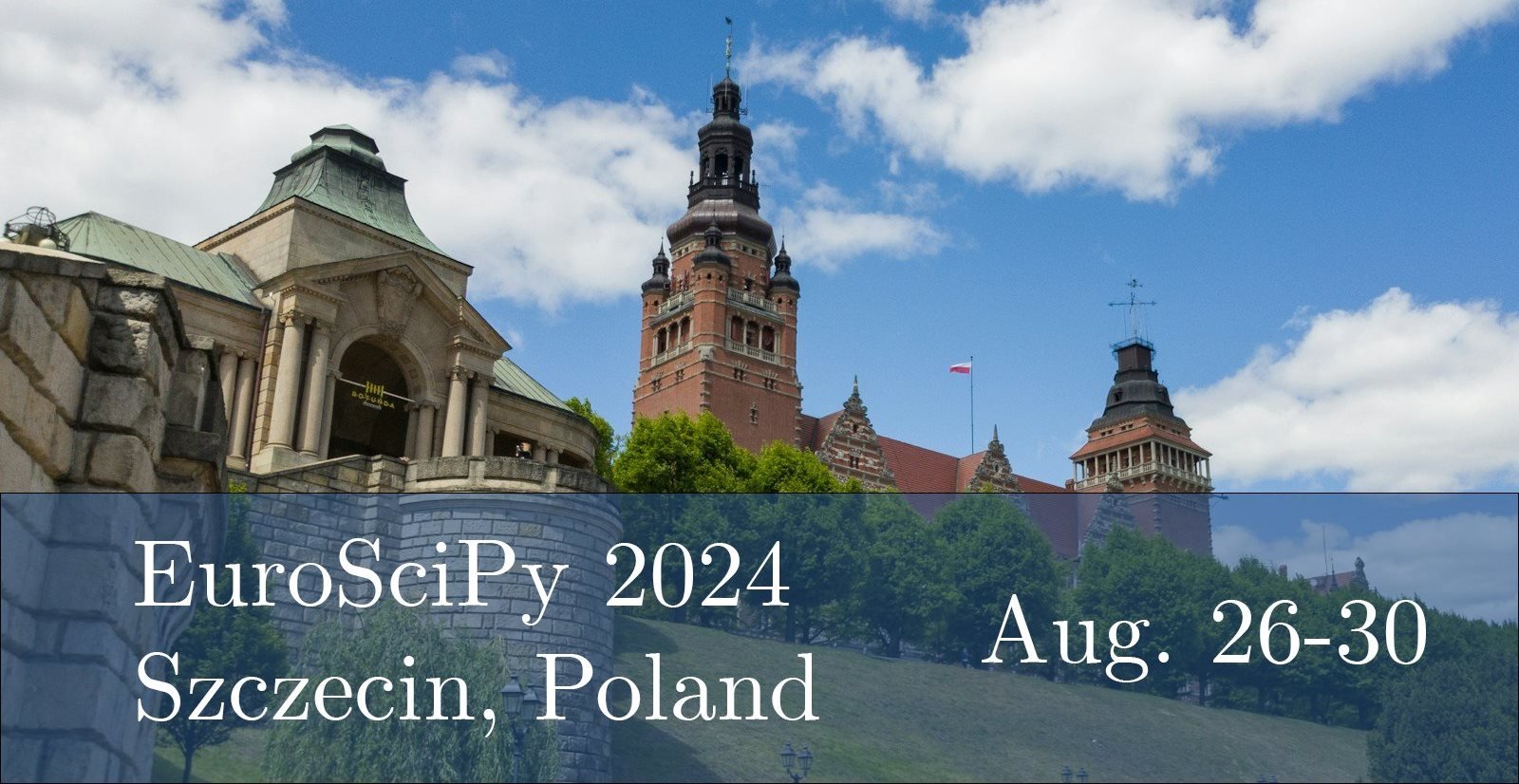
MDPI AI Team Presented at EuroSciPy 2024 in Poland
As part of the CEO Letter, I hold dear this ‘Inside MDPI’ section, where I have an opportunity to highlight various projects, teams and updates within our organization. As such, I’m happy to showcase the following presentations from members of MDPI’s Artificial Intelligence (AI) team, which were recently presented at the EuroSciPy 2024 (16th European Conference on Python in Science). This conference took place in Szczecin, Poland from 26–30 August.
“This event was a great opportunity to reinforce our commitment to innovation and excellence in publishing”
MDPI colleagues Frank Sauerburger (AI Tech Leader) and Daniele Raimondi (Senior Data Scientist) both presented at the conference. Frank discussed MDPI’s AI infrastructure, while Daniele showcased a new methodological approach we have been developing to track the journey of rejected academic manuscripts. This approach combines AI, data science and analytics to improve the identification of manuscripts and authors, enhancing our understanding of publishing dynamics.
This event was a great opportunity to reinforce our commitment to innovation and excellence in publishing. It also allowed us to contribute to the academic discussion on integrating AI and data science into scholarly communication.
From data analysis in Jupyter Notebooks to production applications: AI infrastructure at reasonable scale – Frank Sauerburger
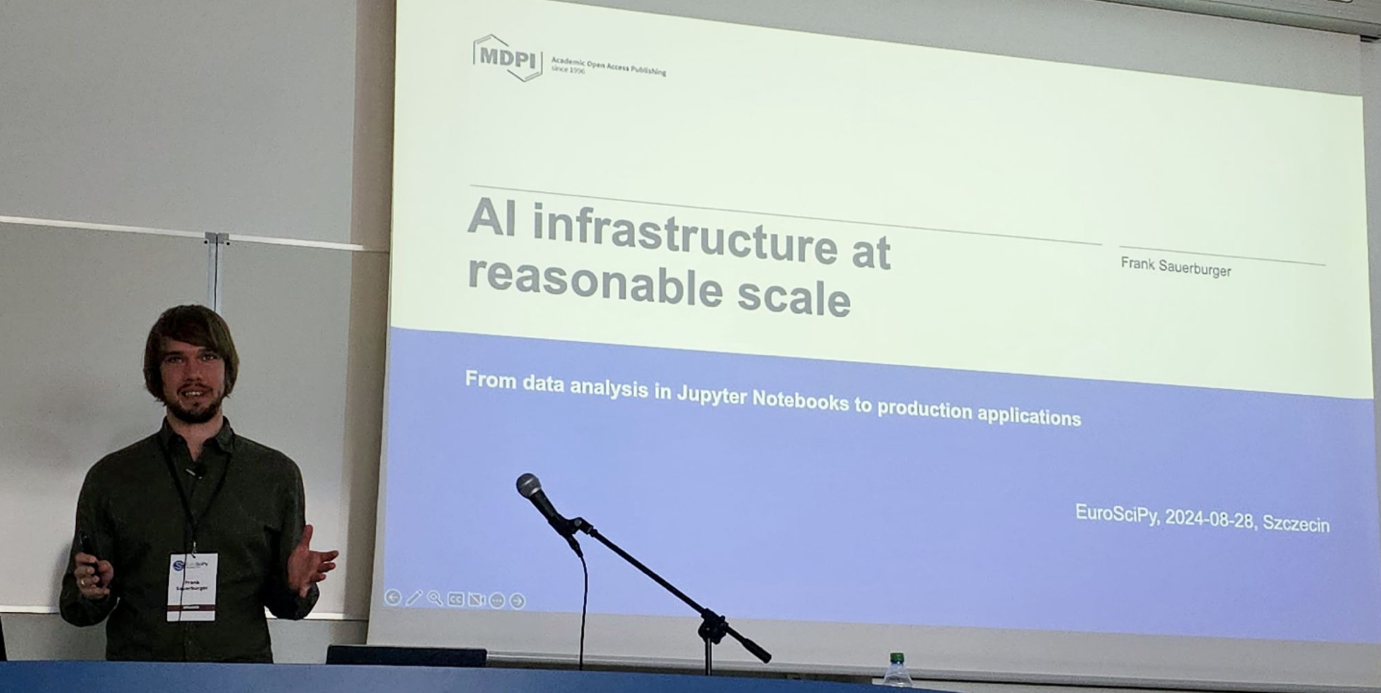
Frank’s presentation on MDPI’s AI infrastructure provided a chance to showcase the advanced technological frameworks that power our operations. Given the technical and academic focus of EuroSciPy, this talk demonstrated how MDPI’s AI capabilities are not only cutting-edge but also central to driving efficiency and innovation in scholarly publishing. Engaging with the EuroSciPy community helps position MDPI as a leader in applying AI within the publishing industry, fostering potential collaborations and attracting interest from top researchers.
A Qdrant and Specter2 framework for tracking resubmissions of rejected manuscripts in academia – Daniele Raimondi
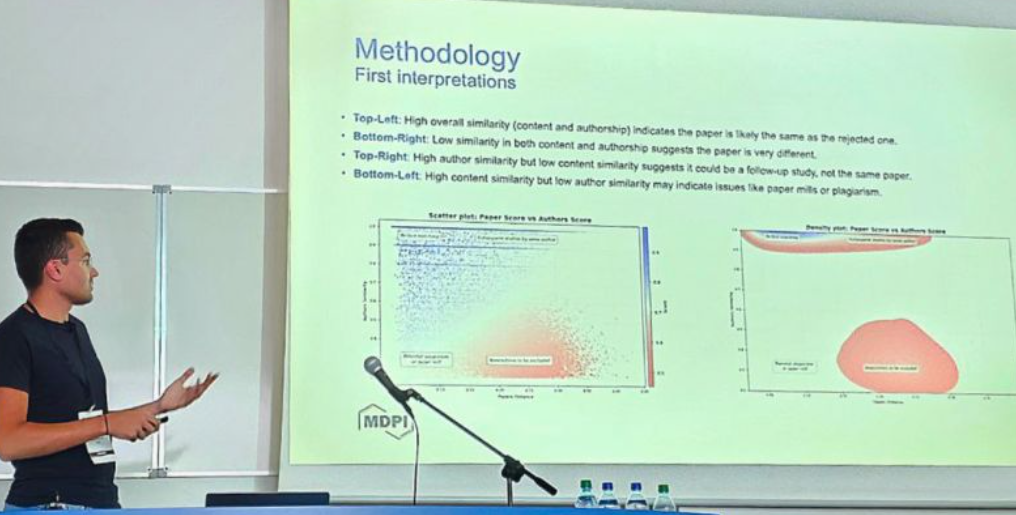
Daniele’s talk on the novel methodological approach that combines AI, Data Science, and Analytics was crucial in highlighting how MDPI is advancing the precision and effectiveness of manuscript and author identification. This approach is pivotal in enhancing our understanding of publishing dynamics and ensuring the quality and integrity of the academic content we manage. By presenting at EuroSciPy, we had the opportunity to engage with an audience deeply involved in scientific computing, gaining feedback and insights that could further refine our methodologies.
Thank you, Frank and Daniele, for representing MDPI so well!
I will share more about MDPI’s AI team and projects in upcoming CEO Letters, as we have a well-rounded AI and Data Team working on an exciting suite of AI products for MDPI and the scholarly community at large.
Coming Together for Science
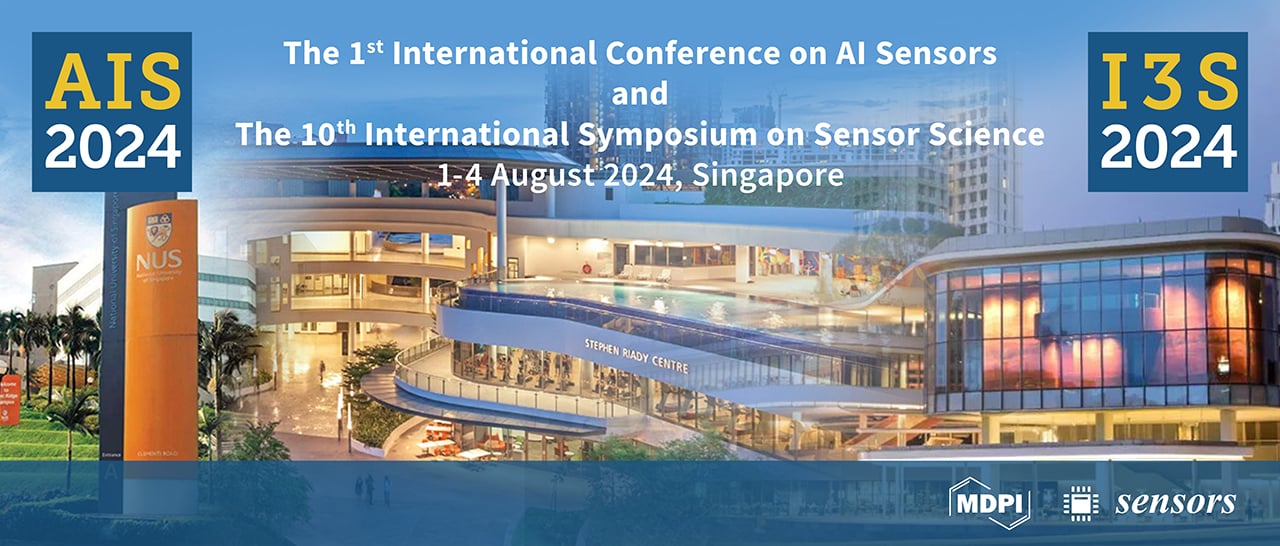
The 1st International Conference on AI Sensors & The 10th International Symposium on Sensor Science
I am pleased to share the success of our MDPI conference The 1st International Conference on Artificial Intelligence (AI) Sensors and the 10th International Symposium on Sensor Science in Singapore this past 1–4 August.
With nearly 400 attendees, the event brought together researchers and industry experts from China, Singapore, Japan, Korea, Taiwan, India and other countries to share their findings on the latest developments in sensors, sensing technology, artificial intelligence for sensing applications and AI-enhanced sensing systems.
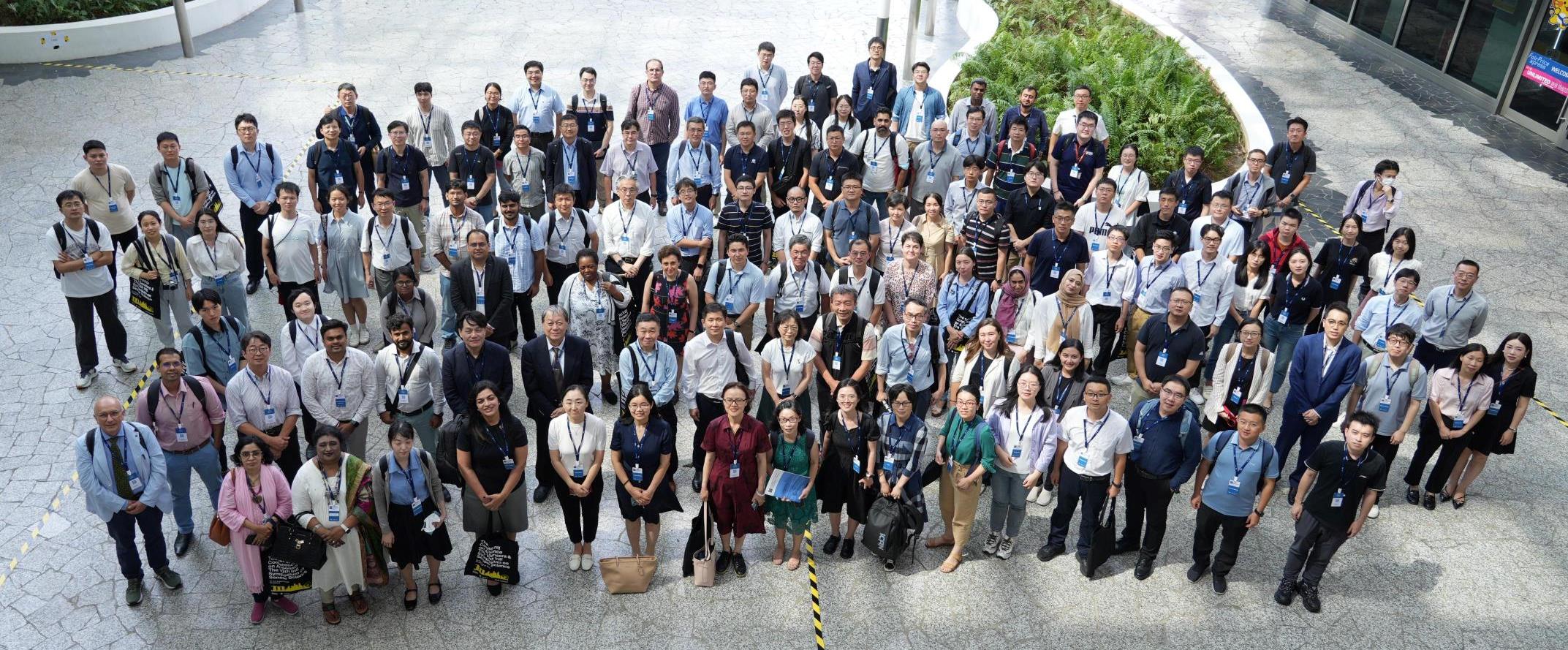
We accepted a total of 355 abstracts, featuring 772 authors from 28 countries. Over the course of the four-day event, 66 posters were displayed and 296 talks were delivered, including 4 plenary talks, 46 keynote speeches, 122 invited talks, and 124 selected oral presentations. View the event gallery here.
I am pleased to announce the winners of the four awards, including Best Presentation and Best Poster, recognizing the contributions of our participants during the conference.
Looking ahead, the 2nd International Conference on AI Sensors and Transducers is scheduled to take place from 29 July to 5 August, 2025, in Bangkok, Thailand.
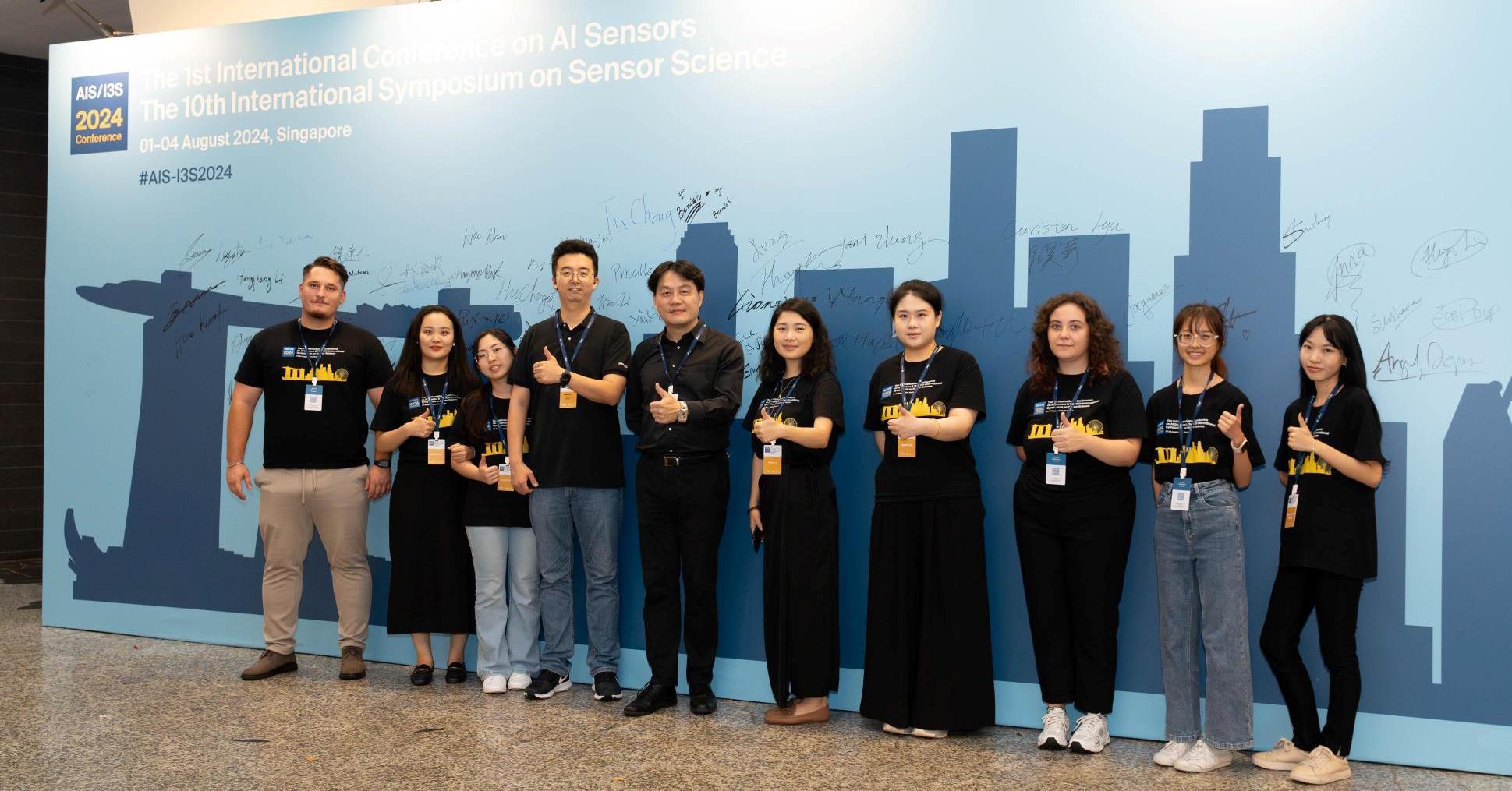
Thank you to our Conference team, including Ionut Spatar, Teodora Nicoleta Cremene, Ang Kai Lin, Benjamin Tay, Leong Jin Yue Esther, Wong Jolin, Judith Wu, Alethea Liu and Flora Li, who were involved in making this event a success. A big thank-you also goes to our local MDPI colleagues for their support: Yu Nwe Soe, Hen Chu Yang, Kwah Zhi En Watcharapong, Zephan Yang, Daphne Neo, Huimin Cheng, Nathan Li and Ting Yin.
Upcoming In-Person Event
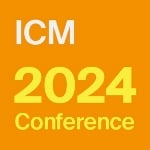
25–27 September, 2024
The 5th International Conference on Materials: Advances in Material Innovation
Location: Basel, Switzerland
ICM 2024 will unite experts to share insights on recent advancements in Materials Characterization, Processing and Manufacturing.
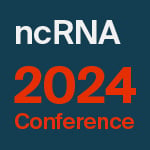
7–9 October, 2024
Non-coding RNA World 2024: Exploring Mechanisms, Designing Medicines
Location: Basel, Switzerland
ncRNA 2024 will explore the latest advances in the field, covering topics from basic biology to medical and technological applications.
Find more upcoming MDPI events here.
Closing Thoughts
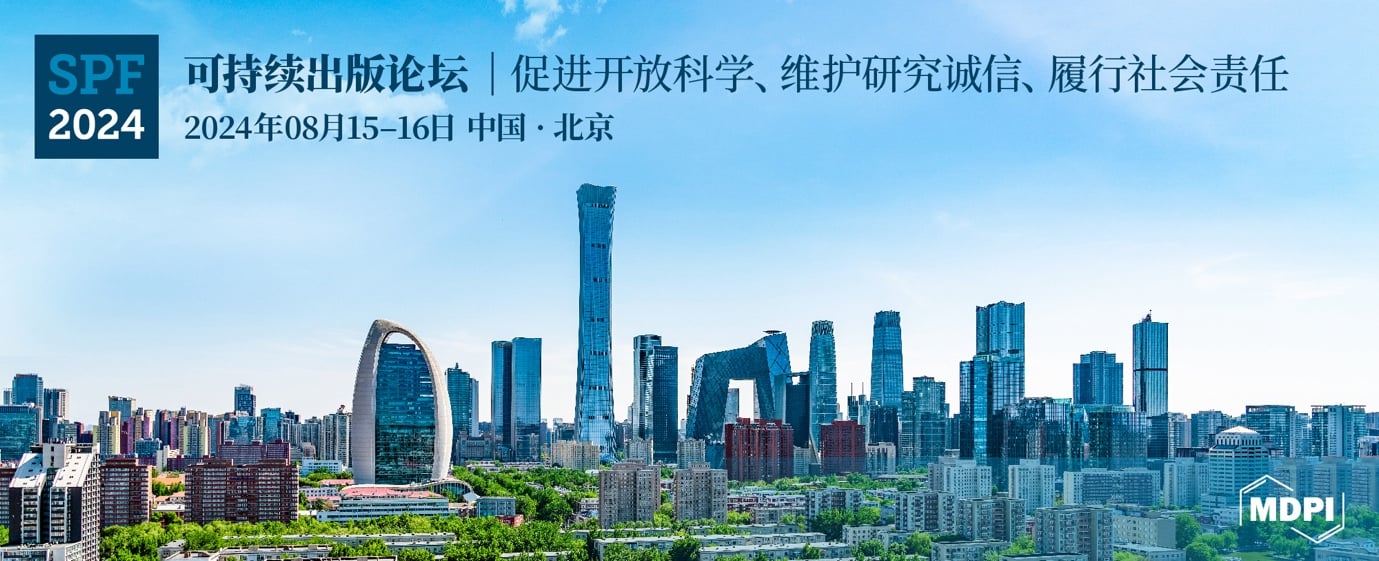
The 2nd Sustainable Publishing Forum
In 2022, the International Association of Scientific, Technical and Medical Publishers (STM) outlined three goals to reflect the academic community’s shared aspirations: promoting Open Science, maintaining research integrity and fulfilling social responsibility. Open Science has evolved from the Open Access movement of the early 2000s to become a preferred model in academic publishing. Publishers and academic journals play a crucial role in ensuring research integrity, with efforts to prevent misconduct markedly on the increase now.
As the world faces sustainability challenges, the academic publishing industry is increasingly committed to contributing the achievement of the United Nations Sustainable Development Goals (SDGs). Many publishers are implementing strategies to support these objectives, including ours, which you can view here.
The 2nd MDPI Sustainable Publishing Forum provided a platform for global editors and publishers to discuss these themes, aiming to strengthen collaboration and advance the contributions that scientific publishing can make to academia and society.
“Open Science has evolved to become a preferred model in academic publishing”
The 2nd Sustainable Publishing Forum
We hosted MDPI’s 2nd Sustainable Publishing Forum in Beijing, China, on 15–16 August, attracting nearly 120 attendees from local and international publishers, university presses, scientific and technical journal associations, libraries and the Chinese Academy of Sciences. The event focused on promoting Open Science, maintaining research integrity, and fulfilling social responsibility.
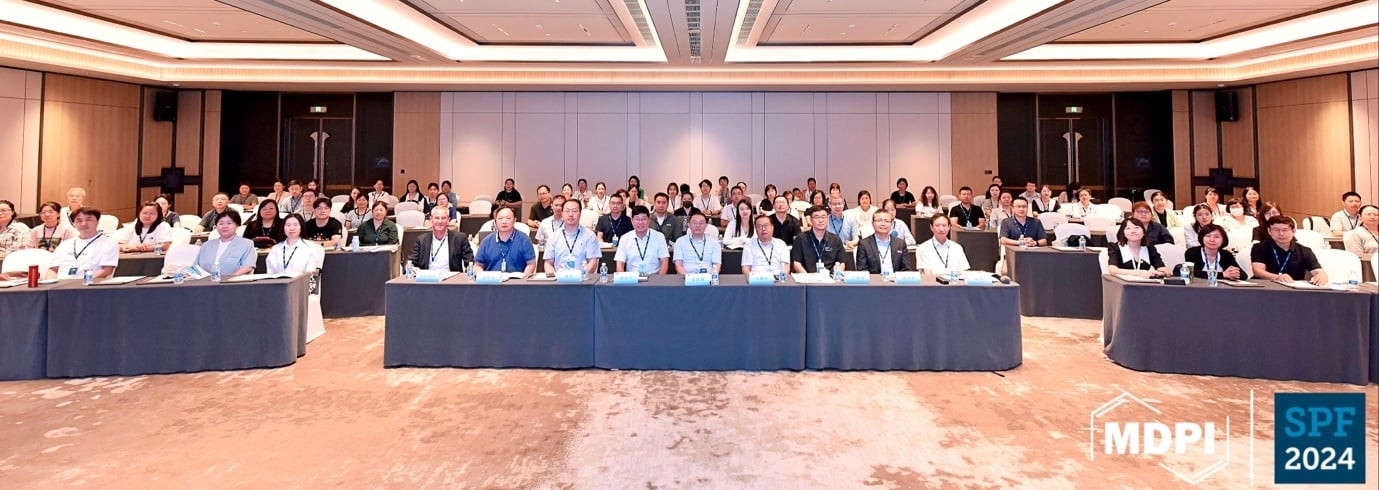
This was an excellent opportunity for us to share more with conference attendees about the approach of our research integrity team. Our Head of Publishing, Peter Roth, also participated, speaking on how to identify and avoid predatory publishers and about the principles that underpin ethical academic publishing.
I extend my thanks to all of our conference speakers, including Hylke Koers (STM Solutions), who presented on STM Trends 2028 and shared insights on the STM Integrity Hub, of which MDPI is a member.
Chief Executive Officer
MDPI AG
29 August 2024
Welcoming New Early Career Editorial Board Members of Batteries
Batteries (ISSN: 2313-0105) is pleased to appoint the following 10 researchers to the 2024 Early Career Editorial Board and congratulates them on joining the Batteries community!
|
|
Name: Dr. Xin Sui |
|
|
Name: Prof. Dr. Shifei Huang |
|
|
Name: Dr. Xianyong Wu |
|
|
Name: Dr. Guangtao Zan |
|
|
Name: Dr. Maiyong Zhu |
|
|
Name: Dr. Junye Cheng |
|
|
Name: Dr. Fei Feng |
|
|
Name: Dr. Chao Liu |
|
|
Name: Dr. Huan Liu |
|
|
Name: Dr. Muyao Wu |
19 August 2024
MDPI’s 2023 Young Investigator Awards—Winners Announced

MDPI’s Young Investigator Awards recognize promising early career scientists, acknowledge their contributions, and foster collaboration within the scientific community. We are proud to announce the recipients for 2023, who were carefully selected by the journals’ esteemed Award Evaluation Committee.
We extend our heartfelt congratulations to the 79 winners of MDPI’s 2023 Young Investigator Awards for their excellent contributions in their research field. We look forward to seeing these rising stars continue to contribute to the advancement of science.
MDPI will continue to support and recognize the academic community. To explore details about the awardees by field, please visit the individual pages listed below:
Congratulations to all the winners for their exceptional contributions and dedication to advancing scientific research.
About MDPI Awards:
To support the academic community, particularly young researchers, and to enhance communication among scientists, MDPI journals regularly offer various awards to researchers in specific fields. These awards, serving as a source of inspiration and recognition, help to elevate the profiles of talented individuals who have made outstanding achievements and are making significant contributions to advancements in their respective fields.
To find out more about MDPI awards, please click here.
7 August 2024
Batteries | New Section “Aqueous Batteries” Established

The Batteries (ISSN: 2313-0105) editorial team is pleased to announce the launch of a new Section, “Aqueous Batteries”.
“Aqueous Batteries” is an emerging Section in Batteries that focuses on the exploration and advancement of aqueous battery technology. Aqueous batteries utilize water-based electrolytes, offering enhanced safety and environmental sustainability compared to traditional battery technologies. This Section aims to provide a platform for researchers, academics, and industry professionals to discuss the latest developments, challenges, and opportunities in the field of aqueous batteries, including aqueous supercapacitors, multi-valent, and redox-flow batteries.
The “Aqueous Batteries” Section of the Batteries journal covers all topics in aqueous battery-related research, development, and applications:
- Aqueous electrolytes;
- Aqueous metal-ion batteries;
- Water-based energy storage;
- Safety and environmental impact;
- Electrode materials for aqueous batteries;
- Performance optimization and durability;
- Applications in renewable energy systems;
- Cost-effectiveness and scalability;
- Comparative analysis with non-aqueous battery technologies;
- Future prospects and challenges in aqueous battery research and development.
We are currently recruiting Editorial Board Members and Guest Editors for this new Section. If you would like to help build a platform to provide your scientific community with the opportunity to collaborate on an interconnected set of papers on an innovative topic(s), please feel free to contact the Batteries Editorial Office.
Batteries Editorial Office
7 August 2024
Batteries | New Section “Supercapacitors” Established

The Batteries (ISSN: 2313-0105) editorial team is pleased to announce the launch of a new Section, “Supercapacitors”.
This Section aims to provide a platform for researchers and experts to explore the latest advancements and applications in supercapacitor technology. This Section aims to facilitate discussions on breakthroughs in materials, design, performance, and integration of supercapacitors for energy storage solutions. By focusing on this rapidly evolving field, the Section seeks to contribute to the advancement and understanding of supercapacitor technology.
The “Supercapacitors” Section of the Batteries journal covers the following topics in supercapacitor-related research, development, and applications:
- Supercapacitor materials and electrode design;
- Energy storage mechanisms in supercapacitors;
- Hybrid systems combining supercapacitors and batteries;
- Supercapacitor-based energy storage solutions;
- Performance enhancement and durability of supercapacitors;
- Applications of supercapacitors;
- Supercapacitors for renewable energy integration;
- Supercapacitor technology for grid-level energy storage;
- Advances in supercapacitor manufacturing techniques;
- Sustainability aspects of supercapacitor technology;
- Challenges and opportunities in the field of supercapacitors.
We are currently recruiting Editorial Board Members and Guest Editors for this new Section. If you would like to help build a platform to provide your scientific community with the opportunity to collaborate on an interconnected set of papers on an innovative topic(s), please feel free to contact the Batteries Editorial Office.
Batteries Editorial Office
7 August 2024
MDPI Insights: The CEO's Letter #14 - New Headquarters, Marketing, Poland

Welcome to the MDPI Insights: The CEO's Letter.
In these monthly letters, I will showcase two key aspects of our work at MDPI: our commitment to empowering researchers and our determination to facilitating open scientific exchange.
Opening Thoughts
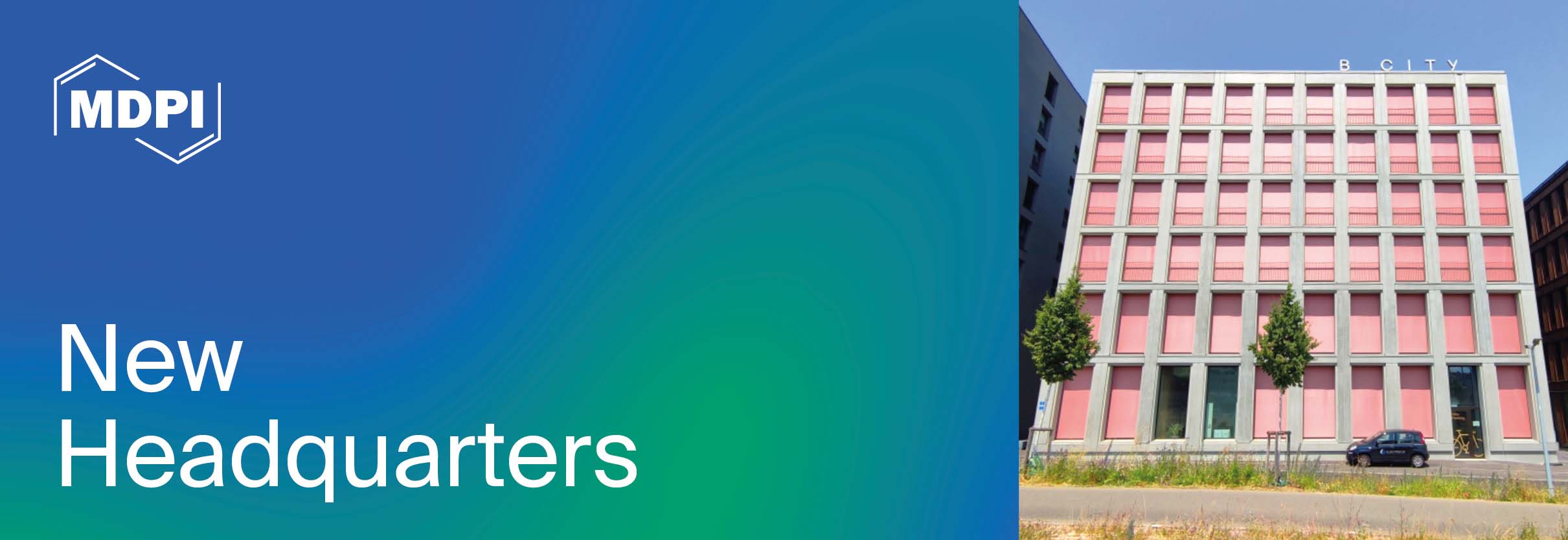
MDPI Moves to New Headquarters in Basel, Switzerland

I am excited to share that MDPI has moved to a new state-of-the-art office space in Basel, Switzerland. This move consolidates our operations by bringing together our two previously separated Basel offices into one central location.
We are always growing our talent pool and encourage you to view our Careers Page for the positions available in Basel and across our offices.
New Address: Grosspeteranlage 5, CH-4052 Basel, Switzerland
Effective Date: 1 July 2024
This new chapter in our company’s journey is designed to continue our mission of positioning MDPI as a leader in Open Access (OA) publishing, highlighting our commitment to making scholarly research accessible to everyone.

Boasting modern amenities, improved meeting and event spaces designed to support our growing needs, the new location provides a more collaborative and efficient working environment for our employees. The location offers convenient accessibility to public transportation and is situated near the Basel SBB railway station, with a variety of nearby services and amenities.
In fact, I can see the trains right outside of my window as I write these lines!
This move marks an exciting milestone in MDPI’s development, and I am confident that the new headquarters will serve as an inspiring and productive space for everyone. We also very much look forward to welcoming visitors here. You can read more about MDPI's history here.
“This new chapter continues our mission of positioning MDPI as a leader in OA publishing”
For Those New to MDPI
A pioneer in scholarly, Open Access publishing, MDPI has supported academic communities since 1996. MDPI is leading the transition to Open Science by making a greater proportion of the research conducted worldwide free and accessible to everyone. To date, over 3.5 million researchers have entrusted MDPI with publishing their scientific discoveries. MDPI’s editorial process is bolstered by a network of dedicated reviewers, a team of 6,000 professional, well-trained staff members, and an in-house article submission platform designed to ensure efficient processes within its 440 fully Open Access titles. MDPI supports more than 800 academic institutions worldwide, helping them adhere to national mandates while facilitating authors’ publication in fully compliant (CC BY) Open Access journals.
Impactful Research
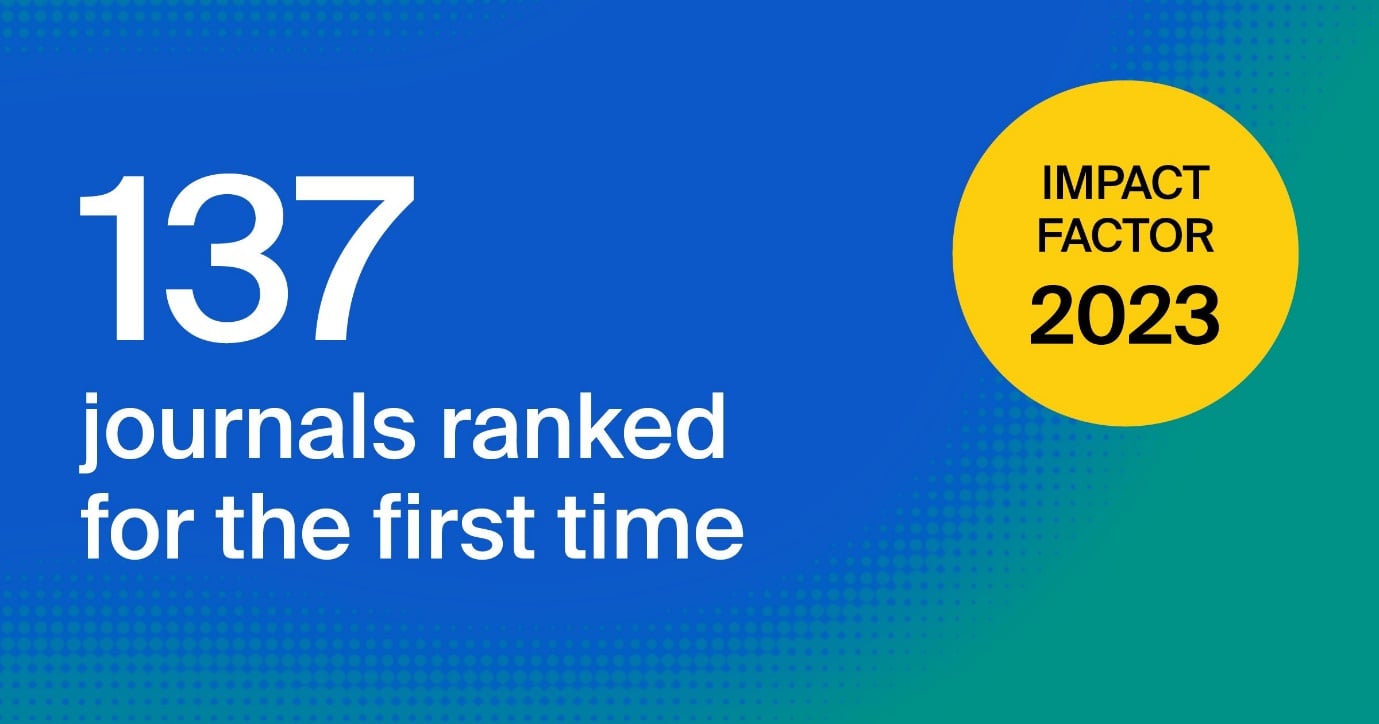
New and Emerging MDPI Journals Making an Immediate Impact
Unpacking some of the Impact Factor updates from the June CEO Letter, I wanted to dive a little deeper into the 137 MDPI journals which received Impact Factor for the first time.
Academic authors highly value efficient publishing processes, robust editorial support, and the opportunity to publish in high-impact journals. We are proud that our newly launched journals typically achieve coverage in the Emerging Sources Citation Index (ESCI) of the Web of Science within just a few years, with a median time of only three years from release to inclusion.
As part of our commitment to advancing academic research and providing high-quality OA publishing, we actively seek new research areas to expand our portfolio of journals. We have a proven track record of successfully establishing new journals.
Our dedicated teams excel in fostering dynamic editorial boards and working closely with Editors-in-Chief (EiC) to define the precise scope and focus of each new journal. Our expertise extends to collaborating with indexing services, ensuring that our journals comply with best practices and are indexed promptly in all relevant databases.
Emerging Titles Ranked for the First Time
Our commitment to excellence is reflected in the annual impact metrics released this past June. The latest edition of the Journal Citation Reports (JCR) showcases the integration of journals from the ESCI in the new unified category rankings, providing a simplified and more complete view of all journals within each subject category, including newly established titles.
Out of 137 new and developing MDPI journals ranked in the 2024 release, 79 are in the top half (Q1 or Q2) of their categories. Here is a breakdown of the number of MDPI’s ESCI-indexed journals by quartile in the JCR:
| Quartile | No. of journals |
| Q1 | 17 (12.4%) |
| Q2 | 62 (45.3%) |
| Q3 | 43 (31.4%) |
| Q4 | 15 (10.9%) |
| Not ranked (humanities-related journals) | 2 |
These rankings highlight our success in rapidly establishing high-impact new journals. Among those that made it directly into the top 25% of their category are the International Journal of Neonatal Screening, Journal of Xenobiotics, Polysaccharides, Smart Cities, and thirteen other journals.
You can browse MDPI journals by Indexing. Simply visit our Journals page and select from the list of Indexing bodies in the top left-hand corner.
Inside MDPI

MDPI Corporate Marketing Strategy and Team Meeting 2024
In July, I hosted the annual Corporate Marketing strategy and team-building activity with 15 of our team members.
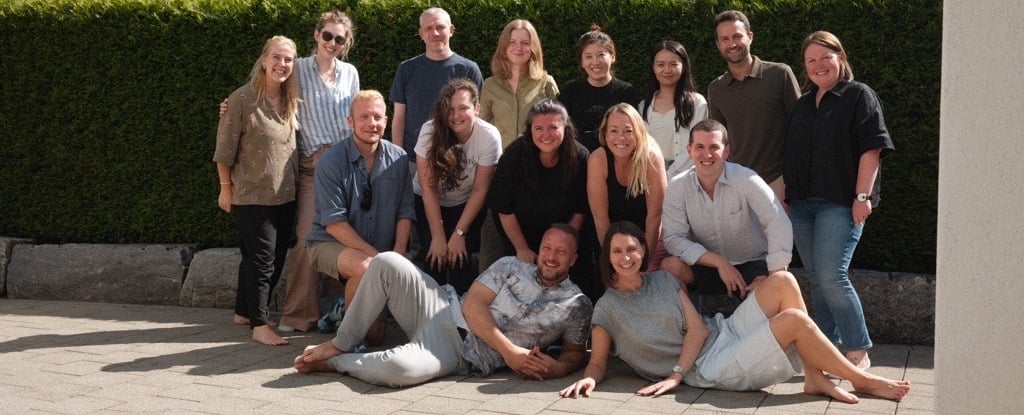
The aim was to align the Corporate Marketing strategy with MDPI's goal of becoming the world's most trusted OA publisher. While we provide a high-level publishing experience for our authors, as seen from our surveys, we need to keep building on our transparent and open communication to foster trust within the scholarly community and continue enhancing our reputation.
The Corporate Marketing team plays an important role as the mouthpiece for all our major activities within MDPI, especially those that model what it means to be a trusted partner. The purpose of the strategy meeting was to develop a feeling of trust in one another and an understanding of how to inspire trust in the stakeholders with whom we interact.
“We need to keep building on our transparent and open communication to foster trust within the scholarly community”

We conducted a set of activities to facilitate that sense of mutual trust and trustworthiness. Examples of some activities we worked on during this strategy-building event include:
- Exploring what trust means
- ‘Letter to self’
- ‘The brand I most trust’
- Most Trusted Academic Publisher
- ‘The brand I would like MDPI to become’
- ‘The 2029 MDPI Annual Report’
- Voice of Customer and Share of Voice – survey/data update on MDPI Brand Experience and Brand Perception
- Integrate Trust-Based Objective into Marketing Plan
- ‘Becoming the MDPI experience’
- ‘Trusting the next steps’
While two days is not enough to finalize a marketing strategy, it is sufficient to get everyone who attended into the mindset of the direction in which we are working. From here, we will develop a program with next steps on main projects, update communications, and collaborate with team leads to incorporate this approach into our work going forward.
As a marketing team, we can communicate our messages, but trust has to be built at every touchpoint in the stakeholder journey. Just talking about it isn’t enough. We need to be about it. That’s a role each of us plays, from editorial to IT, from marketing to HR. We must build trust from the inside out. It starts with each manager and resonates out via every team member.
As a company, our goal is to give all stakeholders with whom we interact – whether internal or external – the experience of working with an organization it can trust.
Coming Together for Science
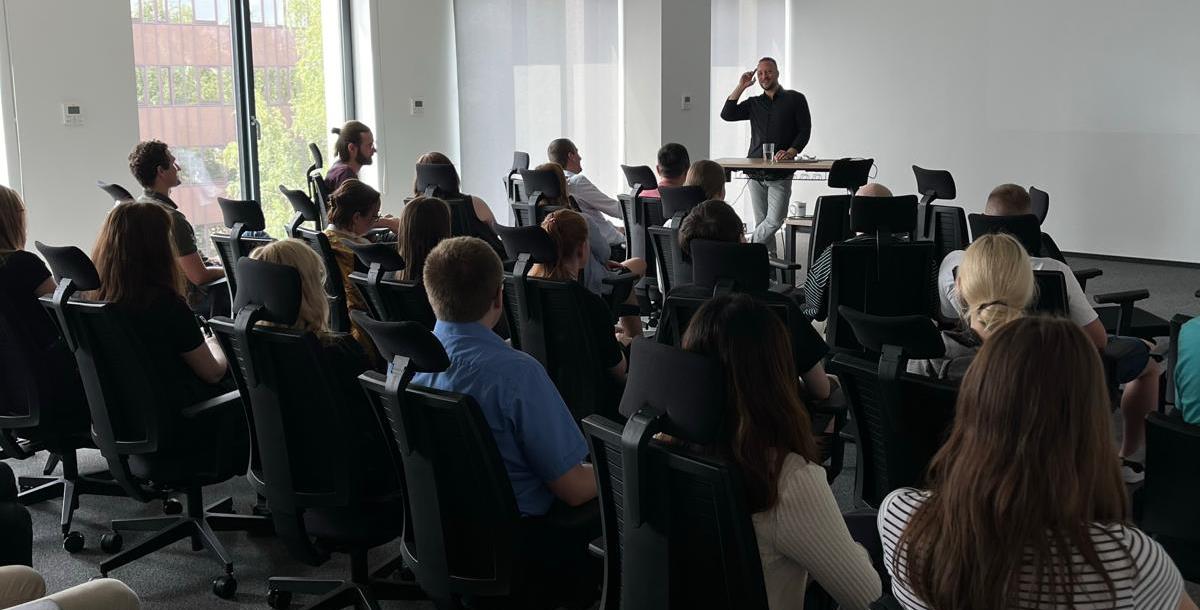
MDPI in Poland: Krakow Office
In July, I had the pleasure of visiting our Krakow office, following my recent trip to Warsaw to meet with the Polish Ministry of Science and Higher Education.

During these visits, I prioritized meeting with our Office Manager, Editorial Director, Group Leads, and members from various teams, including editorial, production, marketing, and journal relationship specialists, to understand their roles and current challenges. Instead of a formal presentation, I opted for an open discussion, sharing updates from headquarters to engage with colleagues in a more personal way.
Our Krakow office has many things to be proud of, including a large number of PhD colleagues (over a third of its staff holds a PhD degree). Krakow provides an opportunity for expanding beyond the 100 colleagues we currently have, by adding new hires in departments including editorial, production and marketing, among others.
About our Krakow office
- Opened in 2020
- 99 staff members as at 1 August 2024
- Main Departments include Editorial, Production, English Department, JRS, PR
Our Krakow office participates in international conferences, conducts author trainings and scholar visits, and engages in local market outreach. The office is also a member of the Polish Chamber of Commerce for High Technology (IZTECH) and is working on expanding its local engagement.
Krakow is the second-largest city in Poland, with a population of about 800,000. It also has a large student population of around 128,000, with seven universities. This means that roughly one in every eight residents is a student.
Poland and MDPI

Poland is a crucial market for MDPI. From 2020 to June 2024, Poland ranked 7th in submissions and 5th in publications for MDPI research articles. As at 31 July 2024, Poland ranks 7th in total MDPI publications, with approximately 70,000 research papers.
Between 2020 and June 2024, 61,500 authors from Poland published with MDPI. As at 30 June 2024, there are 1,205 active Editorial Board Members (EBMs) from Poland, with 661 EBMs (55% of the total) having an H-index over 25.
We also have four Editors-in-Chief (EiC) from Poland leading our journals: Coatings, Venereology, Advances in Respiratory Medicine, and Limnological Review, along with six Section EiC.
In 2023, we received approximately 21,000 submissions from Polish-affiliated authors, of which 12,032 were published.
“Poland is a crucial market for MDPI”
Meeting with Ministry of Education

On 22 July, we visited Warsaw to meet with the Polish Ministry of Science and Higher Education.
We were pleased to learn that they are strong supporters of the OA publishing model and value MDPI’s approach to the peer-review process, including our high ethical standards for quality control.
In 2023 Polish authors predominantly published their papers in OA, with MDPI holding the largest market share in OA publications within the country.
Our commitment to collaborating with Polish institutions is evident through our 33 Institutional Open Access Program (IOAP) agreements with prestigious institutions such as the University of Warsaw, the University of Wroclaw, the Jagiellonian University, and Gdańsk University of Technology. Through IOAP discounts, a healthy waiver rate, and our peer-review voucher system, we provide the Polish scholarly community with significant savings in OA publishing. The Minister greatly appreciated these efforts and our commitment to offsetting some of the APC costs.
We discussed industry concerns about the threat of papermills and presented the preventive measures MDPI has in place to mitigate this risk and uphold high ethical standards. We informed them of our commitment to combating papermills, including our involvement with United2Act and the STM Research Integrity Hub, as well as our efforts to expand our research integrity team and explore proactive measures.
Closing Thoughts

MDPI Thought Leadership Op-ed on Open Access is Now Live on Politico
I am pleased to share that our thought leadership Op-ed piece on Open Access (OA) is now live on Politico. This is a nice push for continued influence and support of OA among policymakers and industry leaders.
Why Politico?
Politico's reputation as a highly credible and influential news platform makes it an important venue to reach key opinion leaders (KOL) from academia, policymakers, and thought leaders from many industries. This visibility helps promote the OA philosophy.
Open Access: A Moral Imperative for Progress
In this piece, I discuss the necessity of making scientific research freely available to all. I argue that publicly funded research should be publicly accessible, highlighting how OA democratizes scientific knowledge, accelerates research availability, and fosters collaboration.
“Open Access is a fundamental right for all citizens”
Democratizing scientific communication
The impulse to democratize scientific communication is nothing new. OA may seem like a recent innovation, but its principles have historical roots traceable to Europe in the 15th century. Just as the printing revolution accelerated the dissemination of new ideas, OA publishing unlocks new scientific insights that would otherwise only be accessible to a few.
Benefits for scholars: amplifying impact through Open Access
Authors publishing in an OA journal can expect more citations of their work, increasing its potential impact. Research findings that are freely available are more likely to be cited than those hidden behind a paywall. Freedom of access greatly increases the potential audience for each paper, fostering a sense of community among researchers worldwide. Heightened visibility can attract prospective collaborators and employers for young scientists. At MDPI, we believe that all these factors can only accelerate the advance of science. Additionally, authors retain copyright in their work instead of signing it away, permitting broader dissemination under Creative Commons licenses and increasing its capacity for impact.
The moral imperative
OA is not just a matter of scientific policy; it is a fundamental right for all citizens and a prerequisite for a brighter, more informed future. Publicly funded research should be a top priority, and I am pleased to see policy moving in this direction. Our capacity to generate transformative scientific insights has to be democratized. The question today is no longer whether we can afford to embrace OA; rather, it is whether we can afford not to.
Chief Executive Officer
MDPI AG
2 August 2024
MDPI Romania Author Training Sessions in May
In May, MDPI Romania held three author training sessions – one endorsing an external event and two stand-alone sessions.
The National Session of Scientific Student Communications took place at Technical University Cluj on 17 and 18 May 2024. MDPI Romania sponsored this event and contributed an author training session on the production of research papers and case study analyses. JRS Norbert Kiss gave a presentation called The World of Open Access to explain different open access publishing models and the benefits of open access publishing. His presentation highlighted the impact of open access publishing on scientific progress and innovation.
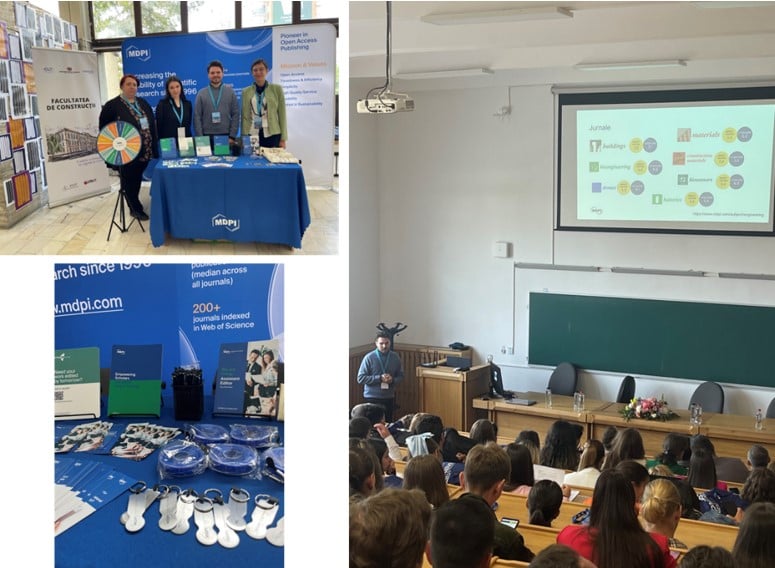
On 29 May 2024, MDPI Romania hosted an author training session for Ph.D. students, early career researchers, and professors at the Carol Davila University of Medicine and Pharmacy. In collaboration with Prof. Andreea Arsene, JRS Ioana Paunescu prepared two presentations: The Steps of the Publishing Process and Elaboration of a Peer Review Report. In her first presentation, she delved into MDPI’s history and mission, MDPI’s editorial process, and MDPI journals of various scopes that are accepting submissions. Her second presentation outlined the types of peer review, the contents of a peer review report by an MDPI reviewer, and the responsibilities of an MDPI reviewer.
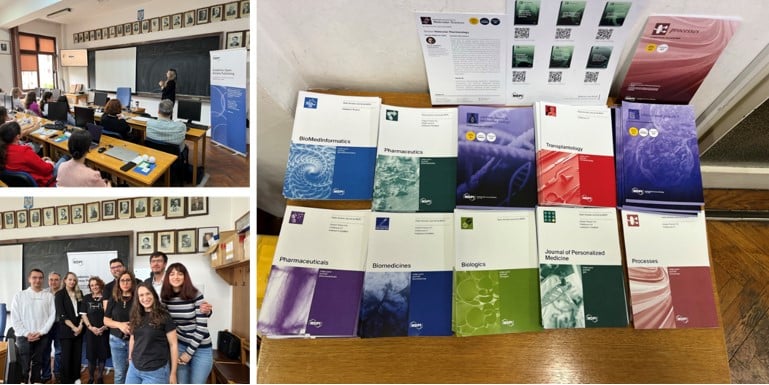
MDPI Romania also hosted an author training session at the Iasi University of Life Sciences on 29 May 2024. JRSs Laurentiu Preda and Cosmin Artan gave four presentations: Efficient Writing of an ISI-Indexed Scientific Article, Benefits of Publishing in the Open Access Model, Various Methods of Open Access Publishing, and MDPI Guide for the Article Review Process. The first three presentations offered guidance on how to improve academic writing, the fourth focused on how to write peer review reports. A highly interactive discussion followed the presentations, during which the JRSs provided extensive answers to attendees’ questions.
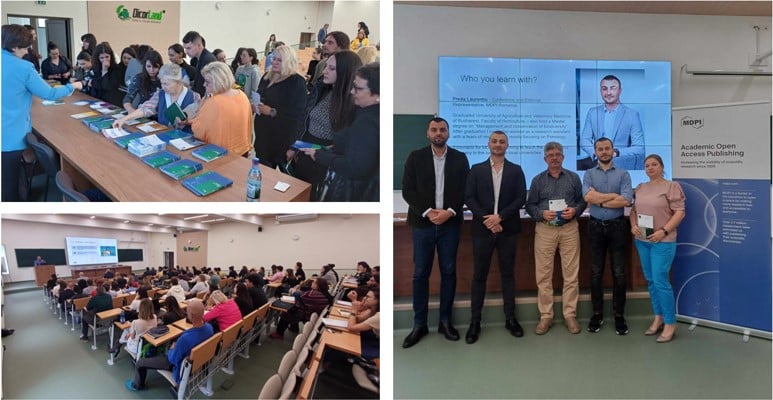
MDPI is grateful for all the attendees, speakers, and organizers involved in these events. Through their enthusiasm and dedication, these events were great successes.
29 July 2024
Prof. Dr. Marco Giorgetti Appointed Section Editor-in-Chief of Section “Battery Mechanisms and Fundamental Electrochemistry Aspects” in Batteries

We are pleased to announce the appointment of Prof. Dr. Marco Giorgetti as the new Section Editor-in-Chief of Batteries (ISSN: 2313-0105).
Name: Prof. Dr. Marco Giorgetti
Affiliation: Department of Industrial Chemistry, University of Bologna, Bologna, Italy
Interests: cathode and anode materials for advanced batteries; advanced electrodes for energy application; characterization of electrode materials; post-mortem analysis; core level spectroscopies; X-ray methods; Prussian blue analogs; post lithium batteries; aqueous batteries; synchrotron studies; data analysis
Prof. Dr. Marco Giorgetti leads the Spectroscopy Electrochemistry and Energy (S2C) group in the Department of Industrial Chemistry at the University of Bologna. His research interests cover the structural and electronic characterization of electrode materials and the solutions offered by core-level spectroscopies such as X-rays spectroscopies, applied electrochemistry, sensors, and the synthesis and electrochemical characterization of materials for advanced batteries. He has employed Prussian blue-based materials in potentiometric and amperometric sensors, ion exchange, and batteries. He has pioneered the in situ characterization of energy materials using the X-ray absorption synchrotron radiation technique, also becoming an expert in methodologies for data analysis. Prof. Dr. Giorgetti has coordinated more than 35 projects in synchrotron radiation facilities, is the local coordinator of the Erasmus Master’s course in Advanced Spectroscopy in Chemistry, and he is a member of BEPA (Battery European Battery Associations). He has served as a Guest Editor for two Special Issues in Batteries.
The following is a short Q&A with Prof. Dr. Marco Giorgetti, who shared his vision for the journal with us, as well as his views of the research area and open access publishing:
1. What appealed to you about the journal that made you want to take the role as its Section Editor-in-Chief?
The development and production of sustainable and efficient batteries is a strategic imperative for our society for both the mobility sector and grid-based energy storage systems. Batteries stands for excellence due to its commitment to high-quality, open access, peer-reviewed research in the field of energy storage. The opportunity to lead a Section that is rapidly evolving, such as “Battery Mechanisms and Fundamental Electrochemistry Aspects”, appealed to me strongly.
2. What is your vision for the journal?
Batteries should attract groundbreaking research and foster interdisciplinary collaboration by guaranteeing the rapid dissemination of findings. An increase in high-quality submissions will enhance its reputation at conferences and in other media. Batteries must also serve as a leading journal that confers clarity, scientific rigor, and innovative methodologies.
3. What does the future of this field of research look like?
The greatest current challenge is not only understanding the battery mechanism, but also controlling and designing electrode materials, interfaces and interphases for the development of ultra-performing, smart, and sustainable batteries. These aspects will be fully covered by this Section, where you will find papers in which basic and advanced electrochemical techniques, advanced characterization tools and computational methodologies are employed.
4. What do you think of the development of open access research in the publishing field?
Open access is not only a transformative development in academic publishing, but also a requirement for public funding. It democratizes knowledge by making research accessible to a broader audience, including scientists, industry professionals, policymakers, and the public. This accelerates the dissemination of scientific discoveries and removes barriers to knowledge. I strongly support open access publishing.
We wish Prof. Dr. Marco Giorgetti every success in his new position, and we look forward to his contributions to the journal.
26 July 2024
Interview with Dr. Yifan Zhao—Winner of the Batteries Outstanding Reviewer Award

Name: Dr. Yifan Zhao
Affiliation: Global Research and Development Center, General Motors, Warren, US
Research Interests: electrochemistry; energy storage materials and interphases; lithium sulfur batteries; lithium-ion batteries; solid-state electrolyte; and multivalent metal-ion batteries
Self-introduction:
Dr. Yifan Zhao is currently a researcher at the General Motors R&D center, Warren, Michigan. Dr. Zhao graduated from Zhejiang University, China with a bachelor’s degree and earned a master’s from the University of Southern California, USA. He obtained a Ph.D. from the University of California Riverside, USA, where he focused his work on lithium sulfur batteries. In GM R&D, his research is focused on advanced energy-storage materials and interphase studies.
The following is an interview with Dr. Yifan Zhao:
1. Could you briefly introduce yourself to our readers and tell us a little bit about your fields of interest?
I presently serve as a researcher at General Motors R&D center, located in Warren, Michigan. My academic journey began at Zhejiang University, where I earned my bachelor's degree, followed by a master's degree from the University of Southern California. Subsequently, I obtained my Ph.D. in Material Science and Engineering from the University of California, Riverside, focusing my research on lithium sulfur batteries.
Within GM R&D, my focus lies in investigating advanced energy-storage materials and interphase studies, with the overarching goal of enabling higher-energy-density, lower-cost, and safer batteries for electric vehicles.
I am interested in lithium metal batteries, lithium sulfur batteries, and other advanced high-energy-density or low-cost active materials and solid-state electrolytes.
2. Could you elaborate on how you initially learned about the Batteries journal? Furthermore, what inspired you to apply for the Batteries 2023 Outstanding Reviewer Award?
When I read and write papers, I always come across the Batteries journal. Many of its articles are of great interest to me. I was honored to serve as a peer reviewer for the Batteries journal. I enjoy the reviewing process because it allows me to see the latest articles first, provide my suggestions, and engage in academic discussions with the authors.
3. Which research topics do you think will be of particular interest to the research community in the coming years?
In the realm of battery-related research, my focus lies in exploring the realms of low-cost, fast-charging, and safe next-generation batteries, whether at the material, cell, or pack level, and this will captivate my interest for the foreseeable future. These include Na-ions, sulfur-based cathodes, solid-state batteries, etc. These areas of study are already ablaze with activity, emerging as prominent topics of discussion. Other than that, since AI is pretty powerful in tools used in daily life, studies on AI-empowered batteries will also be interesting.
4. What is your opinion of the open access model of publishing?
When I was in university, I had access to all publications without understanding the concept of open access (OA). I held biases against OA journals, assuming some lacked quality. However, upon starting my career in the industry, my perspective shifted. I realized that OA does not equate to poor quality. I began to appreciate the advantages of open access publications.
As a reader, OA enables unrestricted access to research, anytime and anywhere, at no cost. There is no need for VPN access or payment, making it more accessible. As an author, there are also benefits. OA enhances the impact of research through increased citations, readings, and downloads.
5. Which qualities do you think reviewers need? Do you have anything to say to other reviewers?
Firstly, professionalism is paramount. Reviewers must be experts in their field to offer suggestions and judgments from a professional standpoint. Their feedback should genuinely enhance the manuscript. I understand that receiving revision requests as an author can be frustrating, especially if they lack relevance or professionalism. Such requests waste authors' time and can diminish the journal's impact on the author.
Secondly, timeliness is essential. Authors often have publication deadlines to meet, and reviewers should not cause unnecessary delays.
Thirdly, critical thinking is crucial. Reviewers need strong critical thinking skills to thoroughly evaluate the methodology, results, and conclusions of the manuscript. They should identify both the strengths and weaknesses, offering constructive feedback for improvement.
6. What do you think are the main criteria that should be taken seriously in the process of reviewing manuscripts?
Originality, significance, and the interest to readers is most important. Other than that, the logical flow, and whether the conclusion is supported by content and references, also need to be considered.
7. What’s the secret to a happy scientific life? Have you ever encountered any difficulties conducting research, and how did you overcome them?
No expectation is the best expectation. Before an experiment, I usually do not keep positive hopes for the result, so that I will not be disappointed by the result. And finding a way to keep a work–life balance is also important to keeping a happy scientific life. Overcoming difficulties in research is no different to overcoming difficulties in life. Take it easy, do more literature research, ask for help, take a break, and work hard.
10 July 2024
MDPI's Newly Launched Journals in June 2024
 Five new journals covering multiple subjects have launched their inaugural issue in June 2024. We are excited to be able to share with you the newest research rooted in the value of open access.
Five new journals covering multiple subjects have launched their inaugural issue in June 2024. We are excited to be able to share with you the newest research rooted in the value of open access.
We would like to express our deepest appreciation to all the Editorial Board Members and each journal will ensure its high-quality output using excellent editorial and rigorous peer review processes, to ensure that the articles achieve high impact and visibility.
Please feel free to browse and discover more about the new journals below.
|
Journal |
Founding Editor-in-Chief |
Journal Topics (Selected) |
 |
Prof. Dr. Marco Ranucci, IRCCS Policlinico San Donato, Italy |
anaesthetic medications; blood and fluid management; pain management; critical care; critical illness | view journal scope | submit an article |
 |
Dr. Giovanni E. Cacciamani, University of Southern California, USA |
surgical/procedural complications; complications; perioperative adverse events; postoperative adverse events | view journal scope | submit an article |
 |
Prof. Dr. Gassan Hodaifa, Universidad Pablo de Olavide, Spain |
laboratory management; laboratory safety; protective equipment; laboratory problems and challenges; laboratory Innovation | view journal scope | submit an article |
 |
Prof. Dr. Jan S. Suchodolski, Texas A&M University, USA |
companion animals health and disease; veterinary care and nutrition; genetics and genomics; behavior and welfare; human-animal relations | view journal scope | submit an article |
 |
Prof. Dr. Pierfrancesco De Paola, University of Naples Federico II, Italy |
real estate appraisal; economic and financial valuation of real estate projects; sustainable real estate; housing and urban economics | view journal scope | submit an article |
We wish to thank everyone who has supported the development of open access publishing. You are welcome to send an application here, or contact the New Journal Committee ([email protected]) if you would like to create more new journals.
29 June 2024
Batteries | Aims and Scope Update
To further enhance the quality of Batteries (ISSN: 2313-0105) and the papers published in it, under the guidance of our Editor-in-Chief, Prof. Dr. Karim Zaghib, the journal has updated and revised its aims and scope. The original scope and the updated version are listed below:
|
Scope (New Version): |
Scope (Old Version): |
|
This journal covers all topics related to batteries and electrical energy storage systems. All electrochemical systems, such as lithium-ion, lead–acid, nickel metal hydride, metal–air, and next-generation batteries, supercapacitors, or fuel cells, are of interest. Papers can be related to applications, for example, portable, electric vehicles, stationary, or photovoltaic, or they can be independent of an application. Topics of interest include, but are not limited to, the following:
|
This journal covers all topics related to batteries and electrical energy storage systems. All electrochemical systems, such as lithium-ion, lead–acid, nickel metal hydride, metal–air, and next-generation batteries or supercapacitors, are of interest. Papers can be related to applications, for example, portable, electric vehicles, stationary, or photovoltaic, or they can be independent of an application. Topics of interest include, but are not limited to, the following:
|
For more detailed information, please visit the following link: https://www.mdpi.com/journal/batteries/about.
Batteries Editorial Office
23 June 2024
Batteries Receives an Updated Impact Factor of 4.6 and CiteScore of 4.0

We are pleased to share that Batteries (ISSN: 2313-0105) was awarded an increased Impact Factor of 4.6 in the 2023 Journal Citation Reports™ released by Clarivate in June 2024. Additionally, according to data released by Scopus (Elsevier), Batteries received a CiteScore™ of 4.0.
Batteries’ Impact Factor ranks are as follows:
- Q2 (16 among 45 titles) in the “Electrochemistry” category;
- Q2 (78 among 170 titles) in the “Energy and Fuels” category;
- Q2 (141 among 438 titles) in the “Materials Science, Multidisciplinary” category.
Batteries’ CiteScore ranks are as follows:
- Q2 (110 out of 272 journals) in the “Energy Engineering and Power Technology” category;
- Q2 (333 out of 797 journals) in the “Electrical and Electronic Engineering” category;
- Q3 (35 out of 60 journals) in the “Electrochemistry” category.
|
4.62023 Impact Factor |
16/45 (Q2)Electrochemistry |
4157Citations in 2023 |
|
4.02023 CiteScore |
110/272 (Q2)Energy Engineering and Power Technology |
1.003SNIP |
For further statistics, please visit https://www.mdpi.com/journal/batteries/stats. For more information about MDPI flagship journals' citation metrics, please see here.
At MDPI, our mission is simple yet powerful, and we strive every day to make scientific research freely accessible to everyone everywhere. With over 3.5 million authors choosing MDPI, we have established ourselves as a key player driving the open access initiative.
Our journals have received over 13 million citations in the Web of Science, making us the most cited open access publisher. With over 800 institutional partners, MDPI continues to demonstrate its dedication to providing reliable and collaborative publishing services.
Batteries Editorial Office
21 June 2024
Meet Us at the IX Symposium on Hydrogen, Fuel Cells and Advanced Batteries (HYCELTEC 2024), 30 June–3 July 2024, Milazzo, Italy

MDPI will attend the IX Symposium on Hydrogen, Fuel Cells and Advanced Batteries (HYCELTEC 2024), held from 30 June to 3 July 2024 in Milazzo, Italy.
HYCELTEC 2024 will be an interdisciplinary forum for the discussion of topics related to fuel cells, hydrogen and batteries, bringing together researchers from academia, technological centers and industry.
The following MDPI journals will be represented:
Energies;
Hydrogen;
WEVJ;
Batteries;
Polymers.
If you plan to attend this conference, we invite you to visit our booth and converse with our delegates. We are excited to meet you in person and address any questions you may have. For further details about the conference, please visit the following website: https://www.hyceltec2024.it/.
21 June 2024
Batteries 2022 Best Paper Award Announcement and Interview with Dr. Yang Zhang, One of the Winners
All papers published in 2022 in Batteries (ISSN: 2313-0105) were considered for this award. After a thorough evaluation of the originality and significance of the papers, citations, and downloads, the winner was selected:
“Revisiting Polytetrafluorethylene Binder for Solvent-Free Lithium-Ion Battery Anode Fabrication”
by Yang Zhang, Frederik Huld, Song Lu, Camilla Jektvik, Fengliu Lou and Zhixin Yu
Batteries 2022, 8(6), 57; https://doi.org/10.3390/batteries8060057
The winners will receive CHF 500 and a chance to publish a paper free of charge after peer review in Batteries in 2024.
Author names: Yang Zhang, Frederik Huld, Song Lu, Camilla Jektvik, Fengliu Lou and Zhixin Yu
Affiliation: Beyonder As and University of Stavanger
Research Interests: solvent-free electrode manufacturing, prelithiation, high-energy-density LiBs, extra-fast-charge technology, LiBs failure analysis, etc.
The following is a short interview with the first author Dr. Yang Zhang:

1. Could you give a brief introduction of yourself to the readers?
My name is Yang Zhang and I obtained my Ph.D. from the University of Stavanger (UiS), Norway in 2023. This work is part of my industrial Ph.D. project, which is a collaboration between UiS and Beyonder AS, Norway, aimed at developing a technology for the large-scale production of electrodes using a solvent-free method. We hope that the technology developed in this project can be applied to Beyonder's battery products, reducing energy consumption in the battery production process while enhancing battery performance. Our team members are from both UiS and Beyonder AS.
2. Could you please briefly introduce the main content of the winning paper?
Our award-winning paper, titled “Revisiting Polytetrafluorethylene Binder for Solvent-Free Lithium-Ion Battery Anode Fabrication”, explores an innovative solvent-free process for creating anode electrodes in lithium-ion batteries. The process was conducted in a roll-to-roll way, which can be scaled up for production. We utilized polytetrafluoroethylene (PTFE) as a binder and elucidated the root cause of the fast-capacity-fading PTFE-based anode, primarily due to the irreversible reaction between PTFE and lithium ions at a low potential. This insight is crucial to enhancing the performance and lifespan of LiBs with anodes using PTFE as a binder. Based on our understanding of the degradation mechanism, hard carbon was adopted as the anode’s active material, achieving a decent stability performance. Our work shed light on the development of PTFE-based solvent-free anodes with a longer cycling life.
3. What is your current research and why did you choose this research field?
My current research is focused on solvent-free electrodes’ manufacturing. I chose this field because it offers a sustainable approach to battery manufacturing with the potential to significantly improve energy density and energy consumption savings during the electrode manufacturing process, critical to the advancement of electric vehicles and renewable energy storage. Also, all-solid-state batteries are considered the “holy grail” of battery technology, which can increase energy density and address safety issues at the same time. Solvents from technology will also play a pivotal role in all-solid-state batteries’ manufacturing.
4. Which research topics do you think will be of particular interest to the research community in the coming years?
In the coming years, I anticipate that research topics such as all-solid-state batteries (ASSB), lithium-rich manganese-layered oxide (LRM) cathode materials, and lithium metal batteries will gain significant interest. These areas are pivotal in achieving highly safer battery technologies and improved energy densities, which are essential for the next generation of electric vehicles and energy storage systems.
5. What appealed to you about the journal that made you want to submit your paper? What benefits do you think authors can gain when publishing their articles in Batteries?
We chose to submit our paper to the Batteries journal because it is a reputable, open access platform that covers a wide spectrum of topics within battery science. Publishing in Batteries offers authors the benefit of reaching a broader audience and increasing the visibility of their work, which is essential for the dissemination of scientific findings and fostering collaboration within the research community.
6. How was your experience submitting to Batteries?
Our experience with submitting to Batteries has been very positive. The editorial team and peer reviewers provided constructive feedback that helped us refine our manuscript. The review process was efficient and professional and greatly contributed to the final quality of our paper.
7. Can you briefly describe the key to a happy laboratory life? Have you ever encountered any difficulties conducting research and how did you overcome them?
The key to a fulfilling laboratory life is fostering a collaborative environment and maintaining a positive atmosphere. When faced with research challenges, we rely on team discussions, interdisciplinary cooperation, and the collective expertise of our members to find innovative solutions.
8. We are an open access journal. How do you think open access impacts the authors?
Open access has a profound impact on authors by democratizing access to research. It allows our work to be freely available to a global audience, facilitating the exchange of ideas and accelerating scientific progress. This model supports the broader scientific community by making research more accessible and transparent. However, while the open access model allows our research to reach a wider audience, the initial publication fees can be a burden for researchers, especially for young investigators. If these costs could be reduced, I believe researchers would be more inclined to publish their work in open access journals to reach a larger readership.
9. As the winner of this award, is there something you want to express or someone you wish to thank most?
Winning this award is a testament to the hard work and dedication of myself and my colleagues at UiS and Beyonder AS. I am particularly grateful to my collaborators for their invaluable contributions and to the families, who have supported us throughout this journey. Their support has been instrumental in achieving this recognition. Additionally, the main body of this research work was conducted at Beyonder AS, and I would like to express my special gratitude to them for the convenience and support they provided for my research.
21 June 2024
Batteries 2022 Best Paper Award Announcement and Interview with One of the Winners—Prof. Karim Zaghib
All papers published in 2022 in Batteries (ISSN: 2313-0105) were considered for the Batteries 2022 Best Paper Award. After a thorough evaluation of the originality and significance of the papers, citations, and downloads, the winner was selected:
“Recent Development in Carbon-LiFePO4 Cathodes for Lithium-Ion Batteries: A Mini Review”
by Brindha Ramasubramanian, Subramanian Sundarrajan, Vijila Chellappan, M. V. Reddy, Seeram Ramakrishna and Karim Zaghib
Batteries 2022, 8(10), 133; https://doi.org/10.3390/batteries8100133
Available online: https://www.mdpi.com/2313-0105/8/10/133
The winners will receive CHF 100 and a chance to publish a paper free of charge after peer review in Batteries in 2024.
Information of authors:
Name: Brindha Ramasubramanian
Affiliation: Center for Nanotechnology and Sustainability, Department of Mechanical Engineering, National University of Singapore, Singapore 117574, Singapore
Research Interests: nanomaterials, electrochemistry, batteries, machine learning and sustainability
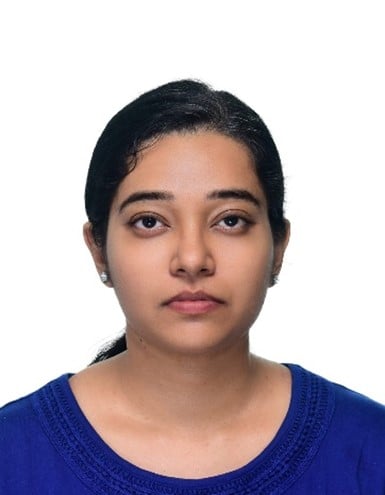
Self-introduction:
I am currently a Ph.D. student at the National University of Singapore (NUS) | SINGA Awardee & Scholar at the Institute of Materials Research and Engineering (IMRE), Agency of Science, Technology, and Research, Singapore (A*STAR). My primary research interests include synthesis of 2D hybrid nanomaterials, next-generation batteries, electrochemistry and circular economy in product development.
Name: Subramanian Sundarrajan
Affiliation: Center for Nanotechnology and Sustainability, Department of Mechanical Engineering, National University of Singapore, Singapore 117574, Singapore
Research Interests: polymer chemistry, heat exchangers, nanofibers and energy storage

Self-introduction:
I graduated with an M.Sc. in Inorganic Chemistry from the University of Madras, India, in 1996, and I was awarded one of the most prestigious fellowships in India, ‘‘Senior Research Fellow’’, by CSIR before completing my Ph.D. at the University of Madras in 2003. I joined the National University of Singapore in 2003 and have worked on the synthesis of polymers and the electrospinning of nanofibers, investigating their applications in battery, air, water, and tissue engineering, as well as clean and sustainable energy.
Name: Vijila Chellappan
Affiliation: Institute for Functional Intelligent Materials, National University of Singapore, Singapore 117574, Singapore
Research Interests: optoelectronics, intelligent materials, sustainable energy storage devices, high throughput experimentation and machine learning

Self-introduction:
I am currently a Senior Research Fellow at the Institute for Functional Intelligent Materials, National University of Singapore, with over 20 years of experience in examining various device technologies (photovoltaics, displays, lasers, energy storage), material systems (semiconducting polymers, oxides, transition metal dichalcogenides, conducting composites), and transient optical/electrical spectroscopy techniques. I have also helped establish high-throughput optical methodologies for machine-learning-enabled process/property optimization. I received my Ph.D. degree in physics from the Anna University, India, in 2001 and carried out postdoctoral research at Åbo Academy University, Turku, Finland, from 2001 to 2002.
Name: M. V. Reddy
Affiliation: Nouveau Monde Graphite, 481 Rue Brassard, Saint-Michel-de-Saints, QC J0K 3B0, Canada
Research Interests: nanomaterials, electrochemistry and batteries

Self-introduction:
I am currently working as a Senior Professional Researcher at Nouveau monde Graphite, Quebec, Canada. For the last 20 years, I have been working on materials for energy storage, such as cathodes, anodes, and solid electrolytes for Li/Na/K- ion batteries and supercapacitors. I am also a member of ICDD USA, IPS, and MRS Singapore, and I have won many awards and given 230 talks all over the world.
Name: Seeram Ramakrishna
Affiliation: Center for Nanotechnology and Sustainability, Department of Mechanical Engineering, National University of Singapore, Singapore 117574, Singapore
Research Interests: biomaterials, circular economy, nanofibers, electrospinning, energy storage and wearables

Self-introduction:
I am currently a professor at the National University of Singapore and among the World’s Most Influential Minds (Thomson Reuters). My current research interests include circular economy, electrospinning, next generation electronic devices and wearables.
Name: Karim Zaghib
Affiliation: Department of Chemical and Materials Engineering, Concordia University, 1455 Boulevard de Maisonneuve, Montréal, QC H3G 1M8, Canada
Research Interests: nanomaterials, electrochemistry, batteries

Self-introduction:
I am currently a professor of chemical and materials engineering at Concordia University. As former director of research at Hydro-Québec, my research interests include rechargeable batteries, electrochromic devices, and electrochemistry of carbon materials.
The following is an interview with Prof. Karim Zaghib:
1. Could you please briefly introduce the main content of the winning paper?
This review presents state-of-the-art research on the significance of carbon addition to LiFePO4 cathodes in lithium-ion batteries during the time when it was published. We have discussed recent advancements and future prospects in this area and the impact of carbon incorporation on the structural and electrochemical properties of LiFePO4. Aspects of carbon, such as size, shape, diffusion, bonding, additives, dopants, and surface functionalization, and their effects on LiFePO4 cathodes were explained, along with prospects for future advancements in LIB LiFePO4 technology.
2. What’s your current research and why did you choose this research field?
M. V. Reddy is working in the area of anode materials and energy storage materials, and Brindha Ramasubramanian and Seeram Ramakrishna are working on 2D nanomaterials and carbon for Li-ion and Al-ion storage.
3. Could you describe the difficulties and breakthrough innovations in this research field?
One of the major challenges in LiFePO4 and LIBs is electrode degradation over repeated charge–discharge cycles, capacity fade and reduced battery lifespan. Other challenges in LIBs include low lithium diffusion, dendrites and volume changes. Nanostructuring LiFePO4 particles and carbon coatings improves lithium diffusion kinetics, while doping strategies and nanomaterials enhance conductivity and ion transfer. Surface modifications, like coatings and functionalization, can help to optimize surface chemistry and lithium-ion diffusion in LiFePO4 carbon electrodes.
4. Have you ever encountered any difficulties while conducting research? How did you overcome them?
Initially, we encountered challenges in establishing the lab and optimizing parameters for materials synthesis and characterization. After a series of trial-and-error methods, we were finally able to resolve these issues.
5. Which research topics do you think will be of particular interest to the research community in the coming years?
Several research topics are likely to capture the interest of the research community in the coming years in the field of Li-ion batteries, some of those are Solid-State LIBs, Si anodes for LIBs, artificial SEI and beyond Li-ion chemistry such as Na-ion and Al-ion chemistries.
6. What appealed to you about the journal that made you want to submit your paper? What benefits do you think authors can gain when publishing their articles in Batteries?
Batteries is a specialized journal in this field, with Prof. Karim and Dr. M. V. Reddy serving on its Editorial Board. It presents an excellent opportunity for us to submit our paper to this open access journal. We received positive feedback, and the publication process was swift. After our review was published, it was widely read by many authors and garnered a significant number of citations.
7. How was your experience submitting to Batteries?
We had a smooth, fast and constructive experience when submitting to Batteries.
8. Do you have any advice for aspiring young researchers looking to make a meaningful impact in their respective fields?
Making an impact in any research field requires dedication, hard work, and a commitment to lifelong learning and growth. Staying passionate, curious, and persistent with critical thinking will help aspirants to have profound contributions to science and society.
9. Can you briefly describe the key to a happy laboratory life? Have you ever encountered any difficulties conducting research and how did you overcome them?
The key to a happy laboratory life revolves around fostering a supportive, collaborative, and positive work environment. As for difficulties in conducting research, challenges are common in scientific research. Whether it's encountering unexpected results, experimental failures, funding setbacks, or interpersonal conflicts, overcoming obstacles is an inherent part of the research process. Seeking guidance and advice from mentors, troubleshooting methodically, staying resilient in the face of setbacks, and maintaining a positive attitude will help to overcome the challenges.
10. We are an open access journal. How do you think open access impacts the authors?
Yes, open access has a huge impact.
11. As the winner of this award, is there something you want to express, or someone you would like to thank most?
Thanks to the MDPI Batteries team for their efforts in selecting our review for this award.
20 June 2024
2023 Impact Factors for MDPI Journals Released

MDPI is pleased to announce the inclusion of 237 journals in the 2024 release of the Journal Citation Reports (JCR) and share the key results (see above).
This year, journals covered in the Emerging Sources Citation Index (ESCI) received category ranks together with journals in the Science Citation Index Expanded (SCIE) and Social Sciences Citation Index (SSCI). Overall, 139 MDPI journals indexed in ESCI are included in the new unified rankings for the first time.
Enhanced Comparability of Data
According to Clarivate, "the creation of unified category rankings [provides] a simpler and more complete category view for the evaluation of journal performance. [...] The category-first approach simplifies journal performance assessment with a holistic view of all journals in each subject category."
We are thrilled to announce that 72% of our ranked MDPI journals (171 of 237) are above average, in Q1 or Q2. Twenty-nine of our journals received their first Impact Factor this year, accounting for more than 5% of the journals accepted into the Web of Science last year.
MDPI Journals Ranked in JCR
The following data includes all MDPI journals indexed in SCIE, SSCI, ESCI and AHCI.
|
Journal |
Impact Factor |
Rank Quartile |
Category |
|
Q3 |
Acoustics |
||
|
Q2 |
Engineering, Mechanical |
||
|
Q2 |
Instruments & Instrumentation |
||
|
Q2 |
Management |
||
|
Q3 |
Respiratory System |
||
|
Q2 |
Engineering, Aerospace |
||
|
Q1 |
Agronomy |
||
|
Q2 |
Agricultural Engineering |
||
|
Q1 |
Agronomy |
||
|
Q1 |
Plant Sciences |
||
|
Q2 |
Computer Science, Artificial Intelligence |
||
|
Q2 |
Computer Science, Interdisciplinary Applications |
||
|
Q3 |
Computer Science, Artificial Intelligence |
||
|
Q2 |
Computer Science, Theory & Methods |
||
|
Q1 |
Agriculture, Dairy & Animal Science |
||
|
Q1 |
Veterinary Sciences |
||
|
Q1 |
Infectious Diseases |
||
|
Q1 |
Pharmacology & Pharmacy |
||
|
Q3 |
Immunology |
||
|
Q1 |
Biochemistry & Molecular Biology |
||
|
Q1 |
Chemistry, Medicinal |
||
|
Q1 |
Food Science & Technology |
||
|
Q2 |
Chemistry, Multidisciplinary |
||
|
Q1 |
Engineering, Multidisciplinary |
||
|
Q3 |
Materials Science, Multidisciplinary |
||
|
Q2 |
Physics, Applied |
||
|
Q2 |
Computer Science, Information Systems |
||
|
Q2 |
Engineering, Electrical & Electronic |
||
|
Q2 |
Telecommunications |
||
|
N/A |
Humanities, Multidisciplinary |
||
|
Q3 |
Environmental Sciences |
||
|
Q3 |
Meteorology & Atmospheric Sciences |
||
|
Q3 |
Physics, Atomic, Molecular & Chemical |
||
|
Q1 |
Audiology & Speech-language Pathology |
||
|
Q1 |
Mathematics, Applied |
||
|
Q2 |
Electrochemistry |
||
|
Q2 |
Energy & Fuels |
||
|
Q2 |
Materials Science, Multidisciplinary |
||
|
Q2 |
Psychology, Multidisciplinary |
||
|
Q2 |
Food Science & Technology |
||
|
Q2 |
Computer Science, Artificial Intelligence |
||
|
Q2 |
Computer Science, Information Systems |
||
|
Q1 |
Computer Science, Theory & Methods |
||
|
Q2 |
Engineering, Biomedical |
||
|
Q1 |
Biology |
||
|
Q2 |
Biochemistry & Molecular Biology |
||
|
Q2 |
Medicine, Research & Experimental |
||
|
Q1 |
Pharmacology & Pharmacy |
||
|
Q1 |
Engineering, Multidisciplinary |
||
|
Q3 |
Materials Science, Biomaterials |
||
|
Q1 |
Biochemistry & Molecular Biology |
||
|
Q1 |
Chemistry, Analytical |
||
|
Q1 |
Instruments & Instrumentation |
||
|
Q2 |
Nanoscience & Nanotechnology |
||
|
Q3 |
Biotechnology & Applied Microbiology |
||
|
Q1 |
Ornithology |
||
|
Q3 |
Neurosciences |
||
|
Q2 |
Construction & Building Technology |
||
|
Q2 |
Engineering, Civil |
||
|
Q2 |
Materials Science, Multidisciplinary |
||
|
Q1 |
Oncology |
||
|
Q4 |
Cardiac & Cardiovascular Systems |
||
|
Q2 |
Chemistry, Physical |
||
|
Q2 |
Cell Biology |
||
|
Q1 |
Materials Science, Ceramics |
||
|
Q3 |
Materials Science, Multidisciplinary |
||
|
Q2 |
Engineering, Chemical |
||
|
Q3 |
Chemistry, Multidisciplinary |
||
|
Q2 |
Chemistry, Analytical |
||
|
Q2 |
Electrochemistry |
||
|
Q1 |
Instruments & Instrumentation |
||
|
Q2 |
Pediatrics |
||
|
Q2 |
Engineering, Environmental |
||
|
Q2 |
Environmental Sciences |
||
|
Q3 |
Green & Sustainable Science & Technology |
||
|
Q2 |
Meteorology & Atmospheric Sciences |
||
|
Q2 |
Medicine, General & Internal |
||
|
Q3 |
Clinical Neurology |
||
|
Q3 |
Neurosciences |
||
|
Q2 |
Materials Science, Coatings & Films |
||
|
Q3 |
Materials Science, Multidisciplinary |
||
|
Q2 |
Physics, Applied |
||
|
Q3 |
Chemistry, Physical |
||
|
Q2 |
Mathematics, Interdisciplinary Applications |
||
|
Q2 |
Computer Science, Interdisciplinary Applications |
||
|
Q3 |
Physics, Condensed Matter |
||
|
Q2 |
Biochemistry & Molecular Biology |
||
|
Q2 |
Dermatology |
||
|
Q3 |
Computer Science, Information Systems |
||
|
Q2 |
Computer Science, Theory & Methods |
||
|
Q2 |
Crystallography |
||
|
Q3 |
Materials Science, Multidisciplinary |
||
|
Q3 |
Biochemistry & Molecular Biology |
||
|
Q2 |
Oncology |
||
|
Q3 |
Computer Science, Information Systems |
||
|
Q2 |
Multidisciplinary Sciences |
||
|
Q2 |
Dentistry, Oral Surgery & Medicine |
||
|
Q3 |
Dermatology |
||
|
Q3 |
Endocrinology & Metabolism |
||
|
Q1 |
Medicine, General & Internal |
||
|
Q2 |
Medicine, Research & Experimental |
||
|
Q2 |
Biodiversity Conservation |
||
|
Q3 |
Ecology |
||
|
Q1 |
Remote Sensing |
||
|
Q3 |
Environmental Sciences |
||
|
Q3 |
Geosciences, Multidisciplinary |
||
|
Q3 |
Ecology |
||
|
Q3 |
Economics |
||
|
Q2 |
Economics |
||
|
Q1 |
Education & Educational Research |
||
|
Q2 |
Computer Science, Information Systems |
||
|
Q2 |
Engineering, Electrical & Electronic |
||
|
Q2 |
Physics, Applied |
||
|
Q3 |
Energy & Fuels |
||
|
Q2 |
Physics, Multidisciplinary |
||
|
Q2 |
Environmental Sciences |
||
|
Q3 |
Genetics & Heredity |
||
|
Q4 |
Critical Care Medicine |
||
|
Q4 |
Dermatology |
||
|
European Journal of Investigation in Health Psychology and Education |
Q1 |
Psychology, Clinical |
|
|
Q2 |
Biotechnology & Applied Microbiology |
||
|
Q2 |
Materials Science, Multidisciplinary |
||
|
Q2 |
Ecology |
||
|
Q1 |
Forestry |
||
|
Q2 |
Fisheries |
||
|
Q2 |
Marine & Freshwater Biology |
||
|
Q3 |
Mechanics |
||
|
Q3 |
Physics, Fluids & Plasmas |
||
|
Q1 |
Food Science & Technology |
||
|
Q2 |
Multidisciplinary Sciences |
||
|
Q1 |
Forestry |
||
|
Q1 |
Mathematics, Interdisciplinary Applications |
||
|
Q3 |
Energy & Fuels |
||
|
Q3 |
Engineering, Chemical |
||
|
Q2 |
Computer Science, Information Systems |
||
|
Q2 |
Astronomy & Astrophysics |
||
|
Q4 |
Economics |
||
|
Q4 |
Mathematics, Interdisciplinary Applications |
||
|
Q4 |
Social Sciences, Mathematical Methods |
||
|
Q3 |
Gastroenterology & Hepatology |
||
|
Q4 |
Gastroenterology & Hepatology |
||
|
Q1 |
Polymer Science |
||
|
Q3 |
Ethnic Studies |
||
|
Q4 |
Family Studies |
||
|
Q3 |
Sociology |
||
|
Q2 |
Genetics & Heredity |
||
|
Q2 |
Geosciences, Multidisciplinary |
||
|
Q3 |
Geriatrics & Gerontology |
||
|
Q2 |
Health Care Sciences & Services |
||
|
Q2 |
Health Policy & Services |
||
|
Q4 |
Hematology |
||
|
Q4 |
Hematology |
||
|
N/A |
Humanities, Multidisciplinary |
||
|
Q2 |
Multidisciplinary Sciences |
||
|
Q1 |
Horticulture |
||
|
N/A |
Humanities, Multidisciplinary |
||
|
Q2 |
Water Resources |
||
|
Q4 |
Immunology |
||
|
Q2 |
Infectious Diseases |
||
|
Q2 |
Computer Science, Interdisciplinary Applications |
||
|
Q3 |
Computer Science, Information Systems |
||
|
Q2 |
Construction & Building Technology |
||
|
Q2 |
Engineering, Civil |
||
|
Q2 |
Transportation Science & Technology |
||
|
Q2 |
Chemistry, Inorganic & Nuclear |
||
|
Q1 |
Entomology |
||
|
Q2 |
Business, Finance |
||
|
Q1 |
Biochemistry & Molecular Biology |
||
|
Q2 |
Chemistry, Multidisciplinary |
||
|
Q1 |
Genetics & Heredity |
||
|
Q1 |
Pediatrics |
||
|
International Journal of Turbomachinery Propulsion and Power |
Q2 |
Engineering, Aerospace |
|
|
Q3 |
Engineering, Mechanical |
||
|
Q2 |
Engineering, Multidisciplinary |
||
|
Q2 |
Computer Science, Information Systems |
||
|
Q2 |
Geography, Physical |
||
|
Q2 |
Remote Sensing |
||
|
Q2 |
Cardiac & Cardiovascular Systems |
||
|
Q1 |
Medicine, General & Internal |
||
|
Q2 |
Materials Science, Composites |
||
|
Q3 |
Developmental Biology |
||
|
Q1 |
Engineering, Biomedical |
||
|
Q2 |
Materials Science, Biomaterials |
||
|
Q1 |
Sport Sciences |
||
|
Q2 |
Microbiology |
||
|
Q1 |
Mycology |
||
|
Q3 |
Imaging Science & Photographic Technology |
||
|
Q1 |
Psychology, Multidisciplinary |
||
|
Q3 |
Engineering, Electrical & Electronic |
||
|
Q2 |
Engineering, Manufacturing |
||
|
Q1 |
Engineering, Mechanical |
||
|
Q2 |
Materials Science, Multidisciplinary |
||
|
Q1 |
Engineering, Marine |
||
|
Q2 |
Engineering, Ocean |
||
|
Q2 |
Oceanography |
||
|
Q2 |
Health Care Sciences & Services |
||
|
Q1 |
Medicine, General & Internal |
||
|
Q2 |
Computer Science, Information Systems |
||
|
Q2 |
Telecommunications |
||
|
Journal of Theoretical and Applied Electronic Commerce Research |
Q1 |
Business |
|
|
Q1 |
Toxicology |
||
|
Q2 |
Biodiversity Conservation |
||
|
Q2 |
Communication |
||
|
Q2 |
Environmental Studies |
||
|
N/A |
Language & Linguistics |
||
|
Q2 |
Linguistics |
||
|
Q1 |
Law |
||
|
Q1 |
Biology |
||
|
Q2 |
Management |
||
|
Q2 |
Operations Research & Management Science |
||
|
Q2 |
Engineering, Mechanical |
||
|
Q2 |
Computer Science, Artificial Intelligence |
||
|
Q2 |
Computer Science, Interdisciplinary Applications |
||
|
Q2 |
Engineering, Electrical & Electronic |
||
|
Q3 |
Engineering, Electrical & Electronic |
||
|
Q2 |
Engineering, Mechanical |
||
|
Q2 |
Chemistry, Inorganic & Nuclear |
||
|
Q3 |
Chemistry, Physical |
||
|
Q3 |
Materials Science, Multidisciplinary |
||
|
Q1 |
Chemistry, Medicinal |
||
|
Q1 |
Pharmacology & Pharmacy |
||
|
Q3 |
Chemistry, Physical |
||
|
Q2 |
Materials Science, Multidisciplinary |
||
|
Q1 |
Metallurgy & Metallurgical Engineering |
||
|
Q2 |
Physics, Applied |
||
|
Q2 |
Physics, Condensed Matter |
||
|
Q2 |
Mathematics, Interdisciplinary Applications |
||
|
Q1 |
Mathematics |
||
|
Q1 |
Medicine, General & Internal |
||
|
Q2 |
Chemistry, Physical |
||
|
Q2 |
Engineering, Chemical |
||
|
Q2 |
Materials Science, Multidisciplinary |
||
|
Q2 |
Polymer Science |
||
|
Q2 |
Biochemistry & Molecular Biology |
||
|
Q3 |
Materials Science, Multidisciplinary |
||
|
Q2 |
Metallurgy & Metallurgical Engineering |
||
|
Q3 |
Biochemical Research Methods |
||
|
Q3 |
Microbiology |
||
|
Q2 |
Chemistry, Analytical |
||
|
Q2 |
Instruments & Instrumentation |
||
|
Q3 |
Nanoscience & Nanotechnology |
||
|
Q2 |
Physics, Applied |
||
|
Q2 |
Microbiology |
||
|
Q2 |
Geochemistry & Geophysics |
||
|
Q2 |
Mineralogy |
||
|
Q2 |
Mining & Mineral Processing |
||
|
Q3 |
Engineering, Multidisciplinary |
||
|
Q4 |
Chemistry, Organic |
||
|
Q2 |
Biochemistry & Molecular Biology |
||
|
Q2 |
Chemistry, Multidisciplinary |
||
|
Q3 |
Computer Science, Artificial Intelligence |
||
|
Q2 |
Computer Science, Cybernetics |
||
|
Q3 |
Computer Science, Information Systems |
||
|
Q2 |
Chemistry, Multidisciplinary |
||
|
Q2 |
Materials Science, Multidisciplinary |
||
|
Q2 |
Nanoscience & Nanotechnology |
||
|
Q2 |
Physics, Applied |
||
|
Q2 |
Clinical Neurology |
||
|
Q3 |
Clinical Neurology |
||
|
Q4 |
Neurosciences |
||
|
Q4 |
Environmental Sciences |
||
|
Q2 |
Biochemistry & Molecular Biology |
||
|
Q2 |
Genetics & Heredity |
||
|
Q1 |
Nursing |
||
|
Q1 |
Nutrition & Dietetics |
||
|
Q3 |
Marine & Freshwater Biology |
||
|
Q3 |
Oceanography |
||
|
Q4 |
Optics |
||
|
Q3 |
Chemistry, Organic |
||
|
Q3 |
Astronomy & Astrophysics |
||
|
Q2 |
Physics, Nuclear |
||
|
Q3 |
Physics, Particles & Fields |
||
|
Q2 |
Microbiology |
||
|
Q2 |
Pathology |
||
|
Q3 |
Pediatrics |
||
|
Q2 |
Chemistry, Medicinal |
||
|
Q1 |
Pharmacology & Pharmacy |
||
|
Q1 |
Pharmacology & Pharmacy |
||
|
Q3 |
Pharmacology & Pharmacy |
||
|
Q2 |
History & Philosophy of Science |
||
|
N/A |
Philosophy |
||
|
Q2 |
Optics |
||
|
Q2 |
Physics, Multidisciplinary |
||
|
Q1 |
Plant Sciences |
||
|
Q3 |
Physics, Fluids & Plasmas |
||
|
Q1 |
Polymer Science |
||
|
Q1 |
Polymer Science |
||
|
Q2 |
Engineering, Chemical |
||
|
Q4 |
Materials Science, Biomaterials |
||
|
Q2 |
Biochemistry & Molecular Biology |
||
|
Q4 |
Psychiatry |
||
|
Q1 |
Information Science & Library Science |
||
|
Q3 |
Instruments & Instrumentation |
||
|
Q3 |
Materials Science, Characterization & Testing |
||
|
Q4 |
Quantum Science & Technology |
||
|
Q2 |
Geosciences, Multidisciplinary |
||
|
Q3 |
Chemistry, Multidisciplinary |
||
|
Q2 |
Green & Sustainable Science & Technology |
||
|
N/A |
Religion |
||
|
Q2 |
Environmental Sciences |
||
|
Q1 |
Geosciences, Multidisciplinary |
||
|
Q2 |
Imaging Science & Photographic Technology |
||
|
Q2 |
Remote Sensing |
||
|
Q3 |
Medicine, General & Internal |
||
|
Q4 |
Obstetrics & Gynecology |
||
|
Q4 |
Reproductive Biology |
||
|
Q2 |
Environmental Sciences |
||
|
Q3 |
Green & Sustainable Science & Technology |
||
|
Q2 |
Business, Finance |
||
|
Q2 |
Robotics |
||
|
Q3 |
Public, Environmental & Occupational Health |
||
|
Q3 |
Pharmacology & Pharmacy |
||
|
Q2 |
Chemistry, Analytical |
||
|
Q2 |
Engineering, Electrical & Electronic |
||
|
Q2 |
Instruments & Instrumentation |
||
|
Q3 |
Chemistry, Analytical |
||
|
Q2 |
Medicine, General & Internal |
||
|
Q3 |
Psychology, Multidisciplinary |
||
|
Q2 |
Social Sciences, Interdisciplinary |
||
|
Q2 |
Womens Studies |
||
|
Q1 |
Engineering, Electrical & Electronic |
||
|
Q1 |
Urban Studies |
||
|
Q2 |
Social Sciences, Interdisciplinary |
||
|
Q2 |
Sociology |
||
|
Q2 |
Soil Science |
||
|
Q3 |
Chemistry, Physical |
||
|
Q3 |
Materials Science, Multidisciplinary |
||
|
Q2 |
Sport Sciences |
||
|
Q4 |
Mathematics, Interdisciplinary Applications |
||
|
Q3 |
Statistics & Probability |
||
|
Q3 |
Chemistry, Physical |
||
|
Q3 |
Materials Science, Multidisciplinary |
||
|
Q4 |
Surgery |
||
|
Q2 |
Environmental Sciences |
||
|
Q2 |
Environmental Studies |
||
|
Q3 |
Green & Sustainable Science & Technology |
||
|
Q2 |
Multidisciplinary Sciences |
||
|
Q1 |
Social Sciences, Interdisciplinary |
||
|
Q1 |
Engineering, Multidisciplinary |
||
|
Q3 |
Telecommunications |
||
|
Q4 |
Hematology |
||
|
Q2 |
Radiology, Nuclear Medicine & Medical Imaging |
||
|
Q2 |
Environmental Sciences |
||
|
Q1 |
Toxicology |
||
|
Q2 |
Food Science & Technology |
||
|
Q1 |
Toxicology |
||
|
Q2 |
Infectious Diseases |
||
|
Q2 |
Parasitology |
||
|
Q1 |
Tropical Medicine |
||
|
Q2 |
Astronomy & Astrophysics |
||
|
Q2 |
Physics, Particles & Fields |
||
|
Q3 |
Environmental Sciences |
||
|
Q3 |
Environmental Studies |
||
|
Q2 |
Geography |
||
|
Q3 |
Regional & Urban Planning |
||
|
Q2 |
Urban Studies |
||
|
Q1 |
Immunology |
||
|
Q1 |
Medicine, Research & Experimental |
||
|
Q2 |
Engineering, Mechanical |
||
|
Q2 |
Transportation Science & Technology |
||
|
Q2 |
Veterinary Sciences |
||
|
Q3 |
Engineering, Mechanical |
||
|
Q3 |
Mechanics |
||
|
Q2 |
Virology |
||
|
Q2 |
Environmental Sciences |
||
|
Q2 |
Water Resources |
||
|
Q2 |
Economics |
||
|
Q2 |
Political Science |
||
|
Q1 |
Social Sciences, Interdisciplinary |
||
|
Q2 |
Engineering, Electrical & Electronic |
||
|
Q2 |
Transportation Science & Technology |
Source: 2023 Journal Impact Factors, Journal Citation Reports TM (Clarivate, 2024)
About MDPI
A pioneer in scholarly, open access publishing, MDPI has supported academic communities since 1996. MDPI is leading the transition to open science by making more research free and accessible to everyone. Over 3.5 million researchers have entrusted MDPI with publishing their scientific discoveries. MDPI’s editorial process is bolstered by a network of dedicated reviewers, a team of 6000 professional, well-trained staff members, and an in-house article submission platform that was designed to ensure efficient processes within its 440 fully open access titles.
14 June 2024
Meet Us at the ACS Fall 2024, 18−22 August 2024, Denver, USA

Conference: ACS Fall 2024
Organization: American Chemical Society
Date: 18–22 August 2024
Place: Colorado Convention Center, 700 14th St, Denver, CO 80202
Booth ID: 1420
A variety of MDPI journals will be attending ACS Fall 2024 as exhibitors, an exciting event being held in Denver, USA, from 18 to 22 August 2024.
ACS Meetings & Expositions are where chemistry professionals meet to exchange ideas and advance scientific and technical knowledge. By attracting thousands of chemical professionals, the meetings provide excellent opportunities for peers to engage with each other and share their passion for chemistry, connecting with one of the world's largest scientific societies and helping to advance careers in this ever-changing global economy.
The following MDPI journals will be represented:
- Molecules;
- Nanomaterials;
- Separations;
- Organics;
- Molbank;
- AppliedChem;
- Chemistry;
- Batteries;
- Fibers;
- Crystals;
- Polymers;
- Colorants;
- Analytica;
- Coatings;
- Symmetry;
- Liquids;
- Reactions.
If you are attending this conference, please feel free to start a conversation with us at our booth #1420. Our delegates look forward to meeting you in person and answering any questions that you may have.
11 June 2024
Meet Us at the 22nd International Meeting on Lithium Batteries (IMLB), 16–21 June 2024, Hong Kong, China

MDPI will be attending the 22nd International Meeting on Lithium Batteries (IMLB) 2024 in Hong Kong, China, which will take place from 16 to 21 June 2024. IMLB 2024 is a premier international conference on lithium battery science and technology, as well as current and future applications in transportation, commercial, aerospace, biomedical, and other promising sectors. Convening in Hong Kong, the conference is expected to draw 2,000 experts, researchers, and company representatives involved in the lithium battery field. This international meeting will discuss recent progress in advanced lithium batteries for energy storage and conversion. The meeting will focus on both basic and applied research findings that have led to improved Li battery materials, and to the understanding of the fundamental processes that determine and control electrochemical performance.
The following MDPI journals will be represented at the conference:
- Batteries (leading);
- Energies;
- Vehicles;
- Technologies;
- WEVJ;
- Fire;
- ASI;
- Electrochem;
- Chemengineering;
- Applied Sciences.
If you are attending this conference, please feel free to start a conversation with us at our booth #D06. Our delegates look forward to meeting you in person and answering any questions that you may have.
7 June 2024
MDPI Calls for Greater Open Access to Science for Ocean Protection
On UNESCO’s 2024 Oceans Day, MDPI encourages the scientific community to increase the accessibility of ocean research to accelerate ocean conservation.
Basel, Switzerland, June 7, 2024: MDPI, a leading open access (OA) publisher, is proud to announce its active support for World Oceans Day 2024, celebrated under UNESCO’s Ocean Decade framework. MDPI’s CEO, Stefan Tochev hopes that “the latest ocean research can be made freely accessible to help empower scientists and communities at large to save our oceans,” under UNESCO’s Ocean Decade until 2030.
Open Access: A Catalyst for Ocean Action
MDPI’s presence at the UNESCO Ocean Decade Conference 2024 highlights our unwavering commitment to using OA to advance ocean science, support research communities, and promote sustainable ocean management.
"Our involvement in the UNESCO Ocean Decade Conference underscores MDPI's commitment to the underfunded Ocean SDG. By promoting OA to scientific articles and books on SDGs, we aim to inspire critical actions," said Tochev. "Our initiatives, like the World Sustainability Award and Emerging Sustainability Award, further demonstrate our dedication to advancing sustainability.”
Showcasing MDPI’s Contributions to Ocean Research
Over the past three years, MDPI has published 30,000 papers focused on ocean research and related topics. Key MDPI journals contributing to this body of work include:
- Journal of Marine Science and Engineering (4.9k papers)
- Remote Sensing (2.6k papers)
- Sustainability (2k papers)
- International Journal of Molecular Sciences (IJMS) (1.7k papers)
- Marine Drugs (1.5k papers)
- Water (1.5k papers)
These publications highlight MDPI’s contributions to ocean science, reinforcing our role in the broader sustainability agenda by promoting blue innovation and economy.
Additionally, MDPI has launched Oceans, an international, peer-reviewed forum specifically aimed at publishing studies related to all branches of oceanography with an emphasis on the functioning of the ocean and the sustainable use of its resources and ecosystem services.
Affirming MDPI’s Commitment to Ocean Science
MDPI’s commitment to OA is pivotal in addressing critical global challenges, from climate change to ocean sustainability. Our efforts resonate with Outcome 4 of the UNESCO Ocean Decade action roadmap: an accessible ocean with open and equitable access to data, information, technology, and innovation. By aligning with UNESCO’s goals, MDPI continues to contribute to shaping a sustainable future for our oceans, reinforcing our position as a forward-thinking publisher dedicated to environmental stewardship and scientific excellence.
For more information, contact Rui Duarte at [email protected] or +41764313242.
About MDPI
A pioneer in scholarly, open access publishing, MDPI has supported academic communities since 1996. MDPI is leading the transition to open science by making more research free and accessible to everyone. Over 3.5 million researchers have entrusted MDPI with publishing their scientific discoveries. MDPI’s editorial process is bolstered by a network of dedicated reviewers, a team of over 6000 professional, well-trained staff members, and an in-house article submission platform that was designed to ensure efficient processes within its 430 fully open access titles.
6 June 2024
Prof. Dr. Karim Zaghib Appointed Editor-in-Chief of Batteries

We are pleased to announce the appointment of Prof. Dr. Karim Zaghib as the new Editor-in-Chief of Batteries (ISSN: 2313-0105).
Name: Prof. Dr. Karim Zaghib
Affiliation: Department of Chemical and Materials Engineering, Concordia University, 1455 Boulevard de Maisonneuve, Montréal, QC H3G 1M8, Canada
Interests: Li-ion batteries and beyond; solid-state batteries; energy storage; photo-batteries; electrochemical generator; smart windows and electronic materials; hydrogen storage; carbon-supported catalysts
Prof. Dr. Karim Zaghib studied electrochemistry and earned his MS.c. (1987) and Ph.D. (1990) in electrochemistry at the Institute National Polytechnique de Grenoble, France. His Habilitation à diriger la recherche in physics was conferred by the Université de Pierre et Marie Curie in Paris (2002).Prof. Dr. Zaghib has played a determining role in research on lithium-ion batteries for electric and hybrid vehicles for over 30 years. As Director of Research at Hydro-Québec for 28 years, Prof. Dr. Zaghib oversaw its development of materials for lithium-ion batteries and led it to become the world’s first company to commercialize lithium iron phosphate (LFP) cathodes. He was also one of the pioneers of the first photo-battery with two electrodes, and of megawatt-hours (MWh) high-capacity energy storage based on LFP/graphite, and he has made enormous contributions to the electrochemistry of ionic liquids for lithium-ion batteries.
Prof. Dr. Zaghib is currently the Director of the Collaborative Centres on Energy and its Transition (C2ET) at Concordia University, Canada, which aims to become the benchmark for the design and industrialization of energy systems based on renewable energy. Its mission is to design integrated systems based on electrochemical devices, new generations of batteries, and hydrogen production, in order to bring those systems equitably and affordably to market. Prof. Dr. Zaghib is also the CEO of Concordia’s $123M CFREF program, Volt-Age, where his focus is on attaining the net-zero electrification of transport both in urban environments and, in partnership with the Indigenous Clean Energy consortium, in northern, remote, and indigenous communities across Canada.
Prof. Dr. Zaghib’s leadership in battery development and electrochromics is undisputed globally. He is a co-author of 420 scientific publications (h-index 92, >28557 citations) and co-inventor on 973 patents for over 200 inventions associated with 63 licenses. He was chair of the 15th International Meeting on Lithium Batteries, the premier international conference on lithium battery science and technology, in 2010, as well as of the first International Conference on Olivines for Rechargeable Batteries in 2014. Most recently, Prof. Dr. Zaghib was named the chair of the 23rd International Meeting on Lithium Batteries, to be held in 2026, and was the driving force behind the successful bid to host the meeting in Montreal. His field-transforming research and innovation have also earned him numerous awards and distinctions. A Fellow of the Electrochemical Society and a recipient of its Battery Technology Division Award (2013), Prof. Dr. Zaghib is also a Fellow of the Canadian Academy of Engineering, the Royal Society of Canada, and the Royal Society of Chemistry, and the only person ever to have received both the Research Award (2010) and the Technology Award (2017) of the International Battery Association. Among many other honors, he is the recipient of the Prix du Québec Lionel-Boulet (2019), the highest distinction for industrial and applied research and development awarded by the Government of Québec, and the Kalev-Pugi Award of the Society of Chemical Industry Canada (2022). Named a “Personality of the Year” by the magazine L’actualité in 2023, we are confident that his vision and leadership will steer Batteries towards new heights of success.
The following is a short Q&A with Prof. Dr. Karim Zaghib, who shared his vision for the journal with us, as well as his views of the research area and open access publishing:
1. What appealed to you about the journal that made you want to take the role of its Editor-in-Chief?
Batteries, published by MDPI, stands out due to its commitment to high-quality, peer-reviewed research in the rapidly evolving field of energy storage. The journal's dedication to advancing scientific knowledge and fostering innovation aligns perfectly with my own passion for this research area. The opportunity to lead a platform that brings together leading researchers and disseminates cutting-edge findings is incredibly appealing.
2. What is your vision for the journal?
My vision for Batteries is to establish it as a leading energy storage and battery technology publication. I aim to increase the journal's impact factor by attracting groundbreaking research and fostering interdisciplinary collaboration. We will prioritize high standards of scientific rigor, promote innovative methodologies, and ensure the rapid dissemination of significant findings to advance the field.
3. What does the future of this field of research look like?
The future of energy storage research and energy transition is exceptionally promising. We are on the brink of significant advancements in battery technology, which will be crucial for the transition to renewable energy sources and the development of sustainable energy solutions. Innovations in materials science, electrochemistry, and engineering will drive the next generation of batteries, making them more efficient, durable, and environmentally friendly. Our research community will be vital in addressing global energy challenges and enabling a greener future.
4. What do you think of the development of open access in the publishing field?
Open access is a transformative development in academic publishing. It democratizes knowledge by making research accessible to a broader audience, including scientists, industry professionals, policymakers, and the public. This increased accessibility accelerates the dissemination of scientific discoveries and promotes greater collaboration across disciplines. I strongly support open access publishing as it aligns with the principles of transparency, inclusivity, and the widespread sharing of knowledge, which are essential for the progress of science and society.
We warmly welcome Prof. Dr. Karim Zaghib to his new role as Editor-in-Chief, and we look forward to him leading Batteries to many more milestones.
5 June 2024
MDPI Sets a New Benchmark for Publishing Excellence

95% of authors rate MDPI’s publication process as excellent or good, setting a new benchmark in scientific publishing – reveals 2023 Annual Report.
Basel, Switzerland, June 4, 2024: MDPI, the leading open access (OA) publisher, proudly announces the release of its 2023 Annual Report, detailing remarkable achievements and reaffirming its leadership in advancing OA publishing. In 2023, MDPI received 655,065 submissions, of which 285,244 articles were published. The company now commands a 17% market share in gold open access articles, with a median publication time of six weeks.
Stefan Tochev, MDPI's CEO, stated, "As a pioneer in open access publishing, MDPI has long been a game-changer in the scholarly community, serving millions of authors around the world to ensure the latest research is freely available. Reflecting on our incredible journey at MDPI, 2023 has been marked by growth in paper submissions, ambitious projects and initiatives aimed at improving our internal processes and delivering top-notch services to our scientists."
MDPI's 2023 Annual Report highlights several key achievements:
- 17% market share in gold open access articles across all disciplines.
- Record satisfaction rates: 95% of authors, 82% of reviewers, and 85% of guest editors.
- Enhanced editorial standards and feedback processes.
- Increased reach and impact with 54 new MDPI journal inclusions in Scopus, 29 in Web of Science, and 77 in DOAJ.
MDPI’s unwavering commitment to advancing OA has transformed the landscape of scholarly publishing, making high-quality research freely accessible to the global scientific community. The continuous improvement in our editorial standards and feedback processes underscores MDPI’s dedication to ensuring academic integrity and excellence.
Global Reach and Collaboration
MDPI’s global footprint continues to expand, with authors from diverse regions: 37% from Asia/Pacific, 36% from Europe, 15% from the Americas, and 12% from other parts of the world. The company’s fully OA platform attracted nearly 14 million monthly visitors in 2023, reflecting its widespread influence in the scientific community.
Commitment to Partnerships
With over 800 institutional partners, MDPI continues to demonstrate its dedication to providing reliable and collaborative publishing services. The introduction of a transparent flat-fee model highlights MDPI's ongoing efforts to enhance affordability and support to the academic community. For more details read our 2023 Annual Report.
For more information, contact Rui Duarte at [email protected] or +41764313242.
About MDPI
A pioneer in scholarly, open access publishing, MDPI has supported academic communities since 1996. MDPI is leading the transition to open science by making more research free and accessible to everyone. Over 3.5 million researchers have entrusted MDPI with publishing their scientific discoveries. MDPI’s editorial process is bolstered by a network of dedicated reviewers, a team of over 6000 professional, well-trained staff members, and an in-house article submission platform that was designed to ensure efficient processes within its 430 fully open access titles.
4 June 2024
MDPI Insights: The CEO's Letter #12 - First Term as CEO, Tu Youyou Award, Books Report

Welcome to the MDPI Insights: The CEO's Letter.
In these monthly letters, I will showcase two key aspects of our work at MDPI: our commitment to empowering researchers and our determination to facilitating open scientific exchange.
Opening Thoughts

Renewed Term as CEO of MDPI
I released the first CEO Letter at the end of June 2023, reflecting on my first month as CEO. Looking back at the first release, I’m pleased to see a marked consistency of content – from talking about open access (OA) and highlighting the great work being done at MDPI, to bringing together the science community with our conferences and building relations with our editorial board members and our industry as a whole.
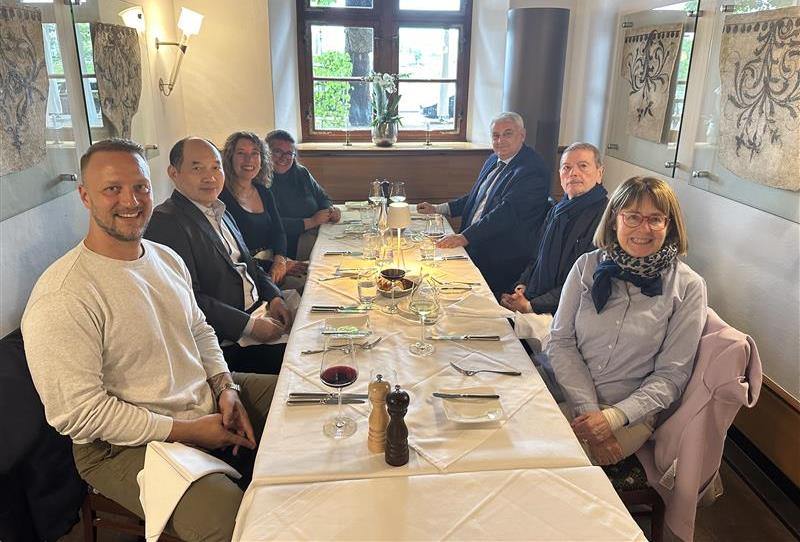
For example, in the first letter, I highlighted our meeting with Dr. Eric O. Freed, the founding and current Editor-in-Chief (EiC) of our journal Viruses. Meeting with Eric is a pleasure, as he has a strong commitment and clear vision for the journal.
On 21 May, 2024 we met with EiC Prof. Dr. Antonino Carbone, and Section EiC Prof. Dr. Alberto Signore (pictured on the left), of our journal Hemato (tracked for Impact Factor, and indexed in Scopus), showing our continued and active collaboration with our chief editors to develop the visions for the journal. Over the course of the day, we gathered feedback and gained an understanding of the journal's expectations and focus on strategic growth.
Reflections on my first year as CEO: achievements and initiatives
During my first year as CEO, there have been many remarkable moments, including a strong focus on bringing people together, focusing on company communications and performance.
According to a recent study of 3,400 people across 10 countries, “Managers impact employees’ mental health (69%) more than doctors (51%) or therapists (41%) — and even the same as a partner (69%).” This is an important topic for me, and perhaps that’s why I place a high value on management culture due to its tangible impact on people’s lives.
When I joined MDPI, I created a weekly meet-up for the Corporate Marketing department and their team leads. On the final Thursday of every month, we hold a Global Marketing meet-up to present projects, share knowledge, and conduct training. For years, I’ve maintained the tradition of ending each of our monthly global calls with a group photo to boost morale, motivation, and productivity, and to finish on a positive note.
In keeping with this, when I stepped into the role of CEO, I launched a bi-weekly management meeting, chairing over 20 MDPI Management Team meetings in my first year. These sessions provide an opportunity for managers to present their team’s work, focusing on their achievements and the challenges they face, while at the same time creating space for sharing knowledge.
“I firmly believe that OA is the future of publishing”
I co-organized and co-led the 2023 MDPI Strategy Management meeting this past October, from which we established an Executive Task Force that meets monthly to prioritize projects aimed at building MDPI into the world’s most trusted publisher. To achieve our goals, we as managers need to maintain collaborative communication and connect to the bigger picture.
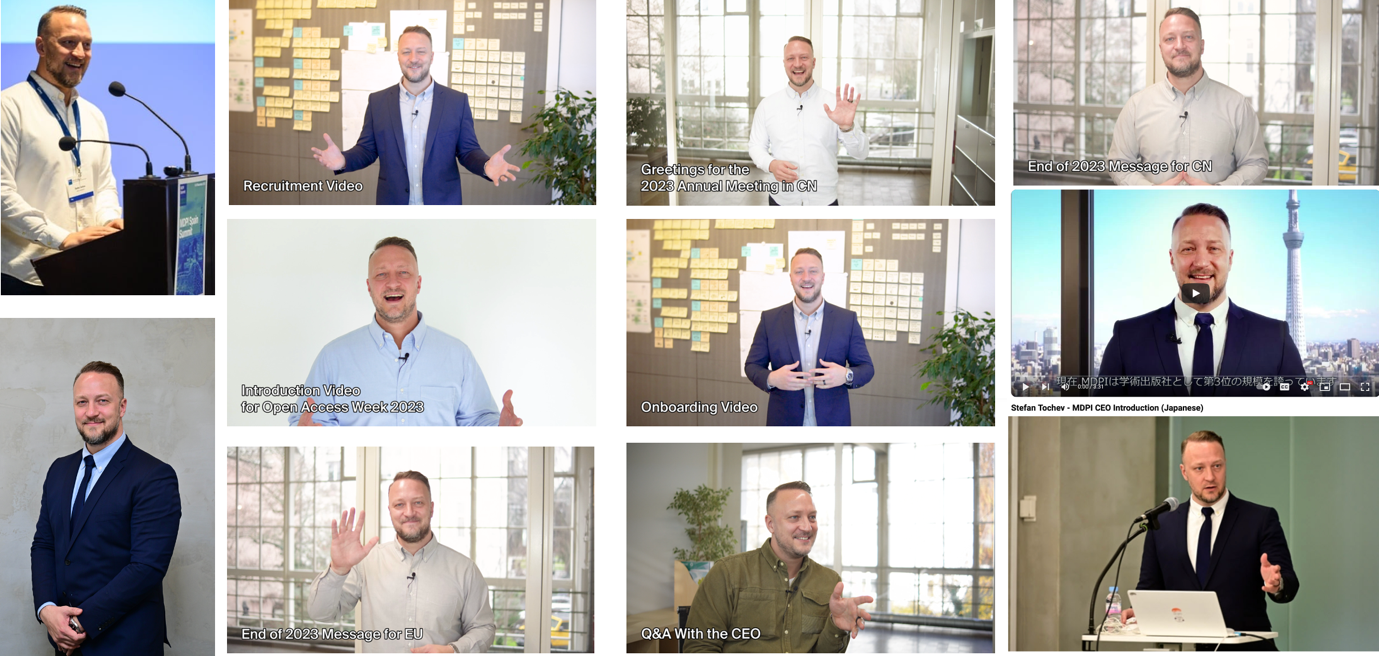
As CEO, I focused on leadership communication by publishing 12 CEO Letters, one for each month of my tenure, to share more about MDPI news and achievements. I also produced ten videos to help further communicate our message.
I was happy to attend eight publishing and conference events, including STM in Frankfurt and Washington, APE, and R2R, and facilitate critical company meetings with Elsevier, Web of Science, ResearchGate, DOAJ, and others. It was a pleasure to meet and have discussions with key organizations and governing bodies such as CAS in China and ANVUR in Italy.
The best part was the opportunity to visit seven MDPI offices across Europe and Asia-Pacific, meeting with local managers and colleagues and supporting them in person. As part of this, I conducted training sessions while continuing to lead the Corporate Marketing department.
Looking ahead
My goal for my second year as CEO is to continue building on the initiatives from the past, including leadership communications, public relations, educational marketing, and company culture, while representing MDPI to the best of my ability. Additionally, I have a few new projects I hope to launch that I believe will be valuable to MDPI and the industry at large.
I firmly believe that OA is the future of publishing, and I am grateful to be in a position to advocate for this belief as part of MDPI, the world's leading open access publisher.
Thank you to our staff and industry friends for your genuine support in this role.
Impactful Research

Nominations Open for the Prestigious Tu Youyou Award 2024
I am pleased to share that MDPI has opened nominations for the 2024 Tu Youyou Award, a prestigious recognition established in honour of Professor Tu Youyou, Nobel Laureate, whose work has significantly transformed the global fight against malaria.
The Tu Youyou Award offers CHF 100,000
In 2015, Professor Tu Youyou was awarded the Nobel Prize in Physiology or Medicine for her discovery of artemisinin, significantly reducing mortality rates from malaria and shaping global health policies. Artemisinin-based combination therapies (ACTs) are now the standard treatment endorsed by the World Health Organization (WHO), saving countless lives, especially in regions heavily burdened by malaria.
MDPI Special Issue
To mark Professor Tu’s 80th birthday in 2009, MDPI’s journal Molecules issued a Special Issue focusing on her contributions to medical research. Recognizing her continuous contribution, MDPI created the Tu Youyou Award in 2016 to honour outstanding achievements in natural products and medicinal chemistry.
The deadline for nominations is 31 December 2024
Nominations are open to scientists excelling in natural products and medicinal chemistry. Eligible nominators include academic institutes, universities, and societies. The deadline for nominations is 31 December 2024, with the winners to be announced on 30 April 2025. The Tu Youyou Award offers CHF 100,000, split equally among the winners.
MDPI encourages the academic community to nominate individuals who have demonstrated excellence and innovation in line with Professor Tu’s legacy. This award not only honours individual achievement but also encourages further scientific exploration and discovery in critical areas of medicine.
This award embodies our deep commitment to groundbreaking research that drives societal progress and celebrates the legacy of one of the greatest medical innovators of our time.
Inside MDPI

2023 MDPI Books Report
In past CEO letters, I have highlighted our publishing process and the impactful peer-reviewed articles that represent the core output of scholarly publishing. However, scholarly books are another pillar of publishing that MDPI also services, which our core audience may not be fully aware of. In this section, I highlight the 2023 MDPI Books report, released by our MDPI Books team in May 2024.
Download the 2023 MDPI Books Report
In the report, you will find a summary of MDPI Books’ 10th anniversary, the books indexed in the Web of Science Book Citation Index, our market outreach, and our outlook for 2024.
MDPI Books celebrated its 10th anniversary in 2023
MDPI Books published its first OA Reprint, “From the Renaissance to the Modern World,” in 2013. Over the past ten years, MDPI Books has seen a significant increase in both the volume and nature of published Reprints. As of December 2023, our catalogue includes a total of 7,369 Reprints, with 1,811 of them added in 2023 alone. MDPI Books includes monographs, book series, edited books and reprints of special issues and topical collections, among other book types.

We’re also celebrating the 10-year MDPI anniversary of Laura Wagner, Head of MDPI Books.
Laura Wagner (Head of Books Division)
Laura holds a Bachelor’s degree in Art History and History from the University of Basel. After her studies, she started her career at an art gallery in Basel.
Since joining MDPI in 2014, Laura has held several roles within the company. This included editorial work, development of reprint and book services, and the temporary management of the journal Arts.
Currently Laura holds the role of Head of Books Division and is in charge of the development and strategic direction of MDPI Books.
MDPI Books indexed in Web of Science Book Citation Index
Another milestone in 2023 was the indexing of four book titles in the Web of Science Book Citation Index. The indexing of our open access books is crucial for their reach and accessibility, ensuring higher visibility within the open science community.

- Self-Representation in an Expanded Field: From Self-Portraiture to Selfie, Contemporary Art in the Social Media Age by editor Ace Lehner
- Towards Socially Integrative Cities: Perspectives on Urban Sustainability in Europe and China by editors Bernhard Müller, Jian Liu, Jianming Cai, Paulina Schiappacasse, Hans-Martin Neumann, and Baojun Yang
- Transitioning to Gender Equality by editors Christa Binswanger and Andrea Zimmermann
- Under Construction: Performing Critical Identity by editor Marie-Anne Kohl
If you would like to learn more about MDPI Books, please visit: www.mdpi.com/books
If you are thinking of writing or editing a book, you can submit your proposal at www.mdpi.com/books/publish-with-us, or email us at [email protected].
Coming Together for Science

Polymers 2024 – Polymers for a Safe and Sustainable Future
Our conference team successfully managed the Polymers 2024 – Polymers for a Safe and Sustainable Future international conference which took place from 28–31 May 2024 in Athens, Greece. The conference was chaired by Prof. Dr. Dimitrios Bikiaris and Prof. Dr. Konstantinos Triantafyllidis from the Aristotle University of Thessaloniki, Greece, and Dr. Ioanna Deligkiozi from AXIA Innovation, Germany. In total, the conference had 259 accepted abstracts and over 300 attendees from 22 different countries.
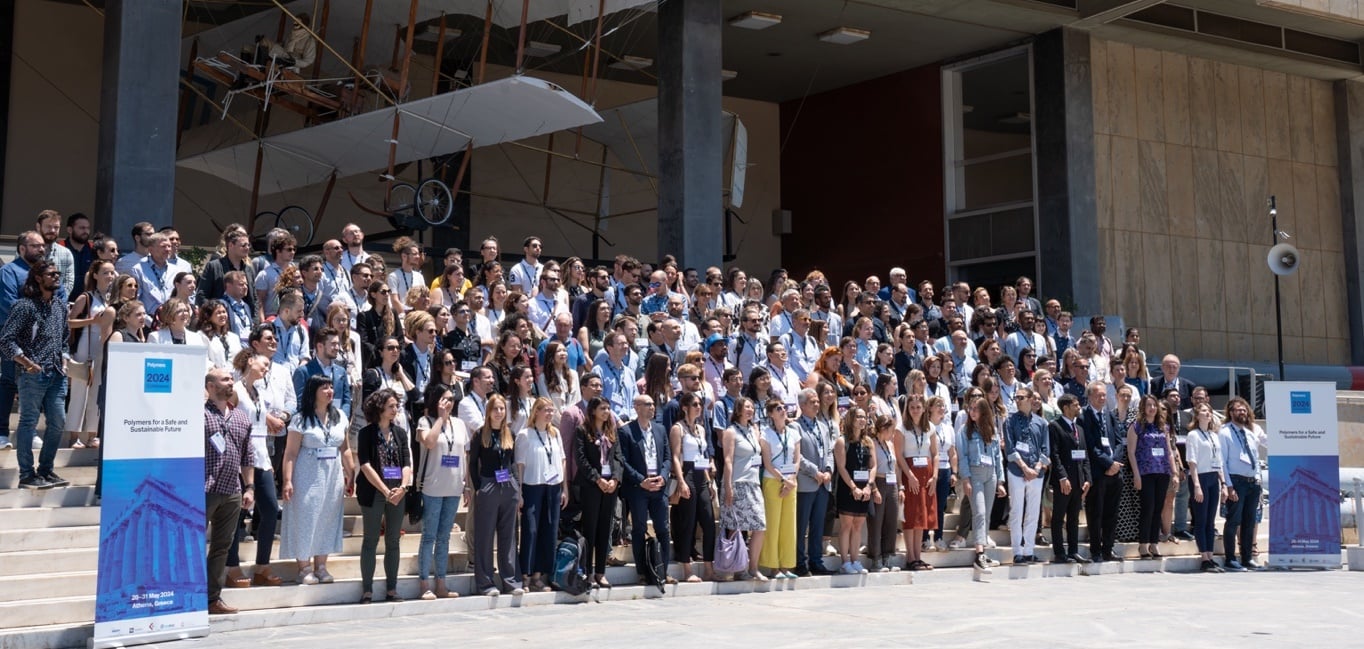
The conference featured three keynote speakers and 12 invited speakers, including esteemed scholars from Europe, Asia, Africa, and Canada. It included 60 selected talks and 189 posters, chosen by the 24 members of the Scientific Committee along with the three Conference Chairs. The event explored the latest scientific advancements and innovations in polymer science, focusing on creating safe, sustainable, and environmentally friendly materials. Emphasizing green polymer chemistry and the use of bioresources, the conference promoted the synthesis of biobased and biodegradable polymers.
The conference featured esteemed scholars from Europe, Asia, Africa, and Canada
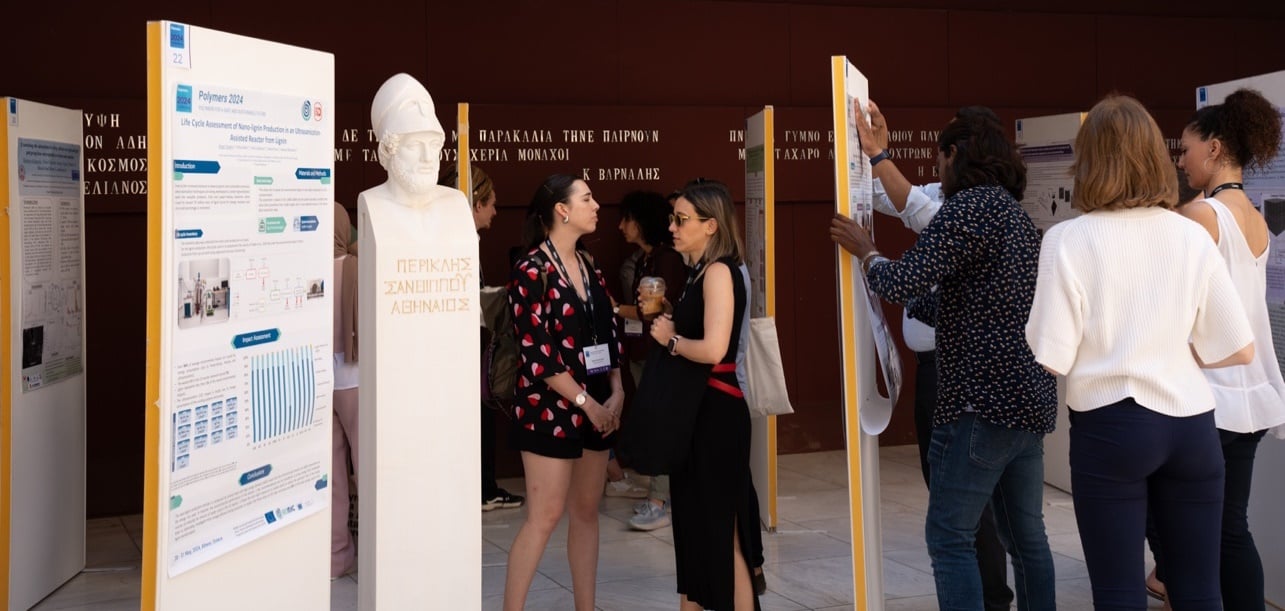
Conference awards
The conference also presented three awards: two sponsored by the journal Polymers – The Best Poster Award (€500) and the Best Oral Presentation Award (€600) – and one sponsored by Ossila, the Best Student Poster Award (€500).
Thank you to our 16 sponsors, three partnering societies (Hellenic Polymer Society, European Polymer Federation, and North American Thermal Analysis Society [NATAS]) and eight media partners.
Upcoming in-person event
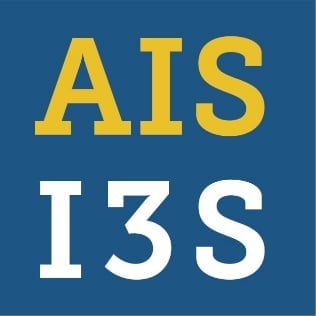
1–4 August, 2024
The 1st International Conference on AI Sensors & The 10th International Symposium on Sensor Science
Location: Singapore
The AI Sensors 2024 Conference will unite innovators and experts in the realms of sensors, sensing technology, and artificial intelligence.
Find more upcoming MDPI events here.
Closing Thoughts
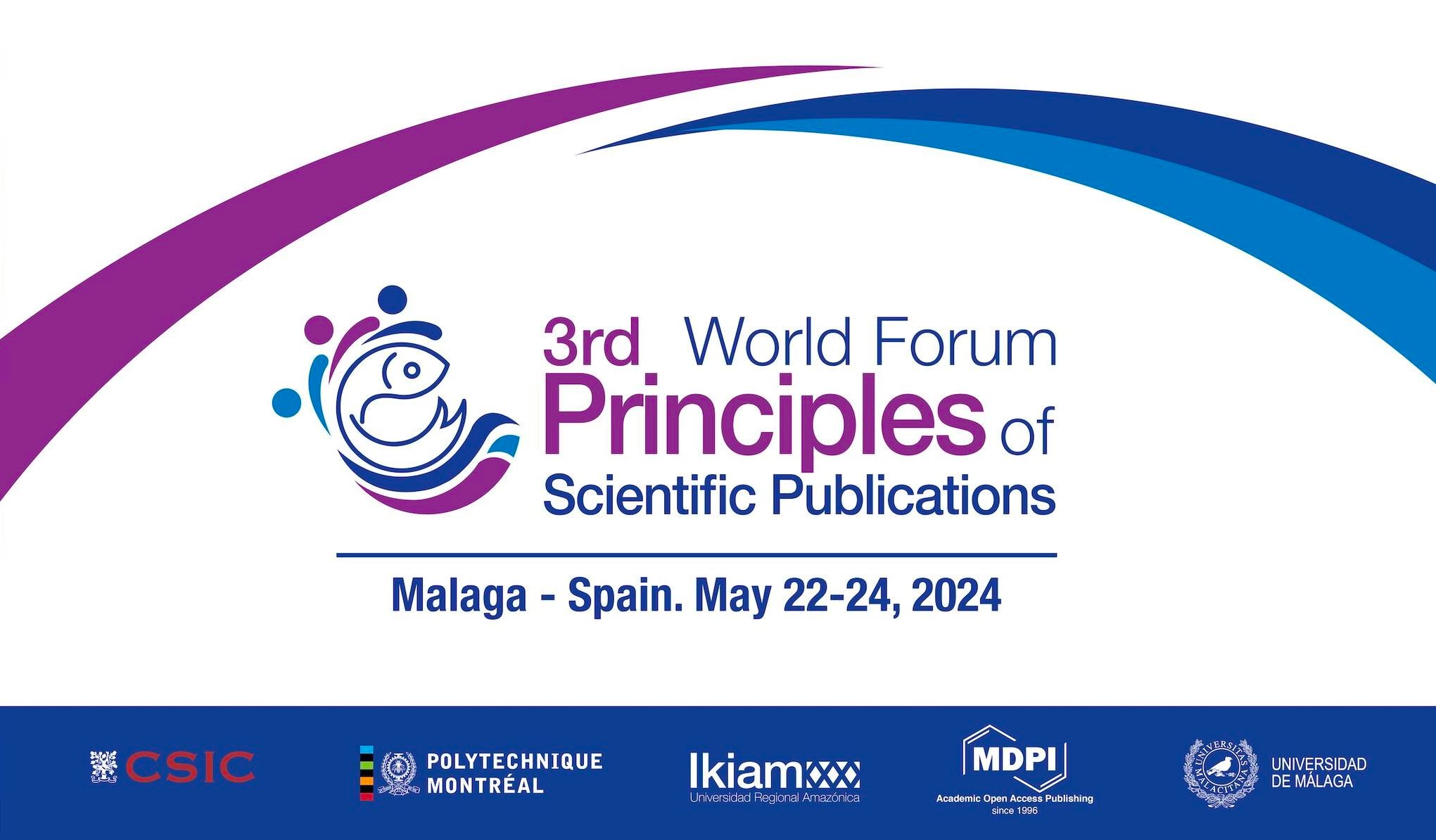
3rd World Forum Principles of Scientific Publications
I’m pleased to share that MDPI sponsored and attended the 3rd World Forum on Principles of Scientific Publications, which took place from 22–24 May in Malaga, Spain. The event brought together academic professionals and leading researchers to discuss critical topics in the realm of publishing and research. Presentation topics included Open Science, AI in Publishing, Predatory Journals, Fake Publications, Challenges for Non-native English Speakers, and more.
“It was great to see strong support from MDPI authors in the audience”
MDPI presentations
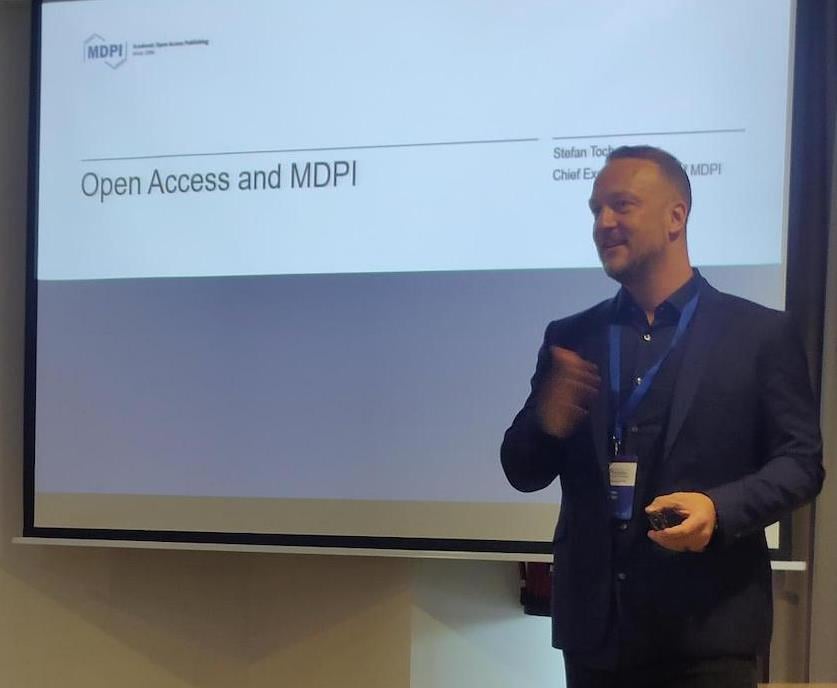
Stefan Tochev (CEO, MDPI) presenting at the 3rd World Forum Principles of Scientific Publications
I had the privilege of attending and presenting at the event, along with my colleague Dr. Enric Sayas (Business Analyst, MDPI) from our Barcelona office, who explored the ethical concerns and opportunities brought by AI in publishing.
I took the opportunity to present on Open Science, the benefits of Open Access, and MDPI’s performance, operations, and investment in ethics. Special thanks to Evan Escamilla (Project Manager, MDPI Books) and Facundo Santomé (Sr. Marketing Manager, MDPI) who also joined the conference.
It was great to see strong support from MDPI authors in the audience who shared their positive experiences publishing with us. Their story reflects the experience of the vast majority of authors who choose to work with MDPI.
We also encountered some conservative views on OA, which created an opportunity for open discussion aimed at addressing concerns about OA and MDPI. Engaging in such discussions is important, as scepticism sometimes arises from misinformation or from a misunderstanding of who we are and how we operate. When we engage in open and honest discussion, we tend to see people getting a better understanding of MDPI, which helps address any misconceptions they may have had.
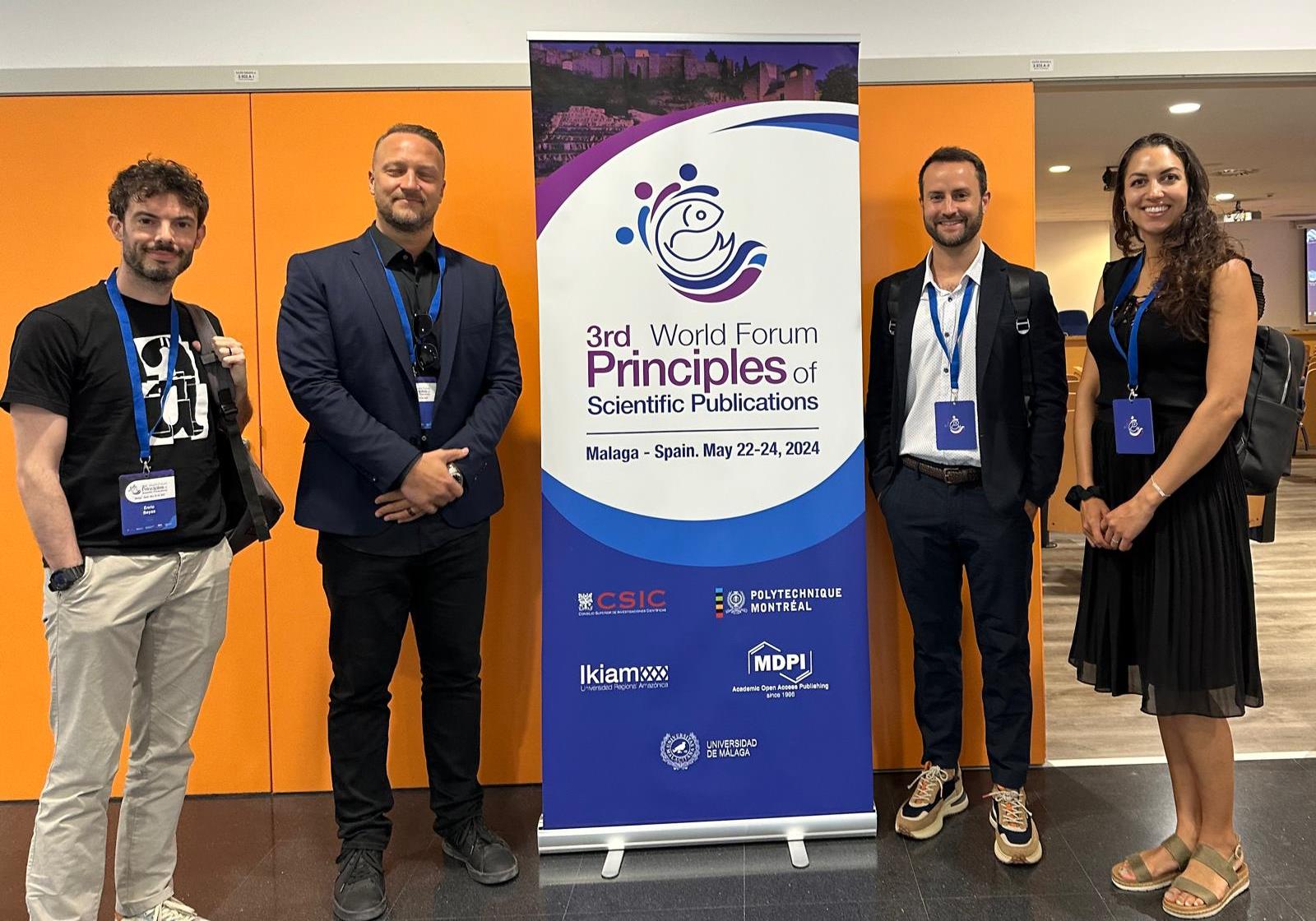
Left to right: Dr. Enric Sayas (Business Analyst, MDPI), Stefan Tochev (CEO, MDPI), Facundo Santomé (Sr. Marketing Manager, MDPI), and Evan Escamilla (Project Manager, MDPI Books) at 3rd World Forum Principles of Scientific Publications
Chief Executive Officer
MDPI AG
23 May 2024
Recruiting Early Career Editorial Board Members for Batteries

In order to improve the journal’s academic vitality and cultivate a new generation of academic leaders for Batteries (ISSN: 2313-0105), we are now recruiting Early Career Editorial Board Members. These target members should be young scholars in their early careers who have sufficient academic experience and, therefore, will be able to contribute toward the long-term development of the journal.
The primary responsibilities of an Early Career Editorial Board Member include the following:
- Publicizing and promoting the journal at academic conferences and among peers;
- Selecting high-quality articles and preparing bilingual media content for promotion;
- Reviewing at least one and no more than three manuscripts per year;
- Inviting submissions from local and international world-leading scientists in respective research fields.
Benefits of becoming an Early Career Editorial Board Member:
- A certificate of being an Early Career Editorial Board Member will be provided;
- The resume of an Early Career Editorial Board Member will be publicized on journal media platforms to improve academic visibility;
- An opportunity to be promoted to an Editorial Board Member based on contribution;
- The journal will regularly acknowledge those who participated in the peer review process on the journal website;
- Opportunities to exchange ideas with internationally influential researchers in the field;
- Opportunities to participate in or host annual meetings and online seminars organized by the Editor-in-Chief and the Editorial Board Members.
The requirements for applying to the Early Career Editorial Board Member position include the following:
- Significant research achievements in fields of batteries or supercapacitors;
- Willingness to spend enough time to contribute to the development of the journal with passion and enthusiasm;
- Scholars who preside over national-level scientific research projects and have overseas experience will be preferred;
- Should have completed their Ph.D. in the last 10 to 15 years; however, we can relax this criterion for exceptionally qualified individuals.
Application:
If you are interested in becoming an Editorial Board Member of Batteries, please send your full academic CV and a short cover letter that shows your interest and enthusiasm for the position to the Batteries Editorial Office with the subject “Early Career Editorial Board Member Application + Name + Institute + Research Expertise”. We look forward to working with you in the future.
Selection process:
- Initial screening of applications → selection by the Editor-in-Chief and Editorial Board Members → email notification → issuing a certificate of appointment.
23 May 2024
Transfer Service in MDPI
We are pleased to announce MDPI’s Transfer Service.
This service provides a convenient method of transferring your manuscript file, along with any reviewer comments, to another journal within our publishing portfolio.
We are committed to helping authors find the right home for their research, and we will provide authors with guidance and technical support through all stages of the transfer process. Authors will be able to choose to transfer in the following two situations:
1. Select alternative journals on submission.
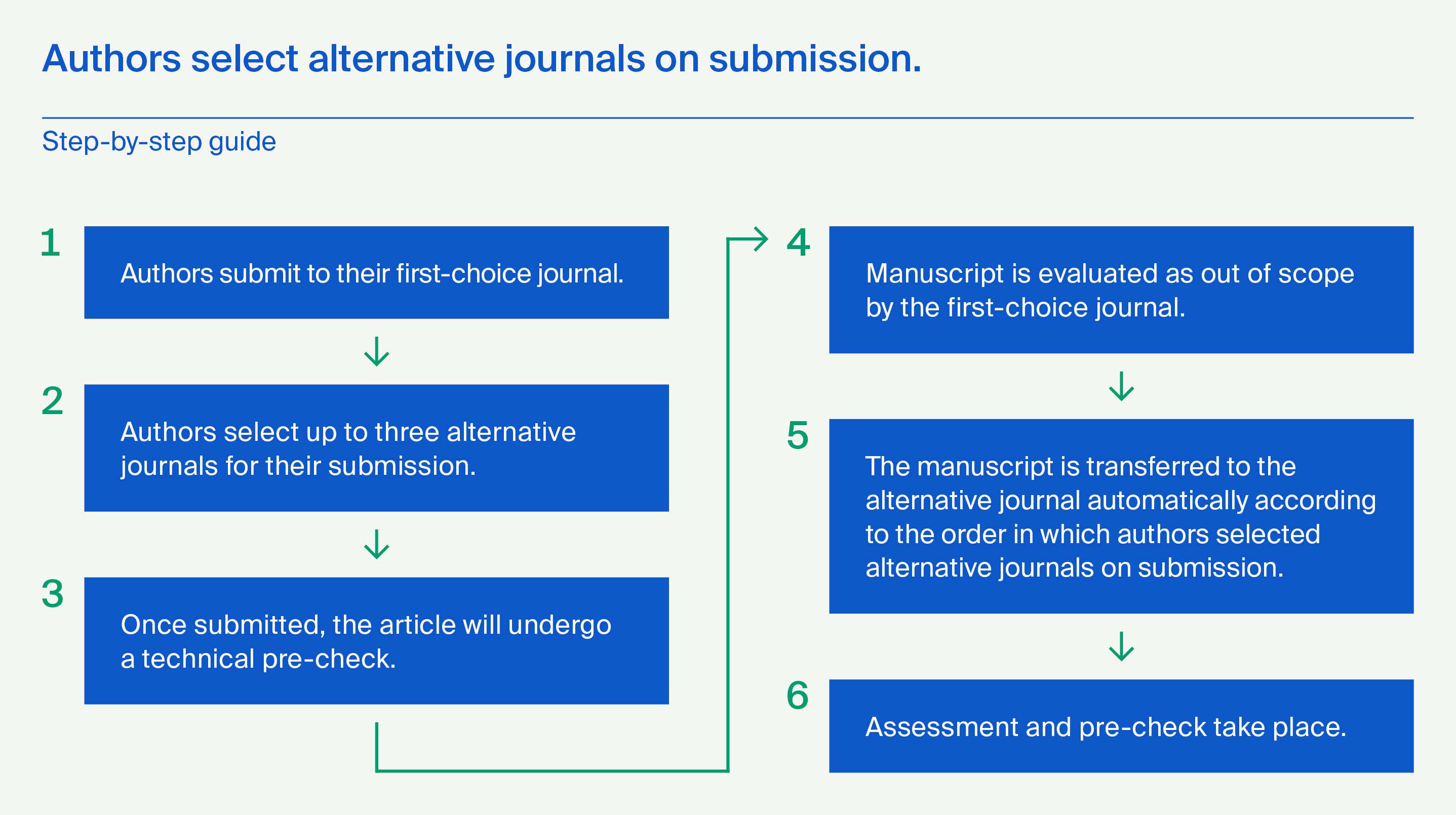
2. Authors are encouraged to transfer manuscripts to other MDPI journals.
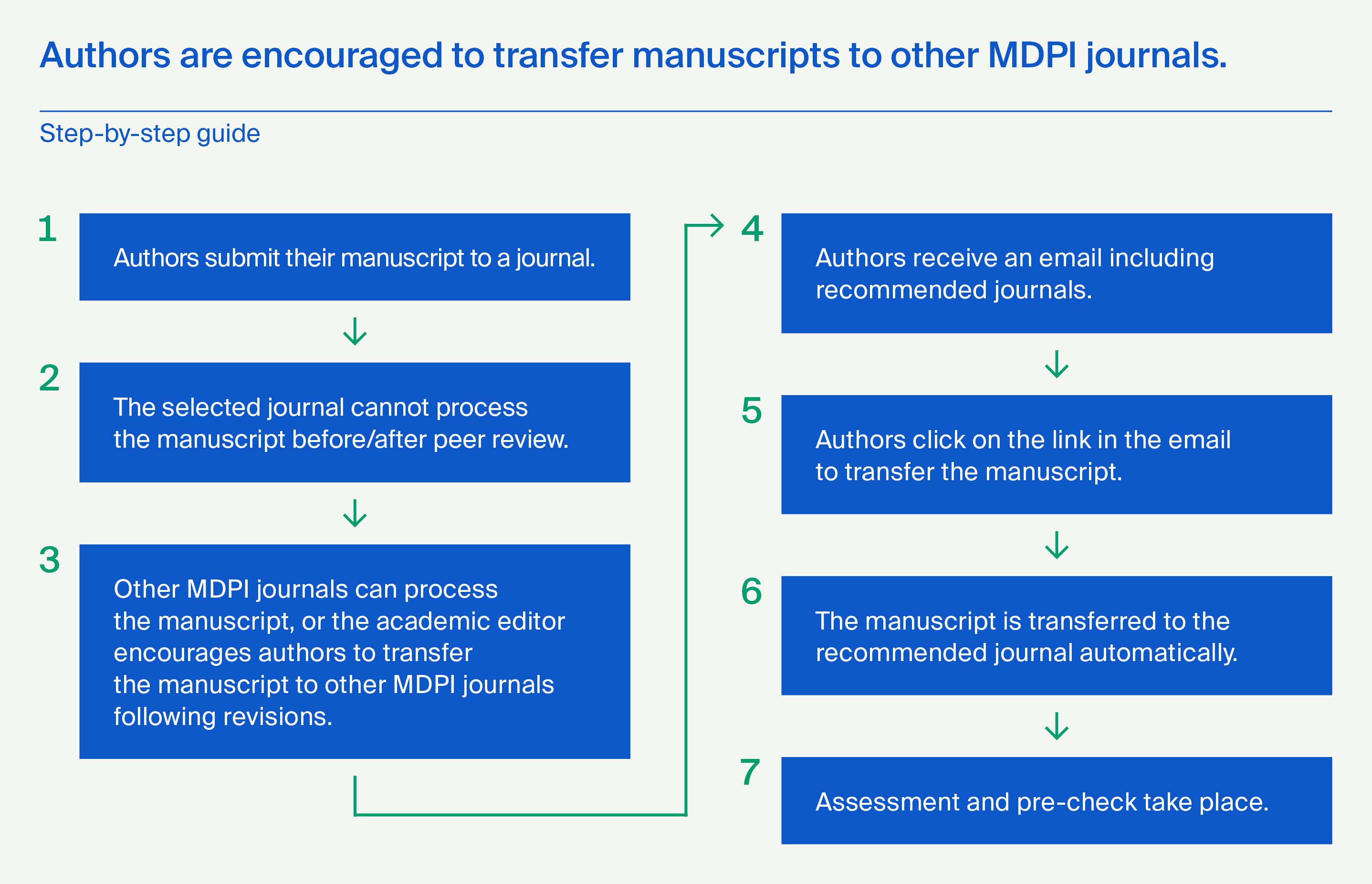
More details about the Transfer Service can be found at the following link:
21 May 2024
Interview with Dr. Mewin Vincent—Winner of the Batteries Outstanding Reviewer Award

Name: Dr. Mewin Vincent
Affiliation: Center for Biological and Chemical Sciences, University of Warsaw, Warsaw, Poland
Research Interests: post lithium batteries; dual-ion batteries; nanomaterials; electrochemical characterizations; in situ XRD; nanomaterial synthesis and characterization
Self-introduction:
I am an experienced researcher with a demonstrated history of working in the research industry. My expertise are physics, electrochemical energy storage, batteries, nanomaterials, and multilayer electronic packaging. I am a skilled research professional with a Ph.D. in the area of Advanced Batteries from the Autonomous University of Madrid, Spain.
The following is an interview with Dr. Mewin Vincent:
1. Could you briefly introduce yourself to our readers and tell us a little bit about your fields of interest?
I'm a researcher passionate about innovation in materials research. I hold a master's degree in physics and a Ph.D. in batteries, which has equipped me with a strong foundation in both the fundamental principles and cutting-edge advancements in this critical field.
I started my career in developing novel materials for electronic packaging and later switched to the field of materials for energy storage applications.
Currently, within my research, I am particularly excited about exploring the potential of post-lithium battery technologies. This includes fascinating avenues like magnesium (Mg), magnesium hybrids, sodium (Na), and lithium–air systems. These hold immense promise for pushing the boundaries of energy density, safety, and sustainability in batteries.
2. Could you elaborate on how you initially learned about the journal Batteries? Furthermore, what inspired you to apply for the Batteries Outstanding Reviewer Award 2023?
While I was pursuing my Ph.D. at IMDEA Materials Institute in Madrid, my project manager Dr. Vinodkumar Etacheri used to serve as a Guest Editor for Batteries. This was the first time I came to know about the journal. Later, when I started getting involved with article reviewing for Batteries, this was one of the options, but with experience, I noticed professionalism and dedication to fast publication which encouraged me to continue and finally achieve this milestone.
3. Which research topics do you think will be of particular interest to the research community in the coming years?
Energy conversion and storage will continue to be a relevant topic in the coming years. Especially due to the drastic climate changes happening around the world caused by CO2 emissions. World leaders have unanimously agreed on the necessity of renewable energy resources. This transition cannot be complete without effective storage solutions.
4. What is your opinion of the open access model of publishing?
The open access model of publishing is really important because it makes knowledge available to everyone. However, some people approach it as a mere business model with no commitment to society. So, there should be strict regulations under which the concept of the open access model can reach its full potential.
5. Which qualities do you think reviewers need? Do you have anything to say to other reviewers?
I feel reviewers should update their knowledge base constantly, which is crucial for an effective review process. They should also learn to say no in cases where they receive an invitation from an area outside of their expertise. It is also essential to provide the review report as soon as possible because the people who made the submission eagerly await the outcome of their submissions.
6. What do you think are the main criteria in the process of reviewing manuscripts?
The quality of the article, its presentation, and relevance of the topic.
7. What is the secret to a happy scientific life? Have you ever encountered any difficulties conducting research and how did you overcome them?
One’s scientific life should be the outcome of a passion for research and an interest in making a contribution to technology as well as society. If any of these are missing, life can be miserable.
8. Do you have any advice for aspiring young researchers looking to make a meaningful impact in their respective fields?
To be passionate about their career, dedicated, and truthful. Do not just work for publications or patents; this should materialize as part of the research flow.
9. As the winner of this award, is there anything you would like to express or someone you would like to thank?
It’s a great opportunity. On this occasion, I would like to thank Batteries (ISSN: 2313-0105) and all its editors for choosing me as part of the review process. I am also thankful to all of my previous project managers and colleagues who developed my enthusiasm for research.
21 May 2024
Interview with Dr. Xin Sui—Winner of the Batteries 2024 Travel Award

Name: Dr. Xin Sui
Affiliation: Department of Energy, Aalborg University, DK-9220 Aalborg, Denmark
Research Interests: battery modeling; AI for battery state estimation; lifetime prediction and extension; feature engineering; machine learning
Self-introduction:
My name is Dr. Xin Sui, and I graduated with a Ph.D. in machine learning for battery state of health estimation from Aalborg University, Aalborg, Denmark. I am currently leading the AI track in the Smart Battery project as a postdoc researcher with the Center for Research on Smart Battery (CROSBAT), AAU Energy, Aalborg University. My research interests include battery modeling, AI for battery state estimation, lifetime prediction, feature engineering, and machine learning.
The following is an interview with Dr. Xin Sui:
1. Could you briefly introduce yourself to our readers and tell us a little bit about your fields of interest?
I received a B.Eng. degree from the Northeast Electric Power University, Jilin, China, in 2015, and an M.Sc. degree from the Institute of Electrical Engineering, Chinese Academy of Sciences, Beijing, China, in 2018, both in electrical engineering. In 2022, I received a Ph.D. degree in machine learning for battery state of health estimation from the Aalborg University, Aalborg, Denmark.
I was a visiting researcher with the Department of Electrical Engineering, Chalmers University of Technology, Gothenburg, in 2023, and with the Department of Mechanical Engineering, Imperial College London, London, UK, in 2024. I am currently leading the AI track in the Smart Battery project as a postdoc researcher with the Center for Research on Smart Battery (CROSBAT), AAU Energy, Aalborg University.
With 6+ years of experience in lithium-ion battery research, I specialize in battery modeling and AI for battery state estimation. In addition, I have a keen interest in various aspects of battery management systems, ranging from pulse current technology and thermal modeling to transfer learning and meta-learning for lifetime prediction. My future vision is to leverage AI in BMS, enhancing the energy efficiency, lifetime, and sustainability of battery system, reducing environmental impact, and achieving a resilient and cost-effective energy future.
I am a member of the IEEE Young Professionals, WIE, WiIES, PELS, IAS, IES, USA, and an active reviewer for relevant top-tier journals. I have served as a special session chair at IEEE conferences multiple times. I also served as a Guest Associate Editor of the Batteries-featured Special Issue “Artificial Intelligence-Based State-of-Health Estimation of Lithium-Ion Batteries”, both 1st and 2nd edition, with the 1st edition published in an MDPI book.
2. How does it feel to receive this recognition for your work? Where do you obtain journal award participation information?
Receiving this recognition from the award committee is deeply gratifying. It not only acknowledges my contributions to the field of smart battery management but also encourages me to continue my research with greater enthusiasm. My work, which focuses on using AI and features engineering techniques for battery state estimation and lifetime prediction, aims to develop a health system for batteries that can significantly extend their lifetime relying on software-based management. This award reaffirms that my research is not only relevant but also impactful in advancing how we manage and optimize battery technologies.
3. Have you promoted the journal at any conference? In addition to that, how do you prefer to share the journal with your community?
Yes, I have promoted this journal at various conferences, particularly focusing on the Special Issues I’ve guest-edited, other Special Issues related to my research, as well as information regarding various awards. Besides conferences, I also share information about the journal through workshops and social media platforms like LinkedIn.
4. How did winning this award impact your career, and what do you hope to do?
Winning the Batteries 2024 Travel Award has significant impact on my career by providing me with the opportunity to present my research at the prestigious 10th International Power Electronics and Motion Control Conference, ECCE Asia (IPEMC 2024-ECCE Asia), scheduled in Chengdu, China, from 17 to 20 May 2024. At this conference, I will give an oral presentation of my recent work, entitled “AI for Smart Battery State Estimation: A Perspective”. Additionally, I will chair a special session, titled “Smart Integration of Electrified Vehicles in V2G Systems: Bridging Battery Health and Smart Grid Stability”, where I will facilitate discussions on cutting-edge topics that align closely with my research interests. Additionally, by interacting with leading researchers and industry professionals, I aim to expand my professional network and explore potential collaborations that will enhance contributions to smart battery technology.
5. What is your opinion of the open access model of publishing?
I strongly support the open access model. On the one hand, it helps researchers all around the world, regardless of institution or financial background, to access the latest research advancements, facilitating knowledge sharing and science and technological progress. On the other hand, it helps researchers gain wider visibility, thereby leading to greater academic recognition and more citations. Of course, it’s crucial that open access journals maintain strict and professional peer review processes to ensure the quality of the publications.
6. Which research topics do you think will be of particular interest to the research community in the coming years?
I think that research focused on integrating AI with various disciplines, or interdisciplinary collaborations, will be particularly important and interesting. The capability of AI in rapidly and accurately analyzing large datasets and interpreting complex systems will potentially revolutionize various sectors. For instance, in healthcare, AI is indispensable for customizing medical treatments, while in energy and transportation sectors, it can enhance smart battery management and grid optimization.
7. Do you have any advice for aspiring young researchers looking to make a meaningful impact in their respective fields?
As a fellow young researcher, instead of offering specific advice, I’d prefer to share my personal perspective based on what I’ve learned so far. Firstly, I think it’s important for us to broaden our scientific perspective. One should not work in isolation but stay informed about the latest research trends and current hot topics. Secondly, maintaining our passion is crucial. Actively participating in conferences not only helps promote our work, but also allows us to exchange valuable ideas with peers, from whom you can gain much experience and guidance. Lastly, do not rush the process. Everyone has their own unique development trajectory, and it’s important to persist at our own pace and stay true to your professional growth goals.
8. As the winner of this award, is there something you want to express or someone to thank?
First and foremost, I would like to extend my deepest gratitude to the Batteries Award Committee for this honor. The journal maintains high editorial standards and gathers a wide range of interesting and novel research in the field of batteries. I am profoundly thankful to my supervisor, Prof. Remus Teodorescu at AAU Energy, for his inspiration, guidance, and encouragement on my research journey. I also appreciate the professionalism and efficiency of the Special Issue Editors at MDPI’s journal Batteries (ISSN: 2313-0105) and the support from my peers, whose collective effort greatly contributed to the success of the Special Issue for which I served as a Guest Editor.
17 May 2024
Batteries 2022 Best Paper Award—Winners Announced
We are pleased to announce the winners of the Batteries 2022 Best Paper Award. All papers published from 1 January to 31 December 2022 in Batteries (ISSN: 2313-0105) were considered for the award. After a thorough evaluation by the Award Committee from the Editorial Board, based on the originality and significance of the papers, citations and downloads, five winners were selected.
First Prize: 500 CHF and a paper published for free in Batteries
Article:
“Revisiting Polytetrafluorethylene Binder for Solvent-Free Lithium-Ion Battery Anode Fabrication”
by Yang Zhang, Frederik Huld, Song Lu, Camilla Jektvik, Fengliu Lou and Zhixin Yu
Batteries 2022, 8(6), 57; https://doi.org/10.3390/batteries8060057
Available online: https://www.mdpi.com/2313-0105/8/6/57
Second Prize: 200 CHF and a paper published for free in Batteries
Article:
“Study on Thermal Runaway Behavior of Li-Ion Batteries Using Different Abuse Methods”
by Dan Wei, Mengqi Zhang, Linpei Zhu, Hu Chen, Wensheng Huang, Jian Yao, Zhuchen Yuan, Chengshan Xu and Xuning Feng
Batteries 2022, 8(11), 201; https://doi.org/10.3390/batteries8110201
Available online: https://www.mdpi.com/2313-0105/8/11/201
Review:
“A Review of Lithium-Ion Battery Failure Hazards: Test Standards, Accident Analysis, and Safety Suggestions”
by Xin Lai, Jian Yao, Changyong Jin, Xuning Feng, Huaibin Wang, Chengshan Xu and Yuejiu Zheng
Batteries 2022, 8(11), 248; https://doi.org/10.3390/batteries8110248
Available online: https://www.mdpi.com/2313-0105/8/11/248
Third Prize: 100 CHF and a paper published for free in Batteries
Article:
”The Impact of an Overlaid Ripple Current on Battery Aging: The Development of the SiCWell Dataset”
by Erik Goldammer, Marius Gentejohann, Michael Schlüter, Daniel Weber, Wolfgang Wondrak, Sibylle Dieckerhoff, Clemens Gühmann and Julia Kowal
Batteries 2022, 8(2), 11; https://doi.org/10.3390/batteries8020011
Available online: https://www.mdpi.com/2313-0105/8/2/11
Review:
“Recent Development in Carbon-LiFePO4 Cathodes for Lithium-Ion Batteries: A Mini Review”
by Brindha Ramasubramanian, Subramanian Sundarrajan, Vijila Chellappan, M. V. Reddy, Seeram Ramakrishna and Karim Zaghib
Batteries 2022, 8(10), 133; https://doi.org/10.3390/batteries8100133
Available online: https://www.mdpi.com/2313-0105/8/10/133
Please join us in congratulating the winners of the Batteries 2022 Best Paper Award. We would also like to take this opportunity to thank all of our authors for their continued support.
Batteries Editorial Office
17 May 2024
Tu Youyou Award—Open for Nominations
In acknowledgment of the groundbreaking achievements of Professor Tu Youyou, the Nobel laureate credited with the discovery of artemisinin, MDPI is proud to announce the Tu Youyou Award. This award, inaugurated in 2016, seeks to honor scholars who excel in the fields of natural products chemistry and medicinal chemistry.
Prize:
- CHF 100,000 in total (If there is more than one winner, the prize will be divided equally amongst the winners);
- An award medal for each winner.
Who should be nominated?
- Scientists with outstanding achievements and contributions in the fields of natural products chemistry and medicinal chemistry.
Who can submit a nomination?
- Academic research institutes
- Universities
- Academic societies
Any personal nominations are not accepted.
How do I submit a nomination?
Candidates’ institutional affiliations need to submit their nominations for final candidates to the Tu Youyou Award Team directly by email after internal screening, and each institution can only nominate a maximum of two candidates for each edition of the Tu Youyou Award. Please note that the nominations cannot be modified once they are submitted and confirmed by the Tu Youyou Award Team.
Required nomination materials:
Nomination Form (Download)
Schedule:
Nomination deadline: 31 December 2024;
Winner announcement: 30 April 2025.
Contact:
Tu Youyou Award Team ([email protected])
More information can be found on the Tu Youyou Award official website. For any inquiries, do not hesitate to contact the Tu Youyou Award Team.
16 May 2024
MDPI Romania Author Training Academic Events in April
MDPI Romania sponsored four events over the month of April, contributing author training sessions to each event.
The NutriSciLabs 2024 conference was held at the Carol Davila University of Medicine and Pharmacy on 12 April 2024. Organized by the Association of Students from the Faculty of Pharmacy Studies, the conference aimed to enhance students’ academic writing and research skills, and bolster their confidence in participating in the academic world. Ioana Paunescu, journal relations specialist for MDPI Romania, led the training session. Paunescu first outlined MDPI’s history and core values, then explained academic writing techniques, ethics, and similarity percentages. The presentation covered the entire editorial process, highlighting the amount of attention paid to details throughout manuscript processing. Paunescu also discussed common errors that authors make while writing, and how to avoid such errors.
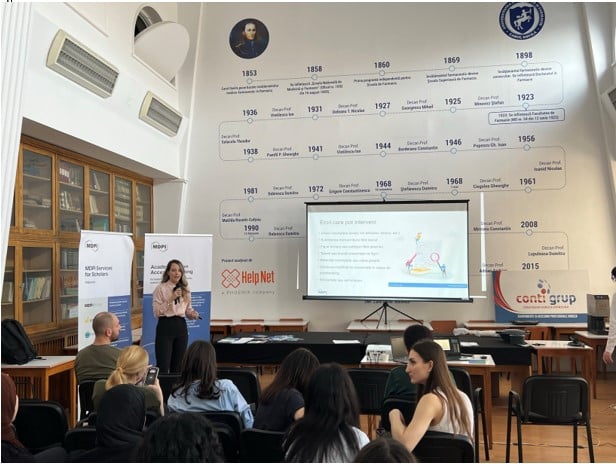
On 13 April 2024, the NextGEN 2.0 Student Conference took place at the Babes-Bolyai University of Cluj-Napoca. NextGen Healthcare organized this event with the university’s European Students’ Society to discuss European and international current affairs. MDPI Romania contributed an author training session called Steps of the Publication Process. Irina Codruta Zaharia, journal relations specialist, began the session with a general introduction of MDPI before diving into different article types, different layout formats, possible journals to submit to, the MDPI submission checklist, and the MDPI editorial process. By explaining the fundamentals of writing and publishing academic papers, Zaharia imparted valuable industry knowledge to the curious minds present. Participants were eager to engage with Zaharia in the subsequent Q&A session.
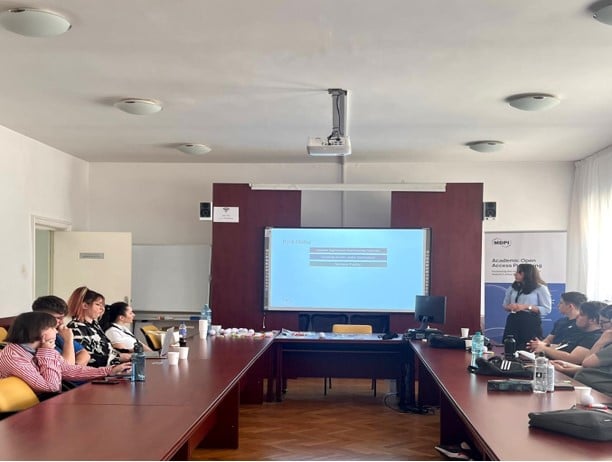
Celebrating its 20th anniversary this year, the International Conference “Students for Students” has long been a gathering place for undergraduate and postgraduate students of all nationalities to present their work and exchange ideas with each other. This year’s conference was held on 18 April 2024, with MDPI Romania contributing an author training session called The World of Open Access. Key speakers included Dr. Norbert Kiss from MDPI Romania and Prof. Dragos Horvath from Strasbourg University. Dr. Kiss discussed the history of open access, differences between open access publishing and traditional publishing, and implications for open access in the future. Attendees expressed keen interest in the subject, approaching Dr. Kiss with questions about academic publishing as well as his career trajectory.
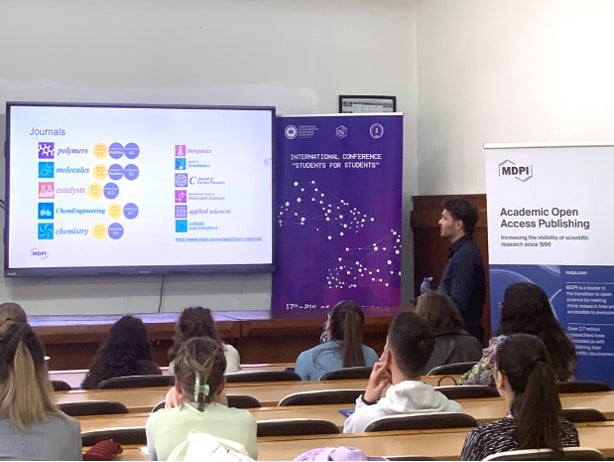
Most recently, on 26 April 2024, MDPI Romania sponsored the National Symposium of Students from Geology and Geophysics Faculties. The AAPG Students Chapter at the Babes-Bolyai University organized this event as an opportunity for geology students from all Romanian universities to present their work and confer with other researchers. Dr. Kiss gave his lecture The World of Open Access at this event as well.
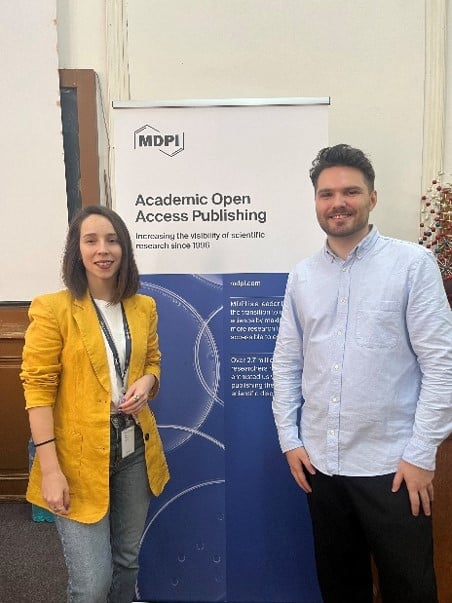
MDPI is thankful to all the participants, speakers, and organizers who attended these events. Through their enthusiasm and dedication, these events were great successes.
10 May 2024
Batteries | Selected Papers from 2022–2023 on the Topic of Supercapacitors

We are pleased to invite you to read selected papers on the topic of supercapacitors in Batteries (ISSN: 2313-0105), from the previous two years. The list of these papers is below.
1. “An Experimental Study of Power Smoothing Methods to Reduce Renewable Sources Fluctuations Using Supercapacitors and Lithium-Ion Batteries”
by Dario Benavides, Paul Arévalo, Marcos Tostado-Véliz, David Vera, Antonio Escamez, José A. Aguado and Francisco Jurado
Batteries 2022, 8(11), 228; https://doi.org/10.3390/batteries8110228
Available online: https://www.mdpi.com/2313-0105/8/11/228
2. “Use of Water-In-Salt Concentrated Liquid Electrolytes in Electrochemical Energy Storage: State of the Art and Perspectives”
by Shahid Khalid, Nicolò Pianta, Piercarlo Mustarelli and Riccardo Ruffo
Batteries 2023, 9(1), 47; https://doi.org/10.3390/batteries9010047
Available online: https://www.mdpi.com/2313-0105/9/1/47
3. “From Triboelectric Nanogenerator to Uninterrupted Power Supply System: The Key Role of Electrochemical Batteries and Supercapacitors”
by Yajun Mi, Yin Lu, Xueqing Wang, Zequan Zhao, Xia Cao and Ning Wang
Batteries 2022, 8(11), 215; https://doi.org/10.3390/batteries8110215
Available online: https://www.mdpi.com/2313-0105/8/11/215
4. “Carbon-Based Materials for Supercapacitors: Recent Progress, Challenges and Barriers”
by Abdul Ghani Olabi, Qaisar Abbas, Mohammad Ali Abdelkareem, Abdul Hai Alami, Mojtaba Mirzaeian and Enas Taha Sayed
Batteries 2023, 9(1), 19; https://doi.org/10.3390/batteries9010019
Available online: https://www.mdpi.com/2313-0105/9/1/19
5. “Surface Selenization of NiCo-Layered Double Hydroxide Nanosheets for High-Performance Supercapacitors”
by Mengdi Wang, Xingyu Liu and Xiang Wu
Batteries 2023, 9(1), 49; https://doi.org/10.3390/batteries9010049
Available online: https://www.mdpi.com/2313-0105/9/1/49
6. “A Review on Thermal Behaviors and Thermal Management Systems for Supercapacitors”
by Wei Zhou, Zhien Liu, Wan Chen, Xianzhong Sun, Maji Luo, Xiaohu Zhang, Chen Li, Yabin An, Shuang Song, Kai Wang et al.
Batteries 2023, 9(2), 128; https://doi.org/10.3390/batteries9020128
Available online: https://www.mdpi.com/2313-0105/9/2/128
7. “High-Performance Supercapacitors: A Comprehensive Review on Paradigm Shift of Conventional Energy Storage Devices”
by K. C. Seetha Lakshmi and Balaraman Vedhanarayanan
Batteries 2023, 9(4), 202; https://doi.org/10.3390/batteries9040202
Available online: https://www.mdpi.com/2313-0105/9/4/202
8. “Integration of Flexible Supercapacitors with Triboelectric Nanogenerators: A Review”
by Yin Lu, Tong Wu, Zimeng Ma, Yajun Mi, Zequan Zhao, Fei Liu, Xia Cao and Ning Wang
Batteries 2023, 9(5), 281; https://doi.org/10.3390/batteries9050281
Available online: https://www.mdpi.com/2313-0105/9/5/281
10 May 2024
Batteries | Selected Papers from 2022–2023 on the Topic of Battery Modelling, Simulation and Management (III)

We are pleased to invite you to read selected papers on the topic of battery modelling, simulation and management in Batteries (ISSN: 2313-0105), from the previous two years. The list of these papers is below.
1. “Equivalent Circuit Model for High-Power Lithium-Ion Batteries under High Current Rates, Wide Temperature Range, and Various State of Charges”
by Danial Karimi, Hamidreza Behi, Joeri Van Mierlo and Maitane Berecibar
Batteries 2023, 9(2), 101; https://doi.org/10.3390/batteries9020101
Available online: https://www.mdpi.com/2313-0105/9/2/101
2. “An Optimized Random Forest Regression Model for Li-Ion Battery Prognostics and Health Management”
by Geng Wang, Zhiqiang Lyu and Xiaoyu Li
Batteries 2023, 9(6), 332; https://doi.org/10.3390/batteries9060332
Available online: https://www.mdpi.com/2313-0105/9/6/332
3. “A Review on the Degradation Implementation for the Operation of Battery Energy Storage Systems”
by Pedro Luis Camuñas García-Miguel, Jaime Alonso-Martínez, Santiago Arnaltes Gómez, Manuel García Plaza and Andrés Peña Asensio
Batteries 2022, 8(9), 110; https://doi.org/10.3390/batteries8090110
Available online: https://www.mdpi.com/2313-0105/8/9/110
4. “An Efficient EMS for BESS in Monopolar DC Networks with High Penetration of Renewable Generation: A Convex Approximation”
by Luis Fernando Grisales-Noreña, Oscar Danilo Montoya and Jesus C. Hernández
Batteries 2023, 9(2), 84; https://doi.org/10.3390/batteries9020084
Available online: https://www.mdpi.com/2313-0105/9/2/84
5. “Battery State of Health Estimate Strategies: From Data Analysis to End-Cloud Collaborative Framework”
by Kaiyi Yang, Lisheng Zhang, Zhengjie Zhang, Hanqing Yu, Wentao Wang, Mengzheng Ouyang, Cheng Zhang, Qi Sun, Xiaoyu Yan, Shichun Yang and et al.
Batteries 2023, 9(7), 351; https://doi.org/10.3390/batteries9070351
Available online: https://www.mdpi.com/2313-0105/9/7/351
6. “Surface Selenization of NiCo-Layered Double Hydroxide Nanosheets for High-Performance Supercapacitors”
by Mengdi Wang, Xingyu Liu and Xiang Wu
Batteries 2023, 9(1), 49; https://doi.org/10.3390/batteries9010049
Available online: https://www.mdpi.com/2313-0105/9/1/49
7. “High-Performance Supercapacitors: A Comprehensive Review on Paradigm Shift of Conventional Energy Storage Devices”
by K. C. Seetha Lakshmi and Balaraman Vedhanarayanan
Batteries 2023, 9(4), 202; https://doi.org/10.3390/batteries9040202
Available online: https://www.mdpi.com/2313-0105/9/4/202
8. “Effect of Lithium Salt Concentration on Materials Characteristics and Electrochemical Performance of Hybrid Inorganic/Polymer Solid Electrolyte for Solid-State Lithium-Ion Batteries”
by Debabrata Mohanty, Shu-Yu Chen and I-Ming Hung
Batteries 2022, 8(10), 173; https://doi.org/10.3390/batteries8100173
Available online: https://www.mdpi.com/2313-0105/8/10/173
9. “Modelling and Estimation of Vanadium Redox Flow Batteries: A Review”
by Thomas Puleston, Alejandro Clemente, Ramon Costa-Castelló and Maria Serra
Batteries 2022, 8(9), 121; https://doi.org/10.3390/batteries8090121
Available online: https://www.mdpi.com/2313-0105/8/9/121
10. “Transition Metal Dichalcogenides for High-Performance Aqueous Zinc Ion Batteries”
by Baishan Liu
Batteries 2022, 8(7), 62; https://doi.org/10.3390/batteries8070062
Available online: https://www.mdpi.com/2313-0105/8/7/62
11. “Efficient Battery Models for Performance Studies-Lithium Ion and Nickel Metal Hydride Battery”
by Umapathi Krishnamoorthy, Parimala Gandhi Ayyavu, Hitesh Panchal, Dayana Shanmugam, Sukanya Balasubramani, Ali Jawad Al-rubaie, Ameer Al-khaykan, Ankit D. Oza, Sagram Hembrom, Tvarit Patel and et al.
Batteries 2023, 9(1), 52; https://doi.org/10.3390/batteries9010052
Available online: https://www.mdpi.com/2313-0105/9/1/52
12. “Fast Identification of Micro-Health Parameters for Retired Batteries Based on a Simplified P2D Model by Using Padé Approximation”
by Jianing Xu, Chuanyu Sun, Yulong Ni, Chao Lyu, Chao Wu, He Zhang, Qingjun Yang and Fei Feng
Batteries 2023, 9(1), 64; https://doi.org/10.3390/batteries9010064
Available online: https://www.mdpi.com/2313-0105/9/1/64
13. “Data-Driven Battery Aging Mechanism Analysis and Degradation Pathway Prediction”
by Ruilong Xu, Yujie Wang and Zonghai Chen
Batteries 2023, 9(2), 129; https://doi.org/10.3390/batteries9020129
Available online: https://www.mdpi.com/2313-0105/9/2/129
14. “Lithium–Ion Battery Data: From Production to Prediction”
by Marwan Hassini, Eduardo Redondo-Iglesias and Pascal Venet
Batteries 2023, 9(7), 385; https://doi.org/10.3390/batteries9070385
Available online: https://www.mdpi.com/2313-0105/9/7/385
10 May 2024
Batteries | Selected Papers from 2022–2023 on the Topic of Battery Modelling, Simulation and Management (II)

We are pleased to invite you to read selected papers on the topic of battery modelling, simulation and management in Batteries (ISSN: 2313-0105), from the previous two years. The list of these papers is below.
1. “Thermal Modelling Utilizing Multiple Experimentally Measurable Parameters”
by Anosh Mevawalla, Yasmin Shabeer, Manh Kien Tran, Satyam Panchal, Michael Fowler and Roydon Fraser
Batteries 2022, 8(10), 147; https://doi.org/10.3390/batteries8100147
Available online: https://www.mdpi.com/2313-0105/8/10/147
2. “Study of SOC Estimation by the Ampere-Hour Integral Method with Capacity Correction Based on LSTM”
by Xin Zhang, Jiawei Hou, Zekun Wang and Yueqiu Jiang
Batteries 2022, 8(10), 170; https://doi.org/10.3390/batteries8100170
Available online: https://www.mdpi.com/2313-0105/8/10/170
3. “Optimal Capacity and Cost Analysis of Battery Energy Storage System in Standalone Microgrid Considering Battery Lifetime”
by Pinit Wongdet, Terapong Boonraksa, Promphak Boonraksa, Watcharakorn Pinthurat, Boonruang Marungsri and Branislav Hredzak
Batteries 2023, 9(2), 76; https://doi.org/10.3390/batteries9020076
Available online: https://www.mdpi.com/2313-0105/9/2/76
4. “End-Cloud Collaboration Approach for State-of-Charge Estimation in Lithium Batteries Using CNN-LSTM and UKF”
by Wentao Wang, Bin Ma, Xiao Hua, Bosong Zou, Lisheng Zhang, Hanqing Yu, Kaiyi Yang, Shichun Yang and Xinhua Liu
Batteries 2023, 9(2), 114; https://doi.org/10.3390/batteries9020114
Available online: https://www.mdpi.com/2313-0105/9/2/114
5. “Battery Management, Key Technologies, Methods, Issues, and Future Trends of Electric Vehicles: A Pathway toward Achieving Sustainable Development Goals”
by Molla Shahadat Hossain Lipu, Abdullah Al Mamun, Shaheer Ansari, Md. Sazal Miah, Kamrul Hasan, Sheikh T. Meraj, Maher G. M. Abdolrasol, Tuhibur Rahman, Md. Hasan Maruf, Mahidur R. Sarker et al.
Batteries 2022, 8(9), 119; https://doi.org/10.3390/batteries8090119
Available online: https://www.mdpi.com/2313-0105/8/9/119
6. “Electric Vehicle Batteries: Status and Perspectives of Data-Driven Diagnosis and Prognosis”
by Jingyuan Zhao and Andrew F. Burke
Batteries 2022, 8(10), 142; https://doi.org/10.3390/batteries8100142
Available online: https://www.mdpi.com/2313-0105/8/10/142
7. “Review on Battery Packing Design Strategies for Superior Thermal Management in Electric Vehicles”
by Robby Dwianto Widyantara, Siti Zulaikah, Firman Bagja Juangsa, Bentang Arief Budiman and Muhammad Aziz
Batteries 2022, 8(12), 287; https://doi.org/10.3390/batteries8120287
Available online: https://www.mdpi.com/2313-0105/8/12/287
8. “A Review of DC Fast Chargers with BESS for Electric Vehicles: Topology, Battery, Reliability Oriented Control and Cooling Perspectives”
by Hakan Polat, Farzad Hosseinabadi, Md. Mahamudul Hasan, Sajib Chakraborty, Thomas Geury, Mohamed El Baghdadi, Steven Wilkins and Omar Hegazy
Batteries 2023, 9(2), 121; https://doi.org/10.3390/batteries9020121
Available online: https://www.mdpi.com/2313-0105/9/2/121
9. “Smart Battery Technology for Lifetime Improvement”
by Remus Teodorescu, Xin Sui, Søren B. Vilsen, Pallavi Bharadwaj, Abhijit Kulkarni and Daniel-Ioan Stroe
Batteries 2022, 8(10), 169; https://doi.org/10.3390/batteries8100169
Available online: https://www.mdpi.com/2313-0105/8/10/169
10. “A Review on Thermal Behaviors and Thermal Management Systems for Supercapacitors”
by Wei Zhou, Zhien Liu, Wan Chen, Xianzhong Sun, Maji Luo, Xiaohu Zhang, Chen Li, Yabin An, Shuang Song, Kai Wang et al.
Batteries 2023, 9(2), 128; https://doi.org/10.3390/batteries9020128
Available online: https://www.mdpi.com/2313-0105/9/2/128
11. “Development of a Matlab/Simulink Model for Monitoring Cell State-of-Health and State-of-Charge via Impedance of Lithium-Ion Battery Cells”
by Jonghyeon Kim and Julia Kowal
Batteries 2022, 8(2), 8; https://doi.org/10.3390/batteries8020008
Available online: https://www.mdpi.com/2313-0105/8/2/8
12. “Concept Review of a Cloud-Based Smart Battery Management System for Lithium-Ion Batteries: Feasibility, Logistics, and Functionality”
by Manh-Kien Tran, Satyam Panchal, Tran Dinh Khang, Kirti Panchal, Roydon Fraser and Michael Fowler
Batteries 2022, 8(2), 19; https://doi.org/10.3390/batteries8020019
Available online: https://www.mdpi.com/2313-0105/8/2/19
13. “An Experimental Investigation of Thermal Runaway and Gas Release of NMC Lithium-Ion Pouch Batteries Depending on the State of Charge Level”
by Kofi Owusu Ansah Amano, Sarah-K. Hahn, Rico Tschirschwitz, Tim Rappsilber and Ulrich Krause
Batteries 2022, 8(5), 41; https://doi.org/10.3390/batteries8050041
Available online: https://www.mdpi.com/2313-0105/8/5/41
14. “Characteristics of Open Circuit Voltage Relaxation in Lithium-Ion Batteries for the Purpose of State of Charge and State of Health Analysis”
by David Theuerkauf and Lukas Swan
Batteries 2022, 8(8), 77; https://doi.org/10.3390/batteries8080077
Available online: https://www.mdpi.com/2313-0105/8/8/77
15. “Towards High-Safety Lithium-Ion Battery Diagnosis Methods”
by Yulong Zhang, Meng Jiang, Yuhong Zhou, Shupeng Zhao and Yongwei Yuan
Batteries 2023, 9(1), 63; https://doi.org/10.3390/batteries9010063
Available online: https://www.mdpi.com/2313-0105/9/1/63
10 May 2024
Batteries | Selected Papers from 2022–2023 on the Topic of Battery Modelling, Simulation and Management (I)

We are pleased to invite you to read selected papers on the topic of battery modelling, simulation and management” in Batteries (ISSN: 2313-0105), from the previous two years. The list of these papers is below.
1. “Online State-of-Health Estimation of Lithium-Ion Battery Based on Incremental Capacity Curve and BP Neural Network”
by Hongye Lin, Longyun Kang, Di Xie, Jinqing Linghu and Jie Li
Batteries 2022, 8(4), 29; https://doi.org/10.3390/batteries8040029
Available online: https://www.mdpi.com/2313-0105/8/4/29
2. “Physics-Based SoH Estimation for Li-Ion Cells”
by Pietro Iurilli, Claudio Brivio, Rafael E. Carrillo and Vanessa Wood
Batteries 2022, 8(11), 204; https://doi.org/10.3390/batteries8110204
Available online: https://www.mdpi.com/2313-0105/8/11/204
3. “A Review of Lithium-Ion Battery Capacity Estimation Methods for Onboard Battery Management Systems: Recent Progress and Perspectives”
by Jichang Peng, Jinhao Meng, Dan Chen, Haitao Liu, Sipeng Hao, Xin Sui and Xinghao Du
Batteries 2022, 8(11), 229; https://doi.org/10.3390/batteries8110229
Available online: https://www.mdpi.com/2313-0105/8/11/229
4. “Online State of Health Estimation of Lithium-Ion Batteries Based on Charging Process and Long Short-Term Memory Recurrent Neural Network”
by Kang Liu, Longyun Kang and Di Xie
Batteries 2023, 9(2), 94; https://doi.org/10.3390/batteries9020094
Available online: https://www.mdpi.com/2313-0105/9/2/94
5. “Lithium-Ion Battery State of Health Estimation with Multi-Feature Collaborative Analysis and Deep Learning Method”
by Xianbin Yang, Bin Ma, Haicheng Xie, Wentao Wang, Bosong Zou, Fengwei Liang, Xiao Hua, Xinhua Liu and Siyan Chen
Batteries 2023, 9(2), 120; https://doi.org/10.3390/batteries9020120
Available online: https://www.mdpi.com/2313-0105/9/2/120
6. “State Estimation Models of Lithium-Ion Batteries for Battery Management System: Status, Challenges, and Future Trends”
by Long Zhou, Xin Lai, Bin Li, Yi Yao, Ming Yuan, Jiahui Weng and Yuejiu Zheng
Batteries 2023, 9(2), 131; https://doi.org/10.3390/batteries9020131
Available online: https://www.mdpi.com/2313-0105/9/2/131
7. “High-Entropy Metal Oxide (NiMnCrCoFe)3O4 Anode Materials with Controlled Morphology for High-Performance Lithium-Ion Batteries”
by Xuan Liang Wang, En Mei Jin, Gopinath Sahoo and Sang Mun Jeong
Batteries 2023, 9(3), 147; https://doi.org/10.3390/batteries9030147
Available online: https://www.mdpi.com/2313-0105/9/3/147
8. “Accurate Prediction Approach of SOH for Lithium-Ion Batteries Based on LSTM Method”
by Lijun Zhang, Tuo Ji, Shihao Yu and Guanchen Liu
Batteries 2023, 9(3), 177; https://doi.org/10.3390/batteries9030177
Available online: https://www.mdpi.com/2313-0105/9/3/177
9. “Lithium-Ion Battery State-of-Charge Estimation Using Electrochemical Model with Sensitive Parameters Adjustment”
by Jingrong Wang, Jinhao Meng, Qiao Peng, Tianqi Liu, Xueyang Zeng, Gang Chen and Yan Li
Batteries 2023, 9(3), 180; https://doi.org/10.3390/batteries9030180
Available online: https://www.mdpi.com/2313-0105/9/3/180
10. “Transfer Learning Based on Transferability Measures for State of Health Prediction of Lithium-Ion Batteries”
by Zemenu Endalamaw Amogne, Fu-Kwun Wang and Jia-Hong Chou
Batteries 2023, 9(5), 280; https://doi.org/10.3390/batteries9050280
Available online: https://www.mdpi.com/2313-0105/9/5/280
11. “Hybrid Modeling of Lithium-Ion Battery: Physics-Informed Neural Network for Battery State Estimation”
by Soumya Singh, Yvonne Eboumbou Ebongue, Shahed Rezaei and Kai Peter Birke
Batteries 2023, 9(6), 301; https://doi.org/10.3390/batteries9060301
Available online: https://www.mdpi.com/2313-0105/9/6/301
12. “State of Charge and Temperature Joint Estimation Based on Ultrasonic Reflection Waves for Lithium-Ion Battery Applications”
by Runnan Zhang, Xiaoyu Li, Chuanyu Sun, Songyuan Yang, Yong Tian and Jindong Tian
Batteries 2023, 9(6), 335; https://doi.org/10.3390/batteries9060335
Available online: https://www.mdpi.com/2313-0105/9/6/335
13. “State of Charge Estimation for Lithium-Ion Battery Based on Unscented Kalman Filter and Long Short-Term Memory Neural Network”
by Yi Zeng, Yan Li and Tong Yang
Batteries 2023, 9(7), 358; https://doi.org/10.3390/batteries9070358
Available online: https://www.mdpi.com/2313-0105/9/7/358
14. “State-of-Charge Estimation of Lithium-Ion Batteries Based on Dual-Coefficient Tracking Improved Square-Root Unscented Kalman Filter”
by Simin Peng, Ao Zhang, Dandan Liu, Mengzeng Cheng, Jiarong Kan and Michael Pecht
Batteries 2023, 9(8), 392; https://doi.org/10.3390/batteries9080392
Available online: https://www.mdpi.com/2313-0105/9/8/392
15. “Integration of Computational Fluid Dynamics and Artificial Neural Network for Optimization Design of Battery Thermal Management System”
by Ao Li, Anthony Chun Yin Yuen, Wei Wang, Timothy Bo Yuan Chen, Chun Sing Lai, Wei Yang, Wei Wu, Qing Nian Chan, Sanghoon Kook and Guan Heng Yeoh
Batteries 2022, 8(7), 69; https://doi.org/10.3390/batteries8070069
Available online: https://www.mdpi.com/2313-0105/8/7/69
10 May 2024
Batteries | Selected Papers from 2022–2023 on the Topic of Redox Flow Batteries and Solid-State Batteries

We are pleased to invite you to read selected papers on the topic of redox flow batteries and solid-state batteries in Batteries (ISSN: 2313-0105), from the previous two years. The list of these papers is below.
1. “Advances in Vanadium-Redoxed Polyanions for High-Voltage Sodium-Ion Batteries”
by Honglun Wu, Yiqing Chen, Tianzhuo Wen, Long Chen, Xiangjun Pu and Zhongxue Chen
Batteries 2023, 9(1), 56; https://doi.org/10.3390/batteries9010056
Available online: https://www.mdpi.com/2313-0105/9/1/56
2. “Review of the Research Status of Cost-Effective Zinc–Iron Redox Flow Batteries”
by Huan Zhang, Chuanyu Sun and Mingming Ge
Batteries 2022, 8(11), 202; https://doi.org/10.3390/batteries8110202
Available online: https://www.mdpi.com/2313-0105/8/11/202
3. “Modelling and Estimation of Vanadium Redox Flow Batteries: A Review”
by Thomas Puleston, Alejandro Clemente, Ramon Costa-Castelló and Maria Serra
Batteries 2022, 8(9), 121; https://doi.org/10.3390/batteries8090121
Available online: https://www.mdpi.com/2313-0105/8/9/121
4. “Nitrogen, Phosphorus Co-Doped Graphite Felt as Highly Efficient Electrode for VO2+/VO2+ Reaction”
by Zhang Jialin, Liu Yiyang, Lu Shanfu and Xiang Yan
Batteries 2023, 9(1), 40; https://doi.org/10.3390/batteries9010040
Available online: https://www.mdpi.com/2313-0105/9/1/40
5. “Hybrid Energy Storage Systems Based on Redox-Flow Batteries: Recent Developments, Challenges, and Future Perspectives”
by Christina Schubert, Wiem Fekih Hassen, Barbara Poisl, Stephanie Seitz, Jonathan Schubert, Estanis Oyarbide Usabiaga, Pilar Molina Gaudo and Karl-Heinz Pettinger
Batteries 2023, 9(4), 211; https://doi.org/10.3390/batteries9040211
Available online: https://www.mdpi.com/2313-0105/9/4/211
6. “Effect of Lithium Salt Concentration on Materials Characteristics and Electrochemical Performance of Hybrid Inorganic/Polymer Solid Electrolyte for Solid-State Lithium-Ion Batteries”
by Debabrata Mohanty, Shu-Yu Chen and I-Ming Hung
Batteries 2022, 8(10), 173; https://doi.org/10.3390/batteries8100173
Available online: https://www.mdpi.com/2313-0105/8/10/173
7. “Development of All-Solid-State Li-Ion Batteries: From Key Technical Areas to Commercial Use”
by Constantin Bubulinca, Natalia E. Kazantseva, Viera Pechancova, Nikhitha Joseph, Haojie Fei, Mariana Venher, Anna Ivanichenko and Petr Saha
Batteries 2023, 9(3), 157; https://doi.org/10.3390/batteries9030157
Available online: https://www.mdpi.com/2313-0105/9/3/157
8. “All-Solid-State Thin Film Li-Ion Batteries: New Challenges, New Materials, and New Designs”
by Baolin Wu, Chunguang Chen, Dmitri L. Danilov, Rüdiger-A. Eichel and Peter H. L. Notten
Batteries 2023, 9(3), 186; https://doi.org/10.3390/batteries9030186
Available online: https://www.mdpi.com/2313-0105/9/3/186
9. “NASICON-Type Li1+xAlxZryTi2−x−y(PO4)3 Solid Electrolytes: Effect of Al, Zr Co-Doping and Synthesis Method”
by Irina Stenina, Anastasia Pyrkova and Andrey Yaroslavtsev
Batteries 2023, 9(1), 59; https://doi.org/10.3390/batteries9010059
Available online: https://www.mdpi.com/2313-0105/9/1/59
10. “Impact of Surface Structure on SEI for Carbon Materials in Alkali Ion Batteries: A Review”
by Xvtong Zhao, Ying Chen, Hao Sun, Tao Yuan, Yinyan Gong, Xinjuan Liu and Taiqiang Chen
Batteries 2023, 9(4), 226; https://doi.org/10.3390/batteries9040226
Available online: https://www.mdpi.com/2313-0105/9/4/226
10 May 2024
Batteries | Selected Papers from 2022–2023 on the Topic of Sodium-Ion Batteries, Aqueous Batteries, Li-S Batteries, Metal–Air Batteries

We are pleased to invite you to read selected papers on the topic of sodium-ion batteries, aqueous batteries, Li-S batteries, metal–air batteries in Batteries (ISSN: 2313-0105), from the previous two years. The list of these papers is below.
1. “Aqueous Zinc–Chalcogen Batteries: Emerging Conversion-Type Energy Storage Systems”
by Long Zhang and Yongchang Liu
Batteries 2023, 9(1), 62; https://doi.org/10.3390/batteries9010062
Available online: https://www.mdpi.com/2313-0105/9/1/62
2. “Transition Metal Dichalcogenides for High-Performance Aqueous Zinc Ion Batteries”
by Baishan Liu
Batteries 2022, 8(7), 62; https://doi.org/10.3390/batteries8070062
Available online: https://www.mdpi.com/2313-0105/8/7/62
3. “Electrolyte Additive Strategies for Suppression of Zinc Dendrites in Aqueous Zinc-Ion Batteries”
by Chongyuan Zhai, Dandi Zhao, Yapeng He, Hui Huang, Buming Chen, Xue Wang and Zhongcheng Guo
Batteries 2022, 8(10), 153; https://doi.org/10.3390/batteries8100153
Available online: https://www.mdpi.com/2313-0105/8/10/153
4. “An Overview of Challenges and Strategies for Stabilizing Zinc Anodes in Aqueous Rechargeable Zn-Ion Batteries”
by Nhat Anh Thieu, Wei Li, Xiujuan Chen, Shanshan Hu, Hanchen Tian, Ha Ngoc Ngan Tran, Wenyuan Li, David M. Reed, Xiaolin Li and Xingbo Liu
Batteries 2023, 9(1), 41; https://doi.org/10.3390/batteries9010041
Available online: https://www.mdpi.com/2313-0105/9/1/41
5. “Modification of Single-Walled Carbon Nanotube Networks Anodes for Application in Aqueous Lithium-Ion Batteries”
by Yelyzaveta Rublova, Raimonds Meija, Vitalijs Lazarenko, Jana Andzane, Janis Svirksts and Donats Erts
Batteries 2023, 9(5), 260; https://doi.org/10.3390/batteries9050260
Available online: https://www.mdpi.com/2313-0105/9/5/260
6. “Secondary Zinc–Air Batteries: A View on Rechargeability Aspects”
by Sudheer Kumar Yadav, Daniel Deckenbach and Jörg J. Schneider
Batteries 2022, 8(11), 244; https://doi.org/10.3390/batteries8110244
Available online: https://www.mdpi.com/2313-0105/8/11/244
7. “Approaches to Combat the Polysulfide Shuttle Phenomenon in Li–S Battery Technology”
by Artur M. Suzanowicz, Cindy W. Mei and Braja K. Mandal
Batteries 2022, 8(5), 45; https://doi.org/10.3390/batteries8050045
Available online: https://www.mdpi.com/2313-0105/8/5/45
8. “Recent Progress in Biomass-Derived Carbon Materials for Li-Ion and Na-Ion Batteries—A Review”
by Palanivel Molaiyan, Glaydson Simões Dos Reis, Diwakar Karuppiah, Chandrasekar M. Subramaniyam, Flaviano García-Alvarado and Ulla Lassi
Batteries 2023, 9(2), 116; https://doi.org/10.3390/batteries9020116
Available online: https://www.mdpi.com/2313-0105/9/2/116
9. “An Exploratory Study of MoS2 as Anode Material for Potassium Batteries”
by Lucia Fagiolari, Daniele Versaci, Federica Di Berardino, Julia Amici, Carlotta Francia, Silvia Bodoardo and Federico Bella
Batteries 2022, 8(11), 242; https://doi.org/10.3390/batteries8110242
Available online: https://www.mdpi.com/2313-0105/8/11/242
10. “Advances in Vanadium-Redoxed Polyanions for High-Voltage Sodium-Ion Batteries”
by Honglun Wu, Yiqing Chen, Tianzhuo Wen, Long Chen, Xiangjun Pu and Zhongxue Chen
Batteries 2023, 9(1), 56; https://doi.org/10.3390/batteries9010056
Available online: https://www.mdpi.com/2313-0105/9/1/56
11. “A Review of Nb2CTx MXene: Synthesis, Properties and Applications”
by Guozhen Guan and Fengmei Guo
Batteries 2023, 9(4), 235; https://doi.org/10.3390/batteries9040235
Available online: https://www.mdpi.com/2313-0105/9/4/235
10 May 2024
Batteries | Selected Papers from 2022–2023 on the Topic of Multivalent Metal-Ion Batteries

We are pleased to invite you to read selected papers on the topic of multivalent metal-ion batteries in Batteries (ISSN: 2313-0105), from the previous two years. The list of these papers is below.
1. “Effect of Lithium Salt Concentration on Materials Characteristics and Electrochemical Performance of Hybrid Inorganic/Polymer Solid Electrolyte for Solid-State Lithium-Ion Batteries”
by Debabrata Mohanty, Shu-Yu Chen and I-Ming Hung
Batteries 2022, 8(10), 173; https://doi.org/10.3390/batteries8100173
Available online: https://www.mdpi.com/2313-0105/8/10/173
2. “Recent Progress and Challenges of Flexible Zn-Based Batteries with Polymer Electrolyte”
by Funian Mo, Binbin Guo, Wei Ling, Jun Wei, Lina Chen, Suzhu Yu and Guojin Liang
Batteries 2022, 8(6), 59; https://doi.org/10.3390/batteries8060059
Available online: https://www.mdpi.com/2313-0105/8/6/59
3. “Transition Metal Dichalcogenides for High-Performance Aqueous Zinc Ion Batteries”
by Baishan Liu
Batteries 2022, 8(7), 62; https://doi.org/10.3390/batteries8070062
Available online: https://www.mdpi.com/2313-0105/8/7/62
4. “Electrolyte Additive Strategies for Suppression of Zinc Dendrites in Aqueous Zinc-Ion Batteries”
by Chongyuan Zhai, Dandi Zhao, Yapeng He, Hui Huang, Buming Chen, Xue Wang and Zhongcheng Guo
Batteries 2022, 8(10), 153; https://doi.org/10.3390/batteries8100153
Available online: https://www.mdpi.com/2313-0105/8/10/153
5. “Review of the Research Status of Cost-Effective Zinc–Iron Redox Flow Batteries”
by Huan Zhang, Chuanyu Sun and Mingming Ge
Batteries 2022, 8(11), 202; https://doi.org/10.3390/batteries8110202
Available online: https://www.mdpi.com/2313-0105/8/11/202
6. “The Gel-State Electrolytes in Zinc-Ion Batteries”
by Fulong Hu, Maoyun Li, Guowei Gao, Huiqing Fan and Longtao Ma
Batteries 2022, 8(11), 214; https://doi.org/10.3390/batteries8110214
Available online: https://www.mdpi.com/2313-0105/8/11/214
7. “An Overview of Challenges and Strategies for Stabilizing Zinc Anodes in Aqueous Rechargeable Zn-Ion Batteries”
by Nhat Anh Thieu, Wei Li, Xiujuan Chen, Shanshan Hu, Hanchen Tian, Ha Ngoc Ngan Tran, Wenyuan Li, David M. Reed, Xiaolin Li and Xingbo Liu
Batteries 2023, 9(1), 41; https://doi.org/10.3390/batteries9010041
Available online: https://www.mdpi.com/2313-0105/9/1/41
8. “Efficient Battery Models for Performance Studies-Lithium Ion and Nickel Metal Hydride Battery”
by Umapathi Krishnamoorthy, Parimala Gandhi Ayyavu, Hitesh Panchal, Dayana Shanmugam, Sukanya Balasubramani, Ali Jawad Al-rubaie, Ameer Al-khaykan, Ankit D. Oza, Sagram Hembrom, Tvarit Patel et al.
Batteries 2023, 9(1), 52; https://doi.org/10.3390/batteries9010052
Available online: https://www.mdpi.com/2313-0105/9/1/52
9. “Aqueous Zinc–Chalcogen Batteries: Emerging Conversion-Type Energy Storage Systems”
by Long Zhang and Yongchang Liu
Batteries 2023, 9(1), 62; https://doi.org/10.3390/batteries9010062
Available online: https://www.mdpi.com/2313-0105/9/1/62
10. “Conductive Metal—Organic Frameworks for Rechargeable Lithium Batteries”
by Fengjun Deng, Yuhang Zhang and Yingjian Yu
Batteries 2023, 9(2), 109; https://doi.org/10.3390/batteries9020109
Available online: https://www.mdpi.com/2313-0105/9/2/109
11. “MXene-Based Materials for Multivalent Metal-Ion Batteries”
by Chunlei Wang, Zibing Pan, Huaqi Chen, Xiangjun Pu and Zhongxue Chen
Batteries 2023, 9(3), 174; https://doi.org/10.3390/batteries9030174
Available online: https://www.mdpi.com/2313-0105/9/3/174
10 May 2024
Batteries | Selected Papers from 2022–2023 on the Topic of Lithium-Ion Batteries (II)

We are pleased to invite you to read selected papers on the topic of Lithium-Ion batteries in Batteries (ISSN: 2313-0105), from the previous two years. The list of these papers is below.
1. “A Study on the Effect of Particle Size on Li-Ion Battery Recycling via Flotation and Perspectives on Selective Flocculation”
by Tommi Rinne, Natalia Araya-Gómez and Rodrigo Serna-Guerrero
Batteries 2023, 9(2), 68; https://doi.org/10.3390/batteries9020068
Available online: https://www.mdpi.com/2313-0105/9/2/68
2. “Recent Progress in Biomass-Derived Carbon Materials for Li-Ion and Na-Ion Batteries—A Review”
by Palanivel Molaiyan, Glaydson Simões Dos Reis, Diwakar Karuppiah, Chandrasekar M. Subramaniyam, Flaviano García-Alvarado and Ulla Lassi
Batteries 2023, 9(2), 116; https://doi.org/10.3390/batteries9020116
Available online: https://www.mdpi.com/2313-0105/9/2/116
3. “Strategies and Challenge of Thick Electrodes for Energy Storage: A Review”
by Junsheng Zheng, Guangguang Xing, Liming Jin, Yanyan Lu, Nan Qin, Shansong Gao and Jim P. Zheng
Batteries 2023, 9(3), 151; https://doi.org/10.3390/batteries9030151
Available online: https://www.mdpi.com/2313-0105/9/3/151
4. “Development of All-Solid-State Li-Ion Batteries: From Key Technical Areas to Commercial Use”
by Constantin Bubulinca, Natalia E. Kazantseva, Viera Pechancova, Nikhitha Joseph, Haojie Fei, Mariana Venher, Anna Ivanichenko and Petr Saha
Batteries 2023, 9(3), 157; https://doi.org/10.3390/batteries9030157
Available online: https://www.mdpi.com/2313-0105/9/3/157
5. “End-to-End Direct-Current-Based Extreme Fast Electric Vehicle Charging Infrastructure Using Lithium-Ion Battery Storage”
by Vishwas Powar and Rajendra Singh
Batteries 2023, 9(3), 169; https://doi.org/10.3390/batteries9030169
Available online: https://www.mdpi.com/2313-0105/9/3/169
6. “All-Solid-State Thin Film Li-Ion Batteries: New Challenges, New Materials, and New Designs”
by Baolin Wu, Chunguang Chen, Dmitri L. Danilov, Rüdiger-A. Eichel and Peter H. L. Notten
Batteries 2023, 9(3), 186; https://doi.org/10.3390/batteries9030186
Available online: https://www.mdpi.com/2313-0105/9/3/186
7. “Experimental Investigation on Reversible Swelling Mechanisms of Lithium-Ion Batteries under a Varying Preload Force”
by Emanuele Michelini, Patrick Höschele, Simon Franz Heindl, Simon Erker and Christian Ellersdorfer
Batteries 2023, 9(4), 218; https://doi.org/10.3390/batteries9040218
Available online: https://www.mdpi.com/2313-0105/9/4/218
8. “Material Flow Analysis of Lithium-Ion Battery Recycling in Europe: Environmental and Economic Implications”
by Martina Bruno and Silvia Fiore
Batteries 2023, 9(4), 231; https://doi.org/10.3390/batteries9040231
Available online: https://www.mdpi.com/2313-0105/9/4/231
9. “Thermal and Mechanical Safety Assessment of Type 21700 Lithium-Ion Batteries with NMC, NCA and LFP Cathodes–Investigation of Cell Abuse by Means of Accelerating Rate Calorimetry (ARC)”
by Sebastian Ohneseit, Philipp Finster, Claire Floras, Niklas Lubenau, Nils Uhlmann, Hans Jürgen Seifert and Carlos Ziebert
Batteries 2023, 9(5), 237; https://doi.org/10.3390/batteries9050237
Available online: https://www.mdpi.com/2313-0105/9/5/237
10. “Lithium Niobate for Fast Cycling in Li-ion Batteries: Review and New Experimental Results”
by Erwin Hüger, Lukas Riedel, Jing Zhu, Jochen Stahn, Paul Heitjans and Harald Schmidt
Batteries 2023, 9(5), 244; https://doi.org/10.3390/batteries9050244
Available online: https://www.mdpi.com/2313-0105/9/5/244
11. “Modification of Single-Walled Carbon Nanotube Networks Anodes for Application in Aqueous Lithium-Ion Batteries”
by Yelyzaveta Rublova, Raimonds Meija, Vitalijs Lazarenko, Jana Andzane, Janis Svirksts and Donats Erts
Batteries 2023, 9(5), 260; https://doi.org/10.3390/batteries9050260
Available online: https://www.mdpi.com/2313-0105/9/5/260
12. “Mediating Lithium Plating/Stripping by Constructing 3D Au@Cu Pentagonal Pyramid Array”
by Yaohua Liang, Wei Ding, Bin Yao, Fan Zheng, Alevtina Smirnova and Zhengrong Gu
Batteries 2023, 9(5), 279; https://doi.org/10.3390/batteries9050279
Available online: https://www.mdpi.com/2313-0105/9/5/279
13. “A Systematic Review on Lithium-Ion Battery Disassembly Processes for Efficient Recycling”
by Shubiao Wu, Nicolaj Kaden and Klaus Dröder
Batteries 2023, 9(6), 297; https://doi.org/10.3390/batteries9060297
Available online: https://www.mdpi.com/2313-0105/9/6/297
14. “Impact of Spheroidization of Natural Graphite on Fast-Charging Capability of Anodes for LIB”
by Steffen Fischer, Stefan Doose, Jannes Müller, Christian Höfels and Arno Kwade
Batteries 2023, 9(6), 305; https://doi.org/10.3390/batteries9060305
Available online: https://www.mdpi.com/2313-0105/9/6/305
15. “Design, Properties, and Manufacturing of Cylindrical Li-Ion Battery Cells—A Generic Overview”
by Sabri Baazouzi, Niklas Feistel, Johannes Wanner, Inga Landwehr, Alexander Fill and Kai Peter Birke
Batteries 2023, 9(6), 309; https://doi.org/10.3390/batteries9060309
Available online: https://www.mdpi.com/2313-0105/9/6/309
16. “Enhancing Lithium-Ion Battery Manufacturing Efficiency: A Comparative Analysis Using DEA Malmquist and Epsilon-Based Measures”
by Chia-Nan Wang, Fu-Chiang Yang, Nhut T. M. Vo and Van Thanh Tien Nguyen
Batteries 2023, 9(6), 317; https://doi.org/10.3390/batteries9060317
Available online: https://www.mdpi.com/2313-0105/9/6/317
10 May 2024
Batteries | Selected Papers from 2022–2023 on the Topic of Lithium-Ion Batteries (I)

We are pleased to invite you to read selected papers on the topic of Lithium-Ion batteries in Batteries (ISSN: 2313-0105), from the previous two years. The list of these papers is below.
1. “Lithium Silicates in Anode Materials for Li-Ion and Li Metal Batteries”
by Yu-Sheng Su, Kuang-Che Hsiao, Pedaballi Sireesha and Jen-Yen Huang
Batteries 2022, 8(1), 2; https://doi.org/10.3390/batteries8010002
Available online: https://www.mdpi.com/2313-0105/8/1/2
2. “Comparison of Model-Based and Sensor-Based Detection of Thermal Runaway in Li-Ion Battery Modules for Automotive Application”
by Jacob Klink, André Hebenbrock, Jens Grabow, Nury Orazov, Ulf Nylén, Ralf Benger and Hans-Peter Beck
Batteries 2022, 8(4), 34; https://doi.org/10.3390/batteries8040034
Available online: https://www.mdpi.com/2313-0105/8/4/34
3. “Revisiting Polytetrafluorethylene Binder for Solvent-Free Lithium-Ion Battery Anode Fabrication”
by Yang Zhang, Frederik Huld, Song Lu, Camilla Jektvik, Fengliu Lou and Zhixin Yu
Batteries 2022, 8(6), 57; https://doi.org/10.3390/batteries8060057
Available online: https://www.mdpi.com/2313-0105/8/6/57
4. “Echelon Utilization of Retired Power Lithium-Ion Batteries: Challenges and Prospects”
by Ningbo Wang, Akhil Garg, Shaosen Su, Jianhui Mou, Liang Gao and Wei Li
Batteries 2022, 8(8), 96; https://doi.org/10.3390/batteries8080096
Available online: https://www.mdpi.com/2313-0105/8/8/96
5. “Li-ion Electrode Microstructure Evolution during Drying and Calendering”
by Mojdeh Nikpour, Baichuan Liu, Paul Minson, Zachary Hillman, Brian A. Mazzeo and Dean R. Wheeler
Batteries 2022, 8(9), 107; https://doi.org/10.3390/batteries8090107
Available online: https://www.mdpi.com/2313-0105/8/9/107
6. “Electrochemical Properties of LiFePO4 Cathodes: The Effect of Carbon Additives”
by Irina Stenina, Polina Minakova, Tatiana Kulova and Andrey Yaroslavtsev
Batteries 2022, 8(9), 111; https://doi.org/10.3390/batteries8090111
Available online: https://www.mdpi.com/2313-0105/8/9/111
7. “Understanding Voltage Behavior of Lithium-Ion Batteries in Electric Vehicles Applications”
by Foad H. Gandoman, Adel El-Shahat, Zuhair M. Alaas, Ziad M. Ali, Maitane Berecibar and Shady H. E. Abdel Aleem
Batteries 2022, 8(10), 130; https://doi.org/10.3390/batteries8100130
Available online: https://www.mdpi.com/2313-0105/8/10/130
8. “Recent Development in Carbon-LiFePO4 Cathodes for Lithium-Ion Batteries: A Mini Review”
by Brindha Ramasubramanian, Subramanian Sundarrajan, Vijila Chellappan, M. V. Reddy, Seeram Ramakrishna and Karim Zaghib
Batteries 2022, 8(10), 133; https://doi.org/10.3390/batteries8100133
Available online: https://www.mdpi.com/2313-0105/8/10/133
9. “Redox Evolution of Li-Rich Layered Cathode Materials”
by Liang Fang, Mingzhe Chen, Kyung-Wan Nam and Yong-Mook Kang
Batteries 2022, 8(10), 132; https://doi.org/10.3390/batteries8100132
Available online: https://www.mdpi.com/2313-0105/8/10/132
10. “Study on Thermal Runaway Behavior of Li-Ion Batteries Using Different Abuse Methods”
by Dan Wei, Mengqi Zhang, Linpei Zhu, Hu Chen, Wensheng Huang, Jian Yao, Zhuchen Yuan, Chengshan Xu and Xuning Feng
Batteries 2022, 8(11), 201; https://doi.org/10.3390/batteries8110201
Available online: https://www.mdpi.com/2313-0105/8/11/201
11. “An Experimental Study of Power Smoothing Methods to Reduce Renewable Sources Fluctuations Using Supercapacitors and Lithium-Ion Batteries”
by Dario Benavides, Paul Arévalo, Marcos Tostado-Véliz, David Vera, Antonio Escamez, José A. Aguado and Francisco Jurado
Batteries 2022, 8(11), 228; https://doi.org/10.3390/batteries8110228
Available online: https://www.mdpi.com/2313-0105/8/11/228
12. “The Dilemma of C-Rate and Cycle Life for Lithium-Ion Batteries under Low Temperature Fast Charging”
by Zhenhai Gao, Haicheng Xie, Xianbin Yang, Wanfa Niu, Shen Li and Siyan Chen
Batteries 2022, 8(11), 234; https://doi.org/10.3390/batteries8110234
Available online: https://www.mdpi.com/2313-0105/8/11/234
13. “A Review of Lithium-Ion Battery Failure Hazards: Test Standards, Accident Analysis, and Safety Suggestions”
by Xin Lai, Jian Yao, Changyong Jin, Xuning Feng, Huaibin Wang, Chengshan Xu and Yuejiu Zheng
Batteries 2022, 8(11), 248; https://doi.org/10.3390/batteries8110248
Available online: https://www.mdpi.com/2313-0105/8/11/248
14. “Experimental Study on Thermal Runaway Behavior of Lithium-Ion Battery and Analysis of Combustible Limit of Gas Production”
by Xinwei Yang, Hewu Wang, Minghai Li, Yalun Li, Cheng Li, Yajun Zhang, Siqi Chen, Hengjie Shen, Feng Qian, Xuning Feng et al.
Batteries 2022, 8(11), 250; https://doi.org/10.3390/batteries8110250
Available online: https://www.mdpi.com/2313-0105/8/11/250
15. “Use of Water-In-Salt Concentrated Liquid Electrolytes in Electrochemical Energy Storage: State of the Art and Perspectives”
by Shahid Khalid, Nicolò Pianta, Piercarlo Mustarelli and Riccardo Ruffo
Batteries 2023, 9(1), 47; https://doi.org/10.3390/batteries9010047
Available online: https://www.mdpi.com/2313-0105/9/1/47
16. “Spinel-Structured, Multi-Component Transition Metal Oxide (Ni,Co,Mn)Fe2O4−x as Long-Life Lithium-Ion Battery Anode Material”
by Lishan Dong, Zigang Wang, Yongyan Li, Chao Jin, Fangbing Dong, Weimin Zhao, Chunling Qin and Zhifeng Wang
Batteries 2023, 9(1), 54; https://doi.org/10.3390/batteries9010054
Available online: https://www.mdpi.com/2313-0105/9/1/54
2 May 2024
MDPI Insights: The CEO's Letter #11 - 2023 Annual Report, MDPI Awards, STM

Welcome to the MDPI Insights: The CEO's Letter.
In these monthly letters, I will showcase two key aspects of our work at MDPI: our commitment to empowering researchers and our determination to facilitating open scientific exchange.
Opening Thoughts

2023 Annual Report
This is an exciting time of year at MDPI, as we have just released our annual report 2023, recapping the past year and sharing the progress and changes that took place during it.

Stefan Tochev (CEO, MDPI)
Reflecting on 2023, I can't help but think of the changes that have occurred not only at MDPI but also within our industry as a whole. In light of this, I’m reminded that change is the only constant, and that for a publishing enterprise that has experienced rapid growth, adapting to change becomes not only a necessity but also a catalyst for sustained success.
Looking back on the significant ground we covered in 2023, I am pleased to report that the year was marked by a rise in paper submissions, along with a range of initiatives aimed at improving our internal processes and delivering top services to our scientists.
2023 Top-line MDPI Numbers
An important priority for 2023 was to strengthen our editorial policies. Despite a notable increase in the number of papers submitted from 603,000 to 655,000 (+8.6%), there was a decrease in the number of papers published from 303,000 to 285,000 (-5.9%), consistent with the overall trend in the scholarly publishing market. MDPI’s market share in gold open access articles published reached 17% in 2023 (according to Dimensions data).
2023 Open Access Numbers
For over two decades, MDPI has been at the forefront of reshaping the academic publishing landscape, with OA surpassing subscription-based publishing in 2020. This trajectory is deeply rooted in our history and reflects our unwavering commitment to, and vision for, an open future. This momentum continued in 2023, with 39% of the 4.16 million articles and reviews published as gold full-OA, 15% as gold hybrid-OA, 8% as bronze-OA, and 3% as green-OA, relative to 35% behind a paywall. In terms of gold OA (full or hybrid) articles and reviews published, MDPI leads the way in terms of total articles published in 2023.
MDPI is the trusted and preferred OA publisher for the scholarly community
However, in 2023, we saw a downward trend in publication numbers compared to 2022. This trend was also seen in total OA publications. While the number of submissions increased, the decline in MDPI publications can be attributed to several factors, such as improved scrutiny in our peer-review process, including the evaluation of content scope and higher rejection rates, and a post-pandemic decrease in research related to COVID-19 papers.
Download 2023 MDPI Annual Report.
Access 2023 Digital Report.
Impactful Research

Recognizing Scholars – MDPI Awards
MDPI is committed to empowering young researchers as they embark on their careers. In 2023, our journals hosted a total of 400 awards, receiving 8,839 applications and nominations. The evaluation committees selected 959 winners, with the total budget for these awards amounting to CHF 546,500.
For more information about MDPI awards, applications, and winners, please click here
The following awards recognize scholars and the impact of their research, including Young Investigator Awards, Best PhD Thesis Awards, and Travel Awards for junior researchers.
MDPI Awards – The following awards require an application or a nomination.
Young Investigator Award (CHF 1000–2000 for each winner)
This award acknowledges the achievements of young investigators in research areas relevant to the journal’s scope. Candidates must have received their PhD no more than 10 years prior to the award announcement date and must be nominated.
Best PhD Thesis Award (CHF 500–800 for each winner)
This award recognizes young scholars who have completed outstanding PhD theses in research areas relevant to the journal’s scope. It aims to encourage them to continue their excellent work and make further contributions to their field.
Travel Award (CHF 500–800 for each winner)
This award encourages junior scientists to present their latest research at academic conferences relevant to the journal’s scope, thereby increasing their impact.
Distinguished Scholars
Additionally, 220 awards were granted to the most distinguished authors and reviewers in our journals through Best Paper Awards and Outstanding Reviewer Awards. The following awards are selected by the editorial staff of the journal and do not require an application or a nomination. They exemplify the excellent contributions made by our authors, reviewers, and editors.
These awards exemplify the excellent contributions made by our authors, reviewers, and editors
Best Paper Award (CHF 200–500 for each winner)
This award is granted annually to highlight publications of high quality, scientific significance, and extensive influence.
Outstanding Reviewer Award (CHF 500 for partial winners)
This award is given annually to recognize reviewers who generously contribute their time to reviewing papers and demonstrate thoroughness, professionalism, and timeliness in their reviews.
MDPI also offers awards for specific topics in various research fields:
Carbon Neutrality Award (CHF 500–800 for each winner)
Sponsored by MDPI journal Sustainability, this award recognizes applicants who have made exceptional academic or societal contributions to carbon neutrality, either in general or in relation to a specific carbon-neutrality-related issue.
Intelligent Manufacturing Award (CHF 500–800 for each winner)
Administered by MDPI journal Machines, this award is presented to an individual who has made outstanding academic or societal contributions to the field of intelligent manufacturing.
Granted: World Sustainability Awards
Inside MDPI

MDPI Opens Office in Seoul, Korea and Appoints Claude Seo as Office Manager
As CEO of the world’s leading OA publisher, I am pleased to announce the official opening of our Korean branch office. With this addition, MDPI now operates 21 offices in 12 countries worldwide, improving on our position as a truly global publisher. This expansion represents more than just an increase in our physical footprint; it is a pivotal step in our ongoing commitment to making scientific knowledge more accessible across the globe.
MDPI now operates 21 offices in 12 countries worldwide, improving on our position as a truly global publisher

Claude Seo (MDPI Korea Office Manager, Seoul)
Claude Seo, who has over 15 years of experience in the academic publishing industry, has been appointed as the Office Manager of the Seoul office. The launch of our Seoul office allows us to better support the Korean scientific community and to further promote the publication of OA journals in the region.
Reflecting on his role, Claude shared that he is:
“Delighted to have been entrusted with this position within MDPI, the no. 1 scholarly OA publisher. As we establish our presence in Korea, we are dedicated to integrating ourselves into the local community and contributing to its vibrant culture. Our commitment goes beyond business growth; it is about creating a more informed and innovative society by embracing and promoting diversity within the scientific community.”
Sungkyunkwan University Joins MDPI’s Institutional Open Access Program
Additionally, I am pleased to share that Sungkyunkwan University has joined MDPI’s Institutional Open Access Program (IOAP). This program offers free access to MDP’s online submission system for institutions and provides APC discounts to affiliated authors. Thirteen major Korean universities, including Sungkyunkwan University, Kyunghee University, Chung-Ang University, and the Catholic University of Korea, have adopted IOAP in Korea.
Learn more about MDPI’s collaboration in Korea in my previous CEO Letter, in which I recap our visit to Seoul, South Korea.
Coming Together for Science

4th MMCS: Harnessing the Power of New Drug Modalities
Our conference team successfully managed the 4th Molecules Medicinal Chemistry Symposium, held from 24–26 April in Barcelona, Spain. It was chaired by Prof. Dr. Diego Muñoz-Torrero from the Institute of Biomedicine (IBUB), University of Barcelona, Spain, and Prof. Dr. Simona Collina from the University of Pavia, Italy. In total, there were 84 accepted abstracts and 102 conference attendees from 22 different countries.
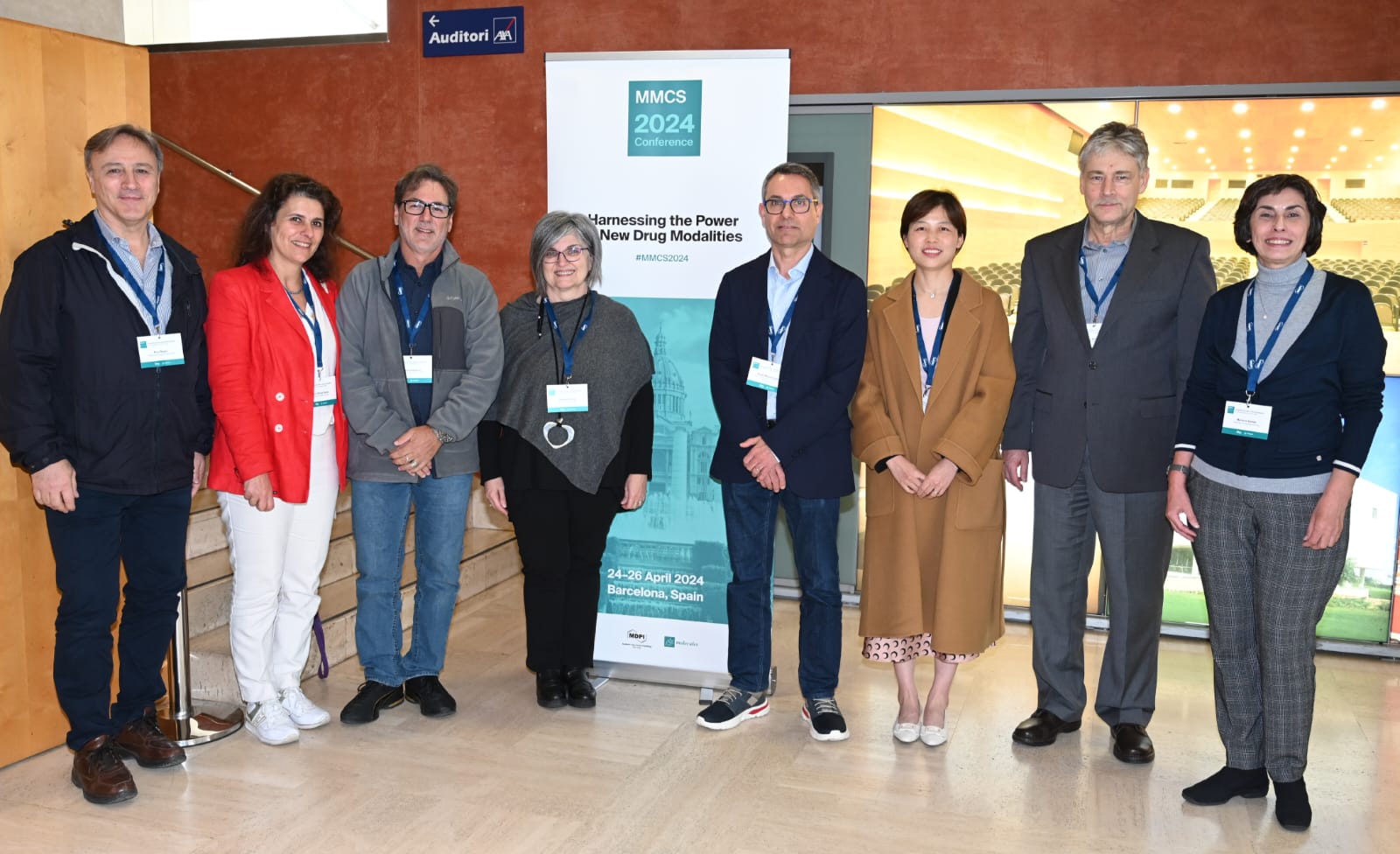
From left to right: Prof. Dr. Rino Ragno (Scientific Committee), Dr. Maria Emilia Sousa (Scientific Committee), Prof. Dr. Claudio Viegas Jr. (Scientific Committee), Prof. Dr. Simona Collina (Chair), Prof. Dr. Diego Muñoz-Torrero (Chair), Alvina Wu (Managing Editor, MDPI), Prof. Dr. Roman Dembinski (Scientific Committee), Prof. Dr. Mariana Spetea (Scientific Committee).
The event comprised 12 Invited Speakers, 35 Selected Talks, 10 Flash Poster Presentations, and 39 Posters. The overarching topic of the conference was the impact of the emergence of new drug modalities on drug discovery, with thematic sessions covering topics such as photoactivatable drugs, candidates targeting RNA and epigenetic targets, covalent modifiers, and the development of new anti-cancer agents, among other medicinal chemistry projects.
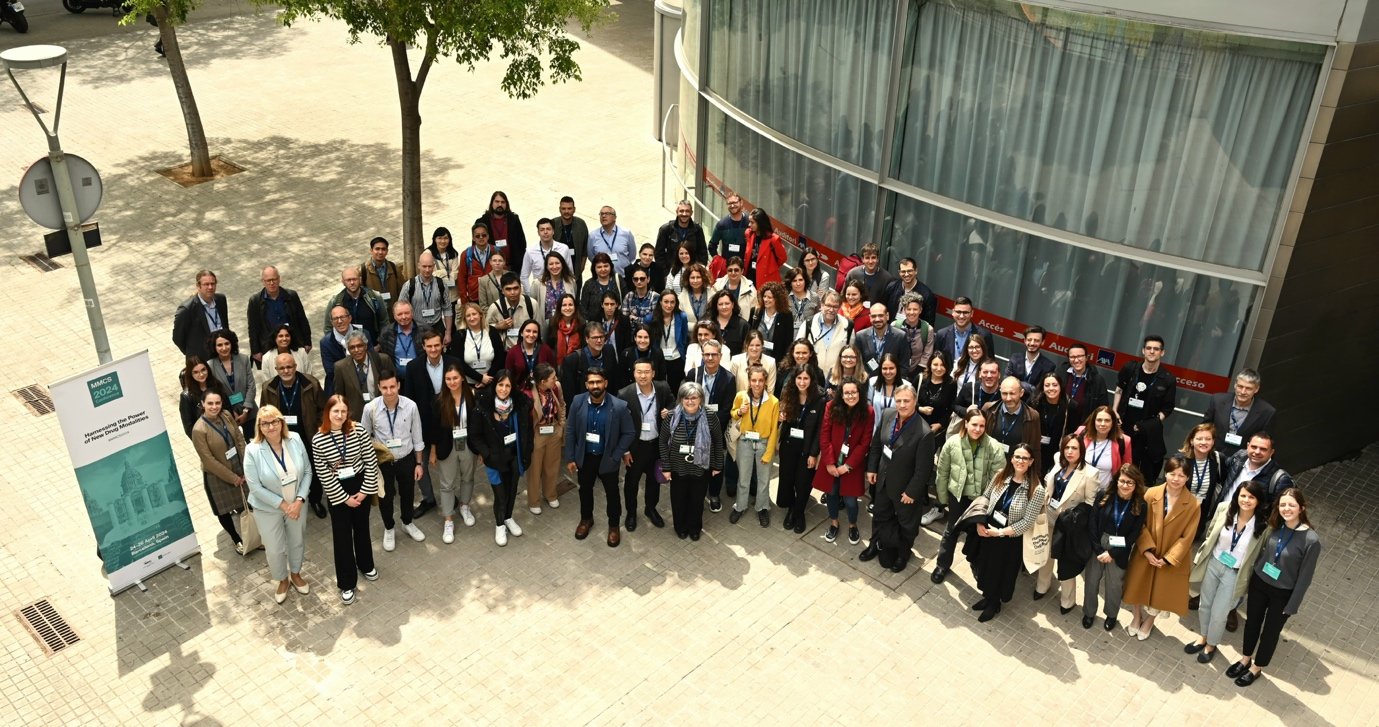
We are pleased to have received feedback from attendees highlighting the professional approach of the conference chairs and participants, the high quality of the talks, and the overall outstanding organization on the part of the MDPI conference team.
Thank you to the conference sponsors, Fluorochem and IBUB, and to our partnering societies, The Spanish Society for Biochemistry and Molecular Biology (SEBBM), and the Spanish Society of Medicinal Chemistry (SEQT).
Upcoming In-Person Event
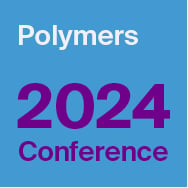
28–31 May, 2024
Polymers 2024 – Polymers for a Safe and Sustainable Future
Location: Athens, Greece
Conference Chairs: Prof. Dr. Dimitrios Bikiaris, Prof. Dr. Konstantinos Triantafyllidis, Dr. Ioanna Deligkiozi
We look forward to welcoming experts Prof. Damià Barceló, Prof. Minna Hakkareinen, and Prof. Armando J. D. Silvestre to this event.
Find more upcoming MDPI events here.
Organize Your Event with MDPI’s Sciforum
Sciforum is MDPI’s platform dedicated to the organization of scientific events. In line with our mission to promote science, Sciforum supports scholars, societies, research networks, and universities at all stages of organizing in-person events, virtual events and webinars. Our platforms are efficient, user-friendly, and cost-effective. We handle all steps related to event management. Contact us for details.
Closing Thoughts
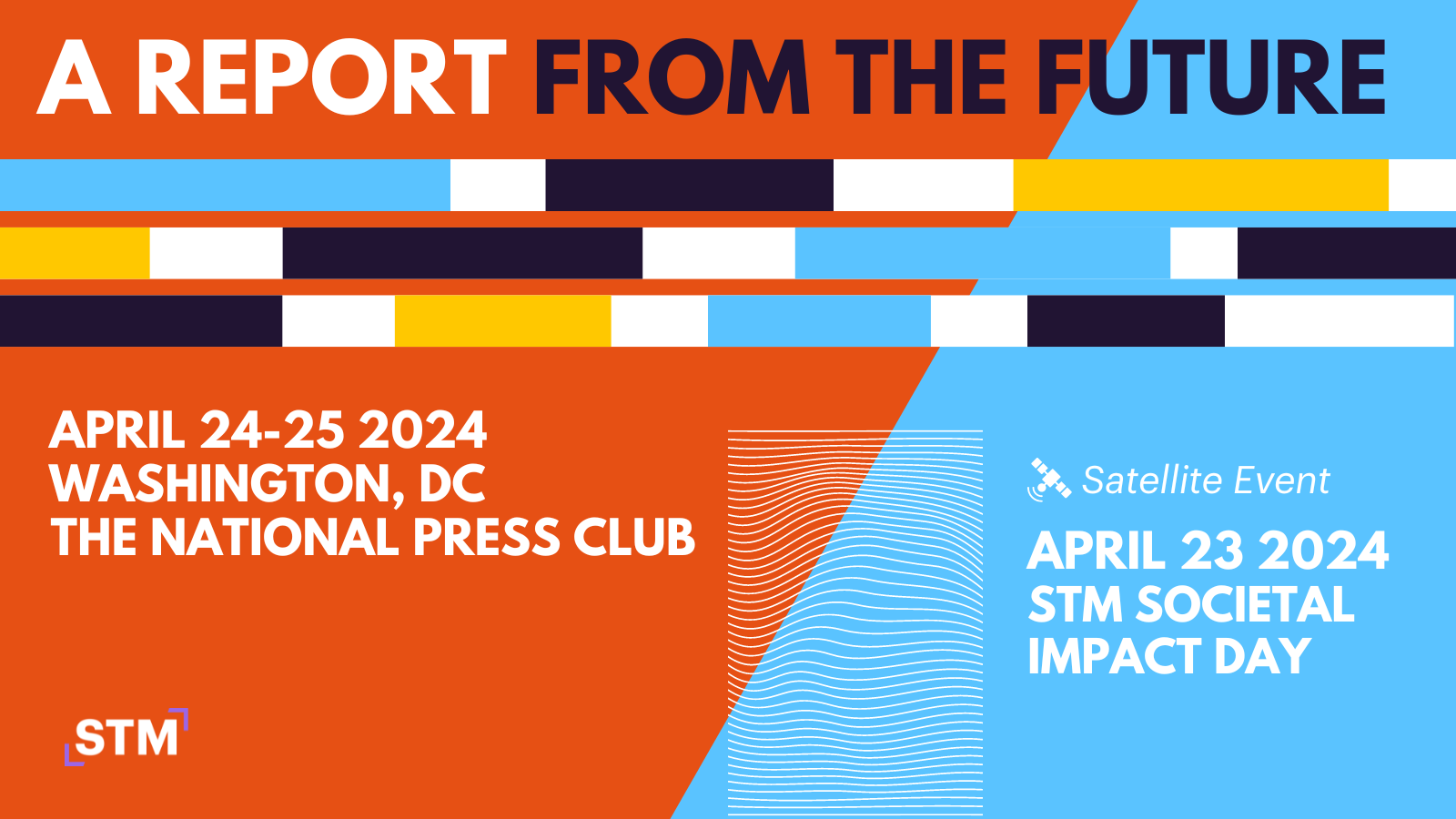
A Report from the Future – STM US Annual Conference 2024
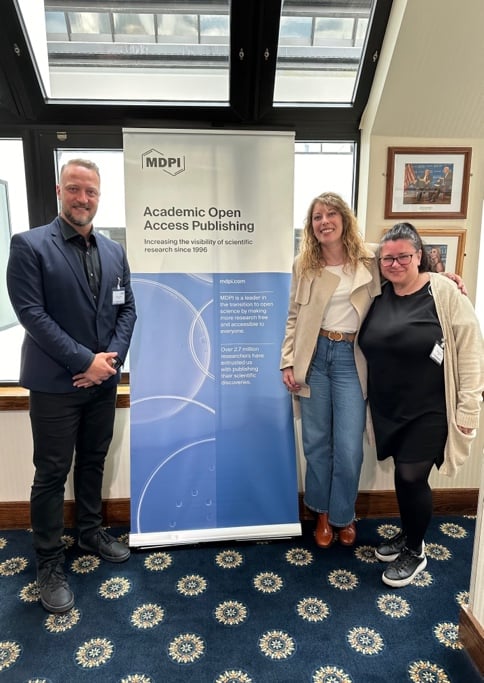
Stefan Tochev (CEO, MDPI), Dr. Giulia Stefenelli and Dr. Ioana Craciun from MDPI’s Scientific Office Board.
MDPI has for a long time been a sponsor of the STM Annual Conferences, held yearly in the US and Frankfurt, and is a trusted partner and supporter of the STM organization. While I have attended the Frankfurt conference for the past three years, this was my first time visiting the Washington, DC session, and I am glad I did.
Although it was a brief trip, I greatly appreciated the opportunity to attend in the company of my colleagues Dr. Giulia Stefenelli and Dr. Ioana Craciun from MDPI’s Scientific Office Board. They always help map some of the new industry trends against MDPI’s operational framework and guidelines. It’s a great group for kicking ideas back and forth on what we can apply at MDPI.
In my experience, STM never fails to deliver. It’s always a great conference for reconnecting with fellow publishers, industry friends, and vendors. As usual, STM this year curated a diverse range of speakers and panels, who proferred valuable knowledge and insights from outside our industry, delivering thought-provoking insights into our field. An example of this was the ‘Trust Panel’ session, which included Alan Schiffres (Managing Director, InfoLinx), who shared a number of the learnings about fraud and risk management from his 40 years in financial services, to help address some of the challenges we are currently facing in the area of publishing integrity.
Launch of STM Trends 2028 Panel
I particularly enjoyed the ‘Launch of STM Trends 2028 Panel’, which presented a report focused on the integration of humans and machines in scholarly publishing. The session highlighted themes such as AI, digitization, and the evolving research ecosystem. The report envisions a future where technology blurs the lines between human and machine involvement in research processes, with significant implications for trust, reputation, and equity. While this presents opportunities for connectivity and knowledge dissemination, it also poses challenges such as disinformation, fragmentation, and geopolitical tensions. We must rely on a wise combination of technology and human agency to navigate this complex landscape and will have to carefully examine its potential impacts on communication and scholarly publishing.
MDPI has joined the STM Integrity Hub. Click here to learn more.
While every presenter brought their own knowledge and personal touch, I was particularly pleased to encounter new speakers such as Heather Whitney (Research Assistant Professor, Radiology, University of Chicago) and Igor Grossmann (Professor of Psychology, University of Waterloo, Canada). Having studied Sociology at the University of Guelph, I have a soft spot for fellow social scientists from Canada, and I was very impressed by Igor’s presentation on ‘The Social Scientist: A View from the Future’ and his participation in the panel session ‘The Future Beyond the Article,’ which was one of my favourites from the conference, given the diversity of perspectives from the panel speakers.
Memorial Park in Washington, DC

On a personal note, this was my first-time visiting Washington, DC, and I’m glad we took an afternoon to visit the Memorial Park, with its incredible monuments to figures ranging from Martin Luther King, Jr. to Abraham Lincoln. The magnitude of the monuments is deeply impressive. I particularly appreciated the Thomas Jefferson memorial and the following quote, which I think speaks to the importance of change and adaptation. It’s something we can apply not only in our industry but also in our personal lives.
"I am not an advocate for frequent changes in laws and constitutions, but laws and institutions must go hand in hand with the progress of the human mind. As that becomes more developed, more enlightened, as new discoveries are made, new truths discovered and manners and opinions change, with the change of circumstances, institutions must advance also to keep pace with the times. We might as well require a man to wear still the coat which fitted him when a boy as a civilized society to remain ever under the regimen of their barbarous ancestors."
– Excerpted from a letter to Samuel Kercheval, July 12, 1816.
Chief Executive Officer
MDPI AG
30 April 2024
MDPI Opens Office in Seoul, Korea and Appoints Claude Seo as Office Manager

MDPI, the leading Open Access (OA) publisher, announced on Monday that it opened its Korean branch office on 29th April 2024. With this addition, MDPI now operates 21 offices in 12 countries worldwide. Claude Seo, with over 20 years of experience in the academic journal publishing industry, including Nature Publishing Group (NPG), has been appointed as the Office Manager of the Seoul office.
With the establishment of a Seoul office, MDPI aims to actively support Korea scientific communities to further promote the publication of OA journals in the region. As of the end of 2023, Korea ranked sixth worldwide in both submissions and publications of MDPI research papers. MDPI is the number one OA publisher in Korea.
Sungkyunkwan University Joins MDPI’s Institutional Open Access Program
In addition, MDPI announced that Sungkyunkwan University joined MDPI’s Institutional Open Access Program (IOAP). This program offers free access to MDPI online submission system for the institutions and APC discounts to affiliated authors. Thirteen major Korean universities, including Sungkyunkwan University, Kyung Hee University, Chung-Ang University and Catholic University of Korea, have adopted IOAP in Korea.
OA aims to break down barriers that have traditionally restricted access to science, ensuring that knowledge is available to all, regardless of financial situation or institutional affiliations. Authors, academia, and scientific communities are rapidly moving toward OA. MDPI has been at the forefront of reshaping the academic publishing landscape, with OA surpassing subscription-based publishing in 2020.
MDPI CEO Visits Seoul, Korea
In March, Stefan Tochev, Chief Executive Officer (CEO) of MDPI, visited Korea and met with various stakeholders including government agencies, research and academic institutions, universities. During his visit, Stefan highlighted that MDPI continues to pave the way for a world where science is accessible to all, supporting a global community of inclusive innovation and collaborative solutions.
Stefan expressed excitement about the new venture, stating, "Today marks a significant milestone for MDPI as we celebrate the opening of our new office in Seoul, Korea. This expansion is more than just an increase in our physical footprint, it is a pivotal step in our ongoing commitment to making scientific knowledge more accessible, participatory, and inclusive across the globe."
Claude Seo, reflecting on his new role, commented, "I am delighted to have been offered this position of trust within MDPI, the no. 1 scholarly OA publisher. As we establish our presence in Korea, we are dedicated to integrating into the local community and contributing to its vibrant culture. Our commitment goes beyond business growth; it is about creating a more informed and innovative society by embracing and promoting diversity within the scientific community.”
For further inquiries, please contact our Seoul office directly.
About MDPI
A pioneer in scholarly, open access publishing, MDPI has supported academic communities since 1996. MDPI is leading the transition to open science by making more research free and accessible to everyone. Over 3.3 million researchers have entrusted MDPI with publishing their scientific discoveries. MDPI’s editorial process is bolstered by a network of dedicated reviewers, a team of 6000 diligent, well-trained staff members, and an in-house article submission platform that was designed to ensure efficient processes within its 430 fully OA titles.
2 April 2024
MDPI Insights: The CEO's Letter #10 - South Korea, IWD, U2A, Japan

Welcome to the MDPI Insights: The CEO's Letter.
In these monthly letters, I will showcase two key aspects of our work at MDPI: our commitment to empowering researchers and our determination to facilitating open scientific exchange.
Opening Thoughts

Left to right: Dr. Jisuk Kang (Scientific Officer, MDPI), Stefan Tochev (CEO, MDPI), and Dr. Giulia Stefenelli (Chair of Scientific Office Board, MDPI), during media meetings at Prain Agency office in Seoul, South Korea.
Visit to Seoul, South Korea
During my recent visit to South Korea, I had the privilege of meeting various stakeholders, including representatives of government, research institutions, and academia, to understand their needs and communicate MDPI’s commitment to accessible science. Accompanied by my colleagues Dr. Giulia Stefenelli and Dr. Jisuk Kang, I engaged with the Korean scientific community, which is increasingly embracing open access (OA).
As the leading OA publisher in South Korea, MDPI is trusted by local authors and in 2023 enjoyed an approximately 30% share of the OA market. South Korea ranks sixth globally for MDPI in terms of research papers submitted and published.
MDPI and South Korea by Numbers
As at 30 March, over 76,000 MDPI articles have been authored by individuals affiliated with Korean institutions. We have over 1,800 active editorial board members (EBMs) from South Korea, with more than 880 EBMs having an H-index between 26 and 50, including 10 serving as Chief Editors.
“South Korea is the sixth-largest contributor to our total publications”
Over the past five years (2019–2023), nearly 120,000 authors affiliated with South Korean institutes have published with MDPI. Specifically in 2023, we received approximately 25,000 submissions from South Korean authors, publishing close to 13,000 articles, resulting in a rejection rate of 47.4%, which is not far below MDPI’s overall rejection rate of 56.4% in 2023.
Institutional Partnerships with South Korea
I am pleased to share that MDPI has more than 825 institutional partnerships worldwide, with 12 in South Korea, including Kyunghee University, Chung-Ang University, and Inha University, among others.

Left to right: Dr. Jisuk Kang (Scientific Officer, MDPI), Dr. Giulia Stefenelli (Chair of Scientific Office Board, MDPI), and Stefan Tochev (CEO, MDPI) fielding media questions at Prain PR Agency office in Seoul, South Korea.
Over the past three years (2021–2023), we have had some of the most prestigious academic universities ranked among the top 10 Korean institutions publishing with MDPI. Seoul National University had the highest number of publications with MDPI during those three years, publishing nearly 6,000 papers. Universities such as Korea University and Yonsei University also rank among the top 10 Korean institutions publishing with MDPI.
MDPI Hosts Seminar for Academia and Media
As the world’s leading OA publisher, MDPI is actively democratizing science. This is reflected in the seminars we hosted on 21 March to address questions about our editorial processes and ethical standards. The visit garnered media coverage, reflecting our mission to providing high-quality services and fostering open dialogue in the community.
“MDPI is actively democratizing science”
MDPI in the News

Stefan Tochev (CEO, MDPI) leading a seminar on OA and MDPI at Prain PR Agency office in Seoul, South Korea.
Media coverage generated by our visit to Seoul included the following stories:
“Open access is an unstoppable trend…it will lead the development of the knowledge ecosystem.”
I greatly appreciate the contributions of everyone who took the time to meet with us, share their stories, and hold us accountable for continuing to provide high-quality publishing services while identifying areas for improvement. I am also excited to announce that we have opened an MDPI office in Seoul and will release a press release on MDPI.com, with details, by the end April 2024. The purpose of the office is to establish a local presence to connect with and support the South Korean academic community through institutional partnerships, conferences, author workshops, stakeholder communications, and more.
Impactful Research

Featured Articles on Women’s Leadership and Healthcare
In celebration of International Women’s Day (8 March 2024), MDPI curated a collection of research articles on various topics, including women’s leadership, reproductive health, preventive healthcare, and a selection of articles from our journal Women.
Women’s Leadership
- Women Entrepreneurship and Sustainable Development: Bibliometric Analysis and Emerging Research Trends
Sustainability 2022, 14, 9160. https://doi.org/10.3390/su14159160 - Refugee Women Business Mentors: New Evidence for Women’s Empowerment
Sustainability 2022, 14, 9154. https://doi.org/10.3390/su14159154 - Women and Leadership in Higher Education: A Systematic Review
Soc. Sci. 2023, 12, 555. https://doi.org/10.3390/socsci12100555 - Understanding Needs and Potentials for Gender-Balanced Empowerment and Leadership in Climate Change Adaptation and Mitigation in Africa
Sustainability 2022, 14, 9410. https://doi.org/10.3390/su14159410 - Challenges Women Experience in Leadership Careers: An Integrative Review
Merits 2023, 3, 366-389. https://doi.org/10.3390/merits3020021
Women’s Reproductive Health
- Recreational Female Athletes’ Understanding of and Perceived Impact of the Menstrual Cycle on Physical Performance, Mood, and Sleeping Behaviour
Women 2023, 3, 445-456. https://doi.org/10.3390/women3030034 - Difficulties in Adaptation of the Mother and Newborn via Cesarean Section versus Natural Birth—A Narrative Review
Life 2023, 13, 300. https://doi.org/10.3390/life13020300 - The Main Theories on the Pathogenesis of Endometriosis
Int. J. Mol. Sci. 2023, 24, 4254. https://doi.org/10.3390/ijms24054254
Women’s Preventive Healthcare
- Insulin Metabolism in Polycystic Ovary Syndrome: Secretion, Signaling, and Clearance
Int. J. Mol. Sci. 2023, 24, 3140. https://doi.org/10.3390/ijms24043140 - Assessing Barriers Encountered by Women in Cervical Cancer Screening and Follow-Up Care in Urban Bolivia, Cochabamba
Healthcare 2022, 10, 1604. https://doi.org/10.3390/healthcare10091604 - Updates on HPV Vaccination
Diagnostics 2023, 13, 243. https://doi.org/10.3390/diagnostics13020243
Featured Articles in MDPI Journal Women
Below are a few articles from Women, our journal focused on women’s health, the social determinants of health, and the healthcare system that serves women. The aim of Women is to encourage academics to publish their experimental and theoretical results in detail, to aid reproducibility, and in an engaging style, to aid comprehensibility.
- Premenstrual Syndrome and Exercise: A Narrative Review
Women 2023, 3, 348-364. https://doi.org/10.3390/women3020026 - Increasing Awareness of the Human Papillomavirus (HPV) Vaccine for Women 18–45 Years of Age
Women 2023, 3, 365-373. https://doi.org/10.3390/women3030027 - Addressing Women’s Needs with Human Immunodeficiency Virus (HIV) and Enhancing the Visibility of Pharmacists in the Public Health Arena
Women 2022, 2, 346-352. https://doi.org/10.3390/women2040032
Inside MDPI

Championing Women’s Healthcare and Access to Healthcare Information
MDPI colleagues from our offices joined in celebrating #IWD2024. In doing so, we emphasized key missions that encompass:
- Empowering women to assume leadership and decision-making roles in both business and science.
- Helping women and girls make informed decisions about their health.
- Recruiting and developing female talent and fostering inclusive workplace environments.
“We are thrilled to recognize the accomplishments of women scientists”
I am proud to see our colleagues enthusiastically supporting the International Women’s Day call to ‘Inspire Inclusion!’ The heart-hands in the collage below symbolize our appreciation of the achievements of women researchers and the recognition of the trailblazers who have courageously made a mark on societies past and present.

We are thrilled to recognize the accomplishments of women scientists through our many MDPI awards and by highlighting success stories. As inspirational figures, female scientists are paving the way for the next generation of women aspiring to pursue careers in engineering, life sciences, computing, and various other STEM fields.
“I consider myself lucky because I work with incredibly talented women who inspire me every day.”
– Dr. Alessandra Pasut, Winner of MDPI's ‘Biology 2023 Young Investigator Award’
“It’s really important to find a supportive and enabling environment in which to do your science; it would have a big impact on you as a person and on your scientific outputs.”
– Dr. Rhea Longley, Winner of the ‘Pathogens 2023 Young Investigator Award’
Open-access publishing, in particular, allows early-career women researchers to share their work more widely, potentially attracting mentorship opportunities and collaborations. This support is crucial for career development and advancement.
Coming Together for Science

MDPI Joins United2Act in Collective Fight to Stop Paper Mills
In my February 2024 CEO Letter, I highlighted some of our recent initiatives aimed at bolstering our commitment to research integrity, including joining the STM Integrity Hub and expanding our Research Integrity and Publication Ethics team (RIPE). Continuing our efforts in coming together for science, I am pleased to share our participation in the United2Act initiative.
The text below is taken from our official announcement:
United2Act represents an international group of stakeholders in the publishing industry committed to addressing the collective challenge posed to research integrity by paper mills.
Scientists and academic publishers have increasingly noted the alarming proliferation of paper mills, recognized as fraudulent entities seeking to manipulate the publication process for financial profit. These entities engage in fraudulent practices such as falsifying or fabricating data, selling co-authorship of fake papers, manipulating peer review, and including inappropriate citations. These actions pose a significant threat to the integrity of the scholarly record, prompting widespread concern among those involved in the academic community.
MDPI has been actively contributing to combat the undermining of the scientific record. Our editors employ a set of tools to detect potential ethical breaches within a manuscript and to tackle the issue of fake papers.
United2Act’s consensus statement is the outcome of a virtual summit held in May 2023. It involved the participation of research bodies, publishers, researchers/sleuths, universities, and publishing infrastructure from 15 countries and resulted in a Consensus Statement outlining five key areas of action for all stakeholders:
- Education and awareness
- Improve post-publication corrections
- Facilitate and organise research on paper mills
- Enable the development of trust markers
- Facilitate dialogue between stakeholders
MDPI is committed to promoting transparency and integrity in scholarly publishing and is continuing to work closely with the scientific community toward this goal.
Closing Thoughts

Left to right: Ryo Hirayama (Marketing Specialist, MDPI), Takashi Sasabe (Marketing Specialist, MDPI), Dr. Giulia Stefenelli (Chair of Scientific Office Board, MDPI), Dr. Izumi Yamamoto (Marketing Manager, MDPI), and Stefan Tochev (CEO, MDPI), at MDPI’s office in Tokyo, Japan.
Visit to Tokyo and Kyoto, Japan
In March, I had the opportunity to visit our Tokyo office and engage with stakeholders in Tokyo and Kyoto. During the visit, I also recorded a video message to welcome Japanese scholars working with MDPI and to highlight our operations in Japan.
We held meetings with Editors-in-Chief, librarians, scholars, and external consultants to gather feedback on our efforts to enhance our reputation and explore additional steps we can take in that direction. Japan's rich cultural heritage, characterized by tradition, respect, and formality, provided valuable insights into meeting the publishing needs specific to Japan.
Japan’s Open Access statistics
Over the years, we have seen a shift from subscription-only to gold OA publishing in Japan, despite the lack of an official mandate. Here are some statistics:
- 2012: 68% of articles were subscription-only, 6% were green Open Access, and 8% were gold Open Access.
- 2016: 55% of articles were subscription-only, 6% were green Open Access, and 20% were gold Open Access.
- 2022: 43% of articles were subscription-only, 7% were green Open Access, and 39% were gold Open Access.
To learn more about the history of OA in Japan as well as about future trends, please read this blog post.
“Japan is the ninth-largest contributor to our total publications”

Left to right: Stefan Tochev (CEO, MDPI), Dr. Izumi Yamamoto (Marketing Manager, MDPI), and Dr. Giulia Stefenelli (Chair of Scientific Office Board, MDPI) visiting Kyoto University in Kyoto, Japan.
MDPI and Japan by Numbers
As at 1 April, over 50,000 MDPI articles have been authored by scholars affiliated with Japanese institutions, making the country the ninth-largest contributor to our total publications. Over the past three years (2020–2023), nearly 90,000 authors affiliated with Japanese institutes have published with MDPI, and we have collaborated with over 4,600 Guest Editors from Japan.
In 2023, we published over 8,200 papers from authors associated with Japanese institutions. MDPI collaborates with 41 institutional partnerships in Japan, including the University of Tokyo, Hokkaido University, and Nagoya University. We have over 2,100 active EBMs from Japan, more than 1,050 EBMs having an H-index between 26 and 50, including 13 serving as Editors-in-Chief.
General Feedback – a side note
A general takeaway from our discussions with stakeholders from around the world is that negative perceptions of MDPI often stem from misinformation, misconceptions, or misunderstandings about MDPI and our practices. While we acknowledge our mistakes and work diligently to address them, maintaining a strong editorial procedure and robust peer-review process, I find that educating stakeholders about our how we do what we do and our ongoing improvements tends to help shift opinions.
That said, we recognize the importance of addressing individual concerns. We take feedback seriously and are continuously working to get better while not compromising the core principles that millions of authors appreciate about MDPI.
Chief Executive Officer
MDPI AG
27 March 2024
Meet Us at the 2024 International Forum on Graphene in Shenzhen and the Fifth International Conference on Energy Storage Materials, 10–13 April 2024, Shenzhen, Guangdong, China

Conference: The 2024 International Forum on Graphene in Shenzhen and the Fifth International Conference on Energy Storage Materials
Organization: The Shenzhen Science, Technology and Innovation Commission and the People's Government of Nanshan District, Shenzhen
Date: 10–13 April 2024
Place: Shenzhen University Town International Conference Center, Nanshan District, Shenzhen, China
Booth: #8
Representatives of MDPI journals will attend the 2024 International Forum on Graphene in Shenzhen and the Fifth International Conference on Energy Storage Materials as exhibitors. This meeting will be held in Shenzhen, Guangdong, from 10 to 13 April 2024. MDPI’s journal Batteries (ISSN: 2313-0105) will be represented.
If you are attending this conference, please feel free to talk with us. Our delegates look forward to meeting you in person and answering your questions. For more information on the conference, please visit the following website: https://www.sz-graphene.ac.cn/.
25 March 2024
Meet Us at the 37th International Electric Vehicle Symposium and Exhibition (EVS37), 23–26 April 2024, Seoul, South Korea

MDPI will attend the 37th International Electric Vehicle Symposium and Exhibition, held from 23 to 26 April 2024 in Seoul, South Korea.
Since its inception in 1969, the International Electric Vehicle Symposium and Exhibition (EVS) series has been at the forefront of this movement and has grown to become the largest and most prominent global event in the electric vehicle industry, showcasing current and emerging technologies both in the market and under development.
The EVS37 organizing committee aims to address and shape the monumental movement of e-mobility under the theme of "Electric Waves to Future Mobility" with academic, government, and industry professionals involved in electric vehicle technologies. As the EV revolution continues to evolve at increasingly faster speeds, EVS37 serves a critical role as a nexus to exchange ideas and feature the latest EV breakthroughs.
The following MDPI journals will be represented:
- Electronics;
- WEVJ;
- Vehicles;
- Energies;
- Smart Cities;
- Batteries;
- Machines.
If you plan to attend this conference, we invite you to visit our booth and converse with our delegates. We are excited to meet you in person and address any questions you may have. For further details about the conference, please visit the following website: https://evs37korea.org/main.asp.
4 March 2024
MDPI Insights: The CEO's Letter #9 - Romania, Research Integrity, Viruses

Welcome to the MDPI Insights: The CEO's Letter.
In these monthly letters, I will showcase two key aspects of our work at MDPI: our commitment to empowering researchers and our determination to facilitating open scientific exchange.
Opening Thoughts

Reka Kovacs (Deputy Office Manager, MDPI), Stefan Tochev (CEO, MDPI), and Sandra Ana Spatariu (Office Manager, MDPI) at the MDPI office in Cluj, Romania.
MDPI’s Impact on Romania
In February, I visited our office in Cluj, Romania. I worked closely with our senior office managers and various teams, including the departments of training, marketing and conferences, as well as our journal relationship specialists, reviewing our service to the local scholarly community. During the visit, I also met with representatives from Babes-Bolyai University and the Technical University of Cluj-Napoca. Our multifunctional Romanian office plays an important role in supporting our collaborations with the local market as well as helping to meet MDPI’s overall business needs.

Feedback and strategy meeting with a group of MDPI’s Journal Relationship Specialists at the MDPI office in Cluj, Romania.
With 22,436 articles, Romania ranks as a top 20 contributing country to MDPI’s total number of papers published as at 28 February 2024. This highlights the importance of our collaboration with Romanian-affiliated authors and the growing opportunity to support their publishing needs. MDPI is one of the few academic publishers with a significant presence in Romania, boasting over 360 colleagues across our offices in Bucharest and Cluj. We are also proud to hire colleagues from local institutions to launch their careers within publishing.
Romania ranks as a top 20 contributing country.
The Numbers: 2019–2023
MDPI has seen a healthy increase in submissions from Romanian authors over the past three years, from 8,439 in 2021 to 11,866 by end of 2023, with most submissions going to journals such as Sustainability, Medicina, Diagnostics, IJMS, Applied Sciences, and JCM. From 2019 to 2023, MDPI published articles from 32,145 authors affiliated with Romanian institutions. Over those years, we have worked with Romanian Guest Editors on nearly 3,000 occasions to support their Special Issue and Topical collections.
With more than 300 Editorial Board Members from Romania, 34 appear on the board of Mathematics, 27 on Materials, 19 on Polymers, 18 on Coatings, and 16 on Molecules, while three serve as Section Editors-in-Chief (SEiC) on our journals Coatings (3.4 IF, 4.6 Citescore), Magnetochemistry (2.7 IF, 3.5 Citescore), and Chemosensors (4.2 IF, 3.9 Citescore).
Institutional Open Access Programs
Our commitment to working with institutions is evident in Romania, where we have established eight Institutional Open Access Programs (IOAP) with esteemed institutions such as the University of Bucharest, the University of Medicine and Pharmacy Cluj-Napoca, and most recently the National Institute for Laser, Plasma and Radiation Physics.
Our growth and presence in Romania are a true testament.
We also have IOAP agreements with Babes-Bolyai University and the Technical University of Cluj-Napoca, where I had the opportunity to meet senior stakeholders during my visit. Below are a few photos capturing our meeting with Prof. Radu Silaghi-Dumitrescu (Head of Faculty of Chemistry, Babes-Bolyai University) at the MDPI office in Cluj, Romania, along with a photo from our meeting with Vice Deans Nicoleta Cobarzan, Nicoleta Ilies, and Hoda Gavril, from the faculty of Civil Engineering at the Technical University of Cluj, Romania.


Our growth and presence in Romania are a true testament to the service we provide to the scholarly community and the relationships we foster in that region. We look forward to continuing to support Romanian scholars and institutions by providing a valuable and trusted experience with MDPI, the leader in open access publishing.
Impactful Research

MDPI Joins the STM Integrity Hub
MDPI has long been a supporter and partner of STM, with our involvement ranging from sponsoring and attending events to helping organize event programs. By joining the STM Integrity Hub, we aim to further our commitment to STM initiatives aimed at safeguarding the integrity of science.
“We are pleased to welcome MDPI as the 35th organisation participating in the Hub. This expansion is critical, as every new member enhances our capacity to prevent fraudulent submissions from entering the academic record.”
Joris van Rossum, Director of Research Integrity, STM
MDPI operates in full alignment with STM Integrity Hub's values of shared data and experiences. We strongly believe in collaboration and open exchange for the purposes of creating a holistic approach to support research integrity at MDPI itself and across the entire academic publishing industry. The Integrity Hub is an excellent example of how publishers can come together to jointly address industry-wide challenges related to research integrity, such as manuscripts that breach research integrity standards and paper-mills.
I look forward to our Research Integrity and Publication Ethics Team (RIPE) team immersing themselves in this initiative, exchanging information, best practices, and tools for the benefit of the entire scholarly ecosystem. We believe that ethical publishing standards should be implemented across the board, and we aim to be rigorous in our approach, addressing research integrity issues and improving the impact of published research.
Inside MDPI

MDPI Expands Research Integrity and Publication Ethics Team (RIPE)
In addition to external collaborations and joint initiatives aimed at further strengthening our commitment to research integrity, we are also enhancing our internal efforts. This includes improving our processes and guidelines and expanding our teams and departments to ensure quality assurance throughout our publishing process.
We are pleased to announce the expansion of our Research Integrity and Publication Ethics Team (RIPE) at MDPI. The RIPE team has recently welcomed new colleagues, each bringing unique skills and a personal commitment to prioritize ethical considerations in all our work.
The demand for research integrity and high ethical standards in academic publishing is steadily rising across our industry. Our expanded RIPE team will work to enhance and align our practices with industry best practices, ensuring excellence in research integrity and publication ethics.

Stefan Tochev (CEO, MDPI) introduces Dr. Tim Tait-Jamieson (Research Integrity Lead, MDPI) for his presentation on MDPI’s Retraction and Approval Process to a group of Journal Relationship Specialists at the MDPI office in Cluj, Romania: “The demand for research integrity and publication ethics is steadily rising across our industry.”
Introducing our Research Integrity and Publication Ethics Team
Led by Dr. Tim Tait-Jamieson (Research Integrity Lead), the RIPE team comprises Dr. Ivana Resanovic (Research Integrity Manager), Dr. Lavinia Rogojina (Research Integrity Manager), Ms. Diana Apodaritei (Research Integrity Specialist), Dr. Zoltan Mihaly (Research Integrity Specialist), Mr. Aleksandar Đukić (Research Integrity Specialist), Ms. Ana Stankovic (Research Integrity Specialist), and Ms. Anna Pena (Publication Ethics Assistant).
Please click here to access everything that you need to know about MDPI’s Research and Publication Ethics.
With this span of complementary roles, the RIPE team collaborates directly with journal editorial teams and works closely with various departments, including our Scientific Office Board and our Journal Relationship Specialists. The team’s primary objectives are to help prevent issues regarding research integrity and publication ethics during peer review, uphold MDPI’s ethics policies, adhere to industry standards, and resolve publication ethics and research integrity issues and complaints.
Quality Updates to Special Issues Oversight
At MDPI, we are committed to reviewing policies pertaining to the quality of research. In this blog post, Shaheena Patel (Communications Associate, MDPI), outlines two recent updates to MDPI journal processes. These updates pertain to Special Issue (SI) quality guidelines, in line with criteria provided by COPE and DOAJ. Alongside the SI updates, details regarding the new minor corrections policy introduced in 2024 are provided in the blog.
The two updates we implemented include greater oversight and the verification of Guest Editor credentials. These guidelines require that Editors-in-Chief (EiCs) and Editorial Board Members (EBMs) take responsibility for overseeing SIs.
PS. Thank you, James Butcher, for featuring this up in your 67th issue of the Journalogy newsletter.
Read more:
Coming Together for Science

Viruses 2024 – A World of Viruses
I am pleased to share the success of our MDPI conference Viruses 2024 – A World of Viruses, held 14-16 February, in Barcelona. With 240 registrations, this event brought together top scientists, researchers, and industry experts from 40 countries to share their findings on the latest developments in viral pathogenesis and immune responses.
Attendees gathered for the 5th edition of the Viruses’ conference, where we hosted influential keynote speeches from Nobel Prize laureate Dr. Charles M. Rice and ‘Distinguished Senior Virologist’ Prof. Luis Enjuanes, along with 14 invited speakers, 47 selected speakers, and nine flash poster presenters, to discuss the most significant issues in virology today.
Recap on the #Viruses2024 Conference
Take a look at the key moments from MDPI’s Viruses event and please join us in commemorating a gathering for global knowledge and cooperation. A heartfelt thank-you to all attendees; their passion and engagement played a crucial role in making this event an engaging success!
Below are calls to action from the keynote speakers encouraging collaboration and communication:
“There’s never been a better time than now to really take the power that we have both in terms of basic research and also in biotech and pharma to develop antiviral agents.” - Dr. Charles M. Rice, The Rockefeller University, New York, USA
“The collaboration between labs is absolutely essential. Improving initial detection and improving communication is a must for all of us working in science.” - Prof. Dr. Luis Enjuanes, National Center of Biotechnology (CNB-CSIC), Madrid, Spain

Our thanks go to our sponsors and partnering societies, our Viruses journal and editorial team, our Barcelona colleagues, and the social media, conference and other MDPI teams for making this event a memorable occasion. View the event gallery here.
Upcoming In-Person Event

24–26 April, 2024
4th MMCS – Harnessing the Power of New Drug Modalities
Location: Barcelona, Spain
Esteemed speakers at MMCS 2024 include Prof. Arun K. Ghosh, the mind behind the Darunavir molecule, and Prof. Paul Brennan, CSO of Alzheimer's Research UK Oxford Drug Discovery Institute.
Find more upcoming MDPI events here.
Organize Your Event with MDPI’s Sciforum
Sciforum is MDPI’s platform dedicated to the organization of scientific events. In line with our mission to promote science, Sciforum supports scholars, societies, research networks, and universities at all stages of organizing in-person events, virtual events and webinars. Our platforms are efficient, user-friendly, and cost-effective. We handle all steps related to event management. Contact us for details.
Closing Thoughts

Researcher to Reader (R2R) Conference
From 20–21 February 2024, I had the pleasure of attending the Researcher to Reader (R2R) conference in London, which MDPI has proudly sponsored over the years. The conference programme offered a variety of session formats, including workshops, panel discussions, debates, interviews, presentations, and lightning talks, with opportunities to discuss relevant topics.
We take pride in supporting the scientific community, bringing researchers across the world together to network, exchange ideas and share the latest in science and publishing. In 2023, MDPI invested close to 2 million CHF in sponsoring over 2,000 scientific and publishing-related conferences worldwide.
R2R Peer Review Innovations Workshop
I found the R2R conference to be engaging, with the workshops being particularly enjoyable. My colleague Giulia Stefenelli (Chair of Scientific Office Board) and I participated in the “Peer Review Innovations” workshop, which spanned four sessions over the two days. These sessions explored the future of peer review and how we can improve the peer review process for everyone involved. Notably, the large majority of attendees expressed their opinion that peer review, as currently practiced, requires significant improvement. Together, we collaborated on potential immediate and long-term improvements and innovative processes, aiming to create an ecosystem beneficial to all stakeholders by strengthening submission systems with the aim of reducing threats and making authors more responsible for their work. We also discussed the opportunity for academic institutions to better scrutinize the quality of the work produced and submitted to journals.
Our group comprised publishers, software providers, librarians, and more, bringing diverse perspectives to the discussions. These interactions were relevant to MDPI’s ongoing conversations, providing insights to our efforts. The session also made me appreciate that MDPI is doing well, as the group discussions included the subject of various quality checks that we have already embedded in our processes, ensuring that we keep abreast of industry standards.
The need for an optimized system to incentivize the activities of editors and reviewers was also a focus of discussion, as well as the support that reviewers need from publishers via the provision of strong reports through fixed forms, questionnaires and training.
At MDPI, we are currently auditing our reviewer program to improve reviewer recognition, guidelines, and methods for identifying suitable reviewers, while maintaining our commitment to quality and timeliness.
Congratulations to Mark Carden, Conference Director, and the R2R team for organizing a productive and successful event. PS: The break times were greatly appreciated as well!
Chief Executive Officer
MDPI AG
21 February 2024
Meet Us at ACS Spring 2024—Many Flavors of Chemistry, 17–21 March 2024, New Orleans, LA, USA

Conference: ACS Spring 2024
Organization: American Chemical Society
Date: 17–21 March 2024
Place: Halls D & E, New Orleans Ernest N. Morial Convention Center, New Orleans, LA, USA
Booth: #2530
MDPI journals will be attending ACS Spring 2024—Many Flavors of Chemistry as an exhibitor. This meeting will be held in New Orleans, LA, USA, from 17 to 21 March 2024.
The American Chemical Society (ACS) is one of the world’s largest scientific organizations with more than 151,000 members in 140 countries. ACS meetings and expos are held biannually. This expo is an opportunity for thousands of chemistry professionals to meet, share ideas, and advance scientific and technical knowledge. The topic in Spring 2024 is “Many Flavors of Chemistry”.
The following MDPI journals will be represented:
- Materials;
- Molecules;
- DDC (Drugs and Drug Candidates);
- Batteries;
- Chemistry;
- Colorants;
- Cosmetics;
- Fibers;
- Inorganics;
- Organics;
- Polymers;
- Separations;
- Symmetry;
- Analytica;
- AppliedChem;
- CIMB (Current Issues in Molecular Biology);
- Coatings;
- Crystals;
- Energies;
- JFB (Journal of Functional Biomaterials);
- Liquids;
- Magnetochemistry;
- Membranes;
- Reactions;
- Sustainable Chemistry.
If you are attending this conference, please feel free to start a conversation with us. Our delegates look forward to meeting you in person and answering any questions you may have. For more information about the conference, please visit the following website: https://www.acs.org/meetings/acs-meetings/spring.html.
31 January 2024
MDPI Insights: The CEO's Letter #8 - Altmetric and Flat Fee Agreement

Welcome to the MDPI Insights: The CEO's Letter.
In these monthly letters, I will showcase two key aspects of our work at MDPI: our commitment to empowering researchers and our determination to facilitating open scientific exchange.
Opening Thoughts

MDPI and Digital Science Meeting
At MDPI, we are committed to providing our authors with the essential tools to publish, promote, and track their research. In line with this commitment, we have established a longstanding collaboration with Digital Science, a company specializing in research data and analytical insights for the research community. Our collaboration integrates their Altmetric tool, offering us and our authors the ability to track a variety of sources that monitor and report attention surrounding publications.
As part of our collaboration, we recently hosted Cathy Holland, Director of Global Publisher Business Development, and Helen Cooke, Managing Director of Publisher Sales, from Digital Science, at our MDPI headquarters in Basel, Switzerland.

Left to right: Facundo Santomé (Senior Marketing Manager, MDPI), Constanze Shelhorn (Indexing Manager, MDPI), Cathy Holland (Director of Global Publisher Business Development, Digital Science), Helen Cooke (Managing Director of Publisher Sales, Digital Science), and Stefan Tochev (CEO, MDPI) in front of MDPI headquarters in Basel, Switzerland.
During our meeting, we discussed MDPI’s publishing philosophy and explored further avenues for collaboration. We look forward to continuing our partnership with Digital Science, aiming to improve our services yet further and meet the needs of our authors more closely than ever.
What is Altmetric?
You will notice that MDPI articles feature an Altmetric score, a colourful doughnut capturing the score in the upper right corner of the article page. This score represents ‘alternative metrics,’ as distinct from traditional metrics such as Impact Factor, CiteScore, and Scimago Journal Rank.
Altmetrics complement traditional citation-based metrics by capturing online discussions related to a specific research topic. By analyzing both sets of data, we can obtain a comprehensive understanding of the attention a particular research output receives and the sources in which it is mentioned.
“Almetric provides visual insights into where research is being discussed”
Sources Tracked by Altmetric
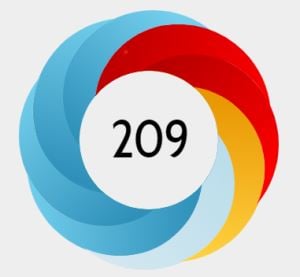
Altmetric badge showing the Altmetric score and colour-coded mention sources.
Altmetric monitors various sources, categorizing them into segments such as policy documents, peer reviews, Wikipedia, news and blogs, and social media, among other sources. Each category is identifiable by a specific colour.
The Altmetric badge provides visual insights into where the research is being discussed. A more colourful badge indicates broader mentions across multiple platforms. Such tracking enables us to gauge the extent of an article’s online dissemination, noting that increased visibility may correlate with higher citation rates.
Read more:
Impactful Research

Ten High-Altmetric Articles Published by MDPI
As at 30 January 2024, Altmetric has tracked 670,500 MDPI research outputs from MDPI, resulting in over 4.3 million mentions. This includes over 71,894 mentions in policy and patents and 294,714 mentions in news and blogs, with some achieving an Altmetric score as high as 28,754.
So, what is a good Altmetric score? There are various ways to put this score into context. You can find out more about the score in context and how to evaluate your work by this means.
Here are ten MDPI papers ranking in the top 5% of all research outputs scored by Altmetric.
|
|
“Accuracy in Wrist-Worn, Sensor-Based Measurements of Heart Rate and Energy Expenditure in a Diverse Cohort” J. Pers. Med. 2017, 7(2), 3; https://doi.org/10.3390/jpm7020003 Altmetric page: https://mdpi.altmetric.com/details/20477344 Altmetric shows that this article appeared in 253 news stories from 209 outlets including Forbes, BBC, and Fox News. |
|
|
“Daylight Saving Time and Acute Myocardial Infarction: A Meta-Analysis” J. Clin. Med. 2019, 8(3), 404; https://doi.org/10.3390/jcm8030404 Altmetric page: https://mdpi.altmetric.com/details/57654628 Altmetric shows that this article appeared in 295 news stories from 207 outlets including Forbes, The Atlantic, and New York Times. |
|
|
“The Preliminary Analysis of Cave Lion Cubs Panthera spelaea (Goldfuss, 1810) from the Permafrost of Siberia” Quaternary 2021, 4(3), 24; https://doi.org/10.3390/quat4030024 Altmetric page: https://mdpi.altmetric.com/details/111086701 Altmetric shows that this article appeared in 182 news stories from 134 outlets including CBC News, CNN, and National Geographic. |
|
|
“Not the Cat’s Meow? The Impact of Posing with Cats on Female Perceptions of Male Dateability” Animals 2020, 10(6), 1007; https://doi.org/10.3390/ani10061007 Altmetric page: https://mdpi.altmetric.com/details/83796184 Altmetric shows that this article appeared in 124 news stories from 98 outlets including VICE, CNN and The Guardian. |
|
|
“Behaviour and Welfare Impacts of Releasing Elephants from Overnight Tethers: A Zimbabwean Case Study” Animals 2022, 12(15), 1933; https://doi.org/10.3390/ani12151933 Altmetric page: https://mdpi.altmetric.com/details/133463915 Altmetric shows that this article appeared in 192 news stories from 186 outlets. |
How do I use altmetrics?
Altmetric Explorer provides a detailed step-by-step guide and instruction video for first-time users of the tool. The guide includes useful diagrams that make it easy to get started.
Sharing Research Online
For research to be tracked across different sources, Altmetric needs a research output with a persistent identifier: a DOI, ISBN, PubMed ID, handle ID, etc. When sharing research, it is important to include a link to the original research output.
|
|
“An Update on Eukaryotic Viruses Revived from Ancient Permafrost” Viruses 2023, 15(2), 564; https://doi.org/10.3390/v15020564 Altmetric page: https://mdpi.altmetric.com/details/142929875 Altmetric shows that this article appeared in 250 news stories from 180 outlets including CTV, Fox News, and CNN. |
|
|
“The Global Problem of Insufficient Sleep and Its Serious Public Health Implications” Healthcare 2019, 7(1), 1; https://doi.org/10.3390/healthcare7010001 Altmetric page: https://mdpi.altmetric.com/details/53406248 Altmetric shows that this article appeared in 252 news stories from 168 outlets including BBC, Harvard Business Review, and Forbes. |
|
|
“A Detailed Review Study on Potential Effects of Microplastics and Additives of Concern on Human Health” Int. J. Environ. Res. Public Health 2020, 17(4), 1212; https://doi.org/10.3390/ijerph17041212 Altmetric page: https://mdpi.altmetric.com/details/86529137 Altmetric shows that this article appeared in 197 news stories from 150 outlets including BBC, The Tribune, and World Economic Forum. |
|
|
“An Empirical Study of Chronic Diseases in the United States: A Visual Analytics Approach to Public Health” Int. J. Environ. Res. Public Health 2018, 15(3), 431; https://doi.org/10.3390/ijerph15030431 Altmetric page: https://mdpi.altmetric.com/details/34714141 Altmetric shows that this article appeared in 232 news stories from 149 outlets including Forbes, New York Times, and Harvard Business Review. |
|
|
“Garden Scraps: Agonistic Interactions between Hedgehogs and Sympatric Mammals in Urban Gardens” Animals 2023, 13(4), 590; https://doi.org/10.3390/ani13040590 Altmetric page: https://mdpi.altmetric.com/details/142934305 Altmetric shows that this article appeared in 172 news stories from 168 outlets including BBC. |
Inside MDPI

MDPI Annual Meeting Celebrations in China
On Thursday 25 January, over 1,300 MDPI colleagues from our two offices in Beijing gathered to kick off MDPI’s traditional ‘Annual Meetings.’ These celebrations take place in MDPI’s offices across China, including Dalian, Tianjin, Wuhan, and Nanjing.
The evenings include performances, informative talks and presentations, awards, and entertainment, providing an ideal platform to recognize our colleagues, celebrate their achievements, and set our sights on the future.
“It is essential that we stay connected and share best practices”

I sent a video congratulating everyone on their work and sharing our vision of building MDPI into the most trusted OA publisher, highlighting the roles each of us has to play in achieving that goal.
Unfortunately I could not join in person, but you may recall my recent trip, when I visited our offices in Beijing and Wuhan, which I look forward to visiting again this year.
Although our headquarters are in Basel, Switzerland, and we are expanding throughout Europe and North America, the majority of MDPI’s workforce is in China and throughout the Asia-Pacific region, including offices in Singapore, Thailand, Japan, and newly opened office in South Korea. It is essential that as a global organization, we stay connected and share best practices in order to grow collectively and continue providing the exceptional service to our authors.
The Annual Meeting is a moment to reflect and enjoy the year’s hard work and dedication.
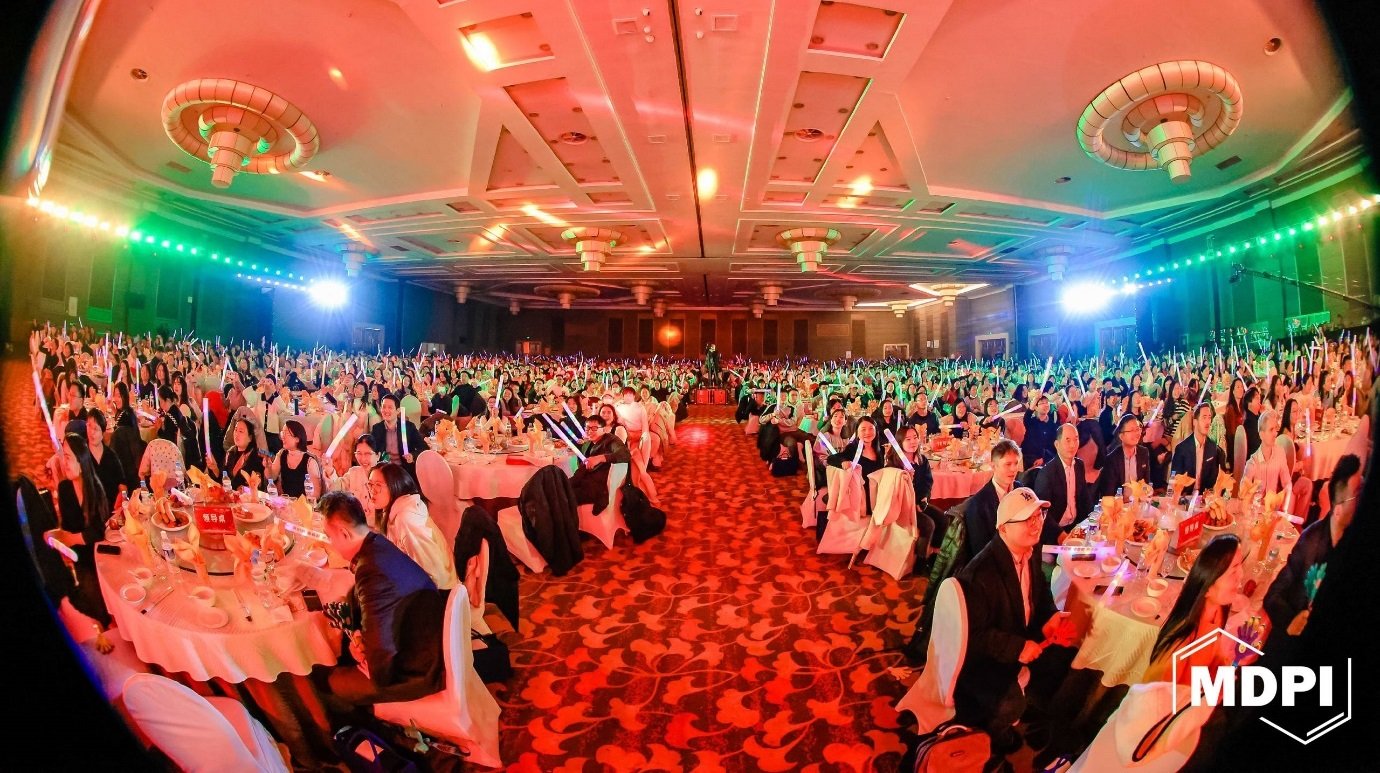
I extend our best wishes to all for the Chinese New Year (Xīnnián kuàilè)!
Coming Together for Science
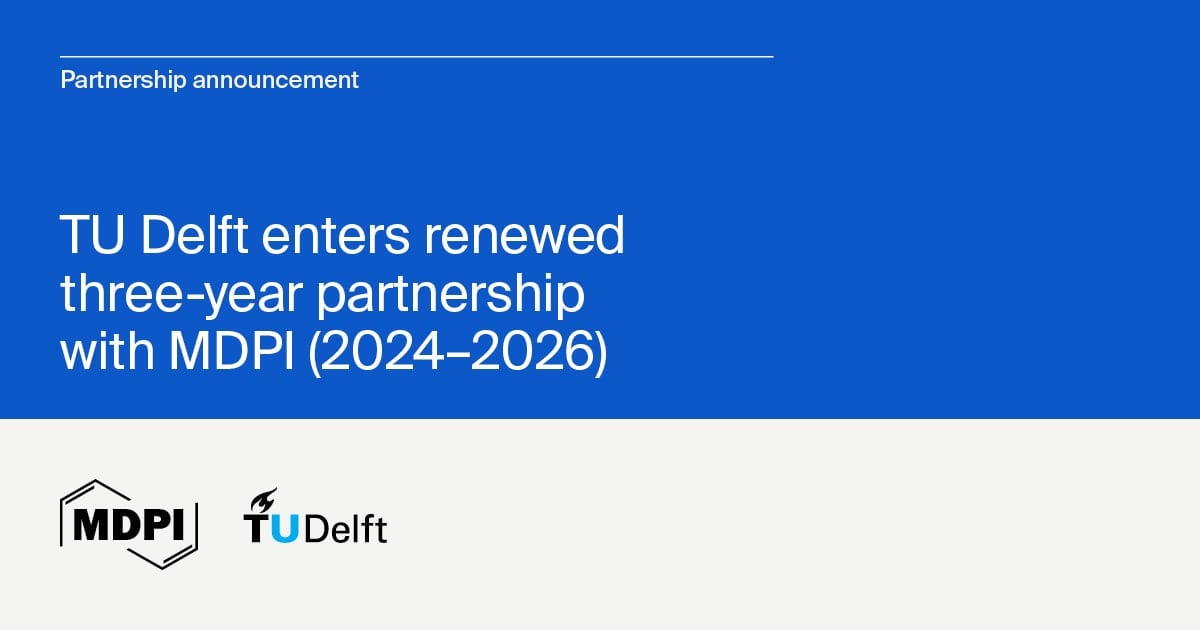
MDPI and TU Delft Adopt Flat Fee Model in Extended Partnership
We are excited to announce a renewed three-year partnership with Delft University of Technology (TU Delft) in the Netherlands. This collaboration introduces a fixed lump-sum fee, covering publishing costs from 2024 to 2026.
“This initiative reflects our dedication to transparent and inclusive publishing”
TU Delft-affiliated authors will enjoy cost-free publishing in any MDPI journal during this period, aligning with our commitment to removing barriers for open access publishing. The agreement supports Plan S compliance and facilitates a seamless publishing process for TU Delft corresponding authors. This initiative reflects our dedication to transparent and inclusive publishing, providing stability and predictability both for authors and for institutions.
For further details on our Institutional Open Access Program (IOAP), please contact us.
Benefits to MDPI’s IOAP
At MDPI we have a long tradition of partnerships, including our Institutional Open Access Program (IOAP). IOAP supports institutions through simplification, access, transparency, APC discounts, and institutional repository deposits. The program simplifies administrative processes, offers central payment, and allows easy opting in and out. Participants gain free access to Susy, MDPI’s online submission system, with extensive article metadata and exportable data. APC discounts and Book Processing Charge discounts are available for affiliated authors. Automated deposits to institutional repositories and streamlined matching of papers to IOAP participants enhance the overall experience.
For further information, see our IOAP FAQ.
Closing Thoughts

Reflections on the 2024 APE Conference
MDPI was proud to co-sponsor the Academic Publishing in Europe (APE) 2024 Conference that took place in Berlin, Germany, from 9–10 January 2024.
The conference theme, ‘Keep the Conversation Going!’, explored the evolving landscape of scholarly communication. APE is one of the key conferences I make a point to attend each year. January offers a valuable opportunity to engage with new contacts, reconnect with familiar faces, and participate in impactful discussions and presentations among professionals, scholars, and practitioners in the field.
“It's fascinating to see how other publishers are leveraging AI”
Highlights
Some of the standout panels for me include: the role of the UN Sustainable Development Goals (SDGs) within the publishing industry. It was encouraging to hear the current status quo, though I was eager also to learn about the exciting projects planned for 2024 and beyond. These will allow us to track progress in subsequent years. At MDPI, we remain committed to promoting Open–Access (OA) content on SDGs through scientific articles and books. Furthermore, we extend our commitment to sustainability by financially supporting researchers through initiatives such as the World Sustainability Award and the Emerging Sustainability Leader Award, as well as waiving the APC for feature papers on each SDG.
In recent years, discussions on AI have become increasingly prominent at such conferences. It’s fascinating to see how other publishers are leveraging AI to meet the evolving needs of their audiences while at the same time using it to safeguard the scientific process. Other engaging panels that I enjoyed included updates on transformation beyond transformative agreements, the principles of lean change, incentive structures related to research integrity, and the panel on reviewer incentives.
“We can share best practices and lessons learned”
Incorporating MDPI’s Insights into Conferences
I must confess that I sometimes feel overlooked when MDPI is not invited to participate in crucial industry discussions. As the leading open access publisher and the third-largest publisher overall, we possess extensive experience in many of these areas and can offer valuable contributions to these discussions. We can share best practices, lessons learned, and our thinking about future trajectories. For instance, in panels discussing reviewer incentives, at MDPI we offer a discount voucher to reviewers for future submissions, reflecting our commitment to fostering a robust peer review process. In 2022 alone, MDPI collected over 1.4 million peer review reports, informing the decision-making processes of our editors. Given our expertise in these areas, it would be natural to include MDPI in such discussions. I therefore extend an invitation to future conference organizers to consider MDPI for speaking engagements and collaborative opportunities.
Chief Executive Officer
MDPI AG
25 January 2024
Acknowledgment of the Reviewers of Batteries in 2023
In recognizing the exceptional efforts of our reviewers in 2023, we express our sincere gratitude for upholding the high standards of Batteries. Their commitment ensured the rigorous peer review that is integral to quality academic publishing.
In 2023, Batteries received 2347 review reports, from 1238 reviewers. This past year, we worked with reviewers from 60 countries and regions, reflecting the diversity in our collaboration with research communities. Their dedication shapes scholarly discourse and advances global research. The editorial team expresses gratitude for the vital role played by each reviewer in the Batteries family throughout 2023, and we look forward to their continued support in 2024.
The following are the reviewers who have consented to show their names:
| Abdul Anwer | Maria Brzhezinskaya |
| Abniel Machín | Maria Stepanova |
| Aditya Singh | Markus Solberg Wahl |
| Agata Szłapa-Kula | Marya Baloch |
| Alar Jänes | Masoud Nazarian-Samani |
| Alberto Battistel | Masoumeh Ghalkhani |
| Aleksandar Cuculić | Matthias Schulz |
| Aleksei Shchegolkov | Md Abu Zahed |
| Alessandro Piovano | Mei Luo |
| Alessia Musa | Mewin Vincent |
| Alexander Santiago | Micael Nascimento |
| Alexander Skundin | Michele Pipicelli |
| Alexandre Correia | Mickaël Dollé |
| Alexey Korzhakov | Mihit Parekh |
| Alfredo Quijano-Lopez | Mikhail Karushev |
| Ali Reza Kamali | Milan Poudel |
| Amin Rabiei Baboukani | Minella Bezha |
| Andrea Mariscotti | Ming Song |
| Andrei Klyndyuk | Mingzhe Chen |
| Andrey Bukhtiyarov | Miona Andrejevic Stosovic |
| Andriy Kvasha | Mohamed A. Ahmed |
| Aniruddha Mondal | Mohammad R. Thalji |
| Anna Kornyushchenko | Mohammed Awad |
| Annalisa Paolone | Mohan Tamtam |
| Antonia Stoyanova | Mona Faraji Niri |
| António Almeida | Moshe Aberbukh |
| Antonis Gitsas | Mostafa Ghasemi Baboli |
| Ao Li | Mounesha Garaga |
| Arkadiusz Małek | Moustafa Sanad |
| Arthisree Devendran | Muhammad Sufyan Javed |
| Artūras Žalga | Münür Herdem |
| Arun Thirumurugan | Nabil Mohammed |
| Asadullah Khalid | Nadezhda Kafadarova |
| Atin Pramanik | Nadia Intan |
| Bapi Bera | Namhyung Kim |
| Bernardo Barbiellini | Naresh Duvva |
| Bogdan Bita | Naresh Kumar Thangavel |
| Branimir Grgur | Natalia Kireeva |
| Carlos Santos | Natascia Andrenacci |
| Carlos Ziebert | Nebojsa Potkonjak |
| Changcheng Liu | Nhan Tran |
| Changmin Shi | Nicholas Jaegers |
| Chaoshan Wu | Nicola Toscani |
| Chenhui Zhang | Nikolaos Margaritis |
| Chenxu Wang | Norihiro Shimoi |
| Chenyang Li | Oleg Khyzhun |
| Christopher Vagg | Oleg Shlyakhtin |
| Chuanyu Sun | Oleksandr Vrublevskyi |
| Chung-Yul Yoo | Olga Podgornova |
| Chuyen Van Pham | Oscar Andrés Vargas Ceballos |
| Ciprian Cristea | Paolo Congedo |
| Cristian Ramirez-Gutierrez | Paweł Swornowski |
| Cristina Tealdi | Pedaballi Sireesha |
| Daniel Sławiński | Pengwei Li |
| Daqin Guan | Philipp Röse |
| David Bolonio | Pierre Kubiak |
| Denise Espinosa | Praveen Kumar |
| Deniss Stepins | Przemyslaw Ptak |
| Deping Li | Qian Xu |
| Dipobrato Sarbapalli | Qiancheng Zhu |
| Dmitrii Rakov | Qiao Ni |
| Dragana Jugović | Qifeng Zhang |
| Edmund Widl | Rafal Szukiewicz |
| Elanthamilan Elaiyappillai | Ragab El-Sehiemy |
| Elena Filonova | Raji Atchudan |
| Elias Sakellis | Rayavarapu Prasada Rao |
| Elizaveta Evshchik | Reddyprakash Maddipatla |
| Enrique Quiroga-González | Remy Mingant |
| Erik Schaltz | Robert Armstrong |
| Erwin Hüger | Roman Gozdur |
| Eva Gerold | Roman Parovik |
| Evgeniya Ilina | Rostislav Apraksin |
| Fabien Lacressonnière | Ruben Parra |
| Fabrizio Murgia | Saeed Sepasi |
| Faiz Ahmed | Sai Pushpitha Vudata |
| Farshid Naseri | Salvador Alepuz |
| Fatih Ozaydin | Samuel Bucko |
| Feng Yu | Santiago Puma-Araujo |
| Fengqi Zhang | Santosh Kumar |
| Filippo Milano | Satish Bolloju |
| Florin Mariasiu | Seetha Lakshmi K C |
| Francesca De Giorgio | Sergio Ignacio Serna-Garcés |
| Francisco José Loureiro | Shaik Gouse Peera |
| Francisco Marquez | Shailendra Chiluwal |
| Fride Vullum-Bruer | Shambhulinga Aralekallu |
| Fu Sun | Shao Qingguo |
| Fulai Zhao | Sheng-Heng Chung |
| Gabriela Badea | Shengli An |
| Geesoo Lee | Shuge Dai |
| Georgios Bampos | Shuhua Yang |
| Gianfranco Carotenuto | Shuijian He |
| Gioele Pagot | Shun Lu |
| Giorgio Tofani | Shunli Wang |
| Giuseppe Graber | Shuvodeep De |
| Gregorio F. Ortiz | Simonas Ramanavičius |
| Guangtao Zan | Sreenivas Jayanti |
| Guowei Zhou | Stavros Kaminaris |
| Guy Marlair | Suchithra Ashoka Sahadevan |
| Hadi Raja | Sudhan Nagarajan |
| Hamed Hashemi-Dezaki | Sumanta Sahoo |
| Hamideh Darjazi | Sun Myung Won |
| Hamza Faraji | Syed Taqvi |
| Haris M. Khalid | Syed Wajahat Ali |
| Hassan Raza | Tai-Feng Hung |
| Héctor R. Robles-Campos | Tanya Kumari |
| Heiko Fechtner | Tao Wang |
| Helinando De Oliveira | Tayyaba Iftikhar |
| Hirotoshi Yamada | Tianshu Li |
| Hiroyuki Ueda | Tomás Correa |
| Hsien-Ching Chung | Truong MN Bui |
| Huawei Song | Tudor Emil |
| Hugo Yañez-Badillo | Vaibhav Vibhu |
| Huina Lin | Valeriu Ghica |
| Ibrahim Shalayel | Valery Chebanenko |
| Ilya Zavidovskiy | Vediyappan Thirumal |
| Ioan Burda | Venkata Surya Kumar Choutipalli |
| Ioana Monica Sur | Vinayak Parale |
| Ion-Cornel Mituletu | Vladimir Katić |
| Iosif Vasile Nemoianu | Vladimir Kurbatov |
| Irina I. Buchinskaya | Walbermark dos Santos |
| Izabela Irska | Wang Liyong |
| Jakub Możaryn | Wei Qin |
| Jayanthi Kumar | Wei Zhang |
| Jean Marshall | Weiwei Han |
| Jian Zhang | Weiyin Chen |
| Jianhang Shi | Wenbin Fu |
| Jianqiang Kang | Wenbin Zhou |
| Jianwen Liu | WenLi Zhang |
| Jie Deng | Wentao Song |
| Jiejie Huang | Wenzao Li |
| Jin Xu | Wilson Santana |
| Jing Luo | Wojciech Zając |
| Jingtian Wu | Xianyong Wu |
| Jinlong Liu | Xiaochao Wu |
| Joao Gomes | Xiaolei Sun |
| José Matas | Xiaozhou Huang |
| Jose-Francisco Gomez-Gonzalez | Xinglu Wang |
| Juan Carlos Alvarez Anton | Xingxing Wang |
| Juan José Parajó | Xinran Feng |
| Julia Amici | Xinrong Huang |
| Julia Kowal | Xiong Shu |
| Jun Zhao | Xuyang Zhang |
| Junghwan Lee | Yang Li |
| Kailash Venkatraman | Yaobin Xu |
| Kambiz Therani | Yeming Zhang |
| Kamil Burak Dermenci | Yichun Ding |
| Karim Kriaa | Yifan Zhao |
| Karthik Reddy Lyathakula | Yifu Li |
| Katarzyna Rydel-Ciszek | Yifu Zhang |
| Kentaro Oishi | Yoichi Takagishi |
| Kurban Magomedov | Yufan Zhou |
| Leon Shaw | Yuhang Ren |
| Lijun Zhang | Yu-Sheng Su |
| Lubhani Mishra | Yusheng Xiang |
| Ľubomír Beňa | Zeai Huang |
| Muhammad-Sadeeq Balogun | Zeyi Tan |
| Madhav Singh | Zhao Li |
| Maik Becker | Zhaohui Xiao |
| Maiyong Zhu | Zhengze Pan |
| Manas Panda | Zhifeng Wang |
| Manoel Henrique Nóbrega Marinho | Zhu Liang |
| Marco Giorgetti | Zinab Bakr |
| Marco Vaccari | Zixuan Liu |
| Maren Schnieder |
23 January 2024
Batteries Accepted into Ei Compendex

We are pleased to inform you that the journal Batteries (ISSN: 2313-0105) has been accepted into Ei Compendex in the Engineering Village.
We would like to express our sincere gratitude to our editors. We also acknowledge that this achievement would not have been possible without the many valuable publications of our authors and the contributions of our dedicated reviewers. We wish to thank you all for your support and hope to receive more contributions from you in the future.
In addition to Ei Compendex, Batteries is also indexed within Scopus, SCIE (Web of Science), Inspec, CAPlus/SciFinder, and other databases. For more journal statistics, please visit https://www.mdpi.com/journal/batteries/stats.
Batteries Editorial Office
2 January 2024
MDPI Insights: The CEO's Letter #7 - Nobel Laureates Entrust MDPI with Their Research

Welcome to the MDPI Insights: The CEO's Letter.
In these monthly letters, I will showcase two key aspects of our work at MDPI: our commitment to empowering researchers and our determination to facilitating open scientific exchange.
Opening Thoughts

Nobel Prize Laureates Entrust MDPI with Their Research
The Nobel Prize stands as a hallmark of distinction, honouring ground-breaking research across disciplines. Annually, the Nobel Prizes are awarded in six categories: Physics, Chemistry, Medicine or Physiology, Literature, Peace, and Economic Sciences.
Through the years, renowned scholars have entrusted MDPI with their work. As at December 2023, 26 Nobel laureates have contributed to more than 75 articles across 25 MDPI journals, including: Antibiotics, Applied Sciences, Biology, Biomedicines, Cancers, Catalysts, Cells, Crystals, Entropy, Games, IJMS, Life, Materials, Micromachines, Molecules, Pharmaceuticals, Pharmaceutics, Photonics, Quantum Beam Science, Remote Sensing, Sensors, Solids, Universe, Vaccines, and Viruses.
The best of the best trust us with their work.
Nobel Prize Laureates Who Have Published with MDPI
We are proud to list the names of Pierre Agostini, Hiroshi Amano, Werner Arber, Aaron Ciechanover, Robert H. Grubbs, Oliver Hart, Gerard ‘t Hooft, Michael Houghton, Harald zur Hausen, Katalin Karikó, Jean-Marie Lehn, Gérard Mourou, Ferid Murad, Shuji Nakamura, William Nordhaus, Kostya S. Novoselov, Giorgio Parisi, Charles M. Rice, Alvin E. Roth, Donna Strickland, K. Barry Sharpless, George F. Smoot, Anne L’Huillier, Drew Weissman, Kurt Wüthrich, Ada Yonath.
The privilege of hosting such contributors resonates deeply with our editorial teams. For instance, in this interview, the Editor-in-Chief (EiC) of Universe speaks on the significance of publishing a paper by Nobel laureate Gerard ’t Hooft within the journal.
2023 Nobel Prize Winners Published by MDPI

Nobel Prize Winners, 2023: Katalin Karikó, Drew Weissman, Anne L’Huillier (Ill. Niklas Elmehed © Nobel Prize Outreach)
Three laureates from the 2023 Nobel Prize cohort have trusted MDPI as their publishing platform. Notably, in a 2022 Pharmaceutics paper, molecular biologist Katalin Karikó and her team presented a methodology for evaluating mRNA capping efficiency, pivotal for therapeutic applications. Pharmaceutics had previously dedicated a Special Issue to “mRNA Therapeutics: A Themed Issue in Honor of Professor Katalin Karikó”, spotlighting ten articles from August 2021 to February 2022.
In the journal Vaccines, Professor Drew Weissman, collaborating with scholars from Pennsylvania University and George Mason University, contributed an influential review titled “Nanomaterial Delivery Systems for mRNA Vaccines”. His collaborative efforts spanned five papers across MDPI journals between 2021 and 2023.
Furthermore, Anne L'Huillier of Lund University, only the fifth female recipient of the Physics Prize, co-authored an article in Applied Sciences focusing on "Advanced EUV and X-Ray Optics". Similarly, Pierre Agostini, an Emeritus Professor from Ohio State University, co-authored an article featured in the special issue "Attosecond Science and Technology: Principles and Applications".
We extend heartfelt congratulations to all Nobel Prize laureates and express sincere gratitude for their confidence in MDPI as a platform for their scholarly contributions.
Read more:
Impactful Research

MDPI Journals Newly Indexed in 2023
The aim of indexing is to enhance the quality and credibility of published research, ensuring that researchers access the most credible resources available. While the principle behind citation indexing is straightforward, it remains one of the most dependable methods for tracking an idea's evolution across various scientific disciplines.
Throughout the year, MDPI works to expand the reach of our publications across premier multidisciplinary databases like Web of Science, Scopus, EBSCO, and ProQuest. This initiative is spearheaded by MDPI's Indexing team, under the leadership of Dr. Constanze Schelhorn.
In 2023, MDPI achieved 54 new acceptances in Scopus, 29 in Web of Science, 52 in EBSCO, and 83 in DOAJ: Directory of Open Access Journals.
The team prioritizes ensuring that our journals feature in numerous specialized databases, including PMC, PubMed, MEDLINE, Inspec, CAS, and FSTA, among others. Currently, MDPI collaborates with over 65 renowned international databases, consistently enhancing our database affiliations annually.
MDPI’s journals are indexed in all major global databases.
Furthermore, we collaborate with universities and government organizations to list our journals in country-specific ranking lists and relevant institutional repositories. This ensures compliance with requirements often set by funders or institutions for authors to publish in specific journals.
Web of Science Adds 24 MDPI Journals to Emerging Sources Citation Index (ESCI)
Clarivate recently analysed MDPI’s new journals, resulting in 24 journals, mainly established in 2020, being added to the ESCI in November and December 2023. Additionally, five journals passed this assessment earlier in the year. For a complete list of our journals in Web of Science, refer here. Journals in the ESCI meet 24 quality criteria, ensuring editorial rigor. They may be considered for inclusion in broader indices like the Science Citation Index Expanded (SCIE), the Social Sciences Citation Index (SSCI), or the Arts and Humanities Citation Index (AHCI), based on four impact criteria.
Read more:
Inside MDPI

MDPI Appoints New Chief Operating Officer (COO)

Alistair Freeland returned to MDPI and assumed the role of Chief Operating Officer in November 2023, a position he previously held from 2013 to 2019. He succeeds Dr. Yu Lin, who will remain a member of MDPI’s Board of Directors, overseeing significant financial decisions for the company. I would like to express my sincere thanks to Dr. Yu Lin for his service as COO.
Alistair brings extensive experience not only in scholarly publishing but also in technology and business management. Prior to rejoining MDPI, he was associated with SIX Group, the entity responsible for Switzerland's financial market infrastructure. There, he played a pivotal role in developing the blockchain-based platform SDX (SIX Digital Exchange), which has gained traction among major Swiss banks and the Swiss National Bank.
As COO, Alistair will collaborate with the MDPI management team to improve the practices and services we offer to scholarly communities. I am pleased to welcome Alistair back to MDPI and look forward to his contributions going forward.
Coming Together for Science

MDPI’s 2024 In-Person Academic Events Schedule
MDPI's Conference Team is dedicated to organizing and hosting in-person academic events across Europe, Asia-Pacific, and North America. We recognize conferences as invaluable platforms for scientific collaboration, scholarly exchange, discussions on contemporary topics, networking, and forging collaborations.
Here's a glimpse of the notable events we currently have scheduled for 2024:
|
|
14–16 February, 2024 |
|
|
24–26 April, 2024 |
|
|
28–31 May, 2024 |
|
|
1–4 August, 2024 |
Upcoming events with details to be announced:
- September 2024, Materials 2024 – Basel, Switzerland
- 19–21 September 2024, International Conference on Nanomaterials Sciences 2024 – Beijing, China
- October 2024, ncRNA 2024 – Basel, Switzerland
- November 2024, Pharmaceuticals 2024 – Barcelona, Spain
- 22–26 November 2024, International Conference on Science of Electronics – Wuhan, China
- Stay tuned for more details on the Sustainable Publishing Forum 2024.
Click here for all upcoming MDPI events.
Organize Your Event with MDPI’s Sciforum
Sciforum is MDPI’s platform dedicated to the organization of scientific events. In line with our mission to promote science, Sciforum supports scholars, societies, research networks, and universities at all stages of organizing in-person events, virtual events and webinars. Our platforms are efficient, user-friendly, and cost-effective. We handle all steps related to event management. Contact us for details.
Closing Thoughts

Reflecting on 2023 and Looking Ahead to 2024
As we approach 2024, I reflect on the incredible journey we’ve had together at MDPI this year. The past 12 months have been marked by ambitious projects and initiatives to improve our internal processes, and a commitment to continue delivering top-notch services to our stakeholders. I’d like to thank each and every one of our staff members for contributing to the positive experiences our stakeholders have reported in our surveys. Your dedication to speed, efficiency, and effective communication with our stakeholders is very much recognized and appreciated.
Becoming a stronger organisation
While we have encountered challenges in 2023, it’s important to understand that these are a part of our growth process. Difficulties provide us with opportunities to reflect, address problems at their roots, and ultimately evolve into a stronger organization. Our stakeholders expect us to overcome tough times, and it’s an expectation that we have for ourselves.
I extend my sincere appreciation to every MDPI employee, from our editorial office and IT department to marketing, indexing, IOAP, societies, Scientific Office board, products, production, conferences, finance, operations, admin, and beyond. To our newest team members, a warm welcome; to our longstanding colleagues, your dedication is invaluable.
“I am committed to taking MDPI to a new level of excellence.”
Interacting with many of you during my visits to our offices and representing MDPI at external events has been a personal highlight. I am deeply grateful to Dr. Lin for entrusting me with the role of CEO of MDPI. Looking forward, I am committed to working closely with our management team to lead MDPI and take it to a new level of excellence, aiming to establish it as the most trusted publisher in open access worldwide. This is a collective endeavour, with each of us shaping MDPI’s reputation. I therefore encourage us to take pride in our work, as it represents not only our craft but also MDPI as a whole.
Accountability and communication
As we look forward to 2024, there’s a lot to be excited about. Together, we’ll navigate challenges, seize growth opportunities, and refine our practices. To solidify MDPI’s position as the premier open access publisher globally, we must bolster accountability, improve stakeholder communication, share MDPI’s best practices, champion the open access philosophy, and educate stakeholders about our mission, methodologies, and motivations.
Thank you for engaging with the CEO Letter over the past six months of 2023. I will continue to release this newsletter as a method of sharing the great work being done at MDPI. Please feel free to connect directly with any insights or questions.
Here’s to a joyous and prosperous 2024!
Chief Executive Officer
MDPI AG
22 December 2023
Batteries | Issue Cover Articles in 2023
The articles below have been selected as 2023 Issue Cover Articles by the Editorial Office of Batteries (ISSN: 2313-0105). These articles came from multiple fields within the scope of Batteries. We hope that they can provide insights and references for scholars in these fields.
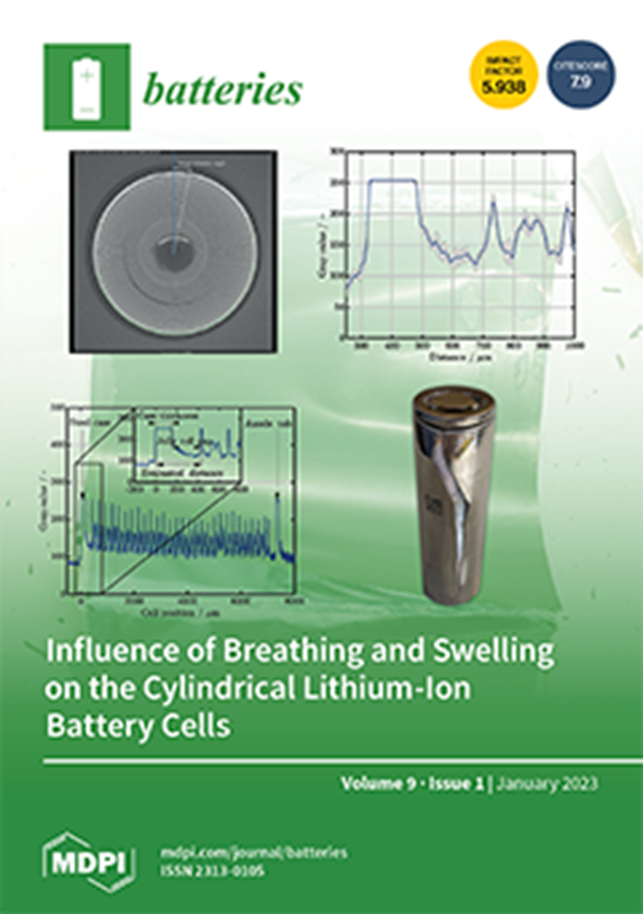 |
1. ”Influence of Breathing and Swelling on the Jelly-Roll Case Gap of Cylindrical Lithium-Ion Battery Cells” by Markus Spielbauer, Marco Steinhardt, Jan Singer, Andreas Aufschläger, Oliver Bohlen and Andreas Jossen Batteries 2023, 9(1), 6; https://doi.org/10.3390/batteries9010006 Available online: https://www.mdpi.com/2313-0105/9/1/6 |
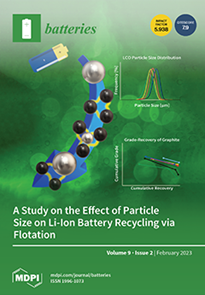 |
2. ”A Study on the Effect of Particle Size on Li-Ion Battery Recycling via Flotation and Perspectives on Selective Flocculation” |
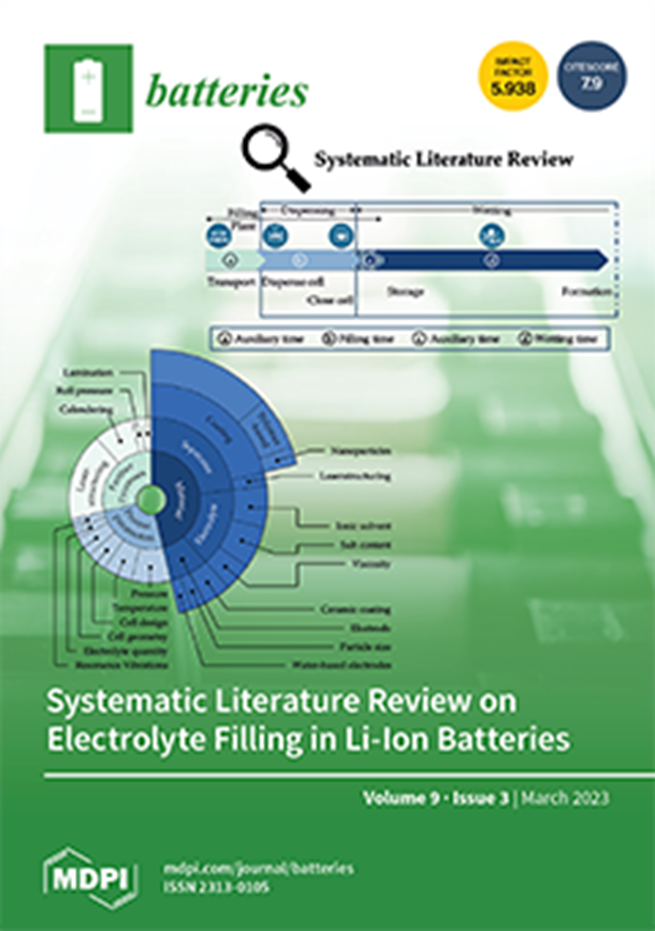 |
3. “A Systematic Literature Analysis on Electrolyte Filling and Wetting in Lithium-Ion Battery Production” |
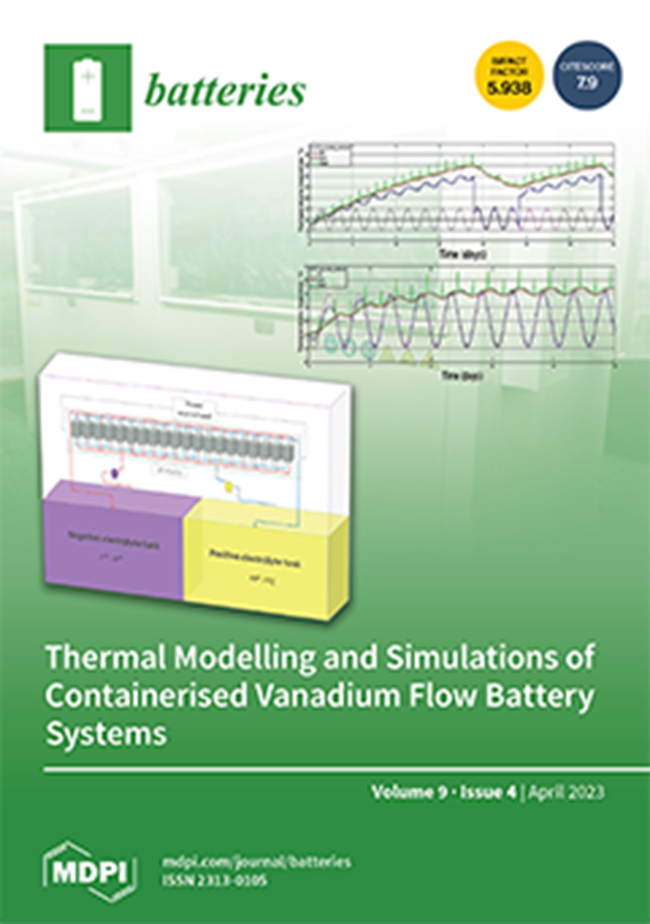 |
4. “Thermal Modelling and Simulation Studies of Containerised Vanadium Flow Battery Systems” |
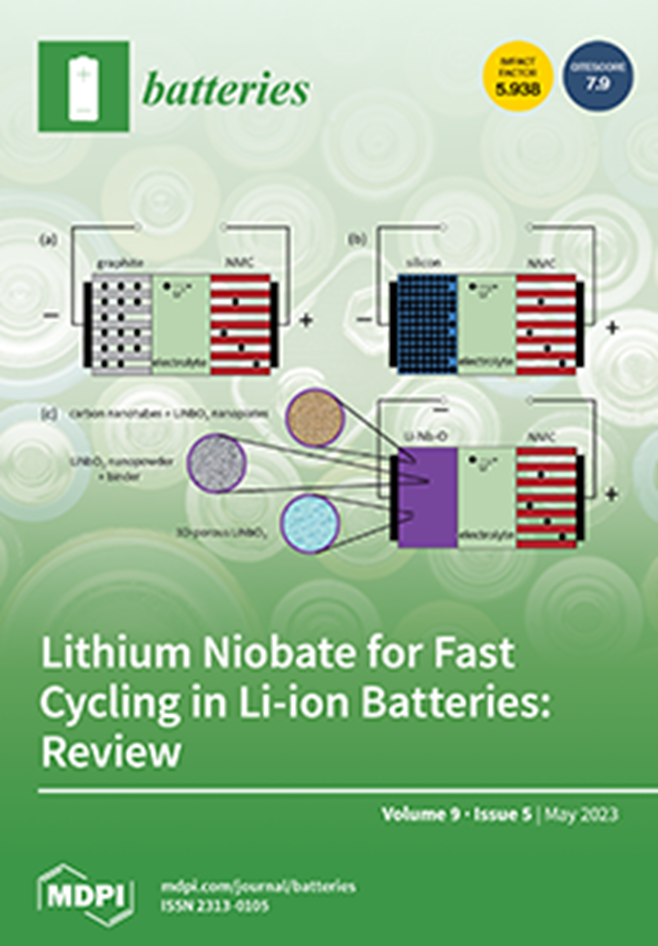 |
5. “Lithium Niobate for Fast Cycling in Li-ion Batteries: Review and New Experimental Results” |
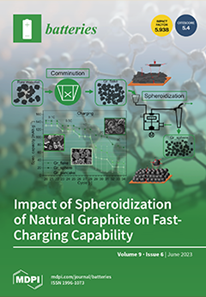 |
6. “Impact of Spheroidization of Natural Graphite on Fast-Charging Capability of Anodes for LIB” |
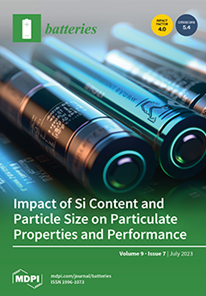 |
7. “Impact of Silicon Content and Particle Size in Lithium-Ion Battery Anodes on Particulate Properties and Electrochemical Performance” |
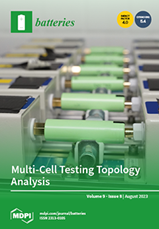 |
8. “Multi-Cell Testing Topologies for Defect Detection Using Electrochemical Impedance Spectroscopy: A Combinatorial Experiment-Based Analysis” |
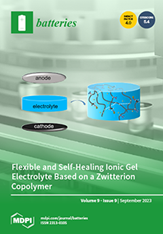 |
9. ”A Flexible and Self-Healing Ionic Gel Electrolyte Based on a Zwitterion (ZI) Copolymer for High-Performance Lithium Metal Batteries” |
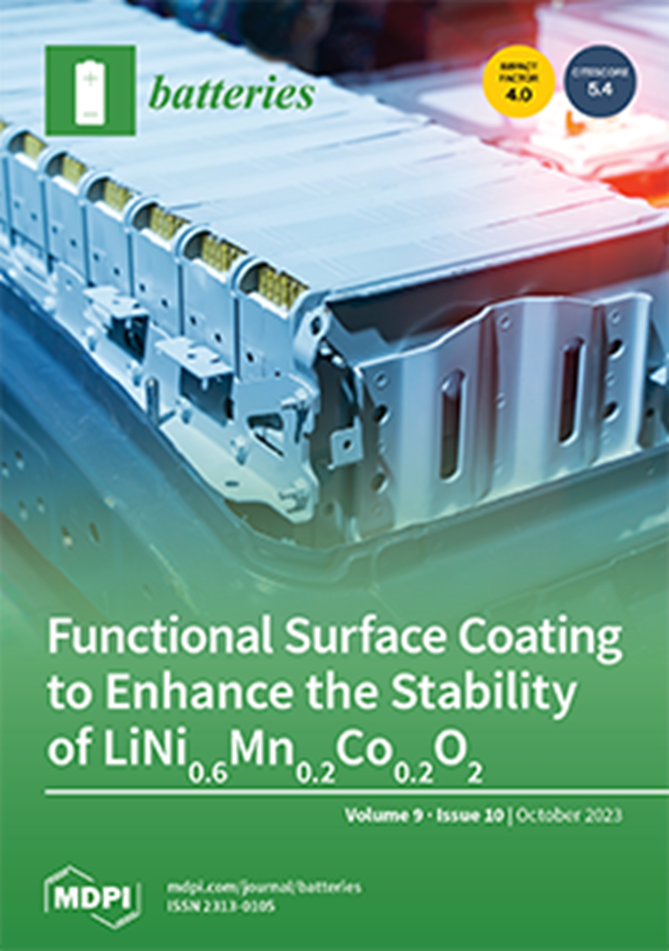 |
10. “Functional Surface Coating to Enhance the Stability of LiNi0.6Mn0.2Co0.2O2” |
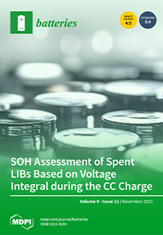 ; ; |
11. ”State of Health Assessment of Spent Lithium–Ion Batteries Based on Voltage Integral during the Constant Current Charge” |
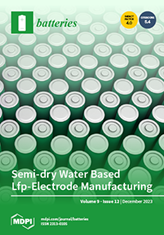 |
12. “Sustainable Lithium Ferro-Phosphate Cathode Manufacturing: A Semi-Dry Approach with Water-Based Processing and Polytetrafluorethylene Binders” |
30 November 2023
MDPI Insights: The CEO's Letter #6 - MDPI Spain Summit and ResearchGate

Welcome to the MDPI Insights: The CEO's Letter.
In these monthly letters, I will showcase two key aspects of our work at MDPI: our commitment to empowering researchers and our determination to facilitating open scientific exchange.
Opening Thoughts

MDPI Spain Summit

Stefan Tochev (CEO, MDPI) gives the opening speech at the MDPI Spain Summit.
On Friday 10 November 2023 I was in Barcelona, Spain, to deliver the opening presentation and participate in a panel at MDPI’s Spain Summit, a two-day event, inspired by our salon events in China.
With 16 Editors-in-Chief (EiCs) and 20 Editorial Board Members (EBMs) in attendance, the event, organized by our conference team and Barcelona office, featured presentations on open access (OA), MDPI, and publishing market trends in Spain.
The event provided a great opportunity to engage with stakeholders from various MDPI journals, including Nutrients, Vaccines, Buildings, IJMS, and others. We were able to gather feedback and have open conversations around manuscript quality, the peer-review process, and journal development, as well as accreditation agencies.
The main objective of this Summit was to bring together Editors representing MDPI journals across various disciplines within Spanish universities and research centers, primarily from the Barcelona area. The aim was to facilitate an open and fruitful discussion regarding the development of their journals, the future of OA in Spain, and to provide meaningful interactions and networking opportunities.
Connecting with Editorial Board Members

Stefan Tochev in conversation with Summit participants: "Our EBMs are passionate about the journals they serve."
Interacting with our EBMs in person provides a valuable opportunity to show how important it is to us to connect with them, hear their perspectives on their journals and learn more about their own experience collaborating with MDPI.
From my conversations, it was clear that our EBMs are passionate about the journals they serve. I know the advice they provide may sometimes involve just small tweaks, but these can lead to important improvements. As the saying goes, small hinges swing open big doors.
As at November 2023, MDPI has over 6,300 EBMs affiliated with Spanish institutions, with more than 30 of them serving as EiCs or section EiCs. Furthermore, over 68,000 Spanish scholars have contributed as reviewers in MDPI journals.
Open Access in Spain
In 2023, Spain implemented legislation mandating immediate OA for all publicly funded research, aligning with the EU’s Plan S initiative to expedite the transition to OA. The Spanish government also approved a four-year, €23.8 million annual budget for the first national OA strategy, aiming to make publicly funded research freely accessible upon publication. This strategy aims to strengthen the quality and transparency of research in Spain, and to help promote movement towards a digital, low-carbon economy.
For further details of Spain's OA policy and the history of government mandates, click here.
Spain has already seen a notable decline in subscription-only articles, decreasing by 62% over a 10-year period, while gold OA increased by 42%. Green OA slightly decreased, suggesting a shift towards publishing in gold OA journals rather than traditional subscription-based ones. Here are some statistics from Scopus.
A big thank-you to the various MDPI teams, including our conference team and the Barcelona office, for organizing this very successful event!

MDPI colleagues from various offices gathered to host and support the first MDPI Spain Summit, in Barcelona, Spain.
I think this type of gathering has the potential to become an annual event in various locations. For example, Manchester could be an option, as we have over 30 EiCs and over 3,000 EBMs in the UK, a top market for MDPI that publishes high-quality research.
Impactful Research

769 Editorial Board Members of MDPI Journals Recognized as Highly Cited Researchers in 2023
Congratulations to our 769 Editorial Board Members from 40 countries/territories who have been awarded Highly Cited Researcher status for 2023 by Clarivate. This recognition is based on their outstanding scientific research contributions and significant influence in various fields, as evidenced by Web of Science data.
Click here to view the full list of 769 Editorial Board Members.
Clarivate's Highly Cited ResearchersTM list identifies individuals with exceptional impact in scientific and social science domains over the past decade. Their papers rank in the top 1% of citations in 21 fields analysed in ‘Essential Science Indicators,’ showcasing their substantial influence.
This year, 7,125 Highly Cited Researcher 2023 designations were issued to 6,849 individuals from 67 countries, representing just 1 in 1,000 researchers worldwide.
These researchers demonstrate exceptional influence, representing a small fraction of contributors pushing the boundaries of knowledge, contributing to global well-being, sustainability, and security.
Congratulations to these scholars for their remarkable achievement: we are honoured to have them on board with our journals!
Inside MDPI

Corporate Marketing and Communications Strategy Session

Members of MDPI’s Corporate Marketing & Communications team.
For the past few years, I have led the Corporate Marketing & Communications department in our annual strategy session.
This typically involves 2–3 days of focused sessions covering key topics including budgeting, hiring targets, campaign reviews, and planning for the upcoming year, department strategy, and structure.
We are constantly exploring ways to optimize the Corporate Marketing & Communications department to support MDPI’s primary objectives and better convey the MDPI story while serving the scholarly community.
The strategy session also serves as a team-building activity, during which the team voted on bowling!
Strategy Session
In this strategy session, we looked at how to align our teams in order to better streamline our content with our campaigns, build a dedicated marketing team to strategically support our core MDPI products, expand our communications teams and functionalities to focus on company-critical campaigns and press releases, align our new brand design system with our marketing initiatives, set up a community and engagement team to support various teams with their outreach and communication efforts, and increase our use of data in the evaluation of campaign performance.
To grow in these areas, we will be hiring for various positions, including those of Public Relations Manager, Communications Manager, Internal Communications Manager, Campaign Manager, Marketing Associate, and Editorial Engagement Manager.
I am grateful for the way our Corporate Marketing & Communications department has grown and gelled over the years, and I look forward to supporting the department teams and their ideas for the future.
Coming Together for Science

ResearchGate and MDPI Partner to Boost the Visibility of Open Access Content through Journal Home

Stefan Tochev (CEO, MDPI) and Sören Hofmayer (Co-Founder and Chief Strategy Officer, ResearchGate) meet in Berlin, Germany to take their ongoing discussion further.
When I assumed the role of CEO at MDPI, my primary focus was to initiate the building of essential partnerships and collaborations within our industry. After all, I am a firm believer in achieving our goals by helping others achieve theirs and focusing on co-opetition wherever there is an opportunity. I first touched on the notion of co-opetition in MDPI Insights: The CEO's Letter #3, particularly when discussing collaborations with Elsevier.
In light of this, Sören Hofmayer (Co-Founder and Chief Strategy Officer at ResearchGate) and I connected recently to continue a discussion that had been ongoing for months. I was quickly brought up to speed and felt there was an opportunity for MDPI journals to pilot the Journal Home service that ResearchGate had launched. This would provide a new way for MDPI to engage with authors and readers and amplify the visibility of our journals.
While I receive many offers and opportunities for discussions with vendors, I am a firm believer that timing is everything, and in this case, the time for us is now. Sören and I met in person during my recent visit to Berlin and decided to proceed with piloting ten MDPI journals with the Journal Home service.
The press release below provides further details.
Press Release: Berlin (Germany) and Basel (Switzerland), 15 November 2023
ResearchGate, the professional network for researchers, and MDPI, the largest open access publisher in the world and a pioneer in open access publishing, today announced a partnership that will see ten of MDPI’s open access journals benefit from an enhanced presence on ResearchGate through its innovative Journal Home offering.
This new partnership will expand the reach and visibility of MDPI’s participating flagship journals with ResearchGate’s highly relevant community of more than 25 million researchers globally.
Around 210,000 version-of-record articles from these 10 titles will be readily available on ResearchGate, including the full archive material and all new articles as they are published. These journals also benefit from enhanced brand visibility, with dedicated journal profiles, prominent representation on all associated article pages and all relevant touchpoints across the ResearchGate network – keeping the journals top-of-mind with their reader and author audiences. All articles covered by the new partnership will automatically be added to the authors’ publication records in ResearchGate. This not only reduces MDPI authors’ needs for direct management but also offers them valuable insights into the impact of their work, including data about readership and citations.
Closing Thoughts

November is Men’s Health Awareness Month

Stefan Tochev (CEO, MDPI) listening to music as he writes at a coffee shop in Basel, Switzerland.
November is dedicated to raising awareness of various men’s health issues. I have been fortunate to have positive male role models in my life, and I strive to share my experiences with others.
I used to take part in Movember, growing my moustache throughout November to raise awareness and funds and to help “change the face of men’s health.” With male family and friends impacted by physical and mental health issues, I have recently become more interested in men’s overall well-being.
Men often face stigma involving the perceived need always to be strong and have things figured out. Recently, I’ve had meaningful conversations with male friends and colleagues about issues we rarely discuss, and it was a positive experience.
Various factors impact men’s health and well-being, all too easily leading to risky health behaviours including a lack of health awareness, poor health education, and negative, culturally induced, behaviour patterns in our work and personal lives. I hope we can break down these barriers in our work environment.
Healthy men help build healthy families and a healthy society
Men are less likely than women to seek help with their physical and mental health struggles. This is a reminder to prioritize your overall well-being. I hope that as men, we will continue to open up to one another, becoming vulnerable in order to share what we are going through. By sharing and by supporting each other, we can learn and grow together. You are not alone, and when you fall, you can still get up and stand tall.
From one broski to another, you are loved and appreciated. I hope this mindset carries into December and beyond.
Mindfulness
Our content team recently released a handful of articles on mindfulness, a practice that I believe provides a good opportunity for stress release and self-reflection:
Chief Executive Officer
MDPI AG
21 November 2023
769 Editorial Board Members of MDPI Journals Achieve Highly Cited Researcher Recognition in 2023

We extend our sincere congratulations to the 769 Editorial Board Members of our journals – from 40 different countries/territories – who have been recognized as Highly Cited Researchers for the year 2023 by Clarivate. They are being recognized for their high-quality scientific research achievements and outstanding contributions to their professional fields, as indicated by Web of Science data.
Clarivate's annual list of Highly Cited ResearchersTM identifies the most highly cited scientists for the past decade who stand out for their significant and broad influence in various scientific and social science domains. Their impactful papers are among the top 1 per cent in the citation distribution of one or more of 21 fields analyzed in the "Essential Science Indicators", distinguishing them as hugely influential among their peers.
This year, 7,125 Highly Cited Researcher 2023 designations were issued to 6,849 individuals from 67 countries, representing just 1 in 1,000 researchers worldwide.
This means that these researchers have demonstrated an incredible level of significant and broad influence in their chosen field or fields over the last decade. They represent a small fraction of the researcher population whose contributions disproportionately push the boundaries of knowledge, enhancing global well-being, sustainability, and security.
Congratulations to the scholars for their noteworthy achievement – we are honored to have them on board with our journals!
|
Abate, Antonio |
Jaiswal, Amit K. |
Shen, Zexiang |
13 November 2023
Batteries | Three Articles Marked as “Highly Cited Papers” in the Web of Science

We are honored to congratulate the authors of the articles below, marked as “Highly Cited Papers” according to Web of Science data. You can read the article and forward this news to your colleagues.
1. “On the Current and Future Outlook of Battery Chemistries for Electric Vehicles—Mini Review”
by Mohamed S. E. Houache, Chae-Ho Yim, Zouina Karkar and Yaser Abu-Lebdeh
Batteries 2022, 8(7), 70; https://doi.org/10.3390/batteries8070070
Available online: https://www.mdpi.com/2313-0105/8/7/70
2. “Thermal Modelling Utilizing Multiple Experimentally Measurable Parameters”
by Anosh Mevawalla, Yasmin Shabeer, Manh Kien Tran, Satyam Panchal, Michael Fowler and Roydon Fraser
Batteries 2022, 8(10), 147; https://doi.org/10.3390/batteries8100147
Available online: https://www.mdpi.com/2313-0105/8/10/147
3. “Challenges and Future Prospects of the MXene-Based Materials for Energy Storage Applications”
by Svitlana Nahirniak, Apurba Ray and Bilge Saruhan
Batteries 2023, 9(2), 126; https://doi.org/10.3390/batteries9020126
Available online: https://www.mdpi.com/2313-0105/9/2/126
1 November 2023
MDPI Insights: The CEO's Letter #5 - OA Week, UK, and Strategy

Welcome to the MDPI Insights: The CEO's Letter.
In these monthly letters, I will showcase two key aspects of our work at MDPI: our commitment to empowering researchers and our determination to facilitating open scientific exchange.
Opening Thoughts

Open Access Week 2023 – the Global Drive to Open Continues
As the world's largest open-access (OA) publisher, we believe that unrestricted access to research findings is the cornerstone of transparency, efficiency, and quality control across scientific disciplines. At MDPI, we provide free, immediate access to scientific papers, empowering scientists to examine, validate, replicate, and build upon existing results. This minimizes redundancy, optimizes resources, and fosters innovative approaches.
International OA Week, held from 23 to 29 October 2023, provided a unique opportunity to link the global movement toward open sharing and open science with the progress of policy changes at the local level. Our mission, during OA Week and all the year round, is to offer educational resources highlighting the benefits of open-access publishing. The MDPI Blog is a valuable resource for information on open access and open science.
Core principles of OA publishing
Accessibility, transparency, and collaboration are core principles of OA publishing. OA aims to break down barriers that have traditionally restricted research access, ensuring that knowledge is available to all, regardless of financial situation or institutional affiliations. Our commitment to diverse pathways for OA publishing worldwide includes discounts for researchers. You can learn more about how MDPI supports scientific communities here.
One of the key strengths of OA publishing is its ability to facilitate interdisciplinary research. By removing paywalls and promoting knowledge-sharing across disciplines, OA encourages collaboration and innovation. Researchers from various fields can access and build upon each others’ work, fostering a holistic approach to addressing complex global challenges.
OA holds the potential to democratize knowledge, advance science, and drive positive societal change.
Policy driving change
Governments, institutions, and funding agencies have recognized the transformative potential of OA and have implemented policies to promote it. These policies often require publicly funded research to be made openly accessible, accelerating the growth of OA repositories and journals. Check out our spotlights on OA policies in the US, EU and China.
OA publishing is continuously evolving, with community-driven models and technologies shaping its future. Initiatives such as “Plan S” and “cOAlition S” promote OA publishing from the perspective of national funders, requiring grantees to publish their research openly. A new policy announced by the US administration last year mandates that, with effect from January 2026, all US federally funded research should be freely and immediately available after publication.
Additionally, preprint servers such as MDPI's Preprints.org, which allow researchers to share their findings before formal peer review, have gained popularity, enhancing the speed at which new knowledge is disseminated. The rise of blockchain technology is also being explored to ensure transparency and authenticity in scholarly publishing.
For more than two decades, OA publishing has been revolutionizing academic publishing by promoting accessibility, transparency, and collaboration. Its support for interdisciplinary research, evolving policies, and innovative practices all contribute to its growing influence in the global research community. As OA continues to expand, it holds the potential to democratize knowledge, advance science, and drive positive societal change.
MDPI is proud to lead the transition to open access.
Read more:
Impactful Research

Spotlight on Smart Cities
Smart cities will serve as a cornerstone for future human development. Their implementation will help us tackle many of the significant challenges we are facing – climate change, ageing populations, waste management, public safety, travel, and so on. Recognising the importance of this multifaceted field, MDPI launched the inaugural issue of Smart Cities in 2018 to provide an advanced forum for research into smart technology and society. Here we take a look at how this journal has developed, and its impact in this exciting field.
As at 30 October, 2023, Smart Cities has published 421 papers and has an Impact Factor of 6.4. It also has a CiteScore of 8.5, and more than one quarter of its published papers – 124 – have been cited 10 times or more.
Highly cited papers in Smart Cities
Below are several highly cited papers recently published in Smart Cities. Citation metrics are current as at 31 October 2023.
1. “Introducing the “15-Minute City”: Sustainability, Resilience and Place Identity in Future Post-Pandemic Cities”
Authors: Carlos Moreno, Zaheer Allam, Didier Chabaud, Catherine Gall and Florent Pratlong
Smart Cities 2021, 4(1), 93-111; https://doi.org/10.3390/smartcities4010006
Citations: Crossref (338), Scopus (366), Web of Science (270), Google Scholar (710)
The paper discusses the socio-economic impacts of the COVID-19 on cities, including increasing inequalities and rising unemployment. It introduces the concept of the "15-Minute City," a form of "chrono-urbanism," as a response to the challenges posed by the pandemic.
2. “A Review on Electric Vehicles: Technologies and Challenges”
Authors: Julio A. Sanguesa, Vicente Torres-Sanz, Piedad Garrido, Francisco J. Martinez and Johann M. Marquez-Barja
Smart Cities 2021, 4(1), 372-404; https://doi.org/10.3390/smartcities4010022
Citations: Crossref (359), Scopus (363), Web of Science (268), Google Scholar (558)
This paper provides an overview of the progress in Electric Vehicles (EVs), focusing on battery technology, charging methods, and emerging research challenges. It also analyzes the global EV market and its future outlook.
3. “IoT in Smart Cities: A Survey of Technologies, Practices and Challenges”
Authors: Abbas Shah Syed, Daniel Sierra-Sosa, Anup Kumar and Adel Elmaghraby
Smart Cities 2021, 4(2), 429-475; https://doi.org/10.3390/smartcities4020024
Citations: Crossref (121), Scopus (151), Web of Science (91), Google Scholar (215)
This paper gives an overview of the Internet of Things (IoT) in the context of Smart Cities, discussing the fundamental components, technologies, architectures, networking technologies, and artificial algorithms that underpin IoT-based Smart City systems.
4. “Artificial Intelligence Techniques in Smart Grid: A Survey”
Authors: Olufemi A. Omitaomu and Haoran Niu
Smart Cities 2021, 4(2), 548-568; https://doi.org/10.3390/smartcities4020029
Citations: Crossref (76), Scopus (94), Web of Science (57), Google Scholar (120)
This survey paper reviews the utilization of artificial intelligence (AI) techniques in the context of the smart grid. It covers various applications of AI in load forecasting, power grid stability assessment, fault detection, and security issues in the smart grid and power systems.
5. “The Metaverse as a Virtual Form of Smart Cities: Opportunities and Challenges for Environmental, Economic, and Social Sustainability in Urban Futures”
Authors: Zaheer Allam, Ayyoob Sharifi, Simon Elias Bibri, David Sydney Jones and John Krogstie
Smart Cities 2022, 5(3), 771-801; https://doi.org/10.3390/smartcities5030040
Citations: Crossref (72), Scopus (75), Web of Science (43), Google Scholar (176)
This paper discusses the concept of the Metaverse, a virtual world introduced by Meta (formerly Facebook), and its potential impact on urban life. It explores how emerging technologies such as AI, Big Data, IoT, and Digital Twins could reshape urban design and services in the context of the Metaverse.
Testimonial
“It was indeed a great and pleasant experience with MDPI regarding our recent publication. The submission process was very straightforward and less time-consuming than the norm. The review process was very fast compared to many other open access journals, which is praiseworthy. The support from the Editorial Office during the revision process was highly useful as well. We look forward to publishing with MDPI in the future, and I will most definitely recommend MDPI to my colleagues and collaborators.” – Dr. Luís Rosa, University of Minho
Article in Smart Cities: Mobile Networks and Internet of Things Infrastructures to Characterize Smart Human Mobility
Inside MDPI

MDPI Manchester office, UK Visit

Allie Shi (Editorial Director, MDPI), Stefan Tochev (CEO, MDPI), Jamie Anderson (Manchester Office Manager, MDPI), Michael O’Sullivan (Senior Scientific Officer, MDPI), Hushneara Akhtar, and Becky Castellon (IOAP Team Lead, MDPI), dining out in Manchester, UK.
In October, I visited MDPI’s new office in Manchester. During the visit, I connected with our English Editing (EE) managers, Scientific Officer, members of the Editorial team, the Marketing team, and IOAP Team Lead.
Our Manchester office focuses primarily on EE services and provides local support for the UK market. Additionally, we regularly visit Editorial Board members and participate in local conferences.
I would like to thank Jamie Anderson, Manchester Office Manager, and her team, for their deep commitment to our Manchester staff and to MDPI’s impact on the UK market.
The UK by numbers
The UK is a hub for the world’s top universities, making it a key market for MDPI and the publishing world in general. It is home to two of the top-five-ranked universities globally, 11 in the top 100, and 15 in the top 200.
As a result, the UK plays a key role in MDPI’s global market. As at October 2023, it ranks as the seventh-largest contributor to the total number of papers published by MDPI. We have 3,500 Editorial Board members affiliated with UK institutions, including 34 serving as Editors-in-Chief (EiCs). Our commitment to collaboration with institutions is evident in the UK, where we have successfully established some 60 Institutional Open Access Program (IOAP) agreements with esteemed institutions, such as the University of Oxford, the University of Cambridge, Imperial College London, the University of Edinburgh, and more.
According to InCites Dataset + ESCI for the period 2018–2022, as at October 2023, nearly 65% of UK papers are now published as OA. Just over 10% of total OA publications are by UK authors. UK papers are known for their high quality, with an average of 11 citations per paper. Furthermore, 2.16% of UK papers are in the top 1% of cited papers, and 14.61% are in the top 10% of cited papers, showcasing their impact.
We are currently hiring EEs in various locations worldwide.
English Editing at MDPI
Our English Editing (EE) department consists of two main branches, Quality Control and Learning and Development, reflecting our priorities. We are continuously enhancing the quality of our English Editing services and have raised the relevant standards, which now extend to company-wide communications. English editors participate in international interviews, conduct English assessments, and provide colleagues with presentations on ways to improve their use of written and spoken English.
While expanding, the EE department has proactively refocused its efforts on the quality of our work and how the English Editing department can benefit the company more broadly. We currently have approximately 140 full-time English Editors based across five offices worldwide, supplemented by over 700 freelance English editors.
Our Manchester office serves as the hub for the EE Department, with EE Managers situated there, except for Kurtis Jackson, who serves as the Head of EE and is located in our Basel office. Manchester EEs play a critical role in establishing and developing EE teams in our other offices, overseeing management and recruitment. The EE department plays a vital role in MDPI’s operations, as it is the department that touches every published paper. If this work interests you, I encourage you to explore our available EE positions, whether you are seeking full-time or freelance opportunities.
Testimonials
“MDPI provides an excellent service compared to any other previously used services. It delivers fast and high-quality results but at an affordable price.” – Ardha Apriyanto, University of Potsdam
“In my role as a professor, I consider that MDPI Author Services offer an excellent quality in the editing of Western academic writing while maintaining the required standards of clarity, precision and rigor. Additionally, delivery times are fast compared to other available services.” – Jesus Insuasti, University of Nariño
Read more:
Coming Together for Science

STM and Frankfurt Book Fair
Attending STM
MDPI has been a proud sponsor of the STM Conference for several years. The STM Conference is a dynamic event featuring interactive sessions, expert panellists, idea-sharing, and ample networking opportunities. On 16 October, the event kicked off with arrival drinks, sponsored by MDPI, followed by a welcoming dinner, providing a great chance to connect and network with industry professionals. The following day was filled with speakers, sessions, and further opportunities to connect. STM exemplifies the collaborative spirit of the scientific community, with session topics including achieving open, visible, and impactful research at scale; maintaining research integrity in a rapidly changing world; and exploring the impact of ever-evolving technology in the scholarly community.
Meeting with Web of Science
On a personal note, one of the highlights of STM was a candid and productive conversation with Nandita Quaderi, Editor-in-Chief and SVP at Web of Science. During our discussion, we talked about MDPI, Web of Science, the IJERPH delisting, and ways of moving forward. This open conversation aimed at fostering better collaboration for the future.
“We discussed ways to improve our communication and collaboration.”
I appreciated our frank discussion and felt that Nandita wholeheartedly supports open access. She also expressed her appreciation for the monthly CEO Letter, which she sees as a way to add personality to the MDPI brand and provide insight into the great work we do at MDPI. While we highlighted the positives, we also discussed ways to improve our communication and collaboration moving forward. This meeting alone made the trip worthwhile, and I hope Nandita doesn’t mind my sharing that she found our chat to be “the most honest and constructive discussion” she’s had with someone from MDPI in recent years.
75th Frankfurt Book Fair

Jelena Milojevic (Book Editor, MDPI), Jovana Dubajic (Book Editor, MDPI), Evan Escamilla (Project Manager, MDPI), Laura Wagner (Head of Books, MDPI), and Jenny Knowles (Commissioning Editor, MDPI), at the Frankfurt Book Fair in Frankfurt am Main, Germany.
For the 75th time, the Frankfurter Buchmesse opened its doors in October to celebrate exciting stories and their authors. If you haven’t yet had the chance to visit the Frankfurt Book Fair, I highly recommend it. It’s the largest book fair in the world, attracting thousands of visitors from around the globe. This is the place to gain valuable industry insights from top-class publishing professionals, connect with publishers directly, and learn about the latest trends in publishing.
MDPI Books
Our Books team was also present at the Frankfurt Book Fair, networking and learning from various panels. Did you know that our MDPI Books department publishes OA Books?
The book publishing program includes monographs, book series, edited books and reprints of special issues and topical collections, among other book types.
If you have a book proposal you would like to discuss, please feel free to contact our Books team to understand the benefits and methods of publishing your next book with the OA model.
Closing Thoughts

MDPI Strategy Meeting
As the newly appointed CEO, this is my first year leading the MDPI Senior Management Strategy session. I saw it as an opportunity to explore what MDPI has the potential to become in the next five years. Guided by the vision of its founder and President, Dr. Shu-kun Lin, the company has accomplished remarkable feats over the past 27 years and currently holds the position as the world’s third-largest academic publisher, following Springer Nature and Elsevier.
Our primary objective is to build upon the milestones of the past decades and consolidate MDPI’s position as well-established publishing brand. The two-day meeting emphasized the importance of communicating MDPI’s values more actively via its brand and adopting a straightforward yet impactful approach to managing MDPI as a mature academic publisher.
“Our primary objective is to consolidate MDPI’s position as well-established publishing brand”
As the world’s number one open-access publisher, MDPI has long been a game-changer in the scholarly community, serving millions of authors. The challenge in being a trailblazer is the need to continuously improve and at the same time explore the next blue-ocean strategy, while also maintaining the smooth operation of the business. Our collection model, featuring guest-curated thematic topics in the form of Special Issues, has disrupted the industry. Other publishers closely study us and attempt to replicate our models. The future of this collection model is something we are actively addressing – while, of course, looking ahead to what comes next!
Chief Executive Officer
MDPI AG
19 October 2023
Open Access Week 2023 – the Global Drive to Open Continues

MDPI has been a strong proponent of the open access publishing model right from the beginning. As one of the pioneering fully open access publishers, we firmly believe that unrestricted access to research findings forms the foundation for better transparency, efficiency, and quality control across all scientific disciplines.
In December 2022, we reached a significant milestone by surpassing one million articles published. That is one million articles freely available to all, to circulate and build upon!
Offering free and immediate access to scientific papers empowers scientists to examine, validate, replicate, and expand upon existing results. This not only helps prevent redundancy and optimizes how resources are used but also paves the way for innovative new approaches.
The International Open Access Week takes place from 23 to 29 October 2023, providing a unique opportunity to connect the global movement towards open sharing and open science with the progress of policy transformations at the local level.
Our goal, during Open Access Week as well as throughout the year, is to offer resources for educating people about the benefits of open access publishing. The MDPI Blog offers a wealth of information around open access and open science.
Promoting the values of accessibility, transparency, and collaboration
Open access publishing embodies the fundamental values of democratizing knowledge and fostering global accessibility. It aims to break down barriers that have traditionally limited access to scholarly work, ensuring that knowledge is available to all, regardless of their financial or institutional affiliations.
Discounts are part of our commitment to ensuring there are diverse pathways to Open Access publishing for researchers worldwide. MDPI supports scientific communities in several different ways.
One of the key strengths of open access publishing lies in its ability to facilitate interdisciplinary research. By removing paywalls and promoting the sharing of knowledge across disciplines, OA encourages collaboration and innovation. Researchers from diverse fields can access and build upon each other's work, fostering a holistic approach to addressing complex global challenges.
Funders' policies are getting aligned with open science
Governments, institutions, and funding agencies have recognized the transformative potential of open access and have implemented policies to promote it. These policies often mandate that publicly funded research should be made openly accessible. Such initiatives have accelerated the growth of open access repositories and journals, reinforcing the commitment to open access principles. Check our spotlights on OA policies in the US, EU and China.
Open access publishing is continually evolving, with innovative and community-driven models and technologies shaping its future. Initiatives like "Plan S" and "cOAlition S" promote the adoption of OA publishing from the national funders’ perspective by requiring grantees to publish their research openly. A new policy announced by the US administration last year requires that, as of January 2026, all US federally funded research be made freely and immediately available after publication.
Additionally, preprint servers such as MDPI's Preprints.org, which allow researchers to share their findings before formal peer review, have gained popularity, enhancing the speed at which new knowledge is disseminated. The rise of blockchain technology is also being explored to ensure transparency and authenticity in scholarly publishing.
For more than twenty years, open access scholarly publishing has been revolutionizing academia by promoting the values of accessibility, transparency, and collaboration. Its support for interdisciplinary research, evolving policies, and innovative practices all contribute to its growing influence in the global research community. As open access continues to expand, it holds the potential to democratize knowledge, advance science, and drive positive societal change.
MDPI is proud to be a leader in the transition to open access.
19 October 2023
Meet Us at the 3rd Functional Materials and Interface Science Conference, 19–21 October 2023, Guangxi, China

Conference: 3rd Functional Materials and Interface Science Conference
Date: 19–21 October 2023
Place: Guangxi Wharton International Hotel, Guangxi, China
Booth: #42
MDPI journals will be attending the 3rd Functional Materials and Interface Science Conference as an exhibitor. This meeting will be held in Guangxi, China, from 19 to 21 October 2023.
The conference will focus on the theme of “Energy Technology and Material Innovation in Change” and discuss the material, technology, and engineering issues of current energy storage and catalytic technology, promote the progress and prosperity of the field, and build an exchange platform for scientific and technological workers in the field of new energy and industry at home and abroad. The topics covered by the conference include high-specific energy batteries, solid-state batteries, lithium-ion batteries, sodium-ion batteries, water batteries, solar cells, fuel cells, water decomposition technology, CO2 storage and conversion, new material synthesis, etc.
The following MDPI journals will be represented:
If you are planning to attend this conference, please feel free to start a conversation with us. Our delegates look forward to meeting you in person and answering any questions you may have.
19 October 2023
Meet Us at the 26th International Conference on Electrical Machines and Systems (ICEMS 2023), 5–8 November 2023, Zhuhai, China

Conference: The 26th International Conference on Electrical Machines and Systems (ICEMS 2023)
Organization: China Electrotechnical Society (CES)
Date: 5–8 November 2023
Place: Zhuhai International Convention & Exhibition Center, 1663 Yinwan Road, Xiangzhou District, Zhuhai, China
Booth: #A8
MDPI journals will be attending ICEMS 2023 as an exhibitor. This meeting will be held in Zhuhai, China, from 5 to 8 November 2023.
ICEMS is an annual international conference on electrical machines and systems held since 1987, and it is jointly organized by the CES (China Electrotechnical Society), KIEE EMECS (KIEE Electrical Machinery and Energy Conversion Systems Society) and IEEJ IAS (IEEJ Industry Applications Society). It provides an extensive and exciting platform to gather the world's leading scientists, researchers and engineers in the field of electrical machines and systems together to showcase state-of-the-art ideas, methods and prototypes. We believe that this conference will benefit us by broadening our horizons, stimulating ideas and enhancing contacts with international colleagues.
The following MDPI journals will be represented:
- Machines;
- Energies;
- World Electric Vehicle Journal;
- Electronics;
- The Journal of Low Power Electronics and Applications;
- Vehicles;
- Batteries;
- Technologies.
If you are attending this conference, please feel free to start a conversation with us. Our delegates look forward to meeting you in person and answering any questions you may have. For more information about the conference, please visit the following website: https://www.icems2023.com/overview.html.
2 October 2023
MDPI Insights: The CEO's Letter #4 - MDPI Presence in China

Welcome to the MDPI Insights: The CEO's Letter.
In these monthly letters, I will showcase two key aspects of our work at MDPI: our commitment to empowering researchers and our determination to facilitating open scientific exchange.
Opening Thoughts

Open Access in China
It is Saturday, 23 September, and I have just returned from an unforgettable 12-day trip to China, visiting our main offices in Beijing and Wuhan. In the wake of a packed and very enjoyable agenda of internal and external meetings, I would like to use this edition of the CEO Letter to showcase how MDPI supports the scholarly community in China.
Coincidentally, Jack McKenna, Communications Associate from MDPI’s corporate content team, has just released a blog article discussing China’s open access (OA) policy. It is a timely read, providing a concise overview of the development of the OA movement in China and reflecting on its future. I shall draw some content from Jack’s piece and use this edition of the CEO Letter to highlight the various ways in which MDPI is involved in this market. And it would be remiss of me not to include some pictures and highlights from my travels!
Open Access Policy in China
As per Jack’s post, in 2020, China became the world’s leading producer of research articles. Today, China is experiencing a “substantial growth rate in OA [Open Access] publication”. This growth is supported by the State’s commitment to research & development and its policy “requiring the promotion of open science”.
Over the past two decades, there have been gradual developments in China’s OA framework, with repositories and platforms being developed in a consistent manner. Currently, key institutions across China – including the National Science Library, the National Science and Technology Library, and the Natural Science Foundation of China – support OA. The State aims to establish consistent policies across government agencies – a framework for a more encompassing embrace of OA across institutions.
In China, the number of subscription-only articles decreased by nearly 30% over the 10-year period of 2011–2021, while gold OA increased by 22%. Between 2017 and 2020 alone, China published 800,921 academic papers in an OA format.
In 2023, as the leading publisher of academic research, China is pursuing “self-reliance”. Therefore, the State will be establishing consistent policies across government agencies, including those related to OA. Additionally, it will want to ensure that Chinese people can access the research that is supported by Chinese funding and produced by Chinese academics. For this reason, “Open Access is a matter of priority in China”.
MDPI Offices in China
While the history of MDPI begins in Basel, Switzerland, the story of MDPI’s founder is very much rooted in China. Dr. Shu-kun Lin, Founder and President of MDPI, graduated with a BSc from Wuhan University in 1982. He also studied physical chemistry at the Lanzhou Institute of Chemical Physics, Chinese Academy of Sciences (1982–1986; MSc in 1985), and at the University of Louisville, USA (1987–1989). Dr. Lin completed his doctorate in organic chemistry at the Swiss Federal Institute of Technology (ETH-Zürich) in 1992.

Stefan Tochev (CEO, MDPI) at MDPI’s Wuhan office.
In 2002, MDPI’s Basel headquarters moved to Matthäusstrasse 11, 4052 Basel, and Dr. Lin opened an editorial office in Qingdao, China, which launched the journal Marine Drugs in the following year. Below is a list of MDPI’s current offices in China and their respective dates of inauguration:
- 2008: Beijing (Tongzhou, Haidian)
- 2013: Wuhan (Hankou, Guanggu)
- 2019: Tianjin
- 2021: Dalian
- 2021: Nanjing
Our Strength is in Our People
With over 6,000 MDPI staff, across 20 offices in 11 countries, MDPI is able to offer authors responsive and efficient round-the-clock support, enabling a rapid publication process.
In my experience, stakeholders are genuinely surprised when they realize the extent of our global operations. My response is to reiterate that our people are our strength. This is why we have fast and efficient processes and top-notch responsiveness. Our global presence ensures that your manuscript is constantly attended to, rather than sitting on someone’s desk. We prioritize our authors’ needs and act quickly to move things through the various stages of publication. MDPI is built on speed, convenience, and competence, which I believe are core pillars for success in any industry. We continually strive to improve our systems and processes on the basis of these core strengths. We literally have over 6,000 staff worldwide dedicated to serving your needs. It’s not magic: it’s people; it’s real.
Impactful Research

MDPI Awards
To support the academic community, and especially young researchers, and also to enhance communication among scientists, MDPI journals offer various awards in specific fields. We serve the scientific community by funding research to facilitate the development of sustainable global solutions through our annual World Sustainability Award and Emerging Sustainability Leader Award.
In 2022, MDPI made awards totalling over US$1 million in recognition and support of researchers worldwide.
Across our journal catalogue, we have granted over 2,000 awards to recognize and support researchers from all disciplines. Since 2016, these awards have served as a source of recognition, acknowledging the impact of research by heightening the influence of talented individuals. The award types mainly include the Young Investigator Award, the Best PhD Thesis Award, the Best Paper Award, and the Outstanding Reviewer Award.
To learn more about MDPI Awards and to find out which are currently available, please click here.
MDPI Awards to Scholars from China
Since 2021, there have been 23 Best Paper Awards granted to authors affiliated with Chinese institutions, identifying their papers as having high-quality scientific impact. A total of 45 Chinese scholars have received awards such as the Young Investigator Award, the Best PhD Thesis Award, the Outstanding Reviewer Award, and the Tu Youyou Award, among others. Prizes for these awards include MDPI grants for paid publications, totalling over CHF 70,000 for scholars affiliated with Chinese institutions.
MDPI’s Tu Youyou Award

Prof. Tu Youyou (left), Dr. Shu-Kun Lin (President, MDPI).
In 2015, Professor Tu Youyou was awarded the Nobel Prize in Physiology or Medicine “for her discoveries concerning a novel therapy against Malaria.” In order to commemorate Professor Tu’s contributions to human health and to promote the passion and spirit conveyed by her experiences, MDPI in 2016 established the ‘Tu Youyou Award’, which runs biennially to recognize outstanding scholars dedicated to the research of natural products and medicinal chemistry.
The 2022 Tu Youyou Award was granted to Prof. Dr. Xiaoguang Lei of Peking University. Click here to access the interview with the winner.
2015 Nobel Prize for Medicine Awarded to Professor Youyou Tu
Professor Tu’s work was celebrated in a Special Issue from Molecules on the occasion of her 80th birthday. The Special Issue: 'Artemisinin (Qinghaosu): Commemorative Issue in Honor of Professor Youyou Tu on the Occasion of her 80th Anniversary” was created five years before she won the Nobel Prize, highlighting the visibility MDPI provides researchers and their work.
Highly Cited Articles by Chinese Scholars Published in MDPI
Click here to access the most cited MDPI papers published by scholars affiliated with Chinese institutions. This list presents the most influential research from the more than 287,000 MDPI papers published by Chinese scholars. With over 9 million total citations, I encourage you to maximize your visibility and impact by publishing with MDPI, the number one most cited open access publisher.
Read more:
- Tu Youyou Award
- World Sustainability Awards
- Available Awards
Inside MDPI
 Stefan Tochev (CEO, MDPI) with the Beijing Marketing team.
Stefan Tochev (CEO, MDPI) with the Beijing Marketing team.
Marketing Department in China
During my visit to our offices in Beijing and Wuhan, I had the opportunity to meet with, and to present to, our local marketing teams. These teams are responsible for various journal-related and corporate promotional activities, including newsletters, conferences, seminars, author training, journal awards, content creation, digital marketing, and social media.
I was pleased by the ambition and curiosity of our marketing colleagues. They showed a strong desire to collaborate and acquire knowledge and tactics to effectively market and promote MDPI-journal-related activities. I presented some of the principles and objectives that we apply in the Corporate Marketing and Communications department, and used the opportunity to strengthen our collaborative communications across offices.
 Stefan Tochev (CEO, MDPI) with the Wuhan Marketing team.
Stefan Tochev (CEO, MDPI) with the Wuhan Marketing team.
Coming Together for Science

Collaborations, Scholarships and Meetings
MDPI maintains partnerships with nearly 190 learned societies and over 800 institutions and consortia, helping to facilitate the transition to OA publishing. Our commitment to working with institutions is evident in China, where we have successfully established over 35 Institutional Open Access Programs (IOAP) with esteemed institutions such as the Tsinghua University, Huazhong University of Science and Technology, and Shanghai Jiao Tong University.
Our institutional partnerships, waiver programs, and article processing cost discounts create diverse pathways to OA publishing for researchers worldwide.
Scholarships in China
Since 2021, several MDPI journals (Sensors, Photonics, Coatings, Materials, Energies, and Journal of Fungi) have funded full scholarships for four Master’s and five Ph.D. projects in China. These scholarships align with Tianjin University, Wuhan University of Technology, Central South University, the Chinese Academy of Sciences, and the China University of Petroleum (Beijing).
Meeting with the Society of Chinese University Journals (CUJS)

Prof. Tieming Zhang (President of CUJS, centre) and MDPI colleagues at CUJS office.
I am pleased to have participated in some highly productive meetings during my visit to China, including one with the Society of Chinese University Journals (CUJS). The meeting involved Prof. Tieming Zhang (President of CUJS), Assoc. Prof. Xin Zhang (Vice President and Secretary General), and Dr. Fei Gao (Executive Member of CUJS). Alongside my colleagues Dr. Guoshi Liu, Dr. Giulia Stefenelli, and Anita Sun, I represented MDPI and held an open discussion to address any questions regarding OA and MDPI.
We discussed several methods for collaboration, including a workshop on the future of peer review, MDPI sponsoring a funding grant for early-career researchers, and transitioning journals from diamond to gold OA. I am thankful for the opportunity to have met our colleagues at CUJS in person and feel very confident about our future collaborations in support of OA publishing in China.
MDPI hosts free academic seminars, author training sessions, and academic conferences as part of its commitment to enrich and support the scholarly community. CUJS often stages academic events (e.g., conferences, editor training, and editor competitions), and I believe there are great opportunities for CUJS and MDPI to collaborate accordingly.
Meeting with National Science Library, Chinese Academy of Sciences (NSLC)

Stefan Tochev (CEO, MDPI), Dr. Giulia Stefenelli (Chair of Scientific Officers, MDPI), Anita Sun (PR Manager, MDPI) and Dr. Guoshi Liu (Managing Director, MDPI) at the National Science Library, Chinese Academy of Sciences.
We also visited the NSLC Director, Xiwen Liu, and colleagues Ying Jin, Zhesi Shen, and Sichao Tong. Following our introductions, we gave a presentation on the history and editorial process at MDPI, discussing specific details related to MDPI’s business and data. We highlighted the status of our IOAP collaborations in China and the makeup of our author base, specifically in China, and drew attention to the fact that MDPI has published research by authors from every country in the world. We then discussed the design indicators, calculation methods and implementation purposes of the ‘Early Warning Journal List’ and how we can have open communication to provide any data regarding MDPI journals. I am pleased to report that we reached a consensus on future communications, and am grateful to NSLC for hosting us in their offices.
In-person meetings with stakeholders provide an invaluable opportunity to communicate what MDPI is about and the various ways in which we serve the scholarly community. While digital marketing and online communication are essential, they are no replacement for the understanding and trust that come about through in-person interactions.
The Numbers
As at September 2023, China holds the largest position in MDPI’s global market, ranking as the largest contributor to the total number of papers published by MDPI.
At this point in time, there were more than 847,000 China mainland scholars who have published with MDPI, 51 of whom are Section-Editors-in-Chief (SEiC) of MDPI journals, with seven serving as Editors-in-Chief (EiCs) for journals such as Air, Big Data and Cognitive Computing, Blockchains, Future, Nanoenergy Advances, and Targets.
Our growth and presence in China are a true testament to the service we provide to the scholarly community, and to the relationships we foster through collaborative activities. We look forward to continuing to support the growth of the scholarly community in China, providing a valuable and trusted experience with MDPI.
Closing Thoughts
Final Reflections on our MDPI Offices in Beijing and Wuhan

Stefan Tochev (CEO, MDPI), Dr. Constanze Schelhorn (Indexing Manager, MDPI), Jiale Shang (Admin, Tongzhou, MDPI) at Beijing Capital International Airport, Beijing.
I spent approximately two weeks visiting some of our offices in China, and the first word that comes to mind when describing my experience is ‘hospitality.’ My colleagues and I were met with enthusiasm and delight at the airport by the Tongzhou Admin team (thank you, Jiale Shang, and thank you, Eric Wang, for keeping us organized on this trip!) and were taken care of with great attention. From hotels to transportation, dinners, and meetings, our stay was catered for perfectly.
Perhaps this is where MDPI’s focus on customers and service originates. At our core, we are a service company that provides a publishing platform for its authors. It’s therefore no surprise that authors consistently rate their experience with MDPI very highly.
95% of submitting authors rate their overall experience with the MDPI publication process as Excellent or Good (Springer Nature report 90%).
91% of submitting authors rate their overall experience with the MDPI peer review process as Excellent or Good.
Speed/Efficiency and Editorial Relationship are two key reasons underlying this high satisfaction score. ‘Editorial Relationship’ can be further explored, but in the past month, the most commonly noted aspects were the professionalism, kindness, availability, communicativeness, and personalized assistance provided by our editorial staff throughout the process. These attributes are at the core of our work across all our offices and continents.
Hospitality and Service
Just as our Chinese colleagues strove to keep us engaged by showing us the city sights (thank you, Thea Pan, and Jason Wu from the Wuhan Marketing team!) and sharing a variety of wonderful meals, our editorial staff are committed to serving our authors throughout their publishing journey. Our aim is to place the author at the centre of everything we do, eager to welcome our ‘guests’ and provide them with a pleasant publishing experience.
I asked my colleague Francis Wu (Senior Publisher, Wuhan office) where this hospitality originates. He responded that it is part of Chinese culture. I reflected long and deep on this answer. China is a vast country, and when visitors arrive, hosts want to ensure they feel welcomed and taken care of in order to maximize their time and visit. I can’t think of a better analogy for how I would want our authors to feel when they visit MDPI for their publishing needs. A company culture that prioritizes service, something that goes beyond products and productivity, and focuses on the overall experience. Over 6,000 people, across all MDPI offices, are ready, willing and able to go the extra mile for their colleagues and their customers. This is something I am truly proud of.
Chief Executive Officer
MDPI AG
6 September 2023
Recap of Awards Granted to Scholars in 2022

MDPI is committed to supporting the academic community, nurturing talent and advancing science. Awards are an important part of the research landscape and play a vital role in helping academics gain recognition, especially young researchers as they embark on new research avenues.
In 2022, our journals presented a total number of 394 Awards, including Travel Awards, Young Investigator Awards, Best PhD Thesis Awards, Best Paper Awards, and Outstanding Reviewer Awards, with several winners announced for some of the awards. The total prize sum amounted to just under 580,000 Swiss francs (CHF), or approximately 650,000 US dollars. Overall, more than 720 scholars were awarded.
The majority of the awards were dedicated to young researchers in relatively early stages of their careers. This encompassed 66 of the afore-mentioned Travel Awards, 60 Young Investigator Awards, supporting research projects and conference attendance, as well as 51 Best PhD Thesis Awards. Additionally, 113 Best Paper Awards were given by our journals. The selection committees were entrusted with identifying the most impactful and novel research and review articles published in their journal within a given year.
MDPI will continue its support and recognition for the academic community moving forward, sponsoring new awards across disciplines. To learn more about all the awardees and their research projects in your field of study, please visit the following pages:
To explore more MDPI awards, please click here.
30 August 2023
MDPI Insights: The CEO's Letter #3 - Sustainability and Co-opetition

Welcome to the MDPI Insights: The CEO's Letter.
In these monthly letters, I will showcase two key aspects of our work at MDPI: our commitment to empowering researchers and our determination to facilitating open scientific exchange.
Opening Thoughts

Our Commitment to Sustainability
As a pioneer in academic open access publishing since 1996, MDPI has always been dedicated to facilitating scientific exchange across all disciplines. Our approach to open science is guided by principles such as Open Access (OA), Timeliness and Efficiency, Simplicity, High-Quality Service, Flexibility, and a commitment to Sustainability. This commitment involves preserving published papers for the long term and supporting the future of science through partnerships, sponsorships, and awards.
In this edition of the CEO Letter, I will delve into MDPI’s various sustainability initiatives. As a leader in OA publishing, we are able to provide the public with a significant amount of environment-related content at no cost.
MDPI and the Sustainable Development Goals (SDGs)
In 2020, the SDG Publishers Compact was launched to accelerate implementation of the SDGs by promoting content that informs, develops, and inspires action. MDPI joined this initiative in 2021 and subsequently launched the MDPI SDG Hub in 2022, offering free access to recent research within the scope of each of the 17 SDGs. We also support authors from underrepresented communities by waiving publication charges for selected SDG-related papers. Detailed sustainability practices and supported publications are available in the report under each Goal page.
“More than 80% of MDPI articles and reviews published in 2022 relate to the Sustainable Development Goals.” [source: InCites, Accessed on 21.08.2023]
As at August 2023, MDPI boasts 14 journals dedicated to sustainability-related topics. Our first journal in this area, Sustainability, has published over 29,000 articles on the SDGs, accumulating over 240,000 citations (source: InCites, as at 1 January 2023). These journals serve as vital platforms for researchers to share insights and address environmental challenges. In addition:
MDPI journals specializing in sustainability-related topics:
- 2009: Sustainability
- 2012: Resources
- 2013: Climate
- 2014: Environments
- 2016: Recycling
- 2019: Clean Technologies
- 2020: Sustainable Chemistry
- 2021: Wind, Biomass, Conservation, Pollutants, Solar
- 2022: Waste, Microplastics
Read more:
Impactful Research

Highly Cited Articles in Sustainability
In 2022, content published in Sustainability and indexed in Journal Citation Reports (JCR) received nearly 190,000 citations. This highlights the fact that Sustainability publishes highly cited research articles related to environmental sciences and SDG-related topics such as climate action.
We are pleased to share that Sustainability received a 2022 CiteScore of 5.8, marking a 16% increase from the 2021 metric. Specifically, the CiteScore positions Sustainability as follows: Q1 (27 out of 163) in the “Environmental Science (miscellaneous)” category, and Q1 (101 out of 779) in the “Geography Planning and Development” category. For additional journal statistics, please visit here.
“Sustainability received a 2022 CiteScore of 5.8”
While MDPI journals such as Climate and Atmosphere have a distinct focus on atmosphere pollution and its impact on climate processes, journals like Sustainability, Environments, Water, Remote Sensing, and IJERPH publish content related to climate change. These journals have published over 32,300 articles related to SDG 13: Climate Action.
Highly Cited Papers in Sustainability
Below are several highly cited papers published in Sustainability over the past three years. Citation metrics are current as at 15 August 2023.
1. “A Global Assessment: Can Renewable Energy Replace Fossil Fuels by 2050?”Authors: Jerry L. Holechek, Hatim M. E. Geli, Mohammed N. Sawalhah, and Raul Valdez
Sustainability 2022, 14(8), 4792; https://doi.org/10.3390/su14084792
Citations: Crossref (97), Scopus (91), Web of Science (82), Google Scholar (125)
This paper addresses one of the most significant challenges of climate change – achieving Net Zero Carbon by 2050. The meta-analysis suggests that while difficult, this transition is possible through the concerted application of pathways, lifestyle changes, and global cooperation.
2. “Anxiety and the Ecological Crisis: An Analysis of Eco-Anxiety and Climate Anxiety”Author: Panu Pihkala
Sustainability 2020, 12(19), 7836; https://doi.org/10.3390/su12197836
Citations: Crossref (144), Scopus (121), Web of Science (159), Google Scholar (382)
This paper has received substantial media attention, including coverage by The Guardian, BBC, Vice, and CNBC. An interview with Dr. Panu Pihkala, a leading interdisciplinary researcher on the topic, can be found on MDPI’s podcast: Insight Faster, Episode 1.
3. “Impact of Climate Change on Agriculture and Its Mitigation Strategies: A Review”Authors: Gurdeep Singh Malhi, Manpreet Kaur, and Prashant Kaushik
Sustainability 2021, 13(3), 1318; https://doi.org/10.3390/su13031318
Citations: Crossref (207), Scopus (221), Web of Science (186), Google Scholar (355)
This paper reviews literature on climate change, addressing its causes, future projections, impact on agriculture, including plant physiology, growth, productivity, pest infestation, and the economic implications of mitigation strategies.
4. “Impacts of Plastic Pollution on Ecosystem Services, Sustainable Development Goals, and Need to Focus on Circular Economy and Policy Interventions”Authors: Rakesh Kumar, Anurag Verma, Arkajyoti Shome, Rama Sinha, Srishti Sinha, Prakash Kumar Jha, Ritesh Kumar, Pawan Kumar, Shubham, Shreyas Das, Prabhakar Sharma, and P. V. Vara Prasad
Sustainability 2021, 13(17), 9963; https://doi.org/10.3390/su13179963
Citations: Crossref (134), Scopus (136), Web of Science (113), Google Scholar (184)
This review aims to assess the adverse effects of plastic pollution on ecosystems, link the management of plastic with the SDGs, and propose policy measures using transdisciplinary approaches. Empowering communities to reduce plastic use is crucial. Addressing global plastic pollution is a priority.
Sustainability is an international, cross-disciplinary, open access journal that explores environmental, cultural, economic, and social sustainability of human beings. It provides a forward-looking platform for research on sustainability and sustainable development, and is published semi-monthly online by MDPI. Sustainability is affiliated with The Canadian Urban Transit Research & Innovation Consortium (CUTRIC) and The International Council for Research and Innovation in Building and Construction (CIB).
Read more:
- Testimonials: See what our editors and authors say about Sustainability.
Inside MDPI

President of Ireland Authors Editorial in MDPI Journal Sustainability
It’s a very special occasion when the president of a country takes the initiative to write an editorial for a journal. Michael D. Higgins, President of the Republic of Ireland, has contributed his insights to a forthcoming Special Issue in Sustainability:

This Special Issue, focusing on “making sustainable development happen” at grassroots levels, allows for perspectives from, and on, the major world faiths, exploring how challenges have been conceptualised and addressed, in addition to case studies of faith-based sustainability initiatives in practice.
The experience of faith institutions and communities in translating theological and moral commitments to sustainable development into action is now a topic we must examine with urgency; one on which I am so glad this Special Issue focuses.
As President of Ireland, I very much support this Special Issue of Sustainability. It is my great hope that the contents of the papers contained herein will assist in making sustainable development happen at grassroots levels across the world so that we can cooperate together, people of faith and of none, to ensure a just, inclusive and sustainable future for all on our fragile planet.
Read the completed editorial here:
Special Issue “Faith and Sustainable Development: Exploring Practice, Progress and Challenges among Faith Communities and Institutions”: Foreword by the President of Ireland
Author: Michael D. Higgins
Sustainability 2023, 15(12), 9683; https://doi.org/10.3390/su15129683
Coming Together for Science

The World Sustainability Forum 2023
The World Sustainability Forum (WSF) is a biennial MDPI event focused on sustainability. WSF 2023 marks the tenth anniversary of the conference series, taking place on 14 September. For the first time, the event will be hosted as a 24-hour conference across three locations – Singapore, Basel in Switzerland, and Toronto in Canada – alongside virtual streaming.
This unique format allows us to span three time zones, providing live coverage of critical sustainability-related topics throughout the day:
- The Singapore Hub, chaired by Professor Horn Mun Cheah and Associate Professor Renee Tan, will explore “Sustainability for Social and Community Impact”.
- The Basel Hub, chaired by Prof. Dr. Anet Režek Jambrak and Dr. Lela Mélon, will delve into “Sustainability in the industry, and at university and corporate settings”.
- The Toronto Hub, led by Dr. Umberto Berardi, will discuss “The Sustainable Built Environment”.
MDPI Sustainability Foundation: Recognizing Excellence in Sustainability Research
The MDPI Sustainability Foundation supports researchers through two sustainability-focused awards:
- The World Sustainability Award, amounting to USD 100,000, is given to senior researchers.
- The Emerging Sustainability Leader Award, valued at USD 20,000, sponsored by the journal Sustainability, is presented to early-career researchers.
The winners of the Sustainability Foundation will be formally awarded during the WSF2023 on 14 September. Interviews with the award winners and finalists are available below.
2023 World Sustainability Award Winners
Interviews with 2023 Emerging Sustainability Leader Award Finalists
- Dr. Bahareh Kamranzad
- Dr. Youjin Kim
- Dr. Julia Lohmann
As a hybrid event, WSF23 provides scholars with the option to attend in person at one of the conference sites or, for a more sustainable approach, virtually. All sessions will be recorded and archived for future access. Registration is open until 3 September 2023, with in-person and virtual tickets available here.
Read more:
Closing Thoughts
“Co-opetition”: Collaboration Plus Healthy Competition – A Visit to Elsevier
I firmly believe in fostering collaboration and at the same time promoting healthy competition within the academic publishing industry. The market offers ample room for publishers and related companies to provide valuable services and products that enrich the academic community. While MDPI is recognized for its efficient and streamlined processes –thanks to our over 6,000 colleagues, in-house tools, and initiatives that support the author journey – our ethos has always involved learning from and collaborating with other organizations.
MDPI’s Interaction with Elsevier
In January 2023, I had a brief conversation with Judy Verses, President of Global Academic and Government Markets at Elsevier, following her participation in a panel discussion at the Academic Publishers Europe event in Berlin. One of the highlights for me was Judy’s insight into the impact of research, particularly her emphasis on the role of collaboration, including policy and showing the impact of research to influence on funding decisions.
“Such collaborations drive forward-looking strategies to elevate our support for the scholarly community”

Judy and I resumed our discussion in August, when I visited Elsevier's office to review current projects, such as our recent agreement with Science Direct and the continued indexing of MDPI journals in Scopus (indexing database owned by Elsevier). We also explored possible opportunities for the future, including a potential collaboration to expand MDPI’s Scilit data infrastructure. This endeavour aims to aggregate and provide access to scholarly metadata encompassing journal articles, conference papers, books, preprints, and more. While these discussions are ongoing, the underlying principle remains that such collaborations drive forward-looking strategies to elevate our services and support for the scholarly community.
It was great that Judy and I acknowledged the merits of 'co-opetition,' a concept based of the belief that fostering cooperation alongside healthy competition can lead to shared advancements for both individual companies and the industry at large.
‘Fully OA’ Organizations Dedicated to Open Access

MDPI proudly aligns with the ‘Fully OA’ group, a collaborative initiative comprising nine organizations dedicated to Open Access. Our monthly meetings, including an OASPA representative, serve as platforms to share non-confidential information, resources, and projects. These gatherings also facilitate discussions on topics relevant to fully OA organizations. Occasionally, joint actions spring from these interactions, such as collaborative blog posts on pertinent subjects and joint statements, such as a recent response to the House Appropriations Committee.
This display of cooperation among competing entities forms a strategic alliance focused on nurturing the best interests of the OA publishing model.
As I wrap up this third edition of the CEO Letter, I encourage you to seize opportunities for collaboration and contribute to advancing our shared academic culture. As the African proverb has it, “If you want to go fast, go alone; if you want to go far, go together.”
Chief Executive Officer
MDPI AG
18 August 2023
Meet Us at the 74th Annual Meeting of the International Society of Electrochemistry, 3–8 September 2023, Lyon, France

MDPI will be attending the 74th Annual Meeting of the International Society of Electrochemistry, hosted by the International Society of Electrochemistry (ISE), which will be held by the International Society of Electrochemistry from 3 to 8 September 2023, in Lyon, France. France has a strong history of electrochemistry research and has a large number of ISE members in the country, and the ISE has hosted this congress on several previous occasions: Lyon in 1982; Paris in 1997, which was the occasion of a joint meeting with the ECS; and, more recently, in Nice in 2010. Thus, after more than 40 years, the congress returns to Lyon. About 1,800 participants have registered from all regions of the world. Thus, this congress will provide an opportunity for electrochemists in Lyon to participate in fruitful discussions in an atmosphere of friendly exchange.
The following MDPI journals will be represented:
- Coatings;
- Molecules;
- Energies;
- Materials;
- Biosensors;
- Batteries;
- Liquids;
- Crystals;
- Solids;
- Electrochem;
- Sensors;
- Metals.
If you plan on attending this conference, please feel free to stop by our booth (#09) and start a conversation with us. Our delegates look forward to meeting you in person and answering any questions that you may have. For more information about the conference, please visit the following link: https://annual74.ise-online.org/index.php.
17 August 2023
Interview with Dr. Weihan Li—Winner of the Batteries 2023 Travel Award

Name: Dr.-Ing. Weihan Li
Affiliation: Center for Ageing, Reliability and Lifetime Prediction of Electrochemical and Power Electronic Systems (CARL), RWTH Aachen University, Germany
Dr.-Ing. Weihan Li is the head of the research group Artificial Intelligence for Batteries at RWTH Aachen University, Germany. He earned his Ph.D. in electrical engineering with the highest praise, summa cum laude, at RWTH Aachen University in 2021. Additionally, he has conducted research at Imperial College London, the University of Oxford, and Massachusetts Institute of Technology, and gained industry experience at Volkswagen AG and Porsche Engineering GmbH in Germany. Dr. Weihan Li's group focuses on battery modeling, testing, and control from the material to the system level, utilizing physics-based and machine learning approaches.
The following is a short Q&A with Dr. Weihan Li:
1. What are you currently researching, and what made you choose this field?
I’m currently researching the integration of physics-based models and artificial intelligence for battery modeling, testing, and control across the material to the system level. I was inspired to delve into this field during my master's thesis at MIT.
2. Which research topics do you think are of particular interest to the research community in the coming years?
The research community will be highly interested in developing models and diagnosis solutions for new battery technologies and addressing upcoming industrial challenges in battery applications.
3. Can you briefly describe the key to a happy laboratory life?
The key to a happy laboratory life lies in fostering a collaborative and supportive environment, encouraging open communication, and maintaining a healthy work–life balance.
4. Have you had difficulties to overcome in your work? How did you approach those situations?
Yes, I encountered difficulties in my work, particularly with complex battery modeling and control challenges. I approached these situations by conducting thorough literature reviews, seeking diverse perspectives from colleagues and experts, and persistently learning from setbacks.
5. What qualities do you think young scientists need?
Young scientists should possess qualities such as curiosity, passion for exploration, open-mindedness, adaptability, collaboration, and perseverance to excel in their careers.
6. What is your opinion of the open access model of publishing?
In my opinion, the open access model of publishing is highly beneficial for the scientific community and society. It promotes collaboration, accelerates scientific progress, and enhances the visibility and impact of research.
7. As the winner of this award, is there something you would like to express?
As the awardee of the Batteries Travel Award, I express my deep gratitude to the awarding organization and the selection committee. This recognition is an incredible honor, and it motivates me to further advance battery technology and its applications through my research efforts. I look forward to collaborating with the research community to drive innovation in this field. Thank you for this wonderful opportunity!
16 August 2023
Meet Us at the 9th International Conference on Nanoscience and Technology (ChinaNANO 2023), 26–28 August 2023, Beijing, China

The ChinaNANO conferences have been held biennially since 2005 and have garnered great success in the field of nanoscience. The 2021 conference was suspended due to the COVID-19 pandemic.
After a four-year hiatus, the conference is returning. ChinaNANO 2023 is a highly anticipated international nanotechnology conference that will provide an unparalleled opportunity for global colleagues to reconnect and engage in discussions on the latest scientific breakthroughs, technological advancements, and emerging trends in the field. As the largest and most prestigious conference on nanotechnology in Asia and beyond, ChinaNANO 2023 is expected to draw more than 2500 participants.
MDPI will be attending the event as an exhibitor, and we welcome researchers from different backgrounds to visit and share their latest ideas with us.
We are looking forward to meeting you at our booth, where you can find more information about the journals attending the conference:
- Nanomaterials;
- Nanomanufacturing;
- Symmetry;
- Crystals;
- Micromachines;
- Materials;
- Inorganics;
- Batteries;
- Applied Nano;
- Molecules;
- Nanoenergy Advances;
- Electronics.
Our representatives Ms. Sally Tsui and Ms. Cassie Zhang are eager to answer your questions and address any inquiries you may have.
We welcome you to Beijing in August 2023!
You can find out more about the conference at the following link: http://www.chinanano.org.cn/en/.
16 August 2023
MDPI’s 2022 Young Investigator Awards in Engineering—Winners Announced

MDPI’s Young Investigator Awards recognize promising junior researchers, acknowledge their contributions, and enhance communication among scientists. We are proud to present the winners for the year 2022 in the engineering category. The winners were selected by the journals’ Award Evaluation Committee.
We warmly congratulate the following young investigators for their outstanding contributions. MDPI will continue to provide support and recognition to the academic community.
- Yi Zhang, University of Electronic Science and Technology, China
- Lin Ma, University of North Carolina at Charlotte, USA
- Stefano Cinti, University of Naples Federico II, Italy
- Umberto Berardi, Toronto Metropolitan University, Canada
- Benedetto Nastasi, Sapienza University of Rome, Italy
- Do Kyun Kim, Seoul National University, Republic of Korea
- Fernando Bento, University of Beira Interior, Portugal
- Goshtasp Cheraghian, Humboldt University of Berlin, Germany
- Roman Mykhailyshyn, The University of Texas at Austin, USA
- Pingan Zhu, City University of Hong Kong, China
- Viknesh Andiappan, the Swinburne University of Technology Sarawak Campus, Malaysia
- Wenzhuo Wu, Purdue University, USA
About MDPI Awards:
In order to reward the academic community, especially young researchers and enhance communication among scientists, MDPI journals regularly offer various awards to researchers in specific fields. These awards, serving as a source of inspiration and recognition, help raise the influence of talented individuals who have been credited with outstanding achievements and are making a significant contribution to the advancement of their fields.
To explore more MDPI awards, please click here.
16 August 2023
MDPI’s 2022 Travel Awards in Engineering—Winners Announced

We are proud to recognize the winners of MDPI’s 2022 Travel Awards in the engineering category for their outstanding presentations.
MDPI journals regularly offer travel awards to encourage junior scientists to present their latest research at academic conferences in specific fields, which helps to increase their influence.
The winners mentioned below were carefully selected by the journal editors based on an outline of their research and the work to be presented at an academic conference.
We would like to warmly congratulate the winners of the 2022 Travel Awards and wish them the greatest success with their future research endeavors. MDPI will continue to enhance communication among scientists.
- Dmitry Kireev, University of Texas at Austin, USA
- Danilo D’Angela, University of Naples Federico II, Italy
- Jungsub Kim, Texas A&M University, USA
About MDPI Awards:
In order to reward the academic community, especially young researchers and enhance communication among scientists, MDPI journals regularly offer various awards to researchers in specific fields. These awards, serving as a source of inspiration and recognition, help raise the influence of talented individuals who have been credited with outstanding achievements and are making a significant contribution to the advancement of their fields.
To explore more MDPI awards, please click here.
16 August 2023
MDPI’s 2022 Outstanding Reviewer Awards in Engineering—Winners Announced

In order to acknowledge our reviewers, who demonstrate diligence, professionalism, and timeliness when generously dedicating their time to reviewing papers, MDPI journals regularly offer outstanding reviewer awards to scholars who participate in the peer review process.
We are proud to recognize the winners for the year 2022 in the engineering category for their outstanding contributions by presenting them with an Outstanding Reviewer Award.
We would like to take this opportunity to congratulate all of the winners on their achievements. MDPI will continue to provide support and recognition to the academic community.
- Chongjing Cao, Shenzhen Institute of Advanced Technology (SIAT), China
- Roman Mykhailyshyn, University of Texas at Austin, USA
- Chiranjibi Sitaula, Monash University, Australia
- Davide Forcellini, 1University of Auckland, New Zealand; 2University of San Marino, San Marino
- Giuseppe Ciaburro, Università degli Studi della Campania Luigi Vanvitelli, Italy
- Yang Song, Norwegian University of Science and Technology, Norway
- Xiaoming Liu, Beijing Institute of Technology, China
- Carlos Torres-Torres, Instituto Politécnico Nacional, Mexico
- Paolo Blecich, University of Rijeka, Croatia
- Łukasz Ścislo, Cracow University of Technology, Poland
- Giorgio Sonnino, Université Libre de Bruxelles (ULB), Belgium
- Luiz Antonio Alcântara Pereira, Federal University of Itajubá (UNIFEI), Brazil
- Cagatay Iris, University of Liverpool, United Kingdom
- Chiemela Victor Amaechi, Lancaster University, United Kingdom
- Denis Istrati, University of Nevada, USA
- Mai The Vu, Sejong University, Korea
- Mina Tadros, University of Lisbon, Portugal
- Chao Fu, Northwestern Polytechnical University, China
- Eduardo Suárez, Universidade de Vigo, Spain
- Jordi-Roger Riba, Universitat Politècnica de Catalunya, Spain
- Catalin Ianasi, Institute of Chemistry “Coriolan Dragulescu”, Romania
- Daniel Ferrández, Polytechnic University of Madrid, Spain
- Kamil Krzysztof Roman, Institute of Technology and Life Sciences in Warsaw, Poland
- Marcin Dębowski, University of Warmia and Mazury in Olsztyn, Poland
- Mariusz Szymanek, University of Life Sciences in Lublin, Poland
- Agustin L. Herrera-May, Universidad Veracruzana, Mexico
- Chiachung Chen, National Chung Hsing University, Taiwan
- Jae-Myung Ryu, Kumoh National Institute of Technology, Republic of Korea
- Sebastian Głowiński, Koszalin Technical University, Poland
- Wei Zhou, University of Waterloo, Canada
About MDPI Awards:
In order to reward the academic community, especially young researchers and enhance communication among scientists, MDPI journals regularly offer various awards to researchers in specific fields. These awards, serving as a source of inspiration and recognition, help raise the influence of talented individuals who have been credited with outstanding achievements and are making a significant contribution to the advancement of their fields.
To explore more MDPI awards, please click here.
16 August 2023
MDPI’s 2022 Best PhD Thesis Awards in Engineering—Winners Announced

MDPI’s Best PhD Thesis Awards are presented to recognize the young scholars who are judged to have completed the most outstanding PhD thesis in their field of research and to encourage them to continue their excellent work and further contributions to their field.
We would like to warmly congratulate the winners of the 2022 Best PhD Thesis Awards and wish them success with their future research endeavors. MDPI will continue to enhance communication among scientists.
JMSE:
- “Mathematical Modelling of Wave-Induced Motions and Loads on Moored Offshore Structures”
by Changqing Jiang, University of Duisburg-Essen, Germany
- “Experimental Characterization of Frictional Hysteresis for Nonlinear Dynamic Analysis of Jointed Structures”
by Alfredo Fantetti, Imperial College London, UK
- “Sustainable Cultivation of Microalgae Biomass for Bioenergy Production”
by Angela Paul Peter, Xiamen University Malaysia, Malaysia
- “Studying Protein Function with Fluorescent Nanoantennas”
by Scott G. Harroun, Université de Montréal, Canada
About MDPI Awards:
In order to reward the academic community, especially young researchers and enhance communication among scientists, MDPI journals regularly offer various awards to researchers in specific fields. These awards, serving as a source of inspiration and recognition, help raise the influence of talented individuals who have been credited with outstanding achievements and are making a significant contribution to the advancement of their fields.
To explore more MDPI awards, please click here.
16 August 2023
MDPI’s Best Paper Awards in Engineering—Winners in 2022 Announced

The purpose of our Best Paper Awards is to promote and recognize the most impactful contributions published within MDPI journals.
The editors of each journal carefully selected reviews and research papers through a rigorous judging process based on criteria such as scientific merit, overall impact, and the quality of presentation of the papers published in the journal.
We are honored to present the winners announced for the year 2022 in the engineering category, who were selected from extensive competition, and congratulate the authors for their outstanding scientific publications. MDPI will continue to provide support and recognition to the academic community.
- “Two-Way and Multiple-Way Shape Memory Polymers for Soft Robotics: An Overview”
by Giulia Scalet
Actuators 2020, 9(1), 10; https://doi.org/10.3390/act9010010
- “Low-Cost, Open-Source Mechanical Ventilator with Pulmonary Monitoring for COVID-19 Patients”
by Leonardo Acho, Alessandro N. Vargas and Gisela Pujol-Vázquez
Actuators 2020, 9(3), 84; https://doi.org/10.3390/act9030084
- “Styrenic-Rubber Dielectric Elastomer Actuator with Inherent Stiffness Compensation”
by Giacomo Moretti, Luca Sarina, Lorenzo Agostini, Rocco Vertechy, Giovanni Berselli and Marco Fontana
Actuators 2020, 9(2), 44; https://doi.org/10.3390/act9020044
- “Chromium(III) Removal from Wastewater by Chitosan Flakes”
by Loris Pietrelli, Iolanda Francolini, Antonella Piozzi, Maria Sighicelli, Ilaria Silvestro and Marco Vocciante
Appl. Sci. 2020, 10(6), 1925; https://doi.org/10.3390/app10061925
- “Unravelling the Environmental Application of Biochar as Low-Cost Biosorbent: A Review”
by Antía Fdez-Sanromán, Marta Pazos, Emilio Rosales and María Angeles Sanromán
Appl. Sci. 2020, 10(21), 7810; https://doi.org/10.3390/app10217810
- “Observation of Potential Contaminants in Processed Biomass Using Fourier Transform Infrared Spectroscopy”
by Jingshun Zhuang, Mi Li, Yunqiao Pu, Arthur Jonas Ragauskas and Chang Geun Yoo
Appl. Sci. 2020, 10(12), 4345; https://doi.org/10.3390/app10124345
- “Drug-Resistant Tuberculosis 2020: Where We Stand”
by Angelo Iacobino, Lanfranco Fattorini and Federico Giannoni
Appl. Sci. 2020, 10(6), 2153; https://doi.org/10.3390/app10062153
- “Real-Time Remote Maintenance Support Based on Augmented Reality (AR)”
by Dimitris Mourtzis, Vasileios Siatras and John Angelopoulos
Appl. Sci. 2020, 10(5), 1855; https://doi.org/10.3390/app10051855
- “Dielectric Elastomer Actuator for Soft Robotics Applications and Challenges”
by Jung-Hwan Youn, Seung Mo Jeong, Geonwoo Hwang, Hyunwoo Kim, Kyujin Hyeon, Jihwan Park and Ki-Uk Kyung
Appl. Sci. 2020, 10(2), 640; https://doi.org/10.3390/app10020640
- “Low-Cost Biochar Adsorbents for Water Purification Including Microplastics Removal”
by Virpi Siipola, Stephan Pflugmacher, Henrik Romar, Laura Wendling and Pertti Koukkari
Appl. Sci. 2020, 10(3), 788; https://doi.org/10.3390/app10030788
- “Microstructure and Mechanical Properties of AISI 316L Produced by Directed Energy Deposition-Based Additive Manufacturing: A Review”
by Abdollah Saboori, Alberta Aversa, Giulio Marchese, Sara Biamino, Mariangela Lombardi and Paolo Fino
Appl. Sci. 2020, 10(9), 3310; https://doi.org/10.3390/app10093310
- “Humans-as-a-Sensor for Buildings—Intensive Longitudinal Indoor Comfort Models”
by Prageeth Jayathissa, Matias Quintana, Mahmoud Abdelrahman and Clayton Miller
Buildings 2020, 10(10), 174; https://doi.org/10.3390/buildings10100174
- “Circular Building Design: An Analysis of Barriers and Drivers for a Circular Building Sector”
by Jouri Kanters
Buildings 2020, 10(4), 77; https://doi.org/10.3390/buildings10040077
- “Building Information Modelling (BIM) to Enhance Occupational Safety in Construction Activities: Research Trends Emerging from One Decade of Studies”
by Mario Fargnoli and Mara Lombardi
Buildings 2020, 10(6), 98; https://doi.org/10.3390/buildings10060098
- “A SWOT Analysis of the Use of BIM Technology in the Polish Construction Industry”
by Krzysztof Zima, Edyta Plebankiewicz and Damian Wieczorek
Buildings 2020, 10(1), 16; https://doi.org/10.3390/buildings10010016
- “Durability and Climate Change—Implications for Service Life Prediction and the Maintainability of Buildings”
by Michael A. Lacasse, Abhishek Gaur and Travis V. Moore
Buildings 2020, 10(3), 53; https://doi.org/10.3390/buildings10030053
- “Worker 4.0: The Future of Sensored Construction Sites”
by Diego Calvetti, Pedro Mêda, Miguel Chichorro Gonçalves and Hipólito Sousa
Buildings 2020, 10(10), 169; https://doi.org/10.3390/buildings10100169
- “A Review of Topology Optimisation for Fluid-Based Problems”
by Joe Alexandersen and Casper Schousboe Andreasen
Fluids 2020, 5(1), 29; https://doi.org/10.3390/fluids5010029
- “On the Deterministic Prediction of Water Waves”
by Marco Klein, Matthias Dudek, Günther F. Clauss, Sören Ehlers, Jasper Behrendt, Norbert Hoffman and Miguel Onorato
Fluids 2020, 5(1), 9; https://doi.org/10.3390/fluids5010009
- “On the Effect of Block Roughness in Ogee Spillways with Flip Buckets”
by Rasoul Daneshfaraz, Amir Ghaderi, Aliakbar Akhtari, Silvia Di Francesco
Fluids 2020, 5(4), 182; https://doi.org/10.3390/fluids5040182
- “Marine Application of Fiber Reinforced Composites: A Review”
by Felice Rubino, Antonio Nisticò, Fausto Tucci and Pierpaolo Carlone
J. Mar. Sci. Eng. 2020, 8(1), 26; https://doi.org/10.3390/jmse8010026
- “Numerical Simulation of Large Wave Heights from Super Typhoon Nepartak (2016) in the Eastern Waters of Taiwan”
by Shih-Chun Hsiao, Hongey Chen, Han-Lun Wu, Wei-Bo Chen, Chih-Hsin Chang, Wen-Dar Guo, Yung-Ming Chen and Lee-Yaw Lin
J. Mar. Sci. Eng. 2020, 8(3), 217; https://doi.org/10.3390/jmse8030217
- “Development of Deterministic Artificial Intelligence for Unmanned Underwater Vehicles (UUV)”
by Timothy Sands
J. Mar. Sci. Eng. 2020, 8(8), 578; https://doi.org/10.3390/jmse8080578
- “Effective Application of Solid Lubricants in Spacecraft Mechanisms”
by Jeffrey R. Lince
Lubricants 2020, 8(7), 74; https://doi.org/10.3390/lubricants8070074
- “High-Rate Laser Surface Texturing for Advanced Tribological Functionality”
by Jörg Schille, Lutz Schneider, Stefan Mauersberger, Sylvia Szokup, Sören Höhn, Johannes Pötschke, Friedemann Reiß, Erhard Leidich and Udo Löschner
Lubricants 2020, 8(3), 33; https://doi.org/10.3390/lubricants8030033
- “Size Sorting of Exosomes by Tuning the Thicknesses of the Electric Double Layers on a Micro-Nanofluidic Device”
by Satoko Fujiwara, Kyojiro Morikawa, Tatsuro Endo, Hideaki Hisamoto and Kenji Sueyoshi
Micromachines 2020, 11(5), 458; https://doi.org/10.3390/mi11050458
- “Additive Manufacturing of Sub-Micron to Sub-mm Metal Structures with Hollow AFM Cantilevers”
by Giorgio Ercolano, Cathelijn van Nisselroy, Thibaut Merle, János Vörös, Dmitry Momotenko, Wabe W. Koelmans and Tomaso Zambelli
Micromachines 2020, 11(1), 6; https://doi.org/10.3390/mi11010006
- “A Robotic Biopsy Endoscope with Magnetic 5-DOF Locomotion and a Retractable Biopsy Punch”
by Manh Cuong Hoang, Viet Ha Le, Kim Tien Nguyen, Van Du Nguyen, Jayoung Kim, Eunpyo Choi, Seungmin Bang, Byungjeon Kang, Jong-Oh Park and Chang-Sei Kim
Micromachines 2020, 11(1), 98; https://doi.org/10.3390/mi11010098
- “Development of Fully Flexible Tactile Pressure Sensor with Bilayer Interlaced Bumps for Robotic Grasping Applications”
by Lingfeng Zhu, Yancheng Wang, Deqing Mei and Chengpeng Jiang
Micromachines 2020, 11(8), 770; https://doi.org/10.3390/mi11080770
- “A mm-Sized Free-Floating Wireless Implantable Opto-Electro Stimulation Device”
by Yaoyao Jia, Yan Gong, Arthur Weber, Wen Li and Maysam Ghovanloo
Micromachines 2020, 11(6), 621; https://doi.org/10.3390/mi11060621
- “Advanced Bioethanol Production: From Novel Raw Materials to Integrated Biorefineries”
by Aleta Duque, Cristina Álvarez, Pablo Doménech, Paloma Manzanares and Antonio D. Moreno
Processes 2021, 9(2), 206; https://doi.org/10.3390/pr9020206
- “An Overview on Fault Diagnosis, Prognosis and Resilient Control for Wind Turbine Systems”
by Zhiwei Gao and Xiaoxu Liu
Processes 2021, 9(2), 300; https://doi.org/10.3390/pr9020300
- “Role of Microalgae in the Recovery of Nutrients from Pig Manure”
by Ana Sánchez-Zurano, Martina Ciardi, Tomás Lafarga, José María Fernández-Sevilla, Ruperto Bermejo and Emilio Molina-Grima
Processes 2021, 9(2), 203; https://doi.org/10.3390/pr9020203
- “Applying Lean Six Sigma Methodology to a Pharmaceutical Manufacturing Facility: A Case Study”
by Brian Byrne, Olivia McDermott and John Noonan
Processes 2021, 9(3), 550; https://doi.org/10.3390/pr9030550
- “YOLO-Tomato: A Robust Algorithm for Tomato Detection Based on YOLOv3”
by Guoxu Liu, Joseph Christian Nouaze, Philippe Lyonel Touko Mbouembe and Jae Ho Kim
Sensors 2020, 20(7), 2145; https://doi.org/10.3390/s20072145
- “Piezoelectric Energy Harvesting Solutions: A Review”
by Corina Covaci and Aurel Gontean
Sensors 2020, 20(12), 3512; https://doi.org/10.3390/s20123512
- “Applications of Graphene Quantum Dots in Biomedical Sensors”
by Bhargav D. Mansuriya and Zeynep Altintas
Sensors 2020, 20(4), 1072; https://doi.org/10.3390/s20041072
WEVJ:
- “Beyond the State of the Art of Electric Vehicles: A Fact-Based Paper of the Current and Prospective Electric Vehicle Technologies”
by Joeri Van Mierlo, Maitane Berecibar, Mohamed El Baghdadi, Cedric De Cauwer, Maarten Messagie, Thierry Coosemans, Valéry Ann Jacobs and Omar Hegazy
World Electr. Veh. J. 2021, 12(1), 20; https://doi.org/10.3390/wevj12010020
- “An Overview of Parameter and Cost for Battery Electric Vehicles”
by Adrian König, Lorenzo Nicoletti, Daniel Schröder, Sebastian Wolff, Adam Waclaw and Markus Lienkamp
World Electr. Veh. J. 2021, 12(1), 21; https://doi.org/10.3390/wevj12010021
About MDPI Awards:
In order to reward the academic community, especially young researchers and enhance communication among scientists, MDPI journals regularly offer various awards to researchers in specific fields. These awards, serving as a source of inspiration and recognition, help raise the influence of talented individuals who have been credited with outstanding achievements and are making a significant contribution to the advancement of their fields.
To explore more MDPI awards, please click here.
14 August 2023
Meet Us at the 17th European Congress and Exhibition on Advanced Materials and Processes (FEMS EUROMAT 2023), 3–7 September 2023, Frankfurt am Main, Germany

The 17th European Congress and Exhibition on Advanced Materials and Processes (FEMS EUROMAT 2023) will be held from 3 to 7 September 2023, in Frankfurt am Main, Germany. The conference is organized by the German Materials Society.
Areas include the following:
- Functional materials;
- Structural materials;
- Processing;
- Characterization and modeling;
- Energy and transportation;
- Materials for healthcare;
- Education, strategy, and technology transfer;
- Materials for circularity and sustainability.
The following MDPI journals will be represented:
If you are attending this conference, please feel free to start an online conversation with us. Our delegates look forward to meeting you in person at booth #B-20 and answering any questions that you may have. For more information about the conference, please visit the following link: https://euromat2023.com/congress/welcome-address.
3 August 2023
Batteries | Highly Cited Papers on Battery Safety in 2021–2022

We are pleased to share some highly cited papers on battery safety that were published in Batteries (ISSN: 2313-0105) in 2021 and 2022.
1. “In-Situ Tools Used in Vanadium Redox Flow Battery Research—Review”
by Purna C. Ghimire, Arjun Bhattarai, Tuti M. Lim, Nyunt Wai, Maria Skyllas-Kazacos and Qingyu Yan
Batteries 2021, 7(3), 53; https://doi.org/10.3390/batteries7030053
Available online: https://www.mdpi.com/2313-0105/7/3/53
2. “Modelling and Estimation of Vanadium Redox Flow Batteries: A Review”
by Thomas Puleston, Alejandro Clemente, Ramon Costa-Castelló and Maria Serra
Batteries 2022, 8(9), 121; https://doi.org/10.3390/batteries8090121
Available online: https://www.mdpi.com/2313-0105/8/9/121
3. “Electric Vehicle Battery Health Expected at End of Life in the Upcoming Years Based on UK Data”
by Lluc Canals Casals, Maite Etxandi-Santolaya, Pere Antoni Bibiloni-Mulet, Cristina Corchero and Lluis Trilla
Batteries 2022, 8(10), 164; https://doi.org/10.3390/batteries8100164
Available online: https://www.mdpi.com/2313-0105/8/10/164
4. “Influence of Aging on the Failing Behavior of Automotive Lithium-Ion Batteries”
by Christiane Essl, Andrey W. Golubkov and Anton Fuchs
Batteries 2021, 7(2), 23; https://doi.org/10.3390/batteries7020023
Available online: https://www.mdpi.com/2313-0105/7/2/23
5. “Early Detection of Failing Automotive Batteries Using Gas Sensors”
by Christiane Essl, Lauritz Seifert Michael Rabe and Anton Fuchs
Batteries 2021, 7(2), 25; https://doi.org/10.3390/batteries7020025
Available online: https://www.mdpi.com/2313-0105/7/2/25
6. “Thermal Conductivity in Aged Li-Ion Cells under Various Compression Conditions and State-of-Charge”
by Georgi Kovachev, Andrea Astner, Gregor Gstrein, Luigi Aiello, Johann Hemmer, Wolfgang Sinz and Christian Ellersdorfer
Batteries 2021, 7(3), 42; https://doi.org/10.3390/batteries7030042
Available online: https://www.mdpi.com/2313-0105/7/3/42
7. “Comparison of Model-Based and Sensor-Based Detection of Thermal Runaway in Li-Ion Battery Modules for Automotive Application”
by Jacob Klink, André Hebenbrock, Jens Grabow, Nury Orazov, Ulf Nylén Ralf Benger and Hans-Peter Beck
Batteries 2022, 8(4), 34; https://doi.org/10.3390/batteries8040034
Available online: https://www.mdpi.com/2313-0105/8/4/34
8. “Understanding Voltage Behavior of Lithium-Ion Batteries in Electric Vehicles Applications”
by Foad H. Gandoman, Adel El-Shahat, Zuhair M. Alaas, Ziad M. Ali, Maitane Berecibar and Shady H. E. Abdel Aleem
Batteries 2022, 8(10), 130; https://doi.org/10.3390/batteries8100130
Available online: https://www.mdpi.com/2313-0105/8/10/130
9. “State of Charge Estimation of Lithium-Ion Battery for Electric Vehicles under Extreme Operating Temperatures Based on an Adaptive Temporal Convolutional Network”
by Jiazhi Miao, Zheming Tong, Shuiguang Tong, Jun Zhang and Jiale Mao
Batteries 2022, 8(10), 145; https://doi.org/10.3390/batteries8100145
Available online: https://www.mdpi.com/2313-0105/8/10/145
10. “A Review of Lithium-Ion Battery Failure Hazards: Test Standards, Accident Analysis, and Safety Suggestions”
by Xin Lai, Jian Yao, Changyong Jin, Xuning Feng, Huaibin Wang, Chengshan Xu and Yuejiu Zheng
Batteries 2022, 8(11), 248; https://doi.org/10.3390/batteries8110248
Available online: https://www.mdpi.com/2313-0105/8/11/248
11. “Electric Vehicle Batteries: Status and Perspectives of Data-Driven Diagnosis and Prognosis”
by Jingyuan Zhao and Andrew F. Burke
Batteries 2022, 8(10), 142; https://doi.org/10.3390/batteries8100142
Available online: https://www.mdpi.com/2313-0105/8/10/142
12. “Aqueous Rechargeable Sodium-Ion Batteries: From Liquid to Hydrogel”
by Mingrui Yang, Jun Luo, Xiaoniu Guo, Jiacheng Chen, Yuliang Cao and Weihua Chen
Batteries 2022, 8(10), 180; https://doi.org/10.3390/batteries8100180
Available online: https://www.mdpi.com/2313-0105/8/10/180
13. “Perovskite Solid-State Electrolytes for Lithium Metal Batteries”
by Shuo Yan, Chae-Ho Yim, Vladimir Pankov, Mackenzie Bauer, Elena Baranova, Arnaud Weck, Ali Merati and Yaser Abu-Lebdeh
Batteries 2021, 7(4), 75; https://doi.org/10.3390/batteries7040075
Available online: https://www.mdpi.com/2313-0105/7/4/75
14. “SOC, SOH and RUL Estimation for Supercapacitor Management System: Methods, Implementation Factors, Limitations and Future Research Improvements “
by Afida Ayob, Shaheer Ansari, Mohamad Hanif Md Saad, Aini Hussain and Molla Shahadat Hossain Lipu
Batteries 2022, 8(10), 189; https://doi.org/10.3390/batteries8100189
Available online: https://www.mdpi.com/2313-0105/8/10/189
15. “Calendar Aging of Li-Ion Cells—Experimental Investigation and Empirical Correlation”
by Daniel Werner, Sabine Paarmann and Thomas Wetzel
Batteries 2021, 7(2), 28; https://doi.org/10.3390/batteries7020028
Available online: https://www.mdpi.com/2313-0105/7/2/28
16. “Lithium Silicates in Anode Materials for Li-Ion and Li Metal Batteries”
by Yu-Sheng Su, Kuang-Che Hsiao, Pedaballi Sireesha and Jen-Yen Huang
Batteries 2022, 8(1), 2; https://doi.org/10.3390/batteries8010002
Available online: https://www.mdpi.com/2313-0105/8/1/2
17. “Online State-of-Health Estimation of Lithium-Ion Battery Based on Incremental Capacity Curve and BP Neural Network”
by Hongye Lin, Longyun Kang, Di Xie, Jinqing Linghu and Jie Li
Batteries 2022, 8(4), 29; https://doi.org/10.3390/batteries8040029
Available online: https://www.mdpi.com/2313-0105/8/4/29
18. “Optimized Nail for Penetration Test on Lithium-Ion Cells and Its Utilization for the Validation of a Multilayer Electro-Thermal Model”
by Luigi Aiello, Gregor Gstrein, Simon Erker, Bernhard Kaltenegger, Christian Ellersdorfer and Wolfgang Sinz
Batteries 2022, 8(4), 32; https://doi.org/10.3390/batteries8040032
Available online: https://www.mdpi.com/2313-0105/8/4/32
19. “Characteristics of Open Circuit Voltage Relaxation in Lithium-Ion Batteries for the Purpose of State of Charge and State of Health Analysis”
by David Theuerkauf and Lukas Swan
Batteries 2022, 8(8), 77; https://doi.org/10.3390/batteries8080077
Available online: https://www.mdpi.com/2313-0105/8/8/77
20. “Study on Thermal Runaway Behavior of Li-Ion Batteries Using Different Abuse Methods”
by Dan Wei, Mengqi Zhang, Linpei Zhu, Hu Chen, Wensheng Huang, Jian Yao, Zhuchen Yuan, Chengshan Xu and Xuning Feng
Batteries 2022, 8(11), 201; https://doi.org/10.3390/batteries8110201
Available online: https://www.mdpi.com/2313-0105/8/11/201
21. “Physics-Based SoH Estimation for Li-Ion Cells”
by Pietro Iurilli, Claudio Brivio, Rafael E. Carrillo and Vanessa Wood
Batteries 2022, 8(11), 204; https://doi.org/10.3390/batteries8110204
Available online: https://www.mdpi.com/2313-0105/8/11/204
22. “Reducing the Computational Cost for Artificial Intelligence-Based Battery State-of-Health Estimation in Charging Events”
by Alessandro Falai, Tiziano Alberto Giuliacci, Daniela Anna Misul and Pier Giuseppe Anselma
Batteries 2022, 8(11), 209; https://doi.org/10.3390/batteries8110209
Available online: https://www.mdpi.com/2313-0105/8/11/209
23. “Estimate e-Golf Battery State Using Diagnostic Data and a Digital Twin”
by Lukas Merkle, Michael Pöthig and Florian Schmid
Batteries 2021, 7(1), 15; https://doi.org/10.3390/batteries7010015
Available online: https://www.mdpi.com/2313-0105/7/1/15
24. “Study of SOC Estimation by the Ampere-Hour Integral Method with Capacity Correction Based on LSTM”
by Xin Zhang, Jiawei Hou, Zekun Wang and Yueqiu Jiang
Batteries 2022, 8(10), 170; https://doi.org/10.3390/batteries8100170
Available online: https://www.mdpi.com/2313-0105/8/10/170
3 August 2023
Batteries | Highly Cited Papers on Battery Management Systems in 2021–2022

We are pleased to share some highly cited papers on battery management systems that were published in Batteries (ISSN: 2313-0105) in 2021 and 2022.
1. “Recent Advances in Hybrid Energy Storage System Integrated Renewable Power Generation: Configuration, Control, Applications, and Future Directions”
by Ibrahem E. Atawi, Ali Q. Al-Shetwi, Amer M. Magableh and Omar H. Albalawi
Batteries 2023, 9(1), 29; https://doi.org/10.3390/batteries9010029
Available online: https://www.mdpi.com/2313-0105/9/1/29
2. “Advanced Monitoring and Prediction of the Thermal State of Intelligent Battery Cells in Electric Vehicles by Physics-Based and Data-Driven Modeling”
by Jan Kleiner, Magdalena Stuckenberger, Lidiya Komsiyska and Christian Endisch
Batteries 2021, 7(2), 31; https://doi.org/10.3390/batteries7020031
Available online: https://www.mdpi.com/2313-0105/7/2/31
3. “The Dilemma of C-Rate and Cycle Life for Lithium-Ion Batteries under Low Temperature Fast Charging”
by Zhenhai Gao, Haicheng Xie, Xianbin Yang, Wanfa Niu, Shen Li and Siyan Chen
Batteries 2022, 8(11), 234; https://doi.org/10.3390/batteries8110234
Available online: https://www.mdpi.com/2313-0105/8/11/234
4. “Identification of Degradation Mechanisms by Post-Mortem Analysis for High Power and High Energy Commercial Li-Ion Cells after Electric Vehicle Aging”
by Pierre Kuntz, Olivier Raccurt, Philippe Azaïs, Karsten Richter, Thomas Waldmann, Margret Wohlfahrt-Mehrens, Michel Bardet, Anton Buzlukov and Sylvie Genies
Batteries 2021, 7(3), 48; https://doi.org/10.3390/batteries7030048
Available online: https://www.mdpi.com/2313-0105/7/3/48
5. “The Impact of an Overlaid Ripple Current on Battery Aging: The Development of the SiCWell Dataset”
by Erik Goldammer, Marius Gentejohann, Michael Schlüter, Daniel Weber, Wolfgang Wondrak, Sibylle Dieckerhoff, Clemens Gühmann and Julia Kowal
Batteries 2022, 8(2), 11; https://doi.org/10.3390/batteries8020011
Available online: https://www.mdpi.com/2313-0105/8/2/11
6. “Hybrid Equalization Topology for Battery Management Systems Applied to an Electric Vehicle Model”
by José Rodolfo Galvão, Lucas Braggião Calligaris, Kawe Monteiro de Souza, Joelton Deonei Gotz, Paulo Broniera Junior and Fernanda Cristina Corrêa
Batteries 2022, 8(10), 178; https://doi.org/10.3390/batteries8100178
Available online: https://www.mdpi.com/2313-0105/8/10/178
7. “A Review of Lithium-Ion Battery Capacity Estimation Methods for Onboard Battery Management Systems: Recent Progress and Perspectives”
by Jichang Peng, Jinhao Meng, Dan Chen, Haitao Liu, Sipeng Hao, Xin Sui and Xinghao Du
Batteries 2022, 8(11), 229; https://doi.org/10.3390/batteries8110229
Available online: https://www.mdpi.com/2313-0105/8/11/229
8. “Review on Battery Packing Design Strategies for Superior Thermal Management in Electric Vehicles”
by Robby Dwianto Widyantara, Siti Zulaikah, Firman Bagja Juangsa, Bentang Arief Budiman and Muhammad Aziz
Batteries 2022, 8(12), 287; https://doi.org/10.3390/batteries8120287
Available online: https://www.mdpi.com/2313-0105/8/12/287
9. “Concept Review of a Cloud-Based Smart Battery Management System for Lithium-Ion Batteries: Feasibility, Logistics, and Functionality”
by Manh-Kien Tran, Satyam Panchal, Tran Dinh Khang, Kirti Panchal, Roydon Fraser and Michael Fowler
Batteries 2022, 8(2), 19; https://doi.org/10.3390/batteries8020019
Available online: https://www.mdpi.com/2313-0105/8/2/19
10. “Kalman Filter Tuning Using Multi-Objective Genetic Algorithm for State and Parameter Estimation of Lithium-Ion Cells”
by Michael Theiler, Dominik Schneider and Christian Endisch
Batteries 2022, 8(9), 104; https://doi.org/10.3390/batteries8090104
Available online: https://www.mdpi.com/2313-0105/8/9/104
11. “Examining the Benefits of Using Boron Compounds in Lithium Batteries: A Comprehensive Review of Literature”
by Changlin (Allen) Zheng
Batteries 2022, 8(10), 187; https://doi.org/10.3390/batteries8100187
Available online: https://www.mdpi.com/2313-0105/8/10/187
12. “Development of a Matlab/Simulink Model for Monitoring Cell State-of-Health and State-of-Charge via Impedance of Lithium-Ion Battery Cells”
by Jonghyeon Kim and Julia Kowal
Batteries 2022, 8(2), 8; https://doi.org/10.3390/batteries8020008
Available online: https://www.mdpi.com/2313-0105/8/2/8
13. “Integration of Computational Fluid Dynamics and Artificial Neural Network for Optimization Design of Battery Thermal Management System”
by Ao Li, Anthony Chun Yin Yuen, Wei Wang, Timothy Bo Yuan Chen, Chun Sing Lai, Wei Yang, Wei Wu, Qing Nian Chan, Sanghoon Kook and Guan Heng Yeoh
Batteries 2022, 8(7), 69; https://doi.org/10.3390/batteries8070069
Available online: https://www.mdpi.com/2313-0105/8/7/69
14. “Recent Health Diagnosis Methods for Lithium-Ion Batteries”
by Yaqi Li, Jia Guo, Kjeld Pedersen, Leonid Gurevich and Daniel-Ioan Stroe
Batteries 2022, 8(7), 72; https://doi.org/10.3390/batteries8070072
Available online: https://www.mdpi.com/2313-0105/8/7/72
15. “Thermal Propagation Modelling of Abnormal Heat Generation in Various Battery Cell Locations”
by Ao Li, Anthony Chun Yin Yuen, Wei Wang, Jingwen Weng, Chun Sing Lai, Sanghoon Kook and Guan Heng Yeoh
Batteries 2022, 8(11), 216; https://doi.org/10.3390/batteries8110216
Available online: https://www.mdpi.com/2313-0105/8/11/216
16. “Prediction of Battery Cycle Life Using Early-Cycle Data, Machine Learning and Data Management”
by Belen Celik, Robert Spatschek, Lara Caroline Pereira dos Santos and Roland Sandt
Batteries 2022, 8(12), 266; https://doi.org/10.3390/batteries8120266
Available online: https://www.mdpi.com/2313-0105/8/12/266
17. “Implementation of Battery Digital Twin: Approach, Functionalities and Benefits”
by Soumya Singh, Max Weeber and Kai Peter Birke
Batteries 2021, 7(4), 78; https://doi.org/10.3390/batteries7040078
Available online: https://www.mdpi.com/2313-0105/7/4/78
18. “IBM Quantum Platforms: A Quantum Battery Perspective”
by Giulia Gemme, Michele Grossi, Dario Ferraro, Sofia Vallecorsa and Maura Sassetti
Batteries 2022, 8(5), 43; https://doi.org/10.3390/batteries8050043
Available online: https://www.mdpi.com/2313-0105/8/5/43
19. “Rechargeable Magnesium Ion Batteries Based on Nanostructured Tungsten Disulfide Cathodes”
by Wuqi Guo, Dorian A. H. Hanaor, Delf Kober, Jun Wang, Maged F. Bekheet and Aleksander Gurlo
Batteries 2022, 8(9), 116; https://doi.org/10.3390/batteries8090116
Available online: https://www.mdpi.com/2313-0105/8/9/116
20. “Thermal Modelling Utilizing Multiple Experimentally Measurable Parameters”
by Anosh Mevawalla, Yasmin Shabeer, Manh Kien Tran, Satyam Panchal, Michael Fowler and Roydon Fraser
Batteries 2022, 8(10), 147; https://doi.org/10.3390/batteries8100147
Available online: https://www.mdpi.com/2313-0105/8/10/147
3 August 2023
Batteries | Highly Cited Papers on Grid Energy Storage in 2021–2022

We are pleased to share some highly cited papers on grid energy storage that were published in Batteries (ISSN: 2313-0105) in 2021 and 2022.
1. “Novel Bidirectional Isolated DC/DC Converter with High Gain Ratio and Wide Input Voltage for Electric Vehicle Storage Systems”
by Yu-En Wu and Chen-Han Tai
Batteries 2022, 8(11), 240; https://doi.org/10.3390/batteries8110240
Available online: https://www.mdpi.com/2313-0105/8/11/240
2. “Recent Advances in Hybrid Energy Storage System Integrated Renewable Power Generation: Configuration, Control, Applications, and Future Directions”
by Ibrahem E. Atawi, Ali Q. Al-Shetwi, Amer M. Magableh and Omar H. Albalawi
Batteries 2023, 9(1), 29; https://doi.org/10.3390/batteries9010029
Available online: https://www.mdpi.com/2313-0105/9/1/29
3. “In-Situ Tools Used in Vanadium Redox Flow Battery Research—Review”
by Purna C. Ghimire, Arjun Bhattarai, Tuti M. Lim, Nyunt Wai, Maria Skyllas-Kazacos and Qingyu Yan
Batteries 2021, 7(3), 53; https://doi.org/10.3390/batteries7030053
Available online: https://www.mdpi.com/2313-0105/7/3/53
4. “Modelling and Estimation of Vanadium Redox Flow Batteries: A Review”
by Thomas Puleston, Alejandro Clemente, Ramon Costa-Castelló and Maria Serra
Batteries 2022, 8(9), 121; https://doi.org/10.3390/batteries8090121
Available online: https://www.mdpi.com/2313-0105/8/9/121
5. “Nanostructured Manganese Dioxide for Hybrid Supercapacitor Electrodes”
by Jon Rodriguez-Romero, Idoia Ruiz de Larramendi and Eider Goikolea
Batteries 2022, 8(12), 263; https://doi.org/10.3390/batteries8120263
Available online: https://www.mdpi.com/2313-0105/8/12/263
6. “Power and Energy Rating Considerations in Integration of Flow Battery with Solar PV and Residential Load”
by Purnima Parmeshwarappa, Ravendra Gundlapalli and Sreenivas Jayanti
Batteries 2021, 7(3), 62; https://doi.org/10.3390/batteries7030062
Available online: https://www.mdpi.com/2313-0105/7/3/62
7. “Toward Dendrite-Free Deposition in Zinc-Based Flow Batteries: Status and Prospects”
by Zeyu Xu and Maochun Wu
Batteries 2022, 8(9), 117; https://doi.org/10.3390/batteries8090117
Available online: https://www.mdpi.com/2313-0105/8/9/117
8. “Ways to Ensure Parallel Operation of Vanadium Flow Batteries to Create High Power Energy Storage Systems”
by Alexey Loskutov, Andrey Kurkin, Ivan Kuzmin and Ivan Lipuzhin
Batteries 2022, 8(9), 120; https://doi.org/10.3390/batteries8090120
Available online: https://www.mdpi.com/2313-0105/8/9/120
9. “Review of the Research Status of Cost-Effective Zinc–Iron Redox Flow Batteries”
by Huan Zhang, Chuanyu Sun and Mingming Ge
Batteries 2022, 8(11), 202; https://doi.org/10.3390/batteries8110202
Available online: https://www.mdpi.com/2313-0105/8/11/202
10. “A Review on the Degradation Implementation for the Operation of Battery Energy Storage Systems”
by Pedro Luis Camuñas García-Miguel, Jaime Alonso-Martínez, Santiago Arnaltes Gómez, Manuel García Plaza and Andrés Peña Asensio
Batteries 2022, 8(9), 110; https://doi.org/10.3390/batteries8090110
Available online: https://www.mdpi.com/2313-0105/8/9/110
11. “A Comparative Review on Energy Storage Systems and Their Application in Deregulated Systems”
by Mitul Ranjan Chakraborty, Subhojit Dawn, Pradip Kumar Saha, Jayanta Bhusan Basu and Taha Selim Ustun
Batteries 2022, 8(9), 124; https://doi.org/10.3390/batteries8090124
Available online: https://www.mdpi.com/2313-0105/8/9/124
12. “A Unified Power Converter for Solar PV and Energy Storage in dc Microgrids”
by Sergio Coelho, Vitor Monteiro, Tiago J. C. Sousa, Luis A. M. Barros, Delfim Pedrosa, Carlos Couto and Joao L. Afonso
Batteries 2022, 8(10), 143; https://doi.org/10.3390/batteries8100143
Available online: https://www.mdpi.com/2313-0105/8/10/143
3 August 2023
Batteries | Highly Cited Papers on Electric Vehicle Batteries in 2021–2022

We are pleased to share some highly cited papers on electric vehicle batteries that were published in Batteries (ISSN: 2313-0105) in 2021 and 2022.
1. “Electric Vehicle Battery Health Expected at End of Life in the Upcoming Years Based on UK Data”
by Lluc Canals Casals, Maite Etxandi-Santolaya, Pere Antoni Bibiloni-Mulet, Cristina Corchero and Lluis Trilla
Batteries 2022, 8(10), 164; https://doi.org/10.3390/batteries8100164
Available online: https://www.mdpi.com/2313-0105/8/10/164
2. “Echelon Utilization of Retired Power Lithium-Ion Batteries: Challenges and Prospects”
by Ningbo Wang, Akhil Garg, Shaosen Su, Jianhui Mou, Liang Gao and Wei Li
Batteries 2022, 8(8), 96; https://doi.org/10.3390/batteries8080096
Available online: https://www.mdpi.com/2313-0105/8/8/96
3. “Procedure for Assessing the Suitability of Battery Second Life Applications after EV First Life”
by Tomás Montes, Maite Etxandi-Santolaya, Josh Eichman, Victor José Ferreira, Lluís Trilla and Cristina Corchero
Batteries 2022, 8(9), 122; https://doi.org/10.3390/batteries8090122
Available online: https://www.mdpi.com/2313-0105/8/9/122
4. “Advanced Monitoring and Prediction of the Thermal State of Intelligent Battery Cells in Electric Vehicles by Physics-Based and Data-Driven Modeling”
by Jan Kleiner, Magdalena Stuckenberger, Lidiya Komsiyska and Christian Endisch
Batteries 2021, 7(2), 31; https://doi.org/10.3390/batteries7020031
Available online: https://www.mdpi.com/2313-0105/7/2/31
5. “Key Figure Based Incoming Inspection of Lithium-Ion Battery Cells”
by Kerstin Ryll, Louisa Hoffmann, Oliver Landrath, Frank Lienesch and Michael Kurrat
Batteries 2021, 7(1), 9; https://doi.org/10.3390/batteries7010009
Available online: https://www.mdpi.com/2313-0105/7/1/9
6. “The Dilemma of C-Rate and Cycle Life for Lithium-Ion Batteries under Low Temperature Fast Charging”
by Zhenhai Gao, Haicheng Xie, Xianbin Yang, Wanfa Niu, Shen Li and Siyan Chen
Batteries 2022, 8(11), 234; https://doi.org/10.3390/batteries8110234
Available online: https://www.mdpi.com/2313-0105/8/11/234
7. “Identification of Degradation Mechanisms by Post-Mortem Analysis for High Power and High Energy Commercial Li-Ion Cells after Electric Vehicle Aging”
by Pierre Kuntz, Olivier Raccurt, Philippe Azaïs, Karsten Richter,Thomas Waldmann, Margret Wohlfahrt-Mehrens, Michel Bardet, Anton Buzlukov and Sylvie Genies
Batteries 2021, 7(3), 48; https://doi.org/10.3390/batteries7030048
Available online: https://www.mdpi.com/2313-0105/7/3/48
8. “The Impact of an Overlaid Ripple Current on Battery Aging: The Development of the SiCWell Dataset”
by Erik Goldammer, Marius Gentejohann, Michael Schlüter, Daniel Weber, Wolfgang Wondrak, Sibylle Dieckerhoff, Clemens Gühmann and Julia Kowal
Batteries 2022, 8(2), 11; https://doi.org/10.3390/batteries8020011
Available online: https://www.mdpi.com/2313-0105/8/2/11
9. “Hybrid Equalization Topology for Battery Management Systems Applied to an Electric Vehicle Model”
by José Rodolfo Galvão, Lucas Braggião Calligaris, Kawe Monteiro de Souza, Joelton Deonei Gotz, Paulo Broniera Junior and Fernanda Cristina Corrêa
Batteries 2022, 8(10), 178; https://doi.org/10.3390/batteries8100178
Available online: https://www.mdpi.com/2313-0105/8/10/178
10. “A Review of Lithium-Ion Battery Capacity Estimation Methods for Onboard Battery Management Systems: Recent Progress and Perspectives”
by Jichang Peng, Jinhao Meng, Dan Chen, Haitao Liu, Sipeng Hao, Xin Sui and Xinghao Du
Batteries 2022, 8(11), 229; https://doi.org/10.3390/batteries8110229
Available online: https://www.mdpi.com/2313-0105/8/11/229
11. “Review on Battery Packing Design Strategies for Superior Thermal Management in Electric Vehicles”
by Robby Dwianto Widyantara, Siti Zulaikah, Firman Bagja Juangsa, Bentang Arief Budiman and Muhammad Aziz
Batteries 2022, 8(12), 287; https://doi.org/10.3390/batteries8120287
Available online: https://www.mdpi.com/2313-0105/8/12/287
12. “Influence of Aging on the Failing Behavior of Automotive Lithium-Ion Batteries”
by Christiane Essl, Andrey W. Golubkov and Anton Fuchs
Batteries 2021, 7(2), 23; https://doi.org/10.3390/batteries7020023
Available online: https://www.mdpi.com/2313-0105/7/2/23
13. “Early Detection of Failing Automotive Batteries Using Gas Sensors”
by Christiane Essl, Lauritz Seifert Michael Rabe and Anton Fuchs
Batteries 2021, 7(2), 25; https://doi.org/10.3390/batteries7020025
Available online: https://www.mdpi.com/2313-0105/7/2/25
14. “Thermal Conductivity in Aged Li-Ion Cells under Various Compression Conditions and State-of-Charge”
by Georgi Kovachev, Andrea Astner, Gregor Gstrein, Luigi Aiello, Johann Hemmer, Wolfgang Sinz and Christian Ellersdorfer
Batteries 2021, 7(3), 42; https://doi.org/10.3390/batteries7030042
Available online: https://www.mdpi.com/2313-0105/7/3/42
15. “Comparison of Model-Based and Sensor-Based Detection of Thermal Runaway in Li-Ion Battery Modules for Automotive Application”
by Jacob Klink, André Hebenbrock, Jens Grabow, Nury Orazov, Ulf Nylén Ralf Benger and Hans-Peter Beck
Batteries 2022, 8(4), 34; https://doi.org/10.3390/batteries8040034
Available online: https://www.mdpi.com/2313-0105/8/4/34
16. “Understanding Voltage Behavior of Lithium-Ion Batteries in Electric Vehicles Applications”
by Foad H. Gandoman, Adel El-Shahat, Zuhair M. Alaas, Ziad M. Ali, Maitane Berecibar and Shady H. E. Abdel Aleem
Batteries 2022, 8(10), 130; https://doi.org/10.3390/batteries8100130
Available online: https://www.mdpi.com/2313-0105/8/10/130
17. “State of Charge Estimation of Lithium-Ion Battery for Electric Vehicles under Extreme Operating Temperatures Based on an Adaptive Temporal Convolutional Network”
by Jiazhi Miao, Zheming Tong, Shuiguang Tong, Jun Zhang and Jiale Mao
Batteries 2022, 8(10), 145; https://doi.org/10.3390/batteries8100145
Available online: https://www.mdpi.com/2313-0105/8/10/145
18. “A Review of Lithium-Ion Battery Failure Hazards: Test Standards, Accident Analysis, and Safety Suggestions”
by Xin Lai, Jian Yao, Changyong Jin, Xuning Feng, Huaibin Wang, Chengshan Xu and Yuejiu Zheng
Batteries 2022, 8(11), 248; https://doi.org/10.3390/batteries8110248
Available online: https://www.mdpi.com/2313-0105/8/11/248
19. “Electric Vehicle Batteries: Status and Perspectives of Data-Driven Diagnosis and Prognosis”
by Jingyuan Zhao and Andrew F. Burke
Batteries 2022, 8(10), 142; https://doi.org/10.3390/batteries8100142
Available online: https://www.mdpi.com/2313-0105/8/10/142
20. “On the Current and Future Outlook of Battery Chemistries for Electric Vehicles—Mini Review”
by Mohamed S. E. Houache, Chae-Ho Yim, Zouina Karkar and Yaser Abu-Lebdeh
Batteries 2022, 8(7), 70; https://doi.org/10.3390/batteries8070070
Available online: https://www.mdpi.com/2313-0105/8/7/70
21. “A Flexible Model for Benchmarking the Energy Usage of Automotive Lithium-Ion Battery Cell Manufacturing”
by Asanthi Jinasena, Odne Stokke Burheim and Anders Hammer Strømman
Batteries 2021, 7(1), 14; https://doi.org/10.3390/batteries7010014
Available online: https://www.mdpi.com/2313-0105/7/1/14
22. “Detection of Lithium Plating in Li-Ion Cell Anodes Using Realistic Automotive Fast-Charge Profiles”
by Matteo Dotoli, Emanuele Milo, Mattia Giuliano, Riccardo Rocca, Carlo Nervi, Marcello Baricco, Massimiliano Ercole and Mauro Francesco Sgroi
Batteries 2021, 7(3), 46; https://doi.org/10.3390/batteries7030046
Available online: https://www.mdpi.com/2313-0105/7/3/46
23. “A Novel Synchronized Multiple Output DC-DC Converter Based on Hybrid Flyback-Cuk Topologies”
by Khaled A. Mahafzah, Mohammad A. Obeidat, Ali Q. Al-Shetwi and Taha Selim Ustun
Batteries 2022, 8(8), 93; https://doi.org/10.3390/batteries8080093
Available online: https://www.mdpi.com/2313-0105/8/8/93
24. “Novel Bidirectional Isolated DC/DC Converter with High Gain Ratio and Wide Input Voltage for Electric Vehicle Storage Systems”
by Yu-En Wu and Chen-Han Tai
Batteries 2022, 8(11), 240; https://doi.org/10.3390/batteries8110240
Available online: https://www.mdpi.com/2313-0105/8/11/240
3 August 2023
Batteries | Highly Cited Papers on Battery Recycling and Utilization and Battery Performance Modeling in 2021–2022

We are pleased to share some highly cited papers on battery recycling and utilization and battery performance modeling that were published in Batteries (ISSN: 2313-0105) in 2021 and 2022.
1. “Review of Achieved Purities after Li-ion Batteries Hydrometallurgical Treatment and Impurities Effects on the Cathode Performance”
by Olimpia A. Nasser and Martina Petranikova
Batteries 2021, 7(3), 60; https://doi.org/10.3390/batteries7030060
Available online: https://www.mdpi.com/2313-0105/7/3/60
2. “Electric Vehicle Battery Health Expected at End of Life in the Upcoming Years Based on UK Data”
by Lluc Canals Casals, Maite Etxandi-Santolaya, Pere Antoni Bibiloni-Mulet, Cristina Corchero and Lluis Trilla
Batteries 2022, 8(10), 164; https://doi.org/10.3390/batteries8100164
Available online: https://www.mdpi.com/2313-0105/8/10/164
3. “Echelon Utilization of Retired Power Lithium-Ion Batteries: Challenges and Prospects”
by Ningbo Wang, Akhil Garg, Shaosen Su, Jianhui Mou, Liang Gao and Wei Li
Batteries 2022, 8(8), 96; https://doi.org/10.3390/batteries8080096
Available online: https://www.mdpi.com/2313-0105/8/8/96
4. “Procedure for Assessing the Suitability of Battery Second Life Applications after EV First Life”
by Tomás Montes, Maite Etxandi-Santolaya, Josh Eichman, Victor José Ferreira, Lluís Trilla and Cristina Corchero
Batteries 2022, 8(9), 122; https://doi.org/10.3390/batteries8090122
Available online: https://www.mdpi.com/2313-0105/8/9/122
5. “Life Cycle Modelling of Extraction and Processing of Battery Minerals—A Parametric Approach”
by Nelson Bunyui Manjong, Lorenzo Usai, Odne Stokke Burheim and Anders Hammer Strømman
Batteries 2021, 7(3), 57; https://doi.org/10.3390/batteries7030057
Available online: https://www.mdpi.com/2313-0105/7/3/57
6. “Advanced Monitoring and Prediction of the Thermal State of Intelligent Battery Cells in Electric Vehicles by Physics-Based and Data-Driven Modelingg”
by Jan Kleiner, Magdalena Stuckenberger, Lidiya Komsiyska and Christian Endisch
Batteries 2021, 7(2), 31; https://doi.org/10.3390/batteries7020031
Available online: https://www.mdpi.com/2313-0105/7/2/31
7. “Concept Review of a Cloud-Based Smart Battery Management System for Lithium-Ion Batteries: Feasibility, Logistics, and Functionality”
by Manh-Kien Tran, Satyam Panchal, Tran Dinh Khang, Kirti Panchal, Roydon Fraser and Michael Fowler
Batteries 2022, 8(2), 19; https://doi.org/10.3390/batteries8020019
Available online: https://www.mdpi.com/2313-0105/8/2/19
8. “Kalman Filter Tuning Using Multi-Objective Genetic Algorithm for State and Parameter Estimation of Lithium-Ion Cells”
by Michael Theiler, Dominik Schneider and Christian Endisch
Batteries 2022, 8(9), 104; https://doi.org/10.3390/batteries8090104
Available online: https://www.mdpi.com/2313-0105/8/9/104
9. “Examining the Benefits of Using Boron Compounds in Lithium Batteries: A Comprehensive Review of Literature”
by Changlin (Allen) Zheng
Batteries 2022, 8(10), 187; https://doi.org/10.3390/batteries8100187
Available online: https://www.mdpi.com/2313-0105/8/10/187
10. “Water-Soluble Conductive Composite Binder for High-Performance Silicon Anode in Lithium-Ion Batteries”
by Zikai Li, Anru Guo and Dong Liu
Batteries 2022, 8(6), 54; https://doi.org/10.3390/batteries8060054
Available online: https://www.mdpi.com/2313-0105/8/6/54
11. “Multi-Functional Potassium Ion Assists Ammonium Vanadium Oxide Cathode for High-Performance Aqueous Zinc-Ion Batteries”
by Dan He, Tianjiang Sun, Qiaoran Wang, Tao Ma, Shibing Zheng, Zhanliang Tao and Jing Liang
Batteries 2022, 8(8), 84; https://doi.org/10.3390/batteries8080084
Available online: https://www.mdpi.com/2313-0105/8/8/84
12. “Transition Metal Dichalcogenides for High−Performance Aqueous Zinc Ion Batteries”
by Baishan Liu
Batteries 2022, 8(7), 62; https://doi.org/10.3390/batteries8070062
Available online: https://www.mdpi.com/2313-0105/8/7/62
13. “Effect of Lithium Salt Concentration on Materials Characteristics and Electrochemical Performance of Hybrid Inorganic/Polymer Solid Electrolyte for Solid-State Lithium-Ion Batteries”
by Debabrata Mohanty, Shu-Yu Chen and I-Ming Hung
Batteries 2022, 8(10), 173; https://doi.org/10.3390/batteries8100173
Available online: https://www.mdpi.com/2313-0105/8/10/173
14. “A Performance and Cost Overview of Selected Solid-State Electrolytes: Race between Polymer Electrolytes and Inorganic Sulfide Electrolytes”
by Duygu Karabelli, Kai Peter Birke and Max Weeber
Batteries 2021, 7(1), 18; https://doi.org/10.3390/batteries7010018
Available online: https://www.mdpi.com/2313-0105/7/1/18
15. “Effects of Cell Design Parameters on Zinc-Air Battery Performance”
by Cian-Tong Lu, Zhi-Yan Zhu, Sheng-Wen Chen, Yu-Ling Chang and Kan-Lin Hsueh
Batteries 2022, 8(8), 92; https://doi.org/10.3390/batteries8080092
Available online: https://www.mdpi.com/2313-0105/8/8/92
16. “Key Figure Based Incoming Inspection of Lithium-Ion Battery Cells”
by Kerstin Ryll, Louisa Hoffmann, Oliver Landrath, Frank Lienesch and Michael Kurrat
Batteries 2021, 7(1), 9; https://doi.org/10.3390/batteries7010009
Available online: https://www.mdpi.com/2313-0105/7/1/9
17. “Comparative Study of Equivalent Circuit Models Performance in Four Common Lithium-Ion Batteries: LFP, NMC, LMO, NCA”
by Manh-Kien Tran, Andre DaCosta, Anosh Mevawalla, Satyam Panchal and Michael Fowler
Batteries 2021, 7(3), 51; https://doi.org/10.3390/batteries7030051
Available online: https://www.mdpi.com/2313-0105/7/3/51
18. “The Application of Fuel-Cell and Battery Technologies in Unmanned Aerial Vehicles (UAVs): A Dynamic Study”
by Hossein Pourrahmani, Claire Marie Isabelle Bernier and Jan Van herle
Batteries 2022, 8(7), 73; https://doi.org/10.3390/batteries8070073
Available online: https://www.mdpi.com/2313-0105/8/7/73
19. “Redox Evolution of Li-Rich Layered Cathode Materials”
by Liang Fang, Mingzhe Chen, Kyung-Wan Nam and Yong-Mook Kang
Batteries 2022, 8(10), 132; https://doi.org/10.3390/batteries8100132
Available online: https://www.mdpi.com/2313-0105/8/10/132
3 August 2023
Batteries | Highly Cited Papers on Aqueous Batteries, Solid-State Batteries, and Supercapacitors in 2021–2022

We are pleased to share some highly cited papers on aqueous batteries, solid-state batteries, and supercapacitors that were published in Batteries (ISSN: 2313-0105) in 2021 and 2022.
1. “Symmetric Supercapacitor Based on Nitrogen-Doped and Plasma-Functionalized 3D Graphene”
by Kavitha Mulackampilly Joseph and Vesselin Shanov
Batteries 2022, 8(12), 258; https://doi.org/10.3390/batteries8120258
Available online: https://www.mdpi.com/2313-0105/8/12/258
2. “Nanostructured Manganese Dioxide for Hybrid Supercapacitor Electrodes”
by Jon Rodriguez-Romero, Idoia Ruiz de Larramendi and Eider Goikolea
Batteries 2022, 8(12), 263; https://doi.org/10.3390/batteries8120263
Available online: https://www.mdpi.com/2313-0105/8/12/263
3. “Water-Soluble Conductive Composite Binder for High-Performance Silicon Anode in Lithium-Ion Batteries”
by Zikai Li, Anru Guo and Dong Liu
Batteries 2022, 8(6), 54; https://doi.org/10.3390/batteries8060054
Available online: https://www.mdpi.com/2313-0105/8/6/54
4. “Multi-Functional Potassium Ion Assists Ammonium Vanadium Oxide Cathode for High-Performance Aqueous Zinc-Ion Batteries”
by Dan He, Tianjiang Sun, Qiaoran Wang, Tao Ma, Shibing Zheng, Zhanliang Tao and Jing Liang
Batteries 2022, 8(8), 84; https://doi.org/10.3390/batteries8080084
Available online: https://www.mdpi.com/2313-0105/8/8/84
5. “Binder-Free Ge-Co-P Anode Material for Lithium-Ion and Sodium-Ion Batteries”
by Tatiana L. Kulova, Alexander M. Skundin, Il’ya M. Gavrilin, Yulia O. Kudryashova, Irina K. Martynova and Svetlana A. Novikova
Batteries 2022, 8(8), 98; https://doi.org/10.3390/batteries8080098
Available online: https://www.mdpi.com/2313-0105/8/8/98
6. “Aqueous Rechargeable Sodium-Ion Batteries: From Liquid to Hydrogel”
by Mingrui Yang, Jun Luo, Xiaoniu Guo, Jiacheng Chen, Yuliang Cao and Weihua Chen
Batteries 2022, 8(10), 180; https://doi.org/10.3390/batteries8100180
Available online: https://www.mdpi.com/2313-0105/8/10/180
7. “Transition Metal Dichalcogenides for High−Performance Aqueous Zinc Ion Batteries”
by Baishan Liu
Batteries 2022, 8(7), 62; https://doi.org/10.3390/batteries8070062
Available online: https://www.mdpi.com/2313-0105/8/7/62
8. “Electrolyte Additive Strategies for Suppression of Zinc Dendrites in Aqueous Zinc-Ion Batteries”
by Chongyuan Zhai, Dandi Zhao, Yapeng He, Hui Huang, Buming Chen, Xue Wang and Zhongcheng Guo
Batteries 2022, 8(10), 153; https://doi.org/10.3390/batteries8100153
Available online: https://www.mdpi.com/2313-0105/8/10/153
9. “LLCZN/PEO/LiPF6 Composite Solid-State Electrolyte for Safe Energy Storage Application”
by Samuel Adjepong Danquah, Jacob Strimaitis, Clifford F. Denize, Sangram K. Pradhan and Messaoud Bahoura
Batteries 2022, 8(1), 3; https://doi.org/10.3390/batteries8010003
Available online: https://www.mdpi.com/2313-0105/8/1/3
10. “Effect of Lithium Salt Concentration on Materials Characteristics and Electrochemical Performance of Hybrid Inorganic/Polymer Solid Electrolyte for Solid-State Lithium-Ion Batteries”
by Debabrata Mohanty, Shu-Yu Chen and I-Ming Hung
Batteries 2022, 8(10), 173; https://doi.org/10.3390/batteries8100173
Available online: https://www.mdpi.com/2313-0105/8/10/173
11. “The Dilemma of C-Rate and Cycle Life for Lithium-Ion Batteries under Low Temperature Fast Charging”
by Zhenhai Gao, Haicheng Xie, Xianbin Yang, Wanfa Niu, Shen Li and Siyan Chen
Batteries 2022, 8(11), 234; https://doi.org/10.3390/batteries8110234
Available online: https://www.mdpi.com/2313-0105/8/11/234
12. “A Performance and Cost Overview of Selected Solid-State Electrolytes: Race between Polymer Electrolytes and Inorganic Sulfide Electrolytes”
by Duygu Karabelli, Kai Peter Birke and Max Weeber
Batteries 2021, 7(1), 18; https://doi.org/10.3390/batteries7010018
Available online: https://www.mdpi.com/2313-0105/7/1/18
13. “Perovskite Solid-State Electrolytes for Lithium Metal Batteries”
by Shuo Yan, Chae-Ho Yim, Vladimir Pankov, Mackenzie Bauer, Elena Baranova, Arnaud Weck, Ali Merati and Yaser Abu-Lebdeh
Batteries 2021, 7(4), 75; https://doi.org/10.3390/batteries7040075
Available online: https://www.mdpi.com/2313-0105/7/4/75
14. “On the Current and Future Outlook of Battery Chemistries for Electric Vehicles—Mini Review”
by Mohamed S. E. Houache, Chae-Ho Yim, Zouina Karkar and Yaser Abu-Lebdeh
Batteries 2022, 8(7), 70; https://doi.org/10.3390/batteries8070070
Available online: https://www.mdpi.com/2313-0105/8/7/70
15. “An Experimental Study of Power Smoothing Methods to Reduce Renewable Sources Fluctuations Using Supercapacitors and Lithium-Ion Batteries”
by Dario Benavides, Paul Arévalo, Marcos Tostado-Véliz, David Vera, Antonio Escamez, José A. Aguado and Francisco Jurado
Batteries 2022, 8(11), 228; https://doi.org/10.3390/batteries8110228
Available online: https://www.mdpi.com/2313-0105/8/11/228
16. “SOC, SOH and RUL Estimation for Supercapacitor Management System: Methods, Implementation Factors, Limitations and Future Research Improvements “
by Afida Ayob, Shaheer Ansari, Mohamad Hanif Md Saad, Aini Hussain and Molla Shahadat Hossain Lipu
Batteries 2022, 8(10), 189; https://doi.org/10.3390/batteries8100189
Available online: https://www.mdpi.com/2313-0105/8/10/189
17. “From Triboelectric Nanogenerator to Uninterrupted Power Supply System: The Key Role of Electrochemical Batteries and Supercapacitors”
by Yajun Mi, Yin Lu, Xueqing Wang, Zequan Zhao, Xia Cao and Ning Wang
Batteries 2022, 8(11), 215; https://doi.org/10.3390/batteries8110215
Available online: https://www.mdpi.com/2313-0105/8/11/215
18. “Carbon-Based Materials for Supercapacitors: Recent Progress, Challenges and Barriers”
by Abdul Ghani Olabi, Qaisar Abbas, Mohammad Ali Abdelkareem, Abdul Hai Alami, Mojtaba Mirzaeian and Enas Taha Sayed
Batteries 2023, 9(1), 19; https://doi.org/10.3390/batteries9010019
Available online: https://www.mdpi.com/2313-0105/9/1/19
27 July 2023
MDPI Insights: The CEO's Letter #2 - Open Peer-Review and IJERPH

Welcome to the MDPI Insights: The CEO's Letter.
In these monthly letters, I will showcase two key aspects of our work at MDPI: our commitment to empowering researchers and our determination to facilitating open scientific exchange.
Opening Thoughts

Open Peer Review Reports
Continuing the topic of openness from my inaugural monthly CEO letter, in these Opening Thoughts, I highlight the growth and importance of open peer-review reports at MDPI. Open peer reports align with the principles of open science, making the publishing process more transparent and facilitating rigorous peer review.
MDPI journals operate an open peer-review option by default, allowing authors to publish review reports and author responses (often referred to as open reports) together with the published paper. Publishing the reviewer reports and author responses together with the article provides greater transparency and trust for readers, as this allows them to track the editorial decision-making process. Open peer-review also encourages reviewers and editors to provide high-quality comments, as these will be made public if the article is accepted for publication.
Start and Growth of Open Peer Review at MDPI
The MDPI journal Life was a pioneer in offering this opportunity to its authors in 2014. The first MDPI article with peer-review reports openly published was a review by the Nobel Laureate Werner Arber, in which the review reports were published as supplementary material. By 2018, open peer-review was available across all MDPI journals. As such, MDPI authors have embraced the open peer-review model, providing a steady increase in the number of MDPI articles. As of 2023, approximately one-third (34.0%) of MDPI articles were published with open review reports.
As at July 2023, the percentage of MDPI articles published with open peer review has increased to 36.2% of the total papers published in 2023 so far, indicating ongoing growth in adoption.
Open peer review continues to play a critical role in the assessment of the peer-review process in Life. For further insights, please see the recent editorial by Dr. Pabulo Henrique Rampelotto, the former Editor-in-Chief of Life, who spearheaded the implementation of the open peer-review process.
Benefits of Open Peer Review
The benefits of open peer review include increased transparency, trust and constructive feedback. To promote open communication further and increase the robustness of the peer-review process, we encourage reviewers to sign their reports so that their name appears on the review report (this process is referred to as open identity). The default option is for reviewers to remain anonymous; however, by signing the reports, reviewers receive direct credit for their contribution to the peer-review process and show their commitment towards open science.
As the leading open access publisher, MDPI remains committed to promoting open peer-review and encourages authors to choose this approach. Our goal is to provide a rigorous and transparent peer-review process that benefits the scientific community, and we believe that open peer-review is a vital step in fostering openness and collaboration in scientific communication.
Impactful Research

MDPI Papers Cited in the News – IJERPH edition
Every month, our corporate marketing team compiles data from Altmetrics to create a list of MDPI papers that have been cited in the news. This list continues to grow as renowned news outlets regularly reference research published by MDPI in their articles.
During 2022, a total of 111,965 MDPI research papers were mentioned in prominent news outlets such as National Geographic, The Washington Post, Forbes, The Guardian, the BBC, CNN, Time, and Harvard Business Review.
Highly Cited Journal Publications
IJERPH, known for publishing impactful research, received the most news mentions among all MDPI journals in 2022, based on Altmetrics data:
- International Journal of Environmental Research and Public Health: 3509 mentions
- Nutrients: 2698 mentions
- International Journal of Molecular Sciences: 1701 mentions
- Journal of Clinical Medicine: 1131 mentions
- Viruses: 1111 mentions
These numbers show the recognition and impact of the articles published in IJERPH. For a more detailed view of the journal’s most cited and viewed papers, you can visit here. In total, IJERPH has garnered over 28,000 mentions in prominent news outlets, and as at July 2023, an impressive count of over 17,000 papers cited 10 times or more. These figures highlight the impactful contribution of IJERPH publications to the scientific community.
Example of Recent Mentions
During May and June 2023, a noteworthy selection of articles from IJERPH was cited in news articles, including:
The Washington Post: “Bringing nature inside can improve your health. Here’s how to do it.”
IJERPH paper: “Physiological Benefits of Viewing Nature: A Systematic Review of Indoor Experiments”
Harvard Business Review: “How to Take Better Breaks at Work, According to Research”
IJERPH paper: “Canine-Assisted Therapy Improves Well-Being in Nurses”
National Geographic: “Lyme disease is spreading fast—but a vaccine may be on the way”
IJERPH paper: “Range Expansion of Tick Disease Vectors in North America: Implications for Spread of Tick-Borne Disease”
Inside MDPI

MDPI Develops an Artificial Intelligence Tool to Enhance the Peer-Review Process
At MDPI, we believe that rigorous peer-review is the corner-stone of high-quality academic publishing. We are grateful to the scholars who generously dedicate their time to peer-review articles submitted to MDPI journals. Their contributions are invaluable to the advancement of science.
Peer-review is a critical part of the publication process, ensuring that MDPI upholds the highest quality standards for the papers we publish. Every manuscript submitted to our journals undergoes a comprehensive peer-review process conducted by subject-matter experts.
To further enhance our peer-review process, our Data Analytics team has developed an Artificial Intelligence (AI) tool designed to support the selection of reviewers. This proprietary tool utilizes Natural Language Processing (NLP), a specially designed AI language model, to extract information from the title and abstract of submitted papers. It then searches our database for similar manuscripts and suggests potential reviewers based on this analysis. Integrated with MDPI's submission system (SuSy), the AI tool cross-references the suggested candidates with our reviewer database to verify their invitation status and availability.
The goal of this tool is to provide better targeted peer-review invitations, reducing the number of emails sent for each paper and increasing the efficiency of our editorial staff.
In the near future, our Data Analytics team plans to deploy similar AI projects to improve other critical aspects of our services, offering an enhanced experience to our authors and readers.
Click here to learn about MDPI’s review process, including procedures, responsibilities, and benefits.
Read more:
Coming Together for Science
The Future of IJERPH

On 5 July 2023, Prof. Dr. Paul B. Tchounwou, the founding Editor-in-Chief of IJERPH, along with five Section Editors in Chief (Prof. Dr. Germán Vicente-Rodríguez, Prof. Dr. Karl Goodkin, Prof. Dr. William A. Toscano, Prof. Dr. Jimmy T. Efird, and Prof. Dr. William Douglas Evans), gathered in Basel to discuss the future of the journal. The meeting provided an opportunity to address the recent decision by The Web of Science to delist IJERPH due to the journal failing the Content Relevance criterion, and propose best strategies that will ensure high scientific rigor as well as a clear scope and aim of IJERPH, going forward.
While the delisting is disappointing for IJERPH, as well as for our authors, academic editors, and the entire scientific community supporting our journal, we see it as an opportunity to reflect and prepare for the future direction of the journal.
Since its launch in 2004, IJERPH’s vision and mission have evolved to be more complete and comprehensive in engaging scientific communities. In light of this, we will refresh the journal’s aims and scope, ensuring they align with the organic expansion of IJERPH. Additionally, we will restructure the journal sections into broader categories, encouraging collaborative research and transdisciplinary approaches for authors. This is designed to foster collaboration and knowledge exchange among diverse fields, contributing to a holistic understanding of health promotion and disease prevention. We are confident that these next steps will enhance the scientific strength and societal impact of our journal.

Journal Achievements
In addition to the productive discussions, we took the time to celebrate some of the remarkable achievements of IJERPH, which I highlight below:
- Founded by Prof. Dr. Paul B. Tchounwou in 2004
- Indexed in PubMed in 2008
- Received its first Impact Factor in 2012
- Published its 5000th paper in 2017
- Over 60,000 papers published as at June 30, 2023
- 131,628,173 paper views in 2018–2022
- Over 28,000 mentions in prominent news outlets
- 17,000 papers cited 10 times or more as at June 30, 2023
- No.1 journal in the 2022 Google Scholar Metrics in the category of Public Health
- Awarded several editions of Young Investigator Awards, Travel Awards, and Outstanding Reviewer Awards since 2018.
These achievements showcase the journal’s significant contributions to the field and its impact on global health. We are proud of the exceptional work accomplished by the IJERPH team and look forward to building upon this success in the years to come.
Closing Thoughts
MDPI’s Impact in Spain

During the past month, I had the opportunity to visit our new office building in Barcelona, where I met with our local colleagues to discuss the ways we serve the scholarly community, particularly in Spain. The multi-functional office plays a vital role in supporting various business needs, including editorial, design, conference management, data analytics, journal relationship management, publishing partnerships, and collaborations with societies.
Spain holds a significant position in MDPI’s global market, ranking as the fourth-largest contributor to the total number of papers published by MDPI as at July 2023, ranking next to Italy, the USA, and China, with Germany completing the top five.
The Numbers
Out of the 1,680,000 total MDPI articles published as at 25 July, almost 80,000 articles are contributed by Spanish authors, representing nearly 40,000 unique authors affiliated with Spanish institutions. Remarkably, over 6,300 of these authors hold editorial board member (EBM) positions within MDPI journals, with 30 of them serving as Editors-in-Chief (EiCs).
Our commitment to working with institutions is very evident in Spain, where we have successfully established over 40 Institutional Open Access Programs (IOAP) with esteemed institutions such as the University of Barcelona, the Autonomous University of Barcelona, Pompeu Fabra University, the University of Navarre, and Complutense University of Madrid.
Over the past five years, we have successfully organized eight in-person conferences in Barcelona, attracting over 1,150 registrations, with two forthcoming events scheduled for 2024. Barcelona's excellent connectivity to international airports makes it easily accessible to participants from around the world. Its welcoming atmosphere provides us with the perfect environment for knowledge-sharing, networking, and contributing to the local economy.
Our growth and presence in Spain are a true testament to the incredible service we provide to the scholarly community and the relationships we foster through responsive and collaborative communication. We look forward to continuing to support Spanish scholars, providing them a valuable and trusted experience with MDPI, the leader in open access publishing.
Testimonials
I close this letter as I did in the first edition, by sharing testimonials from our stakeholders. Here are a few IJERPH testimonials from a Spanish guest editor and an author:
Guest Editor
“I want to thank the kindness, attention and professionalism of the MDPI team throughout the editorial process of the Special Issue. I believe that it is a very professional and quality editorial process.”
- Professor Víctor Arufe-Giráldez, University of A Coruña
Special Issue in International Journal of Environmental Research and Public Health: Physical Activity in Childhood and Adolescence
Special Issue in International Journal of Environmental Research and Public Health: Physical Education: Present and Future
__
Author
“I want to thank the rigor of the revisions made to the manuscripts to improve their quality, the support to the authors for the editor assignment system they have and the follow-up they carry out, for the speed in answering and in carrying out the entire process of the revision, and for doing all this at an affordable price.”
- Dr. María Paz García-Caro, University of Granada
Article in International Journal of Environmental Research and Public Health: Factors Associated with Suicide Attempts and Suicides in the General Population of Andalusia (Spain)
Chief Executive Officer
MDPI AG
24 July 2023
Batteries | Highly Cited Papers on Li-S Batteries, Metal–Air Batteries, and Flow Batteries in 2021–2022

We are pleased to share some highly cited papers on Li-S batteries, metal-air batteries, and flow batteries that were published in Batteries (ISSN: 2313-0105) in 2021 and 2022.
1. “In-Situ Tools Used in Vanadium Redox Flow Battery Research—Review”
by Purna C. Ghimire, Arjun Bhattarai, Tuti M. Lim, Nyunt Wai, Maria Skyllas-Kazacos and Qingyu Yan
Batteries 2021, 7(3), 53; https://doi.org/10.3390/batteries7030053
Available online: https://www.mdpi.com/2313-0105/7/3/53
2. “Modelling and Estimation of Vanadium Redox Flow Batteries: A Review”
by Thomas Puleston, Alejandro Clemente, Ramon Costa-Castelló and Maria Serra
Batteries 2022, 8(9), 121; https://doi.org/10.3390/batteries8090121
Available online: https://www.mdpi.com/2313-0105/8/9/121
3. “Power and Energy Rating Considerations in Integration of Flow Battery with Solar PV and Residential Load”
by Purnima Parmeshwarappa, Ravendra Gundlapalli and Sreenivas Jayanti
Batteries 2021, 7(3), 62; https://doi.org/10.3390/batteries7030062
Available online: https://www.mdpi.com/2313-0105/7/3/62
4. “Toward Dendrite-Free Deposition in Zinc-Based Flow Batteries: Status and Prospects”
by Zeyu Xu and Maochun Wu
Batteries 2022, 8(9), 117; https://doi.org/10.3390/batteries8090117
Available online: https://www.mdpi.com/2313-0105/8/9/117
5. “Ways to Ensure Parallel Operation of Vanadium Flow Batteries to Create High Power Energy Storage Systems”
by Alexey Loskutov, Andrey Kurkin, Ivan Kuzmin and Ivan Lipuzhin
Batteries 2022, 8(9), 120; https://doi.org/10.3390/batteries8090120
Available online: https://www.mdpi.com/2313-0105/8/9/120
6. “Review of the Research Status of Cost-Effective Zinc–Iron Redox Flow Batteries”
by Huan Zhang, Chuanyu Sun and Mingming Ge
Batteries 2022, 8(11), 202; https://doi.org/10.3390/batteries8110202
Available online: https://www.mdpi.com/2313-0105/8/11/202
7. “Metal Substitution versus Oxygen-Storage Modifier to Regulate the Oxygen Redox Reactions in Sodium-Deficient Three-Layered Oxides”
by Mariya Kalapsazova, Rositsa Kukeva, Ekaterina Zhecheva and Radostina Stoyanova
Batteries 2022, 8(6), 56; https://doi.org/10.3390/batteries8060056
Available online: https://www.mdpi.com/2313-0105/8/6/56
8. “Effects of Cell Design Parameters on Zinc-Air Battery Performance”
by Cian-Tong Lu, Zhi-Yan Zhu, Sheng-Wen Chen, Yu-Ling Chang and Kan-Lin Hsueh
Batteries 2022, 8(8), 92; https://doi.org/10.3390/batteries8080092
Available online: https://www.mdpi.com/2313-0105/8/8/92
9. ““In Situ” Formation of Zn Anode from Bimetallic Cu-Zn Alloy (Brass) for Dendrite-Free Operation of Zn-Air Rechargeable Battery”
by Tibor Nagy, Lajos Nagy, Zoltán Erdélyi, Eszter Baradács, György Deák, Miklós Zsuga and Sándor Kéki
Batteries 2022, 8(11), 212; https://doi.org/10.3390/batteries8110212
Available online: https://www.mdpi.com/2313-0105/8/11/212
10. “Chitosan-Carboxymethylcellulose Hydrogels as Electrolytes for Zinc–Air Batteries: An Approach to the Transition towards Renewable Energy Storage Devices”
by María Fernanda Bósquez-Cáceres, Lola De Lima, Vivian Morera Córdova, Anabel D. Delgado, José Béjar, Noé Arjona, Lorena Álvarez-Contreras and Juan P. Tafur
Batteries 2022, 8(12), 265; https://doi.org/10.3390/batteries8120265
Available online: https://www.mdpi.com/2313-0105/8/12/265
11. “Impact of Sulfur Infiltration Time and Its Content in an N-doped Mesoporous Carbon for Application in Li-S Batteries”
by Jennifer Laverde, Nataly C. Rosero-Navarro, Akira Miura, Robison Buitrago-Sierra, Kiyoharu Tadanaga and Diana López
Batteries 2022, 8(6), 58; https://doi.org/10.3390/batteries8060058
Available online: https://www.mdpi.com/2313-0105/8/6/58
12. “Melamine-Sacrificed Pyrolytic Synthesis of Spiderweb-like Nanocages Encapsulated with Catalytic Co Atoms as Cathode for Advanced Li-S Batteries”
by Han Wang, Sidra Jamil, Wenwen Tang, Jing Zhao, Hui Liu, Shujuan Bao, Yijun Liu and Maowen Xu
Batteries 2022, 8(10), 161; https://doi.org/10.3390/batteries8100161
Available online: https://www.mdpi.com/2313-0105/8/10/161
13. “Approaches to Combat the Polysulfide Shuttle Phenomenon in Li–S Battery Technology”
by Artur M. Suzanowicz, Cindy W. Mei and Braja K. Mandal
Batteries 2022, 8(5), 45; https://doi.org/10.3390/batteries8050045
Available online: https://www.mdpi.com/2313-0105/8/5/45
24 July 2023
Batteries | Highly Cited Papers on Alkali Metal Batteries in 2021–2022 (II)

We are pleased to share some highly cited papers on alkali metal batteries that were published in Batteries (ISSN: 2313-0105) in 2021 and 2022.
1. “Binder-Free Ge-Co-P Anode Material for Lithium-Ion and Sodium-Ion Batteries”
by Tatiana L. Kulova, Alexander M. Skundin, Il’ya M. Gavrilin, Yulia O. Kudryashova, Irina K. Martynova and Svetlana A. Novikova
Batteries 2022, 8(8), 98; https://doi.org/10.3390/batteries8080098
Available online: https://www.mdpi.com/2313-0105/8/8/98
2. “LLCZN/PEO/LiPF6 Composite Solid-State Electrolyte for Safe Energy Storage ApplicatIon”
by Samuel Adjepong Danquah, Jacob Strimaitis, Clifford F. Denize, Sangram K. Pradhan and Messaoud Bahoura
Batteries 2022, 8(1), 3; https://doi.org/10.3390/batteries8010003
Available online: https://www.mdpi.com/2313-0105/8/1/3
3. “An Experimental Study of Power Smoothing Methods to Reduce Renewable Sources FluctuatIons Using Supercapacitors and Lithium-Ion Batteries”
by Dario Benavides, Paul Arévalo, Marcos Tostado-Véliz, David Vera, Antonio Escamez, José A. Aguado and Francisco Jurado
Batteries 2022, 8(11), 228; https://doi.org/10.3390/batteries8110228
Available online: https://www.mdpi.com/2313-0105/8/11/228
4. “Recent Development of Nickel-Rich and Cobalt-Free Cathode Materials for Lithium-Ion Batteries”
by Lukman Noerochim, Suwarno Suwarno, Nurul Hayati Idris and Hermawan K. Dipojono
Batteries 2021, 7(4), 84; https://doi.org/10.3390/batteries7040084
Available online: https://www.mdpi.com/2313-0105/7/4/84
5. “A Fast Approach to Obtain Layered TransitIon-Metal Cathode Material for Rechargeable Batteries”
by Shofirul Sholikhatun Nisa, Mintarsih Rahmawati, Cornelius Satria Yudha, Hanida Nilasary, Hartoto Nursukatmo, Haryo Satriya Oktaviano, Soraya Ulfa Muzayanha and Agus Purwanto
Batteries 2022, 8(1), 4; https://doi.org/10.3390/batteries8010004
Available online: https://www.mdpi.com/2313-0105/8/1/4
6. “Calendering of Silicon-Containing Electrodes and Their Influence on the Mechanical and Electrochemical Properties”
by Sören Scheffler, René Jagau, Nele Müller, Alexander Diener and Arno Kwade
Batteries 2022, 8(5), 46; https://doi.org/10.3390/batteries8050046
Available online: https://www.mdpi.com/2313-0105/8/5/46
7. “Revisiting Polytetrafluorethylene Binder for Solvent-Free Lithium-Ion Battery Anode FabricatIon”
by Yang Zhang, Frederik Huld, Song Lu, Camilla Jektvik, Fengliu Lou and Zhixin Yu
Batteries 2022, 8(6), 57; https://doi.org/10.3390/batteries8060057
Available online: https://www.mdpi.com/2313-0105/8/6/57
8. “Parameter IdentificatIon Method for a FractIonal-Order Model of Lithium-Ion Batteries Considering Electrolyte-Phase DiffusIon”
by Yanbo Jia, Lei Dong, Geng Yang, Feng Jin, Languang Lu, Dongxu Guo and Minggao Ouyang
Batteries 2022, 8(8), 90; https://doi.org/10.3390/batteries8080090
Available online: https://www.mdpi.com/2313-0105/8/8/90
9. “Electrochemical Properties of LiFePO4 Cathodes: The Effect of Carbon Additives”
by Irina Stenina, Polina Minakova Tatiana Kulova and Andrey Yaroslavtsev
Batteries 2022, 8(9), 111; https://doi.org/10.3390/batteries8090111
Available online: https://www.mdpi.com/2313-0105/8/9/111
10. “Brominated Porous Nitrogen-Doped Carbon Materials for Sodium-Ion Storage”
by Yuliya V. Fedoseeva, Elena V. Shlyakhova, Svetlana G. Stolyarova, Anna A. Vorfolomeeva, Mariya A. Grebenkina, Anna A. Makarova, Yuriy V. Shubin, Alexander V. Okotrub and Lyubov G. Bulusheva
Batteries 2022, 8(9), 114; https://doi.org/10.3390/batteries8090114
Available online: https://www.mdpi.com/2313-0105/8/9/114
11. “Recent Development in Carbon-LiFePO4 Cathodes for Lithium-Ion Batteries: A Mini Review”
by Brindha Ramasubramanian, Subramanian Sundarrajan, Vijila Chellappan, M. V. Reddy, Seeram Ramakrishna and Karim Zaghib
Batteries 2022, 8(10), 133; https://doi.org/10.3390/batteries8100133
Available online: https://www.mdpi.com/2313-0105/8/10/133
12. “Covalently Bonded Ball-Milled Silicon/CNT Nanocomposite as Lithium-Ion Battery Anode Material”
by Pierre Yosia Edward Koraag, Arief Muhammad Firdaus, Naufal Hanif Hawari, Andam Deatama Refino, Wibke Dempwolf, Ferry Iskandar, Erwin Peiner, Hutomo Suryo Wasisto and Afriyanti Sumboja
Batteries 2022, 8(10), 165; https://doi.org/10.3390/batteries8100165
Available online: https://www.mdpi.com/2313-0105/8/10/165
13. “An Exploratory Study of MoS2 as Anode Material for Potassium Batteries”
by Lucia Fagiolari, Daniele Versaci, Federica Di Berardino, Julia Amici, Carlotta Francia, Silvia Bodoardo and Federico Bella
Batteries 2022, 8(11), 242; https://doi.org/10.3390/batteries8110242
Available online: https://www.mdpi.com/2313-0105/8/11/242
14. “A Review of Modern Machine Learning Techniques in the PredictIon of Remaining Useful Life of Lithium-Ion Batteries”
by Prabhakar Sharma and Bhaskor J. Bora
Batteries 2023, 9(1), 13; https://doi.org/10.3390/batteries9010013
Available online: https://www.mdpi.com/2313-0105/9/1/13
24 July 2023
Batteries | Highly Cited Papers on Alkali Metal Batteries in 2021–2022 (I)

We are pleased to share some highly cited papers on alkali metal batteries that were published in Batteries (ISSN: 2313-0105) in 2021 and 2022.
1. “Metal Substitution versus Oxygen-Storage Modifier to Regulate the Oxygen Redox Reactions in Sodium-Deficient Three-Layered Oxides”
by Mariya Kalapsazova, Rositsa Kukeva, Ekaterina Zhecheva and Radostina Stoyanova
Batteries 2022, 8(6), 56; https://doi.org/10.3390/batteries8060056
Available online: https://www.mdpi.com/2313-0105/8/6/56
2. “Impact of Sulfur Infiltration Time and Its Content in an N-doped Mesoporous Carbon for Application in Li-S Batteries”
by Jennifer Laverde, Nataly C. Rosero-Navarro, Akira Miura, Robison Buitrago-Sierra, Kiyoharu Tadanaga and Diana López
Batteries 2022, 8(6), 58; https://doi.org/10.3390/batteries8060058
Available online: https://www.mdpi.com/2313-0105/8/6/58
3. “Melamine-Sacrificed Pyrolytic Synthesis of Spiderweb-like Nanocages Encapsulated with Catalytic Co Atoms as Cathode for Advanced Li-S Batteries”
by Han Wang, Sidra Jamil, Wenwen Tang, Jing Zhao, Hui Liu, Shujuan Bao, Yijun Liu and Maowen Xu
Batteries 2022, 8(10), 161; https://doi.org/10.3390/batteries8100161
Available online: https://www.mdpi.com/2313-0105/8/10/161
4. “Echelon Utilization of Retired Power Lithium-Ion Batteries: Challenges and Prospects”
by Ningbo Wang, Akhil Garg, Shaosen Su, Jianhui Mou, Liang Gao and Wei Li
Batteries 2022, 8(8), 96; https://doi.org/10.3390/batteries8080096
Available online: https://www.mdpi.com/2313-0105/8/8/96
5. “Procedure for Assessing the Suitability of Battery Second Life Applications after EV First Life”
by Tomás Montes, Maite Etxandi-Santolaya, Josh Eichman, Victor José Ferreira, Lluís Trilla and Cristina Corchero
Batteries 2022, 8(9), 122; https://doi.org/10.3390/batteries8090122
Available online: https://www.mdpi.com/2313-0105/8/9/122
6. “Key Figure Based Incoming Inspection of Lithium-Ion Battery Cells”
by Kerstin Ryll, Louisa Hoffmann, Oliver Landrath, Frank Lienesch and Michael Kurrat
Batteries 2021, 7(1), 9; https://doi.org/10.3390/batteries7010009
Available online: https://www.mdpi.com/2313-0105/7/1/9
7. “A Flexible Model for Benchmarking the Energy Usage of Automotive Lithium-Ion Battery Cell Manufacturing”
by Asanthi Jinasena, Odne Stokke Burheim and Anders Hammer Strømman
Batteries 2021, 7(1), 14; https://doi.org/10.3390/batteries7010014
Available online: https://www.mdpi.com/2313-0105/7/1/14
8. “Detection of Lithium Plating in Li-Ion Cell Anodes Using Realistic Automotive Fast-Charge Profiles”
by Matteo Dotoli, Emanuele Milo, Mattia Giuliano, Riccardo Rocca, Carlo Nervi, Marcello Baricco, Massimiliano Ercole and Mauro Francesco Sgroi
Batteries 2021, 7(3), 46; https://doi.org/10.3390/batteries7030046
Available online: https://www.mdpi.com/2313-0105/7/3/46
9. “Review of Achieved Purities after Li-Ion Batteries Hydrometallurgical Treatment and Impurities Effects on the Cathode Performance”
by Olimpia A. Nasser and Martina Petranikova
Batteries 2021, 7(3), 60; https://doi.org/10.3390/batteries7030060
Available online: https://www.mdpi.com/2313-0105/7/3/60
10. “Water-Soluble Conductive Composite Binder for High-Performance Silicon Anode in Lithium-Ion Batteries”
by Zikai Li, Anru Guo and Dong Liu
Batteries 2022, 8(6), 54; https://doi.org/10.3390/batteries8060054
Available online: https://www.mdpi.com/2313-0105/8/6/54
11. “Multi-Functional Potassium Ion Assists Ammonium Vanadium Oxide Cathode for High-Performance Aqueous Zinc-Ion Batteries”
by Dan He, Tianjiang Sun, Qiaoran Wang, Tao Ma, Shibing Zheng, Zhanliang Tao and Jing Liang
Batteries 2022, 8(8), 84; https://doi.org/10.3390/batteries8080084
Available online: https://www.mdpi.com/2313-0105/8/8/84
12. “Effect of Lithium Salt Concentration on Materials Characteristics and Electrochemical Performance of Hybrid Inorganic/Polymer Solid Electrolyte for Solid-State Lithium-Ion Batteries”
by Debabrata Mohanty, Shu-Yu Chen and I-Ming Hung
Batteries 2022, 8(10), 173; https://doi.org/10.3390/batteries8100173
Available online: https://www.mdpi.com/2313-0105/8/10/173
13. “Comparative Study of Equivalent Circuit Models Performance in Four Common Lithium-Ion Batteries: LFP, NMC, LMO, NCA”
by Manh-Kien Tran, Andre DaCosta, Anosh Mevawalla, Satyam Panchal and Michael Fowler
Batteries 2021, 7(3), 51; https://doi.org/10.3390/batteries7030051
Available online: https://www.mdpi.com/2313-0105/7/3/51
14. “The Application of Fuel-Cell and Battery Technologies in Unmanned Aerial Vehicles (UAVs): A Dynamic Study”
by Hossein Pourrahmani, Claire Marie Isabelle Bernier and Jan Van herle
Batteries 2022, 8(7), 73; https://doi.org/10.3390/batteries8070073
Available online: https://www.mdpi.com/2313-0105/8/7/73
15. “Redox Evolution of Li-Rich Layered Cathode Materials”
by Liang Fang, Mingzhe Chen, Kyung-Wan Nam and Yong-Mook Kang
Batteries 2022, 8(10), 132; https://doi.org/10.3390/batteries8100132
Available online: https://www.mdpi.com/2313-0105/8/10/132
21 July 2023
Interview with Dr. Lin Ma—Winner of the Batteries 2022 Young Investigator Award
We are pleased to announce that the winner of the Batteries 2022 Young Investigator Award is Dr. Lin Ma.
|
|
Name: Dr. Lin Ma Affiliation: Department of Mechanical Engineering and Engineering Science, The University of North Carolina at Charlotte, Charlotte, NC 28223, USA |
Self-introduction:
My name is Dr. Lin Ma, and currently, I am an assistant professor at UNC Charlotte, USA. It is my great honor to be given this award by Batteries (ISSN: 2313-0105). I am originally from Lanzhou, Gansu, where energy is often an issue, especially in the winter. Therefore, I decided to conduct energy-related research in my career. My research interests focus on the use of electrochemical and materials engineering in energy storage systems to address energy and environmental challenges. My research includes the design and synthesis of novel electrode materials and electrolyte systems (including inorganic materials, organic materials and polymer materials), insights into fundamental reaction mechanism and kinetics, investigations of thermodynamics-electrode/electrolyte interfacial structure–property correlations, and the development of functional electrochemical devices.
The following is a short interview with Dr. Lin Ma:
1. What are you currently researching, and what made you choose this field?
My group currently focuses on sustaining energy storage technology. As we know, lithium-ion batteries (LIBs) have been widely used in electric vehicles and grid applications to address global climate changes. But the amount of critical LIBs elements (e.g., lithium; cobalt; nickel) on earth is limited, which requires reusing these elements in a proper way to refurbish high-performance LIBs or developing “beyond-Li” battery technology.
2. Which research topics do you think are of particular interest to the research community in the coming years?
It is hard for me to predict the future. There are so many new and promising research directions people are pursuing. For example, artificial intelligence and synthetic biology. It would be ideal to expand interdisciplinary research to address practical issues in the future.
3. Can you briefly describe the key to a happy laboratory life?
I believe the key element is to get exciting research results. It typically happens two to three times per year, but the excitement can last very long.
4. Have you had difficulties to overcome in your work? How did you approach those situations?
Sometimes it is very difficult to get any progress on my research. If this happens, I typically try to discuss it with other people to brainstorm the potential issues and solutions. Then, I will sit down and carefully select the proper strategies to overcome it.
5. What qualities do you think young scientists need?
Persistency, diligence, and self-motivation.
6. Batteries is an open access journal. How do you think open access impacts authors?
I believe open access means a lot to the readers. It can make a wide range of readers know the cutting-edge research results in time. It will also release the financial burden for the young research groups and help them to expose their research results to the whole community.
7. As the winner of this award, is there anything else you would like to say or anyone you would like to thank?
I would like to thank various funding agencies and fellowships for financial support during my career. I would like to thank Prof. Yong Yang from Xiamen University, China, who introduced me to the energy storage field and helped me through my career. I would also like to thank all the colleagues from Xiamen University.
I would like to thank Prof. Jeff Dahn from Dalhousie University, Canada, who supervised me over six years during my Ph.D. I would also like to thank all my colleagues from Dalhousie University.
I would like to thank Dr. Kang Xu (Army Research Lab), Dr. Oleg Borodin (Army Research Lab) and Prof. Chunsheng Wang (University of Maryland, USA), who supervised and guided me during my postdoc time. I would also like to thank colleagues from the Army Research Lab and the University of Maryland.
It is so fortunate to have a great research community in the field of energy storage. I do appreciate the support from the whole community.
Lastly, I would like to thank my family members for their strong support, especially from my wife, Yang.
11 July 2023
MDPI’s Newly Launched Journals in June 2023
With the first issue released in June 2023, five new MDPI journals disseminating multi-disciplinary science are due to launch, which will cover the subjects of medicine & pharmacology, biology and physical sciences.
The newly launched journals will be overseen by professional Editorial Board Members and Editors to ensure an accurate and rapid publication, rigorous peer review and broad visibility.
Please feel free to browse and discover more about the new journals below.
| Journal | Founding Editor-in-Chief | Journal topics (selected) |
| Prof. Dr. Jun Ma, Peking University, China| Editorial | view inaugural issue | growth and development; diet and nutrients; school health promotion policies and practices; child health and care; adolescent health and wellbeing | view journal scope | submit an article |
|
| Prof. Dr. Bernd Rehm, Griffith University, Australia | Editorial | view inaugural issue | DNA and gene synthesis; synthetic transcription factors; protein engineering; viral engineering; metabolic engineering | view journal scope | submit an article | |
| Prof. Dr. Varsha Gandhi, University of Texas MD Anderson Cancer Center, USA | Editorial | view inaugural issue | lymphatics; cancers associated with lymphocytes and lymphoblasts; lymphatic tissues; lymphoma; lymphoid leukemia | view journal scope | submit an article | |
| Dr. Bradley Turner, University of Melbourne, Australia | Editorial | view inaugural issue | multiple sclerosis; amyotrophic lateral sclerosis; primary lateral sclerosis; atherosclerosis; systemic sclerosis | view journal scope | submit an article | |
 |
Prof. Dr. Clemens Burda, Case Western Reserve University, USA | Editorial | view inaugural issue | Gamma ray, X-ray, and UV–Vis spectroscopies; NIR/mid-infrared/Raman spectroscopy; microwave and THz spectroscopy; high-resolution gas-phase atomic, molecular, and cluster spectroscopy; MS, NMR, and EPR spectroscopy | view journal scope | submit an article |
We wish to thank everyone who has supported the development of open access publishing. You are welcome to submit an application to the New Journal Committee ([email protected]) if you would like to create more new journals.
3 July 2023
MDPI Insights: The CEO's Letter #1 - Open Access and Impactful Research

Welcome to the MDPI Insights: The CEO's Letter.
In these monthly letters, I will showcase two key aspects of our work at MDPI: our commitment to empowering researchers and our determination to facilitating open scientific exchange.
Opening Thoughts
The Future is Open, and MDPI is Leading the Way
I strongly believe in a future that embraces openness, where open source, open information, and open access (OA) take center stage. This belief that led me to join MDPI in 2020, and I am honored to have recently been appointed as Chief Executive Officer (CEO). In this capacity, and operating in close liaison with Dr. Lin and MDPI’s senior management, I shall work to build on Dr. Lin’s achievements of the past quarter-century. In this role, I will focus on communication initiatives to promote MDPI's remarkable work and continue to build our company as a trusted leader in OA publishing. For over two decades, MDPI has been at the forefront of reshaping the academic publishing landscape, with OA surpassing subscription-based publishing in 2020. This trajectory is deeply rooted in our history and reflects our unwavering commitment and vision for an open future.
1 Million Published Articles
2023 began with a remarkable achievement for MDPI, as we became the first OA publisher to reach the milestone of 1 million published articles. This represents 2.7 million unique authors who have trusted us with their work, or about a third of all researchers worldwide. As the world's most cited OA publisher, we are proud in sharing these significant milestones.
Our mission remains unchanged: to make science open and accessible to all. We understand the importance of knowledge access, empowering researchers to stay at the forefront of a rapidly changing world. Our diverse range of journals covers a wide spectrum of disciplines, offering cutting-edge insights, trusted tools, and crucial knowledge to address global challenges.
Liberating Science
As the world’s leading OA publisher, MDPI is actively liberating science. We are committed to eliminating the frustrations researchers and the general public face when accessing information, ensuring it is not locked behind paywalls. We firmly believe that everyone has a right to information, and our commitment to open access publishing drives our work.
In this inaugural edition of Insights: The CEO's Letter, I draw inspiration from the upcoming 20th anniversary of the Berlin Declaration on Open Access. Its stated mission reminds us that true impact is achieved when knowledge is widely and readily available to society:
"Our mission of disseminating knowledge is only half complete if the information is not made widely and readily available to society”
Impactful Research

MDPI Publishes Impactful Research: Recognized by Leading Indexing Databases
MDPI journals are indexed in every single top database in the world.
As of June 2023, we have 214 journals indexed within Web of Science, 223 indexed within Scopus, 87 indexed within PubMed and PMC, and 17 indexed within MEDLINE, and these numbers increase every month. We constantly strive to expand the coverage of our journals within leading multi-disciplinary and scope-specific databases, resulting in an incredibly broad range of journals that are indexed within a variety of databases. MDPI has active relationships with approximately 65 well-known databases around the world, and we continue to expand our portfolio every year so that your work can be found, cited, and referenced with ease.
Continued Growth of MDPI Journals
The 2022 Scopus and Web of Science journal citation metrics were officially released in June, and I am pleased to report that 31 MDPI journals received their first CiteScore, taking the total number of journals with a CiteScore to 216. The number of MDPI journals receiving an Impact Factor (IF) also continues to grow with 111 receiving their first, by being covered in the ESCI, bringing our total number of journals with an IF to 208 of which 41 journals received an IF above 4.0. Looking at 2022 CiteScores in the Scopus database, 80% of MDPI journals have a score that ranks them in Q1 or Q2 in at least one subject category.
Publishing impactful science would not be possible without all of our authors, editors and reviewers. Thank you for your contribution and continued support! Together we share the latest scientific insights faster and ensure that your work is accessible to all.
Read more
Inside MDPI

Preprints.org: Clarivate adds the Preprint Citation Index to the Web of Science
At MDPI, we are dedicated to driving the advancement of science. Through our initiative, Preprints.org, researchers can publish their work and gain valuable feedback from the broader research community, ensuring rapid progress in their respective fields. This is particularly crucial during times of health and climate challenges, where timely dissemination of findings is essential.
Increased Visibility for Preprints
I am pleased to share that Clarivate recognizes the significance of preprints and has taken a crucial step to enhance their visibility. Clarivate has added the Preprint Citation Index to the Web of Science, encompassing preprints published not only on Preprints.org but also on other reputable repositories.
Looking ahead, the future of preprints appears promising, bolstered by the recent indexing announcement from the Web of Science. As a result, preprints will receive increased visibility, serving as a valuable resource for staying informed about the latest research developments.
Read more
What are Preprints?
The Pros and Cons of Preprints
Preprints and COVID-19
Preprints—The Future of Open Access Publishing?
Coming Together for Science

The First International Conference on Antioxidants: Sources, Methods, Health Benefits and Industrial Applications
In this edition of ‘Coming Together for Science,’ I am pleased to highlight the First International Conference on Antioxidants organized by our conference team in the beautiful city of Barcelona, Spain. The conference attracted over 130 attendees, who engaged in 42 talks, and 89 poster presentations spread across several sessions.
Working Together
Under the leadership of Prof. Dr. Alessandra Napolitano (Department of Chemical Sciences, University of Naples ‘Federico II’, Naples, Italy) and Prof. Dr. Rosa M. Lamuela Raventos (Department of Nutrition, Food Sciences and Gastronomy, University of Barcelona, Spain) as chairs, and supported by the committee members, 10 invited keynote speakers, poster presenters, and all the attendees, this dedicated group of academics came together to discuss the natural sources, methodologies, health benefits, and industrial applications of antioxidants.
Especially noteworthy is the positive feedback received from attendees, with 94% rating the overall organization of the conference as good or excellent. I particularly love the picture above, capturing the gathering of some of the participants. You can browse through more photos in the event gallery located here.
Managing Events With Sciforum
If you are considering hosting your own academic event, I highly recommend checking out Sciforum, MDPI's event management platform. Sciforum simplifies the entire process, making it easy to host your own event by allowing you to focus on what really matters: Science!
Read more
Closing Thoughts
 Stefan Tochev, Dr. Shu-Kun Lin, Dr. Eric O. Freed, Peter Roth, Wynne Wang, Allison Yang
Stefan Tochev, Dr. Shu-Kun Lin, Dr. Eric O. Freed, Peter Roth, Wynne Wang, Allison Yang
Viruses and Editorial Quality: Acknowledging the Dedication of our Viruses Journal Team
During a June meeting with Dr. Eric O. Freed, the founding and current Editor-in-Chief of our journal Viruses, I was reminded of the exceptional dedication of our editorial board. Meeting with Eric is a pleasure, as he has a strong commitment and clear vision for the journal. Over the course of two days, we gained a deep understanding of the journal’s expectations and focus on strategic growth, editorial board representation, and engagement.
I am pleased to share that Viruses holds a CiteScore of 7.1 (an increase of 7.57% versus the 2021 metric) and an Impact Factor of 4.7. You can view the journal statistics here. Viruses publishes highly cited papers, and is indexed in renowned databases such as Scopus, SCIE (Web of Science), PubMed, and others, and maintains affiliations with prestigious societies. Moreover, the Viruses team has recently announced an exciting upcoming event titled ‘Viruses 2024 – A World of Viruses,’ scheduled to take place in Barcelona, Spain, from 14–16 February 2024.
Testimonials
If you notice my enthusiasm regarding our editorial service, it’s because the surveys and testimonials we receive speak volumes about the experiences of our authors, reviewers, and guest editors who collaborate with MDPI. The purpose of these letters is to highlight the exceptional work that we do and the experiences we create for the scholars – thus, let me end with this testimonial from an author:
“It was a great pleasure to publish in Viruses Special Issue [Emerging Viruses in Aquaculture]. The submission process was easy. Guest editors were very helpful and provided all the guidance and support as needed. The handling of the manuscript by the Editorial Team was very fast, efficient, and professional. The reviewer’s comments were insightful, and the publication processes were remarkably rapid.”
– Ms. Magdalena Stachnik, Państwowy Instytut Weterynaryjny | PIWet
Article in Viruses: Emerging Viral Pathogens in Sturgeon Aquaculture in Poland: Focus on Herpesviruses and Mimivirus Detection
Chief Executive Officer
MDPI AG
30 June 2023
Batteries Article Marked as Hot Paper in the Web of Science

It is our honor to congratulate the authors of the article below, which has been marked as a Hot Paper according to Web of Science data. We would like to congratulate the authors for producing such a high-quality paper. You are all welcome to read the article and forward this news to your colleagues.
“Thermal Modelling Utilizing Multiple Experimentally Measurable Parameters”
by Anosh Mevawalla, Yasmin Shabeer, Manh Kien Tran, Satyam Panchal, Michael Fowler and Roydon Fraser
Batteries 2022, 8(10), 147; https://doi.org/10.3390/batteries8100147
Available online: https://www.mdpi.com/2313-0105/8/10/147
28 June 2023
2022 Impact Factors for MDPI Journals
The 2022 citation metrics have been released in the Journal Citation Reports (JCR), and we’re pleased to announce the following results for MDPI journals:

We are thrilled to announce that 90% of our ranked MDPI journals, specifically 86 out of 96 (captured in the table below), are performing above average in Q1 or Q2. This year, Clarivate has expanded its Impact Factor (IF) awards to include journals in the Emerging Sources Citation Index (ESCI) and the Arts and Humanities Citation Index (AHCI), providing greater transparency for the full set of journals indexed in the Web of Science Core Collection. As a result, 111 of MDPI journals have received their first IF in 2023, with 37 journals surpassing an IF of 3.0. In total, 208 MDPI journals have been honored with an IF.
Clarivate explains that by "expanding the coverage but holding to highly selective standards, the [Impact Factor] is now a reliable indicator of trustworthiness, as well as a measure of scholarly impact, at the journal level."
Please visit our blog post where we discuss the release of the latest citation metrics with our Indexing Manager, Dr. Constanze Schelhorn, to find out what's different this time around and how to make use of different metrics available.
| Journal | Impact Factor | Rank Quartile | Category |
| Vaccines | 7.8 | Q1 | Immunology |
| Medicine, Research & Experimental | |||
| Antioxidants | 7.0 | Q1 | Food Science & Technology |
| Biochemistry & Molecular Biology | |||
| Chemistry, Medicinal | |||
| Cells | 6.0 | Q2 | Cell Biology |
| Nutrients | 5.9 | Q1 | Nutrition & Dietetics |
| International Journal of Molecular Sciences | 5.6 | Q1 | Biochemistry & Molecular Biology |
| Q2 | Chemistry, Multidisciplinary | ||
| Journal of Theoretical and Applied Electronic Commerce Research | 5.6 | Q2 | Business |
| Biomolecules | 5.5 | Q1 | Biochemistry & Molecular Biology |
| Biosensors | 5.4 | Q1 | Chemistry, Analytical |
| Instruments & Instrumentation | |||
| Q2 | Nanoscience & Nanotechnology | ||
| Fractal and Fractional | 5.4 | Q1 | Mathematics, Interdisciplinary Applications |
| Marine Drugs | 5.4 | Q1 | Chemistry, Medicinal |
| Pharmacology & Pharmacy | |||
| Pharmaceutics | 5.4 | Q1 | Pharmacology & Pharmacy |
| Nanomaterials | 5.3 | Q1 | Physics, Applied |
| Q2 | Chemistry, Multidisciplinary | ||
| Materials Science, Multidisciplinary | |||
| Nanoscience & Nanotechnology | |||
| Cancers | 5.2 | Q2 | Oncology |
| Foods | 5.2 | Q1 | Food Science & Technology |
| Polymers | 5.0 | Q1 | Polymer Science |
| Remote Sensing | 5.0 | Q1 | Geosciences, Multidisciplinary |
| Q2 | Remote Sensing | ||
| Imaging Science & Photographic Technology | |||
| Environmental Sciences | |||
| Antibiotics | 4.8 | Q1 | Pharmacology & Pharmacy |
| Q2 | Infectious Diseases | ||
| Drones | 4.8 | Q2 | Remote Sensing |
| Journal of Functional Biomaterials | 4.8 | Q2 | Engineering, Biomedical |
| Materials Science, Biomaterials | |||
| Biomedicines | 4.7 | Q1 | Pharmacology & Pharmacy |
| Q2 | Biochemistry & Molecular Biology | ||
| Medicine, Research & Experimental | |||
| Journal of Fungi | 4.7 | Q2 | Mycology |
| Microbiology | |||
| Viruses | 4.7 | Q2 | Virology |
| Bioengineering | 4.6 | Q2 | Engineering, Biomedical |
| Gels | 4.6 | Q1 | Polymer Science |
| Molecules | 4.6 | Q2 | Chemistry, Multidisciplinary |
| Biochemistry & Molecular Biology | |||
| Pharmaceuticals | 4.6 | Q2 | Pharmacology & Pharmacy |
| Chemistry, Medicinal | |||
| Toxics | 4.6 | Q1 | Toxicology |
| Q2 | Environmental Sciences | ||
| Biomimetics | 4.5 | Q1 | Engineering, Multidisciplinary |
| Q2 | Materials Science, Biomaterials | ||
| Microorganisms | 4.5 | Q2 | Microbiology |
| Plants | 4.5 | Q1 | Plant Sciences |
| Biology | 4.2 | Q2 | Biology |
| Chemosensors | 4.2 | Q2 | Instruments & Instrumentation |
| Chemistry, Analytical | |||
| Electrochemistry | |||
| Membranes | 4.2 | Q2 | Engineering, Chemical |
| Materials Science, Multidisciplinary | |||
| Chemistry, Physical | |||
| Polymer Science | |||
| Toxins | 4.2 | Q1 | Toxicology |
| Q2 | Food Science & Technology | ||
| Metabolites | 4.2 | Q2 | Biochemistry & Molecular Biology |
| Batteries | 4.0 | Q2 | Electrochemistry |
| Materials Science, Multidisciplinary | |||
| Q3 | Energy & Fuels | ||
| Catalysts | 3.9 | Q2 | Chemistry, Physical |
| Journal of Clinical Medicine | 3.9 | Q2 | Medicine, General & Internal |
| Land | 3.9 | Q2 | Environmental Studies |
| Sensors | 3.9 | Q2 | Instruments & Instrumentation |
| Chemistry, Analytical | |||
| Engineering, Electrical & Electronic | |||
| Sustainability | 3.9 | Q2 | Environmental Sciences (SCIE) |
| Environmental Studies (SSCI) | |||
| Q3 | Green & Sustainable Science & Technology (SCIE) | ||
| Green & Sustainable Science & Technology (SSCI) | |||
| Buildings | 3.8 | Q2 | Construction & Building Technology |
| Engineering, Civil | |||
| Agronomy | 3.7 | Q1 | Agronomy |
| Q2 | Plant Sciences | ||
| Fermentation | 3.7 | Q2 | Biotechnology & Applied Microbiology |
| Pathogens | 3.7 | Q2 | Microbiology |
| Agriculture | 3.6 | Q1 | Agronomy |
| Diagnostics | 3.6 | Q2 | Medicine, General & Internal |
| Genes | 3.5 | Q2 | Genetics & Heredity |
| Journal of Intelligence | 3.5 | Q2 | Psychology, Multidisciplinary |
| Lubricants | 3.5 | Q2 | Engineering, Mechanical |
| Processes | 3.5 | Q2 | Engineering, Chemical |
| Coatings | 3.4 | Q2 | Materials Science, Coatings & Films |
| Physics, Applied | |||
| Q3 | Materials Science, Multidisciplinary | ||
| ISPRS International Journal of Geo-Information | 3.4 | Q2 | Geography, Physical |
| Q3 | Computer Science, Information Systems | ||
| Remote Sensing | |||
| Materials | 3.4 | Q2 | Metallurgy & Metallurgical Engineering |
| Physics, Applied | |||
| Physics, Condensed Matter | |||
| Q3 | Materials Science, Multidisciplinary | ||
| Chemistry, Physical | |||
| Micromachines | 3.4 | Q2 | Instruments & Instrumentation |
| Physics, Applied | |||
| Chemistry, Analytical | |||
| Q3 | Nanoscience & Nanotechnology | ||
| Water | 3.4 | Q2 | Water Resources |
| Environmental Sciences | |||
| Brain Sciences | 3.3 | Q3 | Neurosciences |
| Energies | 3.2 | Q3 | Energy & Fuels |
| Fire | 3.2 | Q1 | Forestry |
| Q2 | Ecology | ||
| Life | 3.2 | Q2 | Biology |
| Current Issues in Molecular Biology | 3.1 | Q3 | Biochemistry & Molecular Biology |
| Horticulturae | 3.1 | Q1 | Horticulture |
| Animals | 3.0 | Q1 | Agriculture, Dairy & Animal Science |
| Veterinary Sciences | |||
| Insects | 3.0 | Q1 | Entomology |
| Atmosphere | 2.9 | Q3 | Meteorology & Atmospheric Sciences |
| Environmental Sciences | |||
| Electronics | 2.9 | Q2 | Engineering, Electrical & Electronic |
| Physics, Applied | |||
| Q3 | Computer Science, Information Systems | ||
| Forests | 2.9 | Q1 | Forestry |
| Inorganics | 2.9 | Q2 | Chemistry, Inorganic & Nuclear |
| Journal of Marine Science and Engineering | 2.9 | Q1 | Engineering, Marine |
| Q2 | Oceanography | ||
| Engineering, Ocean | |||
| Metals | 2.9 | Q2 | Metallurgy & Metallurgical Engineering |
| Q3 | Materials Science, Multidisciplinary | ||
| Tropical Medicine and Infectious Disease | 2.9 | Q2 | Tropical Medicine |
| Parasitology | |||
| Q3 | Infectious Diseases | ||
| Universe | 2.9 | Q2 | Astronomy & Astrophysics |
| Physics, Particles & Fields | |||
| Healthcare | 2.8 | Q2 | Health Policy & Services (SSCI) |
| Q3 | Health Care Sciences & Services (SCIE) | ||
| Applied Sciences | 2.7 | Q2 | Engineering, Multidisciplinary |
| Physics, Applied | |||
| Q3 | Chemistry, Multidisciplinary | ||
| Materials Science, Multidisciplinary | |||
| Crystals | 2.7 | Q2 | Crystallography |
| Q3 | Materials Science, Multidisciplinary | ||
| Entropy | 2.7 | Q2 | Physics, Multidisciplinary |
| Magnetochemistry | 2.7 | Q2 | Chemistry, Inorganic & Nuclear |
| Q3 | Chemistry, Physical | ||
| Materials Science, Multidisciplinary | |||
| Symmetry | 2.7 | Q2 | Multidisciplinary Sciences |
| Actuators | 2.6 | Q2 | Instruments & Instrumentation |
| Engineering, Mechanical | |||
| Aerospace | 2.6 | Q1 | Engineering, Aerospace |
| Behavioral Sciences | 2.6 | Q2 | Psychology, Multidisciplinary |
| Current Oncology | 2.6 | Q3 | Oncology |
| Machines | 2.6 | Q2 | Engineering, Mechanical |
| Q3 | Engineering, Electrical & Electronic | ||
| Medicina | 2.6 | Q3 | Medicine, General & Internal |
| Separations | 2.6 | Q3 | Chemistry, Analytical |
| Minerals | 2.5 | Q2 | Mining & Mineral Processing |
| Mineralogy | |||
| Geochemistry & Geophysics | |||
| Children | 2.4 | Q2 | Pediatrics |
| Diversity | 2.4 | Q2 | Biodiversity Conservation |
| Q3 | Ecology | ||
| Journal of Cardiovascular Development and Disease | 2.4 | Q3 | Cardiac & Cardiovascular Systems |
| Mathematics | 2.4 | Q1 | Mathematics |
| Photonics | 2.4 | Q3 | Optics |
| Veterinary Sciences | 2.4 | Q1 | Veterinary Sciences |
| Fishes | 2.3 | Q2 | Marine & Freshwater Biology |
| Fisheries | |||
| Axioms | 2.0 | Q2 | Mathematics, Applied |
| Systems | 1.9 | Q2 | Social Sciences, Interdisciplinary |
| Tomography | 1.9 | Q3 | Radiology, Nuclear Medicine & Medical Imaging |
Note: The Journal of Personalized Medicine's Impact Factor was omitted in the original release and will be assigned separately. Please find the data on the journal webpage in due course.
Source: 2022 Journal Impact Factors, Journal Citation Reports TM (Clarivate, 2023)
15 June 2023
Meet Us at the 6th International Conference on Nanoenergy and Nanosystems (NENS 2023), 17–19 June 2023, Beijing, China

MDPI will be attending the 6th International Conference on Nanoenergy and Nanosystems (NENS 2023), held in Beijing, China, from 17 to 19 June 2023. Starting in 2014, NENS has been organized once every two years by the Beijing Institute of Nanoenergy and Nanosystems, Chinese Academy of Sciences (BINN, CAS). The conference has attracted high-profile scholars from around the world to deliver plenary and invited talks. This conference will provide a platform for scientists to exchange scientific information, build relationships, and possibly establish collaborations. During this conference, MDPI will welcome researchers from different backgrounds to visit and share their latest views as well as research with us.
The following MDPI journals will be represented:
- Energies;
- Applied Sciences;
- Nanoenergy Advances;
- Machines;
- ChemEngineering;
- Electronics;
- Technologies;
- Nanomaterials;
- Batteries.
If you are attending this conference, please stop by our booth. Our delegates look forward to meeting you in person to answer any questions that you may have. For more information about the conference, please visit the following link: http://www.nens.cn/.
12 June 2023
Meet Us at ACS Fall 2023 Harnessing the Power of Data, 13–17 August 2023, San Francisco, USA

Conference: ACS Fall 2023
Organization: American Chemical Society
Date: 13–17 August 2023
Place: Moscone Center, 747 Howard St, San Francisco, CA, USA
Booth: #845
MDPI journals will be attending ACS Fall 2023 Harnessing the Power of Data as an exhibitor. This meeting will be held in San Francisco, CA, USA, from 13 to 17 August 2023.
American Chemical Society (ACS) is one of the world’s largest scientific organizations with more than 151,000 members in 140 countries. ACS Meetings & Expos are held biannually. This expo is an opportunity for thousands of chemistry professionals to meet, share ideas, and advance scientific and technical knowledge. The topic in Fall 2023 is “Harnessing the Power of Data”.
The following MDPI journals will be represented:
- Materials;
- Molecules;
- Batteries;
- Crystals;
- Molbank;
- Organics;
- Polymers;
- Separations;
- Analytica;
- Electrochem;
- Membranes;
- Nanomaterials;
- Solids;
- Sustainable Chemistry;
- Symmetry.
If you are attending this conference, please feel free to start a conversation with us. Our delegates look forward to meeting you in person and answering any questions you may have. For more information about the conference, please visit the following website: https://www.acs.org/meetings/acs-meetings/fall-2023.html.
6 June 2023
Batteries 2024 Travel Award—Open for Applications

We are pleased to announce that Batteries (ISSN: 2313-0105) will be granting the Travel Award to a junior scientist. The applications will be assessed by an Evaluation Committee consisting of senior scholars from the Batteries Editorial Board.
This award provides financial support for the winner to attend an international conference in the field of battery technology and materials, to be held in 2024, in order to hold a presentation, present a poster, or both.
Candidate requirements:
- Postdoctoral fellows or Ph.D. students;
- Plans to attend an international conference in 2024 (oral presentation or poster).
Required application documents:
- Information of the conference the applicant is planning to attend and the abstract that will be submitted;
- CV and list of publications;
- Justification letter describing the focus of the research (max. 800 words);
- Letter of recommendation from the supervisor, research director, or department head, which also confirms the applicant’s status as a postdoctoral fellow/Ph.D. student.
The winner will be awarded an honorarium of CHF 500, an offer to publish a paper free of charge before 31 December 2024 in Batteries after peer review, and an electronic certificate.
Please submit your applications for the Batteries 2024 Travel Award at https://www.mdpi.com/journal/batteries/awards/2402 by 31 October 2023. Prizes will be awarded at the end of December 2023 and announced on the Batteries website.
Batteries Editorial Office
5 June 2023
Batteries 2023 Young Investigator Award—Open for Nominations

Batteries (ISSN: 2313-0105) is currently accepting nominations for the 2023 Young Investigator Award. This prize will be given to one young investigator in recognition of their excellence in the field of research on battery technology and materials.
The prize includes:
- CHF 2000;
- Option to publish one paper free of charge in Batteries after peer review before the end of 31 December 2024;
- An electronic certificate.
Eligibility and requirements for candidates:
- Must have received their Ph.D. no more than 10 years prior to 31 December 2023;
- Must have produced ground-breaking research and made a significant contribution to the advancement of battery technology and materials;
- Must be nominated by senior scientists.
Nomination deadline: 30 September 2023.
You can find more information about this award and how to nominate here. To request further information, please contact the Batteries Editorial Office ([email protected]).
Batteries Editorial Office
2 June 2023
Batteries | One Article Marked as Highly Cited Paper in the Web of Science

It is our honor to congratulate the authors of the article below, which has been marked as a Highly Cited Paper according to Web of Science data. We would like to congratulate the authors for producing such a high-quality paper. You are all welcome to read the article and forward this news to your colleagues.
“Concept Review of a Cloud-Based Smart Battery Management System for Lithium-Ion Batteries: Feasibility, Logistics, and Functionality”
by Manh-Kien Tran, Satyam Panchal, Tran Dinh Khang, Kirti Panchal, Roydon Fraser and Michael Fowler
Batteries 2022, 8(2), 19; https://doi.org/10.3390/batteries8020019
Available online: https://www.mdpi.com/2313-0105/8/2/19
30 May 2023
Batteries 2023 Outstanding Reviewer Award

On behalf of the Editor-in-Chief, Prof. Dr. Andreas Jossen, we wish to acknowledge our reviewers who so generously offer their time to review the papers submitted to Batteries by presenting an award to the reviewers who have demonstrated their dedication, professionalism, and timeliness in reviewing manuscripts for Batteries (ISSN: 2313-0105).
What are the prerequisites to be eligible for this award?
- All the reviewers for Batteries in 2023 will be automatically included.
Selection Criteria:
- Score of the review reports;
- Number of review reports.
What will the winner receive?
There will be two winners this year, and both will receive the following:
- CHF 500;
- An opportunity to publish a paper free of charge in Batteries in 2024 after peer review;
- A certificate.
When will the winners be announced?
- The winners will be announced on 31 March 2024 on the journal website.
How can I make myself eligible?
- If you have not yet reviewed papers for Batteries, but would like to do so, you can register as a reviewer at the following link: https://susy.mdpi.com/volunteer/profile/edit.
21 April 2023
Meet Us at the 21st National Electrochemistry Conference, 22–25 May 2023, Dalian, China

MDPI will be attending the 21st National Electrochemistry Conference, organized by the Chinese Society of Electrochemistry (CSE) and hosted by the Dalian University of Technology, which will be held from 22 to 25 May 2023, in Dalian, China. The conference will focus on the development of electrochemical science and comprehensively present the latest research progress and results achieved in electrochemistry in China in the new era. The aim is to promote the application of electrochemical science and technology in energy, environment, materials and other relevant fields, and to achieve the sustainable development of society.
The following MDPI journals will be represented:
- Energies;
- Molecules;
- Coatings;
- IJMS;
- Batteries;
- Symmetry;
- Processes;
- Catalysts;
- Crystals;
- Minerals;
- Technologies;
- Electrochem;
- ChemEngineering;
- Analytica;
- Chemosensors.
If you plan on attending this conference, please feel free to stop by our booth (#55) and start a conversation with us. Our delegates look forward to meeting you in person and answering any questions that you may have. For more information about the conference, please visit the following link: http://www.sciencemate.com/meeting/electrochem.
2 April 2023
Batteries | Top 10 Cited Papers in 2022
1. “Concept Review of a Cloud-Based Smart Battery Management System for Lithium-Ion Batteries: Feasibility, Logistics, and Functionality”
by Manh-Kien Tran, Satyam Panchal, Tran Dinh Khang, Kirti Panchal, Roydon Fraser and Michael Fowler
Batteries 2022, 8(2), 19; https://doi.org/10.3390/batteries8020019
2. “Thermal Modelling Utilizing Multiple Experimentally Measurable Parameters”
by Anosh Mevawalla, Yasmin Shabeer, Manh Kien Tran, Satyam Panchal, Michael Fowler and Roydon Fraser
Batteries 2022, 8(10), 147; https://doi.org/10.3390/batteries8100147
3. “On the Current and Future Outlook of Battery Chemistries for Electric Vehicles—Mini Review”
by Mohamed S. E. Houache, Chae-Ho Yim, Zouina Karkar and Yaser Abu-Lebdeh
Batteries 2022, 8(7), 70; https://doi.org/10.3390/batteries8070070
4. “IBM Quantum Platforms: A Quantum Battery Perspective”
by Giulia Gemme, Michele Grossi, Dario Ferraro, Sofia Vallecorsa and Maura Sassetti
Batteries 2022, 8(5), 43; https://doi.org/10.3390/batteries8050043
5. “A Fast Approach to Obtain Layered Transition-Metal Cathode Material for Rechargeable Batteries”
by Shofirul Sholikhatun Nisa, Mintarsih Rahmawati, Cornelius Satria Yudha, Hanida Nilasary, Hartoto Nursukatmo, Haryo Satriya Oktaviano, Soraya Ulfa Muzayanha and Agus Purwanto
Batteries 2022, 8(1), 4; https://doi.org/10.3390/batteries8010004
6. “Integration of Computational Fluid Dynamics and Artificial Neural Network for Optimization Design of Battery Thermal Management System”
by Ao Li, Anthony Chun Yin Yuen, Wei Wang, Timothy Bo Yuan Chen, Chun Sing Lai, Wei Yang, Wei Wu, Qing Nian Chan, Sanghoon Kook and Guan Heng Yeoh
Batteries 2022, 8(7), 69; https://doi.org/10.3390/batteries8070069
7. “Lithium Silicates in Anode Materials for Li-Ion and Li Metal Batteries”
by Yu-Sheng Su, Kuang-Che Hsiao, Pedaballi Sireesha and Jen-Yen Huang
Batteries 2022, 8(1), 2; https://doi.org/10.3390/batteries8010002
8. “Online State-of-Health Estimation of Lithium-Ion Battery Based on Incremental Capacity Curve and BP Neural Network”
by Hongye Lin, Longyun Kang, Di Xie, Jinqing Linghu and Jie Li
Batteries 2022, 8(4), 29; https://doi.org/10.3390/batteries8040029
9. “Comparison of Model-Based and Sensor-Based Detection of Thermal Runaway in Li-Ion Battery Modules for Automotive Application”
by Jacob Klink, André Hebenbrock, Jens Grabow, Nury Orazov, Ulf Nylén, Ralf Benger and Hans-Peter Beck
Batteries 2022, 8(4), 34; https://doi.org/10.3390/batteries8040034
10. “Battery Management, Key Technologies, Methods, Issues, and Future Trends of Electric Vehicles: A Pathway toward Achieving Sustainable Development Goals”
by M. S. Hossain Lipu, Abdullah Al Mamun, Shaheer Ansari, Md. Sazal Miah, Kamrul Hasan, Sheikh T. Meraj, Maher G. M. Abdolrasol, Tuhibur Rahman, Md. Hasan Maruf, Mahidur R. Sarker et al.
Batteries 2022, 8(9), 119; https://doi.org/10.3390/batteries8090119
31 March 2023
Meet Us at the 7th Conference on New Energy and New Chemical Materials Cum National Symposium on Energy Conversion and Storage Materials, 7–9 April 2023, Wuhan, China

Conference: The 7th Conference on New Energy and New Chemical Materials Cum National Symposium on Energy Conversion and Storage Materials
Date: 7–9 April 2023
Place: Wuhan, China
Materials (ISSN: 1996-1944) will be attending the 7th Conference on New Energy and New Chemical Materials Cum National Symposium on Energy Conversion and Storage Materials as an exhibitor from 7 to 9 April 2023, in Wuhan, China.
The 7th Conference on New Energy and New Chemical Materials Cum National Symposium on Energy Conversion and Storage Materials is an important academic conference in the field of new energy materials and devices research in China. It has been successfully held six times in Xiamen, Suzhou, Dalian, Zhengzhou, and twice in Xi'an. The conference will focus on academic exchanges and discussions on secondary batteries, supercapacitors, fuel cells and electrocatalysis, advanced energy storage materials and technologies, anode and cathode materials, and other energy storage technologies from the academic and application fields. The conference will bring together famous domestic experts, scholars, and enterprise technicians to discuss the future development prospects and directions of new energy materials and devices research.
The following MDPI journals will be represented:
- Materials;
- Metals;
- Catalysts;
- Nanomaterials;
- Batteries;
- Electrochem;
- Electronic Materials;
- Crystals.
Please do not hesitate to reach out if you plan on attending this conference. Our delegates look forward to meeting you in person and answering any questions you might have.
For more information about the conference, please visit the following website: http://www.zgclzk.org.cn/col.jsp?id=141.
13 March 2023
MDPI’s Newly Launched Journals in December 2022
As a leading open access publisher, MDPI provides scholars with a high-quality and rich academic exchange platform by continuously expanding into new and exciting research areas.
In December 2022, MDPI launched five new journals, covering multiple subjects such as life sciences, biology, medicine and pharmacology, social sciences and humanities. These new journals are being edited by established scholars across the world.
|
Journal |
Founding Editor-in-Chief |
Journal Topics (Selected) |
|
Prof. Dr. Fabio Gresta, University of Messina, Italy| Editorial | view inaugural issue |
grass/forage/turf production; grassland management; pasture monitoring; grazing and livestock; grass agro-ecosystems| view journal scope | submit an article |
|
|
Prof. Dr. Christos G. Athanassiou, University of Thessaly, Greece| Editorial | view inaugural issue |
pesticides; fungicides; herbicides; fertilizers; soil conditioners| view journal scope | submit an article |
|
|
Prof. Dr. Stephen H. Safe, Texas A&M University, USA| Editorial | view inaugural issue |
receptor structure; receptor function; receptor signaling; receptor expression and regulation; receptor interactions with drugs| view journal scope | submit an article |
|
|
Dr. Jean Jacques Vanden Eynde, University of Mons-UMONS, Belgium| Editorial | view inaugural issue |
drug discovery; medicinal chemistry; preclinical and clinical research; marketed drugs; intellectual property and regulatory affairs| view journal scope | submit an article |
|
|
Prof. Dr. Heather Kanuka, University of Alberta, Canada| Editorial | view inaugural issue |
higher education; tertiary education; policy and practice in higher education; educational leadership in higher education; educational administration and management in higher education| view journal scope | submit an article |
If you are interested in creating more open access journals with us to publish cutting-edge research, please send your journal proposal application to [email protected].
7 March 2023
Displaying Co-Authors’ Email Addresses on the Webpage of Published Papers
MDPI is pleased to announce that we now display the co-authors’ email addresses in addition to the corresponding author’s email address on the webpage of published papers, protected by Captcha. For more information about this change, please visit the journal’s instructions for authors page.
We believe this change will facilitate academic discussions and advance our cause of open science and research. The corresponding authors are responsible for communicating with their co-authors and indicating in our system (https://susy.mdpi.com/) if co-authors would prefer for their email addresses not to be displayed.
16 February 2023
Increasing Visibility for Preprints.org – Clarivate adds the Preprint Citation Index to the Web of Science

On 9 February 2023, Clarivate, a global leader in providing trusted insights and analytics, added the Preprint Citation Index to the Web of Science platform, streamlining the research process by allowing researchers to locate and link to preprints alongside other trusted content in the database.
The Preprint Citation Index will act as a bridge to connect cutting-edge preprints with peer-reviewed journal articles published within the Web of Science Core Collection. Alerts can be easily set to monitor new research across several repositories and authors will also be able to include preprints on their Web of Science Research Profile to more accurately display their various research outputs.
As of its launch, the Preprint Citation Index will provide nearly two million preprints from various repositories, including MDPI’s own Preprints.org.
MDPI's Preprints Platform – Preprints.org
To advance Open Science and the fast dissemination of research, MDPI offers researchers a free multidisciplinary preprint platform. Preprints.org accepts submissions from all research areas and offers authors high visibility, permanent archiving, article-level Metrics and immediately citable content by assigning a Digital Object Identifier (DOI) to all preprints.
During submission to any MDPI journal, authors have the option to share their research as a preprint. After an initial screening, the manuscript is available online in 48 hours or less. Once online, preprints can be downloaded, shared, commented on, and cited, providing authors maximum visibility.
We invite you to join the ranks of the over 100k researchers using Preprints.org and share your research.
For more information, please visit Preprints.org.
14 February 2023
Batteries | Issue Cover Articles in 2022
The articles below have been selected as 2022 Issue Cover Articles by the Editorial Office of Batteries (ISSN: 2313-0105). These articles came from multiple fields within the scope of Batteries. We hope that they can provide insights and references for scholars in these fields.
|
|
1. “Lithium Silicates in Anode Materials for Li-Ion and Li Metal Batteries” by Yu-Sheng Su, Kuang-Che Hsiao, Pedaballi Sireesha and Jen-Yen Huang Batteries 2022, 8(1), 2; https://doi.org/10.3390/batteries8010002 Available online: https://www.mdpi.com/2313-0105/8/1/2 |
|
|
2. “The Impact of an Overlaid Ripple Current on Battery Aging: The Development of the SiCWell Dataset” |
|
|
3. “Stationary Battery Thermal Management: Analysis of Active Cooling Designs” |
|
|
4. “Stationary Battery Thermal Management: Analysis of Active Cooling Designs” |
|
|
5. “An Experimental Investigation of Thermal Runaway and Gas Release of NMC Lithium-Ion Pouch Batteries Depending on the State of Charge Level” |
|
|
6. “Comparison of the Properties of Ni–Mn Hydroxides/Oxides with Ni–Mn Phosphates for the Purpose of Hybrid Supercapacitors” |
|
|
7. “Determination of Internal Temperature Differences for Various Cylindrical Lithium-Ion Batteries Using a Pulse Resistance Approach” |
|
|
8. “Influence of the Ambient Storage of LiNi0.8Mn0.1Co0.1O2 Powder and Electrodes on the Electrochemical Performance in Li-ion Technology” |
|
|
9. “Temperature Dependence of Hard Carbon Performance in Sodium Half-Cells with 1 M NaClO4 in EC/DEC Electrolyte” |
|
|
10. “Bi2Se3 Nanostructured Thin Films as Perspective Anodes for Aqueous Rechargeable Lithium-Ion Batteries” |
|
|
11. “Reducing the Computational Cost for Artificial Intelligence-Based Battery State-of-Health Estimation in Charging Events” |
|
|
12. “Mitigating Polysulfide Shuttles with Upcycled Alkali Metal Terephthalate Decorated Separators” |
9 February 2023
Meet Us at the Fourth International Conference on Energy Storage Materials, 13–16 April 2023, Shenzhen, China
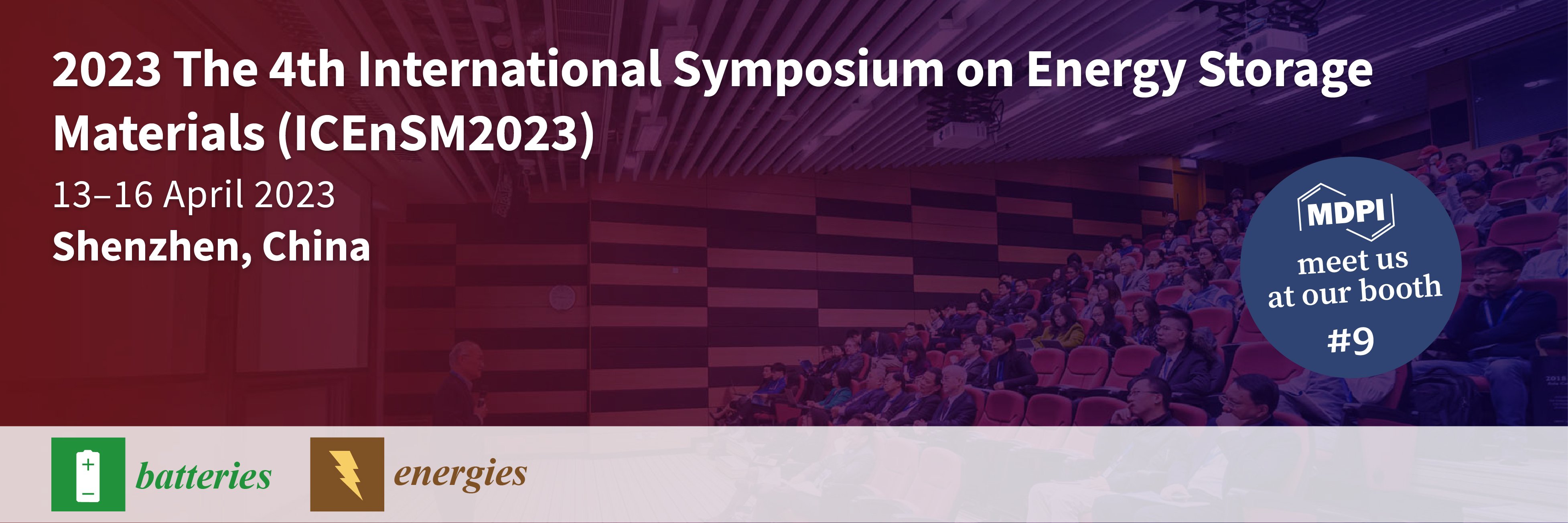
Conference: The Fourth International Conference on Energy Storage Materials
Date: 13–16 April 2023
MDPI will be attending the Fourth International Conference on Energy Storage Materials as the exhibitor. With the theme of advanced energy storage materials and energy storage devices, this seminar invites well-known scholars and industry professionals from around the world to discuss the latest research progress and industrial development status and trends in advanced energy storage materials and devices from academic and industrial perspectives in order to promote the application process of energy storage materials and energy storage devices. The conference is held annually.
The following MDPI journals will be represented:
- Batteries;
- Energies;
- Sustainability;
- Materials;
- Electronics;
- Nanomaterials;
- Inorganics;
- Crystals;
- AppliedChem;
- Membranes;
- Electrochem;
- Applied Sciences;
- Metals;
- Molecules.
If you are attending this conference, please feel free to start a conversation with us at our booth: #9. Our delegates look forward to meeting you in person and answering any questions that you may have. For more information about the conference, please visit http://www.icensm.ac.cn/eindex.html.
22 December 2022
Special Issue Mentor Program
We are pleased to announce the launch of a new initiative—the MDPI Special Issue Mentor Program.
This program will enable early career researchers (who must hold a Ph.D. in a related field) to experience editing a Special Issue in MDPI journals, under the mentorship of our experienced Editorial Board Members or other experienced scientists. The mentor program will provide an excellent opportunity for early career scientists to gain editorial experience, and to cultivate their ability to edit scientific research.
The mentee’s responsibilities include:
- Proposing a Special Issue title and assisting the mentor in preparing a summary (around 200–400 words) and 3–10 keywords describing the background, importance, and goal of the Issue;
- Writing a brief promotion plan for the Special Issue;
- Preparing a list of scholars who may be interested in the Issue and personally e-mailing invitations on behalf of Guest Editors;
- Writing an editorial for the online Special Issue together with the mentor.
The mentor’s responsibilities include:
- Conducting a final check before the Special Issue is published online;
- Performing editorial control of the Special Issue and quality control of the publications, both of which must be carried out in a timely manner;
- Providing suggestions to younger scholars if they have any doubts or concerns regarding submissions;
- Organizing video calls with young scholars and the Editorial Office regularly to discuss problems and improvement suggestions for the Special Issue;
- Making and submitting decisions regarding submissions with the assistance of mentees.
Certificates and awards:
After the Special Issue closes, the Editorial Office will provide official certificates for all the mentors and early career researchers.
If you are interested in this opportunity, please send your Special Issue proposal to the Editorial Office of a journal you choose, and we will discuss the process (i.e., mentor collaboration, Special Issue topic feasibility analysis, etc.) in further detail. The full list of MDPI journals is as follows: https://www.mdpi.com/about/journals.
In addition to the new Special Issue Mentor Program, we will continue to welcome all Special Issue proposals focusing on hot research topics.
14 December 2022
"Thanks a Million!" – One Million Articles Published in MDPI Journals
MDPI has just become the first open access (OA) publisher to reach the milestone of one million articles published. That is one million articles freely available to all, to circulate and build upon! We are proud to share this special moment with the global scientific community.
This landmark has been reached thanks to the immeasurable support of more than 600,000 expert reviewers, 66,000 editorial board members and 6700 hard-working colleagues across MDPI’s global offices.
Within more than 25 years of publishing, our journals received 2.1 million manuscripts and generated 4.6 million peer review reports to get to one million papers published.
Reaching the milestone of one million articles published reinforces our mission to remove any existing barriers and to make scientific research accessible to all. Since its inception, MDPI’s goal has been to create reliable processes to make science open. This is a path towards facilitating the dissemination of novel insights in scientific communities.
Regular feedback from authors and reviewers shows that our service is greatly appreciated and needed. At the same time, the feedback helps us identify areas for further improvement.
As it stands, a significant share of published research findings remain closed access. More than half of the content published with the most well-known legacy publishers stays behind a paywall, and that is not including articles published in hybrid OA journals, or made available months or years after publication.
A new policy announced by the US administration in August 2022 requires that, as of January 2026, all US federally funded research be made freely and immediately available after publication. While the new policy does not mandate articles be published under an open access license, it is aligned with the open access movement in removing all barriers to research. Similarly, some of the most advanced research institutions in the world intend to have all funded research articles published in open access by 2025.
MDPI is proud to be the leading agent of the transition to open access.
"Thanks a Million" to all the contributors!
13 December 2022
Editorial Board Members from Batteries Featured in the 2022 Highly Cited Researchers List Published by Clarivate

Recently, Clarivate™ revealed its 2022 list of Highly Cited Researchers™—individuals at universities, research institutes and commercial organizations.
The scientists who were selected into the list of Highly Cited Scientists this year have published highly cited papers in the 11-year from January 2011 to December 2021, and the citation frequency is in the top 1% of academic subjects and the same year of publication in the Web of Science™ database. Based on Web of Science Citation data, 6,938 researchers from across the globe who have demonstrated a disproportionate level of significant and broad influence in their chosen field or fields over the last decade have been awarded Highly Cited Researcher 2022 designations. The list is truly global, spanning 69 countries or regions and spread across a diverse range of research sciences and social sciences.
According to statistics, 18 members of the Editorial Board of Batteries (ISSN: 2313-0105) have been selected into the list of Highly Cited Scientists of Clarivate in 2022. They are recognized for their high-quality scientific research achievements and outstanding contributions in professional fields. Batteries journal office sincerely congratulates all elected Editorial Board Members and wishes them to make more breakthroughs together with the journal.
| Name | Affiliation |
| Prof. Dr. Chunzhong Li | East China University of Science and Technology, China |
| Dr. Enyuan Hu | Brookhaven National Laboratory, USA |
| Dr. Fudong Han | Rensselaer Polytechnic Institute, USA |
| Prof. Dr. Wei Lv | Tsinghua University, China |
| Dr. Xiulin Fan | Zhejiang University, China |
| Dr. Xuning Feng | Tsinghua University, China |
| Prof. Dr. Ying Chen | Deakin University, Australia |
| Prof. Dr. Yongjin Fang | Wuhan University, China |
| Prof. Dr. Hongwen He | Beijing Institute of Technology, China |
| Prof. Dr. Rui Xiong | Beijing Institute of Technology, China |
| Dr. Chaoji Chen | Wuhan University, China |
| Prof. Dr. Dongliang Chao | Fudan University, China |
| Prof. Dr. Huan Pang | Yangzhou University, China |
| Prof. Dr. Ruqiang Zou | Peking University, China |
| Prof. Dr. Qiang Zhang | Tsinghua University, China |
| Prof. Dr. Zaiping Guo | The University of Adelaide, Australia |
| Prof. Dr. Teofilo Rojo | University of the Basque Country (UPV/EHU), Spain |
| Prof. Dr. Xueliang Sun | University of Western Ontario, Canada |
13 December 2022
Editorial Board Members from Batteries Featured among the World’s Top 2% Scientists in 2022

We are pleased to share that 81 Editorial Board Members from MDPI’s Batteries (ISSN: 2313-0105) were featured in the World’s Top 2% Scientists list in 2022.
| Prof. Dr. Ahmad Pesaran | Prof. Dr. Prashant N. Kumta | Dr. Enyuan Hu |
| Prof. Dr. Andreas Jossen | Prof. Dr. Quanqing Yu | Dr. Fudong Han |
| Prof. Dr. Catia Arbizzani | Prof. Dr. Huan Pang | Dr. Huilin Pan |
| Prof. Dr. Claudio Gerbaldi | Prof. Dr. Rodolfo Dufo-López | Prof. Dr. Jackie Y. Ying |
| Prof. Dr. Colm O'Dwyer | Prof. Dr. Rui Xiong | Dr. Jianfeng Mao |
| Prof. Dr. Eliana Quartarone | Prof. Dr. Tobias Placke | Prof. Dr. Shichun Yang |
| Prof. Dr. Elton J. Cairns | Prof. Dr. Vito Di Noto | Dr. Xuning Feng |
| Prof. Dr. Emma Kendrick | Prof. Dr. Yair Ein-Eli | Prof. Dr. Johan E. Elshof |
| Prof. Dr. Harry E. Hoster | Prof. Dr. Zhaoxiang Wang | Prof. Dr. Juchen Guo |
| Prof. Dr. Hongwen He | Prof. Dr. Zhoupeng Li | Dr. Jun Liu |
| Prof. Dr. Hyacinthe N. Randriamahazaka | Prof. Dr.-Ing. Marco Giorgetti | Prof. Dr. Junnan Hao |
| Prof. Dr. Jae Wan Park | Dr. Seiji Kumagai | Dr. Nikhil A. Koratkar |
| Dr. Jean Pierre Pereira-Ramos | Dr. Qiang Sun | Prof. Dr. Qiang Zhang |
| Prof. Dr. Jeng-Kuei Chang | Prof. Dr. Wonbong Choi | Dr. Sang Bok Lee |
| Dr. Jennifer B. Dunn | Dr. Jens Smiatek | Dr. Seokheun Choi |
| Prof. Dr. Jim P. Zheng | Prof. Dr. Diego Iannuzzi | Prof. Dr. Jun Ming |
| Prof. Dr. Joeri Van Mierlo | Prof. Dr. King Jet Tseng | Prof. Dr. Torsten Brezesinski |
| Prof. Dr. Junji Akimoto | Prof. Dr. Pascal Venet | Dr. Kaifu Huo |
| Dr. Karim Zaghib | Prof. Dr. Chuang Yu | Prof. Dr. Vinodkumar Etacheri |
| Dr. Manickam Minakshi | Prof. Dr. Anna Stefanopoulou | Prof. Dr. Wei Lv |
| Prof. Dr. Matthieu Dubarry | Prof. Dr. Jay Lee | Dr. Xiayin Yao |
| Prof. Dr. Michael Danzer | Dr. A. Robert Armstrong | Prof. Dr. Ying Chen |
| Prof. Dr. Mingtao Li | Prof. Dr. Andy Xueliang Sun | Prof. Dr. Yong Lei |
| Dr. Nina Kosova | Dr. Chaoji Chen | Prof. Dr. Yongjin Fang |
| Prof. Dr. Ottorino Veneri | Prof. Dr. Chunwen Sun | Prof. Dr. Yufeng Zhao |
| Prof. Dr. Palani Balaya | Prof. Dr. Chunzhong Li | Dr. Yusuf Valentino Kaneti |
| Prof. Dr. Piercarlo Mustarelli | Prof. Dr. Dongliang Chao | Prof. Dr. Zaiping Guo |
The list was created by Prof. John P. A. Ioannidis, from Stanford University, and his research team. They have created a publicly available database of 100,000 top-cited scientists that provides standardized information on citations, h-index, co-authorship adjusted hm-index, citations to papers in different authorship positions, and a composite indicator (c-score). Scientists are classified into 22 scientific fields and 176 subfields.
The full list of the 2022 World’s Top 2% Scientists can be accessed at the following link: https://elsevier.digitalcommonsdata.com/datasets/btchxktzyw.
We would like to congratulate our Editorial Board Members on their excellent achievement and thank them for their immense contributions to the scientific progression and development of Batteries. We look forward to making progress with more academics and jointly promoting the vigorous development of open science.
8 December 2022
MDPI Sustainability Foundation: New Look and Nominations for the 2023 Sustainability Awards Now Open

We are pleased to announce that the website of the MDPI Sustainability Foundation has been revamped! For the past couple of months, our UX UI team and front-end developers have been working hard to launch the website in time for the opening of the Sustainability Awards nominations.
The website is not the only thing that has had a remodeling. Indeed, the format of the Emerging Sustainability Leader Award (ESLA) has been updated. ESLA is now a competition open to individual researchers or start-ups founded by researchers under the age of 35. Nominee applications will go through 2 rounds of selection until the final 3 are decided. The finalists will then be invited to give pitch presentations during the Award Ceremony to win either first place (10,000 USD) or runner-up (2 x 5000 USD).
The World Sustainability Award, on the other hand, remains the same: a total prize money of 100,000 USD is up for grabs by senior individual researchers or groups of researchers from the international research community.
Nominations for both the World Sustainability Award and the Emerging Sustainability Leader award are now open! Check out our new website for more information on how to nominate.
16 November 2022
Batteries | Special Issue Mentor Program
We are pleased to announce the launch of a new initiative—the Batteries Special Issue Mentor Program.
This program intends to provide an opportunity for early career scientists to enhance their editing, networking, and organizational skills and to work closely with our journal to gain more editorial experience. Early career scientists who have novel ideas for new Batteries Special Issues will act as Guest Editors under the mentorship of an experienced scientist; this mentor could be a member of the Editorial Board of Batteries (ISSN: 1996-1073), from other well-established research institutes or laboratories, etc.
The mentee’s responsibilities include:
- Providing a CV, including a list of publications;
- Proposing a Special Issue title and a short introduction;
- Writing a brief promotion plan for the Special Issue;
- Writing an editorial for the online Special Issue;
- Reviewing and making decisions for submissions under the mentorship of our Editorial Board Members.
The mentor’s responsibilities include:
- Conducting a final check before the Special Issue is published online;
- Co-editing the Special Issue with younger scholars and performing quality control of the publications in the Special Issue;
- Providing suggestions to younger scholars if they have doubts or concerns regarding submissions;
- Organizing video calls with young scholars and the office regularly to discuss problems and improvement suggestions for the Special Issue.
Certificates and awards:
When the Special Issue is closed, the Editorial Office will provide official certificates for all the mentors. The younger scholars will be prioritized as candidates for Batteries Young Investigator Awards in future editions.
If you are interested in this opportunity, please send your Special Issue proposal to the Batteries Editorial Office ([email protected]), and we will discuss the process (mentor collaboration, Special Issue topic feasibility analysis, etc.) in further detail.
In addition to the new Special Issue Mentor Program, Batteries will continually welcome all Special Issue proposals based on hot research topics as usual.
Batteries Editorial Office
29 October 2022
Batteries | Most Viewed Reviews in 2020 and 2021
1. “Degradation and Aging Routes of Ni-Rich Cathode Based Li-Ion Batteries”
by Philipp Teichert, Gebrekidan Gebresilassie Eshetu, Hannes Jahnke and Egbert Figgemeier
Batteries 2020, 6(1), 8; https://doi.org/10.3390/batteries6010008
Available online: https://www.mdpi.com/2313-0105/6/1/8
2. “A Review on Temperature-Dependent Electrochemical Properties, Aging, and Performance of Lithium-Ion Cells”
by Mohammad Alipour, Carlos Ziebert, Fiorentino Valerio Conte and Riza Kizilel
Batteries 2020, 6(3), 35; https://doi.org/10.3390/batteries6030035
Available online: https://www.mdpi.com/2313-0105/6/3/35
3. “A Performance and Cost Overview of Selected Solid-State Electrolytes: Race between Polymer Electrolytes and Inorganic Sulfide Electrolytes”
by Duygu Karabelli, Kai Peter Birke and Max Weeber
Batteries 2021, 7(1), 18; https://doi.org/10.3390/batteries7010018
Available online: https://www.mdpi.com/2313-0105/7/1/18
4. “Overview of Optical Digital Measuring Challenges and Technologies in Laser Welded Components in EV Battery Module Design and Manufacturing”
by Heikki Saariluoma, Aki Piiroinen, Anna Unt, Jukka Hakanen, Tuomo Rautava and Antti Salminen
Batteries 2020, 6(3), 47; https://doi.org/10.3390/batteries6030047
Available online: https://www.mdpi.com/2313-0105/6/3/47
5. “In-Situ Tools Used in Vanadium Redox Flow Battery Research—Review”
by Purna C. Ghimire, Arjun Bhattarai, Tuti M. Lim, Nyunt Wai, Maria Skyllas-Kazacos and Qingyu Yan
Batteries 2021, 7(3), 53; https://doi.org/10.3390/batteries7030053
Available online: https://www.mdpi.com/2313-0105/7/3/53
6. “Review of Multivalent Metal Ion Transport in Inorganic and Solid Polymer Electrolytes”
by Lauren F. O’Donnell and Steven G. Greenbaum
Batteries 2021, 7(1), 3; https://doi.org/10.3390/batteries7010003
Available online: https://www.mdpi.com/2313-0105/7/1/3
7. “The Emerging Electric Vehicle and Battery Industry in Indonesia: Actions around the Nickel Ore Export Ban and a SWOT Analysis”
by Andante Hadi Pandyaswargo, Alan Dwi Wibowo, Meilinda Fitriani Nur Maghfiroh, Arlavinda Rezqita and Hiroshi Onoda
Batteries 2021, 7(4), 80; https://doi.org/10.3390/batteries7040080
Available online: https://www.mdpi.com/2313-0105/7/4/80
8. “Perovskite Solid-State Electrolytes for Lithium Metal Batteries”
by Shuo Yan, Chae-Ho Yim, Vladimir Pankov, Mackenzie Bauer, Elena Baranova, Arnaud Weck, Ali Merati and Yaser Abu-Lebdeh
Batteries 2021, 7(4), 75; https://doi.org/10.3390/batteries7040075
Available online: https://www.mdpi.com/2313-0105/7/4/75
9. “Battery Crush Test Procedures in Standards and Regulation: Need for Augmentation and Harmonisation”
by Bhavya Kotak, Yash Kotak, Katja Brade, Tibor Kubjatko and Hans-Georg Schweiger
Batteries 2021, 7(3), 63; https://doi.org/10.3390/batteries7030063
Available online: https://www.mdpi.com/2313-0105/7/3/63
10. “Recent Development of Nickel-Rich and Cobalt-Free Cathode Materials for Lithium-Ion Batteries”
by Lukman Noerochim, Suwarno Suwarno, Nurul Hayati Idris and Hermawan K. Dipojono
Batteries 2021, 7(4), 84; https://doi.org/10.3390/batteries7040084
Available online: https://www.mdpi.com/2313-0105/7/4/84
29 October 2022
Batteries | Top 10 Cited Papers in 2021
1. “Comparative Study of Equivalent Circuit Models Performance in Four Common Lithium-Ion Batteries: LFP, NMC, LMO, NCA”
by Manh-Kien Tran, Andre DaCosta, Anosh Mevawalla, Satyam Panchal and Michael Fowler
Batteries 2021, 7(3), 51; https://doi.org/10.3390/batteries7030051
Available online: https://www.mdpi.com/2313-0105/7/3/51
2. “Estimate e-Golf Battery State Using Diagnostic Data and a Digital Twin”
by Lukas Merkle, Michael Pöthig and Florian Schmid
Batteries 2021, 7(1), 15; https://doi.org/10.3390/batteries7010015
Available online: https://www.mdpi.com/2313-0105/7/1/15
3. “A Flexible Model for Benchmarking the Energy Usage of Automotive Lithium-Ion Battery Cell Manufacturing”
by Asanthi Jinasena, Odne Stokke Burheim and Anders Hammer Strømman
Batteries 2021, 7(1), 14; https://doi.org/10.3390/batteries7010014
Available online: https://www.mdpi.com/2313-0105/7/1/14
4. “A Performance and Cost Overview of Selected Solid-State Electrolytes: Race between Polymer Electrolytes and Inorganic Sulfide Electrolytes”
by Duygu Karabelli, Kai Peter Birke and Max Weeber
Batteries 2021, 7(1), 18; https://doi.org/10.3390/batteries7010018
Available online: https://www.mdpi.com/2313-0105/7/1/18
5. “Early Detection of Failing Automotive Batteries Using Gas Sensors”
by Christiane Essl, Lauritz Seifert, Michael Rabe and Anton Fuchs
Batteries 2021, 7(2), 25; https://doi.org/10.3390/batteries7020025
Available online: https://www.mdpi.com/2313-0105/7/2/25
6. “In-Situ Tools Used in Vanadium Redox Flow Battery Research—Review”
by Purna C. Ghimire, Arjun Bhattarai, Tuti M. Lim, Nyunt Wai, Maria Skyllas-Kazacos and Qingyu Yan
Batteries 2021, 7(3), 53; https://doi.org/10.3390/batteries7030053
Available online: https://www.mdpi.com/2313-0105/7/3/53
7. “Advanced Monitoring and Prediction of the Thermal State of Intelligent Battery Cells in Electric Vehicles by Physics-Based and Data-Driven Modeling”
by Jan Kleiner, Magdalena Stuckenberger, Lidiya Komsiyska and Christian Endisch
Batteries 2021, 7(2), 31; https://doi.org/10.3390/batteries7020031
Available online: https://www.mdpi.com/2313-0105/7/2/31
8. “A Comparison of Lithium-Ion Cell Performance across Three Different Cell Formats”
by Grace Bridgewater, Matthew J. Capener, James Brandon, Michael J. Lain, Mark Copley and Emma Kendrick
Batteries 2021, 7(2), 38; https://doi.org/10.3390/batteries7020038
Available online: https://www.mdpi.com/2313-0105/7/2/38
9. “Detection of Lithium Plating in Li-Ion Cell Anodes Using Realistic Automotive Fast-Charge Profiles”
by Matteo Dotoli, Emanuele Milo, Mattia Giuliano, Riccardo Rocca, Carlo Nervi, Marcello Baricco, Massimiliano Ercole and Mauro Francesco Sgroi
Batteries 2021, 7(3), 46; https://doi.org/10.3390/batteries7030046
Available online: https://www.mdpi.com/2313-0105/7/3/46
10. “High-Performance Lithium Sulfur Batteries Based on Multidimensional Graphene-CNT-Nanosulfur Hybrid Cathodes”
by Álvaro Doñoro, Álvaro Muñoz-Mauricio and Vinodkumar Etacheri
Batteries 2021, 7(2), 26; https://doi.org/10.3390/batteries7020026
Available online: https://www.mdpi.com/2313-0105/7/2/26
29 October 2022
Batteries | Top 10 Cited Papers in 2020
1. “Mathematical Heat Transfer Modeling and Experimental Validation of Lithium-Ion Battery Considering: Tab and Surface Temperature, Separator, Electrolyte Resistance, Anode-Cathode Irreversible and Reversible Heat”
by Anosh Mevawalla, Satyam Panchal, Manh-Kien Tran, Michael Fowler and Roydon Fraser
Batteries 2020, 6(4), 61; https://doi.org/10.3390/batteries6040061
Available online: https://www.mdpi.com/2313-0105/6/4/61
2. “Degradation and Aging Routes of Ni-Rich Cathode Based Li-Ion Batteries”
by Philipp Teichert, Gebrekidan Gebresilassie Eshetu, Hannes Jahnke and Egbert Figgemeier
Batteries 2020, 6(1), 8; https://doi.org/10.3390/batteries6010008
Available online: https://www.mdpi.com/2313-0105/6/1/8
3. “A Review on Temperature-Dependent Electrochemical Properties, Aging, and Performance of Lithium-Ion Cells”
by Mohammad Alipour, Carlos Ziebert, Fiorentino Valerio Conte and Riza Kizilel
Batteries 2020, 6(3), 35; https://doi.org/10.3390/batteries6030035
Available online: https://www.mdpi.com/2313-0105/6/3/35
4. “Comprehensive Hazard Analysis of Failing Automotive Lithium-Ion Batteries in Overtemperature Experiments”
by Christiane Essl, Andrey W. Golubkov, Eva Gasser, Manfred Nachtnebel, Armin Zankel, Eduard Ewert and Anton Fuchs
Batteries 2020, 6(2), 30; https://doi.org/10.3390/batteries6020030
Available online: https://www.mdpi.com/2313-0105/6/2/30
5. “Modelling Lithium-Ion Battery Ageing in Electric Vehicle Applications—Calendar and Cycling Ageing Combination Effects”
by Eduardo Redondo-Iglesias, Pascal Venet and Serge Pelissier
Batteries 2020, 6(1), 14; https://doi.org/10.3390/batteries6010014
Available online: https://www.mdpi.com/2313-0105/6/1/14
6. “Inhomogeneous Temperature Distribution Affecting the Cyclic Aging of Li-Ion Cells. Part II: Analysis and Correlation”
by Daniel Werner, Sabine Paarmann, Achim Wiebelt and Thomas Wetzel
Batteries 2020, 6(1), 12; https://doi.org/10.3390/batteries6010012
Available online: https://www.mdpi.com/2313-0105/6/1/12
7. “Inhomogeneous Temperature Distribution Affecting the Cyclic Aging of Li-Ion Cells. Part I: Experimental Investigation”
by Daniel Werner, Sabine Paarmann, Achim Wiebelt and Thomas Wetzel
Batteries 2020, 6(1), 13; https://doi.org/10.3390/batteries6010013
Available online: https://www.mdpi.com/2313-0105/6/1/13
8. “Behavior of Battery Metals Lithium, Cobalt, Manganese and Lanthanum in Black Copper Smelting”
by Anna Dańczak, Lassi Klemettinen, Matti Kurhila, Pekka Taskinen, Daniel Lindberg and Ari Jokilaakso
Batteries 2020, 6(1), 16; https://doi.org/10.3390/batteries6010016
Available online: https://www.mdpi.com/2313-0105/6/1/16
9. “Optimal Siting and Sizing of Battery Energy Storage Systems for Distribution Network of Distribution System Operators”
by Panyawoot Boonluk, Apirat Siritaratiwat, Pradit Fuangfoo and Sirote Khunkitti
Batteries 2020, 6(4), 56; https://doi.org/10.3390/batteries6040056
Available online: https://www.mdpi.com/2313-0105/6/4/56
10. “Evaluation of a Non-Aqueous Vanadium Redox Flow Battery Using a Deep Eutectic Solvent and Graphene-Modified Carbon Electrodes via Electrophoretic Deposition”
by Barun Chakrabarti, Javier Rubio-Garcia, Evangelos Kalamaras, Vladimir Yufit, Farid Tariq, Chee Tong John Low, Anthony Kucernak and Nigel Brandon
Batteries 2020, 6(3), 38; https://doi.org/10.3390/batteries6030038
Available online: https://www.mdpi.com/2313-0105/6/3/38
30 September 2022
Batteries | Top 10 Download Articles in 2021
1. “Comparative Study of Equivalent Circuit Models Performance in Four Common Lithium-Ion Batteries: LFP, NMC, LMO, NCA”
by Manh-Kien Tran et al.
Batteries 2021, 7(3), 51; https://doi.org/10.3390/batteries7030051
Available online: https://www.mdpi.com/2313-0105/7/3/51
2. “Estimate e-Golf Battery State Using Diagnostic Data and a Digital Twin”
by Lukas Merkle et al.
Batteries 2021, 7(1), 15; https://doi.org/10.3390/batteries7010015
Available online: https://www.mdpi.com/2313-0105/7/1/15
3. “Early Detection of Failing Automotive Batteries Using Gas Sensors”
by Christiane Essl et al.
Batteries 2021, 7(2), 25; https://doi.org/10.3390/batteries7020025
Available online: https://www.mdpi.com/2313-0105/7/2/25
4. “A Performance and Cost Overview of Selected Solid-State Electrolytes: Race between Polymer Electrolytes and Inorganic Sulfide Electrolytes”
by Duygu Karabelli et al.
Batteries 2021, 7(1), 18; https://doi.org/10.3390/batteries7010018
Available online: https://www.mdpi.com/2313-0105/7/1/18
5. “A Flexible Model for Benchmarking the Energy Usage of Automotive Lithium-Ion Battery Cell Manufacturing”
by Asanthi Jinasena et al.
Batteries 2021, 7(1), 14; https://doi.org/10.3390/batteries7010014
Available online: https://www.mdpi.com/2313-0105/7/1/14
6. “Advanced Monitoring and Prediction of the Thermal State of Intelligent Battery Cells in Electric Vehicles by Physics-Based and Data-Driven Modeling”
by Jan Kleiner et al.
Batteries 2021, 7(2), 31; https://doi.org/10.3390/batteries7020031
Available online: https://www.mdpi.com/2313-0105/7/2/31
7. “A Comparison of Lithium-Ion Cell Performance across Three Different Cell Formats”
by Grace Bridgewater et al.
Batteries 2021, 7(2), 38; https://doi.org/10.3390/batteries7020038
Available online: https://www.mdpi.com/2313-0105/7/2/38
8. “The Emerging Electric Vehicle and Battery Industry in Indonesia: Actions around the Nickel Ore Export Ban and a SWOT Analysis”
by Andante Hadi Pandyaswargo et al.
Batteries 2021, 7(4), 80; https://doi.org/10.3390/batteries7040080
Available online: https://www.mdpi.com/2313-0105/7/4/80
9. “Detection of Lithium Plating in Li-Ion Cell Anodes Using Realistic Automotive Fast-Charge Profiles”
by Matteo Dotoli et al.
Batteries 2021, 7(3), 46; https://doi.org/10.3390/batteries7030046
Available online: https://www.mdpi.com/2313-0105/7/3/46
10. “Calendar Aging of Li-Ion Cells—Experimental Investigation and Empirical Correlation”
by Daniel Werner et al.
Batteries 2021, 7(2), 28; https://doi.org/10.3390/batteries7020028
Available online: https://www.mdpi.com/2313-0105/7/2/28
28 September 2022
Peer Review Week 2022 – Research Integrity: Creating and Supporting Trust in Research

Peer Review Week began 19 September 2022 under the theme of “Research Integrity: Creating and Supporting Trust in Research”. Through various blog articles, podcast, and webinar, we discussed this crucial subject throughout the week, celebrating the essential role peer review plays in maintaining research quality.
To begin, we held a Webinar on the topic. Professor Peter W. Choate and Dr. Emmanuel Obeng-Gyasi joined Dr. Ioana Craciun, one of MDPI’s scientific officers, for an in-depth discussion.
We invite you to view the event recording:
During the week, the MDPI Blog in a series articles highlighted how good Peer Review safeguards research integrity. The following topics were covered:
- Peer Review Week 2022
- Research Integrity
- What We’ve Learned About Peer Review Reports
- 4 Steps to the Perfect Peer Review Report
- How to Write the Perfect Peer Review Report: An Interview
- Inviting Great Peer Reviewers
In a new edition of Insight Faster, an MDPI podcast, we were delighted to talk to the co-chairs of the Peer Review Week committee, Jayashree Rajagopalan (Senior Manager of Global Community Engagement for CACTUS) and Danielle Padula (Head of Marketing and Community Development at Scholastica) to get their take on this year’s event and its related topics.
You can find the Podcast here.
We hope you enjoy the contents!
16 September 2022
Welcoming New Section Editorial Board Members of Batteries
We warmly welcome Prof. Dr. Johan E. ten Elshof (University of Twente, the Netherlands), Prof. Dr. Prashant N. Kumta (University of Pittsburgh, USA), Prof. Dr. Junji Akimoto (National Institute of Advanced Industrial Science and Technology, Japan), Prof. Dr. Mingtao Li (Xi’an Jiaotong University, China), Dr. Yaxiang Lu (Chinese Academy of Sciences, China), Dr. Daniel Rettenwander (Norwegian University of Science and Technology, Norway), Prof. Dr. Qiang Sun (Peking University, China), Prof. Dr. Kaixue Wang (Shanghai Jiao Tong University, China), and Dr. Jianqing Zhao (Soochow University, China) to the Editorial Board of the Section “Battery Materials and Interfaces: Anode, Cathode, Separators and Electrolytes or Others” in Batteries (ISSN: 2313-0105), and we look forward to their contributions to the continued success of the journal.
|
|
Name: Prof. Dr. Johan E. ten Elshof |
|
|
Name: Prof. Dr. Prashant N. Kumta |
|
|
Name: Prof. Dr. Junji Akimoto |
|
|
Name: Prof. Dr. Mingtao Li |
|
|
Name: Dr. Yaxiang Lu |
|
|
Name: Dr. Daniel Rettenwander |
|
|
Name: Prof. Dr. Qiang Sun |
|
|
Name: Prof. Dr. Kaixue Wang |
|
|
Name: Dr. Jianqing Zhao |
1 September 2022
Batteries | Seeking Cooperation with Academic Conferences

Batteries (ISSN: 2313-0105) released its first Impact Factor of 5.938 in 2022 and is now published monthly. Since it was established, Batteries has aimed to provide a professional publishing service to the scientific community, and has strived towards the effective dissemination of high-quality scientific work.
In order to support the scientific community and contribute to the faster distribution of important scientific research, Batteries has cooperated with various academic conferences and is now seeking cooperation with additional academic conferences. The journal is open to a diverse range of collaborations, such as media partnerships, awards, exhibitions, and publications.
Batteries is an international, scientific, peer-reviewed, open access journal containing research on the science and technology of smart cities. The scope of Batteries includes, but is not limited to, the following:
- Fundamental electrochemistry aspects;
- Active and passive materials and components;
- In situ and ex situ material analysis;
- Cell design, module, and pack technology;
- Processing and manufacturing;
- Battery applications;
- Modeling and control;
- Battery performance and testing;
- Charging technologies;
- Battery management system, monitoring, diagnostics, and prognosis;
- Thermal management;
- Hybrid battery systems;
- Safety and reliability;
- Mechanisms and modes of ageing, lifetime;
- Costs and market.
We welcome consultations with any conferences related to batteries. If you are interested in collaborating with Batteries, please contact us at [email protected].
12 August 2022
Free Media Partnership between Batteries and the International Webinar on Material Science and Nanotechnology (ICMN 2022), 3–5 October 2022, Rome, Italy

We are pleased to announce that the International Webinar on Material Science and Nanotechnology (ICMN 2022) has set up a free media partnership with Batteries (ISSN: 2313-0105).
Webinar: International Webinar on Material Science and Nanotechnology (ICMN 2022)
Date: 3–5 October 2022
Place: Rome, Italy
The webinar’s theme is “Accelerating the Research in the era of Material Science and Nanotechnology”. Participants and researchers will be able to share their scientific findings, discuss their research with academic peers, and create as well as grow their professional networks at ICMN 2022. It will also provide a platform for students and fellow researchers to showcase their research on an international platform, which will assist in increasing the collaboration among professors/researchers worldwide. ICMN 2022 is a 3-day webinar that includes keynote sessions, plenary sessions, oral and poster presentations, workshops, symposia, and panel discussions as part of the program.
Key topics:
nanostructured materials; nanocomposites; nanoelectronics; biofuels; batteries; polymers; nanosensors; electronics materials; nanochemistry; smart materials; energies; environmental chemistry; biomaterials; carbon and graphene; nanostructures and their applications; nanotechnology with revolutionary applications; biomedicine; technological advances in nanotechnology.
For more details, please visit the following link: https://irisscientificgroup.com/conferences/material-science-and-nanotechnology/.
Batteries Editorial Office
9 August 2022
Batteries 2023 Travel Award—Open for Nominations

To reward the academic community, especially young researchers, and enhance communication among scientists, Batteries (ISSN: 2313-0105) is offering an award to encourage young researchers in the field of batteries.
Batteries is currently accepting nominations for the Batteries 2023 Travel Award. This award provides financial support for the winner to attend an international conference in a field related to batteries and electrical energy storage systems to be held in 2023, in order to hold a presentation, present a poster, or both.
Find more information about the award and how to nominate here.
To request further information, please contact the Batteries Editorial Office ([email protected]).
3 August 2022
Batteries | Editor’s Choice Articles in 2021
The following are the Editor’s Choice Articles in 2021 of Batteries (ISSN: 2313-0105):
“Optimization of Disassembly Strategies for Electric Vehicle Batteries”
by Sabri Baazouzi et al.
Batteries 2021, 7(4), 74; https://doi.org/10.3390/batteries7040074
Available online: https://www.mdpi.com/2313-0105/7/4/74
“High-Potential Test for Quality Control of Separator Defects in Battery Cell Production”
by Louisa Hoffmann et al.
Batteries 2021, 7(4), 64; https://doi.org/10.3390/batteries7040064
Available online: https://www.mdpi.com/2313-0105/7/4/64
“Life Cycle Modelling of Extraction and Processing of Battery Minerals—A Parametric Approach”
by Nelson Bunyui Manjong et al.
Batteries 2021, 7(3), 57; https://doi.org/10.3390/batteries7030057
Available online: https://www.mdpi.com/2313-0105/7/3/57
“Carbon Monoliths with Hierarchical Porous Structure for All-Vanadium Redox Flow Batteries”
by Jose Francisco Vivo-Vilches et al.
Batteries 2021, 7(3), 55; https://doi.org/10.3390/batteries7030055
Available online: https://www.mdpi.com/2313-0105/7/3/55
“Layered Iron Vanadate as a High-Capacity Cathode Material for Nonaqueous Calcium-Ion Batteries”
by Munseok S. Chae et al.
Batteries 2021, 7(3), 54; https://doi.org/10.3390/batteries7030054
Available online: https://www.mdpi.com/2313-0105/7/3/54
“Combining the Distribution of Relaxation Times from EIS and Time-Domain Data for Parameterizing Equivalent Circuit Models of Lithium-Ion Batteries”
by Leo Wildfeuer et al.
Batteries 2021, 7(3), 52; https://doi.org/10.3390/batteries7030052
Available online: https://www.mdpi.com/2313-0105/7/3/52
“Comparative Study of Equivalent Circuit Models Performance in Four Common Lithium-Ion Batteries: LFP, NMC, LMO, NCA”
by Manh-Kien Tran et al.
Batteries 2021, 7(3), 51; https://doi.org/10.3390/batteries7030051
Available online: https://www.mdpi.com/2313-0105/7/3/51
“Analysis and Investigation of Thermal Runaway Propagation for a Mechanically Constrained Lithium-Ion Pouch Cell Module”
by Luigi Aiello et al.
Batteries 2021, 7(3), 49; https://doi.org/10.3390/batteries7030049
Available online: https://www.mdpi.com/2313-0105/7/3/49
“Identification of Degradation Mechanisms by Post-Mortem Analysis for High Power and High Energy Commercial Li-Ion Cells after Electric Vehicle Aging”
by Pierre Kuntz et al.
Batteries 2021, 7(3), 48; https://doi.org/10.3390/batteries7030048
Available online: https://www.mdpi.com/2313-0105/7/3/48
“Detection of Lithium Plating in Li-Ion Cell Anodes Using Realistic Automotive Fast-Charge Profiles”
by Matteo Dotoli et al.
Batteries 2021, 7(3), 46; https://doi.org/10.3390/batteries7030046
Available online: https://www.mdpi.com/2313-0105/7/3/46
“An ASIC-Based Miniaturized System for Online Multi-Measurand Monitoring of Lithium-Ion Batteries”
by Giuseppe Manfredini et al.
Batteries 2021, 7(3), 45; https://doi.org/10.3390/batteries7030045
Available online: https://www.mdpi.com/2313-0105/7/3/45
“Absolute Local Quantification of Li as Function of State-of-Charge in All-Solid-State Li Batteries via 2D MeV Ion-Beam Analysis”
by Sören Möller et al.
Batteries 2021, 7(2), 41; https://doi.org/10.3390/batteries7020041
Available online: https://www.mdpi.com/2313-0105/7/2/41
“A Comparison of Lithium-Ion Cell Performance across Three Different Cell Formats”
by Grace Bridgewater et al.
Batteries 2021, 7(2), 38; https://doi.org/10.3390/batteries7020038
Available online: https://www.mdpi.com/2313-0105/7/2/38
“Calendar Aging of Li-Ion Cells—Experimental Investigation and Empirical Correlation”
by Daniel Werner et al.
Batteries 2021, 7(2), 28; https://doi.org/10.3390/batteries7020028
Available online: https://www.mdpi.com/2313-0105/7/2/28
“Experimental and Numerical Investigation of the Thermal Performance of a Hybrid Battery Thermal Management System for an Electric Van”
by Franck Pra et al.
Batteries 2021, 7(2), 27; https://doi.org/10.3390/batteries7020027
Available online: https://www.mdpi.com/2313-0105/7/2/27
“Early Detection of Failing Automotive Batteries Using Gas Sensors”
by Christiane Essl et al.
Batteries 2021, 7(2), 25; https://doi.org/10.3390/batteries7020025
Available online: https://www.mdpi.com/2313-0105/7/2/25
“Influence of Aging on the Failing Behavior of Automotive Lithium-Ion Batteries”
by Christiane Essl et al.
Batteries 2021, 7(2), 23; https://doi.org/10.3390/batteries7020023
Available online: https://www.mdpi.com/2313-0105/7/2/23
“State-of-Charge Monitoring and Battery Diagnosis of Different Lithium Ion Chemistries Using Impedance Spectroscopy”
by Peter Kurzweil and Wolfgang Scheuerpflug
Batteries 2021, 7(1), 17; https://doi.org/10.3390/batteries7010017
Available online: https://www.mdpi.com/2313-0105/7/1/17
“Thermophysical Characterization of a Layered P2 Type Structure Na0.53MnO2 Cathode Material for Sodium Ion Batteries”
by Ijaz Ul Mohsin et al.
Batteries 2021, 7(1), 16; https://doi.org/10.3390/batteries7010016
Available online: https://www.mdpi.com/2313-0105/7/1/16
“Estimate e-Golf Battery State Using Diagnostic Data and a Digital Twin”
by Lukas Merkle et al.
Batteries 2021, 7(1), 15; https://doi.org/10.3390/batteries7010015
Available online: https://www.mdpi.com/2313-0105/7/1/15
“A Flexible Model for Benchmarking the Energy Usage of Automotive Lithium-Ion Battery Cell Manufacturing”
by Asanthi Jinasena et al.
Batteries 2021, 7(1), 14; https://doi.org/10.3390/batteries7010014
Available online: https://www.mdpi.com/2313-0105/7/1/14
“Infiltrated and Isostatic Laminated NCM and LTO Electrodes with Plastic Crystal Electrolyte Based on Succinonitrile for Lithium-Ion Solid State Batteries”
by Matthias Coeler et al.
Batteries 2021, 7(1), 11; https://doi.org/10.3390/batteries7010011
Available online: https://www.mdpi.com/2313-0105/7/1/11
“Effects of the Nail Geometry and Humidity on the Nail Penetration of High-Energy Density Lithium Ion Batteries”
by Stefan Doose et al.
Batteries 2021, 7(1), 6; https://doi.org/10.3390/batteries7010006
Available online: https://www.mdpi.com/2313-0105/7/1/6
“Design Considerations for Fast Charging Lithium Ion Cells for NMC/MCMB Electrode Pairs”
by William Yourey et al.
Batteries 2021, 7(1), 4; https://doi.org/10.3390/batteries7010004
Available online: https://www.mdpi.com/2313-0105/7/1/4
“In-Situ Tools Used in Vanadium Redox Flow Battery Research—Review”
by Purna C. Ghimire et al.
Batteries 2021, 7(3), 53; https://doi.org/10.3390/batteries7030053
Available online: https://www.mdpi.com/2313-0105/7/3/53
“A Performance and Cost Overview of Selected Solid-State Electrolytes: Race between Polymer Electrolytes and Inorganic Sulfide Electrolytes”
by Duygu Karabelli et al.
Batteries 2021, 7(1), 18; https://doi.org/10.3390/batteries7010018
Available online: https://www.mdpi.com/2313-0105/7/1/18
3 August 2022
Batteries | Welcoming New Editorial Board Members of Batteries
We warmly welcome Dr. Katerina E. Aifantis (University of Florida, USA), Prof. Dr. Chunzhong Li (East China University of Science and Technology, China), Prof. Dr. Hyacinthe N. Randriamahazaka (Université Paris Cité, France), Dr. A. Robert Armstrong (University of St Andrews, UK), Prof. Dr. Ping Liu (University of California San Diego, USA), Dr. Zhenglong Xu (The Hong Kong Polytechnic University, China), Dr. Yunxiao Wang (University of Wollongong, Australia) and Dr. Huilin Pan (Zhejiang University, China) to the Editorial Board of Batteries (ISSN: 2313-0105), and we look forward to their contributions to the continued success of the journal.
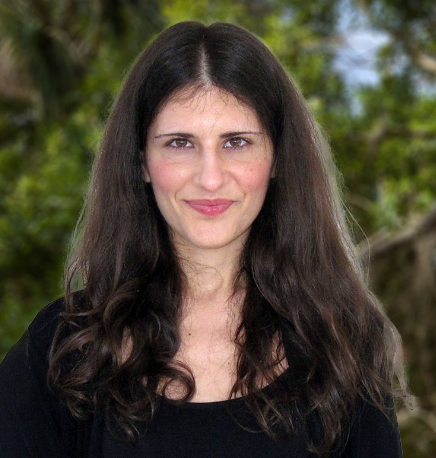
Name: Dr. Katerina E. Aifantis
Affiliation: Mechanical and Aerospace Engineering, University of Florida, Gainesville, FL 36211, USA
Interests: Li-ion batteries; energy storage; mechanical design

Name: Prof. Dr. Chunzhong Li
Affiliation: School of Chemical Engineering, East China University of Science and Technology, Shanghai, China
Interests: lithium-ion batteries; electrode materials; energy storage; electrochemical engineering; energy conversion materials

Name: Prof. Dr. Hyacinthe N. Randriamahazaka
Affiliation: Head, SIELE (Surfaces–Ionic liquids–ELectrochemistry–Energy) Group, Department of Chemistry, Faculty of Science, CNRS, ITODYS, Université Paris Cité, 75006 Paris, France
Interests: energy conversion and storage; electrocatalysis; redox-flow batteries; functional ionic liquids; modelling

Name: Dr. A. Robert Armstrong
Affiliation: School of Chemistry, University of St Andrews, St Andrews, Fife KY16 9ST, UK
Interests: sodium-ion batteries; lithium-ion batteries; electrode materials; structure and electronic structure characterization

Name: Prof. Dr. Ping Liu
Affiliation: Department of NanoEngineering, University of California San Diego, La Jolla, CA 92093, USA
Interests: lithium metal batteries; lithium batteries safety; solid electrolytes for batteries; conversion reactions; multifunctional electrochemical systems

Name: Dr. Zhenglong Xu
Affiliation: Department of Industrial and Systems Engineering, The Hong Kong Polytechnic University, Hong Kong, China
Interests: lithium sulfur batteries; sodium ion batteries; multivalent batteries; in situ characterizations; energy storage materials
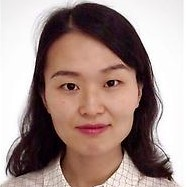
Name: Dr. Yunxiao Wang
Affiliation: Institute for Superconducting and Electronic Materials, Australian Institute of Innovative Materials, University of Wollongong, Innovation Campus, Squires Way, North Wollongong, NSW 2500, Australia
Interests: affordable and clean energy; energy storage and conversion; lithium-ion batteries; sodium-ion batteries; lithium-sulfur batteries; room-temperature sodium sulfur batteries; electrocatalysis
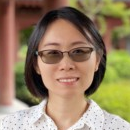
Name: Dr. Huilin Pan
Affiliation: Department of Chemistry, Zhejiang University, Hangzhou 310027, China
Interests: energy storage materials; sodium-ion batteries; aqueous batteries; solid electrolyte interphase; electrolytes
19 July 2022
A Message from the Editors-in-Chief of Batteries—Prof. Dr. Andreas Jossen, Prof. Dr. Seung-Wan Song, and Prof. Dr. Pascal Venet | First Impact Factor: 5.938
To celebrate the first released Impact Factor of Batteries (ISSN: 2313-0105), we are arranging a series of special events and content, including an interview with the Editors-in-Chief Prof. Dr. Andreas Jossen, Prof. Dr. Seung-Wan Song and Prof. Dr. Pascal Venet.

Prof. Dr. Andreas Jossen, Editor-in-Chief
Affiliation: Institute for Electrical Energy Storage Technology (EES), Technical University München (TUM), Arcisstrasse 21, 80333 Munich, Germany
Research Interests: electrical thermal coupled battery models; performance and lifetime models; battery state of charge and battery state of health determination methods; battery characterization; energy management and battery management; battery safety including models for battery safety; multi-cell storage systems; battery system architecture; battery integration in electric vehicles; photovoltaic systems and portable systems

Prof. Dr. Seung-Wan Song, Associate Editor-in-Chief/SEiC
Affiliation: Department of Chemical Engineering & Applied Chemistry, Chungnam National University, Daejeon, Korea
Research Interests: lithium-ion batteries; post-lithium (magnesium-ion, lithium-sulfur, aqueous) batteries; control and mechanistic studies of SEI stabilization and electrode–electrolyte interface processes; electrochemistry; solid-state chemistry; surface chemistry

Prof. Dr. Pascal Venet, Associate Editor-in-Chief/SEiC
Affiliation: Department of the Ampère Laboratory, Claude Bernard University Lyon 1, 69100 Villeurbanne, France
Research Interests: characterization; modeling; reliability; aging and diagnosis of electric energy storage system (batteries, supercapacitors, capacitors)
We hope you can join us in celebrating this milestone of our journal. We would also like to extend our sincerest gratitude to our Editorial Board Members, Guest Editors, reviewers, authors, readers, and subscribers.
Batteries Editorial Office
11 July 2022
MDPI’s 2021 Best Paper Awards in “Engineering”—Winners Announced
The purpose of our Best Paper Awards is to promote and recognize the most impactful contributions published within MDPI journals.
The academic editors of each journal carefully selected reviews and research papers through a rigorous judging process based on criteria such as the scientific merit, overall impact, and the quality of presentation of the papers published in the journal.
We are honored to present the winners in the “Engineering” category, who were selected amongst extensive competition, and congratulate the authors for their outstanding scientific publications.
- “Position Control of Pneumatic Actuators Using Three-Mode Discrete-Valued Model Predictive Control”
by Haitao Qi, Gary M. Bone and Yile Zhang
Actuators 2019, 8(3), 56; doi: 10.3390/act8030056 - “Review of Electrothermal Actuators and Applications”
by Alissa Potekhina and Changhai Wang
Actuators 2019, 8(4), 69; doi: 10.3390/act8040069
- “Pre-Lithiation Strategies for Rechargeable Energy Storage Technologies: Concepts, Promises and Challenges”
by Florian Holtstiege, Peer Bärmann, Roman Nölle, Martin Winter and Tobias Placke
Batteries 2018, 4(1), 4; doi: 10.3390/batteries4010004 - “A Critical Review of Lithium-Ion Battery Recycling Processes from a Circular Economy Perspective”
by Omar Velázquez-Martínez, Johanna Valio, Annukka Santasalo-Aarnio, Markus Reuter and Rodrigo Serna-Guerrero
Batteries 2019, 5(4), 68; doi: 10.3390/batteries5040068 - “Critical Review of the Use of Reference Electrodes in Li-Ion Batteries: A Diagnostic Perspective”
by Rinaldo Raccichini, Marco Amores and Gareth Hinds
Batteries 2019, 5(1), 12; doi: 10.3390/batteries5010012 - “Life Cycle Analysis of Lithium-Ion Batteries for Automotive Applications”
by Qiang Dai, Jarod C. Kelly, Linda Gaines and Michael Wang
Batteries 2019, 5(2), 48; doi 10.3390/batteries5020048 - “Design Strategies for High Power vs. High Energy Lithium Ion Cells”
by Michael J. Lain, James Brandon and Emma Kendrick
Batteries 2019, 5(4), 64; doi: 10.3390/batteries5040064
- “Influence of Humidity on NO2-Sensing and Selectivity of Spray-CVD Grown ZnO Thin Film above 400 °C”
by Roussin Lontio Fomekong and Bilge Saruhan
Chemosensors 2019, 7(3), 42; doi: 10.3390/chemosensors7030042 - “Low Molecular Weight Fluorescent Probes (LMFPs) to Detect the Group 12 Metal Triad”
by Ashley D. Johnson, Rose M. Curtis and Karl J. Wallace
Chemosensors 2019, 7(2), 22; doi: 10.3390/chemosensors7020022
Journal of Marine Science and Engineering:
- “Marine Application of Fiber Reinforced Composites: A Review”
by Felice Rubino, Antonio Nisticò, Fausto Tucci and Pierpaolo Carlone
Mar. Sci. Eng. 2020, 8(1), 26; doi: 10.3390/jmse8010026 - “Numerical Simulation of Large Wave Heights from Super Typhoon Nepartak (2016) in the Eastern Waters of Taiwan”
by Shih-Chun Hsiao, Hongey Chen, Han-Lun Wu, Wei-Bo Chen, Chih-Hsin Chang, Wen-Dar Guo, Yung-Ming Chen and Lee-Yaw Lin
Mar. Sci. Eng. 2020, 8(3), 217; doi: 10.3390/jmse8030217 - “Development of Deterministic Artificial Intelligence for Unmanned Underwater Vehicles (UUV)”
by Timothy Sands
Mar. Sci. Eng. 2020, 8(8), 578; doi: 10.3390/jmse8080578
- “Solid Lubrication with MoS2: A Review”
by Mohammad R. Vazirisereshk, Ashlie Martini, David A. Strubbe and Mehmet Z. Baykara
Lubricants 2019, 7(7), 57; doi:10.3390/lubricants7070057 - “Investigations of the Friction Losses of Different Engine Concepts. Part 1: A Combined Approach for Applying Subassembly-Resolved Friction Loss Analysis on a Modern Passenger-Car Diesel Engine”
by Christoph Knauder, Hannes Allmaier, David E. Sander and Theodor Sams
Lubricants 2019, 7(5), 39; doi: 10.3390/lubricants7050039 - “A Discussion on Present Theories of Rubber Friction, with Particular Reference to Different Possible Choices of Arbitrary Roughness Cutoff Parameters”
by Andrea Genovese, Flavio Farroni, Antonio Papangelo and Michele Ciavarella
Lubricants 2019, 7(10), 85; doi: 10.3390/lubricants7100085
- “4D Printing of Multi-Hydrogels Using Direct Ink Writing in a Supporting Viscous Liquid”
by Takuya Uchida and Hiroaki Onoe
Micromachines 2019, 10(7), 433; doi: 10.3390/mi10070433 - “Enhanced Photocatalytic Performance and Mechanism of Au@CaTiO3 Composites with Au Nanoparticles Assembled on CaTiO3 Nanocuboids”
by Yuxiang Yan, Hua Yang, Zao Yi, Ruishan Li and Xiangxian Wang
Micromachines 2019, 10(4), 254; doi: 10.3390/mi10040254 - “Three-Dimensionally Structured Flexible Fog Harvesting Surfaces Inspired by Namib Desert Beetles”
by Jun Kyu Park and Seok Kim
Micromachines 2019, 10(3), 201; doi: 10.3390/mi10030201
- “Accelerating Biologics Manufacturing by Modeling or: Is Approval under the QbD and PAT Approaches Demanded by Authorities Acceptable without a Digital-Twin?”
by Steffen Zobel-Roos, Axel Schmidt, Fabian Mestmäcker, Mourad Mouellef, Maximilian Huter, Lukas Uhlenbrock, Martin Kornecki, Lara Lohmann, Reinhard Ditz and Jochen Strube
Processes 2019, 7(2), 94; doi: 10.3390/pr7020094 - “Multiscale Agent-Based and Hybrid Modeling of the Tumor Immune Microenvironment”
by Kerri-Ann Norton, Chang Gong, Samira Jamalian and Aleksander S. Popel
Processes 2019, 7(1), 37; doi: 10.3390/pr7010037 - “Dynamic Flowsheet Model Development and Sensitivity Analysis of a Continuous Pharmaceutical Tablet Manufacturing Process Using the Wet Granulation Route”
by Nirupaplava Metta, Michael Ghijs, Elisabeth Schäfer, Ashish Kumar, Philippe Cappuyns, Ivo Van Assche, Ravendra Singh, Rohit Ramachandran, Thomas De Beer, Marianthi Ierapetritou and Ingmar Nopens
Processes 2019, 7(4), 234; doi: 10.3390/pr7040234
- “A Decentralized Privacy-Preserving Healthcare Blockchain for IoT”
by Ashutosh Dhar Dwivedi, Gautam Srivastava, Shalini Dhar and Rajani Singh
Sensors 2019, 19(2), 326; doi: 10.3390/s19020326 - “The Progress of Glucose Monitoring—A Review of Invasive to Minimally and Non-Invasive Techniques, Devices and Sensors”
by Wilbert Villena Gonzales, Ahmed Toaha Mobashsher and Amin Abbosh
Sensors 2019, 19(4), 800; doi: 10.3390/s19040800 - “Contact-Based Methods for Measuring Respiratory Rate”
by Carlo Massaroni, Andrea Nicolò, Daniela Lo Presti, Massimo Sacchetti, Sergio Silvestri and Emiliano Schena
Sensors 2019, 19(4), 908; doi: 10.3390/s19040908
World Electric Vehicle Journal:
- “Dynamic Wireless Power Transfer Charging Infrastructure for Future EVs: From Experimental Track to Real Circulated Roads Demonstrations”
by Stéphane Laporte, Gérard Coquery, Virginie Deniau, Alexandre De Bernardinis and Nicolas Hautière
World Electr. Veh. J. 2019, 10(4), 84; doi: 10.3390/wevj10040084
11 July 2022
MDPI’s 2021 Young Investigator Awards in “Engineering”—Winners Announced
MDPI’s Young Investigator Awards recognize promising junior researchers, acknowledge their contributions, and enhance communication among scientists. We are proud to present the winners for the year 2021 in the “Engineering” category. The winners were selected by the journals’ editors.
We warmly congratulate the awarded Young Investigators for their outstanding contributions. MDPI will continue to provide support and recognition to the academic community.
- Amay J. Bandodkar, North Carolina State University, USA.
- Andrew S. Paluch, Miami University, USA.
- Mindy Levine, Ariel University, Israel.
- Amir H. Gandomi, University of Technology Sydney, Australia.
Journal of Marine Science and Engineering:
- Tiago Fazeres-Ferradosa, University of Porto, Portugal.
- Chen Lv, Nanyang Technological University (NTU), Singapore;
- Ignacio Gonzalez-Prieto, University of Malaga (UMA), Spain;
- Ning Sun, Nankai University, China.
- Anton Rassõlkin, Tallinn University of Technology, Estonia.
- Qammer H. Abbasi, Queen Mary University of London, UK;
- Chi Hwan Lee, Purdue University, USA.
11 July 2022
MDPI’s 2021 Travel Awards in “Engineering”—Winners Announced
We are proud to recognize the winners of MDPI’s 2021 Travel Awards in the “Engineering” category for their outstanding presentations and to present them with the prize.
MDPI journals regularly offer travel awards to encourage talented junior scientists to present their latest research at academic conferences in specific fields, which helps to increase their influence.
The winners mentioned below were carefully selected by the journal editors based on an outline of their research and the work to be presented at an academic conference.
We would like to warmly congratulate the winners of this year’s Travel Awards and wish them the greatest success with their future research endeavors. MDPI will continue to enhance communication among scientists.
- Matthew Wei Ming Tan, Nanyang Technological University, Singapore.
- Márcia de Sousa Oliveira, University of León, Spain;
- Caroline Sarah Taylor, University of Sheffield, UK;
- Raquel Viveiros, NOVA University of Lisbon, Portugal;
- Alfonso González Briones, University of Salamanca, Spain;
- Alen Horvat, University Carlos III Madrid, Spain;
- Marie Švecová, University of Chemistry and Technology, Czech Republic;
- Venanzio Giannella, University of Salerno, Italy;
- Michaël Lobet, University of Namur, Belgium;
- Lam Thi Ngoc Tran, National Research Council, Italy;
- Hanfei Mei, University of South Carolina, USA.
- Mert Nakip, Polish Academy of Sciences, Poland.
- Mengdi Bao, Rochester Institute of Technology, USA;
Yichi Su, Stanford University, USA.
- Karthik Panchabikesan, Concordia University, Canada;
- Xiaolei Yuan, Tongji University, China.
- Verónica Montes García, Université de Strasbourg & CNRS, France.
- Peng Hang, Nanyang Technological University, Singapore;
- Alfonso González Briones, University of Salamanca, Spain.
- Alberto Zingaro, Politecnico di Milano, Italy;
- Sarah E. Morris, Auburn University, USA.
- Angelo Aloisio, University of L’Aquila, Italy;
- André Filipe Castanheira Alves Furtado, University of Porto, Portugal.
Journal of Low Power Electronics and Applications:
- Tommaso Zanotti, University of Modena and Reggio Emilia, Italy.
Journal of Manufacturing and Materials Processing:
- Nagalingam Arun Prasanth, Rolls-Royce@NTU Corporate Lab, Singapore.
- Muhammad Jamil, Nanjing University of Aeronautics and Astronautics (NUAA), China;
- Mariagrazia Tristano, Sheffield Hallam University, UK.
- Michele Schlich, University of Cagliari, Italy;
- Álvaro Santana Mayor, University of La Laguna, Spain.
- Eleonora Macchia, Åbo Akademi University, Finland;
- Alfonso Gonzalez Briones, University of Salamanca, Spain;
- Saúl Vallejos Calzada, University of Burgos, Spain;
- Ana Novo, University of Vigo, Spain;
- Yalin Liu, Macau University of Science and Technology, China;
- Marilena Giglio, Politecnico of Bari, Italy;
- Yuzhi Shi, Nanyang Technological University (NTU), Singapore.
11 July 2022
MDPI’s 2021 Outstanding Reviewer Awards in “Engineering”—Winners Announced
In order to acknowledge our reviewers, who so generously dedicate their time to reviewing papers and demonstrate diligence, professionalism, and timeliness when reviewing manuscripts, MDPI journals regularly offer outstanding reviewer awards to scholars who participate in the peer-review process.
We are proud to recognize the winners for the year 2021 in the “Engineering” category for their outstanding contributions among extensive competition by presenting them with an Outstanding Reviewer Award.
We would like to take this opportunity to congratulate all of the winners on their achievement. MDPI will continue to provide support and recognition to the academic community.
- Ryszard Dindorf, Kielce University of Technology, Poland.
- Khaled Giasin, University of Portsmouth, UK;
- Jakub Krzysztof Grabski, University of Technology, Poland;
- Marcos Tostado-Véliz, University of Jaén, Spain;
- Luigi Pugliese, University of Calabria, Italy;
- Francesco Bennardo, University of Catanzaro, Italy;
- Heriberto Perez-Acebo, University of the Basque Country UPV/EHU, Spain.
- Amir Hatamie, University of Gothenburg, Sweden.
- Francesco Fiorito, Polytechnic University of Bari, Italy;
- Paul G. O’Brien, York University, Canada.
- Verónica Montes García, University of Strasbourg, France.
- Piotr Gierlak, Rzeszow University of Technology, Poland;
- Sebastian A. Nugroho, University of Michigan, USA;
- Viorel Paleu, Gheorghe Asachi Technical University of Iasi, Romania.
- Marcin Dębowski, University of Warmia and Mazury in Olsztyn, Poland;
- Bartłomiej Zieniuk, Warsaw University of Life Sciences, Poland;
- Zbigniew Nadolny, Poznan University of Technology, Poland;
- Attila Egedy, University of Pannonia, Hungary;
- Seok-Ho Rhi, Chungbuk National University, Korea.
- Hojong Choi, Kumoh National Institute of Technology, Korea;
- Li Fu, Hangzhou Dianzi University, China;
- Leonardo De Mello Honorio, Federal University of Juiz De Fora Juiz De Fora, Brazil;
- Mario Versaci, Mediterranea University, Italy;
- Robertas Damasevicius, Kaunas University of Technology, Lithuania.
1 July 2022
Batteries Receives Its First Impact Factor of 5.938

We are pleased to inform you that Batteries (ISSN: 2313-0105) has received its first Impact Factor (IF) of 5.938 and now ranks 10/30 (Q2) in the “Electrochemistry” category, 49/119 (Q2) in the “Energy & Fuels” category, and 104/345 (Q2) in the “Materials Science, Multidisciplinary” category.
We would like to extend our sincerest gratitude to our authors, readers, reviewers, and board members. Your efforts are indispensable to the continued success of the journal, which we greatly appreciate and value!
28 June 2022
2021 Impact Factors - Released
The 2021 citation metrics have been released in the Journal Citation Reports (JCR), and we’re pleased to announce the following results for MDPI journals:

| Journal | Impact Factor | Rank | Category |
| Antioxidants | 7.675 | Q1 | Food Science & Technology |
| Biochemistry & Molecular Biology | |||
| Chemistry, Medicinal | |||
| Cells | 7.666 | Q2 | Cell Biology |
| Nutrients | 6.706 | Q1 | Nutrition & Dietetics |
| Cancers | 6.575 | Q1 | Oncology |
| Pharmaceutics | 6.525 | Q1 | Pharmacology & Pharmacy |
| International Journal of Molecular Sciences | 6.208 | Q1 | Biochemistry & Molecular Biology |
| Q2 | Chemistry, Multidisciplinary | ||
| Marine Drugs | 6.085 | Q1 | Chemistry, Medicinal |
| Pharmacology & Pharmacy | |||
| Biomolecules | 6.064 | Q2 | Biochemistry & Molecular Biology |
| Batteries * | 5.938 | Q2 | Electrochemistry |
| Energy & Fuels | |||
| Materials Science, Multidisciplinary | |||
| Viruses | 5.818 | Q2 | Virology |
| Biosensors | 5.743 | Q1 | Chemistry, Analytical |
| Instruments & Instrumentation | |||
| Q2 | Nanoscience & Nanotechnology | ||
| Journal of Fungi | 5.724 | Q1 | Mycology |
| Q2 | Microbiology | ||
| Nanomaterials | 5.719 | Q1 | Physics, Applied |
| Q2 | Chemistry, Multidisciplinary | ||
| Materials Science, Multidisciplinary | |||
| Nanoscience & Nanotechnology | |||
| Metabolites | 5.581 | Q2 | Biochemistry & Molecular Biology |
| Foods | 5.561 | Q1 | Food Science & Technology |
| Drones * | 5.532 | Q2 | Remote Sensing |
| Remote Sensing | 5.349 | Q1 | Geosciences, Multidisciplinary |
| Imaging Science & Photographic Technology | |||
| Q2 | Remote Sensing | ||
| Environmental Sciences | |||
| Journal of Theoretical and Applied Electronic Commerce Research | 5.318 | Q2 | Business |
| Antibiotics | 5.222 | Q1 | Pharmacology & Pharmacy |
| Q2 | Infectious Diseases | ||
| Pharmaceuticals | 5.215 | Q1 | Pharmacology & Pharmacy |
| Q2 | Chemistry, Medicinal | ||
| Biology | 5.168 | Q1 | Biology |
| Fermentation | 5.123 | Q2 | Biotechnology & Applied Microbiology |
| Toxins | 5.075 | Q1 | Toxicology |
| Q2 | Food Science & Technology | ||
| Bioengineering * | 5.046 | Q2 | Engineering, Biomedical |
| Polymers | 4.967 | Q1 | Polymer Science |
| Journal of Clinical Medicine | 4.964 | Q2 | Medicine, General & Internal |
| Vaccines | 4.961 | Q2 | Immunology |
| Medicine, Research & Experimental | |||
| Molecules | 4.927 | Q2 | Chemistry, Multidisciplinary |
| Biochemistry & Molecular Biology | |||
| Microorganisms | 4.926 | Q2 | Microbiology |
| Journal of Functional Biomaterials * | 4.901 | Q2 | Engineering, Biomedical |
| Materials Science, Biomaterials | |||
| Biomedicines | 4.757 | Q2 | Medicine, Research & Experimental |
| Pharmacology & Pharmacy | |||
| Biochemistry & Molecular Biology | |||
| Plants | 4.658 | Q1 | Plant Sciences |
| International Journal of Environmental Research and Public Health | 4.614 | Q1 | Public, Environmental & Occupational Health (SSCI) |
| Q2 | Public, Environmental & Occupational Health (SCIE) | ||
| Environmental Sciences (SCIE) | |||
| Membranes | 4.562 | Q1 | Polymer Science |
| Q2 | Engineering, Chemical | ||
| Materials Science, Multidisciplinary | |||
| Chemistry, Physical | |||
| Pathogens | 4.531 | Q2 | Microbiology |
| Catalysts | 4.501 | Q2 | Chemistry, Physical |
| Toxics | 4.472 | Q2 | Toxicology |
| Environmental Sciences | |||
| Gels | 4.432 | Q1 | Polymer Science |
| Journal of Cardiovascular Development and Disease | 4.415 | Q2 | Cardiac & Cardiovascular Systems |
| Chemosensors | 4.229 | Q1 | Instruments & Instrumentation |
| Q2 | Chemistry, Analytical | ||
| Q3 | Electrochemistry | ||
| Genes | 4.141 | Q2 | Genetics & Heredity |
| Diagnostics | 3.992 | Q2 | Medicine, General & Internal |
| Agronomy | 3.949 | Q1 | Agronomy |
| Plant Sciences | |||
| Land | 3.905 | Q2 | Environmental Studies |
| Sustainability | 3.889 | Q2 | Environmental Sciences (SCIE) |
| Environmental Studies (SSCI) | |||
| Q3 | Green & Sustainable Science & Technology (SCIE) | ||
| Q4 | Green & Sustainable Science & Technology (SSCI) | ||
| Sensors | 3.847 | Q2 | Instruments & Instrumentation |
| Chemistry, Analytical | |||
| Engineering, Electrical & Electronic | |||
| Materials | 3.748 | Q1 | Metallurgy & Metallurgical Engineering |
| Q2 | Physics, Applied | ||
| Physics, Condensed Matter | |||
| Q3 | Materials Science, Multidisciplinary | ||
| Chemistry, Physical | |||
| Biomimetics * | 3.743 | Q2 | Engineering, Multidisciplinary |
| Q3 | Materials Science, Biomaterials | ||
| Tropical Medicine and Infectious Disease * | 3.711 | Q1 | Tropical Medicine |
| Q2 | Parasitology | ||
| Q3 | Infectious Diseases | ||
| Lubricants * | 3.584 | Q2 | Engineering, Mechanical |
| Fractal and Fractional | 3.577 | Q1 | Mathematics, Interdisciplinary Applications |
| Water | 3.530 | Q2 | Water Resources |
| Q3 | Environmental Sciences | ||
| Micromachines | 3.523 | Q2 | Instruments & Instrumentation |
| Physics, Applied | |||
| Chemistry, Analytical | |||
| Q3 | Nanoscience & Nanotechnology | ||
| Journal of Personalized Medicine | 3.508 | Q2 | Medicine, General & Internal |
| Health Care Sciences & Services | |||
| Agriculture | 3.408 | Q1 | Agronomy |
| Processes | 3.352 | Q2 | Engineering, Chemical |
| Separations | 3.344 | Q2 | Chemistry, Analytical |
| Magnetochemistry | 3.336 | Q2 | Chemistry, Inorganic & Nuclear |
| Q3 | Chemistry, Physical | ||
| Materials Science, Multidisciplinary | |||
| Brain Sciences | 3.333 | Q3 | Neurosciences |
| Buildings | 3.324 | Q2 | Construction & Building Technology |
| Engineering, Civil | |||
| Forests | 3.282 | Q1 | Forestry |
| Energies | 3.252 | Q3 | Energy & Fuels |
| Life | 3.251 | Q2 | Biology |
| Coatings | 3.236 | Q2 | Materials Science, Coatings & Films |
| Physics, Applied | |||
| Q3 | Materials Science, Multidisciplinary | ||
| Animals | 3.231 | Q1 | Agriculture, Dairy & Animal Science |
| Veterinary Sciences | |||
| Journal of Intelligence * | 3.176 | Q2 | Psychology, Multidisciplinary |
| Fishes | 3.170 | Q1 | Marine & Freshwater Biology |
| Q2 | Fisheries | ||
| Healthcare | 3.160 | Q2 | Health Policy & Services (SSCI) |
| Health Care Sciences & Services (SCIE) | |||
| Inorganics * | 3.149 | Q2 | Chemistry, Inorganic & Nuclear |
| Insects | 3.139 | Q1 | Entomology |
| Atmosphere | 3.110 | Q3 | Meteorology & Atmospheric Sciences |
| Environmental Sciences | |||
| Current Oncology | 3.109 | Q3 | Oncology |
| ISPRS International Journal of Geo-Information | 3.099 | Q2 | Geography, Physical |
| Q3 | Computer Science, Information Systems | ||
| Remote Sensing | |||
| Diversity | 3.029 | Q2 | Biodiversity Conservation |
| Ecology | |||
| Tomography | 3.000 | Q3 | Radiology, Nuclear Medicine & Medical Imaging |
| Current Issues in Molecular Biology | 2.976 | Q3 | Biochemistry & Molecular Biology |
| Medicina | 2.948 | Q3 | Medicine, General & Internal |
| Symmetry | 2.940 | Q2 | Multidisciplinary Sciences |
| Horticulturae | 2.923 | Q1 | Horticulture |
| Machines | 2.899 | Q2 | Engineering, Mechanical |
| Engineering, Electrical & Electronic | |||
| Systems * | 2.895 | Q2 | Social Sciences, Interdisciplinary |
| Applied Sciences | 2.838 | Q2 | Engineering, Multidisciplinary |
| Physics, Applied | |||
| Q3 | Chemistry, Multidisciplinary | ||
| Materials Science, Multidisciplinary | |||
| Children | 2.835 | Q2 | Pediatrics |
| Minerals | 2.818 | Q2 | Mining & Mineral Processing |
| Mineralogy | |||
| Geochemistry & Geophysics | |||
| Universe | 2.813 | Q2 | Astronomy & Astrophysics |
| Q3 | Physics, Particles & Fields | ||
| Journal of Marine Science and Engineering | 2.744 | Q1 | Engineering, Marine |
| Q2 | Oceanography | ||
| Engineering, Ocean | |||
| Entropy | 2.738 | Q2 | Physics, Multidisciplinary |
| Fire * | 2.726 | Q2 | Forestry |
| Q3 | Ecology | ||
| Metals | 2.695 | Q2 | Metallurgy & Metallurgical Engineering |
| Q3 | Materials Science, Multidisciplinary | ||
| Electronics | 2.690 | Q3 | Engineering, Electrical & Electronic |
| Computer Science, Information Systems | |||
| Physics, Applied | |||
| Crystals | 2.670 | Q2 | Crystallography |
| Q3 | Materials Science, Multidisciplinary | ||
| Aerospace | 2.660 | Q1 | Engineering, Aerospace |
| Mathematics | 2.592 | Q1 | Mathematics |
| Photonics | 2.536 | Q3 | Optics |
| Actuators | 2.523 | Q2 | Instruments & Instrumentation |
| Q3 | Engineering, Mechanical | ||
| Veterinary Sciences | 2.518 | Q2 | Veterinary Sciences |
| Behavioral Sciences * | 2.286 | Q3 | Psychology, Multidisciplinary |
| Axioms * | 1.824 | Q2 | Mathematics, Applied |
For more information on Impact Factors and what it means to index academic journals, please visit our related blog posts.
* Journals given their first Impact Factor in 2022
Source: 2021 Journal Impact Factors, Journal Citation Reports TM (Clarivate, 2022)
15 June 2022
Batteries | Editor’s Choice Articles in 2020
The following are the Editor’s Choice Articles published in 2020 in Batteries (ISSN: 2313-0105):
1. “Mathematical Heat Transfer Modeling and Experimental Validation of Lithium-Ion Battery Considering: Tab and Surface Temperature, Separator, Electrolyte Resistance, Anode-Cathode Irreversible and Reversible Heat”
by Anosh Mevawalla et al.
Batteries 2020, 6(4), 61
Available online: https://www.mdpi.com/2313-0105/6/4/61
2. “Lightweight Polymer-Carbon Composite Current Collector for Lithium-Ion Batteries”
by Marco Fritsch et al.
Batteries 2020, 6(4), 60
Available online: https://www.mdpi.com/2313-0105/6/4/60
3. “Optimal Siting and Sizing of Battery Energy Storage Systems for Distribution Network of Distribution System Operators”
by Panyawoot Boonluk et al.
Batteries 2020, 6(4), 56
Available online: https://www.mdpi.com/2313-0105/6/4/56
4. “Comprehensive Hazard Analysis of Failing Automotive Lithium-Ion Batteries in Overtemperature Experiments”
by Christiane Essl et al.
Batteries 2020, 6(2), 30
Available online: https://www.mdpi.com/2313-0105/6/2/30
5. “SEI Growth Impacts of Lamination, Formation and Cycling in Lithium Ion Batteries”
by Martin Frankenberger et al.
Batteries 2020, 6(2), 21
Available online: https://www.mdpi.com/2313-0105/6/2/21
6. “Inhomogeneous Temperature Distribution Affecting the Cyclic Aging of Li-Ion Cells. Part II: Analysis and Correlation”
by Daniel Werner et al.
Batteries 2020, 6(1), 12
Available online: https://www.mdpi.com/2313-0105/6/1/12
7. “Accelerated Aging Characterization of Lithium-ion Cells: Using Sensitivity Analysis to Identify the Stress Factors Relevant to Cyclic Aging”
by Tanja Gewald et al.
Batteries 2020, 6(1), 6
Available online: https://www.mdpi.com/2313-0105/6/1/6
8. “The Impact of Environmental Factors on the Thermal Characteristic of a Lithium–ion Battery”
by Gerd Liebig et al.
Batteries 2020, 6(1), 3
Available online: https://www.mdpi.com/2313-0105/6/1/3
9. “A Review on Temperature-Dependent Electrochemical Properties, Aging, and Performance of Lithium-Ion Cells”
by Mohammad Alipour et al.
Batteries 2020, 6(3), 35
Available online: https://www.mdpi.com/2313-0105/6/3/35
10. “Degradation and Aging Routes of Ni-Rich Cathode Based Li-Ion Batteries”
by Philipp Teichert et al.
Batteries 2020, 6(1), 8
Available online: https://www.mdpi.com/2313-0105/6/1/8
13 June 2022
Batteries Receives Updated CiteScore of 7.9

We are pleased to report that the CiteScore of Batteries (ISSN: 2313-0105) has increased to 7.9 (from 5.7, 37/235 (Q1) in "Energy Engineering and Power Technology", 100/708 (Q1) in "Electrical and Electronic Engineering", 10/45 (Q1) in "Electrochemistry"). For full details of the current CiteScore release, please refer to the journal’s Source profile: (https://www.scopus.com/sourceid/21100905390).
Batteries Editorial Office
9 June 2022
2021 CiteScores - Released

The 2021 citation metrics have been officially released in Scopus!
We are pleased to announce that 182 MDPI journals are included, of which:
● 21 journals received their first CiteScore.
● 85% of journals increased their CiteScore from 2020.
● 155 journals (85%) ranked above average, in at least one category.
The following 65 MDPI journals (36%) ranked among the top 25% of journals, in at least one category:
|
Journal |
CiteScore |
Quartile |
Category |
|
10.1 |
Q1 |
Genetics |
|
|
10.0 |
Q1 |
Biomedical Engineering |
|
|
8.1 |
Q1 |
Pharmacology, Toxicology and Pharmaceutics (miscellaneous) |
|
|
7.9 |
Q1 |
Electrical and Electronic Engineering |
|
|
7.9 |
Q1 |
Nutrition and Dietetics |
|
|
7.4 |
Q1 |
General Earth and Planetary Sciences |
|
|
7.2 |
Q1 |
Computer Science Applications |
|
|
6.9 |
Q1 |
Inorganic Chemistry |
|
|
6.9 |
Q1 |
Computer Networks and Communications |
|
|
6.7 |
Q1 |
General Biochemistry, Genetics and Molecular Biology |
|
|
6.6 |
Q1 |
General Chemical Engineering |
|
|
6.6 |
Q1 |
Health, Toxicology and Mutagenesis |
|
|
6.6 |
Q1 |
Infectious Diseases |
|
|
6.5 |
Q1 |
Food Science |
|
|
6.5 |
Q1 |
Civil and Structural Engineering |
|
|
6.4 |
Q1 |
Nature and Landscape Conservation |
|
|
6.4 |
Q1 |
Instrumentation |
|
|
6.1 |
Q1 |
Management Information Systems |
|
|
5.9 |
Q1 |
Chemistry (miscellaneous) |
|
|
5.7 |
Q1 |
Polymers and Plastics |
|
|
5.6 |
Q1 |
Engineering (miscellaneous) |
|
|
5.5 |
Q1 |
General Environmental Science |
|
|
5.5 |
Q1 |
Urban Studies |
|
|
5.4 |
Q2 |
Computer Networks and Communications |
|
|
5.3 |
Q1 |
Food Science |
|
|
5.3 |
Q1 |
Plant Science |
|
|
5.2 |
Q1 |
Ecology, Evolution, Behavior and Systematics |
|
|
5.2 |
Q1 |
General Engineering |
|
|
Journal of Open Innovation: Technology, Market, and Complexity |
5.1 |
Q1 |
Development |
|
5.0 |
Q1 |
Chemistry (miscellaneous) |
|
|
5.0 |
Q1 |
Control and Optimization |
|
|
5.0 |
Q1 |
Geography, Planning and Development |
|
|
5.0 |
Q1 |
Geography, Planning and Development |
|
|
4.9 |
Q1 |
Forestry |
|
|
4.9 |
Q1 |
Control and Optimization |
|
|
4.9 |
Q1 |
Soil Science |
|
|
4.8 |
Q1 |
General Earth and Planetary Sciences |
|
|
4.8 |
Q1 |
Mechanical Engineering |
|
|
4.8 |
Q1 |
Public Health, Environmental and Occupational Health |
|
|
4.8 |
Q1 |
Geography, Planning and Development |
|
|
International Journal of Environmental Research and Public Health |
4.5 |
Q1 |
Public Health, Environmental and Occupational Health |
|
4.5 |
Q1 |
Physical Therapy, Sports Therapy and Rehabilitation |
|
|
4.4 |
Q1 |
Mathematical Physics |
|
|
4.4 |
Q1 |
General Medicine |
|
|
4.3 |
Q1 |
General Mathematics |
|
|
4.2 |
Q1 |
Surgery |
|
|
4.1 |
Q1 |
Health Professions (miscellaneous) |
|
|
4.1 |
Q1 |
Plant Science |
|
|
4.0 |
Q1 |
General Engineering |
|
|
4.0 |
Q1 |
Forestry |
|
|
4.0 |
Q1 |
Education |
|
|
3.9 |
Q1 |
General Pharmacology, Toxicology and Pharmaceutics |
|
|
3.9 |
Q1 |
Applied Mathematics |
|
|
3.8 |
Q1 |
Development |
|
|
3.8 |
Q1 |
Architecture |
|
|
3.8 |
Q1 |
Metals and Alloys |
|
|
3.5 |
Q1 |
Communication |
|
|
3.4 |
Q1 |
General Social Sciences |
|
|
2.9 |
Q1 |
General Mathematics |
|
|
2.8 |
Q1 |
Analysis |
|
|
2.7 |
Q1 |
General Veterinary |
|
|
2.6 |
Q1 |
Algebra and Number Theory |
|
|
1.8 |
Q1 |
Conservation |
|
|
1.0 |
Q1 |
Religious Studies |
|
|
0.9 |
Q1 |
Philosophy |
Source: 2021 CiteScores™ (Elsevier)
9 June 2022
Welcoming New Editorial Board Members of Batteries
We warmly welcome Prof. Dr. Dongliang Chao (Fudan University, China), Dr. Chunmei Ban (University of Colorado Boulder, USA), Dr. Xiulin Fan (Zhejiang University, China), Prof. Dr. Bing Li (Harbin Institute of Technology, China), Prof. Dr. Lv Wei (Tsinghua University, China), Prof. Dr. Qiang Zhang (Tsinghua University, China), Prof. Dr. Sylvain Franger (Universite Paris-Saclay, France) and Prof. Dr. Hongwen He (Beijing Institute of Technology, China) to the Editorial Board of Batteries (ISSN: 2313-0105), and we look forward to their contributions to the continued success of the journal.

Name: Prof. Dr. Dongliang Chao
Affiliation: Laboratory of Advanced Materials, Fudan University, China
Interests: charge storage mechanism and application of safe, low-cost, and scalable energy storage devices; high-energy redox couples for aqueous battery; high-power/fast-charging materials and their pseudocapacitive behavior

Name: Dr. Chunmei Ban
Affiliation: Mechanical Engineering, University of Colorado Boulder, USA
Interests: electrochemical materials with control of the hierarchical structure; surface modification and interface science of energy storage materials

Name: Dr. Xiulin Fan
Affiliation: School of Materials Science and Engineering, Zhejiang University, China
Interests: Li-ion batteries; Na/K-ion batteries; electrolytes; solid-state electrolytes; electrochemistry; solid-state chemistry; hydrogen storage

Name: Prof. Dr. Bing Li
Affiliation: School of Chemistry and Chemical Engineering, Harbin Institute of Technology, China
Interests: nanostructured material for electrocatalysis, energy storage and conversion; metal-air batteries; fuel cells; lithium cells; supramolecular assembly and scanning probe microscopy; nano fabrication and electronic devices

Name: Prof. Dr. Lv Wei
Affiliation: Tsinghua Shenzhen International Graduate School, Tsinghua University, China
Interests: lithium sulfur batteries; lithium metal anode; nanocarbon materials; supercapacitors

Name: Prof. Dr. Qiang Zhang
Affiliation: Beijing Key Laboratory of Green Chemical Reaction, Engineering and Technology, Department of Chemical Engineering, Tsinghua University, China
Interests: chemistry of energy materials; lithium metal anode; lithium-sulfur battery; electrocatalysis; energy storage technology and transformation

Name: Prof. Dr. Sylvain Franger
Affiliation: Institut de Chimie Moleculaire et des Materiaux d’Orsay, ICMMO (UMR CNRS 8182), Universite Paris-Saclay, France
Interests: materials chemistry; solid state electrochemistry; impedance spectroscopy; electrochemical modeling; energy storage: Li-based batteries, Na-based batteries, all solid state batteries, microbatteries, supercapacitors; energy conversion: electrocatalysis for hydrogen technologies

Name: Prof. Dr. Hongwen He
Affiliation: National Engineering Laboratory for Electric Vehicles, School of Mechanical Engineering, Beijing Institute of Technology, China
Interests: electric vehicles; energy management; integrated control; modelling and simulation; battery systems
Batteries Editorial Office
27 May 2022
Batteries | Five New Sections Established
To specifically develop different research areas and attract more high-quality papers, we are pleased to announce the addition of the following five Sections to Batteries (ISSN: 2313-0105), which aim to cover all disciplines in the field of batteries:
- “Battery Materials and Interfaces: Anode, Cathode, Separators and Electrolytes or Others”;
- “Battery Mechanisms and Fundamental Electrochemistry Aspects”;
- “Battery Processing and Manufacturing”;
- “Battery Modelling, Simulation, Management and Application”;
- “Battery Performance, Ageing, Reliability and Safety”.
If you would like to express your interest in being a member of the Editorial Board or the Topic Advisory Panel, or serve as a Special Issue Guest Editor for any Section, please feel free to contact the Batteries Editorial Office ([email protected]). For a detailed description of each role, please click on the titles below:
The journal is currently recruiting members for the following positions:
We thank you for your support, and look forward to the continued success of Batteries.
Batteries Editorial Office
17 May 2022
Batteries Article Marked as Hot Paper in the Web of Science

It is our honor to congratulate the authors of the article below, which has been marked as a Hot Paper according to Web of Science data. We would like to congratulate the authors for producing such a high-quality paper. You are all welcome to read the article and forward this news to your colleagues.
“Comparative Study of Equivalent Circuit Models Performance in Four Common Lithium-Ion Batteries: LFP, NMC, LMO, NCA”
by Manh-Kien Tran, Andre DaCosta, Anosh Mevawalla, Satyam Panchal, and Michael Fowler (University of Waterloo)
Batteries 2021, 7(3), 51; https://doi.org/10.3390/batteries7030051
Available online: https://www.mdpi.com/2313-0105/7/3/51
Batteries Editorial Office
10 May 2022
Recruiting Topical Advisory Panel Members for Batteries
Batteries (ISSN: 2313-0105) is currently recruiting Topical Advisory Panel Members for the following five Sections:
- “Battery Materials and Interfaces: Anode, Cathode, Separators and Electrolytes or Others”;
- “Battery Mechanisms and Fundamental Electrochemistry Aspects”;
- “Battery Processing and Manufacturing”;
- “Battery Modelling, Simulation, Management and Application”;
- “Battery Performance, Ageing, Reliability and Safety”.
Our current Topical Advisory Panel Members can be seen here, and the aim and scope of our journal can be viewed here. If you are interested in applying for this position, or if you could recommend potential candidates, please contact the Batteries Editorial Office ([email protected]) for more details.
Batteries is an international, peer-reviewed, and open access journal of battery technology and materials published quarterly online by MDPI. In October 2021, Batteries was accepted for coverage in Science Citation Indexed Expanded (SCIE) in Web of Science as it was identified as a high performer, ranking in Q2. It is also indexed within Scopus, Inspect, and many other databases. The journal is due to receive an impact factor in the June 2022 release of the Journal Citation Reports.
The CiteScore in 2020 Scopus data was 5.7, and the journal was ranked in Q1 in the categories of “Energy Engineering and Power Technology” and “Electrical and Electronic Engineering”. The website of Batteries can be accessed here. Alternatively, you can directly submit your work here.
Benefits of Topical Advisory Board Members (TAPs) include the following:
- Publishing one paper with a certain discount per year in Batteries, and potential discounts for additional papers you invite;
- A recognition certificate as a Topical Advisory Board Member of Batteries;
- Batteries will offer additional sponsorships for conferences organized by Topical Advisory Board Members;
- Travel grants of CHF 300–500 per year for conferences that you attend or organize.
Responsibilities of Topical Advisory Board Members (TAPs) include the following:
- Contributing your work and inviting three papers to Batteries (the Editorial Office will prepare the list of potential authors and the invitation template);
- Choosing to edit a Special Issue on a topic related to your research, or recommending potential topics and Guest Editors;
- Suggesting current topics within your research field;
- Promoting Batteries and published papers among your peers via social media or other venues periodically;
- Promoting Batteries and published papers among your peers or at conferences that you attend or organize (through materials such as flyers or business cards, which can be designed and shipped to your office).
If you are interested in becoming a Topical Advisory Panel Member of Batteries, please send your application, including a full academic CV, to the Batteries Editorial Office ([email protected]). We look forward to working with you.
Batteries Editorial Office
29 April 2022
Batteries 2022 Young Investigator Award—Open for Nominations
To reward the academic community, especially young researchers, and enhance communication among scientists, Batteries (ISSN: 2313-0105) is offering an award to encourage young researchers in the field of batteries.
Batteries is currently accepting nominations for the 2022 Young Investigator Award. This prize will be given to one young investigator in recognition of their excellence in different areas of research on battery technology and materials.
Find more information about the award and how to nominate here.
To request further information, please contact the Batteries Editorial Office ([email protected]).
20 April 2022
Batteries | Top 10 Download Articles in 2020
1. “Degradation and Aging Routes of Ni-Rich Cathode Based Li-Ion Batteries”
Philipp Teichert et al.
Batteries 2020, 6(1), 8; https://doi.org/10.3390/batteries6010008
Available online: https://www.mdpi.com/2313-0105/6/1/8
2. “Overview of Optical Digital Measuring Challenges and Technologies in Laser Welded Components in EV Battery Module Design and Manufacturing”
Heikki Saariluoma et al.
Batteries 2020, 6(3), 47; https://doi.org/10.3390/batteries6030047
Available online: https://www.mdpi.com/2313-0105/6/3/47
3. “Thermal Analysis of Cold Plate with Different Configurations for Thermal Management of a Lithium-Ion Battery”
Seyed Saeed Madani et al.
Batteries 2020, 6(1), 17; https://doi.org/10.3390/batteries6010017
Available online: https://www.mdpi.com/2313-0105/6/1/17
4. “Thermal Modeling Approaches for a LiCoO2 Lithium-ion Battery—A Comparative Study with Experimental Validation”
Edwin Paccha-Herrera et al.
Batteries 2020, 6(3), 40; https://doi.org/10.3390/batteries6030040
Available online: https://www.mdpi.com/2313-0105/6/3/40
5. “Modelling Lithium-Ion Battery Ageing in Electric Vehicle Applications—Calendar and Cycling Ageing Combination Effects”
Eduardo Redondo-Iglesias et al.
Batteries 2020, 6(1), 14; https://doi.org/10.3390/batteries6010014
Available online: https://www.mdpi.com/2313-0105/6/2/30
6. “Mathematical Heat Transfer Modeling and Experimental Validation of Lithium-Ion Battery Considering: Tab and Surface Temperature, Separator, Electrolyte Resistance, Anode-Cathode Irreversible and Reversible Heat”
Anosh Mevawalla et al.
Batteries 2020, 6(4), 61; https://doi.org/10.3390/batteries6040061
Available online: https://www.mdpi.com/2313-0105/6/4/61
7. “A Review on Temperature-Dependent Electrochemical Properties, Aging, and Performance of Lithium-Ion Cells”
Mohammad Alipour et al.
Batteries 2020, 6(3), 35; https://doi.org/10.3390/batteries6030035
Available online: https://www.mdpi.com/2313-0105/6/3/35
8. “A Newly Designed Modular ZnBr2 Single Cell Structure”
Zongqiang Pang et al.
Batteries 2020, 6(2), 27; https://doi.org/10.3390/batteries6020027
Available online: https://www.mdpi.com/2313-0105/6/2/27
9. “Incremental Capacity Analysis as a State of Health Estimation Method for Lithium-Ion Battery Modules with Series-Connected Cells”
Amelie Krupp et al.
Batteries 2021, 7(1), 2; https://doi.org/10.3390/batteries7010002
Available online: https://www.mdpi.com/2313-0105/7/1/2
Lauren F. O’Donnell et al.
Batteries 2021, 7(1), 3; https://doi.org/10.3390/batteries7010003
Available online: https://www.mdpi.com/2313-0105/7/1/3
23 March 2022
Batteries | Call for Special Issue Proposals
Batteries (ISSN: 2313-0105) is currently recruiting Special Issue Guest Editors for the following five Sections:
- “Battery Materials and Interfaces: Anode, Cathode, Separators and Electrolytes or Others; ”
- “Battery Mechanisms and Fundamental Electrochemistry Aspects”;
- “Battery Processing and Manufacturing”;
- “Battery Modelling, Simulation, Management and Application”;
- “Battery Performance, Ageing, Reliability and Safety”.
Our current Special Issues can be seen here, and the aim and scope of our journal can be viewed here. If you are interested in applying for this position, or if you could recommend potential candidates, please contact the Batteries Editorial Office ([email protected]) for more details.
Batteries is an international, peer-reviewed, open access journal of battery technology and materials, published quarterly online by MDPI. In October 2021, Batteries was accepted for coverage in the Science Citation Indexed Expanded (SCIE) in Web of Science, as it was identified as a high performer, ranking in Q2. It is also indexed within Scopus, Inspect, and many other databases. The journal is due to receive an Impact Factor upon the June 2022 release of the Journal Citation Reports.
The CiteScore in 2020 Scopus data is as follows: 5.7; ranked Q1 in the categories of "Energy Engineering and Power Technology" and "Electrical and Electronic Engineering". The Batteries website can be accessed here. Alternatively, you may wish to submit your work directly here.
Please feel free to contact the Batteries Editorial Office ([email protected]) if you are interested in this proposal. We will send further details upon hearing from you.
Please prepare your proposal as follows:
- A 200-word summary to rationally explain the proposed topic’s significance, novelty, technical advancement, and adherence to the scope of the journal;
- A few keywords on the topic;
- A list of planned papers or potential authors in the field;
- A brief resume of the Guest Editor.
Guest Editor’s role:
- Circulate the Call for Papers for the Special Issue and solicit quality papers;
- Check the suitability of abstracts/manuscripts submitted to the Special Issue and recommend suitable reviewers as appropriate;
- Make the final decision regarding whether to accept or reject a paper;
- Promote the Special Issue and increase its visibility at related academic conferences;
- Regarding the editorial process, please visit: https://www.mdpi.com/editorial_process.
Guest Editor’s benefits:
- A recognition certificate as a Guest Editor of Batteries;
- If more than five papers are published in the Special Issue, the entire issue could be published in book format (you would receive a complimentary hard copy for your collection);
- You would receive flyers designed by the Editorial Office so that you could promote the Special Issue by distributing them when participating in academic activities.
Editorial Office’s role:
The Editorial Office will take care of setting up the Special Issue website, arranging promotional material, assisting with invitations to contribute papers, in addition to taking care of administrative tasks associated with peer review, including inviting reviewers, collating reports, contacting authors, and professional production before publication.
We look forward to receiving your proposals (https://www.mdpi.com/journalproposal/sendproposalspecialissue/batteries).
If you are interested in becoming a Guest Editor of Batteries, please send your application and proposal to the Batteries Editorial Office ([email protected]). We look forward to working with you in the future.
23 March 2022
Recruiting Section Board Members for Batteries
Batteries (ISSN: 2313-0105) is currently recruiting Editorial Board Members for the following five Sections:
- “Battery Materials and Interfaces: Anode, Cathode, Separators and Electrolytes or Others”;
- “Battery Mechanisms and Fundamental Electrochemistry Aspects”;
- “Battery Processing and Manufacturing”;
- “Battery Modelling, Simulation, Management and Application”;
- “Battery Performance, Ageing, Reliability and Safety”.
Our current Board Members can be seen here, and the aim and scope of our journal can be viewed here. If you are interested in applying for this position, or if you could recommend potential candidates, please contact the Batteries Editorial Office ([email protected]) for more details.
Batteries is an international, peer-reviewed, open access journal of battery technology and materials, published quarterly online by MDPI. In October 2021, Batteries was accepted for coverage in the Science Citation Indexed Expanded (SCIE) in Web of Science as it was identified as a high performer, ranking in Q2. It is also indexed within Scopus, Inspect, and many other databases. The journal is due to receive an Impact Factor upon the June 2022 release of the Journal Citation Reports.
The CiteScore in 2020 Scopus data is as follows: 5.7; ranked Q1 in the categories of "Energy Engineering and Power Technology" and "Electrical and Electronic Engineering". The Batteries website can be accessed here. Alternatively, you may wish to submit your work directly here.
The benefits of being an Editorial Board Member include the following:
- Publishing one paper free of charge per year in Batteries, and potential discounts for additional papers you invite;
- A recognition certificate as an Editorial Board Member of Batteries;
- Batteries will offer additional sponsorships for conferences organized by Editorial Board Members;
- Travel grants of CHF 300–500 per year for conferences that you attend or organize.
Responsibilities of Editorial Board Members include the following:
- Supervising the editorial process, including pre-screening submissions and making final decisions on whether to accept or reject papers;
- Contributing your work and inviting three papers to Batteries (the Editorial Office will prepare the list of potential authors and the invitation template);
- Choosing to edit a Special Issue on a topic related to your research, or recommending potential topics and Guest Editors;
- Promoting Batteries and published papers among your peers or at conferences that you attend or organize (through materials like flyers or business cards, which can be designed and shipped to your office).
If you are interested in becoming an Editorial Board Member of Batteries, please send your application, including a full academic CV, to the Batteries Editorial Office ([email protected]). We look forward to working with you in the future.
21 January 2022
Batteries | Top 10 Cited Articles in 2020
1. “Mathematical Heat Transfer Modeling and Experimental Validation of Lithium-Ion Battery Considering: Tab and Surface Temperature, Separator, Electrolyte Resistance, Anode-Cathode Irreversible and Reversible Heat”
Anosh Mevawalla et al.
Batteries 2020, 6(4), 61; 10.3390/batteries6040061
Available online: https://www.mdpi.com/2313-0105/6/4/61
2. “Degradation and Aging Routes of Ni-Rich Cathode Based Li-Ion Batteries”
Philipp Teichert et al.
Batteries 2020, 6(1), 8; 10.3390/batteries6010008
Available online: https://www.mdpi.com/2313-0105/6/1/8
3. “A Review on Temperature-Dependent Electrochemical Properties, Aging, and Performance of Lithium-Ion Cells”
Mohammad Alipour et al.
Batteries 2020, 6(3), 35; 10.3390/batteries6030035
Available online: https://www.mdpi.com/2313-0105/6/3/35
4. “Modelling Lithium-Ion Battery Ageing in Electric Vehicle Applications—Calendar and Cycling Ageing Combination Effects”
Eduardo Redondo-Iglesias et al.
Batteries 2020, 6(1), 14; 10.3390/batteries6010014
Available online: https://www.mdpi.com/2313-0105/6/1/14
5. “Comprehensive Hazard Analysis of Failing Automotive Lithium-Ion Batteries in Overtemperature Experiments”
Christiane Essl et al.
Batteries 2020, 6(2), 30; 10.3390/batteries6020030
Available online: https://www.mdpi.com/2313-0105/6/2/30
6. “Inhomogeneous Temperature Distribution Affecting the Cyclic Aging of Li-Ion Cells. Part II: Analysis and Correlation”
Daniel Werner et al.
Batteries 2020, 6(1), 12; 10.3390/batteries6010012
Available online: https://www.mdpi.com/2313-0105/6/1/12
7. “Inhomogeneous Temperature Distribution Affecting the Cyclic Aging of Li-Ion Cells. Part I: Experimental Investigation”
Daniel Werner et al.
Batteries 2020, 6(1), 13; 10.3390/batteries6010013
Available online: https://www.mdpi.com/2313-0105/6/1/13
8. “Accelerated Aging Characterization of Lithium-ion Cells: Using Sensitivity Analysis to Identify the Stress Factors Relevant to Cyclic Aging”
Tanja Gewald et al.
Batteries 2020, 6(1), 6; 10.3390/batteries6010006
Available online: https://www.mdpi.com/2313-0105/6/1/6
9. “Behavior of Battery Metals Lithium, Cobalt, Manganese and Lanthanum in Black Copper Smelting”
Anna Dańczak et al.
Batteries 2020, 6(1), 16; 10.3390/batteries6010016
Available online: https://www.mdpi.com/2313-0105/6/1/16
Panyawoot Boonluk et al.
Batteries 2020, 6(4), 56; 10.3390/batteries6040056
Available online: https://www.mdpi.com/2313-0105/6/4/56
23 November 2021
Recruiting Topical Advisory Panel Members for Batteries
Batteries (ISSN: 2313-0105) is now recruiting Topical Advisory Panel Members (TAPs). If you are an active researcher in this field and are passionate about publishing cutting-edge research, or if you could recommend potential candidates, please do not hesitate to contact the Batteries Editorial Office ([email protected]).
Batteries is an international, peer-reviewed, open access journal on battery technology and materials that is published quarterly online by MDPI. In October 2021, Batteries was accepted for coverage in Science Citation Indexed Expanded (SCIE) in Web of Science, as it is identified as a high performer, ranking in Q2. It is also indexed within Scopus, Inspect, and many other databases. The CiteScore in the 2020 Scopus data was 5.7, and it was ranked Q1 in the categories of "Energy Engineering and Power Technology" and "Electrical and Electronic Engineering". The website of Batteries can be accessed here. Alternatively, you may wish to submit your work directly here.
This journal covers all topics related to batteries and battery systems. All electrochemical systems, such as lithium-ion, lead-acid, nickel-metal-hydride, metal-air, and post lithium-ion, are of interest. Papers can be related to applications—for example, portable, electric vehicle, stationary, or photovoltaic—or can be independent of an application.
Topics of interest include, but are not limited to:
- battery electrochemistry;
- active and passive materials and components;
- cell design and stack technology;
- processing and manufacturing;
- battery systems and applications;
- modeling and control;
- battery performance and testing;
- charging technologies;
- battery monitoring, management, and diagnostics;
- thermal management;
- hybrid battery systems;
- safety and reliability;
- lifetime and degradation;
- costs and market.
Benefits of Topical Advisory Panel Members (TAPs) include the following:
- Publishing one paper with a certain discount per year in Batteries, as well as potential discounts for additional papers you invite;
- A recognition certificate as a Topical Advisory Panel Member of Batteries;
- Batteries will offer additional sponsorships for conferences organized by Topical Advisory Panel Members;
- Travel grants of CHF 300–500 per year for conferences that you attend or organize.
Responsibilities of Topical Advisory Panel Members (TAPs) include the following:
- Contributing your work and inviting three papers to Batteries (the Editorial Office will prepare the list of potential authors and the invitation template);
- Choosing to edit a Special Issue on a topic related to your research or recommending potential topics and Guest Editors;
- Suggesting current topics within your research field;
- Promoting Batteries and published papers among your peers via social media or other venues periodically;
- Promoting Batteries and published papers among your peers or at conferences that you attend or organize (through materials such as flyers or business cards, which can be designed and shipped to your office).
If you are interested in becoming a Topical Advisory Panel Member of Batteries, please send your application, including a full academic CV, to the Batteries Editorial Office ([email protected]). We look forward to working with you.
22 November 2021
722 MDPI Editorial Board Members Receiving "2021 Highly Cited Researchers" Distinction
It is our great honor to congratulate the Editorial Board Members and Editors in MDPI's journals who have been distinguished as 2021 Highly Cited Researchers by Clarivate, according to Web of Science data. We herewith express our gratitude for the immense impact the named researchers continue to make on scientific progress and on our journals' development.
Clarivate's annual list of Highly Cited ResearchersTM identifies the most highly cited scientists for the past decade. Their impactful papers are among the top 1 per cent in the citation distribution of one or more of 22 fields analyzed in the "Essential Science Indicators", distinguishing them as hugely influential among their peers.
| Abate, Antonio Abatzoglou, John T. Abbaszadeh, Mostafa Acharya, U. Rajendra Acharya, Viral V. Agarwal, Ravi P. Ahn, Myung-Ju Airoldi, Laura Ali, Imran Allakhverdiev, Suleyman I. Aluko, Rotimi E. Anasori, Babak Andersson, Dan I. Andes, David Anker, Stefan D. Apergis, Nicholas Ariga, Katsuhiko Arqub, Omar Abu Aschner, Michael Assaraf, Yehuda G. Astruc, Didier Atala, Anthony Atanasov, Atanas G. Atangana, Abdon Bahram, Mohammad Bakris, George L. Balandin, Alexander A. Baleanu, Dumitru Balsamo, Gianpaolo Bando, Yoshio Banks, William A. Bansal-Travers, Maansi Barba, Francisco J. Barros, Lillian Basit, Abdul W. Baskonus, Haci Mehmet Bassetti, Matteo Battino, Maurizio Bell, Jordana T. Bellomo, Nicola Benediktsson, Jon Atli Benelli, Giovanni Benjakul, Soottawat Bhatnagar, Amit Biddle, Stuart J. H. Biondi, Antonio Biondi-Zoccai, Giuseppe Bjarnsholt, Thomas Blaabjerg, Frede Blaschke, Thomas Blay, Jean-Yves Blumwald, Eduardo Blunt, John W. Boffetta, Paolo Bogers, Marcel Bonomo, Robert A. Bowman, David M.J.S. Boyer, Cyrille Brestic, Marian Brevik, Eric C. Buhalis, Dimitrios Burdick, Jason A. Byrd, John C. Cabeza, Luisa F. Cai, Xingjuan Cai, Jianchao Calhoun, Vince D. Calin, George Cao, Jinde Cao, Guozhong Carvalho, Andre F. Castellanos-Gomez, Andres Cerqueira, Miguel Ângelo Parente Ribeiro Chang, Jo-Shu Chang, Chih-Hao Chastin, Sebastien Chau, Kwok-wing Chemat, Farid Chen, Xiaobo Chen, YangQuan Chen, Jianmin Chen, Chaoji Chen, Min Chen, Qi Chen, Jun Chen, Xi Chen, Peng Chen, Yulin Chen, Bo Chen, Chen Chen, Zhi-Gang Chen, Wei-Hsin Chen, Gang Chen, Yongsheng Chen, Xiang Chen, Yimin Chen, Runsheng Chen, Lidong Chen, Shaowei Chen, Qian Chen, Yu Chen, Shuangming Chiclana, Francisco Cho, Sun Young Choi, Wonyong Chowdhary, Anuradha Choyke, Peter L. Cichocki, Andrzej Corella, Dolores Corma, Avelino Cortes, Javier Cortes, Jorge Costanza, Robert Crommie, Michael F. Cui, Yi Cui, Haiying Cui, Qinghua Cummings, Kenneth Michael Dai, Shifeng Dai, Sheng Daiber, Andreas Davis, Steven J. Dawson, Ted M. de la Fuente-Nunez, Cesar Decker, Eric Andrew Dekel, Avishai Demaria, Marco Deng, Yong Deng, Xiangzheng DePinho, Ronald A. Desneux, Nicolas Dimopoulos, Meletios-Athanasios Ding, Aijun Dionysiou, Dionysios D. Dokmeci, Mehmet Remzi Dolgui, Alexandre Dong, Fan Dou, Shi Xue Dou, Letian Du, Qian Du, Bo Dube, Shanta Rishi Dufresne, Alain Dummer, Reinhard Dupont, Didier Edwards, David Elaissari, Abdelhamid Elhoseny, Mohamed Ellahi, Rahmat Ellis, Erle C. ElMasry, Gamal Esteller, Manel Estévez, Mario Fabbro, Doriano Facchetti, Antonio Fan, Zhanxi Fang, Chuanglin Fasano, Alessio Fečkan, Michal Felser, Claudia Feng, Liangzhu Fensholt, Rasmus Ferdinandy, Péter Fernandez-Lafuente, Roberto Ferreira, Isabel C. F. R. Filippi, Massimo Fisher, Helen Fortino, Giancarlo Fosso Wamba, Samuel Franceschi, Claudio Fujita, Hamido Fujita, Masayuki Gai, Francesco Gaisford, Simon Galanakis, Charis M. Galluzzi, Lorenzo Galvano, Fabio Gan, Ren-You Gan, Lihua Gandomi, Amir H. Gao, Bin Gao, Feng Gao, Minrui Gao, Huijun Gao, Wei Gao, Huile Garbe, Claus Garcia, Hermenegildo Gasbarrini, Antonio Gasco, Laura Gautret, Philippe Geng, Yong Gerdts, Gunnar Geschwind, Daniel H. Ghadimi, Noradin Ghaffari, Roozbeh Ghamisi, Pedram Giampieri, Francesca Glick, Bernard R. Gnant, Michael Goel, Ajay Gogotsi, Yury Goldewijk, Kees Klein Gong, Jinlong Gong, Yongji Govindan, Kannan Granato, Daniel Grancini, Giulia Green, Douglas R. Grosso, Giuseppe Gu, Ke Guan, Cao Guastella, Adam J. Guerrero, Josep M. Gui, Guan Guizani, Mohsen Guo, Zaiping Gupta, Rangan Gutzmer, Ralf Haase, Dagmar Habibi-Yangjeh, Aziz Hagemann, Stefan Hagger, Martin Hamblin, Michael R. Hammoudeh, Shawkat Han, Heesup Hanes, Justin Harrison, Roy M. Hartung, Hans-Peter Hasanuzzaman, Mirza He, Jr-Hau He, Hongwen He, Jiaqing He, Debiao Henseler, Jörg Herrera, Francisco Herrera-Viedma, Enrique Hetz, Claudio Ho Kim, Jung Holmes, Elaine Hossain, Ekram Hsueh, Po-Ren Hu, Xiaosong Hu, Wenbin Huang, Jianping Huang, Hongwei Huang, Yu Huang, Jianying Huang, Peng Huang, Baibiao Huang, Shaoming Hubacek, Klaus |
Iqbal, Hafiz M. N. |
Saad, Fred |
The full list of 2021 Highly Cited Researchers can be accessed at the following webpage in the Web of ScienceTM https://recognition.webofscience.com/awards/highly-cited/2021/.
--- Highly Cited Researchers (HCR) is a Clarivate product.
22 November 2021
Recruiting Reviewer Board Members for Batteries
Batteries (ISSN: 2313-0105) is now recruiting Reviewer Board Members (RBMs). If you are an active researcher in the field and are passionate about publishing cutting-edge research, or if you could recommend potential candidates, please do not hesitate to contact the Batteries Editorial Office ([email protected]).
Batteries is an international, peer-reviewed, open access journal on battery technology and materials that is published quarterly online by MDPI. In October 2021, Batteries was accepted for coverage in Science Citation Indexed Expanded (SCIE) in Web of Science, as it is identified as a high performer, ranking in Q2. It is also indexed within Scopus, Inspect, and many other databases. Its CiteScore in the 2020 Scopus data was 5.7; it was ranked in Q1 in the categories of "Energy Engineering and Power Technology" and "Electrical and Electronic Engineering". The website of Batteries can be accessed here. Alternatively, you may wish to submit your work directly here.
This journal covers all topics related to batteries and battery systems. All electrochemical systems, such as lithium-ion, lead-acid, nickel-metal-hydride, metal-air, and post lithium-ion, are of interest. Papers can be related to applications—for example, portable, electric vehicle, stationary, or photovoltaic—or they can be independent of an application.
Topics of interest include but are not limited to:
- battery electrochemistry;
- active and passive materials and components;
- cell design and stack technology;
- processing and manufacturing;
- battery systems and applications;
- modeling and control;
- battery performance and testing;
- charging technologies;
- battery monitoring, management, and diagnostics;
- thermal management;
- hybrid battery systems;
- safety and reliability;
- lifetime and degradation;
- costs and market.
The benefits of joining our Reviewer Board are as follows:
- We will announce your entry information on journal's reviewer board;
- For each review, we will offer you a discount code if a comprehensive and timely report is provided. These vouchers can be used for your future publications in all MDPI journals;
- You may publish one paper per year with a 20% discount after standard peer-review in Batteries;
- You will receive a personalized reviewer certificate;
- You will have the ability to adjust your review frequency based on your schedule in our system;
- You can verify and showcase your peer review and editorial contributions for our journal.
If you are interested in becoming a Reviwer Board Member of Batteries, please send your application, including a full academic CV, to the Batteries Editorial Office ([email protected]). We look forward to working with you.
22 November 2021
Batteries | Call for Special Issue Proposal
We are now recruiting Special Issue Guest Editors (GEs) for Batteries (ISSN: 2313-0105). If you are an active researcher in the field and are passionate about publishing cutting-edge research, please do not hesitate to contact the Batteries Editorial Office ([email protected]).
Batteries is an international, peer-reviewed, and open access journal of battery technology and materials, published quarterly, online, by MDPI. In October 2021, Batteries was accepted for coverage in the Science Citation Index Expanded (SCIE) in the Web of Science, as it was identified as a high performer based on its ranking in Q2. It is also indexed within Scopus, Inspect, and many other databases. Its CiteScore in 2020 Scopus data was 5.7, ranked in Q1, in the categories of "Energy Engineering and Power Technology" and "Electrical and Electronic Engineering". Its website can be accessed here. Alternatively, you may wish to submit your work directly here.
Batteries covers all topics related to batteries and battery systems. All electrochemical systems, such as lithium-ion, lead–acid, nickel–metal hydride, metal–air, and post-lithium-ion systems, are of interest. Papers can be related to applications, including portable, electric vehicle, stationary, or photovoltaic uses. Alternatively, they can be independent of an application.
Topics of interest include, but are not limited to:
- Battery electrochemistry;
- Active and passive materials and components;
- Cell design and stack technology;
- Processing and manufacturing;
- Battery systems and applications;
- Modeling and control;
- Battery performance and testing;
- Charging technologies;
- Battery monitoring, management, and diagnostics;
- Thermal management;
- Hybrid battery systems;
- Safety and reliability;
- Lifetime and degradation;
- Costs and market.
Please feel free to contact the Batteries Editorial Office ([email protected]) if you are interested in this proposal. We will send further details upon hearing from you.
Please make sure that your proposal contains:
- A 200-word summary to rationally explain the significance, novelty, technical advancement, and adherence to the scope of the journal of the proposed topic;
- A few keywords on the topic;
- A list of planned papers or potential authors in the field;
- A brief resume of the Guest Editor.
Guest Editor’s role:
- Circulating the call for papers for the Special Issue and soliciting quality papers;
- Checking the suitability of abstracts/manuscripts submitted to the Special Issue and recommending suitable reviewers as appropriate;
- Making the final decision regarding whether to accept or reject a paper;
- Promoting the Special Issue and increasing its visibility at related academic conferences;
Regarding the editorial process, please visit: https://www.mdpi.com/editorial_process.
Guest Editor’s benefits:
- A recognition certificate as a Guest Editor of Batteries;
- If more than five papers are published in the Special Issue, the entire issue could be published as a book (you would receive a complimentary hard copy for your collection);
- You would receive flyers designed by the Editorial Office, allowing you to promote the Special Issue by distributing them when participating in academic activities.
Editorial Office’s role:
The Editorial Office will take care of setting up the Special Issue website, arrange promotional material, assist with invitations to contribute papers, and take care of administrative tasks associated with peer review, including inviting reviewers, collating reports, contacting authors, and professional production before publication.
If you are interested in becoming a Guest Editor of Batteries, please send your application and proposal to the Batteries Editorial Office ([email protected]), or you can submit your proposal here.
We look forward to working with you.
18 November 2021
Recruiting Editorial Board Members for Batteries
Batteries (ISSN: 2313-0105) is currently recruiting Editorial Board Members for the following five Sections:
- “Battery Materials and Interfaces: Anode, Cathode, Separators and Electrolytes or Others”;
- “Battery Mechanisms and Fundamental Electrochemistry Aspects”;
- “Battery Processing and Manufacturing”;
- “Battery Modelling, Simulation, Management and Application”;
- “Battery Performance, Ageing, Reliability and Safety”.
Our current Board Members can be seen here, and the aim and scope of our journal can be viewed here. If you are interested in applying for this position, or if you could recommend potential candidates, please contact the Batteries Editorial Office ([email protected]) for more details.
Batteries is an international, peer-reviewed, open access journal of battery technology and materials, published quarterly online by MDPI. In October 2021, Batteries was accepted for coverage in the Science Citation Indexed Expanded (SCIE) in Web of Science as it was identified as a high performer, ranking in Q2. It is also indexed within Scopus, Inspect, and many other databases. The journal is due to receive an Impact Factor upon the June 2022 release of the Journal Citation Reports.
The CiteScore in 2020 Scopus data is as follows: 5.7; ranked Q1 in the categories of "Energy Engineering and Power Technology" and "Electrical and Electronic Engineering". The Batteries website can be accessed here. Alternatively, you may wish to submit your work directly here.
The benefits of being an Editorial Board Member include the following:
- Publishing one paper free of charge per year in Batteries, and potential discounts for additional papers you invite;
- A recognition certificate as an Editorial Board Member of Batteries;
- Batteries will offer additional sponsorships for conferences organized by Editorial Board Members;
- Travel grants of CHF 300–500 per year for conferences that you attend or organize.
Responsibilities of Editorial Board Members include the following:
- Supervising the editorial process, including pre-screening submissions and making final decisions on whether to accept or reject papers;
- Contributing your work and inviting three papers to Batteries (the Editorial Office will prepare the list of potential authors and the invitation template);
- Choosing to edit a Special Issue on a topic related to your research, or recommending potential topics and Guest Editors;
- Promoting Batteries and published papers among your peers or at conferences that you attend or organize (through materials like flyers or business cards, which can be designed and shipped to your office).
If you are interested in becoming an Editorial Board Member of Batteries, please send your application, including a full academic CV, to the Batteries Editorial Office ([email protected]). We look forward to working with you in the future.
16 November 2021
Topical Advisory Panel Established to Support Editorial Board
Academic editors play a crucial role in leading our journals and ensuring that each article undergoes a robust and timely peer-review. With the launch of Topics this year and addition of Topic Editors to our family of academic editors, we decided it would be a good time to restructure our academic boards, thus providing more clarity and support for each role. MDPI is pleased to announce the launch of a new position—Topical Advisory Panel Member, that will replace the previous position of Topics Board Member. The Topical Advisory Panel will be comprised of early career researchers eager to gain experience in editorial work.
The main responsibility of the new members of the Topical Advisory Panel is to regularly provide support to Guest Editors, Topic Editors, and Section Board Members. The responsibilities of the Topical Advisory Panel are available here: https://www.mdpi.com/editors.
Each year, the members’ performances are evaluated, and outstanding members are promoted to the Editorial Board by the Editor-in-Chief.
To qualify as a Topical Advisory Panel Member, applicants must:
- Have expertise and experience in the field related to the journal;
- Have received a Ph.D. in the last 10 years, approximately;
- Have at least 6-8 published papers in the last 5 years as first author or corresponding author;
- Currently hold an independent research position in academia or a government institute.
If you are interested in this role, please contact the editorial office by email.
We look forward to hearing from you soon.
9 November 2021
Batteries Accepted into Science Citation Index Expanded in Web of Science

Thank you for your continued support for the open access journal Batteries (ISSN: 2313-0105). We are very pleased to announce that Batteries has been accepted into the Science Citation Index Expanded (SCIE) in Web of Science, in the categories of “Electrochemistry”, “Materials Science”, “Multidisciplinary”, and “Energy and Fuels”, as well as in “Current Contents—Engineering, Computing & Technology” and “Physical”, “Chemical”, and “Earth Sciences” databases. The journal is identified as a high performer, ranking in Q2, and is due to receive an impact factor in the June 2022 release of the Journal Citation Reports.
We would like to extend our gratitude to the authors, editors, and reviewers for their contributions. We are grateful for the excellent work that has helped us to achieve this milestone for Batteries!
For more journal statistics, please visit https://www.mdpi.com/journal/batteries/stats.
Batteries Editorial Office
25 October 2021
Open Access Week 2021 | It Matters How We Open Knowledge: Building Structural Equity, 25–31 October

Founded in 1996, MDPI was one of the first fully Open Access publisher. Over 25 years MDPI has grown to become the largest Open Access publisher globally, publishing over 160,000 articles across more than 350 journals in 2020. At the core, MDPI was founded in response to a pressing need of fast publication and inclusion. The scholar was set at the centre of the publication process for the first time. Acting as a service provider, rather than a product provider, MDPI exists to help scientists achive their objective to disseminate research results. At MDPI, we believe scientists deserve a better service from the publishing world.
The International Open Access Week (Open Access Week), founded by the SPARC (the Scholarly Publishing and Academic Resources Coalition) Alliance and student partners in 2008, has been successfully running for 13 years. As an advocate and pioneer of open access publishing, MDPI actively responds to the call of International Open Access Week. This year’s theme of “It Matters How We Open Knowledge: Building Structural Equity” highlights the Recommendation’s call for equitable participation from all authors and readers.
For the last 25 years, MDPI has been committed to disseminating open research. Here is a video showing MDPI’s Commitment to Equity, Inclusion and Diversity for More than 25 Years.
International Open Access Week is an important opportunity to catalyze new conversations, create connections across and between communities that can facilitate this co-design, and advance progress in the building of more equitable foundations for opening knowledge—discussions and actions that need to be continued, year in and year out. MDPI has always aimed to provide professional and efficient publishing services to scholars around the world.
Our mission is to make scientific research accessible to everyone; this year, we interview and hold discussions with open science ambassadors on how to build an equal and inclusive environment for open science. Academic editors help us collaborate with more institutions to advocate for open access ideas.
Besides this, our scientific community is a key driver of our success and MDPI’s remarkable growth. Despite the pandemic, we have prepared online conferences and workshops to gather scholars from different communities.
The Basel Sustainable Publishing online forum provides an equal opportunity for stakeholders and researchers from multi-cultural environments to exchange ideas and eliminate barriers to participation.
Conference date: 25 October 2021, online
Conference website: https://bspf2021.sciforum.net/
Main topics: MDPI discusses the current dilemma of open access science from various perspectives such as governments, libraries, and publishers, and related measures on how to change the status quo of discrimination from a global perspective.
We aim to support equality, inclusion, diversity, and accessibility in scholarly communications. We collaborate with universities and key laboratories and have scholarly communications with researchers, teachers, and students on open access workshops.

- 25 October 2021
Energies journal and Institute of Mechanics, Chinese Academy of Sciences
- 28 October 2021
Machines journal and State Key Laboratory of Traction Power, Southwest Jiaotong University
- 29 October 2021
Processes journal and Beijing Institute of Technology
- 29 October 2021
Coatings journal and Wuhan University of Technology
MDPI is committed to providing open access and high-quality publishing services for scholars and promoting rapid dissemination of academic achievements. We hope to promote the practices and policies of open access publishing and diversify the dissemination of academic achievements.
21 October 2021
Welcoming New Associate Editors-in-Chief of Batteries
We welcome Prof. Dr. Seung-Wan Song (Chungnam National University, Korea), Prof. Dr. Pascal Venet (Université Claude, Bernard Lyon 1, France), and Prof. Dr. Karim Zaghib (McGill University, Canada) as new Associate Editors-in-Chief of Batteries (ISSN: 2313-0105).

Name: Prof. Dr. Seung-Wan Song
Affiliation: Department of Chemical Engineering & Applied Chemistry, Chungnam National University, Daejeon, Korea
Interests: lithium-ion batteries; post-lithium (magnesium-ion, lithium-sulfur, aqueous) batteries; control and mechanistic studies of SEI stabilization and electrode-electrolyte interface processes; electrochemistry; solid-state chemistry; surface chemistry

Name: Prof. Dr. Pascal Venet
Affiliation: Department of the Ampère laboratory, Univ Lyon, Université Claude, Bernard Lyon 1, Ecole Centrale, de Lyon, INSA Lyon, CNRS, Ampère UMR5005, 69100 Lyon, France
Interests: characterization; modeling; aging; determination of state of charge and health of electric energy storage system (batteries, supercapacitors); battery management system

Name: Prof. Dr. Karim Zaghib
Affiliation: Department of Mining and Materials Engineering, McGill University, Montréal, QC, Canada
Interests: li-ion batteries and beyond, solid state batteries; energy storage; photos batteries; electrochemical generator; smart windows and electronic materials; hydrogen storage; carbon-supporting catalysts
We look forward to their contributions to the journal. To view the full Editorial Board, please click here.
Batteries Editorial Office
21 October 2021
Welcoming New Editorial Board Members of Batteries

We are pleased to announce that three Editorial Board Members have recently joined Batteries (ISSN: 2313-0105): Dr. Cristina Tealdi (University of Pavia and INSTM – UdR Pavia, Italy), Dr. Chaoji Chen (University of Maryland College Park, USA), and Prof. Dr. Eliana Quartarone (University of Pavia, Italy). For a full list, please click here.

Name: Dr. Cristina Tealdi
Affiliation: Department of Chemistry-Physical Chemistry Division, University of Pavia and INSTM – UdR Pavia, 27100 Pavia, Italy
Interests: clean energy applications; fuel cells and batteries; electrochemical techniques

Name: Dr. Chaoji Chen
Affiliation: Department of Materials Science and Engineering, University of Maryland College Park, College Park, MD 20742, USA
Interests: lithium-ion battery; sodium-ion batteries; potassium-ion batteries; supercapacitors; flexible batteries; thick electrodes; solid-state batteries; biomass; 3D printing

Name: Prof. Dr. Eliana Quartarone
Affiliation: Department of Chemistry, Division of Physical Chemistry, University of Pavia, Pavia, Italy
Interests: Li batteries; Na batteries; polymer electrolytes; ionic liquids; materials for energetics
We look forward to their contributions to the journal.
Batteries Editorial Office
23 September 2021
2020 MDPI Top Reviewer Award—Winners Announced

Rigorous peer-review is the cornerstone of high-quality academic publishing. Over 369,916 scholars served as reviewers for MDPI journals in 2020. We are extremely appreciative of all those who made a contribution to the editorial process in this capacity. At the beginning of every year, journal editorial offices publish a list of all reviewers’ names to express our gratitude. In addition, this year, the MDPI Top Reviewer Award was announced, to recognize the very best reviewers for their expertise and dedication, and their high-quality, and timely review reports. We are pleased to announce the following winners of the 2020 MDPI Top Reviewer Award:
- Adriana Burlea-Schiopoiu;
- Alban Kuriqi;
- Álvaro González-Vila;
- Alessandro Alaimo;
- Alexey Beskopylny;
- Alexander Yu Churyumov;
- Alberto Fernández-Isabel;
- Andrea Mastinu;
- Antonios N. Papadopoulos;
- Anton Rassõlkin;
- Antonio Humberto Hamad Minervino;
- Arkadiusz Matwijczuk;
- Artur Słomka;
- Baojie He;
- Bartłomiej Potaniec;
- Bojan Đurin;
- Camilo Arturo Rodriguez Diaz;
- Carmelo Maria Musarella;
- Chiachung Chen;
- Chiman Kwan;
- Cristian Busu;
- Danil Pimenov;
- Dan-Cristian Dabija;
- Delfín Ortega-Sánchez;
- Demetrio Antonio Zema;
- Denis Butusov;
- Elena Lucchi;
- Gaurab Dutta;
- Livia Anastasiu;
- M. R. Safaei.
For more information about how to become a reviewer of MDPI journals, please see: www.mdpi.com/reviewers.
22 September 2021
MDPI Joins SDG Publishers Compact

UN's 17 Sustainable Development Goals (SDGs) are the blueprint to achieve a better and more sustainable future for all. In 2020 the SDG Publishers Compact was launched, aimed to inspire publishers and accelerate progress to achieve the 17 goals by 2030. Members of the programme are committed to support the publication of materials that will promote and inspire actions towards SDGs.
MDPI is an eager advocate of SDGs and has already been supporting the programme by creating Special Issues and publishing a series of books on SDGs prior to joining the Compact in 2021. MDPI's Sustainability Foundation initiated the World Sustainability Awards in 2016. We fully support UN's goals to promote sustainable actions that make the world a better place for all and, as part of its commitment, we will focus our actions on SDG10: Reduced Inequalities whilst promoting all 17 SDGs. For more details, please visit the programme’s website: https://www.un.org/sustainabledevelopment/sdg-publishers-compact/.
Joining this initiative was a unanimous decision. MDPI has in its core values the dissemination of science for all, breaking the wall between research access and under-represented members of the scientific community and the general population. To support this initiative further and continue to support under-represented scientists, MDPI will take a series of actions that will be announced once ready.
The first action MDPI takes is to nominate Dr. Liliane Auwerter as the coordinator of the programme. Dr. Auwerter studied Environmental Process Technology (UTFPR, Brazil), obtained her MSc degree in Water and Environmental Engineering (University of Surrey, UK) and in 2020 completed her PhD in self-healing low-friction materials for water transport (Imperial College London, UK), always focusing on diverse scientific projects that would potentially bring sustainability to industrial processes. As a student in Brazil, she engaged in volunteering activities focused on environmental education and took part in the Millennial Development Goals meetings held at the university.
For more information, please contact:
Dr. Liliane Auwerter
Scientific Officer
[email protected]
3 August 2021
Announcement on Japanese Consumption Tax (JCT)
This serves to announce to our valued authors based in Japan that value-added tax, or consumption tax will now be imposed on article processing fees and other service fees for all papers submitted, or resubmitted (assigned new paper IDs), effective from 15 August 2021. The change is in accordance with the Japanese "Act for Partial Revision of the Income Tax Act and Other Acts" (Act No. 9 of 2015), which includes a revision of consumption taxation on cross-border supplies of services such as digital content distribution.
For additional information from the National Tax Agency please see here ("Cross-border supplies of electronic services").
Contact: Setsuko Nishihara, MDPI Tokyo
28 July 2021
Welcoming New Editors-in-Chief of Batteries
We are pleased to announce that we have three new Editors-in-Chief of Batteries:
Prof. Dr. Seung-Wan Song (Chungnam National University, Korea);
Prof. Dr. Pascal Venet (Université Claude, Bernard Lyon 1, France);
Prof. Dr. Karim Zaghib (McGill University, Canada).
We wish them every success in developing the journal.
Further details about the Editorial Board Members can be found at:
28 July 2021
Welcoming New Editorial Board Members of Batteries
We are pleased to announce that 3 new scholars were appointed Editorial Board Members for the Batteries journal:
Dr. Cristina Tealdi (University of Pavia and INSTM – UdR Pavia, Italy);
Dr. Chaoji Chen (University of Maryland College Park, USA);
Prof. Dr. Eliana Quartarone (University of Pavia, Italy).
We wish them every success in developing the journal.
Further details about the Editorial Board Members can be found at:
28 July 2021
Welcoming New Topic Editors of Batteries
We are pleased to announce that 4 new scholars were appointed Topic Editors for the Batteries journal:
Dr. Jingxu Zheng (Massachusetts Institute of Technology, USA);
Dr. Janna Hofmann (Karlsruher Institut für Technologie (KIT), Germany);
Dr. Luis C. Colmenares R. (SINTEF Industry, Norway);
Dr. Yuri Surace (AIT Austrian Institute of Technology GmbH, Austria).
We wish them every success in developing the journal.
Further details about the Topic Editors can be found at:
28 June 2021
Batteries Receives Updated CiteScore of 5.7

We are pleased to report that the CiteScore of Batteries has increased to 5.7 (Q1—Energy Engineering and Power Technology; Q1—Electrical and Electronic Engineering; Q2—Electrochemistry). For full details of the current CiteScore release, please refer to the journal’s Source profile (https://www.scopus.com/sourceid/21100905390).
10 June 2021
Batteries | Official Social Media Accounts Goes Live
We are glad to announce the official social media of Batteries:
LinkedIn: Batteries MDPI
https://www.linkedin.com/company/batteries-mdpi/about/
Twitter: @batteriesmdpi
https://twitter.com/batteriesmdpi
You are welcome to connect with us!
28 April 2021
Book Builder—Compile a Customized E-Book from Your Favorite MDPI Open Access Content
MDPI Books recently released Book Builder, a new online tool to conveniently arrange, design and produce an eBook from any content published in MDPI journals. Book Builder offers two functions: on the one hand (1) Selections, available to every registered user of MDPI; on the other hand (2) Special Issue Reprints, which can be used exclusively by Guest Editors of Special Issues.
Selections
In just a matter of a few clicks, all users are now able to assemble books from MDPI articles and receive instantaneous feedback in the form of a fully produced and compiled book (PDF), which can be downloaded or ordered as print copy. Selections can include any paper published with MDPI, picking and combining content from different journals and special issues.
This way, the user may for example choose to compile an ebook focusing around a particular topic, or assemble articles from a group of others.
We invite you to make yourself familiar with the new tool! The Book Builder can be found here: https://www.mdpi.com/books/book_builder.
Special Issue Reprints
The Book Builder allows Guest Editors of MDPI journals to create a reprint from a successfully completed Special Issue or Topical Collection in book format. If you are a Guest Editor for an MDPI journal, you can use the new tool to create an PDF document which includes all articles published in the Special Issue as well as a book cover and table of contents.
For Special Issues containing a minimum of 5 articles, the Guest Editor can request its publication on the MDPI Book platform. Published reprints are assigned an ISBN and DOI.
In addition to the PDF copy of the Reprint Book, as a token of our gratitude, MDPI offers every Guest Editor one (1) complimentary print copy (via print-on-demand). All contributors benefit from a discount on orders of any additional print copies, to share with colleagues or libraries or others.
In line with our organization's values, MDPI Books publishes all content in open access, promoting the exchange of ideas and knowledge in a globalized world. MDPI Books encompasses all the benefits of open access—high availability and visibility, as well as wide and rapid dissemination. MDPI Books are distributed under the terms and conditions of the Creative Commons Attribution License, meaning as an author you retain the copyright for your work. In addition, with MDPI Books you can complement the digital version of your work with a high-quality printed counterpart.
If you are interested in editing a book volume or series, or have a monograph manuscript to be considered for publication, please submit your proposal online and look at our Information for Authors.
Contact: Laura Wagner, MDPI Books Manager (email)
15 April 2021
MDPI Celebrates Company Milestone With 25th Anniversary Page
"We exist to help scientists achieve their own objectives"

In June of this year, MDPI will celebrate the 25th anniversary of its foundation. To mark this significant milestone, we have created a 25th Anniversary page on our website that evokes the development of our company over the past quarter-century.
MDPI has been a pioneer of Open Access publishing ever since the concept was first created.
In a wide-ranging interview, our CEO Delia Mihaila reflects on the company’s 25th anniversary and its contribution to the world of scientific publishing.
Delia considers how MDPI has evolved since starting life in 1996 as a visionary ‘project’ run out of an apartment in Basel, Switzerland, by Dr. Shu-Kun Lin. A chemist who was passionate about the long-term preservation of rare chemical sample, Dr. Lin was determined to help scholars publish their findings as quickly as possible and make their research results available to as wide a readership as possible worldwide. That determination remains unchanged 25 years later.
Today, MDPI is an international organization with over 4,000 employees based on three continents and in ten countries, and ranks among the world's top four academic publishers.
MDPI's mission is to accelerate access to new scientific research, delivering insight faster for researchers worldwide. Read more here about the company's remarkable success story and what the Open Access publishing model can offer the global scientific community.
30 March 2021
Batteries 2021 Best Paper Awards—Winners Announced
Dear colleagues,
We are pleased to announce the winners of the Batteries 2021 Best Paper Awards. All papers published from 1 January 2018 to 31 December 2019 in Batteries were considered for the award. After a thorough evaluation of the originality and significance of the papers, citations, and downloads, the three winning papers, which were nominated by the journal’s Award Committee, have been selected and they are the following:
Review
Pre-Lithiation Strategies for Rechargeable Energy Storage Technologies: Concepts, Promises and Challenges
By Florian Holtstiege, Peer Bärmann, Roman Nölle, Martin Winter and Tobias Placke
Batteries 2018, 4(1), 4.
The winner ( one corresponding author) will receive an award of 300 CHF, a certificate, and an opportunity to publish free of charge in Batteries before 31 December 2021, after the normal peer-review procedure.
Review
A Critical Review of Lithium-Ion Battery Recycling Processes from a Circular Economy Perspective
By Omar Velázquez-Martínez, Johanna Valio, Annukka Santasalo-Aarnio, Markus Reuter and Rodrigo Serna-Guerrero
Batteries 2019, 5(4), 68.
Review
Critical Review of the Use of Reference Electrodes in Li-Ion Batteries: A Diagnostic Perspective
By Rinaldo Raccichini, Marco Amores and Gareth Hinds
Batteries 2019, 5(1), 12.
The winners (corresponding authors) will receive an award of 200 CHF, a certificate, and an opportunity to publish free of charge in Batteries before 31 December 2021, after the normal peer-review procedure.
Article
Life Cycle Analysis of Lithium-Ion Batteries for Automotive Applications
By Qiang Dai, Jarod C. Kelly, Linda Gaines and Michael Wang
Batteries 2019, 5(2), 48.
Article
Design Strategies for High Power vs. High Energy Lithium Ion Cells
By Michael J. Lain, James Brandon and Emma Kendrick
Batteries 2019, 5(4), 64.
The winners (corresponding authors) will receive an award of 100 CHF, a certificate, and an opportunity to publish free of charge in Batteries before 31 December 2021, after the normal peer-review procedure.
We believe the above papers represent valuable contributions to Battery Technology and Materials. Please join us in congratulating the winners of Batteries 2021 Best Paper Awards. We would also like to take this opportunity to thank all our authors for their continued support.
10 March 2021
Journal Selector: Helping to Find the Right MDPI Journal for Your Article
At MDPI, we strive to make your online publication process seamless and efficient. To achieve this, our team is continuously developing tools and features to make the user experience useful and convenient.
As the number of academic papers continues to grow, so does the need to analyze and work with them on a large scale. This prompted us to design a new feature aimed at helping researchers find journals that are relevant to their publication by matching their abstract topic. In this regard, we designed a similarity model that automatically identifies the most suitable academic journals for your paper.
We are pleased to introduce Journal Selector, a new feature that measures similarity in academic contexts. By simply entering the title and/or abstract into our Journal Selector, the author will see a list of the most related scientific journals published by MDPI. This method helps authors select the correct journals for their papers, highlighting the time of publication and citability.
The methodology is known as representation learning, where words are represented as vectors in hyperspace. Representation helps us differentiate between different concepts within articles, and in turn, helps us identify similarities between them.
We used an advanced machine learning model to better capture the semantic meanings of words. This helps the algorithm make better predictions by leveraging scientific text representation. In turn, this ensures high precision, helping authors decide which journal they should submit their paper to.
The goal is to support authors to publish their work in the most suitable journal for their research, as fast as possible, accelerating their career progress.
Contact: Andrea Perlato, Head of Data Analytics, MDPI (email)
15 December 2020
MDPI adopts C4DISC principles to improve diversity and inclusion in scholarly communications
MDPI is proud to adopt the principles of the Coalition for Diversity & Inclusion in Scholarly Communications (C4DISC) to support building equity, inclusion, diversity, and accessibility in scholarly communications.
The C4DISC represents organizations and individuals working in scholarly communications and is focused on addressing issues of diversity and inclusion within the publishing industry.
MDPI’s Managing Editors encourage the Editors-in-Chief and Associate Editors to appoint diverse expert Editorial Boards. This is also reflective in our multi-national and inclusive workplace. We are proud to create equal opportunities without regard to gender, ethnicity, geographic location, sexual orientation, age, disability, political beliefs, religion, or socio-economic status. There is no place for discrimination in our workplace and editors of MDPI journals are to uphold these principles in high regard.
Representatives from C4DISC meet monthly, and have started to implement initiatives to shed light and improve on the lack of diversity in scholarly communications. Some of the initiatives include developing a joint statement of principles; conducting market research; providing training resources, best practices, toolkits, and documentation for our collective memberships; and establishing outreach programs, curricula, events, and publications.
The Coalition is committed to:
- eliminating barriers to participation, extending equitable opportunities across all stakeholders, and ensuring that our practices and policies promote equitable treatment and do not allow, condone, or result in discrimination;
- creating and maintaining an environment that respects diverse traditions, heritages, and experiences;
- promoting diversity in all staff, volunteers, and audiences, including full participation in programs, policy formulation, and decision-making;
- raising awareness about career opportunities in our industries to groups who are currently underrepresented in the workforce;
- supporting our members in achieving diversity and inclusion within their organizations.
14 December 2020
Article Layout and Templates Revised for Future Volumes
At MDPI we have slightly revised the layout for articles to be published in the 2021 Volume, starting at the end of December 2020. As of today, the article templates available for download on ‘Instructions for Authors’ pages have been updated.
The most noticeable change can be found on the first page of the article, where a left-hand column has been created to include the following front matter elements: (i) the recommended citation style for the article, (ii) the publishing history, (iii) as well as the Creative Commons Attribution license used (iv) a standard note regarding affiliations. At the same time, the extra spacing on the left means the authors’ affiliations are now more clearly set apart than before. Other front matter key elements such as journal logo, article type, article title, authors, abstract and keywords remain unchanged.
The blank column on the left runs through all pages in an article; as a result, the main text is slightly more condensed, which improve reader friendliness for smaller screens. Small figures/tables are aligned on the left with standard indenture, while large figures/tables are centered and covering the full width of the page. The revised layout was applied in the article pictured below, to serve as an example:

1) Information is displayed in the left information bar.

2) In the main text, there is a blank column on the left.

3) Small tables/figures are aligned on the left, large tables/figures are centered.
11 December 2020
2020 "Highly Cited Researchers" on MDPI Journal's Editorial Boards
We are pleased to acknowledge that many academic editors who have made an impact on MDPI journals as editorial board members, editors-in-chief, or section editors, are recognized as 2020 Highly Cited Researchers by Clarivate.
Highly Cited Researchers highlights the top 1% of researchers, by citations, in one or more of the 22 fields used in Clarivate Analytics Essential Science Indicators. We offer our congratulations to 279 academic editors of MDPI journals who were recognized as the most influential scholars in their fields in 2020.
Adams, Dave Agarwal, Ravi P. Ahn, Choon Ki Ahn, Myung-Ju Albrecht, Randy A. Andersson, Dan I. Anker, Stefan D. Apergis, Nicholas Ariga, Katsuhiko Artaxo, Paulo Balsamo, Gianpaolo Barba, Francisco J. Benediktsson, Jon Atli Benelli, Giovanni Bhatnagar, Amit Bialystok, Ellen Blaabjerg, Frede Blay, Jean-Yves Bogers, Marcel Bolton, Declan J. Boyer, Cyrille Brocca, Luca Bruix, Jordi Buhalis, Dimitrios Burdick, Jason A. Byrd, John C. Cabeza, Luisa F. Cabrerizo-Lorite, Francisco Javier Cai, Jianchao Calhoun, Vince D. Cantu, Robert C. Cerqueira, Miguel Chang, Jo-Shu Chau, Kwok-wing Chemat, Farid Chen, Jianmin Chen, Jun Chen, Min Chen, Shaowei Chen, Wei Chen, Wei-Hsin Chen, Xiaofeng Chen, Yangkang Chen, Zhi-Gang Chiclana, Francisco Corella, Dolores Cortes, Javier Cortes, Jorge Cummings, Kenneth Michael Dai, Shifeng Decker, Eric A. DePinho, Ronald A. Dimopoulos, Meletios-Athanasios Dincer, Ibrahim Du, Yihong Dupont, Didier Edwards, David Ellahi, Rahmat Ellis, Erle C. ElMasry, Gamal Esteller, Manel Estruch, Ramón Fang, Chuanglin Fasano, Alessio Fernandez-Lafuente, Roberto Ferreira, Isabel Fortino, Giancarlo Galluzzi, Lorenzo Galvano, Fabio Gandomi, Amir H. Gandomi, Amir H. Gao, Bin Gao, Feng Gao, Wei Garbe, Claus García, Hermenegildo Geschwind, Daniel H. Giampieri, Francesca Giralt, Sergio A. Glanz, Karen Goldewijk, Kees Klein Gössling, Stefan Govindan, Kannan Granato, Daniel Grosso, Giuseppe Grosso, Giuseppe Guerrero, Josep M. Haase, Dagmar Hagger, Martin S. Hamblin, Michael R. Han, Heesup Jankovic, Joseph Janotti, Anderson |
Jiang, Hai-Long Kalaji, Hazem M. Kalantar-Zadeh, Kourosh Kaner, Richard B. Karimi, Hamid Reza Kataoka, Kazunori Keesstra, Saskia Kepp, Oliver Kerminen, Veli-Matti Keyzers, Robert A. Khademhosseini, Ali Khan, Nafees A. Kim, Ki-Hyun Klemeš, Jiří Jaromír Klenk, Hans-Peter Konopleva, Marina Y. Krammer, Florian Krebs, Frederik C. Kroemer, Guido Kudo, Masatoshi Kurths, Juergen Kurzrock, Razelle Kuznetsov, Nikolay V. Kyrpides, Nikos C. La Vecchia, Carlo Lai, Yuekun Lam, James Lancellotti, Patrizio Lee, Sangmoon Leung, Victor C. M. Li, Jinghong Li, Yurui Lindahl, José M. Merigó Lip, Gregory Y. H. Loh, Xian Jun Long, Hualou Lund, Henrik Luo, Jingshan Luque, Rafael Lyons, Timothy W. Ma, Jun Ma, Wen-Xiu Ma, Yanming Maeda, Keisuke Makarova, Kira Mantovani, Alberto Martín-Belloso, Olga Martinoia, Enrico Marzband, Mousa Masclaux-Daubresse, Celine Masson, Patrick Mateos, María Victoria Mathiesen, Brian Vad Matyjaszewski, Krzysztof McArthur, Grant A. McCauley, Darren Medlock, Jolyon M. Melero, Ignacio Mezzetti, Bruno Miroshnichenko, Andrey E. Moran, Daniel Mueller, Lukas A. Mueller-Roeber, Bernd Naushad, Mu Nemeroff, Charles B. Nieto, Juan J. O'Donnell, Colm Ogino, Shuji Olabi, Abdul-Ghani O'Regan, Donal Orsini, Nicola Oswald, Isabelle P. Ozcan, Aydogan Pahl-Wostl, Claudia Pang, Huan Payne, James E. Peng, Shushi Perc, Matjaz Perez-Alvarez, Jose Angel Piquero, Alex R. Ploss, Alexander Postolache, Mihai Pradhan, Biswajeet Prinsep, Michele R. Qian, Dong Qu, Xiaogang Reiter, Russel J. Riahi, Keywan Richter, Andreas Rignot, Eric Robert, Caroline Ros, Emilio Rosell, Rafael |
Rosen, Marc A. |
The full list of 2020 Highly Cited Researchers can be accessed on https://recognition.webofsciencegroup.com/awards/highly-cited/2020/
--- Highly Cited Researchers (HCR) is a Clarivate product.
9 July 2020
Open Access Agreement Between Jisc Collections and MDPI
We are delighted to announce the establishment of our Open Access agreement with Jisc Collections, which will allow UK institutions to benefit from access to article processing charge (APC) discounts and streamlined payment workflows.
All institutions participating in the agreement will also gain access to the MDPI online submission system where they can find full article metadata and pricing information for easy identification and additional transparency.
Eligible authors affiliated with the participating institutions are prompted to choose the corresponding Institutional Open Access Program (IOAP) when they submit an article via our online submission system.
About Jisc
Jisc's vision is for the UK to be the most digitally advanced education and research nation in the world. At its heart is the super-fast national research and education network, Janet, with built-in cyber security protection. Jisc also provides technology solutions for its members (colleges, universities and research centres) and customers (public sector bodies), helps members save time and money by negotiating sector-wide deals and provides advice and practical assistance on digital technology. Jisc is funded by the UK higher and further education and research funding bodies and member institutions.
For more information, contact [email protected].
About MDPI
MDPI is a publisher of fully peer-reviewed, Open Access journals with a focus on thorough and rapid editorial processing. Its aim is to ensure that high-quality research is verified and made available to the research community as quickly as possible. MDPI stands at the forefront of the Open Access movement, having launched its first online journal Molecules in 1996. Today, MDPI is a leader in Open Access publishing with over 250 journals across all research disciplines, and all content published under a Creative Commons Attribution License (CC BY).
For any questions about this agreement, please contact the MDPI IOAP team at [email protected].
10 June 2020
2021 Batteries Best Paper Award—Now Open

The “2021 Batteries Best Paper Award” is now open. A total of five winners will be selected from all research articles and reviews published in Batteries from 1 January 2018 to 31 December 2019.according to their citations in 2020 as well as originality. The winners will be announced after a final decision is made, following review and voting by the Batteries Best Paper Award Committee.
The five winners (corresponding authors) will receive a certificate and an offer to publish a paper free of charge in Batteries, subject to the standard peer review procedure. Each winner will additionally receive a prize based on the award class:
- First Prize (one paper): 300 CHF
- Second Prize (two papers): 200 CHF
- Third Prize (two papers): 100 CHF
The winners will be announced by 31 March 2021.
13 May 2020
COVID-19 Academic Resources Center

Since 1996, MDPI has been committed to supporting the research community by providing the latest research freely available and making relevant and useful research available as quickly as possible. The world is current experiencing a pandemic of COVID-19, and researchers are working extremely hard to understand it and find a cure.
The values MDPI holds strongly are particularly important at the moment, and we will continue to publish relevant, peer-reviewed research as quickly as possible in open access format. This means that it will immediately be available for researchers, health professionals, and the general public to read, distribute, and reuse. We believe that scientific advancements will be crucial to overcoming this pandemic, and will do everything we can to support researchers working looking for solutions.
COVID-19 Academic Resources Center contains a variety of information related to COVID-19 available from MDPI, including journal articles, special issues, and preprints, among others.
For more information, please visit: https://www.mdpi.com/covid-19
9 April 2020
Free Open Platforms to Support Academics During the COVID-19 Pandemic

As a leading Open Access publisher, MDPI is committed to fostering open scientific exchange in all forms across all disciplines. Due to the outbreak of COVID-19, many researchers have to stay at home and many academic conferences have been cancelled or postponed. In light of these changes, MDPI has adopted numerous initiatives that may help accelerate scientific exchange and provide support to the academics during this period.
Scholarly Community—Encyclopedia
Encyclopedia is an online reference created and curated by active scholars. It aims to highlight the latest research results as well as providing benchmark information for researchers and the general public interested in accurate and advanced knowledge on specific topics.
Comprehensive and Free Literature Database—Scilit
Scilit is a comprehensive, free database for scientists that uses a new method to collate data and index scientific material. Our crawlers extract the latest data from CrossRef and PubMed on a daily basis. This means that newly published articles are immediately added to Scilit.
Display Academic Achievements—SciProfiles
SciProfiles is an innovative social network for researchers and scholars that is developed by MDPI. In line with our broad mission, the purpose of SciProfiles is to accelerate discovery and innovation by facilitating immediate access to research results and providing opportunities for academic networking.
Organize and Participate in Conferences Online—Sciforum
Sciforum is an event planning platform that supports open science by offering the opportunity to host and participate in academic conferences. It provides an environment for scholarly exchange, discussion of topics of current interest, building of networks, and establishing collaborations.
Post Early Versions of Research Outputs—Preprints
Preprints is a platform dedicated to making early versions of research outputs permanently available and citable. We post original research articles and comprehensive reviews, and papers can be updated by authors at any time. Content on Preprints is not peer-reviewed, and feedback can be received from readers.
***
MDPI remains committed to open science and open data and has signed a statement, along with more than thirty scholarly publishers, showing our intention to facilitate sharing of new research findings as early on as possible. The initiative sees publishers collectively removing barriers to new research, in the face of a global healthcare crisis.
25 March 2020
MDPI Comment on the COVID-19 Virus
The world is currently suffering from a global pandemic of the corona virus COVID-19. MDPI expresses its sympathies for all of those affected by the virus and stands in solidarity with medical staff and researchers treating patients and searching for scientific solutions.
MDPI has previously published papers covering corona viruses in addition to new papers on the current outbreak, see all papers here. In particular, Viruses has published a number of Special Issues and papers on the topic (see here, here, and here) as well as a forthcoming Special Issue.
Alongside journal articles, MDPI has been a strong supporter of preprints, which are increasingly being used to rapidly disseminate the latest research, and we run the preprint server Preprints.org. Our database of research articles, Scilit, is free to use and covers all publishers including preprint servers. New papers are often in search results within hours of publication and users can set up alerts for new papers.
Our main priority during this period has been the health and safety of staff, and we continue to allow staff to work at home and closely monitor the situation in all locations in which we work. Despite the restrictions, we continue to provide a full publication service and, by close collaboration with our editorial boards and making use our in-house teams, ensure that there are no unnecessary delays in publishing vital research. Fast and open publication has always been at the core of MDPI values and is now more important than ever.
We hope that a solution to the current situation will emerge soon. In the meantime, we will do our best to continue communicating vital research in all fields.
18 March 2020
MDPI Co-Signed Position Statement on Transformative Agreements
The advantages of the open access model of scientific publishing are being increasingly recognized in the scientific community. It allows new scientific evidence to be accessed from the moment of publication for free by anyone around the globe, boosting the impact of new research. In response, many funders, libraries and universities have been adopting new principles to accelerate the transition to open access.
Recently, “transformative agreements” have been negotiated between traditional publishers and various institutions. While increasing the number of open access papers, these agreements lack binding commitments to a full transition to open access, their conditions vary across different regions, and access is still limited for many users.
MDPI is a co-signatory of the recent position statement raising concerns about potential downsides of transformative agreements and how they may delay a full transition to open access. The statement highlights that these models “risk perpetuating current limitations on access, transparency and market competitiveness, while simultaneously facilitating excessive charges on the public purse”.
As a pioneering open access journal publisher, MDPI is the first to promote the importance of science being made available to everyone. Our peer-reviewed journals, covering diverse academic disciplines, are fully accessible to the public free of charge under a Creative Commons Attribution License (CC BY). This is why, along with other open access publishers, MDPI is a proud signatory of the position paper and is committed to contributing to the replacement of weak transitional agreements with “agreements with publishers that are already fully committed to open science and who offer full, immediate and transparent Open Access”.
Read the position paper here
16 March 2020
Encyclopedia Outstanding Contributor Awards 2020 - Open for Application
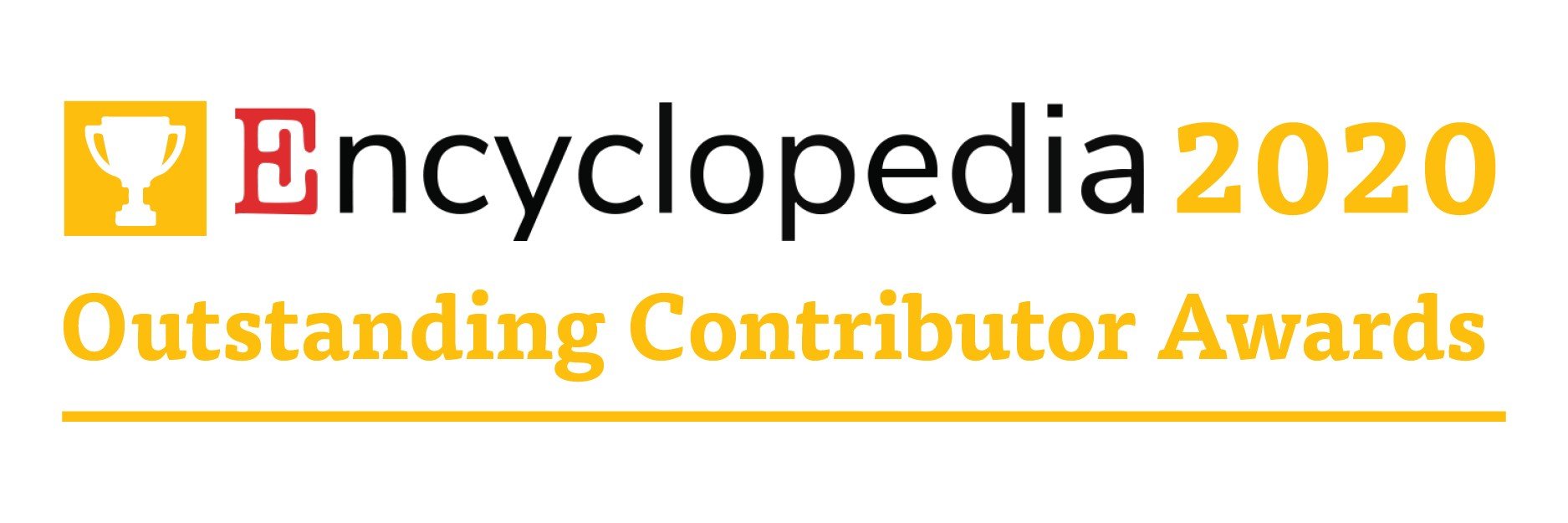
We are pleased to announce that Encyclopedia will be awarding five Outstanding Contributor Awards for researchers in 2020. The nominations and applications will be assessed by an Evaluation Committee consisting of senior scholars from the Encyclopedia Editorial Board.
Prize for Winners
- An official certificate;
- A cash award of 500 CHF or an MDPI discount voucher of 800 CHF.
Application Deadline
31 December, 2020 (Please send your application email with a list of all entries you contributed to our office before the deadline: [email protected])
Candidate Requirements
- Have a Ph.D. degree;
- Have more than three qualified entries published in Encyclopedia in 2020.
Evaluation Standards
- Number of entries published in Encyclopedia in 2020;
- Quality of entries online (including length, figure quality, and novelty);
- Impact of entries (including the number of likes, discussion contents, views, and downloads).
If you are a researcher and have not yet contribute entries to Encyclopedia, please do not miss this chance to highlight your research results.
11 October 2019
Introducing SciProfiles, an Academic Social Network
MDPI is pleased to announce the release of SciProfiles, its social network platform for researchers and scholars.
The purpose of SciProfiles is aligned with MDPI’s broad mission to accelerate discovery and innovation by facilitating immediate access to research results and to serve scholars and communities by providing opportunities for academic networking.
SciProfiles also ambitions to serve as a sustainable, transparent and community-driven research evaluation system aligned with the DORA principles (https://sfdora.org/). Through their scientific profiles, academics can highlight their contribution to research communities, and measure their impact on their field, beyond publication numbers and impact factors. SciProfiles is currently a beta version and will enrich to give researchers the possibility to highlight all of their contributions to science and their scientific communities as authors, reviewers, editors, conference organizers, conference panelists, conference keynote speakers, or even as lecturers or student mentors at their University.
The classic components of popular community social networks, including follower/following, classical metrics, endorsements and recommendations (https://www.mdpi.com/about/announcements/1690), comments (https://www.mdpi.com/about/announcements/1397) are or will be very soon highlighted in SciProfiles as open science contributions.
To help increase the impact and visibility of articles and their authors to an appropriate audience, the platform offers a NewsFeed that includes recommendations of relevant content based on interests, publication history, saved searches or colleagues’ recommendations.
SciProfiles’ avatars are now being integrated on several MDPI platforms, meaning that you will directly access researchers’ profiles from any of the MDPI platforms:
MDPI's journal publishing website: www.mdpi.com
MDPI's conference hosting and management website: www.sciforum.net
MDPI's pre-print website : www.preprints.org
MDPI's knowledge sharing website : www.encyclopedia.pub
MDPI's books store: www.mdpi.com/books
MDPI's literature database : www.scilit.net
SciProfiles aims to serve scientific communities at large. It can be embedded into third-party websites and also welcomes integration of data from third-parties.
Dr. Shu-Kun Lin: https://sciprofiles.com/profile/2
Dr. Franck Vazquez: https://sciprofiles.com/profile/FranckVazquez
Dr. Martyn Rittman: https://sciprofiles.com/profile/martynrittman
2 October 2019
Winners of the 2019 MDPI Writing Prize
We are delighted to announce the winners of the 2019 MDPI Writing Prize. Entrants were asked to write on the theme "Judging research: How should research and researchers be evaluated and rewarded?" We received a large number of excellent essays from PhD students and postdocs, and the process of shortlisting and choosing winners was not an easy one. The winners demonstrated excellent writing skills alongside interesting and thought-provoking ideas.
As last year, we will begin the process of collating all entries into a book that will be available in open access format. Alongside promoting good writing skills, we see the prize as a way to promote the voices of early career researchers within broader debates and policy discussions.
Congratulations to all of the participants and especially the winners. The winners are:
1st Prize (500 CHF):
Albin Nilsson (National Centre for Nuclear Research, Warsaw, Poland)
[Read here]
2nd Prize (250 CHF):
Qi Zhang (Shandong University, Jinan, China)
[Read here]
Igor Ogashawara (Indiana University, Indianapolis, US)
[Read here]
3rd Prize (100 CHF):
Margaret Sivapragasam (Universiti Teknologi Petronas, Perak, Malaysia)
[Read here]
Arvind Sharma (The University of Queensland, Gatton, Australia)
[Read here]
Jose Flores-Guerrero (University Medical Center Groningen, Groningen, The Netherlands)
[Read here]
The MDPI Writing Prize is an annual award supported by MDPI Author Services, which provides services including language editing, reformatting, plagiarism checks, and image editing.
20 September 2019
Meet us at the 5th International Conference on Perovskite Solar Cells and Optoelectronics (PSCO-2019).

MDPI will attend PSCO-2019 in Lausanne, Switzerland, from 30 September to 2 October 2019.
As the 5th International Conference on Perovskite Solar Cells and Optoelectronics, this event will bring a broad spectrum of the community together to discuss and share knowledge on the latest advances in perovskite materials, devices, and photophysical and optoelectronic properties and phenomena.
It will also host a special session dedicated to speakers working in industry. Additionally, two sessions will be sponsored by two European Projects on perovskites, Espresso and PerTPV.
Representatives from MDPI will be present to exhibit our open access journals
Energies, Batteries, Photonics, and Nanomaterials.
If you plan to attend this event, please visit us at the SwissTech Convention Center. Our delegates look forward to meeting you in person to answer any questions you may have regarding open access publishing or our journals. For more information about this conference, please visit https://www.psco-conference.org/index.php
20 September 2019
MDPI Now Gives Scholars the Possibility to Endorse and Recommend Articles

MDPI is pleased to announce the release of a new functionality giving the possibility for researchers and scholars to endorse, and formally recommend articles to their colleagues.
MDPI was an early signatory of the San Francisco Declaration on Research Assessment (https://sfdora.org/read/) which calls for improvement in how quality and impact of scholarly research outputs are evaluated, especially in moving beyond journal-based citation metrics (journal Impact Factor, Scopus Citescore, etc.).
MDPI supports the establishment of article-level impact metrics, including citations, views, downloads, and Altmetric scores. These measures serve as an impact indicator for research articles on a case–by-case basis, assessing paper on its own merit. However, these metrics are also subjective and can give a biased picture of the article impact: they do not directly reflect the quality or the intrinsic scientific value of the article.
In our view, community engagement with publications based on community-driven metrics can help to overcome this limitation. We have therefore launched an option for scholars to endorse articles, indicating their own assessment of its content and making a recommendation to their community. This follows our implementation of the open source Hypothesis commenting tool, which has been available for all articles published by MDPI for over a year (https://www.mdpi.com/about/announcements/1397). Both endorsement and commenting are available for all previously published and forthcoming MDPI articles.
In addition to potentially serving as a sustainable solution to article assessment, endorsements will help scientific communities to identify the most relevant articles, independently of the journal in which it was published.
The code for the endorsing functionality, which relies on DOIs and ORCIDs, will be made available on GitHub with an open source license.
Dr. Shu-Kun Lin, President and Founder
Dr. Franck Vazquez, Chief Scientific Officer
Dr. Martyn Rittman, Publishing Director
11 September 2019
Create an Entry in Encyclopedia to Get a 100 CHF Voucher in Publishing in MDPI Journals
Encyclopedia is a free online reference created and curated by active scholars. It aims to highlight the latest research results as well as provide a comprehensive record of scientific development. If you have any suggestions or questions, please feel free to contact us via [email protected].

6 August 2019
Preprints Reaches 10,000 Posted Articles Milestone
We are pleased to announce that Preprints has passed the milestone of 10,000 posted preprints. We are delighted to have reached this after just over three years of operation. Our congratulations and thanks go to our authors and advisory board who have supported growth of the platform and been crucial to its operation.
You can find further details at https://www.preprints.org/announcement/show/37.
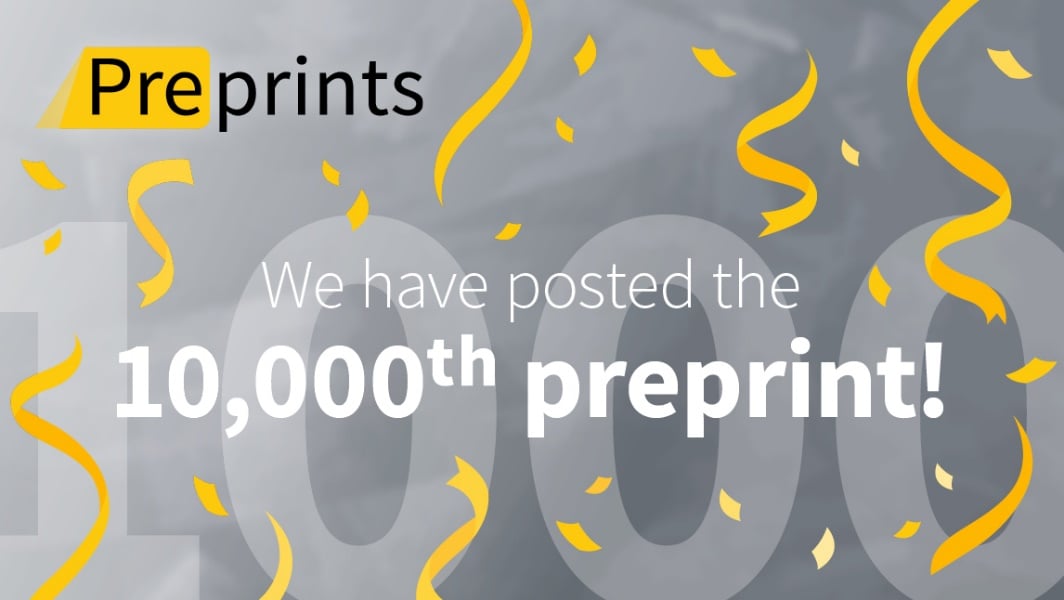
2 August 2019
DeepGreen Partnering with Publishers and Universities in Distributing Open Access Content to Institutional Repositories
Last week, the DeepGreen initiative in Germany started into an advanced test phase with the publishing partners S. Karger AG, SAGE Publishing, MDPI, Frontiers and De Gruyter, as well as 27 universities from all over Germany, from Hamburg University of Applied Sciences to University of Konstanz.
DeepGreen aims at lowering the barriers for open access publishing by automatically delivering metadata and full text publications from participating publishers to authorized repositories at German universities.
In preparation for a later live operation, the advanced test phase serves to gain experience with extensive data deliveries from publishers and also handling different repository software (including OPUS4, DSpace, EPrints, MyCoRe). DeepGreen thereby acts as a sophisticated platform, receiving articles published by authors affiliated with German universities and depositing these articles to respective university repositories, based on the affiliation metadata. For more information about DeepGreen: https://deepgreen.kobv.de
Karger AG has been a close cooperation partner of the DeepGreen consortium since 2016. S. Karger has more than 80 subscription-based and around 20 open access journals covering a wide spectrum in health science. DeepGreen will assign S. Karger articles to authorized institutions on the legal basis of German alliance and national licenses.
SAGE Publishing was founded by Sara Miller McCune in 1965 to support the dissemination of usable knowledge and educate a global community. SAGE publishes more than 1,000 journals and over 600 new books each year, spanning a wide range of subject areas. Our growing selection of library products includes archives, data, case studies and video. SAGE remains majority owned by our founder and after her lifetime will become owned by a charitable trust that secures the company’s continued independence. Principal offices are located in Los Angeles, London, New Delhi, Singapore, Washington DC and Melbourne. SAGE Publishing has been a close cooperation partner of DeepGreen since 2016.
MDPI is a scientific open access publisher and has been a partner of DeepGreen since 2017. MDPI comprises 205 peer-reviewed journals of various disciplines. All articles are published under a CC-BY license and are freely available without embargo period.
Frontiers is a scientific open access publisher with 61 journals of over 600 academic disciplines. All articles are peer-reviewed and published freely available under CC-BY license.
De Gruyter is an academic publisher with more than 700 subscription-based and open access journals of 29 disciplines. Articles provided by De Gruyter will be assigned to institutions with German alliance and national licenses.
There is promising communication with other publishers.
DeepGreen is funded by the German Research Foundation (DFG) and the consortium comprises six institutions: the Cooperative Library Network Berlin-Brandenburg, Bavarian State Library, Bavarian Library Network, University Library of the Technische Universität Berlin, University Library of Erlangen-Nuremberg and the Helmholtz Open Science Coordination Office at the GFZ German Research Centre for Geosciences.
If you would like to know in more detail which institutions take part in the advanced test phase of DeepGreen, you can find more information here.
17 July 2019
First Basel Sustainable Publishing Forum
The University of Basel and the MDPI Sustainability Foundation are organizing the First Basel Sustainable Publishing Forum on 9th September 2019.
The aim of this event is to provide background and perspectives on Plan S to Learned Societies, which have to make well-informed decisions to transition their journals to Open Access (OA).
The BSPF will bring together several representatives of Learned societies, Plan S architects as well as representatives from various publishers and publishing platforms. After getting the big picture from cOAlition S, panel discussions will allow to better understand the diverse challenges that Learned societies are facing to transition their journals to OA as well as to identify sustainable, implementable and scalable solutions for successful Open Access transition.
For program details and registration, please follow the link below:
https://sciforum.net/conference/SustainableSolutionsToOpenAccess
20 March 2019
Fostering Open Access Publishing Worldwide: New IOAP Participants in February and March 2019
We are pleased to welcome more universities from Poland, Italy, Germany, Brazil and other parts of the world to MDPI's Institutional Open Access Program (IOAP). A warm welcome to the institutions listed below, who have joined the Program in February and March this year.
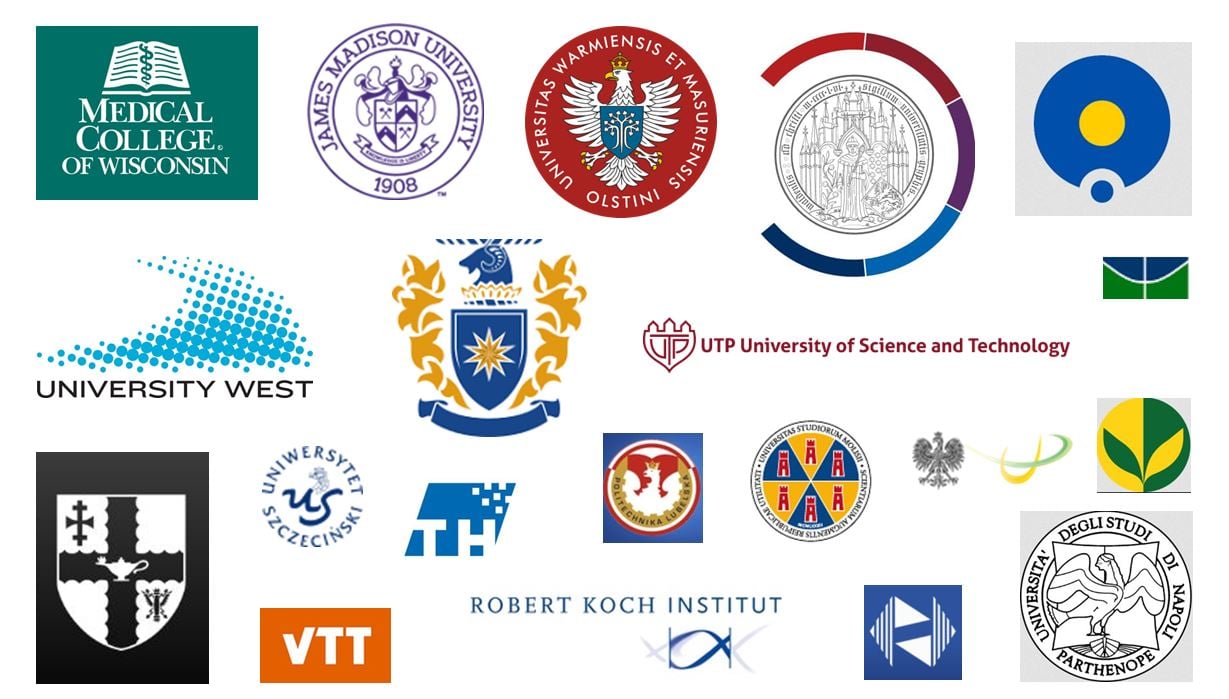
Authors affiliated with these institutions can now enjoy a discount on the APC for papers accepted for publication in any MDPI journal. If you would like to learn more about our program, please visit: https://www.mdpi.com/about/ioap or email us at [email protected].
5 March 2019
MDPI Joins Jisc’s Publications Router Service
We are delighted to announce our participation in Jisc’s Publication Router project, as of March 2019.
Publications Router is a Jisc service that automatically sends notifications about research articles to institutions' systems such as their repositories or CRISs, since May 2015. Through this agreement, MDPI will provide Jisc with daily feeds and information regarding published articles, which will be gathered by their system and delivered to institutions also registered to this service. Nearly all of our articles are published within 15 days of acceptance, so institutions will receive them quite promptly.
The feed will include the full text of the published version of record, with no embargo, so the articles can be exposed immediately for public view. They are accompanied by rich metadata, including confirmation of the immediate CC BY licence, minimising the need for any manual intervention or checking.
For more information about Publications Router, you may contact Jisc’s central helpdesk at [email protected]. For any queries about MDPI’s institutional agreements and collaborations, you may get in touch with MDPI’s Institutional Engagement team at [email protected], which would be very happy to hear from further UK institutions.
1 February 2019
2018 MDPI Top Reviewer Award—Winners Announced
Rigorous peer-review is the cornerstone of high quality academic publishing. Over 97,000 scholars served as reviewers for MDPI journals in 2018. We are extremely appreciative of all those who made a contribution to the editorial process in this capacity. At the beginning of every year, journal editorial offices publish a list all reviewers’ names to express our gratitude. In addition, this year the “MDPI Top Reviewer Awards” are announced, to recognize the very best reviewers for their expertise, dedication, high quality, and timely review reports. We are pleased to announce the following winners of the 2018 MDPI Top Reviewer Awards:
- Ali Behnood
- Andrea Pezzuolo
- Angela Gorgoglione
- Anna D'Auria
- Antonio D'Andrea
- Azhar Abbas
- Bogdan Zagajewski
- Chunhui Chen
- Dominika Głąbska
- Dominika Guzek
- Dragan Pamucar
- Francisco J. G. Silva
- Frank Li
- Gianluca Serafini
- Gyorgy Szekely
- Haozhi Pan
- Helvi Heinonen-Tanski
- José Manuel Gómez-Soberón
- Kathy Lewis
- Klara Kosova
- Luis N. López De Lacalle
- M. Z. Naser
- Malwina Tytła
- Masoume Amirkhani
- Matteo Ghidelli
- Moretti Laura
- Petra Schneider
- Roberto Cerchione
- Spyros Papaefthymiou
- Ştefan Cristian Gherghina
24 January 2019
JAMS Journals: A Low-Cost Publishing Platform

Since 2010, MDPI has run its own online submission system. More recently, we have made the software, with accompanying publishing services, available to other publishers as JAMS (Journal and Article Management System). We are now delighted to announce the launch of JAMS Journals, a standardized platform for operating open access journals at low cost.
JAMS Journals provides a comprehensive service, including a shared submission website, journal websites hosted at a URL provided by the publisher, and a full production service. There is a small setup fee and the cost for each published paper is just a few hundred Swiss francs.
The platform demonstrates that running an open access journal can be straightforward and affordable. The JAMS Journals platform is suitable for
- small publishers or groups of scholars looking to launch their own journal;
- existing publishers or societies seeking to explore open access options;
- publishers looking to convert an existing subscription journal to open access.
JAMS journals launches with two journals from Canadian-based publisher Etcetera Publications:
- Canadian Journal of Pesticides & Pest Management (http://www.cjppm.ca)
- Nanotechnology in Agriculture, Food & Environment (http://www.nanoafe.ca)
Dr AJ Al-Rajab (President of Etcetera Publications) comments:
“In the past few months, we were working on our project to launch new open access scientific journals in the field of agricultural and environmental sciences. We decided to go with JAMS for this venture because of the high quality of their services, reasonable prices, professionalism and easy communication. Our portfolio is expected to grow rapidly during 2019 to include more titles covering different areas in agriculture and environment. MDPI earned already our complete satisfaction and we are looking for a long term cooperation.”
Alongside the new platform, we continue to provide flexible, tailored journal management solutions for existing publishers. For any questions or to request a quotation, contact Dr. Constanze Schelhorn ([email protected]).
24 January 2019
Popularity of Preprints Continues to Grow

2018 was a great year for preprints, with increasing numbers of authors looking to make their papers available online before peer review. Along with other preprint servers, our platform Preprints.org saw an increase in the uptake from authors, and more than double the number of announced papers compared to 2017. In fact, we recently passed two important milestones: 8000 preprints online and 30,000 authors.
We believe that the whole research community has the opportunity to benefit from work being available online as early as possible. We thank and congratulate our authors for supporting us to make this goal a reality.
In 2019, we will be looking carefully at how to provide better value for authors, maintain efficiency while growing in size, and make sure we remain well-connected with the research community.
If you want to participate, you can consider screening preprints or joining our advisory board. And, of course, posting your own work.
9 January 2019
Open Access Agreement between the Austrian Academic Library Consortium (KEMÖ), the Austrian Science Fund (FWF), and MDPI

We are delighted to announce the establishment of our national Open Access agreement with the Austrian Academic Library Consortium (KEMÖ) and the Austrian Science Fund (FWF). Through this national agreement, the Austrian institutions listed below as well as FWF will cover the Article Processing Charges (APC) of manuscripts published by eligible corresponding or funded authors in MDPI journals as long as central funds are available.
All participating institutions have gained access to the MDPI online submission system where they can find full article metadata and pricing information as well as Funder and Grant ID details for easy identification and additional transparency. At the same time eligible authors are benefited from an APC discount which comes at no cost for the institutions.
Eligible corresponding authors affiliated with the participating institutions are prompted to choose the corresponding Institutional Open Access Program (IOAP) when they submit an article via our online submission system. The program will be selected automatically if authors submit their papers using their institutional email address. To claim their discount, FWF funded authors should choose the particular funder and add their Grant ID upon online submission of their manuscript. The institutions will then crosscheck the information and confirm the APC funding.
Eligible authors that have their APC covered by their institution or funder are advised to include the following sentence in their acknowledgments: "Open Access Funding by the [name of the institution/funder]".
The full text of the agreement is openly available online at: http://doi.org/10.5281/zenodo.2536007
For any questions about the agreement, please contact the KEMÖ Consortium at [email protected], FWF at [email protected], or the MDPI IOAP team at [email protected].
The Austrian institutions participating in this agreement are:
- Austrian Science Fund (FWF)
- University for Continuing Education Krems
- University of Applied Sciences BFI Vienna
- University of Applied Sciences Upper Austria
- University of Applied Sciences Technikum Wien
- Vorarlberg University of Applied Sciences
- International Institute for Applied Systems Analysis (IIASA)
- Institute of Science and Technology Austria
- MCI Management Center Innsbruck
- University of Graz
- University of Linz
- University of Salzburg
- Graz University of Technology
- TU Wien
- University of Veterinary Medicine Vienna
- University of Vienna
This is our first collective agreement with a national library consortium, while the individual institutions around the world participating in our IOAP are now more than 500 - see details here: https://www.mdpi.com/about/ioap. We would be mostly interested in discussing about possible collaborations with other consortia, funders, and institutions in our mutual efforts to accelerate Open Access.
2 January 2019
Encyclopedia—the Scholarly Community Encyclopedia

We are pleased to announce the new platform Encyclopedia, which is an online reference created and curated by active scholars. It aims to highlight the latest research results as well as providing benchmark information for researchers and the general public interested in accurate and advanced knowledge on specific topics.
We encourage authors of review articles to quote and adapt the content of their published papers to create Encyclopedia entries. You can create completely new entries on topics in which you have knowledge and expertise. There is no limit on the topics or research fields. All of science and the humanities are included. Each entry will be published directly after submission.
We also have prepared a DOI application function in Encyclopedia. Once a DOI application is approved, the entry website will announce the DOI number and a pdf version with DOI information will be automatically created.
We look forward to your contributions and hope you will make use of this service. Find more about the service at: https://encyclopedia.pub/
30 October 2018
Institutional Open Access Agreement between Bill and Melinda Gates Foundation and MDPI

We are delighted to announce that the Bill and Melinda Gates Foundation (BMGF) is now a participant of our Institutional Open Access Program (IOAP). Authors funded by the BMGF can enjoy discounts on the APC, while the funder covers the costs of eligible articles centrally. BMGF also has access to the MDPI online submission system where they can find full article metadata and pricing information as well as Grant ID details for easy identification and additional transparency.
We hope that funded authors find the programme beneficial and we are happy to offer our IOAP to other funders that need a streamlined workflow of compliance checking and APC coverage.
To claim their discount, BMGF funded authors should choose the particular funder and add their Grant ID upon online submission of their manuscript.
For any questions about the BMGF agreement, please contact the funder at [email protected] or the MDPI IOAP team at [email protected].
2 October 2018
MDPI Welcomes Plan S
Recently, it was announced that a group of European funders supported 10 principles that will help to expand open access, known as Plan S. MDPI warmly welcomes this move as a step towards achieving more open and accessible communication of research across all disciplines. Some aspects remain to be clarified, however the details given so far match the aims and values that MDPI has held over the past two decades.

We believe that open access publishers should be active participants in discussions around Plan S, particularly regarding potential new business models and practical aspects of implementation. MDPI supports APCs as a transparent unit of payment for article publishing, however we are committed to exploring other measures and recently signed the Jussieu Call. Sustainability is a key value for MDPI, and future funding models should have at their heart the sustainability of knowledge and research dissemination. Plan S provides an opportunity for funders and publishers to directly discuss funding of open access journals in ways that are beneficial to all parties involved.
30 August 2018
MDPI establishes Open Access agreement with Qatar National Library

We are happy to announce the establishment of an Open Access (OA) agreement with Qatar National Library (QNL). QNL is committed to supporting and helping Qatar authors publish OA at no cost. Through this national agreement, QNL will cover the Article Processing Charges (APC) of manuscripts published by Qatar-based corresponding authors in MDPI journals.
Eligible corresponding authors affiliated with Qatar research centers and universities are prompted to choose QNL as part of our Institutional Open Access Program (IOAP) when they submit an article via our online submission system. The program will be selected automatically if authors submit their papers using their institutional email and/or a computer registered with the institution’s IP range. QNL will then crosscheck the information and confirm the APC funding.
Qatar authors that have their APC covered by QNL are advised to include the following sentence in their acknowledgments: "The publication of this article was funded by Qatar National Library".
For more information, please visit Open Access at QNL or email the QNL Open Access team at [email protected].
31 May 2018
2017 CiteScore™ Metrics Released
The 2017 CiteScore™ data is available now, based on citation data in the Scopus® database. The current CiteScore reflects citation activity in 2017 for articles published in 2014‒2016. Please note that the list below includes journals assigned a CiteScore in this year’s release. For a full list of journals indexed in Scopus, please see our journal list.
Thirteen of our journals received a CiteScore which is in the top 10% of the distribution in at least one of the categories (marked with * in the table below), while a further 32 journals exhibit scores that are in the first quartile of the respective categories.
To access the full data for MDPI journals, please see here. More data can also be found in SJR Scimago Journal & Country Rank.
Unlike CiteScores and the widely used Journal Impact Factors, the Source Normalized Impact per Paper (SNIP) metrics are normalized in order to correct for differences in citation practices between scientific fields. Therefore, the SNIP allows direct comparison between journals specialized in different fields.
According to 2017 data, MDPI publishes six journals with an average citation impact, or SNIP, in excess of 1.500. These journals are Biomolecules, Cancers, Journal of Clinical Medicine (JCM), Marine Drugs, Remote Sensing and Sensors (see the last column in the table below).
CiteScore Data for MDPI Journals
| Journal | Rank (Quartile) |
Category | Link | CiteScore 2017 | 2016 |
2015 |
SNIP 2017 |
| Aerospace | 43/116 (Q2) | • Aerospace Engineering | Link | 1.23 | - | - | 1.152 |
| Agriculture | 69/309 (Q1) 91/398 (Q1) 78/255 (Q2) |
• Agronomy and Crop Science • Plant Science • Food Science |
Link | 1.93 | - | - | 1.133 |
| Agronomy | 46/309 (Q1) | • Agronomy and Crop Science | Link | 2.38 | - | - | 1.115 |
| Algorithms | 22/46 (Q2) 61/125 (Q2) 60/107 (Q3) 64/114 (Q3) |
• Numerical Analysis • Computational Mathematics • Computational Theory and Mathematics • Theoretical Computer Science |
Link | 1.03 | 1.15 | 1.07 | 0.749 |
| Animals | 12/154 (Q1) * 48/367 (Q1) |
• General Veterinary • Animal Science and Zoology |
Link | 2.02 | 1.46 | 1.66 | 1.099 |
| Antibiotics | 6/68 (Q1) * 62/263 (Q1) 55/230 (Q1) 31/108 (Q2) 47/134 (Q2) 139/398 (Q2) |
• General Pharmacology, Toxicology and Pharmaceutics • Infectious Diseases • Pharmacology (medical) • Microbiology (medical) • Microbiology • Biochemistry |
Link | 2.85 | 1.65 | - | 0.975 |
| Antibodies | 43/143 (Q2) 61/164 (Q2) 85/189 (Q2) |
• Drug Discovery • Immunology and Allergy • Immunology |
Link | 2.85 | - | - | 0.844 |
| Antioxidants | 23/119 (Q1) 35/169 (Q2) 100/398 (Q2) 119/367 (Q2) 102/264 (Q2) |
• Clinical Biochemistry • Physiology • Biochemistry • Molecular Biology • Cell Biology |
Link | 3.42 | - | - | 1.361 |
| Applied Sciences | 48/270 (Q1) 15/66 (Q1) 31/116 (Q2) 18/53 (Q2) 151/434 (Q2) 186/535 (Q2) |
• General Engineering • Fluid Flow and Transfer Processes • Instrumentation • Process Chemistry and Technology • General Materials Science • Computer Science Applications |
Link | 1.90 | - | - | 0.801 |
| Biology | 12/177 (Q1)* 32/186 (Q1) 10/40 (Q1) |
• General Agricultural and Biological Sciences • General Biochemistry, Genetics and Molecular Biology • General Immunology and Microbiology |
Link | 3.48 | 3.02 | 2.78 | 0.961 |
| Biomolecules | 31/398 (Q1) * 41/367 (Q1) |
• Biochemistry • Molecular Biology |
Link | 5.72 | 1.67 | 3.08 | 1.542 |
| Biosensors | 20/119 (Q1) | • Clinical Biochemistry | Link | 3.59 | 2.83 | 2.37 | 1.122 |
| Brain Sciences | 47/111 (Q2) | • General Neuroscience | Link | 2.56 | - | - | 0.695 |
| Cancers | 26/323 (Q1) * 23/191 (Q1) |
• Oncology • Cancer Research |
Link | 5.82 | 5.02 | 4.07 | 1.567 |
| Catalysts | 32/151 (Q1) 21/46 (Q2) |
• Physical and Theoretical Chemistry • Catalysis |
Link | 3.23 | 3.44 | 3.45 | 0.954 |
| Crystals | 76/272 (Q2) 140/434 (Q2) 127/398 (Q2) 26/64 (Q2) |
• General Chemical Engineering • General Materials Science • Condensed Matter Physics • Inorganic Chemistry |
Link | 1.97 | 1.89 | 1.47 | 0.745 |
| Diagnostics | 49/119 (Q2) | • Clinical Biochemistry | Link | 2.43 | - | - | 0.788 |
| Diversity | 30/124 (Q1) 14/52 (Q2) 83/306 (Q2) 11/29 (Q2) |
• Nature and Landscape Conservation • Agricultural and Biological Sciences (miscellaneous) • Ecology • Ecological Modelling |
Link | 2.15 | 2.03 | 1.96 | 1.300 |
| Electronics | 109/644 (Q1) 26/148 (Q1) 42/224 (Q1) 50/259 (Q1) 23/96 (Q1) |
• Electrical and Electronic Engineering • Hardware and Architecture • Control and Systems Engineering • Computer Networks and Communications • Signal Processing |
Link | 2.97 | - | - | 1.227 |
| Energies | 6/73 (Q1) * 31/192 (Q1) 103/644 (Q1) 4/16 (Q1) 47/140 (Q2) |
• Control and Optimization • Energy Engineering and Power Technology • Electrical and Electronic Engineering • Energy (miscellaneous) • Renewable Energy, Sustainability and the Environment |
Link | 3.11 | 2.50 | 2.87 | 1.340 |
| Entropy | 35/202 (Q1) | • General Physics and Astronomy | Link | 2.41 | 1.87 | 1.99 | 1.189 |
| Forests | 17/129 (Q1) | • Forestry | Link | 2.31 | 2.06 | 1.76 | 0.990 |
| Future Internet | 132/259 (Q3) | • Computer Networks and Communications | Link | 1.25 | - | - | - |
| Games | 132/187 (Q3) 78/110 (Q3) 305/418 (Q3) |
• Statistics and Probability • Statistics, Probability and Uncertainty • Applied Mathematics |
Link | 0.61 | 0.87 | 0.57 | 1.038 |
| Genes | 21/91 (Q1) 74/311 (Q1) |
• Genetics (clinical) • Genetics |
Link | 3.49 | 3.62 | 3.18 | 0.374 |
| Geosciences | 32/182 (Q1) |
• General Earth and Planetary Sciences | Link | 1.97 | 1.67 | 1.29 | 0.856 |
| Information | 143/251 (Q3) | • Information Systems | Link | 1.16 | 0.78 | 0.94 | 1.146 |
| Insects | 27/135 (Q1) | • Insect Science | Link | 1.85 | 1.81 | 1.38 | 0.719 |
| International Journal of Environmental Research and Public Health (IJERPH) | 80/478 (Q1) 34/106 (Q2) |
• Public Health, Environmental and Occupational Health • Health, Toxicology and Mutagenesis |
Link | 2.41 | 2.38 | 2.42 | 0.931 |
| International Journal of Molecular Sciences (IJMS) | 7/69 (Q1) * 61/535 (Q1) 20/163 (Q1) 9/64 (Q1) 26/151 (Q1) 89/367 (Q2) 17/46 (Q2) |
• Spectroscopy • Computer Science Applications • Organic Chemistry • Inorganic Chemistry • Physical and Theoretical Chemistry • Molecular Biology • Catalysis |
Link | 3.86 | 3.73 | 3.37 | 0.998 |
| ISPRS International Journal of Geo-Information (IJGI) | 79/605 (Q1) 22/82 (Q2) 13/36 (Q2) |
• Geography, Planning and Development • Earth and Planetary Sciences (miscellaneous) • Computers in Earth Sciences |
Link | 2.10 | 1.62 | 1.52 | 1.062 |
| Journal of Clinical Medicine (JCM) | 10/841 (Q1) * | • General Medicine | Link | 7.07 | - | - | 1.535 |
| Journal of Functional Biomaterials (JFB) | 43/199 (Q1) 23/77 (Q2) |
• Biomedical Engineering • Biomaterials |
Link | 3.47 | - | - | 1.344 |
| Journal of Low Po- wer Electronics and Applications (JLPEA) |
301/644 (Q2) | • Electrical and Electronic Engineering | Link | 1.12 | 0.98 | 0.83 | 0.367 |
| Journal of Personalized Medicine (JPM) | 54/189 (Q2) | • Medicine (miscellaneous) | Link | 2.61 | - | - | 0.944 |
| Land | 50/124 (Q2) 129/306 (Q2) 36/65 (Q3) |
• Nature and Landscape Conservation • Ecology • Global and Planetary Change |
Link | 1.44 | - | - | 0.658 |
| Life | 4/94 (Q1) * 70/561 (Q1) 40/186 (Q1) 20/80 (Q2) |
• Palaeontology • Ecology, Evolution, Behavior and Systematics • General Biochemistry, Genetics and Molecular Biology • Space and Planetary Science |
Link | 3.16 | 2.95 | 1.68 | 0.935 |
| Marine Drugs | 17/146 (Q1) | • Drug Discovery | Link | 4.58 | 3.83 | 3.66 | 1.537 |
| Materials | 83/434 (Q1) | • General Materials Science | Link | 3.02 | 3.26 | 3.11 | 1.285 |
| Membranes | 5/18 (Q2) 15/53 (Q2) 4/10 (Q2) |
• Chemical Engineering (miscellaneous) • Process Chemistry and Technology • Filtration and Separation |
Link | 2.69 | 2.19 | 2.95 | 0.880 |
| Metabolites | 47/209 (Q1) 103/398 (Q2) 127/367 (Q2) |
• Endocrinology, Diabetes and Metabolism • Biochemistry • Molecular Biology |
Link | 3.35 | - | - | 0.925 |
| Metals | 155/434 (Q2) | • General Materials Science | Link | 1.87 | - | - | 0.955 |
| Micromachines | 105/554 (Q1) 154/644 (Q1) 64/224 (Q2) |
• Mechanical Engineering • Electrical and Electronic Engineering • Control and Systems Engineering |
Link | 2.31 | 1.83 | 1.78 | 0.987 |
| Minerals | 33/175 (Q1) 45/208 (Q1) |
• Geotechnical Engineering and Engineering Geology • Geology |
Link | 2.21 | 2.13 | 1.77 | 1.149 |
| Molecules | 4/25 (Q1) 25/172 (Q1) 18/104 (Q1) 31/163 (Q1) 30/151 (Q1) 31/146 (Q1) 55/160 (Q2) |
• Chemistry (miscellaneous) • Pharmaceutical Science • Analytical Chemistry • Organic Chemistry • Physical and Theoretical Chemistry • Drug Discovery • Molecular Medicine |
Link | 3.27 | 3.09 | 2.65 | 1.146 |
| Nutrients | 11/255 (Q1) * 9/112 (Q1) * |
• Food Science • Nutrition and Dietetics |
Link | 4.35 | 4.29 | 4.07 | 1.403 |
| Pathogens | 38/263 (Q1) 20/108 (Q1) 9/40 (Q1) 40/164 (Q1) 110/367 (Q2) |
• Infectious Diseases • Microbiology (medical) • General Immunology and Microbiology • Immunology and Allergy • Molecular Biology |
Link | 3.52 | - | - | 1.166 |
| Pharmaceuticals | 14/172 (Q1) * 33/160 (Q1) |
• Pharmaceutical Science • Molecular Medicine |
Link | 4.12 | 4.90 | 3.64 | 1.370 |
| Pharmaceutics | 21/172 (Q1) | • Pharmaceutical Science | Link | 3.68 | 3.83 | 2.68 | 1.092 |
| Photonics | 30/116 (Q1) 80/270 (Q2) 53/160 (Q2) |
• Instrumentation • Radiology Nuclear Medicine and Imaging • Atomic and Molecular Physics, and Optics |
Link | 1.96 | - | - | 0.817 |
| Plants | 73/561 (Q1) 48/389 (Q1) 44/306 (Q1) |
• Ecology, Evolution, Behavior and Systematics • Plant Science • Ecology |
Link | 3.13 | - | - | 0.969 |
| Polymers | 17/142 (Q1) 63/359 (Q1) |
• Polymers and Plastics • General Chemistry |
Link | 3.30 | 3.74 | 3.37 | 1.213 |
| Religions | 26/389 (Q1) * | • Religious Studies | Link | 0.56 | - | - | 0.676 |
| Remote Sensing | 13/182 (Q1) * | • General Earth and Planetary Sciences | Link | 4.03 | 3.56 | 3.76 | 1.559 |
| Resources | 19/142 (Q1) 39/261 (Q1) |
• Nature and Landscape Conservation • Management, Monitoring, Policy and Law |
Link | 2.69 | - | - | 1.387 |
| Scientia Pharmaceutica | 92/172 (Q3) | • Pharmaceutical Science | Link | 0.86 | - | - | 0.513 |
| Sensors | 9/116 (Q1) * 25/160 (Q1) 100/644 (Q1) 19/104 (Q1) 113/398 (Q2) |
• Instrumentation • Atomic and Molecular Physics, and Optics • Electrical and Electronic Engineering • Analytical Chemistry • Biochemistry |
Link | 3.23 | 2.78 | 2.21 | 1.550 |
| Social Sciences | 81/213 (Q2) | • General Social Sciences | Link | 0.60 | - | - | 0.445 |
| Sustainability | 61/605 (Q1) * 55/261 (Q1) 60/140 (Q2) |
• Geography, Planning and Development • Management, Monitoring, Policy and Law • Renewable Energy, Sustainability and the Environment |
Link | 2.37 | 1.96 | 1.78 | 1.030 |
| Symmetry | 44/327 (Q1) 17/45 (Q2) 16/40 (Q2) 14/25 (Q2) |
• General Mathematics • Computer Science (miscellaneous) • Physics and Astronomy (miscellaneous) • Chemistry (miscellaneous) |
Link | 1.32 | 1.12 | 0.95 | 0.802 |
| Toxins | 18/106 (Q1) 21/111 (Q1) |
• Health, Toxicology and Mutagenesis • Toxicology |
Link | 3.32 | 3.34 | 3.76 | 1.136 |
| Vaccines | 5/230 (Q1) * 13/263 (Q1) * 18/302 (Q1) * 11/146 (Q1) * 32/189 (Q1) |
• Pharmacology (medical) • Infectious Diseases • Pharmacology • Drug Discovery • Immunology |
Link | 4.88 | 1.23 | 3.76 | 1.255 |
| Viruses | 29/263 (Q1) 16/68 (Q1) |
• Virology • Infectious Diseases |
Link | 3.88 | 3.60 | 3.74 | 1.130 |
| Water | 66/605 (Q1) 37/191 (Q1) 43/199 (Q1) 193/398 (Q2) |
• Geography, Planning and Development • Water Science and Technology • Aquatic Science • Biochemistry |
Link | 2.29 | 2.05 | 1.96 | 1.007 |
24 May 2018
MDPI will be represented at the ECOS 2018, held in Guimarães, Portugal, from 17–22 June, 2018.

Meet us at the ECOS 2018—The 31st International Conference on Efficiency, Cost, Optimization, Simulation and Environmental Impact of Energy Systems, from 17–22 June, in Guimarães, Portugal.
Focused on the fundamentals of thermodynamics, economics and environment analysis of all forms of energy conversion, this conference has a special session designed to transmit the view of industrial partners on energy management and conversion technologies, exchanging their experiences with the academic community. During this session, which is entitled “Industrial Challenge”, several energy intensive companies have been invited to participate, in order to establish a link between what the industry sees as the biggest challenges that can be studied and improved by the academic community.
The following MDPI journals will be represented:
If you are also attending this conference, please stop by our booth at Vila Flor Palace. Our delegates look forward to meeting you in person to answer any questions you may have regarding open access publishing or our journals. For more information about the conference, please visit: http://www.ecos2018.org/
30 April 2018
Winners of the First MDPI Writing Prize
We are pleased to announce the results of the first MDPI Writing Prize. We received a large number of entries from across the globe on the theme of “The Global Benefits of Open Research”. It was a pleasure to read so many original, well-researched and well-presented ideas, and the final choice was not an easy one. We are pleased to announce that the winners are as follows:
1st prize (500 CHF, Swiss knife and certificate)
Edmond Sanganyado, Shantou University, China
2nd prizes (250 CHF, Swiss knife and certificate)
Kamala T. Rajahgopal, Asia e University, Malaysia
Yin Zhixuan, Qingdao University of Technology, China
3rd prizes (100 CHF, Swiss knife and certificate)
Alexandra Ticea, Carol Davila University of Medicine and Pharmacy, Romania
Ankur Sarker, University of Virginia, USA
Daniel Attoye, United Arab Emirates University, UAE
Congratulations to all of them! The winning entries can be downloaded by clicking on the names above. A compilation of all entries will soon be available as an open access book.
The writing prize is sponsored by the MDPI English editing service.
23 March 2018
Check for Updates: A New Function in the Article PDF Version

At MDPI, we always want to keep you up to date. Even for already published articles, some corrections or minor changes may occur. To prevent you from missing any updates, from now on you will be able to access the latest version of any manuscript by clicking on the “check for updates” logo that you can find in the PDF file, even if you have saved the file on your computer.
13 March 2018
MDPI Becoming a Member of UKSG
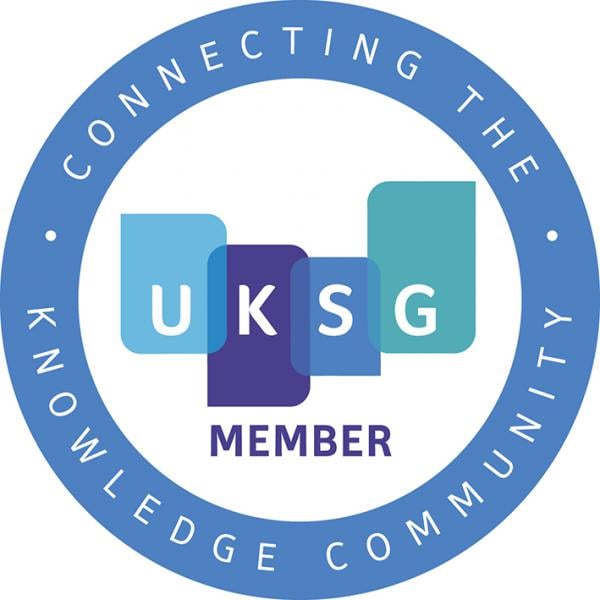
We are proud to announce that MDPI is now a member of UKSG, the UK´s largest scholarly communications community. Through UKSG, different stakeholders share their knowledge and experience in order to improve the knowledge and information environment for researchers. UKSG´s members include universities, publishers, content providers, intermediaries, and other similar organisations. Members participate in discussions and events on issues around scholarly communications.
The UKSG Annual Conference and Exhibition is a flagship initiative from the UKSG and one of the most stimulating events in the scholarly communications calendar. It is held annually and attracts a large number of delegates. More information is available at https://www.uksg.org/events/annualconference
MDPI is delighted to be a part of this active community and we look forward to making our own contribution. We will continue to support organisations and initiatives that boost collaboration and vision within scholarly communication.
More information about UKSG can be found at https://www.uksg.org/. The full membership list is available at: https://www.uksg.org/members.
1 February 2018
MDPI Signed the San Francisco Declaration on Research Assessment (DORA)

The DORA initiative addresses the need for advanced approaches in the evaluation and measurement of the quality of scientific research outputs. It is a worldwide initiative covering all scholarly disciplines. MDPI proudly joins a list of more than 400 organizations around the world which support DORA’s recommendations for improving the way the quality of research results is evaluated.
More info can be found at http://www.ascb.org/dora/
19 December 2017
Announcing the MDPI English Writing Prize
The competition is still open until end of March! Please check out the banner for more details: https://mdpi-res.com/data/english-prize.pdf
15 December 2017
UCL Press Adopts the MDPI Editorial Platform JAMS

We are delighted to announce that UCL Press has adopted MDPI's Journal Article & Management System, JAMS, including production services. JAMS is a modular, integrated editorial platform for academic publishers. It offers flexibility, ease-of-use, and is a fully integrated solution for the end-to-end management of scholarly journals. JAMS is based on the software used to publish MDPI’s portfolio of journals.
Ian Caswell, UCL Press Journals Manager, says he is "excited to see UCL Press and MDPI partner together to implement the JAMS submission system for all UCL Press journals. The system offered a flexible, efficient and straightforward solution for our processes from author submission to ready for publication. I am grateful for the valuable experience and support MDPI have offered and look forward to developing our programme with an effective submission system in place.” Dr Martyn Rittman, MDPI’s Publishing Services Manager, adds, “We are proud to support one of the UK’s premier university presses in their publishing operation. This is an excellent way for us at MDPI to share our experience and knowledge, and benefit the research community beyond our own journals.”
JAMS combines services that are kept separate for many publishers. The entire editorial process, production and invoicing (e.g. for open access article processing charges) are fully integrated into a single platform. This allows for efficient, fast manuscript processing. For further information about JAMS, see https://www.mdpi.com/publishing_services.
23 November 2017
New Participants in the Institutional Open Access Program (IOAP)
We are pleased to welcome new participants to MDPI's Institutional Open Access Program (IOAP), designed to help institutions manage the transition to the Open Access publishing model. Researchers affiliated with participating universites benefit from a 10% discount on the Article Processing Charges (APC) for any paper published in an MDPI journal, while the participating library or university incurs no basic fee for participating in the program.
The IOAP set of free services, provided by MDPI to institutions that sign up, include:- No fee for participants and no obligation to prolong after the initial 12 months. The participants may withdraw from the programme at any time, and we will also keep it free for the library for as long as they continue in the programme.
- Authors affiliated with the university will receive a 10% discount on the APC.
- The institution is granted free access to the MDPI submission system and can receive free alerts of new submissions to our journals.
- By default, authors from the institution will continue to be invoiced directly unless the institution opts for central billing.
- Auto-archiving of papers into the institutions´ repository as long as it supports SWORD 1.3.
More details about the programme and a list of our current participant institutions can be found at: https://www.mdpi.com/about/ioap
Institutions which are interested to participate may do so online at: https://www.mdpi.com/ioap-form
The following North American universities have signed up to the IOAP program recently:
Connecticut College, USA
Emory University, USA
Florida International University, USA
Johns Hopkins University, USA
Mississippi State University, USA
Northeastern University, USA
Rice University, USA
University of Ontario Institute of Technology, Canada
University of Rhode Island, USA
University of Texas Southwestern Medical Center, USA
University of Toronto, Canada
University of Windsor, Canada
University of Wisconsin–Madison, USA
Wellesley College, USA
West Virginia University, USA
Many prestigious institutions from Europe and Asia have joined as well:
Asia Pacific University of Technology & Innovation, Malaysia
Czech Technical University in Prague, Czech Republic
Gdansk University of Technology, Poland
Martin-Luther-Universität Halle-Wittenberg, Germany
National Chung Hsing University, Taiwan
Newcastle University, UK
Northumbria University, UK
Southwest University, China
Technical University of Crete, Greece
University Malaya, Malaysia
University of Antwerp, Belgium
University of Cyprus, Cyprus
University of Manchester, UK
University of Reading, UK
University of Sussex, UK
University of Warwick, UK
West Pomeranian University of Technology Szczecin, Poland
We offer a warm welcome to the new participants!
10 November 2017
Available Journal Awards at MDPI
In order to reward the academic community, especially young researchers, and enhance communication among scientists, MDPI journals regularly offer various awards to researchers in specific fields, for example, Young Investigator Awards, Travel Awards, Best Paper Awards, and Best Poster Awards, etc. The awardees range from PhD students to junior scientists.
Currently, the following 44 awards given by MDPI journals are accepting applications. Please click on the award title below to check whether you are eligible for it and start the application process.
|
Subject |
Journal |
Award |
Intended Awardee |
|
Biology & Life Sciences |
Animals |
PhD students or postdoctoral researchers |
|
|
Antioxidants |
Postdoctoral researchers or PhD students |
||
|
Biology |
PhD or postdoctoral fellows |
||
|
Forests |
Postdocs or PhD students |
||
|
International Journal of Molecular Sciences (IJMS) |
Ground-breaking contribution in the fields of Molecular Biology, and Molecular Pathology |
||
|
Journal of Fungi (JoF) |
Travel Awards 2018 |
PhD graduate students, and postdoctoral fellows |
|
|
Life |
Travel Award 2018 |
PhD students or postdoctoral fellows |
|
|
Metabolites |
PhD students |
||
|
Pharmaceuticals |
PhD students |
||
|
Toxins |
Postdoctoral fellows |
||
|
Viruses |
Viruses 2018 participants |
||
|
Viruses |
Viruses 2018 participants |
||
|
Water |
2018 Young Investigator Award |
Young investigators |
|
|
Chemistry & Materials Science |
Biomimetics
|
Graduate Student or Postdoctoral Trainee / Research Associate |
|
|
Catalysts |
PhD students |
||
|
Chemosensors |
PhD or postdoctoral fellows |
||
|
Entropy |
Young investigators |
||
|
Fibers |
2018 Travel award |
Postdocs or PhD students |
|
|
Magnetochemistry |
Postdocs |
||
|
Materials |
PhD or postdoctoral fellows |
||
|
Metals |
PhD or postdoctoral fellows |
||
|
Minerals |
PhD or postdoctoral fellows |
||
|
Sensors |
Travel Award 2018 |
PhD or postdoctoral fellows |
|
|
Sensors |
Sensors' reviewers in 2017 |
||
|
Sensors |
Young investigators |
||
|
Technologies |
PhD students |
||
|
Computer Science & Mathematics |
Multimodal Technologies and Interaction (MTI) |
Postdoctoral researchers or PhD students |
|
|
ISPRS International Journal of Geo-Information(IJGI) |
Postdocs |
||
|
Journal of Sensor and Actuator Networks (JSAN) |
Postdoctoral fellows and PhD students |
||
|
Journal of Imaging |
Postdoctoral fellows and PhD students |
||
|
Engineering |
Actuators |
PhD or postdoctoral fellows |
|
|
Remote Sensing |
Authors |
||
|
Machines |
PhD or postdoctoral fellows |
||
|
Micromachines |
PhD or postdoctoral fellows |
||
|
Fluids |
Postdoctoral fellows and PhD students |
||
|
ChemEngineering |
Postdoctoral researchers and PhD students |
||
|
Environmental & Earth Sciences |
Diversity |
Travel Awards 2018 |
Postdoctoral fellows |
|
International Journal of Environmental Research and Public Health (IJERPH) |
Authors who submit from 1 Nov 2017 to 31 Oct 2018 |
||
|
Resources |
Postdocs or PhD students |
||
|
Geosciences |
Postdoctoral fellows and PhD students |
||
|
Physical Sciences & Astronomy |
Galaxies |
Ph.D. students, postdoctoral fellows, or lecturers in cosmology or galaxies physics |
|
|
Applied Science |
Postdocs |
||
|
Medicine & Pharmacology; Public Health & Healthcare |
Journal of Clinical Medicine (JCM) |
PhD or postdoctoral fellows |
|
|
Medicines |
Postdocs |
7 November 2017
MDPI has signed the Jussieu Call for Open Science and Bibliodiversity
The Jussieu Call aims to develop and implement alternative models to meet the aims of open science while promoting bibliodiversity. In particular it wishes to promote new business models for funding open access publication. It was drafted on the Jussieu campus in Paris by a group of French researchers and scientific publishing professionals.
MDPI supports scholarly communities and initiatives that innovate and further promote Open Access publishing. There is a need to explore different frameworks to fund open access in ways that ensure that excessive funds are not diverted from research towards publishing. Many fair funding models already exist, and they can be further developed and extended. These include institutional support, library contributions or subsidies, premium services, participatory funding, etc. For this reason, MDPI has signed up to the Jussieu call and welcomes its aims.
More information can be found at http://jussieucall.org/ (archived here)
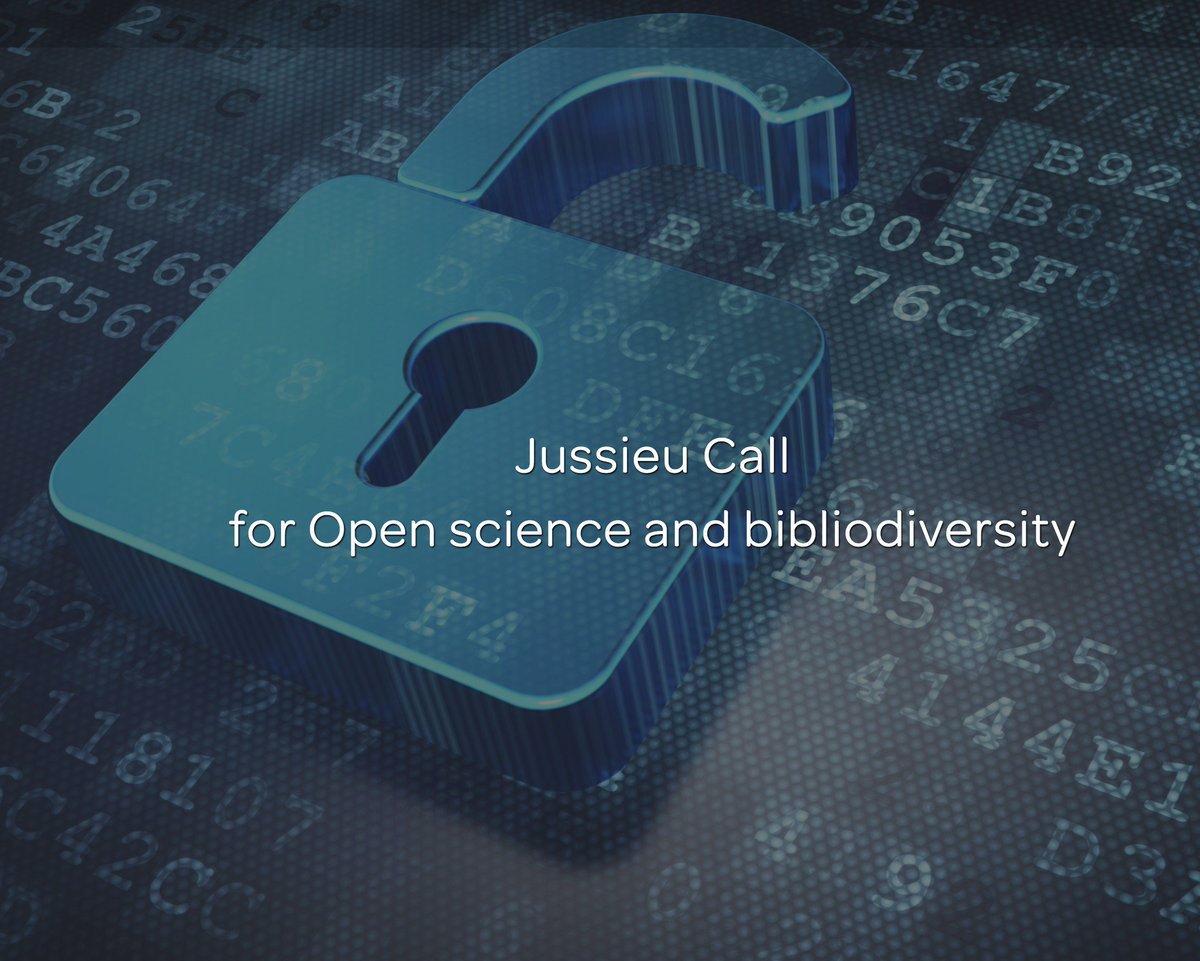
30 October 2017
Meet us at NIPS 2017: Long Beach on December 4–9, 2017
We will be attending the NIPS 2017, an interdisciplinary conference that brings together researchers in all aspects of neural and statistical information processing and computation, and their applications. It will be held at Long Beach on 4-9 December 2017, representing the following MDPI open access journals:
Entropy
Symmetry
Information
Games
Computation
Algorithms
Mathematics
Mathematical and Computational Applications (MCA)
Data
Systems
Robotics
Machines
Big Data and Cognitive Computing (BDCC)
Machine Learning and Knowledge Extraction (MAKE)
If you are also attending this conference, please feel free to stop by our booth (Booth #L102). Our delegates look forward to meeting you in person to answer any questions you may have. For more information about the conference, please visit: https://nips.cc/Conferences/2017.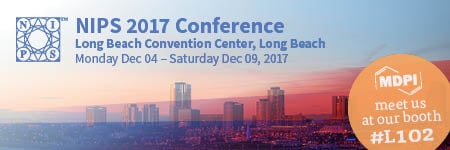
Conference Address
Long Beach Convention & Entertainment Center
300 E Ocean Blvd
Long Beach, CA 90802
USA
6 October 2017
Dr. Franck Vazquez, MDPI CEO, Interviewed by Scholarly Kitchen
The Society for Scholarly Publishing’s popular blog about topics in academic publishing, Scholarly Kitchen, recently interviewed MDPI’s CEO, Dr. Franck Vazquez. He shared some thoughts and information on the past and future of MDPI and open access publishing in general:
“In the long run, we aim to anchor MDPI in research communities. We recently developed and launched the preprint platform Preprints, revamped our free-to-use conference hosting platform Sciforum, and are working on other projects, such as Scilit, our bibliographic database.”
Read the full interview here.
19 September 2017
A Warm Welcome to the New IOAP Participants
We are delighted to have welcomed 24 new participants to our Institutional Open Access Programme (IOAP) since the beginning of September this year. These are University libraries and Research Institutions located around the world; from the USA and Canada to the UK, and from Norway and Spain to Greece. Well respected Universities, such as the University of Denver, the University of Colorado Boulder, and the University of Arizona in the US, have signed up, while their researchers can now benefit from a 10% discount on the Article Processing Charges (APC) for any papers they publish in MDPI journals, at no cost for the library or the University.
We are more than happy to see the Open Access movement growing stronger and wider every day and we appreciate the vital role which librarians, repository managers, and other scholarly communications professionals play in the field. Our communication with and service to this community is, therefore, one of our principal priorities. The IOAP is our way to support academic and scientific Institutions as well as their scholars in managing, administrating, and publishing research in an Open Access world.
The IOAP set of free services, provided by MDPI to institutions that sign up, include:
- No fee for participants and no obligation to prolong after the initial 12 months. The participants may withdraw from the programme at any time, and we will also keep it free for the library for as long as they continue in the programme.
- Authors affiliated with the university will receive a discount on the article processing charge (APC).
- The institution is granted free access to the MDPI submission system and can receive free alerts of new submissions to our journals.
- By default, authors from the institution will continue to be invoiced directly unless the institution opts for central billing.
- Auto-archiving of papers into the institutions´ repository as long as it supports SWORD 1.3.
More details about the programme and a list of our current participant institutions can be found at: https://www.mdpi.com/about/ioap
Institutions which are interested to participate may do so online at: https://www.mdpi.com/ioap-form
The full list of the Institutions that signed up in September is as follows:
- University of Denver, USA
- University of Colorado Boulder, USA
- University of Arizona, USA
- Institute of Metrology of Bosnia and Herzegovina, Bosnia and Herzegovina
- Middlebury College, USA
- Touro College, USA
- University of New Orleans, USA
- University of Leicester, UK
- Indiana University-Purdue University Indianapolis, USA
- University of Strathclyde, UK
- Cranfield University, UK
- Hope College, USA
- Oregon State University, USA
- Drew University, USA
- Swansea University, UK
- University of South Florida, USA
- University of Georgia, USA
- Arizona State University, USA
- University of Southern Mississippi, USA
- Université du Québec à Chicoutimi, Canada
- Grinnell College, USA
- Norwegian University of Science and Technology, Norway
- University of Patras, Greece
- Public University of Navarre, Spain
18 August 2017
Geosciences, Batteries, and Journal of Imaging added to the Emerging Sources Citation Index in Web of Science
We are pleased to announce that the journals Geosciences, Batteries and Journal of Imaging have been accepted for inclusion in the Emerging Sources Citation Index (ESCI) in the Web of Science Core Collection. The ESCI serves to highlight promising journals which are still under consideration for the Science Citation Index Expanded (SCIE) or the Social Sciences Citation Index (SSCI).
The Emerging Sources Citation Index (ESCI), Science Citation Index Expanded (SCIE), Social Sciences Citation Index (SSCI), and Web of Science™ (WoS) are Clarivate Analytics products.
23 June 2017
Congratulations for Publishing the 100,000th Peer-Reviewed Article
Congratulations to the authors Javier Monroy and Javier Gonzalez-Jimenez from Universidad de Malaga, Spain, Victor Hernandez-Bennets, Han Fan and Achim Lilienthal from Örebro University, Sweden for publishing the 100,000th peer-reviewed article.
The article is published in the Chemical Sensors section of Sensors.
GADEN: A 3D Gas Dispersion Simulator for Mobile Robot Olfaction in Realistic Environments
Evermore pressing environmental concerns have led global actors and decision-makers to search for stricter emission monitoring approaches. As part of novel monitoring systems, robots with gas and environmental sensors are a promising solution. However, validation of such robotic inspectors is expensive, time consuming, and plagued by repeatability issues. In this article, we present GADEN (the short form for Gas Dispersion Simulator for Mobile Robot Olfaction in Realistic Environments), which combines gas dispersion and robotics simulation in a common framework. Developed under the widely used Robot Operating System (ROS), GADEN enables validation of sensing strategies with gas dispersion being simulated using computational fluid dynamics and filament dispersion theory. GADEN allows simulating complex, realistic, 3D environments for reproducible testing of robotic gas sensing algorithms. Through qualitative and quantitative evaluations, we show that GADEN is a versatile and user-friendly evaluation tool and emphasize its enormous potential for the mobile robot olfaction community.
Read the full article here: https://www.mdpi.com/1424-8220/17/7/1479/htm
6 June 2017
CiteScore™ Metrics Released for Scopus Journals
The CiteScore, the new citation metric for journals covered in the Scopus® database, was released on 1 June 2017, reflecting the citation activity in 2016 for articles published during the three previous years. Please note that the list below does not contain all MDPI journals covered in Scopus. For the CiteScore to serve as a reliable metric at least three volumes of articles need to be indexed in Scopus; journals which have not met this criterion have been omitted here.
Ten MDPI journals received a CiteScore which is in the Top 10% of scores in at least one of the categories, while a further 21 journals exhibit scores that are in the first quartile of the respective categories.
CiteScore Data for MDPI Journals
| Journal | Rank | Category | Link | CiteScore 2016 | 2015 |
2014 |
| Algorithms | 44/112 (Q2) 49/111 (Q2) 19/42 (Q2) 52/113 (Q2) |
• Numerical Analysis • Computational Mathematics • Computational Theory and Mathematics • Theoretical Computer Science |
Link | 1.15 | 1.07 | 1.06 |
| Animals | 69/343 (Q1) 21/146 (Q1) |
• Animal Science and Zoology • General Veterinary |
Link | 1.46 | 1.66 | 0.74 |
| Biology | 13/92 (Q1) 34/81 (Q1) 10/75 (Q1) |
• General Agricultural and Biological Sciences • General Biochemistry, Gene- tics and Molecular Biology • General Immunology and Microbiology |
Link | 3.02 | 2.78 | 1.74 |
| Biomolecules | 234/382 (Q3) 260/353 (Q3) |
• Biochemistry • Molecular Biology |
Link | 1.67 | 3.08 | 1.00 |
| Biosensors | 36/118 (Q2) 209/2156 (Q1) |
• Clinical Biochemistry • General Medicine |
Link | 2.83 | 2.37 | 2.04 |
| Cancers | 29/196 (Q1) 27/321 (Q1) |
• Cancer Research • Oncology |
Link | 5.02 | 4.07 | 2.31 |
| Catalysts | 18/44 (Q2) 27/144 (Q1) |
• Catalysis • Physical and Theoretical Chemistry |
Link | 3.44 | 3.45 | 2.17 |
| Crystals | 70/270 (Q2) 25/64 (Q2) 118/398 (Q2) 131/424 (Q2) |
• General Chemical Engineering • Inorganic Chemistry • Condensed Matter Physics • General Materials Science |
Link | 1.89 | 1.47 | 1.03 |
| Diversity | 10/41 (Q1) 9/25 (Q2) 76/291 (Q2) 24/109 (Q1) |
• Agricultural and Biological Sciences (miscellaneous) • Ecological Modelling • Ecology • Nature and Landscape Conservation |
Link | 2.03 | 1.96 | 1.82 |
| Energies | - | - | Link | 2.50 | 2.87 | 2.66 |
| Entropy | 51/198 (Q2) | • General Physics and Astronomy | Link | 1.87 | 1.99 | 1.69 |
| Forests | 17/127 (Q1) | • Forestry | Link | 2.06 | 1.76 | 1.84 |
| Games | 204/398 (Q3) 83/181 (Q2) 48/105 (Q2) |
• Applied Mathematics • Statistics and Probability • Statistics, Probability and Uncertainty |
Link | 0.87 | 0.57 | 0.64 |
| Genes | 62/300 (Q1) 18/90 (Q1) |
• Genetics • Genetics (clinical) |
Link | 3.62 | 3.18 | 1.33 |
| Geosciences | 36/169 (Q1) |
• General Earth and Planetary Sciences | Link | 1.67 | 1.29 | 1.13 |
| Information | 156/237 (Q3) | • Information Systems | Link | 0.78 | 0.94 | 0.74 |
| Insects | 28/131 (Q1) | • Insect Science | Link | 1.81 | 1.38 | 1.23 |
| International Journal of Environmental Research and Public Health (IJERPH) | 67/446 (Q1) 31/102 (Q2) |
• Public Health, Environmental and Occupational Health • Health, Toxicology and Mutagenesis |
Link | 2.38 | 2.42 | 2.47 |
| International Journal of Molecular Sciences (IJMS) | 23/157 (Q1) 8/64 (Q1) 90/353 (Q1) 22/144 (Q1) 16/44 (Q1) 8/62 (Q1) |
• Organic Chemistry • Inorganic Chemistry • Molecular Biology • Physical and Theoretical Chemistry • Catalysis • Spectroscopy |
Link | 3.73 | 3.37 | 3.06 |
| ISPRS International Journal of Geo-Information | 12/29 (Q2) 28/79 (Q2) 96/587 (Q1) |
• Computers in Earth Sciences • Earth and Planetary Sciences (miscellaneous) • Geography, Planning and Development |
Link | 1.62 | 1.52 | - |
| Journal of Low Power Electronic Applications (JLPEA) | 301/645 (Q2) | • Electrical and Electronic Engineering | Link | 0.98 | 0.83 | 0.83 |
| Life | 65/525 (Q1) 36/186 (Q1) 5/92 (Q1) 20/80 (Q2) |
• Ecology, Evolution, Behavior and Systematics • General Biochemistry, Gene- tics and Molecular Biology • Palaeontology • Space and Planetary Science |
Link | 2.95 | 1.68 | 1.20 |
| Marine Drugs | 18/145 (Q1) | • Drug Discovery | Link | 3.83 | 3.66 | 3.59 |
| Materials | 63/424 (Q1) | • General Materials Science | Link | 3.26 | 3.11 | 2.69 |
| Membranes | 103/424 (Q1) | • Materials Science | Link | 2.19 | 2.95 | 2.42 |
| Micromachines | 173/645 (Q2) 69/211 (Q2) 113/526 (Q1) |
• Electrical and Electronic Engineering • Control and Systems Engineering • Mechanical Engineering |
Link | 1.83 | 1.78 | 2.10 |
| Minerals | 45/206 (Q1) 29/167 (Q1) |
• Geology • Geotechnical Engineering and Engineering Geology |
Link | 2.13 | 1.77 | - |
| Molecules | 32/157 (Q1) | • Organic Chemistry | Link | 3.09 | 2.65 | 2.62 |
| Nutrients | 12/247 (Q1) | • Food Science | Link | 4.29 | 4.07 | 3.78 |
| Pharmaceuticals | 8/168 (Q1) 21/158 (Q1) |
• Pharmaceutical Science • Molecular Medicine |
Link | 4.90 | 3.64 | 1.92 |
| Pharmaceutics | 19/168 (Q1) | • Pharmaceutical Science | Link | 3.83 | 2.68 | 2.46 |
| Polymers | 13/138 (Q1) 44/354 (Q1) |
• Polymers and Plastics • General Chemistry |
Link | 3.74 | 3.37 | 4.10 |
| Remote Sensing | 13/169 (Q1) | • General Earth and Planetary Sciences | Link | 3.56 | 3.76 | 3.23 |
| Sensors | 25/96 (Q2) 25/159 (Q1) 124/382 (Q2) 103/645 (Q1) |
• Analytical Chemistry • Atomic and Molecular Physics, and Optics • Biochemistry • Electrical and Electronic Engineering |
Link | 2.78 | 2.21 | 2.40 |
| Sustainability | 49/129 (Q2) 68/587 (Q1) 56/236 (Q1) |
• Renewable Energy, Sustai-nability and the Environment • Geography, Planning and Development • Management, Monitoring, Policy and Law |
Link | 1.96 | 1.78 | 1.52 |
| Symmetry | 17/42 (Q2) 49/111 (Q2) |
• Numerical Analysis • Computational Mathematics |
Link | 1.12 | 0.95 | 1.02 |
| Toxins | 16/102 (Q1) 16/108 (Q1) |
• Health, Toxicology and Mutagenesis • Toxicology |
Link | 3.34 | 3.76 | 2.85 |
| Vaccines | 146/184 (Q4) 151/250 (Q3) 93/145 (Q3) 186/299 (Q3) 130/232 (Q3) |
• Immunology • Infectious Diseases • Drug Discovery • Pharmacology • Pharmacology (medical) |
Link | 1.23 | 3.76 | 2.85 |
| Viruses | 15/68 (Q1) 34/250 (Q1) |
• Virology • Infectious Diseases |
Link | 3.60 | 3.74 | 3.80 |
| Water | 33/184 (Q1) 48/195 (Q1) 62/587 (Q1) 198/382 (Q3) |
• Water Science and Technology • Aquatic Science • Geography, Planning and Development • Biochemistry |
Link | 2.05 | 1.96 | 1.45 |
17 May 2017
Three New Institutional Memberships Established
We are pleased to announce that the Goethe University of Frankfurt, the Technical University of Hamburg (TU Hamburg-Harburg), as well as the Humboldt University of Berlin, in Germany, have joined MDPI's institutional membership program: Primary authors from these instititions will benefit from a 10% discount on the article processing charges.
Additional details can be found on our institutional membership page.
4 May 2017
MDPI Supports the Initiative for Open Citations (I4OC)
As an open access publisher, we are keen to support openness and transparency in the research process. Citation data is very important for assessing the value of individual papers and the contribution of researchers. As such, we support the recently launched Initiative for Open Citations (I4OC). The initiative recognizes that citations should be freely available and machine-readable. By doing so, authors gain the maximum benefit from having their work cited.
MDPI now uploads citation data with metadata uploaded to Crossref when registering digital object identifiers (DOIs) for published papers. We are delighted to take this step to support a truly open research environment.
2 May 2017
Publons Peer Review Academy Goes Live
Getting high quality review reports is critical for any journal’s editorial process. At MDPI we have put in place several measures to motivate reviewers and reward them for their work. We are proud of the quality of reviewer reports we receive and grateful for the hours put in by active researchers from across the globe.
Reviewers of MDPI’s largest journals can get recognition via Publons, a website dedicated to rewarding peer reviewers. They have now taken this one step further and launched the Publons Reviewer Academy to help train reviewers to provide useful feedback. Through the academy, researchers can be trained and tutored in various aspects of how to provide structured feedback that will be of genuine help to editors and authors. We support this initiative and recommend it to potential MDPI reviewers, especially early career researchers. See the Publons announcement for further information.
More information on reviewing for MDPI, including how to volunteer as a reviewer, can be found here.
24 April 2017
Two New Institutional Memberships Established
We are pleased to announce that the following universities have joined MDPI's institutional membership program: Trinity University, San Antonio, Texas, USA and the University of New South Wales (UNSW), Sydney, Australia. Primary authors from these instititions will benefit from a 10% discount on the article processing charges.
Additional details can be found on our institutional membership page.
30 March 2017
Credit for Preprints Comments via Publons
Preprints.org is a platform run by MDPI that allows authors to make early versions of manuscripts available before peer review has been completed.
One of the major benefits of putting a preprint online is to get feedback before journal submission. Until now, however, the feedback has been on a voluntary basis. Preprints is delighted to be the first preprint server to collaborate with Publons to acknowledge substantial comments as reviews and give commentators the opportunity to receive credit for their efforts.
When you add a comment to any article, there is a check box to click for it to appear on Publons. If you have already linked your account it will be passed on automatically. If you don't already have a Publons account, you will be contacted soon afterwards with instructions on how to create one.
We appreciate the enthusiasm and cooperation of Publons in this project and expect it to be of great benefit to authors and commenters alike.
20 March 2017
MDPI 2016 Annual Report Released
We are pleased to announce that our annual report for the year 2016 has now been published.
It contains information regarding company and journal performance, conferences and other publishing services that we provided throughout 2016.
To read the report in full or download a copy, please click here.
16 March 2017
Meet MDPI at the 253rd American Chemical Society National Meeting & Exposition
MDPI will be attending the 253rd American Chemical Society National Meeting & Exposition, which takes place 2–6 April 2017, representing the following open access journals:
Molecules
Materials
Energies
Nanomaterials
Catalysts
Applied Sciences
Batteries
Coatings
Metals
Magnetochemistry
Marine Drugs
Processes
Pharmaceuticals
Symmetry
If you are planning to attend, please visit our booth (Number 1618) to talk to our delegates about our journals and open access publishing. Also feel free to attend our ‘Meet and Greet’ session at 12:30pm on 3 April with Dr. Derek J. McPhee, the Editor-in-Chief of our journal Molecules. Food and refreshments will be provided.
Conference address:
MDPI - Booth 1618
253rd American Chemical Society National Meeting & Exposition
The Moscone Center, 747 Howard Street
San Francisco, CA 94103
USA
15 March 2017
Our 100,000th Article Could be Yours!
After the 20th anniversary of MDPI in 2016, we will reach another milestone this year and will publish the 100,000th peer-reviewed article in one of our 170+ open access journals.
We would like you to be part of this great achievement and so are offering to publish the 100,000th accepted paper free of charge.
To be in with a chance, select a journal in one of our 10 scientific subject areas and submit your paper.
Access the live tracker on published articles here.
![]()
3 March 2017
1000 Preprints Online
We are delighted that Preprints now has 1000 papers online since its launch on 3 May 2016.
For more information, see the editorial here.
9 February 2017
Minister and State Secretaries Visit MDPI Office at STP, Belgrade, Serbia
Earlier this week the Science Technology Park in Belgrade, Serbia was visited by Swiss Secretary of State Dr. Mauro Dell’Ambrogio, as well as Serbian Minister of Public Administration and Local Self-Government Ana Brnabic, State Secretary Dr. Vladimir Popovic and Mayor of Belgrade Mr. Siniša Mali.
During the visit to the STP they had a short presentation from MDPI’s CEO Dr. Franck Vazquez and IT Manager Mr. Miloš Čučulović, and further discussed important issues such as Open Access and Open education. Dr. Dell'Ambrogio said he was impressed with the potential for development and ideas for business.
For more information please see:
http://bit.ly/2kpIu7k and http://bit.ly/2kpUQfz
7 February 2017
The 6th World Sustainability Forum: Final Press Release
Basel, 29 January 2017
The 6th World Sustainability Forum #WSF2017SA: African universities critical to achieving the Sustainable Development Goals
Jeffrey and Sonia Sachs win first World Sustainability Award.
Universities need to take the lead in solving the greatest challenges the world faces today, particularly in Africa. They need to do this not only through education – teaching the next generation to think critically and creatively to find sustainable solutions – but also through research that cuts across a range of disciplines. To ensure these solutions are implemented, they need to partner with the private sector and with government.
This was the key message from the 6th World Sustainability Forum (WSF2017), which took place in Cape Town on 27 and 28 January 2017. Sponsored by MDPI and the journal Sustainability under the patronage of the Universities of the Western Cape (UWC), Cape Town (UCT), University of Basel and the National Research Foundation (NRF) of South Africa, the conference was attended by key national and international speakers, including world-leading economist Professor Jeffrey D. Sachs, senior United Nations (UN) advisor and director of the Earth Institute at Columbia University.
The WSF is an annual sustainability conference which addresses research in a range of areas related to sustainable development and sustainability globally. This was the first WSF to take place on the African continent. Discussions at the 2017 conference were driven by the 17 sustainable development goals (SDGs) adopted as part of the 2030 Agenda for Sustainable Development by the UN in September 2015.
Achieving the SDGs “is the moonshot for our generation,” said Sachs. “Like the moonshot [moon landing] of the 1960s, these are tough, bold and achievable objectives.”
“This is a nasty, tough world we live in, and our world agrees on very little. So when 193 governments agree on something, that is important. And when they agree on something as important as sustainable development, that is really something for us to grab hold of – that is a lifeline.”
There was agreement at the WSF that the SDGs are particularly important for Africa, and that African universities in particular have a role to play in achieving them.
Said Professor Tyrone Pretorius, vice-chancellor of UWC: “The quest for sustainable development can only be met through education. Universities today are the oil that fuels the knowledge economy.”
As part of the drive to develop academic capacity to provide the knowledge needed to meet the SDGs, WSF2017 was preceded by the 1st Postgraduate Forum on Sustainability. “A series of workshops for postgraduate education linked to WSF are important, in order to equip postgraduates with the skills necessary to promote sustainability,” said Professor Thandi Mgwebi, director for research at UWC. A second postgraduate forum will take place alongside the WSF2018 in Beijing.
This capacity development is particularly critical to Africa. Said Sachs: “African universities need to do research to find solutions to Africa’s development challenges, because no other university will.”
The UN set a target of achieving the SDGs by 2030: “I regard this as the breakthrough period to end extreme poverty on the continent,” said Sachs, “and for Africa to become one of the most dynamic centres of the world economy.”
It is a critical time for South African universities, said Professor Mamokgethi Phakeng, deputy vice-chancellor for research and internationalisation at UCT: “Higher education is at a crossroads, and there is much polarisation. We need to think carefully about how this sustainable development agenda is owned by all so that it is inclusionary.”
There was also strong emphasis on public–private partnerships – for universities, business and government to work together to achieve the goals.
Said Professor Francis Petersen, deputy vice-chancellor at UCT and vice-chancellor designate at the University of the Free State: “Business sustainability has become critical, because there is increasing demand and complexity of demand on business from the natural, social and economic environment. Sustainability cannot be a standalone issue, divorced from business as usual. Sustainability needs to be embedded into business.”
Environmental crises and climate change was also high on the WSF agenda. In his keynote address, Sachs noted the irreversibility of the climate- and environmental-related challenges.
“If we don’t get our act together, we lose the chance of safety,” he said.
Said Professor Mark New, pro vice-chancellor and director of the African Climate and Development Initiative at UCT: “We have a fundamental challenge in responding to climate change, and we must go further than just putting a plaster on a wound. We need to address the deep structural issues, to move from our current model of development into climate-compatible development.”
“This requires researchers to find the evidence for the correct development pathways to take, and then support the ability of policymakers at all levels to enable the shift to climate-compatible development planning.”
Said Dr. Aldo Stroebel, executive director of international relations and cooperation at the NRF, in closing: “We have seen over the past two days an urgency towards the next step of thinking, that critical type of framework that we all must engage with, not only from an academic perspective, but further up into the policy environment and into rural-based environments where one can clearly see the links and effectiveness of the work.”
World Sustainability Awards
The first World Sustainability Award and the first Emerging Sustainability Leader Awards were presented by Prof. Thandi Mgwebi, Director of Research at UWC, and Dr. Franck Vazquez, CEO of MDPI, during the ceremony on 27 January 2017 as part of the gala dinner of the 6th World Sustainability Forum in South Africa.after day one of proceedings of the 2017 World Sustainability Forum South Africa.
Professor Jeffrey D. Sachs and Dr. Sonia Ehrlich Sachs are the joint recipients of the first World Sustainability Award. Jeffrey Sachs is a world-renowned economist and senior United Nations (UN) advisor and director of the Earth Institute at Columbia University. Sonia Sachs is a paediatrician and public health specialist, and director of the Health Centre at the Centre for Sustainable Development, also at Columbia University.
The joint recipients of the first Emerging Sustainability Leader Award are Dr. Esther Ngumbi and Dr. Xiaosong Hu. Esther Ngumbi is a postdoctoral researcher at Auburn University in Alabama USA and serves as a 2015 Clinton Global University Mentor for agriculture. Xiaosong Hu is a professor at the Chongqing University in China and specialises in automotive control systems and mechanical engineering.
The World Sustainability Award and the Emerging Sustainability Leader Awards are funded to encourage new initiatives and developments in sustainability with the ultimate aim of fostering the transition to sustainable practices and societies.
The World Sustainability Award is funded by the MDPI Sustainability Foundation, and included a monetary prize of USD 100,000 to Jeffrey and Sonia Sachs. The Emerging Sustainability Leader Award is funded by the journal Sustainability, awarded to researchers under 40, and included a monetary prize of USD10,000.
Issued jointly by: UCT Global Strategy and Visibility, Research Office, UWC Communications & Media and MDPI AG
Conference photos are free available at: https://sciforum.net/conference/wsf-6/page/175 Photo credit: Matthias Burkhalter
|
Carla Bernardo |
Luthando Tyhalibongo |
Matthias Burkhalter |
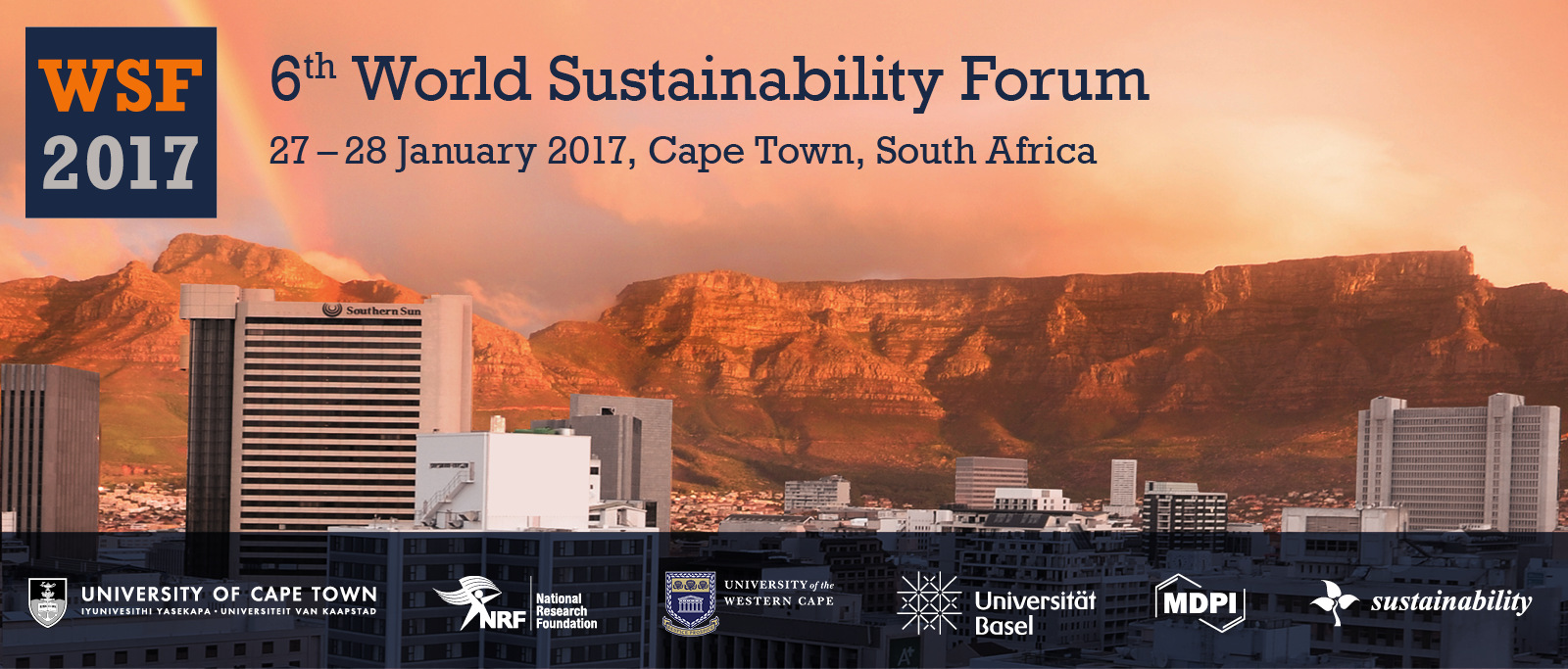
31 January 2017
Three New Institutional Memberships Established
We are pleased to announce that the Chalmers University of Technology, Sweden, the University of Manitoba, Canada and the Technical University of Cartagena, Spain, have joined MDPI's institutional membership program: Primary authors from these institutions will benefit from a 10% discount on the article processing charges.
Additional details can be found on our institutional membership page.
27 January 2017
6th World Sustainability Forum under way in South Africa
The 6th World Sustainability Forum is currently being held at the Cape Sun Hotel until 28 January 2017.
The Forum will showcase the work of internationally renowned researchers and include more than 150 presentations. During the conference dinner, the World Sustainability Award, associated with a US$ 100,000 prize, will be announced, as well as the Emerging Sustainability Leader Award, associated with a US$ 10,000 prize. The prizes are sponsored by the MDPI Sustainability Foundation and Sustainability, an academic open access journal by MDPI.
Here are some pictures from the forum so far:
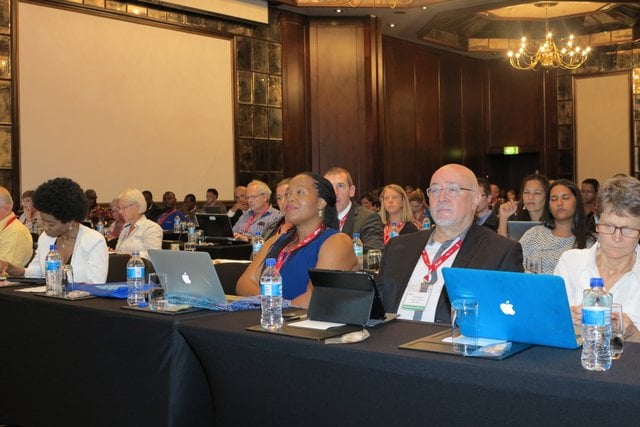
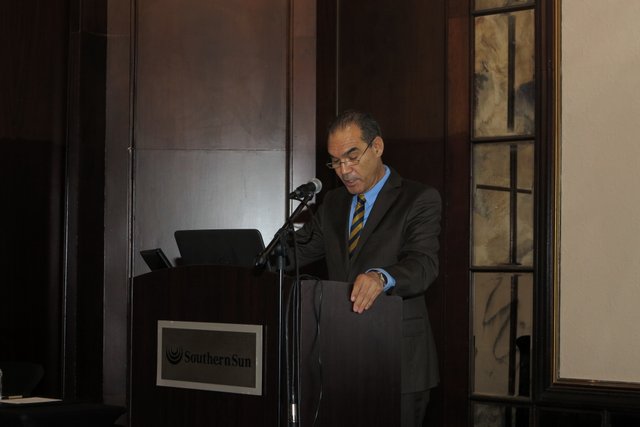
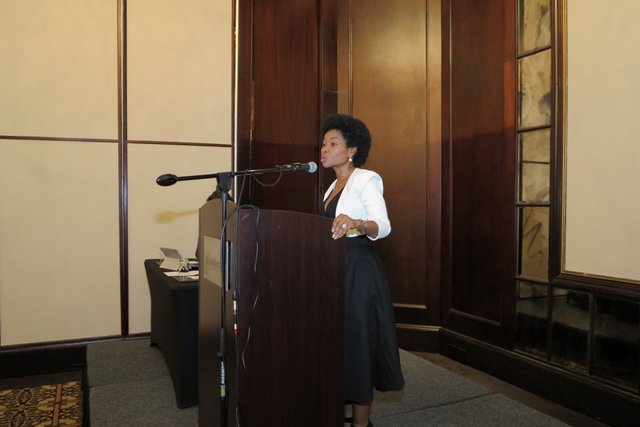
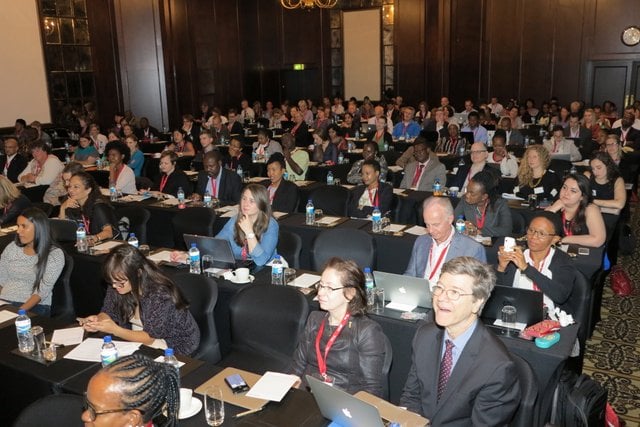
To see the full WSF2017 program and schedule, please see here: https://sciforum.net/conference/wsf-6/page/schedule
19 January 2017
Cape Town to Host the 6th World Sustainability Forum
Cape Town will host the 6th World Sustainability Forum at the Cape Sun Hotel on 27 and 28 January 2017. This prominent event, held for the first time in Africa, will include many illustrious South African and international experts, such as Her Excellency Graça Machel (Sustainable Development Advocate for the United Nations, Mozambique), Joyene Isaacs (HoD Agriculture Western Cape Government), Jeffrey Sachs (Columbia University, USA), Max Bergman (SRaM, University of Basel), Mark New (Pro Vice-Chancellor, University of Cape Town), Frans Swanepoel (FutureAfrica, University of Pretoria) and Francis Petersen (Vice-Chancellor-designate, University of the Free State). The Forum will provide a stage for national and international debates on sustainability in South Africa, the African continent, and about international perspectives on sustainability. It brings together researchers and representatives from government and the business sector to discuss a wide-ranging set of issues associated with sustainability, including food security, water and energy scarcity, mining, poverty reduction, climate change, and urbanisation.
The next few decades will be marked by profound changes in the relationships between global economics, national societies, and the environment. We have entered what some call the Anthropocene, an age in which human activity dominates the climate and the environment. These changes will have numerous consequences on societies around the globe. South Africa and Africa will play a central role, for better or worse, in creating opportunities and risks during these changing times as Africa is profoundly influencing and being influenced by global developments.
The adoption of the 17 United Nations Sustainable Development Goals and the 2030 Agenda for Sustainable Development in September 2015 was accompanied by what insiders considered an optimism they have not experienced in relation to UN resolutions before. The relative efficiency in the drafting, the lack of trenches between East and West, or between North and South, and the unanimity of support of the 193 countries speak volumes. In stark contrast, sustainability seems to go against a changing economic and political tide, where waves of nationalism and protectionism from some of the most powerful countries risk the wellbeing of the rest of the world. The 6th World Sustainability Forum will enable fruitful exchanges, which sensitise South African and international communities to the global urgency and specifics of sustainability.
The Forum will showcase the work of internationally renowned researchers and include more than 150 presentations. During the conference dinner, the World Sustainability Award, associated with a US$ 100 000 prize, will be announced, as well as the Emerging Sustainability Leader Award, associated with a US$ 10 000 prize. The prizes are sponsored by the MDPI Sustainability Foundation and Sustainability, an academic open access journal by MDPI. The World Sustainability Forum is preceded by the Postgraduate Forum on Sustainability, which will introduce more than 100 young scholars from South Africa and the African continent to sustainability research. Both events are organized and sponsored by the University of Cape Town, the University of the Western Cape, the University of Basel, MDPI, and by the National Research Foundation of South Africa.
Contacts:
Scientific Matters: Prof Manfred Max Bergman, Social Research and Methodology Group (SRaM), University of Basel, Switzerland; Email: [email protected]
Press Accreditation and General Enquiries: Mr Matthias Burkhalter, MDPI AG, Basel, Switzerland; Email: [email protected]; Tel. +41 61 683 77 34
Follow us on Twitter
#WSF2017SA
6 January 2017
MDPI Supports the OA2020 Initiative
MDPI is now a proud supporter of the OA2020 Initiative.
Open Access 2020 is an international initiative that aims to induce the swift, smooth and scholarly-oriented transformation of today’s scholarly journals from subscription to open access publishing.
MDPI is participating in the upcoming Berlin13 conference in March 2017, where we are contributing to the initiative by aiding in the design of the roadmap which will make OA the default publishing model.
For more information please see here.
5 January 2017
Three New Institutional Memberships Established
We are pleased to announce that the University of Texas at Arlington, USA, the Harbin Institute of Technology, China and TU Darmstadt, Germany, have joined MDPI's institutional membership program: Primary authors from these institutions will benefit from a 10% discount on the article processing charges.
Additional details can be found on our institutional membership page.
22 December 2016
Two New Institutional Memberships Established
We are pleased to announce that the Otto-von-Guericke-Universität Magdeburg, Germany and the University of California, Berkeley, USA, have joined MDPI's institutional membership program: Primary authors from these instititions will benefit from a 10% discount on the article processing charges.
Additional details can be found on our institutional membership page.
19 December 2016
MDPI and Wellcome Trust Compliance
The Wellcome Trust has, for a number of years, required that the results of its funded projects are published in open access format. Recently it announced criteria that publishers must fulfil for publication fees to be paid by the Trust. MDPI is pleased to have been added to the list of compliant publishers.
Only publishers who have confirmed their compliance by 16 December 2016 will be eligible to receive payment of APCs by the Wellcome Trust as of 1 April 2017. For more information on the criteria and a full list of publishers that meet them, see here.
13 December 2016
Meet MDPI at the 2016 AGU Fall Meeting
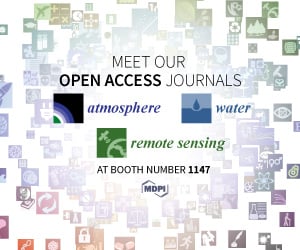 MDPI is currently attending the 2016 AGU Fall Meeting (12–16 December, 2016)
MDPI is currently attending the 2016 AGU Fall Meeting (12–16 December, 2016)
If you are also attending the conference, please feel free to stop by our booth (Booth #1147) and meet the representative editors.
Conference details:
2016 AGU Fall Meeting
12–16 December 2016
Moscone Center
747 Howard St
San Francisco, CA 94103, USA
8 December 2016
Three New Institutional Memberships Established
We are pleased to announce that Purdue University, USA, the Universitat Politécnica de Valencia, Spain and the Queensland University of Technology, Australia, have joined MDPI's institutional membership program: Primary authors from these instititions will benefit from a 10% discount on the article processing charges.
Additional details can be found on our institutional membership page.
16 November 2016
World Sustainability Award - Final Extension
The deadline for the World Sustainability Award has been extended for one last time! You now have one more month to nominate an individual researcher, group or project! The final deadline for nominations will be December 15, 2016.
For full details, please visit here.
11 November 2016
Three New Institutional Memberships Established
We are pleased to announce that the University of Minnesota, USA, the Universidad Politécnica de Madrid, Spain and Shanghai Jiao Tong University, China, have joined MDPI's institutional membership program: Primary authors from these instititions will benefit from a 10% discount on the article processing charges.
Additional details can be found on our institutional membership page.
4 November 2016
MDPI Joins the United Nations Global Compact
MDPI has become a member of the United Nations Global Compact to support corporate sustainability and have committed ourselves to the ten principles associated with the Compact.
Sustainability has always been at the core of MDPI’s values, starting with the collection and preservation of rare chemical samples that started in 1996 and led to the first journal, Molecules. Sustainability has become one of our flagship journals and we have supported and organized several conferences and events based on Sustainability, including the upcoming 6th World Sustainability Forum. As a global enterprise, we see it as our duty to promote responsible practices that will ensure a bright future for our planet. Given this, the choice to join the Global Compact was an easy one and we will do our utmost to fully implement it.
3 November 2016
MDPI Now a Member of SPARC Europe
We are delighted to announce that MDPI has become a member of SPARC Europe, an organization that works for open scholarship in Europe, including support of open access publication.
As one of the few publishers to join SPARC Europe to date, MDPI looks forward to making a contribution that puts open scholarship on a positive and sustainable path. We fully support the goals of open scholarship that allow the largest number of people possible to benefit from work of researchers in all disciplines. We hope that our membership will enable us to work with other stakeholders to find the best possible solution.
2 November 2016
World Sustainability Award Deadline Extension
The deadline for the World Sustainability Award has been extended! You now have until November 15, 2016 to nominate an individual researcher, group or project!
For full details, please visit here.
26 October 2016
Four New Institutional Memberships Established
We are pleased to announce that the Wuppertal Institut, Germany, the University of Girona, Spain and Central South University and Huazhong University of Science and Technology, China, have joined MDPI's institutional membership program: Primary authors from these instititions will benefit from a 10% discount on the article processing charges.
Additional details can be found on our institutional membership page.
24 October 2016
International Open Access Week 2016
Meet us during International Open Access Week 2016! We will be presenting at various locations in Europe and China.
To get involved and for full details see the complete list of events organised by MDPI here.
18 October 2016
Institutional Membership established with Universitat Pompeu Fabra, Spain and Aalto University, Finland
We are pleased to announce that the Universitat Pompeu Fabra, Spain and Aalto University, Finland, have joined MDPI's institutional membership program: Primary authors from these universities will benefit from a 10% discount on the article processing charges.
Additional details can be found on our institutional membership page.
12 October 2016
Institutional Membership Established with Iowa State University and the University of North Texas, USA
We are pleased to announce that the Iowa State University and the University of North Texas, USA, have joined MDPI's institutional membership program: Primary authors from these universities will benefit from a 10% discount on the article processing charges.
Additional details can be found on our institutional membership page.
7 October 2016
MDPI at Open Access Days in Munich, 10-11 October 2016
Meet MDPI during the Open Access Days held from 10-11 October 2016 at Ludwig Maximilian University of Munich, Germany.
The two-day event will feature experts from the open access sector, scientists from all disciplines, publishing representatives and supporters of scientific research and communication from libraries as well as research institutes and funding institutions. Join us!
For more information about the event and to see the program, visit the event webpage.
7 October 2016
Institutional Membership Established with the University of Sevilla and the University of Alicante, Spain
We are pleased to announce that the University of Sevilla and the University of Alicante, Spain have joined MDPI's institutional membership program: Primary authors from these universities will benefit from a 10% discount on the article processing charges.
Additional details can be found on our institutional membership page.
29 September 2016
Institutional Membership Established with the University of Delaware
We are pleased to announce that the University of Delaware, USA, has joined MDPI's institutional membership program: Primary authors from this university will benefit from a 10% discount on the article processing charges.
Additional details can be found on our institutional membership page.
19 September 2016
Peer Review Week 2016
As an open access publisher indebted to the work of our peer reviewers, we are proud to support Peer Review Week 2016. As part of the week's activities and to celebrate this year's theme "Recognition for Review", MDPI will host two webinars that anyone can join.
These webinars will explore the role and value of reviewers and the recognition they receive from a publishers perspective, with examples from MDPI's experience in publishing nearly 80,000 peer reviewed papers, along with evidence from reviewer surveys. It will also touch upon potential changes in how review is carried out and tips for early career researchers who want to be involved in the review process.
Details and links to join can be found below:
Wednesday September 21, 08:00 (CEST)
Friday September 23, 16:00 (CEST)
For more information about all the activites taking place, please visit the Peer Review Week website.
6 September 2016
Institutional Membership established with Kansas State University and Northwestern University, USA
We are pleased to announce that Kansas State University and Northwestern Universty, USE, have joined MDPI's institutional membership program: Primary authors from these universities will benefit from a 10% discount on the article processing charges.
Additional details can be found on our institutional membership page.
5 September 2016
Institutional Membership Established with University College Cork
We are pleased to announce that University College Cork, Ireland, has joined MDPI's institutional membership program: Primary authors from this university will benefit from a 10% discount on the article processing charges.
Additional details can be found on our institutional membership page.
22 August 2016
MDPI New Office Location
We are pleased to announce that MDPI has now moved to a new permanent address:
MDPI AG
St. Alban Anlage 66
CH-4052 Basel
Postfach, CH-4020 Basel
Switzerland
Telephone and fax numbers remain unchanged.
10 August 2016
Institutional Membership established with the University of Texas at Austin, USA, the Wroclaw University of Science and Technology, Poland and the University of Granada and the Compultense University of Madrid, Spain
We are pleased to announce that the following institutions have joined MDPI's institutional membership program in August 2016:
- University of Texas at Austin, USA
- Wroclaw University of Science and Technology, Poland
- University of Granada, Spain
- Compultense University of Madrid, Spain
Authors affiliated with these institutions will benefit from a 10% discount on the article processing charges.
Additional details can be found on our institutional membership page.
18 July 2016
Institutional Membership established with Louisiana State University and Florida State University, USA, Royal College of Surgeons, Ireland, University of Rostock, Germany, AGH University of Science and Technology, Poland and Southeast University, China
We are pleased to announce that the following institutions have joined MDPI's institutional membership program in July 2016:
- Louisiana State University, USA
- Florida State University, USA
- Royal College of Surgeons, Ireland
- University of Rostock, Germany
- AGH University of Science and Technology, Poland
- Southeast University, China
Authors affiliated with these institutions will benefit from a 10% discount on the article processing charges.
Additional details can be found on our institutional membership page.
12 July 2016
MDPI Moving to New Office Location in Basel (Switzerland) in August 2016
As of 20 August 2016, MDPI's new address in Basel will be:
MDPI AG
St. Alban-Anlage 66
CH-4052 Basel
Switzerland
Telephone and fax numbers remain unchanged.
St. Alban-Anlage 66 was built from 1947 to 1948 and initially the home of the "Bühler AG", a book printing business.
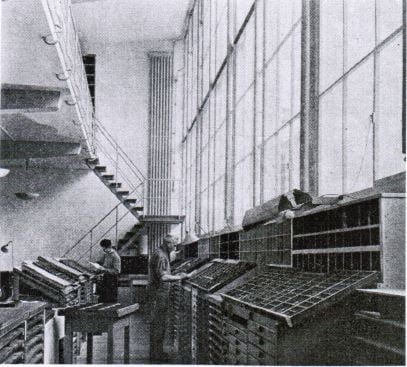
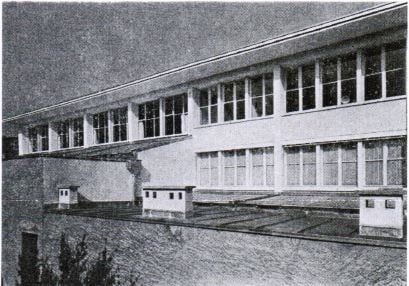
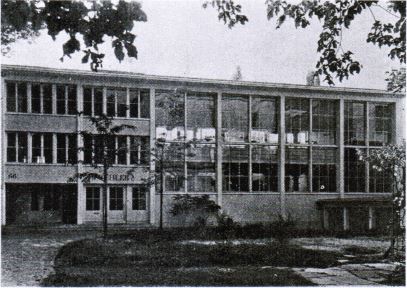
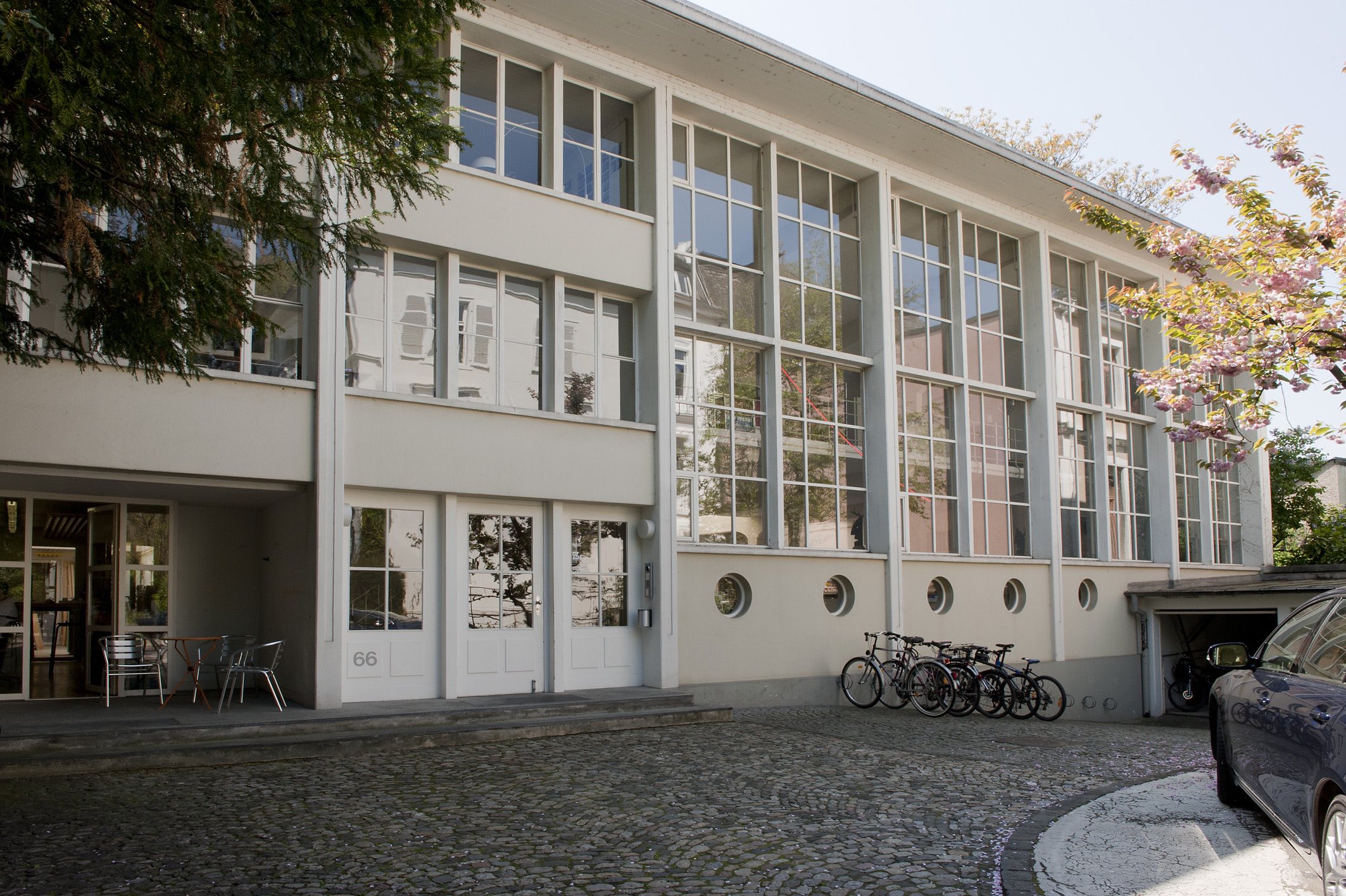
For more information about this building, see: https://www.mdpi.com/about/headquarters
21 June 2016
"Behind the Scenes of Academic Publishing—A Publisher's Perspective" - MDPI's Lecture at the University of Basel
From the 15-16 September, 2016, MDPI will run a course on Academic Publishing at the University of Basel.
In this two day workshop, MDPI will look in detail at the role performed by academic journal publishers and how they interact with academics. Ethical dimensions, what happens when problems occur and how the publisher coordinates all aspects of the submission process will also be covered.
For more detailed information about the program, trainers and registration please visit the course webpage.
14 June 2016
2015 Impact Factors Released
We are pleased to report the 2015 Journal Impact Factors in the latest Journal Citation Reports® Science Edition, published by Thomson Reuters in June 2016. Twenty out of 25 journals have seen an increase in their Impact Factor and two journals (Crystals and IJGI) received a first Impact Factor. Coatings was recently added to SCIE and will receive its first Impact Factor in next year’s JCR.
Updated Impact Factors for Journals in the Science Citation Index Expanded (SCIE)
| Journal | 2015 Impact Factor | Details | Category Rank |
| Applied Sciences | 1.726 | Link | 83/163 (Q3) in ‘Chemistry, Multidisciplinary’; 129/271 (Q2) in ‘Materials Science, Multidisciplinary’; 64/145 (Q2) in ‘Physics, Applied’ |
| Atmosphere | 1.221 | Link | 66/84 (Q4) in ‘Meteorology & Atmospheric Sciences’ |
| Catalysts | 2.964 | Link | 53/144 (Q2) in ‘Chemistry, Physical’ |
| Energies | 2.077 | Link | 43/88 (Q2) in ‘Energy & Fuels’ |
| Entropy | 1.743 | Link | 25/79 (Q2) in ‘Physics, Multidisciplinary’ |
| Forests | 1.583 | Link | 19/66 (Q2) in ‘Forestry’ |
| Genes | 3.242 | Link | 60/165 (Q2) in ‘Genetics & Heredity’ |
| International Journal of Environmental Research and Public Health (IJERPH) | 2.035 | Link | 101/225 (Q2) in ‘Environmental Sciences’ |
| International Journal of Molecular Sciences (IJMS) | 3.257 | Link | 110/289 (Q2) in ‘Biochemistry & Molecular Biology’; 51/163 (Q2) in ‘Chemistry, Multidisciplinary’ |
| Marine Drugs | 3.345 | Link | 13/59 (Q1) in ‘Chemistry, Medicinal’ |
| Materials | 2.728 | Link | 63/271 (Q1) in ‘Materials Science, Multidisciplinary’ |
| Metals | 1.574 | Link | 18/73 (Q1) in ‘Metallurgy & Metallurgical Engineering’; 145/271 (Q3) in ‘Materials Science, Multidisciplinary’ |
| Micromachines | 1.295 | Link | 30/56 (Q3) in ‘Instruments & Instrumentation’ 63/83 (Q4) in ‘Nanoscience & Nanotechnology’ |
| Minerals | 1.468 | Link | 9/21 (Q2) in ‘Mining & Mineral Processing; 14/29 (Q2) in ‘Mineralogy’ |
| Molecules | 2.465 | Link | 24/59 (Q2) in ‘Chemistry, Organic’ |
| Nanomaterials | 2.690 | Link | 64/271 (Q1) in ‘Materials Science, Multidisciplinary’; 36/83 (Q2) in ‘Nanoscience & Nanotechnology’ |
| Nutrients | 3.759 | Link | 16/78 (Q1) in ‘Nutrition & Dietetics’ |
| Polymers | 2.944 | Link | 20/85 (Q1) in ‘Polymer Science’ |
| Remote Sensing | 3.036 | Link | 5/28 (Q1) in ‘Remote Sensing’ |
| Sensors | 2.033 | Link | 36/75 (Q2) in ‘Chemistry, Analytical’; 16/27 (Q3) in ‘Electrochemistry’; 12/56 (Q1) in ‘Instruments & Instrumentation’ |
| Sustainability | 1.343 | Link | 146/225 (Q3) in ‘Environmental Sciences’; 22/29 (Q4) in ‘Green & Sustainable Science & Technology’ |
| Symmetry | 0.841 | Link | 31/63 (Q2) in ‘Multidisciplinary Sciences’ |
| Toxins | 3.571 | Link | 16/89 (Q1) in ‘Toxicology’ |
| Viruses | 3.042 | Link | 14/33 (Q2) in ‘Virology’ |
| Water | 1.687 | Link | 33/85 (Q2) in ‘Water Resources’ |
Journals with First Impact Factors
| Journal | 2015 Impact Factor | Details | Category Rank |
| Crystals | 2.075 | Link | 13/26 (Q2) in ‘Crystallography’ |
| ISPRS International Journal of Geo-Information | 0.651 | Link | 45/49 (Q4) in ‘Geography, Physical’; 26/28 (Q4) in ‘Remote Sensing’. |
26 May 2016
Institutional Membership established with University of Bremen, Germany, Koç University, Turkey, IIASA, Austria and Jilin University and Kunming Institute of Botany, CAS, China
We are pleased to announce that the following institutions have joined MDPI's institutional membership program in May 2016:
- Unversity of Bremen, Germany
- Koç University, Turkey
- International Institute for Applied Systems Analysis (IIASA), Austria
- Jilin University, China
- Kunming Institute of Botany, Chinese Academy of Sciences, China
Authors affiliated with these institutions will benefit from a 10% discount on the article processing charges.
Additional details can be found on our institutional membership page.
23 May 2016
Institutional Membership Established with the KTH Royal Institute of Technology, Sweden and the South China University of Technology, Beijing University of Technology and Southern Medical University, China
We are pleased to announce that the following institutions have joined MDPI's institutional membership program in April and May 2016:
- KTH Royal Institute of Technology, Sweden
- South China University of Technology, China
- Beijing University of Technology, China
- Southern Medical University, China
Authors affiliated with these institutions will benefit from a 10% discount on the article processing charges.
Additional details can be found on our institutional membership page.
26 April 2016
New Section on www.mdpi.com - Latest Books
You may have noticed a new section that is now visible on our home page. This section is called "Latest Books" and showcases recent publications from MDPI Books, our book publishing service.
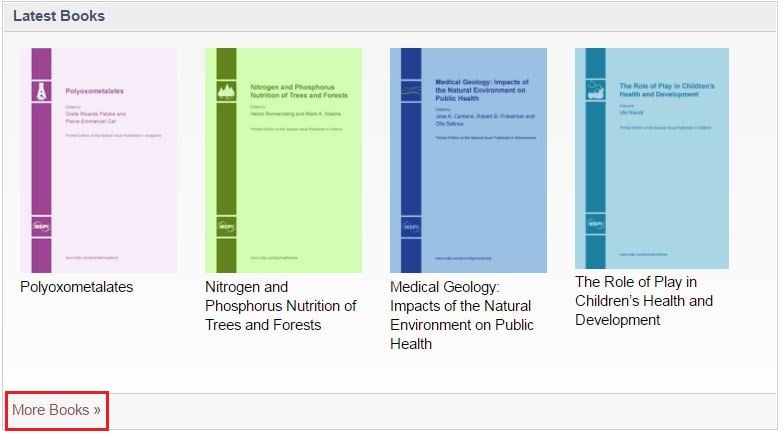
By clicking on the hyperlink "More Books" you will be taken to the MDPI Books Home Page. There you will find more information about the service, as well as the "Recent Publications" list.
Clicking on any of the book images in this list will take you to detailed information about that book (shown below). Here you can also download a PDF version of the book, or order a hardcover printed copy.
For further information about the MDPI Books service, please visit the webpage or contact [email protected].
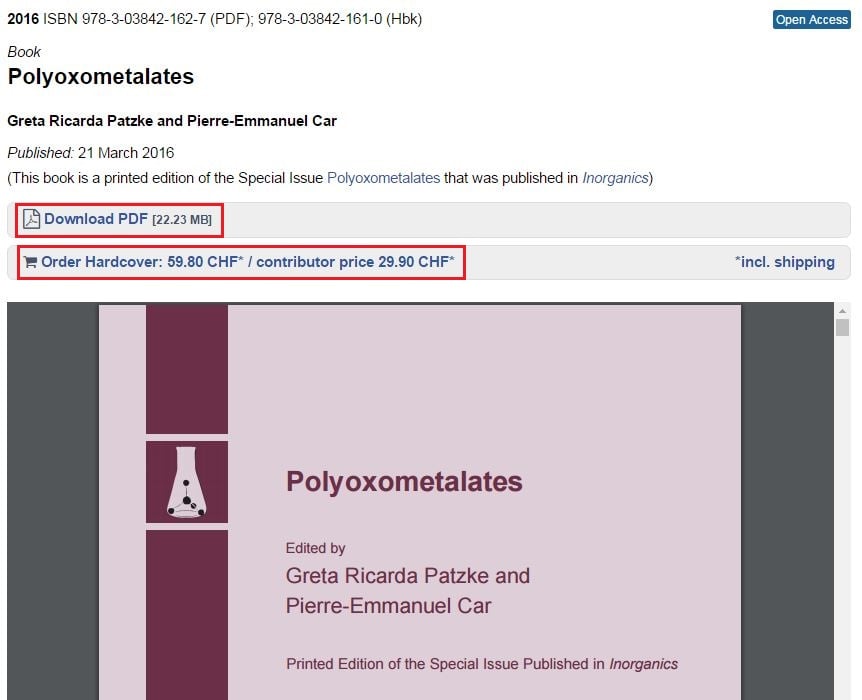
31 March 2016
Axioms, Behavioral Sciences, Photonics, Separations and Toxics added to the Emerging Sources Citation Index in Web of Science
We are pleased to announce that the journals Axioms, Behavioral Sciences, Photonics, Separations and Toxics were recently accepted for inclusion in the newly launched Emerging Sources Citation Index (ESCI) in Web of Science.
ESCI serves to highlight promising journals which are still under consideration for the Science Citation Index Expanded (SCIE) or the Social Sciences Citation Index (SSCI).
The Emerging Sources Citation Index (ESCI), Science Citation Index Expanded (SCIE), Social Sciences Citation Index
(SSCI), and Web of Science™ (WoS) are Thomson Reuters products.
30 March 2016
Institutional Membership established with the University of Winchester, UK, Silesian University of Technology, Poland and Beijing Jiaotong University and Zhejiang University, China
We are pleased to announce that the University of Winchester, UK, the Silesian University of Technology, Poland and Beijing Jiaotong University and Zhejiang University, China, have joined our Institutional Membership program. Primary authors from these universities will benefit from a 10% discount on article processing charges.
Additional details can be found on our institutional membership page.
24 March 2016
New Editorial Office in Barcelona, Spain
We are excited to announce the opening of our new editorial office in Barcelona, Spain. The launch team is led by a Senior Editor and comprises further staff holding doctoral degrees with several years of research experience. The new editorial team will help us to get closer to European research communities and progress Sciforum, the platform to support the scientific community via conference hosting and other functions. They will also help spread the word about Open Access and meet academics at scientific events.
We are in the process of hiring more doctoral and masters graduates to join the editorial team and welcome applications via [email protected]. For contact details about the office, see our contact page.

22 February 2016
Membership Established with the Max Planck Society
We are pleased to announce that the Max Planck Digital Library (MPDL) has signed an agreement with MDPI to support authors associated with the Max Planck Society (Max-Planck-Gesellschaft). As of 22 February 2016, corresponding authors will receive full funding from the MPDL for articles published in MDPI journals, with a 10% discount applied to the Article Processing Charges. Additional details can be found at our institutional membership page.
Founded in 1948, The Max Planck Society is one of Germany’s leading research organizations, and is currently made up of 83 institutes conducting basic research in natural sciences, life sciences, social sciences and humanities. 18 Nobel laureates have emerged from its ranks of scientists and the society has more than 15,000 publications in scientific journals each year.
5 February 2016
Institutional Membership Extension: Wageningen University, CSIC, University of Zürich, ETH Zürich, University of Tübingen and Osnabrück University
We are pleased to announce that Wageningen University, the Netherlands, the Spanish National Research Council (CSIC), Spain, the University of Zürich and ETH Zürich, Switzerland, and the University of Tübingen and Osnabrück University, Germany, have not only renewed their institutional memberships with MDPI after two years of successful cooperation, but have also increased the reduction of the article processing charges (APCs) for affiliated authors to 25%.
Additional details can be found on our institutional membership page.
5 February 2016
Institutional Membership established with Brock University, Canada and the University of Pisa, Italy
We are pleased to announce that Brock University, Cananda, and the University of Pisa, Italy, have joined MDPI's institutional membership program: Primary authors from these universities will benefit from a 10% discount on the article processing charges as of 01 February 2016.
Additional details can be found on our institutional membership page.
25 January 2016
MDPI Sponsors diss:kurs with the University of Basel
MDPI is pleased to announce its newly established sponsorship of diss:kurs, an event coordinated by the University of Basel to support their doctorate program. For more information about the event and how to register, please visit the diss:kurs webpage.
7 January 2016
New Institutional Memberships Established with Tsinghua University, the Chinese Society of Micro-Nano Technology, Ruhr University Bochum and the University of Ulm
We are pleased to announce that the following institutions have joined MDPI's institutional membership program as of 1 January 2016:
- Tsinghua University, China
- Chinese Society of Micro-Nano Technology (CSMNT)
- Ruhr University Bochum, Germany
- University of Ulm, Germany
Authors affiliated with these institutions will benefit from a 10% discount on the article processing charges.
Additional details can be found on our institutional membership page.
5 January 2016
Batteries Released its First Issue in December 2015
We are pleased to announce that MDPI's open access journal Batteries released its first issue at the end of December 2015. Seven papers were published in this issue: https://www.mdpi.com/2313-0105/1/1. Batteries is an international, open access journal of battery technology and materials..

5 January 2016
Safety, Fermentation, C-Journal of Carbon Research, Magnetochemistry, Batteries and Horticulturae Released Their First Issue in December 2015
We are pleased to announce that MDPI's open access journals Safety, Journal of Imaging, Fermentation, C-Journal of Carbon Research, Magnetochemistry, Batteries and Horticulturae released their first issue at the end of December 2015.
17 December 2015
Institutional Membership Extension: University of Bern, Switzerland
We are pleased to announce that the University of Bern, Switzerland has not only renewed their institutional membership with MDPI after two years of successful cooperation, but also increased the reduction of the article processing charges (APCs) for affiliated authors to 25%.
17 December 2015
Institutional Membership with the University of Ulm and Helmholtz Zentrum Munich
We are pleased to announce that University of Ulm, Germany and Helmholtz Zentrum Munich, Germany has joined MDPI's institutional membership program:
Primary authors from the University of Ulm and Helmholtz Zentrum Munich will benefit from a 10% discount on the article processing charges as of 1 January 2016. Additional details can be found on our institutional membership page.
9 December 2015
Membership Established with the Virginia Polytechnic Institute and State University (Virginia Tech)
We are pleased to announce that Virginia Tech has joined MDPI's institutional membership program. Authors from Virginia Tech will benefit from a 10% discount on the article processing charges as of 1 December 2015. Additional details can be found on our institutional membership page.
1 December 2015
Membership Established with the Technical University of Denmark and the University of North Florida
We are pleased to announce that the following universities have joined MDPI's institutional membership program:
- Technical University of Denmark (as of 1 November 2015)
- University of North Florida, USA (as of 15 November 2015)
Primary authors from the Technical University of Denmark and the University of North Florida will benefit from a 10% discount on the article processing charges.
Additional details can be found on our institutional membership page.
2 October 2015
Membership Established with the University of Freiburg and the University of Regensburg
We are pleased to announce that the following universities have joined MDPI's institutional membership program:
University of Freiburg, Germany
University of Regensburg, Germany
Primary authors from the University of Freiburg and the University of Regensburg will benefit from a 10% discount on the article processing charges as of 1 October 2015 and 1 November 2015.
Additional details can be found on our institutional membership page.
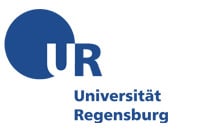













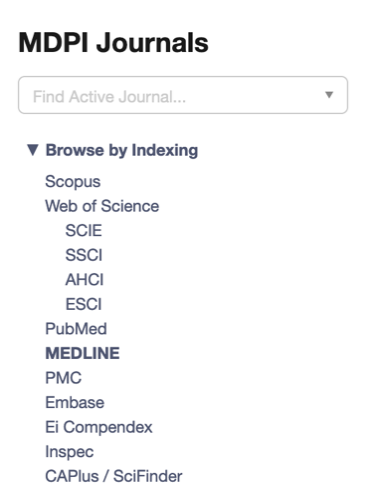






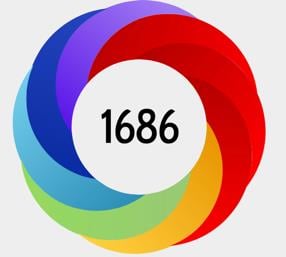
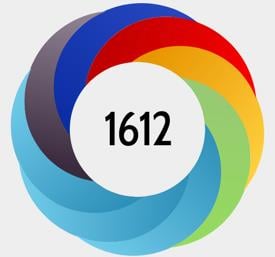
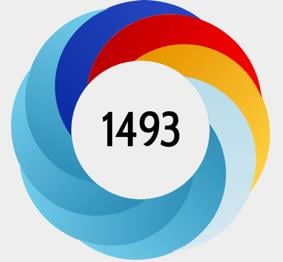
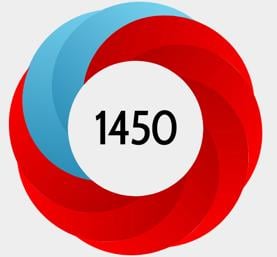
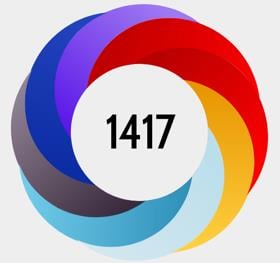
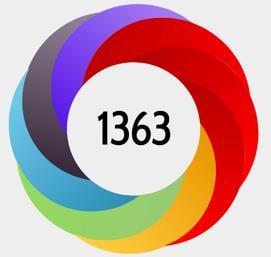
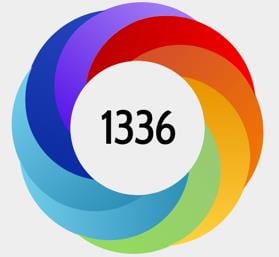
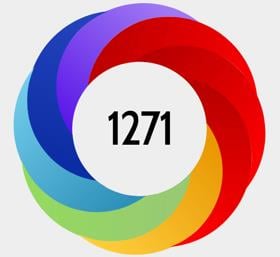
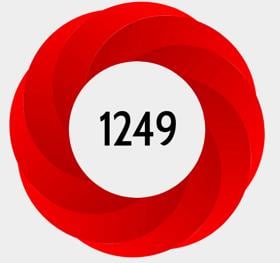





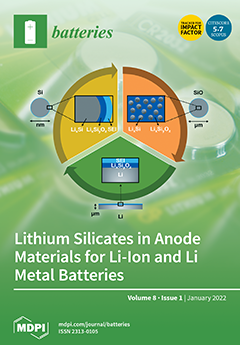
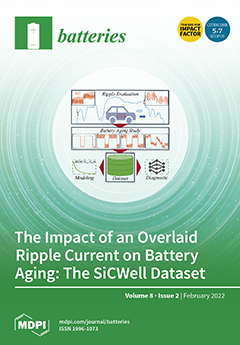
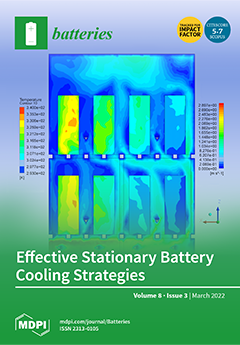
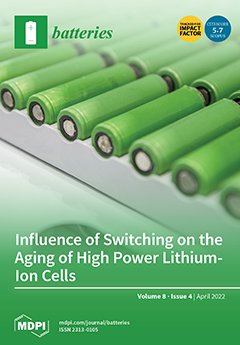
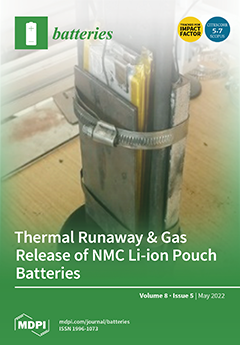
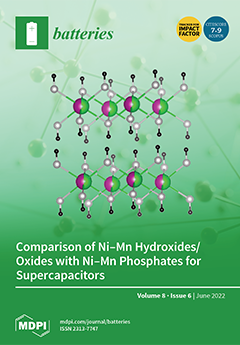
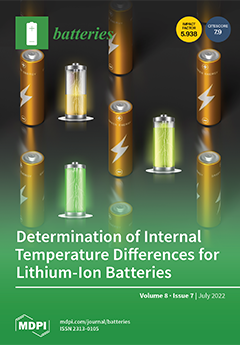
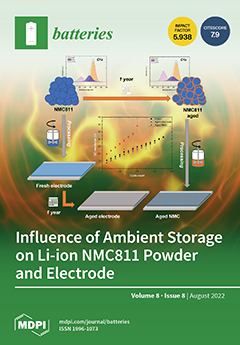
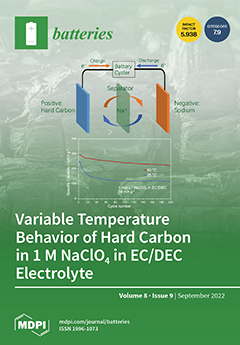
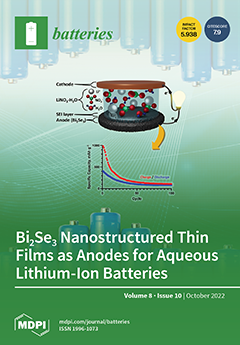
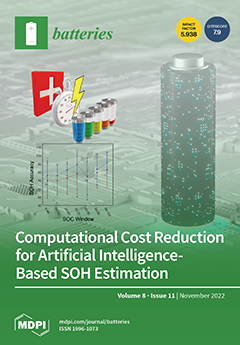
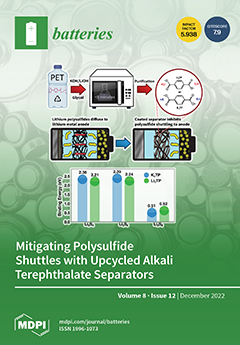







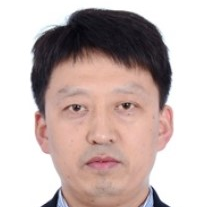




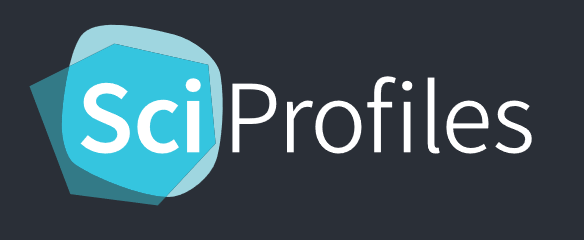

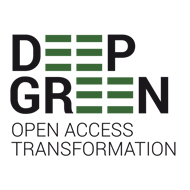




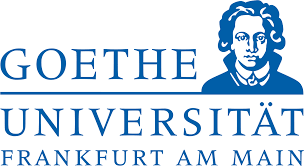
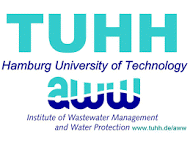





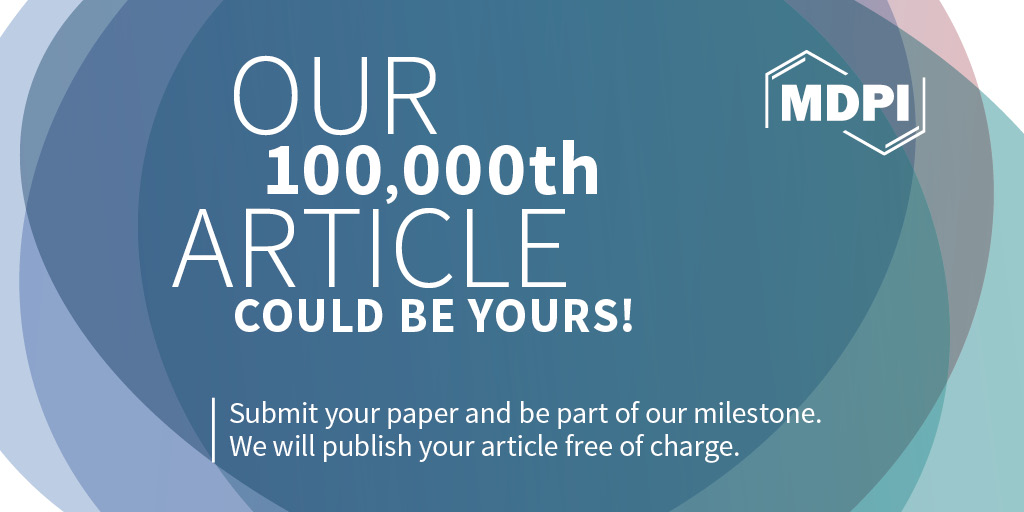
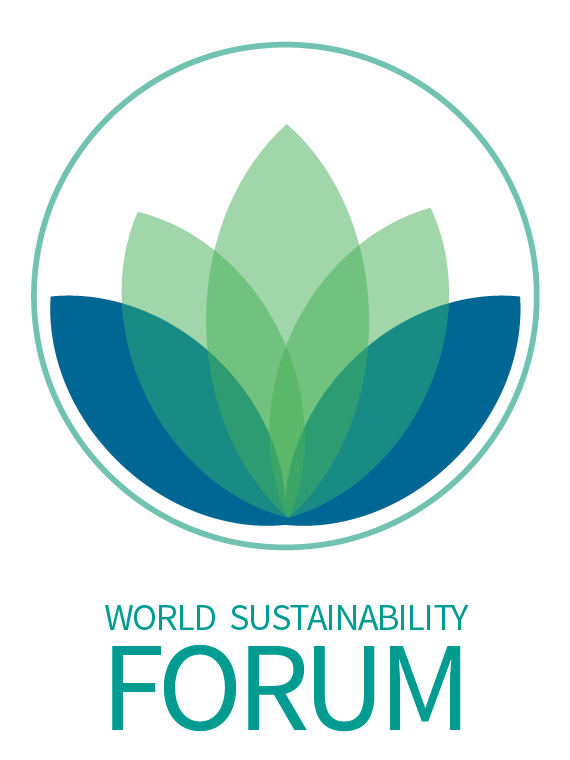
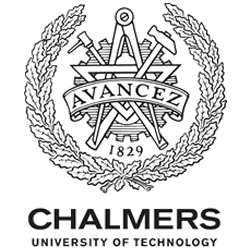

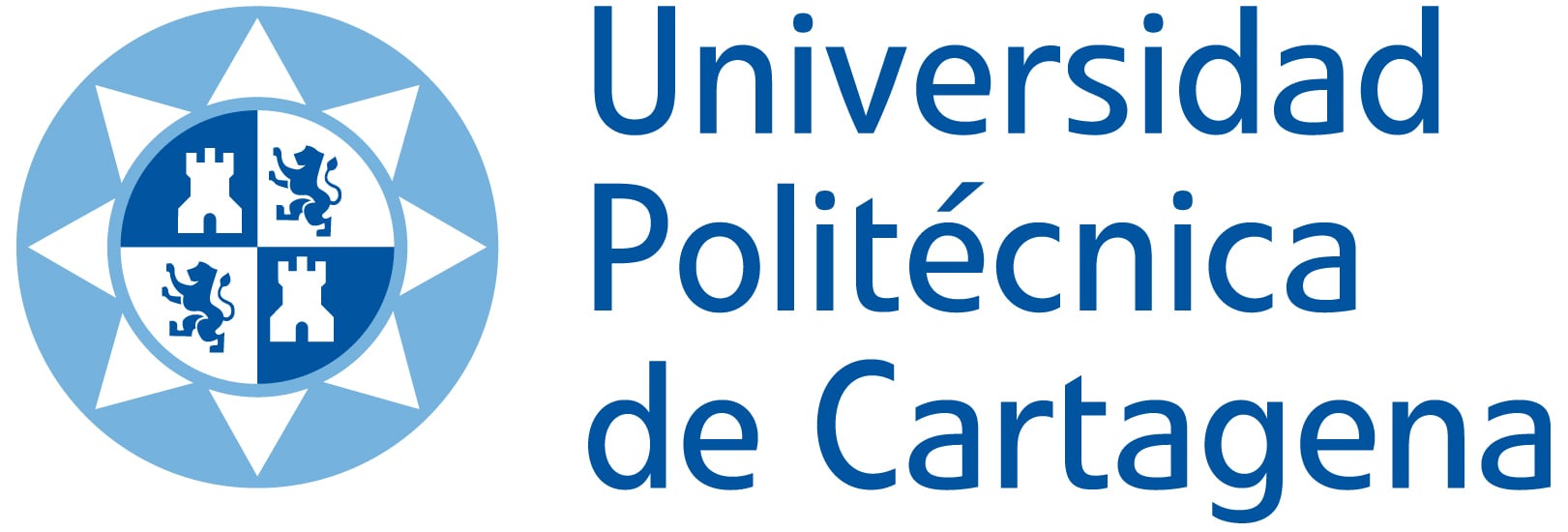
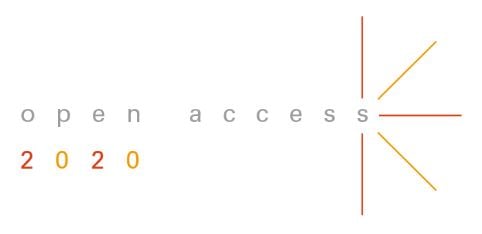



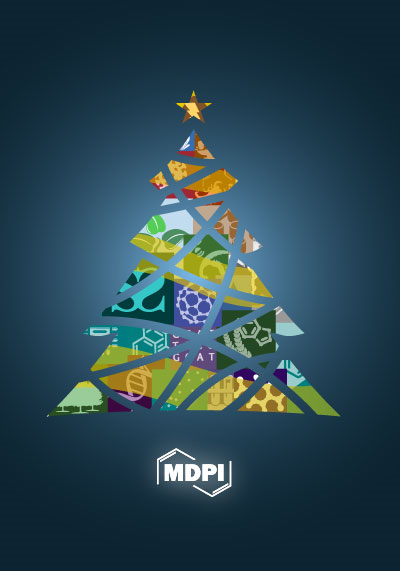





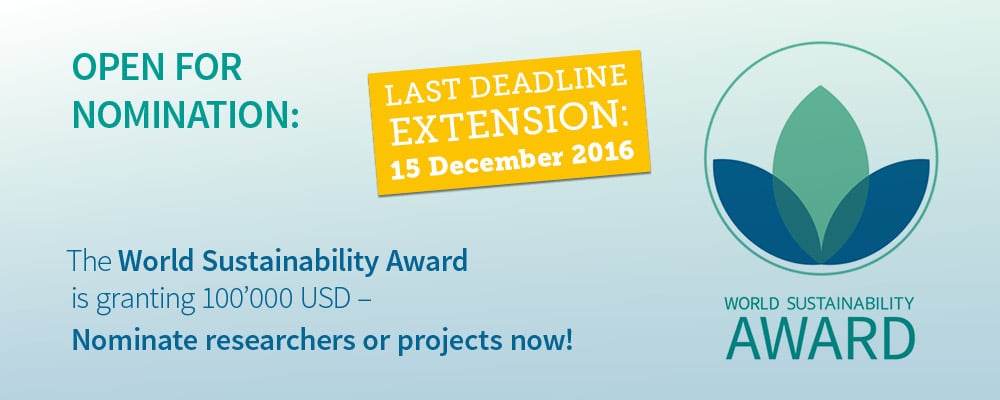



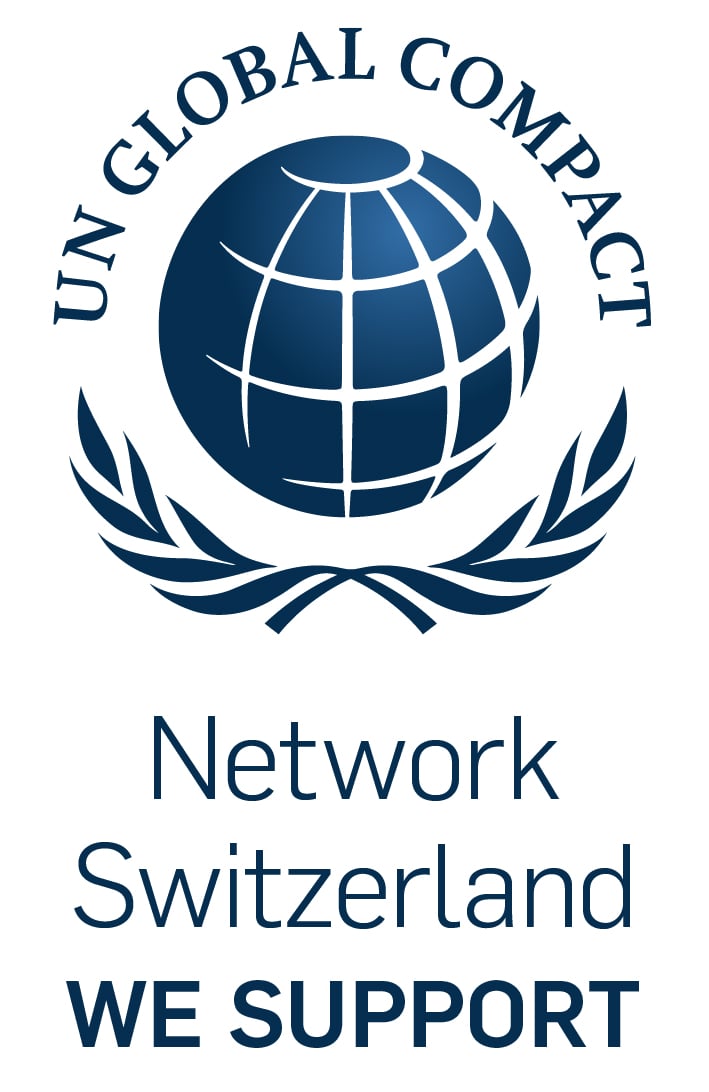
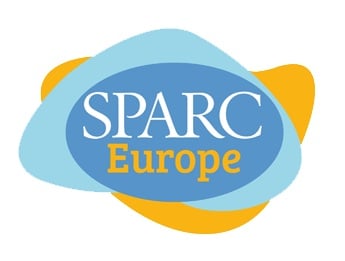
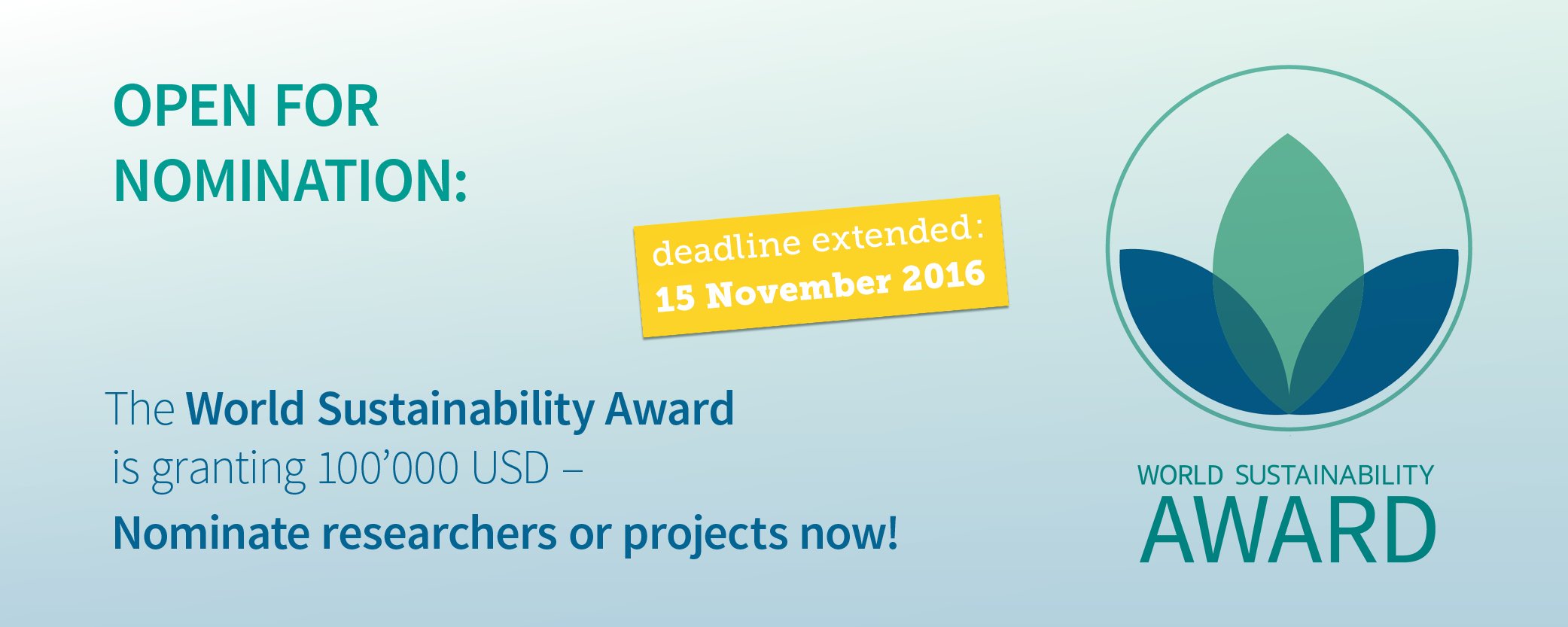 .
.